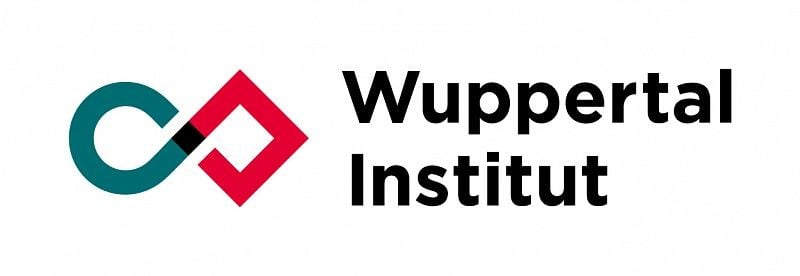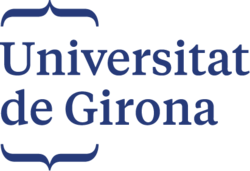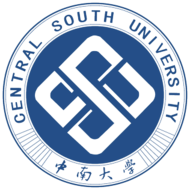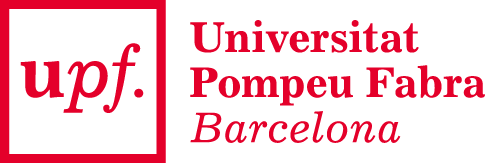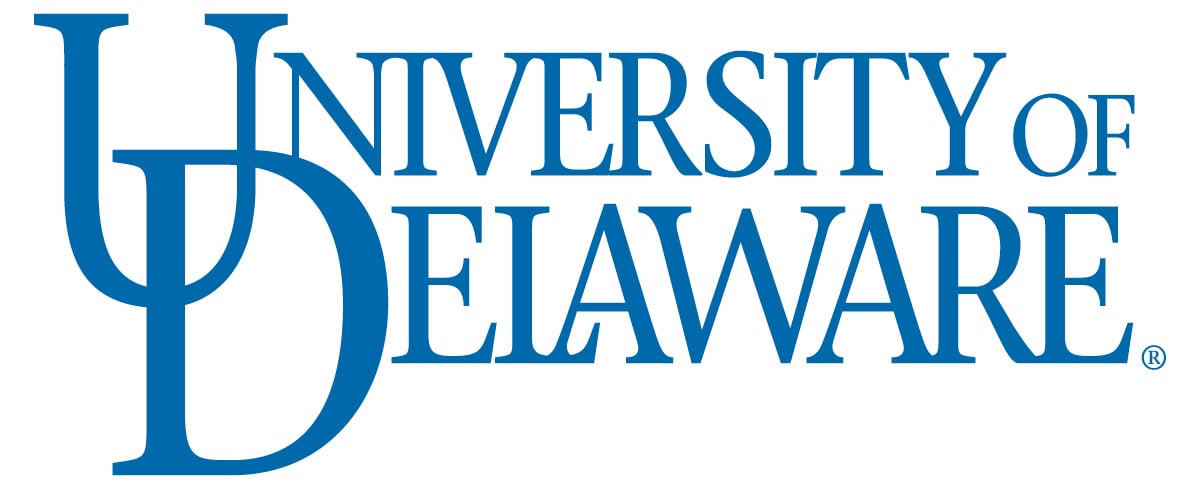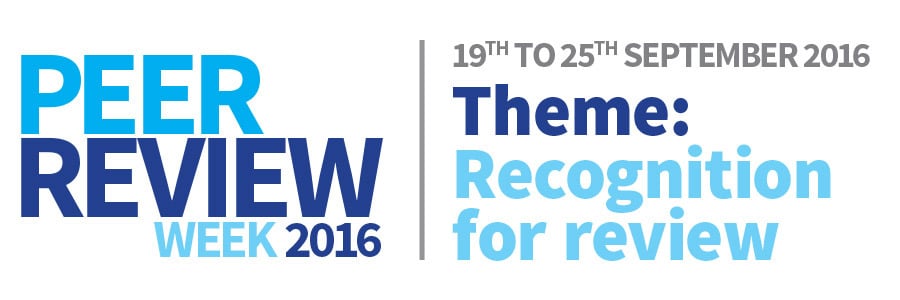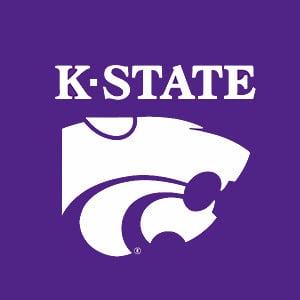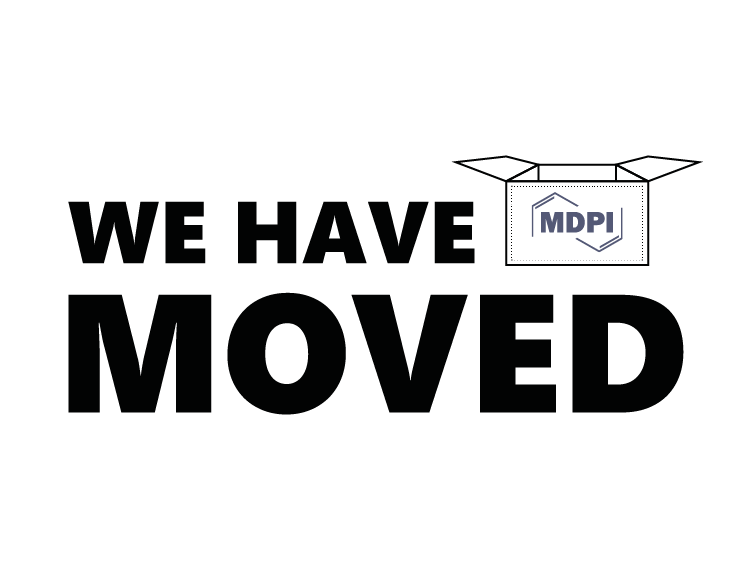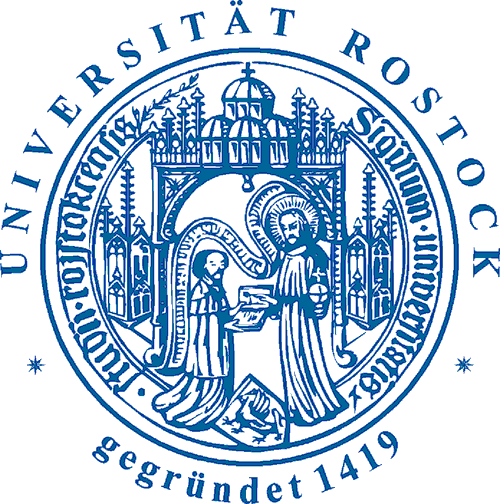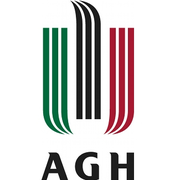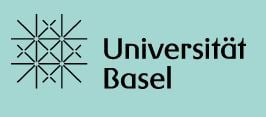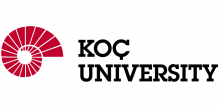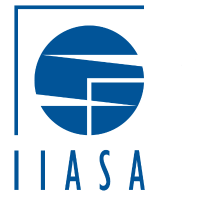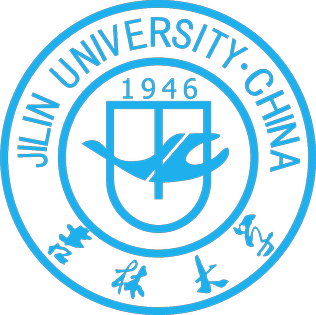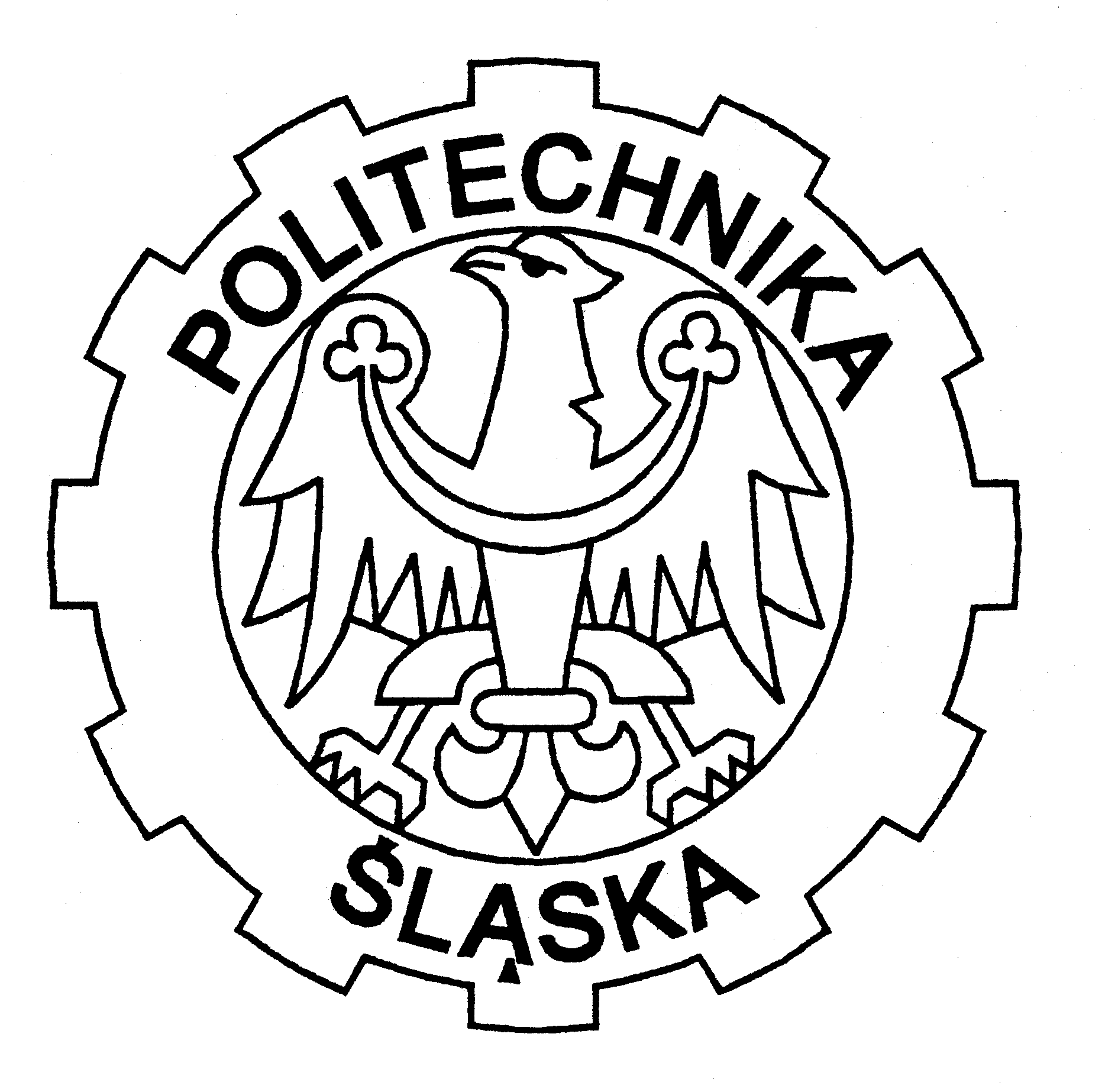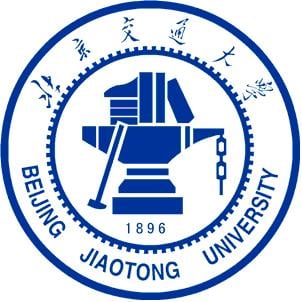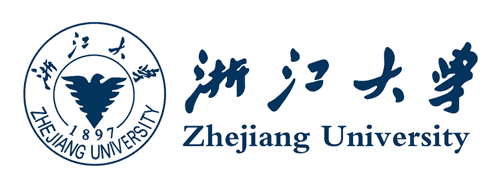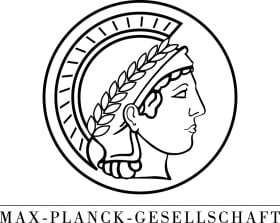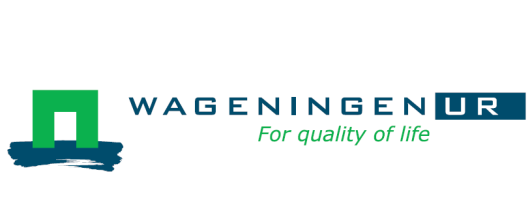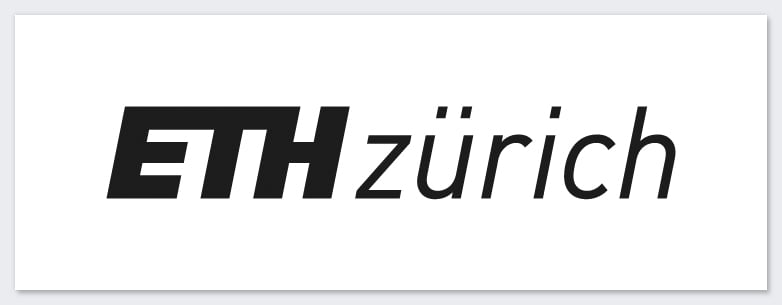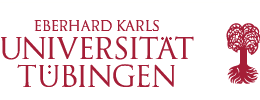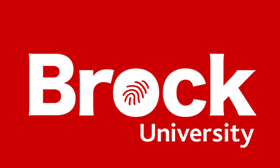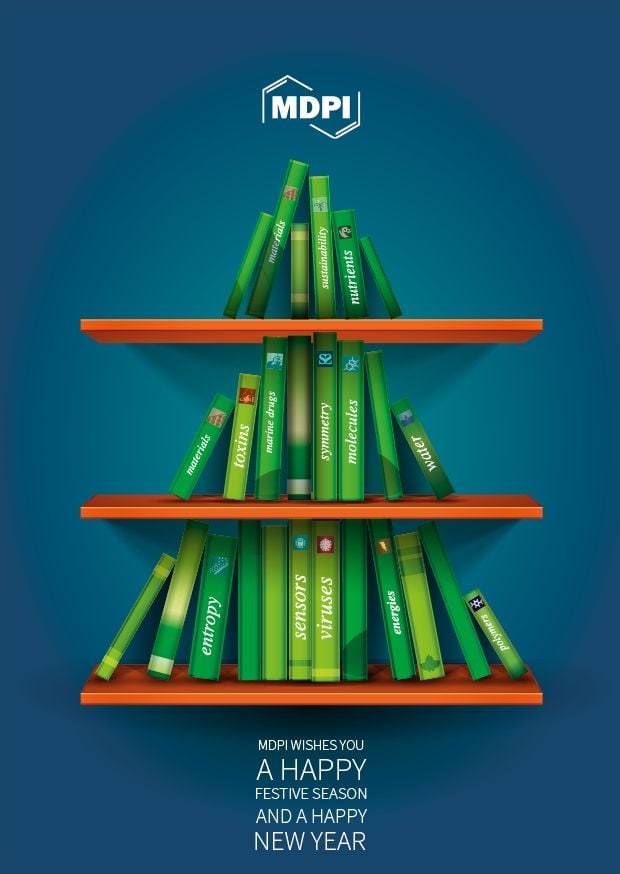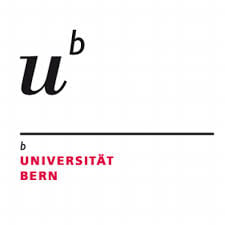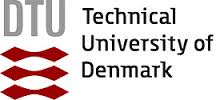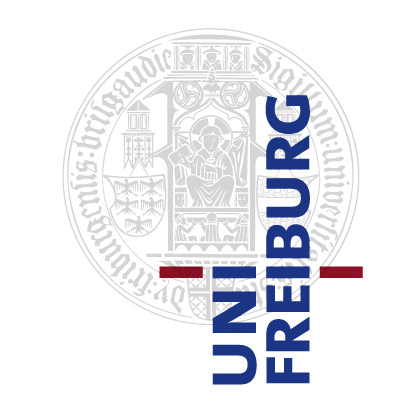
Journal Menu
► ▼ Journal Menu-
- Polymers Home
- Aims & Scope
- Editorial Board
- Reviewer Board
- Topical Advisory Panel
- Instructions for Authors
- Special Issues
- Topics
- Sections & Collections
- Article Processing Charge
- Indexing & Archiving
- Editor’s Choice Articles
- Most Cited & Viewed
- Journal Statistics
- Journal History
- Journal Awards
- Society Collaborations
- Conferences
- Editorial Office
Journal Browser
► ▼ Journal BrowserNeed Help?
Announcements
10 April 2024
Meet Us at the 18th International Symposium on Macrocyclic and Supramolecular Chemistry, 6–10 May 2024, Hangzhou, China

MDPI will be attending the 18th International Symposium on Macrocyclic and Supramolecular Chemistry (ISMSC 2024), which will be held from 6 to 10 May 2024 in Hangzhou, China.
The International Symposium on Macrocyclic and Supramolecular Chemistry is the most prestigious international conference in the area of supramolecular science. The history of ISMSC can be traced back to two originally independent symposia, the International Symposium on Macrocyclic Chemistry (ISMC) and the International Symposium on Supramolecular Chemistry (ISSC). The ISMC series was founded by Professors Reed M. Izatt and James J. Christensen and began in 1977, in Provo, Utah, USA. Three years later, the first ISSC was held in Warsaw, Poland. With the increasing overlap of research topics in macrocyclic chemistry and supramolecular chemistry, in 2006, ISMC and ISSC were merged, and the first joint conference was held in Victoria, British Columbia, Canada. The success of this merger served to launch the ISMSC as the premier conference in the field. The ISMSC has been held annually ever since with a hiatus for the pandemic. It moves from one nation to another. The previous meeting was held in Reykjavik, Iceland, in 2023.
ISMSC 2024 will be held at the Blossom Water Museum Hotel Hangzhou (Address: No. 118, Shuibo Road, Xiaoshan District, Hangzhou, Zhejiang, China). Hangzhou, the Capital of Zhejiang Province, is one of China’s most enduringly popular holiday spots. More than 1,000 international and domestic researchers, students, and industry representatives in the field of macrocyclic and supramolecular chemistry will attend the conference, including two Nobel Prize Laureates, one Wolf Prize winner, and over 20 academicians from China and overseas.
The following MDPI journals will be represented at the conference:
If you are planning on attending this conference, please do not hesitate to stop by our booth and start a conversation with us. Our delegates look forward to meeting you in person and answering any questions that you may have. For more information about the conference, please visit the following website: https://www.ismsc2024.com/index.
10 April 2024
Meet Us at the 2024 Spring Meeting of the European Materials Research Society (E-MRS), 27–31 May 2024, Strasbourg, France

The 2024 Spring Meeting of the European Materials Research Society (E-MRS) will be held from 27 to 31 May 2024, in Strasbourg, France. The conference is organized by the European Materials Research Society and Foundation Jean-Marie Lehn.
The conference will focus on the following:
- Vascular disorders;
- Decarbonized energy and sustainability;
- Materials for human well-being;
- Two-dimensional materials and surfaces: synthesis, characterization, and perspectives;
- Advanced characterization of materials;
- Materials sciences for cultural heritage;
- Electronics, magnetics, and photonics.
The following MDPI journals will be represented:
- Materials;
- Nanomaterials;
- Symmetry;
- C;
- Textiles;
- Coatings;
- Applied Nano;
- Polymers;
- Fibers;
- Construction Materials;
- CMD;
- Crystals.
If you are attending this conference, please feel free to start an online conversation with us. Our delegates look forward to meeting you in person at booth #27 and answering any questions that you may have. For more information about the conference, please visit the following link: https://www.european-mrs.com/meetings/2024-spring-meeting.
2 April 2024
MDPI Insights: The CEO's Letter #10 - South Korea, IWD, U2A, Japan

Welcome to the MDPI Insights: The CEO's Letter.
In these monthly letters, I will showcase two key aspects of our work at MDPI: our commitment to empowering researchers and our determination to facilitating open scientific exchange.
Opening Thoughts

Left to right: Dr. Jisuk Kang (Scientific Officer, MDPI), Stefan Tochev (CEO, MDPI), and Dr. Giulia Stefenelli (Chair of Scientific Office Board, MDPI), during media meetings at Prain Agency office in Seoul, South Korea.
Visit to Seoul, South Korea
During my recent visit to South Korea, I had the privilege of meeting various stakeholders, including representatives of government, research institutions, and academia, to understand their needs and communicate MDPI’s commitment to accessible science. Accompanied by my colleagues Dr. Giulia Stefenelli and Dr. Jisuk Kang, I engaged with the Korean scientific community, which is increasingly embracing open access (OA).
As the leading OA publisher in South Korea, MDPI is trusted by local authors and in 2023 enjoyed an approximately 30% share of the OA market. South Korea ranks sixth globally for MDPI in terms of research papers submitted and published.
MDPI and South Korea by Numbers
As at 30 March, over 76,000 MDPI articles have been authored by individuals affiliated with Korean institutions. We have over 1,800 active editorial board members (EBMs) from South Korea, with more than 880 EBMs having an H-index between 26 and 50, including 10 serving as Chief Editors.
“South Korea is the sixth-largest contributor to our total publications”
Over the past five years (2019–2023), nearly 120,000 authors affiliated with South Korean institutes have published with MDPI. Specifically in 2023, we received approximately 25,000 submissions from South Korean authors, publishing close to 13,000 articles, resulting in a rejection rate of 47.4%, which is not far below MDPI’s overall rejection rate of 56.4% in 2023.
Institutional Partnerships with South Korea
I am pleased to share that MDPI has more than 825 institutional partnerships worldwide, with 12 in South Korea, including Kyunghee University, Chung-Ang University, and Inha University, among others.

Left to right: Dr. Jisuk Kang (Scientific Officer, MDPI), Dr. Giulia Stefenelli (Chair of Scientific Office Board, MDPI), and Stefan Tochev (CEO, MDPI) fielding media questions at Prain PR Agency office in Seoul, South Korea.
Over the past three years (2021–2023), we have had some of the most prestigious academic universities ranked among the top 10 Korean institutions publishing with MDPI. Seoul National University had the highest number of publications with MDPI during those three years, publishing nearly 6,000 papers. Universities such as Korea University and Yonsei University also rank among the top 10 Korean institutions publishing with MDPI.
MDPI Hosts Seminar for Academia and Media
As the world’s leading OA publisher, MDPI is actively democratizing science. This is reflected in the seminars we hosted on 21 March to address questions about our editorial processes and ethical standards. The visit garnered media coverage, reflecting our mission to providing high-quality services and fostering open dialogue in the community.
“MDPI is actively democratizing science”
MDPI in the News

Stefan Tochev (CEO, MDPI) leading a seminar on OA and MDPI at Prain PR Agency office in Seoul, South Korea.
Media coverage generated by our visit to Seoul included the following stories:
“Open access is an unstoppable trend…it will lead the development of the knowledge ecosystem.”
I greatly appreciate the contributions of everyone who took the time to meet with us, share their stories, and hold us accountable for continuing to provide high-quality publishing services while identifying areas for improvement. I am also excited to announce that we have opened an MDPI office in Seoul and will release a press release on MDPI.com, with details, by the end April 2024. The purpose of the office is to establish a local presence to connect with and support the South Korean academic community through institutional partnerships, conferences, author workshops, stakeholder communications, and more.
Impactful Research

Featured Articles on Women’s Leadership and Healthcare
In celebration of International Women’s Day (8 March 2024), MDPI curated a collection of research articles on various topics, including women’s leadership, reproductive health, preventive healthcare, and a selection of articles from our journal Women.
Women’s Leadership
- Women Entrepreneurship and Sustainable Development: Bibliometric Analysis and Emerging Research Trends
Sustainability 2022, 14, 9160. https://doi.org/10.3390/su14159160 - Refugee Women Business Mentors: New Evidence for Women’s Empowerment
Sustainability 2022, 14, 9154. https://doi.org/10.3390/su14159154 - Women and Leadership in Higher Education: A Systematic Review
Soc. Sci. 2023, 12, 555. https://doi.org/10.3390/socsci12100555 - Understanding Needs and Potentials for Gender-Balanced Empowerment and Leadership in Climate Change Adaptation and Mitigation in Africa
Sustainability 2022, 14, 9410. https://doi.org/10.3390/su14159410 - Challenges Women Experience in Leadership Careers: An Integrative Review
Merits 2023, 3, 366-389. https://doi.org/10.3390/merits3020021
Women’s Reproductive Health
- Recreational Female Athletes’ Understanding of and Perceived Impact of the Menstrual Cycle on Physical Performance, Mood, and Sleeping Behaviour
Women 2023, 3, 445-456. https://doi.org/10.3390/women3030034 - Difficulties in Adaptation of the Mother and Newborn via Cesarean Section versus Natural Birth—A Narrative Review
Life 2023, 13, 300. https://doi.org/10.3390/life13020300 - The Main Theories on the Pathogenesis of Endometriosis
Int. J. Mol. Sci. 2023, 24, 4254. https://doi.org/10.3390/ijms24054254
Women’s Preventive Healthcare
- Insulin Metabolism in Polycystic Ovary Syndrome: Secretion, Signaling, and Clearance
Int. J. Mol. Sci. 2023, 24, 3140. https://doi.org/10.3390/ijms24043140 - Assessing Barriers Encountered by Women in Cervical Cancer Screening and Follow-Up Care in Urban Bolivia, Cochabamba
Healthcare 2022, 10, 1604. https://doi.org/10.3390/healthcare10091604 - Updates on HPV Vaccination
Diagnostics 2023, 13, 243. https://doi.org/10.3390/diagnostics13020243
Featured Articles in MDPI Journal Women
Below are a few articles from Women, our journal focused on women’s health, the social determinants of health, and the healthcare system that serves women. The aim of Women is to encourage academics to publish their experimental and theoretical results in detail, to aid reproducibility, and in an engaging style, to aid comprehensibility.
- Premenstrual Syndrome and Exercise: A Narrative Review
Women 2023, 3, 348-364. https://doi.org/10.3390/women3020026 - Increasing Awareness of the Human Papillomavirus (HPV) Vaccine for Women 18–45 Years of Age
Women 2023, 3, 365-373. https://doi.org/10.3390/women3030027 - Addressing Women’s Needs with Human Immunodeficiency Virus (HIV) and Enhancing the Visibility of Pharmacists in the Public Health Arena
Women 2022, 2, 346-352. https://doi.org/10.3390/women2040032
Inside MDPI

Championing Women’s Healthcare and Access to Healthcare Information
MDPI colleagues from our offices joined in celebrating #IWD2024. In doing so, we emphasized key missions that encompass:
- Empowering women to assume leadership and decision-making roles in both business and science.
- Helping women and girls make informed decisions about their health.
- Recruiting and developing female talent and fostering inclusive workplace environments.
“We are thrilled to recognize the accomplishments of women scientists”
I am proud to see our colleagues enthusiastically supporting the International Women’s Day call to ‘Inspire Inclusion!’ The heart-hands in the collage below symbolize our appreciation of the achievements of women researchers and the recognition of the trailblazers who have courageously made a mark on societies past and present.

We are thrilled to recognize the accomplishments of women scientists through our many MDPI awards and by highlighting success stories. As inspirational figures, female scientists are paving the way for the next generation of women aspiring to pursue careers in engineering, life sciences, computing, and various other STEM fields.
“I consider myself lucky because I work with incredibly talented women who inspire me every day.”
– Dr. Alessandra Pasut, Winner of MDPI's ‘Biology 2023 Young Investigator Award’
“It’s really important to find a supportive and enabling environment in which to do your science; it would have a big impact on you as a person and on your scientific outputs.”
– Dr. Rhea Longley, Winner of the ‘Pathogens 2023 Young Investigator Award’
Open-access publishing, in particular, allows early-career women researchers to share their work more widely, potentially attracting mentorship opportunities and collaborations. This support is crucial for career development and advancement.
Coming Together for Science

MDPI Joins United2Act in Collective Fight to Stop Paper Mills
In my February 2024 CEO Letter, I highlighted some of our recent initiatives aimed at bolstering our commitment to research integrity, including joining the STM Integrity Hub and expanding our Research Integrity and Publication Ethics team (RIPE). Continuing our efforts in coming together for science, I am pleased to share our participation in the United2Act initiative.
The text below is taken from our official announcement:
United2Act represents an international group of stakeholders in the publishing industry committed to addressing the collective challenge posed to research integrity by paper mills.
Scientists and academic publishers have increasingly noted the alarming proliferation of paper mills, recognized as fraudulent entities seeking to manipulate the publication process for financial profit. These entities engage in fraudulent practices such as falsifying or fabricating data, selling co-authorship of fake papers, manipulating peer review, and including inappropriate citations. These actions pose a significant threat to the integrity of the scholarly record, prompting widespread concern among those involved in the academic community.
MDPI has been actively contributing to combat the undermining of the scientific record. Our editors employ a set of tools to detect potential ethical breaches within a manuscript and to tackle the issue of fake papers.
United2Act’s consensus statement is the outcome of a virtual summit held in May 2023. It involved the participation of research bodies, publishers, researchers/sleuths, universities, and publishing infrastructure from 15 countries and resulted in a Consensus Statement outlining five key areas of action for all stakeholders:
- Education and awareness
- Improve post-publication corrections
- Facilitate and organise research on paper mills
- Enable the development of trust markers
- Facilitate dialogue between stakeholders
MDPI is committed to promoting transparency and integrity in scholarly publishing and is continuing to work closely with the scientific community toward this goal.
Closing Thoughts

Left to right: Ryo Hirayama (Marketing Specialist, MDPI), Takashi Sasabe (Marketing Specialist, MDPI), Dr. Giulia Stefenelli (Chair of Scientific Office Board, MDPI), Dr. Izumi Yamamoto (Marketing Manager, MDPI), and Stefan Tochev (CEO, MDPI), at MDPI’s office in Tokyo, Japan.
Visit to Tokyo and Kyoto, Japan
In March, I had the opportunity to visit our Tokyo office and engage with stakeholders in Tokyo and Kyoto. During the visit, I also recorded a video message to welcome Japanese scholars working with MDPI and to highlight our operations in Japan.
We held meetings with Editors-in-Chief, librarians, scholars, and external consultants to gather feedback on our efforts to enhance our reputation and explore additional steps we can take in that direction. Japan's rich cultural heritage, characterized by tradition, respect, and formality, provided valuable insights into meeting the publishing needs specific to Japan.
Japan’s Open Access statistics
Over the years, we have seen a shift from subscription-only to gold OA publishing in Japan, despite the lack of an official mandate. Here are some statistics:
- 2012: 68% of articles were subscription-only, 6% were green Open Access, and 8% were gold Open Access.
- 2016: 55% of articles were subscription-only, 6% were green Open Access, and 20% were gold Open Access.
- 2022: 43% of articles were subscription-only, 7% were green Open Access, and 39% were gold Open Access.
To learn more about the history of OA in Japan as well as about future trends, please read this blog post.
“Japan is the ninth-largest contributor to our total publications”

Left to right: Stefan Tochev (CEO, MDPI), Dr. Izumi Yamamoto (Marketing Manager, MDPI), and Dr. Giulia Stefenelli (Chair of Scientific Office Board, MDPI) visiting Kyoto University in Kyoto, Japan.
MDPI and Japan by Numbers
As at 1 April, over 50,000 MDPI articles have been authored by scholars affiliated with Japanese institutions, making the country the ninth-largest contributor to our total publications. Over the past three years (2020–2023), nearly 90,000 authors affiliated with Japanese institutes have published with MDPI, and we have collaborated with over 4,600 Guest Editors from Japan.
In 2023, we published over 8,200 papers from authors associated with Japanese institutions. MDPI collaborates with 41 institutional partnerships in Japan, including the University of Tokyo, Hokkaido University, and Nagoya University. We have over 2,100 active EBMs from Japan, more than 1,050 EBMs having an H-index between 26 and 50, including 13 serving as Editors-in-Chief.
General Feedback – a side note
A general takeaway from our discussions with stakeholders from around the world is that negative perceptions of MDPI often stem from misinformation, misconceptions, or misunderstandings about MDPI and our practices. While we acknowledge our mistakes and work diligently to address them, maintaining a strong editorial procedure and robust peer-review process, I find that educating stakeholders about our how we do what we do and our ongoing improvements tends to help shift opinions.
That said, we recognize the importance of addressing individual concerns. We take feedback seriously and are continuously working to get better while not compromising the core principles that millions of authors appreciate about MDPI.
Chief Executive Officer
MDPI AG
4 March 2024
MDPI Insights: The CEO's Letter #9 - Romania, Research Integrity, Viruses

Welcome to the MDPI Insights: The CEO's Letter.
In these monthly letters, I will showcase two key aspects of our work at MDPI: our commitment to empowering researchers and our determination to facilitating open scientific exchange.
Opening Thoughts

Reka Kovacs (Deputy Office Manager, MDPI), Stefan Tochev (CEO, MDPI), and Sandra Ana Spatariu (Office Manager, MDPI) at the MDPI office in Cluj, Romania.
MDPI’s Impact on Romania
In February, I visited our office in Cluj, Romania. I worked closely with our senior office managers and various teams, including the departments of training, marketing and conferences, as well as our journal relationship specialists, reviewing our service to the local scholarly community. During the visit, I also met with representatives from Babes-Bolyai University and the Technical University of Cluj-Napoca. Our multifunctional Romanian office plays an important role in supporting our collaborations with the local market as well as helping to meet MDPI’s overall business needs.

Feedback and strategy meeting with a group of MDPI’s Journal Relationship Specialists at the MDPI office in Cluj, Romania.
With 22,436 articles, Romania ranks as a top 20 contributing country to MDPI’s total number of papers published as at 28 February 2024. This highlights the importance of our collaboration with Romanian-affiliated authors and the growing opportunity to support their publishing needs. MDPI is one of the few academic publishers with a significant presence in Romania, boasting over 360 colleagues across our offices in Bucharest and Cluj. We are also proud to hire colleagues from local institutions to launch their careers within publishing.
Romania ranks as a top 20 contributing country.
The Numbers: 2019–2023
MDPI has seen a healthy increase in submissions from Romanian authors over the past three years, from 8,439 in 2021 to 11,866 by end of 2023, with most submissions going to journals such as Sustainability, Medicina, Diagnostics, IJMS, Applied Sciences, and JCM. From 2019 to 2023, MDPI published articles from 32,145 authors affiliated with Romanian institutions. Over those years, we have worked with Romanian Guest Editors on nearly 3,000 occasions to support their Special Issue and Topical collections.
With more than 300 Editorial Board Members from Romania, 34 appear on the board of Mathematics, 27 on Materials, 19 on Polymers, 18 on Coatings, and 16 on Molecules, while three serve as Section Editors-in-Chief (SEiC) on our journals Coatings (3.4 IF, 4.6 Citescore), Magnetochemistry (2.7 IF, 3.5 Citescore), and Chemosensors (4.2 IF, 3.9 Citescore).
Institutional Open Access Programs
Our commitment to working with institutions is evident in Romania, where we have established eight Institutional Open Access Programs (IOAP) with esteemed institutions such as the University of Bucharest, the University of Medicine and Pharmacy Cluj-Napoca, and most recently the National Institute for Laser, Plasma and Radiation Physics.
Our growth and presence in Romania are a true testament.
We also have IOAP agreements with Babes-Bolyai University and the Technical University of Cluj-Napoca, where I had the opportunity to meet senior stakeholders during my visit. Below are a few photos capturing our meeting with Prof. Radu Silaghi-Dumitrescu (Head of Faculty of Chemistry, Babes-Bolyai University) at the MDPI office in Cluj, Romania, along with a photo from our meeting with Vice Deans Nicoleta Cobarzan, Nicoleta Ilies, and Hoda Gavril, from the faculty of Civil Engineering at the Technical University of Cluj, Romania.


Our growth and presence in Romania are a true testament to the service we provide to the scholarly community and the relationships we foster in that region. We look forward to continuing to support Romanian scholars and institutions by providing a valuable and trusted experience with MDPI, the leader in open access publishing.
Impactful Research

MDPI Joins the STM Integrity Hub
MDPI has long been a supporter and partner of STM, with our involvement ranging from sponsoring and attending events to helping organize event programs. By joining the STM Integrity Hub, we aim to further our commitment to STM initiatives aimed at safeguarding the integrity of science.
“We are pleased to welcome MDPI as the 35th organisation participating in the Hub. This expansion is critical, as every new member enhances our capacity to prevent fraudulent submissions from entering the academic record.”
Joris van Rossum, Director of Research Integrity, STM
MDPI operates in full alignment with STM Integrity Hub's values of shared data and experiences. We strongly believe in collaboration and open exchange for the purposes of creating a holistic approach to support research integrity at MDPI itself and across the entire academic publishing industry. The Integrity Hub is an excellent example of how publishers can come together to jointly address industry-wide challenges related to research integrity, such as manuscripts that breach research integrity standards and paper-mills.
I look forward to our Research Integrity and Publication Ethics Team (RIPE) team immersing themselves in this initiative, exchanging information, best practices, and tools for the benefit of the entire scholarly ecosystem. We believe that ethical publishing standards should be implemented across the board, and we aim to be rigorous in our approach, addressing research integrity issues and improving the impact of published research.
Inside MDPI

MDPI Expands Research Integrity and Publication Ethics Team (RIPE)
In addition to external collaborations and joint initiatives aimed at further strengthening our commitment to research integrity, we are also enhancing our internal efforts. This includes improving our processes and guidelines and expanding our teams and departments to ensure quality assurance throughout our publishing process.
We are pleased to announce the expansion of our Research Integrity and Publication Ethics Team (RIPE) at MDPI. The RIPE team has recently welcomed new colleagues, each bringing unique skills and a personal commitment to prioritize ethical considerations in all our work.
The demand for research integrity and high ethical standards in academic publishing is steadily rising across our industry. Our expanded RIPE team will work to enhance and align our practices with industry best practices, ensuring excellence in research integrity and publication ethics.

Stefan Tochev (CEO, MDPI) introduces Dr. Tim Tait-Jamieson (Research Integrity Lead, MDPI) for his presentation on MDPI’s Retraction and Approval Process to a group of Journal Relationship Specialists at the MDPI office in Cluj, Romania: “The demand for research integrity and publication ethics is steadily rising across our industry.”
Introducing our Research Integrity and Publication Ethics Team
Led by Dr. Tim Tait-Jamieson (Research Integrity Lead), the RIPE team comprises Dr. Ivana Resanovic (Research Integrity Manager), Dr. Lavinia Rogojina (Research Integrity Manager), Ms. Diana Apodaritei (Research Integrity Specialist), Dr. Zoltan Mihaly (Research Integrity Specialist), Mr. Aleksandar Đukić (Research Integrity Specialist), Ms. Ana Stankovic (Research Integrity Specialist), and Ms. Anna Pena (Publication Ethics Assistant).
Please click here to access everything that you need to know about MDPI’s Research and Publication Ethics.
With this span of complementary roles, the RIPE team collaborates directly with journal editorial teams and works closely with various departments, including our Scientific Office Board and our Journal Relationship Specialists. The team’s primary objectives are to help prevent issues regarding research integrity and publication ethics during peer review, uphold MDPI’s ethics policies, adhere to industry standards, and resolve publication ethics and research integrity issues and complaints.
Quality Updates to Special Issues Oversight
At MDPI, we are committed to reviewing policies pertaining to the quality of research. In this blog post, Shaheena Patel (Communications Associate, MDPI), outlines two recent updates to MDPI journal processes. These updates pertain to Special Issue (SI) quality guidelines, in line with criteria provided by COPE and DOAJ. Alongside the SI updates, details regarding the new minor corrections policy introduced in 2024 are provided in the blog.
The two updates we implemented include greater oversight and the verification of Guest Editor credentials. These guidelines require that Editors-in-Chief (EiCs) and Editorial Board Members (EBMs) take responsibility for overseeing SIs.
PS. Thank you, James Butcher, for featuring this up in your 67th issue of the Journalogy newsletter.
Read more:
Coming Together for Science

Viruses 2024 – A World of Viruses
I am pleased to share the success of our MDPI conference Viruses 2024 – A World of Viruses, held 14-16 February, in Barcelona. With 240 registrations, this event brought together top scientists, researchers, and industry experts from 40 countries to share their findings on the latest developments in viral pathogenesis and immune responses.
Attendees gathered for the 5th edition of the Viruses’ conference, where we hosted influential keynote speeches from Nobel Prize laureate Dr. Charles M. Rice and ‘Distinguished Senior Virologist’ Prof. Luis Enjuanes, along with 14 invited speakers, 47 selected speakers, and nine flash poster presenters, to discuss the most significant issues in virology today.
Recap on the #Viruses2024 Conference
Take a look at the key moments from MDPI’s Viruses event and please join us in commemorating a gathering for global knowledge and cooperation. A heartfelt thank-you to all attendees; their passion and engagement played a crucial role in making this event an engaging success!
Below are calls to action from the keynote speakers encouraging collaboration and communication:
“There’s never been a better time than now to really take the power that we have both in terms of basic research and also in biotech and pharma to develop antiviral agents.” - Dr. Charles M. Rice, The Rockefeller University, New York, USA
“The collaboration between labs is absolutely essential. Improving initial detection and improving communication is a must for all of us working in science.” - Prof. Dr. Luis Enjuanes, National Center of Biotechnology (CNB-CSIC), Madrid, Spain

Our thanks go to our sponsors and partnering societies, our Viruses journal and editorial team, our Barcelona colleagues, and the social media, conference and other MDPI teams for making this event a memorable occasion. View the event gallery here.
Upcoming In-Person Event

24–26 April, 2024
4th MMCS – Harnessing the Power of New Drug Modalities
Location: Barcelona, Spain
Esteemed speakers at MMCS 2024 include Prof. Arun K. Ghosh, the mind behind the Darunavir molecule, and Prof. Paul Brennan, CSO of Alzheimer's Research UK Oxford Drug Discovery Institute.
Find more upcoming MDPI events here.
Organize Your Event with MDPI’s Sciforum
Sciforum is MDPI’s platform dedicated to the organization of scientific events. In line with our mission to promote science, Sciforum supports scholars, societies, research networks, and universities at all stages of organizing in-person events, virtual events and webinars. Our platforms are efficient, user-friendly, and cost-effective. We handle all steps related to event management. Contact us for details.
Closing Thoughts

Researcher to Reader (R2R) Conference
From 20–21 February 2024, I had the pleasure of attending the Researcher to Reader (R2R) conference in London, which MDPI has proudly sponsored over the years. The conference programme offered a variety of session formats, including workshops, panel discussions, debates, interviews, presentations, and lightning talks, with opportunities to discuss relevant topics.
We take pride in supporting the scientific community, bringing researchers across the world together to network, exchange ideas and share the latest in science and publishing. In 2023, MDPI invested close to 2 million CHF in sponsoring over 2,000 scientific and publishing-related conferences worldwide.
R2R Peer Review Innovations Workshop
I found the R2R conference to be engaging, with the workshops being particularly enjoyable. My colleague Giulia Stefenelli (Chair of Scientific Office Board) and I participated in the “Peer Review Innovations” workshop, which spanned four sessions over the two days. These sessions explored the future of peer review and how we can improve the peer review process for everyone involved. Notably, the large majority of attendees expressed their opinion that peer review, as currently practiced, requires significant improvement. Together, we collaborated on potential immediate and long-term improvements and innovative processes, aiming to create an ecosystem beneficial to all stakeholders by strengthening submission systems with the aim of reducing threats and making authors more responsible for their work. We also discussed the opportunity for academic institutions to better scrutinize the quality of the work produced and submitted to journals.
Our group comprised publishers, software providers, librarians, and more, bringing diverse perspectives to the discussions. These interactions were relevant to MDPI’s ongoing conversations, providing insights to our efforts. The session also made me appreciate that MDPI is doing well, as the group discussions included the subject of various quality checks that we have already embedded in our processes, ensuring that we keep abreast of industry standards.
The need for an optimized system to incentivize the activities of editors and reviewers was also a focus of discussion, as well as the support that reviewers need from publishers via the provision of strong reports through fixed forms, questionnaires and training.
At MDPI, we are currently auditing our reviewer program to improve reviewer recognition, guidelines, and methods for identifying suitable reviewers, while maintaining our commitment to quality and timeliness.
Congratulations to Mark Carden, Conference Director, and the R2R team for organizing a productive and successful event. PS: The break times were greatly appreciated as well!
Chief Executive Officer
MDPI AG
29 February 2024
Meet Us at TMS 2024 Annual Meeting & Exhibition, 3–7 March 2024, Orlando, Florida, USA
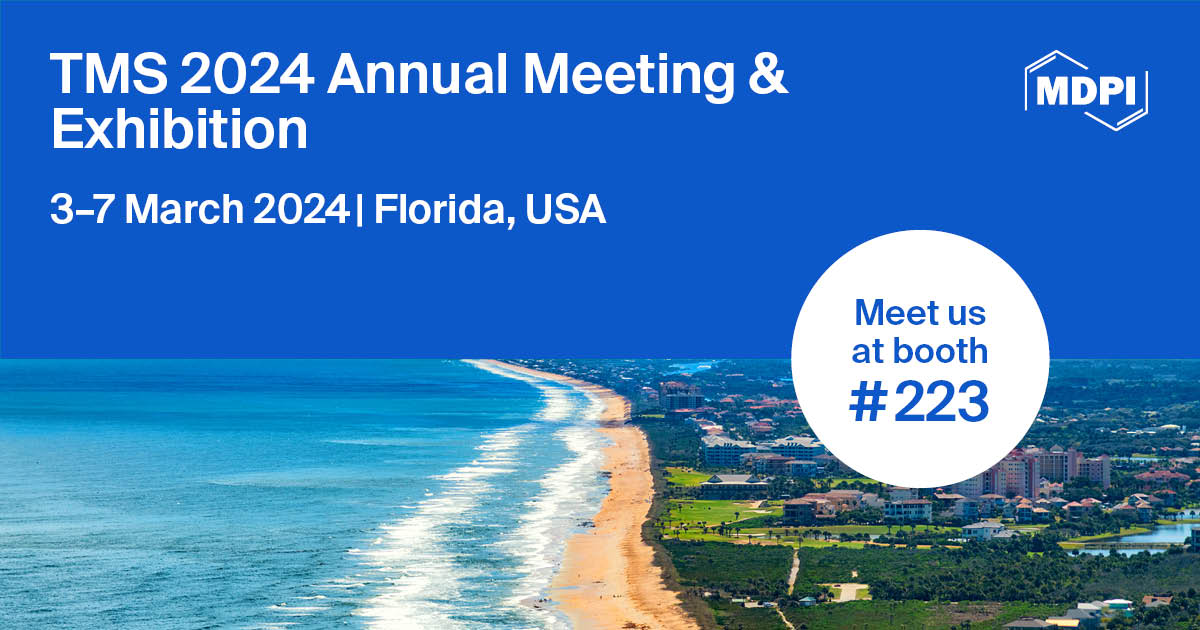
A range of MDPI journals will be attending the TMS 2024 Annual Meeting & Exhibition from 3 to 7 March 2024, at the Hyatt Regency Orlando, Orlando, Florida, USA.
The TMS Annual Meeting & Exhibition brings together more than 4,000 engineers, scientists, business leaders, and other professionals in the fields of minerals, metals, and materials for a comprehensive, cross-disciplinary exchange of technical knowledge.
The following MDPI journals will be represented:
If you are attending this conference, please feel free to drop by our booth and start a conversation with us. We look forward to meeting you in person and answering any questions that you may have. For more information about the conference, please visit https://www.tms.org/TMS2024/Home/, or contact the Materials Editorial Office at materials@mdpi.com or the Metals Editorial Office at metals@mdpi.com.
21 February 2024
Meet Us at ACS Spring 2024—Many Flavors of Chemistry, 17–21 March 2024, New Orleans, LA, USA

Conference: ACS Spring 2024
Organization: American Chemical Society
Date: 17–21 March 2024
Place: Halls D & E, New Orleans Ernest N. Morial Convention Center, New Orleans, LA, USA
Booth: #2530
MDPI journals will be attending ACS Spring 2024—Many Flavors of Chemistry as an exhibitor. This meeting will be held in New Orleans, LA, USA, from 17 to 21 March 2024.
The American Chemical Society (ACS) is one of the world’s largest scientific organizations with more than 151,000 members in 140 countries. ACS meetings and expos are held biannually. This expo is an opportunity for thousands of chemistry professionals to meet, share ideas, and advance scientific and technical knowledge. The topic in Spring 2024 is “Many Flavors of Chemistry”.
The following MDPI journals will be represented:
- Materials;
- Molecules;
- DDC (Drugs and Drug Candidates);
- Batteries;
- Chemistry;
- Colorants;
- Cosmetics;
- Fibers;
- Inorganics;
- Organics;
- Polymers;
- Separations;
- Symmetry;
- Analytica;
- AppliedChem;
- CIMB (Current Issues in Molecular Biology);
- Coatings;
- Crystals;
- Energies;
- JFB (Journal of Functional Biomaterials);
- Liquids;
- Magnetochemistry;
- Membranes;
- Reactions;
- Sustainable Chemistry.
If you are attending this conference, please feel free to start a conversation with us. Our delegates look forward to meeting you in person and answering any questions you may have. For more information about the conference, please visit the following website: https://www.acs.org/meetings/acs-meetings/spring.html.
1 February 2024
Acknowledgment of the Reviewers of Polymers in 2023
In recognizing the exceptional efforts of our reviewers in 2023, we express our sincere gratitude for upholding the high standards of Polymers. Their commitment ensured the rigorous peer review that is integral to quality academic publishing.
In 2023, Polymers received 15,373 review reports, from 8321 reviewers. This past year, we worked with reviewers from 103 countries and regions, reflecting the diversity in our collaboration with research communities. Their dedication shapes scholarly discourse and advances global research. The editorial team expresses gratitude for the vital role played by each reviewer in the Polymers family throughout 2023, and we look forward to their continued support in 2024.
The following are the reviewers who have consented to show their names:
| A. M. Fattahi | Lidija Slemenik Perše |
| A. Raja Annamalai | Lifen Li |
| Aamir Rasool | Liliana Argueta-Figueroa |
| Abdelaziz El-Hoshoudy | Liliana Licea |
| Abdolmajid Alipour | Liliana Reynoso-Cuevas |
| Abdorreza Mesgar | Liliya Frolova |
| Abdul Haleem | Liliya Logoyda |
| Abdul Jatoi | Linda Ansone-Bertina |
| Abhilash Edacherian | Ling Qin |
| Abhinay Thakur | Ling Yang |
| Abul Kalam Azad | Ling Zhao |
| Achmad Solikhin | Lingli Deng |
| Adam Pyzik | Ling-Ling Ma |
| Adam Sutton | Liping Gu |
| Adel Al Fatease | Lisandro Simão |
| Adel Elamri | Liseane Padilha Thives |
| Adela-Eliza Dumitrascu | Lishu Shao |
| Adina Magdalena Musuc | Liting Wang |
| Adrian Antosik | Liudmyla Soldatkina |
| Adrian Ionut Nicoara | Liyang Shen |
| Adrian Lewandowski | Ljiljana Kljajevic |
| Adrián Matencio | Ljubica Kazi |
| Adriana Balan | Ljubisa Nikolic |
| Adriana Dabija | Loganathan Veeramuthu |
| Adriana Pavinatto | Lokesh Karthik Narayanan |
| Adriano Aguiar Mendes | Lokesh Koodlur Sannegowda |
| Afshin Abrishamkar | Long Zhu |
| Aftab Khan | Longwei Jiang |
| Agata Niemczyk | Loredana Incarnato |
| Agnė Kairytė | Lorena Deleanu |
| Agnieszka Dąbrowska | Lorenza Maddalena |
| Agnieszka Marcinkowska | Lorenzo Antonio Picos Corrales |
| Agnieszka Piegat | Lorenzo Lisuzzo |
| Agnieszka Wiącek | Lorenzo Paolo Ingrassia |
| Agnieszka Zgoła-Grześkowiak | Luca Boccarusso |
| Agnishwar Girigoswami | Luca Bonaiti |
| Agustín Herrera-May | Luca Goglio |
| Agustina Alaimo | Luca Liviu Rus |
| Ahmad Adlie Shamsuri | Luca Sorrentino |
| Ahmad Kueh | Lucia Pirvu |
| Ahmad Rashed Labanieh | Lucia Toniolo |
| Ahmed Al-Qatatsheh | Lucia Trinca |
| Ahmed El-Fiqi | Lucjusz Zaprutko |
| Ahmed Elkaseer | Ludmila Dulebová |
| Ahmed El-Sayed | Luidmila Yakimova |
| Ahmed Eltwati | Luigi De Napoli |
| Ahmed Fatimi | Luis Alfonso Trujillo-Cayado |
| Ahmed Hassan Al Ghorab | Luís Alves |
| Ahmed Jasim | Luis Edmundo Lugo Uribe |
| Ahmed Maamoun | Luís Giner-Tarrida |
| Ahmed Taha | Luis Villarreal-Gómez |
| Ahmed Tara | Luisa Ferreira |
| Ahmed Zayed | Łukasz Szeleszczuk |
| Ahmet Can | Lukka Thuyavan Yogarathinam |
| Ahmet Gürses | M. Shahnawaz Khan |
| Aida Cavallo | Maciej Dębowski |
| Aidar Gubaidullin | Maciej Przybyłek |
| Aiman Abu Ammar | Maciej Skotak |
| Aivars Vembris | Maciej Sydor |
| Akbar Ali | Madhu Puttegowda |
| Akbar Hojjati-Najafabadi | Maduka Lankani Weththimuni |
| Akesh Kakarla | Magdalena Broda |
| Akinrinade Ayankojo | Magdalena Gierszewska |
| Akshay Ajay Narkhede | Magdalena Konefał |
| Al Mamun | Magdalena Rogulska |
| Alaa Abd-Elnaiem | Magdalena Tokarska |
| Alaa Fahmy | Magdalena Urbaniak |
| Alberto Gregori | Magdalena Włodarska |
| Alberto Mannu | Magdalena Wrona |
| Aldo Amaro-Reyes | Magdalena Zdanowicz |
| Aldobenedetto Zotti | Magdi El Fergani |
| Alejandra Baldi | Mahfouz Abd-Elgawad |
| Alejandra García García | Mahuya Das |
| Alejandra Torres | Maiyong Zhu |
| Alejandro J. Alvarez | Maja Kozarski |
| Alejandro Tapia | Majid Ali |
| Aleksandar Kondinski | Majid Baniassadi |
| Aleksandar Széchenyi | Maksim Zavalishin |
| Aleksander Poreda | Malaikozhundan Balasubramanian |
| Aleksandr Kozhevnikov | Małgorzata Ewa Zakrzewska |
| Aleksandr Levin | Małgorzata Kosińska-Pezda |
| Aleksandra Bukhovets | Malgorzata Ulewicz |
| Aleksandra Mikhailidi | Małgorzata Wasilewska |
| Aleksandra Smejda-Krzewicka | Malgorzata Zieba |
| Aleksei A. Titov | Malik Abdul Rub |
| Aleksei Shchegolkov | Manickam Ramesh |
| Aleksey D. Drozdov | Manikandan Sivan |
| Aleksey Kuznetsov | Maninder Singh |
| Ales Buyakov | Manjunath Maddikeari |
| Alessandro Cavallo | Manjunath Patel Gowdru Chandrashekarappa |
| Alessandro Marrone | Manjunath Shettar |
| Alessandro Piovano | Manoj Kumar Pasupathi |
| Alexander Bunge | Manorama Singh |
| Alexander Dolgoborodov | Manuel José Lis Arias |
| Alexander Eliseev | Manuela List |
| Alexander Fomin | Maojun Li |
| Alexander Kaszonyi | Maosud Soroush Bathaei |
| Alexander Lykov | Maozhou Meng |
| Alexander Malkin | Mar Fernandez Gutierrez |
| Alexander Martynov | Marc Visseaux |
| Alexander Minakov | Marcela Slovakova |
| Alexander Nikolaev | Marcelin Benchea |
| Alexander Omelyanchik | Marcelo Suzuki |
| Alexander Pozdnyakov | Marcin Borowicz |
| Alexander Protsenko | Marcin Chutkowski |
| Alexander Tarasov | Marcin Górski |
| Alexander Toikka | Marcin Graba |
| Alexander V. Artem’ev | Marcin Włoch |
| Alexander Vasil’kov | Marco Bonopera |
| Alexander Voloshin | Marco Carnevale Miino |
| Alexandra Bargan | Marco Dattilo |
| Alexandre Vetcher | Marco Freschi |
| Alexandre Zakharov | Marco Mandolini |
| Alexandrina Nan | Marco Zanetti |
| Alexej Bubnov | Marcos Teixeira |
| Alexey Beskopylny | Marek Pagáč |
| Alexey Bobrovsky | Marek Piątkowski |
| Alexey Cheremisin | Marek Pokorny |
| Alexey Iordanskii | Marek Szostak |
| Alexey Sivokhin | Marek Urbanski |
| Alexey Slobodinyuk | Margaret Gradova |
| Alexey Yushkin | Margherita Izzi |
| Alfredo Vázquez-Ovando | Maria Addolorata Bonifacio |
| Ali Aghajanian Sabbagh | Maria Carmo Lança |
| Ali Asghar Javidparvar | María Dolores Galindo-Riaño |
| Ali Atta | Maria Federica De Riccardis |
| Ali Ayati | Maria Jose De Jesus Valle |
| Ali Behboudi | María José Martín-Alfonso |
| Ali Dabbagh | Maria Kalourkoti Rikkou |
| Ali Ebrahimi-Mamaghani | Maria Pia Ferraz |
| Ali Kandemir | Maria Rios |
| Ali Mardani | Maria Stanca |
| Ali Rafe | Maria Zielecka |
| Ali Reza Kamali | Mariacecilia Pasini |
| Ali Salem | Marian Ion |
| Ali Taghvaie Nakhjiri | Mariana Domnica Stanciu |
| Ali Umut Sen | Mariana Palage |
| Ali Zarrabi | Mariana Sofia Peixoto Fernandes |
| Alin Dinita | Marianna Arinina |
| Alina Crina Muresan | Marianna Triantou |
| Alireza Akhavan-Safar | Mariano Romero |
| Alireza Hadi | Marichelvam Mariappan Kadarkarainadar |
| Alireza Mohammad Karim | Marija Babić Radić |
| Alireza Moradkhani | Marija Gizdavic-Nikolaidis |
| Aliya Hasanah | Marija M. Vuksanović |
| Almaz Saifutdinov | Marija Milašinović-Šeremešić |
| Alperen Degirmenci | Marija Stojmenović |
| Alvaro Ridruejo | Marina Corral Bobadilla |
| Amalia Gordano | Marina Holyavka |
| Ambikapathi Nivetha | Marina Zoccola |
| Amer Charbaji | Mario Ruiz |
| Amin Tamadon | Mário Santos |
| Aminoddin Haji | Maris Knite |
| Amir Hussain Idrisi | Mariusz Fabijański |
| Amir Mansourizadeh | Mariusz Jaśniok |
| Amir R. Masoodi | Mariya Dimitrova |
| Amirhossein Moghanian | Mark B. Frampton |
| Amjad Hussain | Marko Petrič |
| Ammar Melaibari | Markos Petousis |
| Amr Selim Abu Lila | Marlinda Rahman Ab Rahman |
| Amroune Salah | Marta Fernandes |
| Ana Cazacu | Marta Kaluza |
| Ana Clotilde Fonseca | Marta Skaf |
| Ana Dora Pontinha | Marta Szekalska |
| Ana Filgueiras | Marta Wójcik |
| Ana Maria Tanase | Martin Ivanov |
| Ana Messias | Martin Pollák |
| Ana Paula Betencourt Martins Amaro | Marwa Elkady |
| Ana Paula Serafini Immich | Marya Ahmed |
| Ana Pilipović | Masoud Ahmadi |
| Ana Ribeiro | Masoud Nazarian-Samani |
| Ana Vrsalović-Presečki | Masoumeh Ghalkhani |
| Ana-Maria Pană | Massimiliano Avalle |
| Anastassiya Mashentseva | Massimiliano Gaeta |
| Anatoly Rinkevich | Massimiliano Galluzzi |
| Anbazhagan Sathiyaseelan | Massimo Corsalini |
| Anca Bonciu | Massimo Mariello |
| Anda Barkane | Mastura Mohammad Taha |
| Anderson M. S. Medeiros | Mathias Ulbricht |
| André Christoforo | Matteo Minelli |
| André Lopes | Matteo Sambucci |
| Andrea Baliello | Matteo Strozzi |
| Andrea Boghi | Matthias Schwotzer |
| Andrea Mezzetta | Mattia Bartoli |
| Andrea Rosario Proto | Matyas Ando |
| Andrea Tagliabue | Mauricio Morel |
| Andreas Pacholski | Mauricio Torres |
| Andreas Sundermann | Maurizio Vignolo |
| Andreas Willert | Mauro Bassetti |
| Andreea Groza | Maxim Galkin |
| Andrei Klyndyuk | Maxim Lutoshkin |
| Andrei Okhokhonin | Maxim Mishnev |
| Andrei Potapov | Maximilian Lackner |
| Andrei Tumarkin | Mayra Alvarez |
| Andres-Amador Garcia-Granada | Mayra Gurrola |
| Andrey Basko | Mazen Al-Kheetan |
| Andrey Krauklis | Megat Ahmad Kamal Megat Hanafiah |
| Andrey Nagdalian | Mehdi Derradji |
| Andrey Shcherbakov | Mehdi Hatami |
| Andrey V. Sybachin | Mehdi Salami-Kalajahi |
| Andrey Vasilev | Mehmet Senel |
| Andrey Yurkov | Melanie Ecker |
| Andrii Kondratiev | Meng He |
| Andrzej Ambroziak | Meng Song |
| Andrzej Hutorowicz | Meng Wu |
| Andrzej Katunin | Meriem Fizir |
| Andrzej Łukaszewicz | Meysam Heydari Gharahcheshmeh |
| Andrzej Miszczyk | Michael Arkas |
| Andrzej Pawlak | Michael G. Debije |
| Angel Fernandez Cuello | Michael Roger Mucalo |
| Angelo Ferlazzo | Michaela Patila |
| Angelo Savio Calabrese | Michał Łach |
| Anik Karan | Michel Fillon |
| Anil Banerjee | Michele Baglioni |
| Anil Kumar Siroha | Mickaël Dollé |
| Anilkumar Thaghalli Shivanna | Mieszko Wieckiewicz |
| Anima Ghosh | Miguel Sanchez-Soto |
| Animesh Pan | Miha Steinbucher |
| Aninidta De | Mihaela Balan-Porcarasu |
| Anjan Bedi | Mihaela Hamcerencu |
| Anjaneyulu Putta | Mihaela Iuliana Avǎdǎnei |
| Anjani Devi Chintagunta | Mihai Brebu |
| Anka Trajkovska Petkoska | Mihai Gîrțu |
| Anna Baranowska-Korczyc | Mihai Todică |
| Anna Braga | Mihail Secu |
| Anna Drabczyk | Mihalj Poŝa |
| Anna Kamenskikh | Mikelis Kirpluks |
| Anna Karewicz | Mikhail Basov |
| Anna Kulminskaya | Mikhail Efimov |
| Anna Mielańczyk | Mikhail Gapanovich |
| Anna Paradowska-Stolarz | Mikhail Inyushin |
| Anna Rabajczyk | Mikhail Krakhalev |
| Anna Rudawska | Mikhail Proskurnin |
| Anna Shipovskaya | Mikhail Savelyev |
| Anna Strzelewicz | Mikhail Soldatov |
| Annalisa Paolone | Mikhail Vorob'ev |
| Annalisa Volpe | Milad Sheydaei |
| Annamaria Visco | Milan Kragović |
| Anne Heponiemi | Milda Jucienė |
| Anqi Ji | Milica Aćimović |
| Anthony Harker | Milos Nenadovic |
| Anthony Thuault | Mina Namvari |
| Anton Mostovoy | Mine Seçkin |
| Anton Tkachenko | Ming Gao |
| Antonella Patti | Ming Zeng |
| Antoneta Tomljenović | Mingjing Zheng |
| Antoni Mitus | Mingliang Li |
| Antonio Apicella | Mingze Sun |
| Antonio Capezza | Mingzhe Chen |
| Antonio Di Martino | Mini K. Madhavan |
| Antonio Gilson Barbosa De Lima | Mir Saman Safavi |
| António Pereira | Miran Merhar |
| Antonios Stamopoulos | Mirella Bertolo |
| Antonis Gitsas | Mirjana Kostic |
| Antony Raj Thiruppathi | Miroslav Němec |
| Antreas Kantaros | Mirta Inés Aranguren |
| Anushree Das | Mititelu Magdalena |
| Anvay Patil | Mizhi Xu |
| Anwar Iqbal | Mohamad Al-Sheikhly |
| Anżelina Marek | Mohamadreza Zarastvand |
| Apri Iswanto | Mohamed Abd El-Aal |
| Arantzazu Santamaria-Echart | Mohamed Abdel-Hamed |
| Arbind Prasad | Mohamed Ali |
| Arianna De Mori | Mohamed Bakar |
| Arif Babaev | Mohamed Darwish |
| Arif Nuryawan | Mohamed Diab |
| Aris Giannakas | Mohamed ElAassar |
| Aristotelis Sgouros | Mohamed Habila |
| Arit Das | Mohamed Korrany Hassan Ibrahiem |
| Arkadiusz Bednarz | Mohamed Orabi |
| Arkamitra Kar | Mohamed Salaheldeen |
| Armida Sánchez-Escalante | Mohamed Samir Mohyeldin |
| Armin Mirzapour Kouhdasht | Mohamed Shaban |
| Arnaldo Santos | Mohamed Trabia |
| Arnold Isaac | Mohammad Ali Mohtadi Bonab |
| Arshad Jamal | Mohammad Al-natour |
| Artem Belesov | Mohammad Arafat |
| Artem Selyutin | Mohammad Bagher Askari |
| Artur Geivandov | Mohammad Bayan |
| Artur Khannanov | Mohammad Ehtisham Khan |
| Artūras Žalga | Mohammad Hassan |
| Arun Kumar | Mohammad Kazem Mohammadi |
| Arun Kumar Patra | Mohammad Mohsenzadeh |
| Arun Kumar Rajendran | Mohammad NasimAhmad Khalid Anwer |
| Arun Kumar Shukla | Mohammad Rabbani |
| Arun Y. Patil | Mohammad Sayem Mozumder |
| Aruna Dhathathreyan | Mohammad Tajul Islam |
| Arunasankar Chithambar Ganesh | Mohammed Awad |
| Arunkumar Palaniappan | Mohammed Ghazwani |
| Arvind Negi | Mohammed Kadhom |
| Arwa Daghrery | Mohammed Mossa Al-Sawalha |
| Asep Muhamad Samsudin | Mohana Rani Gokana |
| Ashish Mohite | Mohd Remy Rozainy Mohd Arif Zainol |
| Ashish Pandey | Mohd Shahbudin Masdar |
| Ashlin Sathyan | Mohd Yusuf Khan |
| Ashmeet Singh | Mohd Zamidi Ahmad |
| Ashraf Ali | Mohsin Khurshid |
| Asif Mahmood | Moisés Franco Molina |
| Asim Bhaumik | Moiz Abdul |
| Asimul Islam | Mojtaba Karamimoghadam |
| Asmaa Selim | Mojtaba Lezgy-Nazargah |
| Assadawoot Srikhaow | Mona Al-Shemy |
| Asunción Martínez García | Mona Mohamed Amin Abdel-Fatah |
| Atasi Dan | Mondher Wali |
| Ateeq Rahman | Monica Boffito |
| Athina Angelopoulou | Monica Trif |
| Atul Dhall | Monika Wereńska |
| Atul Kumar | Moon-Sung Kang |
| Augusto Cannone Falchetto | Morteza Yousefi |
| Aurelia Mandes | Moslem Fattahi |
| Aurica Farcas | Mostafa Mabrouk |
| Avishek Chanda | Mostafa Shooshtari |
| Avtar Singh | Mostafizur Rahaman |
| Aydi Abdelkarim | Mounesha Garaga |
| Ayhan Celik | Moussa Leblouba |
| Azadeh Babaei | Moyuan Cao |
| Aziah Serri | Mrinmoy Karmakar |
| Azizollah Khormali | Mrinmoy Mondal |
| B. NagarajaGanesh | Muahammad Atiq Ur Rehman |
| Babak Chehroudi | Muammel Hanon |
| Babak Eslami | Muhammad Aamir |
| Badr M. Thamer | Muhammad Adnan |
| Bahaa Shaqour | Muhammad Ali Hashmi |
| Bahram Dabir | Muhammad Asim Farooq |
| Baiju Pazhamkalathil Krishnan | Muhammad Bilal Sadiq |
| Balakumar Chandrasekaran | Muhammad Fareed |
| Baltus Cornelius Bonse | Muhammad Imran Khan |
| Balzhima Shagdarova | Muhammad Imran Malik |
| Bangaru Bhaskararao | Muhammad Imran Saleem |
| Bappaditya Naskar | Muhammad Iqbal |
| Barbara Kozub | Muhammad Kashif Shahid |
| Barbara Lapinska | Muhammad Raziq Rahimi Kooh |
| Barbara Pilch-Pitera | Muhammad Saeed |
| Barbara Stella | Muhammad Shafiq |
| Bargel Hendrik | Muhammad Wajid Ullah |
| Bartłomiej Ambrożkiewicz | Muhammet Ceylan |
| Basak Tuna | Mujeeb Khan |
| Beata Dudziec | Murali Dama |
| Beatriz Merillas | Murat Demiral |
| Begüm Yarar Kaplan | Murillo-Gómez Fabián |
| Behnam Akhoundi | Murni Sarian |
| Béla Gyurcsik | Murugan Arunachalam |
| Belén Altava | Mustafa Anwar |
| Bence Sipos | Mustafa Mortas |
| Benedikt Kötter | Mu'tasime Abdel-jaber |
| Benjamín Floran Garduño | Muthu Arumugam |
| Bernardo Ribeiro | Muyang Lin |
| Bernd Rathke | N. Senthilkumar |
| Bharadwaja Srimat Tirumala Peddinti | N. H. Padmaraj |
| Bharat Shrimant | Nabila Mehwish |
| Bhim Sen Thapa | Nabilah Afiqah Mohd radzuan |
| Bhishma Karki | Nader Nciri |
| Bhupendra Prajapati | Nader Tanideh |
| Bin Quan | Nadia Intan |
| Bin Sheng | Nafisa Gull |
| Binbin Chen | Nagaraj Nagaprasad |
| Bindu Madhavan Vijaya Ramnath | Nagaraj Nandihalli |
| Bindu Subhadra | Naji Kharouf |
| Binfeng Yin | Namil Kim |
| Bing Wang | Namkyung Lee |
| Bingchen Wang | Namrata Patil |
| Binoy Maiti | Nancy Elbaz |
| Binyang Du | Naozumi Teramoto |
| Bishnu Prasad Bastakoti | Naresh Duvva |
| Björn Sjöstrand | Naresh Kumar |
| Blaž Belec | Naresh Kumar Thangavel |
| Bo Liu | Naresh Reddy Kolanu |
| Bob Howell | Nashwa Sallam |
| Bogdan Alexandru Sava | Natalia Chumakova |
| Bogdan Marian Tofanica | Natalia Gogoleva |
| Bogdan Pricop | Natalia Pozdnyakova |
| Bogdan Tutunaru | Nathalie Lavoine |
| Bogdan Vasyliv | Naveed Ahmed |
| Boguslaw Kruczek | Naveen Vasudev Kulkarni |
| Bohan Yin | Nebojsa Pavlovic |
| Bolin Ji | Neelesh Mehra |
| Boonyadist Vongsak | Neetu Talreja |
| Boryana Nikolova-Mladenova | Nenad Ignjatović |
| Boyuan Yu | Nicholas Farr |
| Bozhidar Stefanov | Nicholas Long |
| Branka Pilic | Nicola Baldo |
| Brian Cameron Wooding Webb | Nicola Montaldo |
| Briatico-Vangosa Francesco | Nicola Sangiorgi |
| Bridget Mutuma | Nicolas Joly |
| Brigita Tomšič | Nicoleta Radu |
| Brunella Corrado | Nieves Cubo-Mateo |
| Bruno Caillier | Nikola Španić |
| Bryan Beckingham | Nikolaos Chalmpes |
| Brzeczek-Szafran Alina | Nikolaos Politakos |
| Burcu Gumuscu | Nikolay Bezhin |
| Calin Steindal | Nikolay Gorshkov |
| Camilla Noè | Nikolay Pyataev |
| Candace Day | Nikos Karayiannis |
| Cândida Malça | Nils Hanik |
| Cândida Teixeira Tomaz | Nima Mohamadian |
| Carlos Bruno Barreto Luna | Ning An |
| Carlos Cuevas-Suárez | Niranjan Patra |
| Carlos Doñate Buendia | Nirav Joshi |
| Carlos Henrique Scuracchio | Noboru Osaka |
| Carlos Jesús Carrasco | Noorfatimah Yahaya |
| Carlos Medina | Nora Mestorino |
| Carlos Miguel Marto | Norazlianie Sazali |
| Carmen Mihailescu | Noriko Hiraishi |
| Carmen Moreno-Marrodan | Noureddine Issaoui |
| Carmen Otilia Rusănescu | Nuno Costa |
| Carolina André | Nuno Ferreira |
| Caroline Aymes-Chodur | Nunzia Gallo |
| Catalin Pruncu | Nuttawee Niamsiri |
| Catia Algieri | Oana Pop |
| Catia Giovanna Lopresto | Oguzhan Der |
| Celal Duran | Oksana Velgosova |
| Célio Fernandes | Oksana Zholobko |
| César Cayo-Rojas | Ola Sundman |
| Cesar Saldias | Olawumi Sadare |
| Cevat Erisken | Oleg Gradov |
| Ceyhun Akarsu | Oleg Khyzhun |
| Ceyhun Aksoylu | Oleg Sazonov |
| Cezar Comanescu | Oleg Shichalin |
| Cezary Kraśkiewicz | Oleg Yaroshchuk |
| Chairul Irawan | Olena Ivashchenko |
| Chanchira Jubsilp | Olesya Buryakovskaya |
| Chang-An Xu | Olga Goryacheva |
| Changcheng Liu | Olga Karavai |
| Changmin Shi | Olga Sinitsyna |
| Chang-Min Yoon | Olga Yarmolenko |
| Chan-Moon Chung | Olga Zhigalina |
| Chao Kai Chang | Oliver Brüggemann |
| Chao Zhao | Olivia Soliman |
| Chaofan Sun | Olivier Coutelier |
| Chaoliang Fu | Olli-Ville Laukkanen |
| Chek Hai Lim | Olya Stoilova |
| Chellapandian Maheswaran | Omar Mahmoud |
| Chen Li | Omer Sadak |
| Chen Xie | Omid Akhavan |
| Cheng Chen | Omid Sam-Daliri |
| Cheng Gu | Onur Cetinkaya |
| Cheng Lian | Orion Itzhak |
| Chengbin Yu | Osman Konuray |
| Chenggao Li | Osman Ülkir |
| Cheng-Hsun-Tony Chang | Ovidiu Nemes |
| Chenxi Wang | Ovidiu-Cristian Oprea |
| Chenxi Zhai | Pablo Lopez-Albarran |
| Chen-Yu Kao | Pablo Stefani |
| Cherng-Wen Darren Tan | Pablo Zapico |
| Chi Zhang | Pai Peng |
| Chi-Chun Pan | Pai-Yi Hsiao |
| Chih-Feng Huang | Panagiotis Mallis |
| Chih-Hao Lee | Panagiotis Stavropoulos |
| Chi-Hui Tsou | Pandiyarasan Veluswamy |
| Chih-Wen Wu | Paola Faraoni |
| Chinmai Bhat | Paola Nitti |
| Chis Adriana Aurelia | Paolo Trucillo |
| Christian Bux | Paresh Samantaray |
| Christian Gernhardt | Parisa Mojaver |
| Christian Mayer | Parthena Kosmidou |
| Christian Schuster | Parvathalu Kalakonda |
| Christian Wiraja | Paschalina Terzopoulou |
| Christie Ying Kei Lung | Pasquale Fernando Fulvio |
| Christophe Boisson | Patric Eberle |
| Christos Katsiropoulos | Patricia Kara De Maeijer |
| Chukwuemeke William Isaac | Patrícia Manarte-Monteiro |
| Chun Lin He | Patrick Martin |
| Chunbao Du | Patrycja Makoś-Chełstowska |
| Chunmei Ding | Paul Marshall |
| Chunxin Ma | Paul O'Brien |
| Chuyen Van Pham | Paul Sundaram |
| Cíntia Helena Saraceni | Paula Navascués |
| Ciprian Cristea | Paulina Parcheta-Szwindowska |
| Clara Casado Coterillo | Paulius Griskevicius |
| Claudia Espro | Paulo Jorge Palma |
| Claudia Pelosi | Paulo Nobre Balbis Dos Reis |
| Claudia Sergi | Pavel Demakov |
| Claudio Caprari | Pavel Ivchenko |
| Claudio Terraza | Pavel Melnikov |
| Claudio Tosto | Pavel Mokrejš |
| Conghua Lu | Pavel Nikishau |
| Constantin Chalioris | Pavel Padnya |
| Corneliu Cojocaru | Pavel Rehak |
| Costel Ciubotariu | Pavel S. Koroteev |
| Cristian Peptu | Pavel Zelenovskiy |
| Cristian Petcu | Pavlo Kryvenko |
| Cristian Simion | Paweł Palutkiewicz |
| Cristiano Fragassa | Paweł Piszko |
| Cristie Luis Kugelmeier | Paweł Sułkowicz |
| Cristina Busuioc | Payal Ganguly |
| Cristina Cazan | Payam Shafigh |
| Cristina Chircov | Pedaballi Sireesha |
| Cristina Martin Sabroso | Pedram Azari |
| Cristina Pelin | Pedro José Rivero |
| Cyril Nicolas | Pedro Luis De Hoyos Martínez |
| Da Cao | Pedro Maireles-Torres |
| Dagmara Bajer | Peibo An |
| Da-Hua Wei | Peilong Hou |
| Daijun Feng | Peng Miao |
| Dajana Kučić Grgić | Pengfei Wang |
| Daksh Shelly | Pengfei Zhao |
| Dalel Daâssi | Petar Antov |
| Dalius Jucius | Peter Hammer |
| Damián Reyes Jáquez | Peter O'Connell |
| Damiano Spagnuolo | Peter Rusinov |
| Dan Rosu | Peter Timmins |
| Dan Wang | Petr Kadlec |
| Dana Elena Popa | Petr Pantyukhov |
| Dania Olmos | Petr Snetkov |
| Daniel Breite | Pezhman Shiri |
| Daniel Fernández-Quiroz | Pham Son Minh |
| Daniel Gromadzki | Phan Vu Hoang Giang |
| Daniel Olvera-Trejo | Philip Barnett |
| Daniel Otto | Philipp Röse |
| Daniel Torres-Lagares | Philippe Colomban |
| Daniel Wałach | Philippe Lecomte |
| Daniela Franke | Pier Nicola Sergi |
| Daniela Ionita | Piere Rodriguez-Aliaga |
| Daniela Karashanova | Pierluigi Stipa |
| Daniela Rusu | Pierre-Alexandre Blanche |
| Daniele Battegazzore | Pietro Mandracci |
| Daniele Eugenio Lucchetta | Pietro Renato Avallone |
| Daniele Mantione | Pilanee Vaithanomsat |
| Daniil Kozlov | Ping Liu |
| Danilo Justino Carastan | Piotr Zieliński |
| Danuta Król | Polona Dobnik Dubrovski |
| Danuta Matykiewicz | Posa Sudhakara |
| Dany Munoz-Pinto | Pouyan Ghabezi |
| Daodao Hu | Prabhanjan Giram |
| Dapeng Chen | Prabhu Paramasivam |
| Daqin Guan | Pradeep Lamichhane |
| Daria Voropaeva | Pradeep Panda |
| Darkhan Yerezhep | Pradip Bhowmik |
| Dave Mangindaan | Pranav Nawani |
| David De Smet | Pranjali Naik |
| David Penaloza | Prashanth Ravishankar |
| David Sergeevichev | Pratik Koirala |
| David Šilha | Praveena Bindiganavile Anand |
| David Wheeler | Prhashanna Ammu |
| Davide Ciceri | Priyaranjan Samal |
| Davide Masato | Prokopios Georgopanos |
| Davide Nocita | Proloy Taran Das |
| Davood Rahmatabadi | Przemysław Mania |
| Davor Kržišnik | Przemysław Podulka |
| Debasis Mitra | Pulak Bhushan |
| Debjit Roy | Purushothaman Kuppan |
| Dengxu Wang | Qi Cai |
| Denis Pankratov | Qi Chen |
| Denis Rodrigue | Qi He |
| Dervis Ozkan | Qian Mao |
| Desimir Knežević | Qiancheng Zhu |
| Deutou Nemaleu Juvenal Giogetti | Qiang Li |
| Devarajan Balaji | Qiao Yan |
| Devayani R. Tipre | Qifeng Zhang |
| Dezhi Yang | Qiguo Rong |
| Dhan Lord Fortela | Qing Wang |
| Dharmendra Singh | Qingchang Liu |
| Dhruvi Patel | Qinghua Wang |
| Diana Cholakova | Qingquan Liu |
| Diana Ciolacu | Qingshan Dong |
| Diego Romano Perinelli | Qixuan Zheng |
| Dieter Dirksen | Qiyi Zhang |
| Dignesh Khunt | Quanjin Ma |
| Dihao Wang | Que Huang |
| Dimitris Tsamatsoulis | Quentin Bourgogne |
| Din Bandhu | Quoc Bao Le |
| Dinakaran Thirumalai | Quyen Vu Thi |
| Dinara Sobola | Rabah Azouani |
| Dinesh Barak | Rachel Partovi |
| Dinesh Patel | Rachid Touzani |
| Dinesh Salunke | Rada Kazakova |
| Dinesh Veeran Ponnuvelu | Radu Racovita |
| Divya Dheer | Rafael Camarillo |
| Divya Prasad | Rafael Das Chagas |
| Divya Sivasubramani | Rafael Guerra Lund |
| Djalal Trache | Rafael Guillen |
| Dmitrii Stoliarov | Rafael Melo |
| Dmitrijs Serdjuks | Rafal Szukiewicz |
| Dmitry Buslovich | Rafal Ziobro |
| Dmitry Kiesewetter | Raheel Ahmad |
| Dmitry Selishchev | Rahela Kulčar |
| Dmitry Zimnyakov | Rahmat Ullah |
| Doina Dimonie | Raj Arya |
| Domagoj Drenjančević | Rajender Boddula |
| Domenico Licursi | Rajendran Suresh Babu |
| Dong Zhang | Rajeshkumar Lakshminarasimhan |
| Dongping Zhu | Rajeshkumar Selvaraj |
| Dongsheng Lei | Raji Atchudan |
| Dong-Wook Han | Raji Govindan |
| Dongxia Ye | Rajwali Khan |
| Dongyu Bai | Rakesh Chaudhari |
| Dongzhao Jin | Rakesh Rajaboina |
| Dorota Chełminiak-Dudkiewicz | Ralf Sindelar |
| Dorota Krasowska | Ralitsa Velinova |
| Dorota Siuta | Raluca Nicoleta Darie-Nita |
| Dragan Marinkovic | Raluca Nicu |
| Drahomír Čadek | Ram Krishna Upadhyay |
| Duangjai Tungmunnithum | Rama Krishna Alla |
| Dumitru Popovici | Rameswar Bhattacharjee |
| Dumitru-Doru Burduhos-Nergis | Ramiro Guerrero-Santos |
| Dunja Gorjanc | Ramon Miralbes Buil |
| Dustin Shipp | Ramón Raudel Peña Garcia |
| Dzmitry Shcharbin | Ran Li |
| Ebrahim Seidi | Rando Tuvikene |
| Ecevit Bilgili | Ranjit De |
| Edgars Elsts | Ranz Stelzer |
| Edit Csapó | Rasoul Shadnia |
| Edith Luévano-Hipólito | Rathinavel Vedalakshmi |
| Edoardo Bocci | Ravan Rahimov |
| Edson Roberto Santana | Ravi Pandiselvam |
| Eduard-Marius Lungulescu | Ravi Tutika |
| Eduardo Alberto López-Maldonado | Ravichandran Kollarigowda |
| Eduardo Guzmán Solís | Ravichandran Manickam |
| Eduardo Moreira Da Silva | Ravichandranath Singathi |
| Eduardo Pereira | Razvan Udroiu |
| Edyta Małachowska | Reda El-Shishtawy |
| Egemen Avcu | Reinier Akkermans |
| Egidijus Griskonis | Renata Adami |
| Egor Morokov | Renata Coelho Rodrigues Noronha |
| Ehsan Arshid | Rene Buchet |
| Ehsan Bari | Rene Rietra |
| Ehsan Mohammadi Zahrani | Reza Alebrahim |
| Ekaterina Dinastiia | Reza Salehiyan |
| Ekaterina Naumenko | Reza Shirazi |
| El Hadi Erbiai | Rezwanul Haque |
| Elahe Amini | Riadh Neffati |
| Elaheh Jooybar | Ricardo Branco |
| Elanthamilan Elaiyappillai | Ricardo Mendes |
| Eleftheria Pechlivani | Ricardo Ribeiro |
| Elen Pacheco | Riccardo Beltrami |
| Elena Balashova | Ridwan Pratama Putra |
| Elena Colusso | Rita Mota |
| Elena Dinte | Ritesh Verma |
| Elena Golubeva | Ritu Raval |
| Elena Kelbysheva | Rizwan Khan |
| Elena Magaril | Roald Tiggelaar |
| Elena Torrieri | Robert Carleer |
| Elena Torskaya | Robert Kosturek |
| Elena-Raluca Baciu | Robert Matos |
| Eleni Aretoulaki | Robert Panowicz |
| Eleni Gianni | Roberto Ambrosio Lazaro |
| Eleonora Desnica | Roberto Pastore |
| Eligiusz Postek | Roberto Ruiz-Caro |
| Elisa Toto | Roberto Spina |
| Elsayed Gamal Zaki | Roddel Remy |
| Elshad Allahyarov | Rodrigo Lins |
| Elvira Pantuso | Rogelio Cuevas-García |
| Elyor Berdimurodov | Rogelio Rodríguez Rodríguez |
| Elżbieta Megiel | Roger Rowell |
| Emad Mohamed Masoud | Rogerio Buchaim |
| Emad Newair | Rogerio de Sousa Junior |
| Emad Soliman | Roghayeh Heiran |
| Emad Yousif | Roman Marsalek |
| Eman Fayad | Roman Popielarz |
| Emanuele Maccaferri | Roman Shishkin |
| Emilia Janiszewska-Turak | Roman V. Toms |
| Emiliano Bedini | Rony Mia |
| Emiliano Pasquini | Roozbeh Abedini-Nassab |
| Emmanouil-Georgios Tzanakakis | Rosa María Camacho-Ruiz |
| Emmanuel Fortunato Gulino | Rosanna Tofalo |
| Emna Cherif | Roshan Thotagamuge |
| Emna Helal | Rossella Arrigo |
| Emre Kinaci | Rossella Surace |
| Eng-Tong Phuah | Roxana Gabriela Zgârian |
| Engy Elekhnawy | Roxana Jijie |
| Ennio Cocca | Rozli Zulkifli |
| Enrique Casarejos | Ruben Foresti |
| Enrique Cuan-Urquizo | Rubén Gonzalez Nunez |
| Enrique Saldívar-Guerra | Rudolf Kiefer |
| Erkan Senses | Rudolf Pfaendner |
| Ervin Kovács | Rui Cheng |
| Esmat Ali | Rui Dai |
| Essam Abdel-Fattah | Rui Li |
| Ester Chiessi | Ruiheng Wu |
| Ester Guaus | Ruijie Ma |
| Esther Rebollar | Ruoxing Wang |
| Esther Treviño | Rustam Gumerov |
| Eugene Postnikov | Ruth Mwongeli Muthoka |
| Eugene Statnik | Ryszard Cierpiszewski |
| Eugenio Meloni | S. M. Anas |
| Eun-Suk Jang | Sabarinathan Pushparaj Subramaniyan |
| Eva Santos | Sachin Salunkhe |
| Evangelia Tarani | Sadaf Bashir Khan |
| Evangelia Vouvoudi | Saeed Olyaee |
| Evangelina García-Armenta | Saeid Lotfian |
| Evelina Pavlovna Domashevskaya | Sagar Pardeshi |
| Everaldo Silvino Dos Santos | Sagarmoy Mandal |
| Ewa Głowińska | Sahand Sarbishei |
| Ewa Korzeniewska | Saif Qaid |
| Ewa Olȩdzka | Saishuai Wen |
| Ewa Olewnik-Kruszkowska | Sajal Sen |
| Fabiano Rodembusch | Sakshum Khanna |
| Fabio Ganazzoli | Salatul Islam Mozumder |
| Facundo Almeraya-Calderón | Salim Albukhaty |
| Facundo Mattea | Sallal Abid |
| Faizan Ullah | Salvatore Andrea Pullano |
| Fang-Cheng Liang | Sameer Awad |
| Fanny Monteil-Rivera | Sameer Hussain |
| Farong Huang | Samina Mehnaz |
| Fatih Doǧan | Samir Cimic |
| Fatima Ezzahra Arrakhiz | Sándor Beszédes |
| Fatouma Mohamed Abdoul-Latif | Sandor Solyom |
| Fausto Tucci | Sanja Bogojevic |
| Fawaz Aldabbagh | Sanja Ražić |
| Fedor Barkov | Sanjay Kumar Singh Patel |
| Fei Pan | Sanjit Acharya |
| Feipeng Yang | Sanjiv Prashar |
| Feiyu Xu | Sanjoy Paul |
| Felipe Kodaira | Santanu Pradhan |
| Feng Chen | Santhana Krishna Kumar Alagarsamy |
| Feng Guo | Santiago Casado |
| Feng Li | Santiago Pedro Aubourg Martínez |
| Ferdows B. Zarrabi | Santo Previti |
| Fernanda Medeiros Borsagli | Santosh Kumar Sahu |
| Fernanda Tonelli | Sapana Jadoun |
| Fernanda Vilarinho | Sara Cerra |
| Fernando Aguilar-Ayala | Sascha Rohn |
| Fernando Carrillo-Navarrete | Sathish Kumar Palaniappan |
| Fernando Notario-Pérez | Satish Vishwanathaiah |
| Filipa Pires | Saul Utrera-Barrios |
| Filippo Pierini | Saurabh Mishra |
| Filiz Lokumcu Altay | Saurabh Sharma |
| Fiora Artusio | Sayan Ganguly |
| Fioretta Asaro | Sayan K. Das |
| Florian Csarman | Scott Iacono |
| Florian Pape | Sean-Thomas Lundin |
| Fnu Asaduzzaman | Sebastian Schwaminger |
| Forat Yasir AlJaberi | Sébastien Alix |
| Fouad Ali Abdullah Abdullah | Sebastien Bernacchi |
| Foziyah Zakir | Seif Eddine Fenni |
| Franc Vrečer | Selcan Karakus |
| Francesc Xavier Espinach | Selim Gürgen |
| Francesca Nardelli | Selvin Thoomas |
| Francesco Arcadio | Semen Sologubov |
| Francesco Aymerich | Semra Akgönüllü |
| Francesco Branda | Senka Popović |
| Francesco Ciardelli | Senthil Kumar Subramaniam |
| Francesco Fuso | Senthil Muthu Kumar Thiagamani |
| Francesco Puleio | Seong Ho Han |
| Francesco Trotta | Seppo Karrila |
| Francis Avilés | Serge Perez |
| Francisco Fraga-López | Sergei Alexandrov |
| Francisco Gilabert | Sergei Chirkov |
| Francisco Ríos | Sergei Kostjuk |
| Francisco-Javier Ayaso | Sergei Shmakov |
| Francois Morini | Sergei Stel'makh |
| Francois Rault | Sergey A. Milenin |
| Frank Alifui-Segbaya | Sergey Bondarchuk |
| Frédéric Addiego | Sergey Ilyin |
| Frederick Bossuyt | Sergey Kapranov |
| Frieder Scheller | Sergey Kidalov |
| Fu Sun | Sergey Kolotilov |
| Fuchu Liu | Sergey Legkov |
| Fujun Zhang | Sergey Pyrlin |
| Fulden Ulucan Karnak | Sergey Savin |
| Fuqing Cui | Sergey Sazhenkov |
| Gábor Dogossy | Sergey Shevtsov |
| Gábor Katona | Serhiy Pyshyev |
| Gabriela Dudek | Sevil Savaşkan Yilmaz |
| Gabriela Toader | Seyed Abdollah Mansouri Mehryan |
| Gabriele Maria Fortunato | Seyed Hadi Peighambardoust |
| Gabriele Toietta | Seyed Mohammad Amini |
| Gaetano Palumbo | Seyed Sina Mousavi |
| Gagandeep Kaur | Seyyed Emad Hooshmand |
| Gagandeep Singh | Seyyed Mehdi khoshfetrat |
| Galina Kurlyandskaya | Sezai Kutuk |
| Galina Petrovna Karpacheva | Shahid Adeel |
| Gamal El-Hiti | Shahid Ud Din Wani |
| Gamaleldin Harisa | shahriar Bakrani Balani |
| Garry Kerch | Shahrokh Hatefi |
| Gaweł Sołowski | Shahryar Jafarinejad |
| Gelmires De Araujo Neves | Shai Factor |
| Gennadiy Vladimirovich Stepanov | Shaker Qaidi |
| Gennady Kolesnikov | Shakhawan Al-Zangana |
| Gennaro Rollo | Shalini Jayaraman Rukmani |
| George Karalis | Shamaila Zafar |
| George Verros | Shambhulinga Aralekallu |
| George Voyiatzis | Shamim Ahsan |
| Georgi Kostov | Shaofeng Duan |
| Georgios Bokias | Shaoxuan Ren |
| Georgios C. Psarras | Sharanabasava Ganachari |
| Gesmi Milcovich | Sharareh Harirchi |
| Gheorghe Oancea | Sharmistha Barthakur |
| Giancarla Alberti | Shashank Kane |
| Giangiacomo Minak | Shashanka Rajendrachari |
| Gianina Dodi | Shengfeng Cheng |
| Gianluca Ciardelli | Sheng-Heng Chung |
| Giannin Mosoarca | Shenghuang Lin |
| Giedrė Kasparavičienė | Shengjie Wang |
| Giedrius Janusas | Sher Singh Meena |
| Gintautas Bagdziunas | Sherif El-Badawy |
| Gioele Pagot | Sherif Fahmy |
| Giorgio Tofani | Shibghatullah Muhammady |
| Giovanna Concu | Shichao Ding |
| Giovanni Ciampi | Shijie Li |
| Giovanni Maria Sardi | Shinpei Ogawa |
| Girish Kumar | Shisong Ren |
| Girolamo Costanza | Shiv Dutt Purohit |
| Gisbert Riess | Shivani Pathania |
| Gisela Ohms | Shixiong Yi |
| Giulia De Riso | Shiyu Fu |
| Giuseppe Lacidogna | Shiyu Hu |
| Giuseppe Trusso Sfrazzetto | Shu Fen Chuang |
| Giuseppina Uva | Shuai Liang |
| Gleiston Dias | Shuang Liang |
| Goran Nikolic | Shuangxi Xing |
| Goran Palijan | Shubhangi Khadtare |
| Govind Pathak | Shuhao Liu |
| Govindarajan Narayanan | Shuhua Yang |
| Gozde Eke | Shuijian He |
| Graciela Abuin | Shun Lu |
| Grazia Giuseppina Politano | Siamak Shams Es-haghi |
| Gražyna Simha Martynková | Sid Ahmed Slimane |
| Grigor Bantchev | Siddharth Gautam |
| Grigorios Kyriakopoulos | Sidi Zhu |
| Grzegorz Adamek | Siew Xian Chin |
| Grzegorz Janowski | Sikandar Khan |
| Grzegorz Jodłowski | Silke Scheerer |
| Grzegorz Karwasz | Silvestre Bongiovanni Abel |
| Grzegorz Kowalski | Simona Căprărescu |
| Grzegorz Woroniak | Simona Errico |
| Guangji Xu | Simona Liliana Iconaru |
| Guangtao Zan | Simona Noveanu |
| Guanhua Wang | Simonas Ramanavičius |
| Guendalina Zuccari | Siok Wei Tay |
| Guerino Sacripante | Siu Hong Dexter Wong |
| Guillermo Copello | Siwatt Thaiudom |
| Guillermo Herrera-Perez | Sixun Zheng |
| Gulbarshin Shambilova | Siyamak Safapour |
| Gulshan Verma | Slađana Davidović |
| Gunawan Prihandana | Slavica Maletic |
| Guo-Cheng Han | Slawomir Jakiela |
| Guohua Zhu | Snehasis Bhakta |
| Guoping Guan | Sofia Morozova |
| Gyula Palyi | Sohail Mumtaz |
| Habib Ouadi | Sohrab Hossain |
| Hafiezal Radzi | Sohrab Nasiri |
| Hailong Fan | Soichi Yabuki |
| Hailong Qiu | Sónia Carabineiro |
| Hai-Mei Li | Sonia Freddi |
| Haiquan Liu | Sotiris Patsios |
| Haiyang Zhang | Soumen Das |
| Hamdan Ahmad | Soumen Mandal |
| Hamdy F. M. Mohamed | Sourav Chatterjee |
| Hamed Nosrati | Sridhar Patra |
| Hamed Peidayesh | Stanislaw Frackowiak |
| Hamed Saghaei | Stefan Hardon |
| Hamed Salimi-Kenari | Stefan Kranz |
| Hamid Mohammad-Sedighi | Stefan Wolny |
| Hamid Shaikh | Stefana Cvetković |
| Hamideh Darjazi | Stefano Bacci |
| Hamzeh Kiyani | Stefano Bettati |
| Hang Yu | Stefano Castellani |
| Hangbo Yue | Štěpán Hýsek |
| Hani Manssor Albetran | Stephan Kabasci |
| Hanif Haidari | Stephan Kubowicz |
| Haniyeh Fayazfar | Stephan Sprenger |
| Hans Bäumler | Stephanie TerMaath |
| Hanseob Jeong | Stephen Goldman |
| Hany Abdo | Stephen Inbaraj |
| Hany Bauomy | Steven Lim |
| Hao Jiang | Subhadip Mondal |
| Hao Yang | Subhendu Chakraborty |
| Hao Zeng | Sudarshan Singh |
| Hao-Long Zhou | Suhail Khan |
| Haomiao Xie | Suitu Wang |
| Haoran Lin | Sujit Kumar Pradhan |
| Haoran Qu | Sukanta Shill |
| Haoyu Wang | Sukhmanjot Kaur |
| Haradhan Kolya | Suman Alishetty |
| Harnoor Singh Sachar | Suman Debnath |
| Harsh Vardhan | Sumanta Sahoo |
| Hasan Özdoğan | Sun Kyoung Kim |
| Hassan Ouachtak | Sundarapandian Ramkanth |
| Hassan Shokry | Suneetha Vuppu |
| Haw-Ming Huang | Surachai Wongcharee |
| Hayath Thameem Basha | Suraj Pathak |
| Hayder Abdullah | Surajudeen Sikiru |
| He Sun | Surinder Singh |
| Heba Isawi | Sushant Rawal |
| Hebat-Allah Tohamy | Sutapa Dutta |
| Héctor García-Ortega | Suzana Pasanec Preprotić |
| Hector Siller | Sven Rutkowski |
| Heli Siti Munawaroh | Sven Sängerlaub |
| Helinando De Oliveira | Svetlana Batasheva |
| Hemali Rathnayake | Swarup Roy |
| Hend Mohamed Abdel-Bar | Syed Ahmad Farhan |
| Hennebert Pierre | Syed Farhan Raza Syed Farhan Raza |
| Henrique Pinho | Syed Mahmood |
| Henryk Bednarski | Sylvain Caillol |
| Henryk Kania | Sylwia Baluta |
| Heri Kusuma | Szabolcs Fischer |
| Hesam Pouraliakbar | Szymon Malinowski |
| Himarati Mondal | T. R. Praveenkumar |
| Hiroki Yamamoto | Tǎchiţǎ Vlad-Bubulac |
| Hiromitsu Sogawa | Tadesse Gemeda Wakjira |
| Hirosato Monobe | Taha El-Sayed |
| Hiroyasu Yamaguchi | Takahiro Wada |
| Hisao Haniu | Takehisa Hanawa |
| Hodhaifa Derdar | Tamara Fernández Arévalo |
| Hongfeng Xie | Tamara Lazarevic-Pasti |
| Hong-Wei He | Tamara Tomašegović |
| Hongyang Ma | Tamás Hofmann |
| Hongyao Yin | Tamerlan Magkoev |
| Hongyu Chen | Tania Santos |
| Hongyu Liu | Tanya Kumari |
| Hooman Shafaee | Tao Wang |
| Horst-Christian Langowski | Tao Xu |
| Hossam Nabwey | Tarek Al-Arbi Ganat |
| Hossein Ebrahimnezhad-Khaljiri | Tarek Dayyoub |
| Hossein Eivaz Mohammadloo | Tariq Almubarak |
| Hossein Esmaeili | Tatheer Zahra |
| Hossein Maleki-Ghaleh | Tatiana Myasoedova |
| Hossein Molavi | Tatiana Rostovshchikova |
| Hossein Nassiraei | Tatyana Lugovitskaya |
| Houssem Boulebd | Teboho Clement Mokhena |
| Hsuan-Ying Chen | Teng-Chun Yang |
| Hua Wei | Teodor Rusu |
| Hualing He | Teresa Rucinska |
| Huan Ding | Teresa Silvestri |
| Huaping Wang | Tetsuo Takayama |
| Huazhe Jiao | Thanate Ratanawilai |
| Hugo Cruz | Thanavel Rajangam |
| Hugo Espinosa Andrews | Thanongsak Imjai |
| Hui Ren | Thawatchai Phaechamud |
| Huizhong Zhao | Theodora Krasia-Christoforou |
| Hussein Hamada | Thi Thanh Binh Nguyen |
| Hynek Balcar | Thirumalai Ramanathan |
| Ian Burgess | Thomas Keller |
| Ian Hartley | Thuat Trinh |
| Ianasi Catalin | Tianhao Yu |
| Ibrahim Maamoun | Tianhua Tang |
| Ida Poljansek | Tianxiong Ju |
| Idil Arslan-Alaton | Tibor Alpár |
| Ignacio Rintoul | Tibor Toth-Katona |
| Igor I. Ponomarev | Tien Nguyen |
| Igor Makarov | Timothy Ebert |
| Igor Mucha | Timur Shakirov |
| Igor Shchapin | Tirath Raj |
| Ileana Alexandra Pavel | Tomasz Kozior |
| Ilia Uvarov | Tomasz Majka |
| Iliana Medina-Ramirez | Tomasz Rozwadowski |
| Iliya Petriev | Tomasz Rudnicki |
| Ilya Khodov | Tomasz Rydzkowski |
| Ilya Klabukov | Tomasz Trzepieciński |
| Ilya Ozhogin | Tomaz Velnar |
| Ilya Pankov | Tomislav Cigula |
| Ilya Zavidovskiy | Tomislav Sedlar |
| Ilyas Khan | Tommaso D' Antino |
| Imran Khan | Tomoya Nishiwaki |
| Ina Prade | Tomoya Takada |
| Inderbir Singh | Torkan Shafighfard |
| Inese Filipova | Toshiya Okazaki |
| Inge-Willem Noordergraaf | Traian Cicone |
| Inocencio Rafael Martín Benenzuela | Trushit Upadhyaya |
| Inwoo Cheong | Tsuyoshi Yoda |
| Ioan Petean | Tuan Sang Tran |
| Ioana Stanculescu | Turgay Seckin |
| Ioannis Asimakopoulos | Tze Chuen Yap |
| Ioannis Mastorakos | Tz-Feng Lin |
| Ioannis Nikolakakis | U. Vijayalakshmi |
| Ioannis Petsagkourakis | Uday Bagale |
| Ioannis Tsivintzelis | Udaya Sree Dakarapu |
| Iolanda De Marco | Uddhav Kanbur |
| Ion Calina | Ugo D'Amora |
| Iren Kuznetsova | Uliana Nikulova |
| Irene Ling | Ulises Páramo-García |
| Irina Cherunova | Umair Ahmed Qureshi |
| Irina Kasyanova | Umapathi Reddicherla |
| Irina Le-Deygen | Umesh Prasad |
| Irina Meghea | Urška Kavčič |
| Iryna Kravchenko | Ursula Windberger |
| Isabel Fernandes | Urszula Mizerska |
| Isabel Lado Touriño | Uttam Paul |
| Isabel Oliveira | Uwe Lappan |
| Islam Khalil | Vadim Boyarskiy |
| Islam Minisy | Vahideh RABANI |
| Ismaeil Haririan | Valentin Năstasă |
| Ismael Flores Vivián | Valentin Romanovski |
| Ismail Fidan | Valentina Beghetto |
| Ismail Özdemir | Valentina Marascu |
| István Antal | Valentina Mazzanti |
| István Budai | Valentina Medri |
| Iuliana Cocean | Valentina Polivtseva |
| Iva Chianella | Valeria Lanza |
| Ivan Gajdoš | Valery Chebanenko |
| Ivan Gitsov | Valery Sinditskii |
| Ivan Lange | Van Du Nguyen |
| Ivan Pelevin | Van-Tho Hoang |
| Ivan Petronijević | Vasanthan Devaraj |
| Ivan Ristić | Vasile Cojocaru |
| Ivan Ružiak | Vasilii Otvagin |
| Ivan Savic | Vasiliy Vladimirovich Spiridonov |
| Ivan Skvortsov | Vassil Jivkov |
| Ivan Stefanović | Vassilios Saltas |
| Ivana Lukic | Vassilis Gaganis |
| Ivana Mitar | Vassilis Stathopoulos |
| Ivana Stajcic | Veerapandian Ponnuchamy |
| Ivanka Spassova | Venerando Pistarà |
| Ivaylo Dimitrov | Venkatachalam Ponnusami |
| Ivica Duretek | Vera Budaeva |
| Iwona Grabowska | Vera Freitas |
| Izabela Irska | Vera Marinova |
| Izabela Janowska | Vera Mazankova |
| Izabell Craciunescu | Vicente Samuel Fuertes Miquel |
| Jaber Keyvan Rad | Vicente Serna-Escolano |
| Jacek Andrzejewski | Victor Furer |
| Jacek Hulimka | Víctor Javier Cruz-Delgado |
| Jacek Lewandowicz | Victor Reshetnyak |
| Jacek Nowaczyk | Victor Tcherdyntsev |
| Jacek Pacana | Victoria Corregidor |
| Jacek Pietraszek | Victorien Jeux |
| Jacobo Elies | Vijay Mishra |
| Jaeheum Yeon | Vijay Raghunathan |
| Jaejong Park | Vijay Tambrallimath |
| Jaime Escalante | Vijayanandh Raja |
| Jaime Santoyo-Salazar | Vikas Anand Saharan |
| Jaime Taha-Tijerina | Viktor Klimov |
| Jakub Grajewski | Viktor Sevastianov |
| Jakub Hodul | Vilma Ratautaite |
| Jakub Żurawski | Vinay Kumar |
| Jamarosliza Jamaluddin | Vinayak Parale |
| James Maguire | Vinod Ayyappan |
| Jan Król | Vinod Kumar |
| Jan Kudlaček | Violeta Dediu |
| Jandeep Singh | Violeta Koleva |
| Janusz Kluczynski | Vipan Kumar |
| Janusz Madaj | Virginia Dinca-Balan |
| Janusz Torzewski | Vishakha Tambe |
| Jaroslaw Krzywanski | Vishnu Saseendran |
| Jasvir Dalal | Vistasp Karbhari |
| Javad Mehrmashhadi | Vitaliy Shevchenko |
| Javad Payandehpeyman | Vito Speranza |
| Javier Cañavate | Vítor Antunes |
| Javier Lopez | Vladimír Chmelko |
| Javier Martin | Vladimir E. Katnov |
| Jayashree Nath | Vladimir Kurbatov |
| Jean Duhamel | Vladimir Lozinsky |
| Jeffrey Wang | Vladimir Pankratov |
| Jelena T. Petrović | Vladimir R. Shayapov |
| Jen-Chang Yang | Vladimir Yusupov |
| Jeng-Ywan Jeng | Vladislav S. Ivanov |
| Jérémy Odent | Vlastimil Borůvka |
| Jesus Pablos | Volkan Esat |
| Jesús Puente-Córdova | Volker Schöppner |
| Jesús-María García-Martínez | Volodymyr Gunka |
| Jhaleh Amirian | Vyacheslav Arlyapov |
| Jiali Yu | Vyacheslav Klyukhin |
| Jian Peng | W.R. Agami |
| Jian Wang | Wageh Swelm |
| Jianbao Zhao | Wajid Rehman |
| Jianfeng Wang | Waleed Ahmed |
| Jiangtao Shi | Wang ruizhi |
| Jianguang Liu | Wanhao Cai |
| Jianguo Li | Wanlop Kitisatorn |
| Jiawei Xiang | Waqas Alam Mir |
| Jie Gao | Wei Anlei |
| Jin Li | Wei Guo |
| Jin Xu | Wei Hu |
| Jin Yong Park | Wei Huang |
| Jincy Parayangattil Jyothibasu | Wei Jiang |
| Jing Jiang | Wei Liu |
| Jing Qi | Wei Lv |
| Jing Wu | Wei Ren |
| Jingan Li | Wei Wu |
| Jin-gang Liu | Wei Yang |
| Jingjie Wei | Weichao Du |
| Jingpeng Li | Weilong Shi |
| Jingyuan Deng | Weimin Huang |
| Jinjie Qian | Wei-Qiang Pang |
| Jintamai Suwanprateeb | Wei-Ting Lin |
| Jinze Xu | Weiwei Han |
| Jiongyu Ren | Wenbin Fu |
| Jiri Kroutil | Wenbin Zhou |
| Jitendra Katiyar | Wendel Silvestre |
| Jiun-Ren Hwang | Wenjie Wu |
| Jiyong Hu | Wenjing Ma |
| Jizhen Zhang | Wenliang Song |
| Joan Manuel Rodríguez-Díaz | Wensheng Wang |
| Joanna Brzeska | Wentao Liu |
| Joanna Pagacz | Wen-Ten Kuo |
| Joao Alfredo Lazzari | Wenxin Zhu |
| João Leal | Wenyi Wang |
| João Miguel Marques dos Santos | Widya Fatriasari |
| João Paulo Saraiva Morais | Wildan Mubarok |
| Jobish Johns | Wilfred Hagen |
| John D. Clayton | William Ballesteros |
| John Nicholson | William Chong |
| John Roberts | William T. Heller |
| Jojo P. Joseph | Wirach Taweepreda |
| Jomin Thomas | Wirginia Tomczak |
| Jongho Park | Wojciech Jerzak |
| Jorge Almaral-Sánchez | Wonsuk Cha |
| Jorge Roberto Vargas Garcia | Worawat Wattanathana |
| Jorge Santos | Xavier Colom |
| Jorge Serment-Guerrero | Xia Xin |
| Jørn Bolstad Christensen | Xiang Chen |
| Jose Aguiar | Xiang Xi |
| José Antonio Suarez-Navarro | Xiangchen Meng |
| José D. Badia | Xiangmei Li |
| José Juan Escobar-Chávez | Xiangmeng Li |
| José Luis Colón Quintana | Xiangru Wei |
| José Luis Olivares-Romero | Xiangxian Ying |
| Jose Luis Rivera-Armenta | Xianhua Liu |
| José Manuel Gaspar Martinho | Xianhui Zhao |
| José Manuel Méndez Arriaga | Xianxiang Liu |
| José Martínez-Lillo | Xianyin Duan |
| Jose Navarro Pedreño | Xiao Li |
| José Neves | Xiaobo Dong |
| José Renato Mendes De Sousa | Xiaodan Ding |
| José Ricardo Carneiro | Xiaofan Zhang |
| Josefina Pons | Xiaoli Zhang |
| José-Luis Maldonado | Xiaolong Wang |
| Joseph Assaad | Xiaoming Qian |
| Józef Iwaszko | Xiaoshuai Han |
| Juan Carlos Cuevas-Bernardino | Xiaowei Zhang |
| Juan Francisco Rodríguez | Xiaoxiang Cheng |
| Juan Ivorra-Martinez | Xiaoyang Guan |
| Juan Jose Freire | Xiaoyang Liu |
| Juan Lázaro-Martínez | Xiaozhou Huang |
| Juan Monzó-Cabrera | Xiaozhou Yang |
| Juan Pedro Fernandez Blazquez | Xin Chen |
| Juan Urbano | Xin Guo |
| Judit Telegdi | Xin Jiat Lee |
| Judita Škulteckė | Xin Ma |
| Jue Ling | Xin Tong |
| Jugal Kumawat | Xinglu Wang |
| Julfikar Haider | Xingyu Wang |
| Julio Gomez | Xinmin Shen |
| Jumril Yunas | Xinxiu Cao |
| Jun Liu | Xinyu Li |
| Jun Ren | Xu Wang |
| Junaidi Khotib | Xubo Luo |
| Junzi Wu | Xuefei Chen |
| Jurgen Lange Bregado | Xugang Dang |
| Jürgen Nagel | Yagang Zhang |
| Jürn Willi Peter Schmelzer | Yale Wang |
| K. C. Seetha Lakshmi | Yan Cheng |
| K.S. Elango | Yan Li |
| Kadir Bilisik | Yan Liu |
| Kai Dong | Yan Zubavichus |
| Kaiwu Huang | Yana Vereshchagina |
| Kalpana Madgula | Yang Liu |
| Kamal Hussein | Yanhua Luo |
| Kamil Gareev | Yanlin Zhang |
| Kanad Ray | Yanyan Dong |
| Kandi Sridhar | Yao Ni |
| Karen Esquivel | Yao Shun |
| Karingamanna Jayanarayanan | Yao Yao |
| Karol Szubert | Yaroslav Kudryavtsev |
| Karolina Barcauskaite | Yaser Kiani |
| Karolina Kopacz | Yasser Shahzad |
| Karthik Kanagaraj | Yasuyuki Hirakawa |
| Karthik Kannan | Yawei Shi |
| Karthik Ramaswamy | Yewang Zhang |
| Kashif Ishfaq | Yi Hu |
| Kaspars Pudzs | Yichen Deng |
| Katarina Marusic | Yi-Chun Chen |
| Katarina Monkova | Yichun Ding |
| Katarzyna Chruszcz-Lipska | Yifan Li |
| Katarzyna Cieslak | Yifei Jin |
| Katarzyna Falkowicz | Ying Yang |
| Katarzyna Krukiewicz | Yingbin Hu |
| Katarzyna Pobiega | Yiqiang Fan |
| Katarzyna Skórczewska | Yiwan Huang |
| Katarzyna Sosnowska | Yixi Xie |
| Katherine Hixon | Yixuan Feng |
| Katja Oßwald | Yoanh Espinosa-Almeyda |
| Kaveh Rahmani | Yohi Shivatharsiny |
| Ke Cao | Yong Zheng |
| Ke Qu | Yongfeng Gao |
| Kefayat Ullah | Yongfeng Yang |
| Kemao Xiu | Yoshi Marien |
| Kening Lang | Youliang Cheng |
| Kevin Dzobo | Yousef El Hasadi |
| Kewei Li | Youssef Ibrahim |
| Keyang Wu | Yu Sekiguchi |
| Khaled Obaideen | yu zhang |
| Khalil Ahmad | Yu. V. Ioni |
| Khalil Tamersit | Yuan Chen |
| Khrystyna Berladir | Yuan Gao |
| Khubab Shaker | Yuan Liu |
| Khuram Maqsood | Yujie Huang |
| Kiadtisak Saenboonruang | Yujing Zhang |
| Kiat Moon Lee | Yuki Nagamatsu |
| Kimberley Cousins | Yulia Frank |
| Kimiyasu Sato | Yulia Gorshkova |
| Kinga Korniejenko | Yulia Kadykova |
| Kinga Turzó | Yulia Kondratenko |
| Kirill Cherednichenko | Yulia Petronyuk |
| Kirill Zuev | Yulia Tertyshnaya |
| Kit-Leong Cheong | Yuliya Yu. Titova |
| Klára Kobetičová | Yun Ling |
| Klaudio Bari | Yun Shan |
| Kohei Yamada | Yun Zhang |
| Kongjian Shen | Yunchao Tang |
| Konrad Olejnik | Yungang Cao |
| Konstantin Malafeev | Yunqing Gu |
| Konstantin Rozanov | Yuqi Jin |
| Konstantin Scholz | Yury Shulga |
| Konstantinos Beltsios | Yushi Liu |
| Konstantinos Chrissafis | Yutaka Ohsedo |
| Koray Özsoy | Yuthana Phimolsiripol |
| Koyeli Girigoswami | Yutian Ma |
| Krishan Kumar | Yuxiang Huang |
| Krishna Prasad Rajan | Yuxin Tong |
| Kristine Aleksanyan | Zacharoula Iatridi |
| Krzysztof Szwajka | Zaida Ortega |
| Krzysztof Wieczorek | Zaihua Duan |
| Krzysztof Wilczyński | Zbigniew Oksiuta |
| Ksenia Kirichenko | Zbigniew Pozorski |
| Kun Feng | Ze Wang |
| Kun-Hao Yu | Zehao Pan |
| Kuntal Maity | Zeljko Petrovski |
| Kuo Chen | Zengqian Shi |
| Kyle Vining | Zeyan Zhou |
| Lăcrămioara Rusu | Zeyi Tan |
| Lacrimioara Senila | Zhao Li |
| Lalit Kumar | Zhaobin Qiu |
| Lara Rebaioli | Zhaogui Wang |
| Larisa Lvova | Zhaoqing Cong |
| Lars Järnström | Zhen Xiao |
| Larysa Neduzha | Zhengjun Yao |
| Laszlo Kook | Zhengwei Huang |
| Lateef Akanji | Zhengze Pan |
| Laura Bulgariu | Zhengzhi Mu |
| Laura Manceriu | Zhenpeng Xu |
| Laura Peres | Zhibin Wen |
| Laura Riva | Zhichao Lou |
| Laurentia Andrei | Zhihao Shang |
| Lazaros Papadopoulos | Zhihua Wang |
| Le Quoc Pham | Zhihua Xu |
| Leander Corrie | Zhonglue Hu |
| Leandro Merces | Zhongmin Xiao |
| Lechosław Tuz | Zhongyun Liu |
| Lei Guo | Zhuangzhi Sun |
| Lei Li | Zia Ullah Arif |
| Lei Nie | Ziad Al-Dwairi |
| Lei Zhang | Zidan Zhang |
| Leonard Ionut Atanase | Žiga Gosar |
| Leonardo Pagnotta | Zihao Liang |
| Leonel Paredes-Madrid | Zihao Ou |
| Leonid Kustov | Zijian Song |
| Leonid Perelomov | Zilu Wang |
| Leontina Grigore-Gurgu | Zinaida Shifrina |
| Leto-Aikaterini Tziveleka | Zlatan Denchev |
| Liam O'Neill | Zoi Terzopoulou |
| Liang Huang | Zoltan Adam Tamus |
| Liang Yan | Zongan Li |
| Liang Yang | Zongwu Chen |
| Lianqiao Yang | Zorana Golubović |
| Libo Zhang | Zorka Vasiljevic |
| Lichen Bai | Zubair Ahmad |
| Lidia Gavic | Zuzanna Żołek-Tryznowska |
31 January 2024
MDPI Insights: The CEO's Letter #8 - Altmetric and Flat Fee Agreement

Welcome to the MDPI Insights: The CEO's Letter.
In these monthly letters, I will showcase two key aspects of our work at MDPI: our commitment to empowering researchers and our determination to facilitating open scientific exchange.
Opening Thoughts

MDPI and Digital Science Meeting
At MDPI, we are committed to providing our authors with the essential tools to publish, promote, and track their research. In line with this commitment, we have established a longstanding collaboration with Digital Science, a company specializing in research data and analytical insights for the research community. Our collaboration integrates their Altmetric tool, offering us and our authors the ability to track a variety of sources that monitor and report attention surrounding publications.
As part of our collaboration, we recently hosted Cathy Holland, Director of Global Publisher Business Development, and Helen Cooke, Managing Director of Publisher Sales, from Digital Science, at our MDPI headquarters in Basel, Switzerland.

Left to right: Facundo Santomé (Senior Marketing Manager, MDPI), Constanze Shelhorn (Indexing Manager, MDPI), Cathy Holland (Director of Global Publisher Business Development, Digital Science), Helen Cooke (Managing Director of Publisher Sales, Digital Science), and Stefan Tochev (CEO, MDPI) in front of MDPI headquarters in Basel, Switzerland.
During our meeting, we discussed MDPI’s publishing philosophy and explored further avenues for collaboration. We look forward to continuing our partnership with Digital Science, aiming to improve our services yet further and meet the needs of our authors more closely than ever.
What is Altmetric?
You will notice that MDPI articles feature an Altmetric score, a colourful doughnut capturing the score in the upper right corner of the article page. This score represents ‘alternative metrics,’ as distinct from traditional metrics such as Impact Factor, CiteScore, and Scimago Journal Rank.
Altmetrics complement traditional citation-based metrics by capturing online discussions related to a specific research topic. By analyzing both sets of data, we can obtain a comprehensive understanding of the attention a particular research output receives and the sources in which it is mentioned.
“Almetric provides visual insights into where research is being discussed”
Sources Tracked by Altmetric
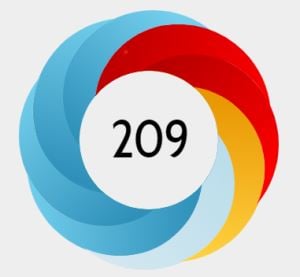
Altmetric badge showing the Altmetric score and colour-coded mention sources.
Altmetric monitors various sources, categorizing them into segments such as policy documents, peer reviews, Wikipedia, news and blogs, and social media, among other sources. Each category is identifiable by a specific colour.
The Altmetric badge provides visual insights into where the research is being discussed. A more colourful badge indicates broader mentions across multiple platforms. Such tracking enables us to gauge the extent of an article’s online dissemination, noting that increased visibility may correlate with higher citation rates.
Read more:
Impactful Research

Ten High-Altmetric Articles Published by MDPI
As at 30 January 2024, Altmetric has tracked 670,500 MDPI research outputs from MDPI, resulting in over 4.3 million mentions. This includes over 71,894 mentions in policy and patents and 294,714 mentions in news and blogs, with some achieving an Altmetric score as high as 28,754.
So, what is a good Altmetric score? There are various ways to put this score into context. You can find out more about the score in context and how to evaluate your work by this means.
Here are ten MDPI papers ranking in the top 5% of all research outputs scored by Altmetric.
|
|
“Accuracy in Wrist-Worn, Sensor-Based Measurements of Heart Rate and Energy Expenditure in a Diverse Cohort” J. Pers. Med. 2017, 7(2), 3; https://doi.org/10.3390/jpm7020003 Altmetric page: https://mdpi.altmetric.com/details/20477344 Altmetric shows that this article appeared in 253 news stories from 209 outlets including Forbes, BBC, and Fox News. |
|
|
“Daylight Saving Time and Acute Myocardial Infarction: A Meta-Analysis” J. Clin. Med. 2019, 8(3), 404; https://doi.org/10.3390/jcm8030404 Altmetric page: https://mdpi.altmetric.com/details/57654628 Altmetric shows that this article appeared in 295 news stories from 207 outlets including Forbes, The Atlantic, and New York Times. |
|
|
“The Preliminary Analysis of Cave Lion Cubs Panthera spelaea (Goldfuss, 1810) from the Permafrost of Siberia” Quaternary 2021, 4(3), 24; https://doi.org/10.3390/quat4030024 Altmetric page: https://mdpi.altmetric.com/details/111086701 Altmetric shows that this article appeared in 182 news stories from 134 outlets including CBC News, CNN, and National Geographic. |
|
|
“Not the Cat’s Meow? The Impact of Posing with Cats on Female Perceptions of Male Dateability” Animals 2020, 10(6), 1007; https://doi.org/10.3390/ani10061007 Altmetric page: https://mdpi.altmetric.com/details/83796184 Altmetric shows that this article appeared in 124 news stories from 98 outlets including VICE, CNN and The Guardian. |
|
|
“Behaviour and Welfare Impacts of Releasing Elephants from Overnight Tethers: A Zimbabwean Case Study” Animals 2022, 12(15), 1933; https://doi.org/10.3390/ani12151933 Altmetric page: https://mdpi.altmetric.com/details/133463915 Altmetric shows that this article appeared in 192 news stories from 186 outlets. |
How do I use altmetrics?
Altmetric Explorer provides a detailed step-by-step guide and instruction video for first-time users of the tool. The guide includes useful diagrams that make it easy to get started.
Sharing Research Online
For research to be tracked across different sources, Altmetric needs a research output with a persistent identifier: a DOI, ISBN, PubMed ID, handle ID, etc. When sharing research, it is important to include a link to the original research output.
|
|
“An Update on Eukaryotic Viruses Revived from Ancient Permafrost” Viruses 2023, 15(2), 564; https://doi.org/10.3390/v15020564 Altmetric page: https://mdpi.altmetric.com/details/142929875 Altmetric shows that this article appeared in 250 news stories from 180 outlets including CTV, Fox News, and CNN. |
|
|
“The Global Problem of Insufficient Sleep and Its Serious Public Health Implications” Healthcare 2019, 7(1), 1; https://doi.org/10.3390/healthcare7010001 Altmetric page: https://mdpi.altmetric.com/details/53406248 Altmetric shows that this article appeared in 252 news stories from 168 outlets including BBC, Harvard Business Review, and Forbes. |
|
|
“A Detailed Review Study on Potential Effects of Microplastics and Additives of Concern on Human Health” Int. J. Environ. Res. Public Health 2020, 17(4), 1212; https://doi.org/10.3390/ijerph17041212 Altmetric page: https://mdpi.altmetric.com/details/86529137 Altmetric shows that this article appeared in 197 news stories from 150 outlets including BBC, The Tribune, and World Economic Forum. |
|
|
“An Empirical Study of Chronic Diseases in the United States: A Visual Analytics Approach to Public Health” Int. J. Environ. Res. Public Health 2018, 15(3), 431; https://doi.org/10.3390/ijerph15030431 Altmetric page: https://mdpi.altmetric.com/details/34714141 Altmetric shows that this article appeared in 232 news stories from 149 outlets including Forbes, New York Times, and Harvard Business Review. |
|
|
“Garden Scraps: Agonistic Interactions between Hedgehogs and Sympatric Mammals in Urban Gardens” Animals 2023, 13(4), 590; https://doi.org/10.3390/ani13040590 Altmetric page: https://mdpi.altmetric.com/details/142934305 Altmetric shows that this article appeared in 172 news stories from 168 outlets including BBC. |
Inside MDPI

MDPI Annual Meeting Celebrations in China
On Thursday 25 January, over 1,300 MDPI colleagues from our two offices in Beijing gathered to kick off MDPI’s traditional ‘Annual Meetings.’ These celebrations take place in MDPI’s offices across China, including Dalian, Tianjin, Wuhan, and Nanjing.
The evenings include performances, informative talks and presentations, awards, and entertainment, providing an ideal platform to recognize our colleagues, celebrate their achievements, and set our sights on the future.
“It is essential that we stay connected and share best practices”

I sent a video congratulating everyone on their work and sharing our vision of building MDPI into the most trusted OA publisher, highlighting the roles each of us has to play in achieving that goal.
Unfortunately I could not join in person, but you may recall my recent trip, when I visited our offices in Beijing and Wuhan, which I look forward to visiting again this year.
Although our headquarters are in Basel, Switzerland, and we are expanding throughout Europe and North America, the majority of MDPI’s workforce is in China and throughout the Asia-Pacific region, including offices in Singapore, Thailand, Japan, and newly opened office in South Korea. It is essential that as a global organization, we stay connected and share best practices in order to grow collectively and continue providing the exceptional service to our authors.
The Annual Meeting is a moment to reflect and enjoy the year’s hard work and dedication.
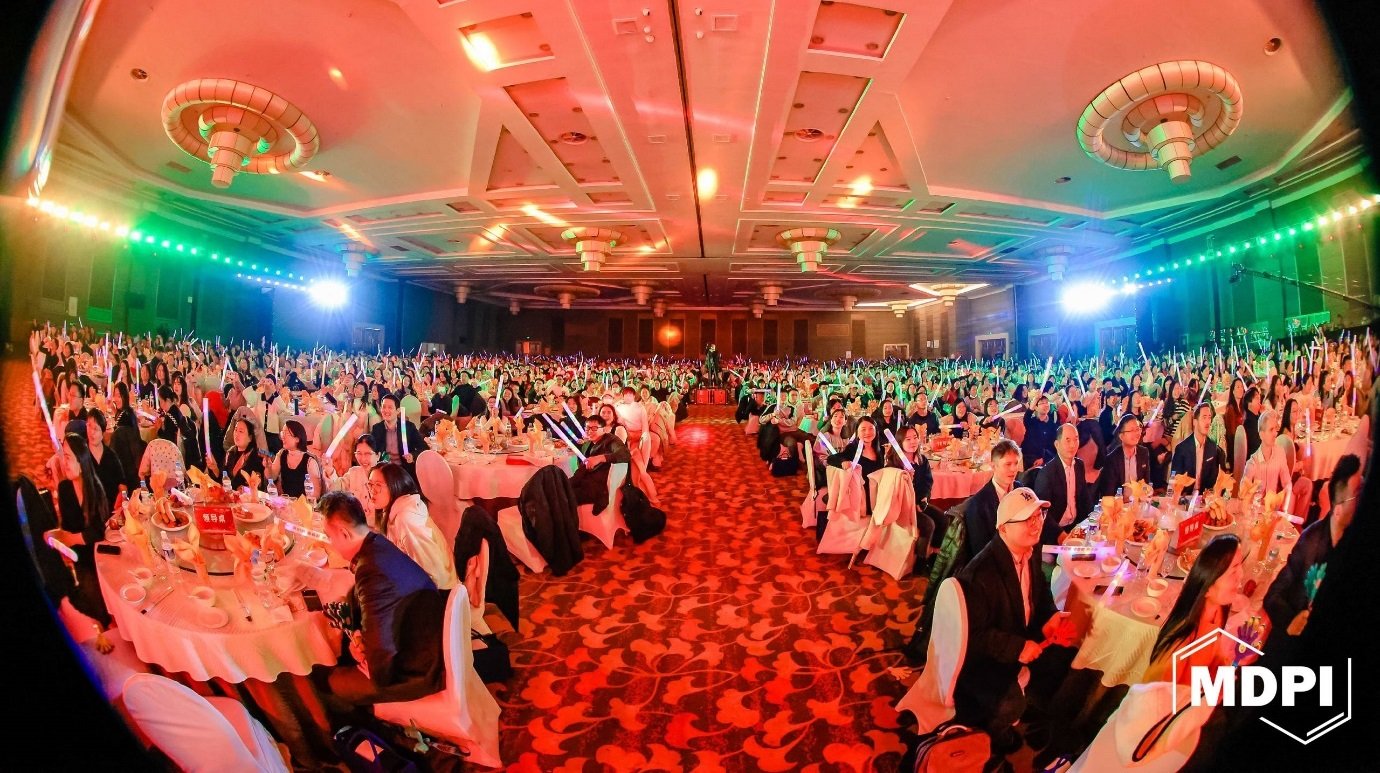
I extend our best wishes to all for the Chinese New Year (Xīnnián kuàilè)!
Coming Together for Science
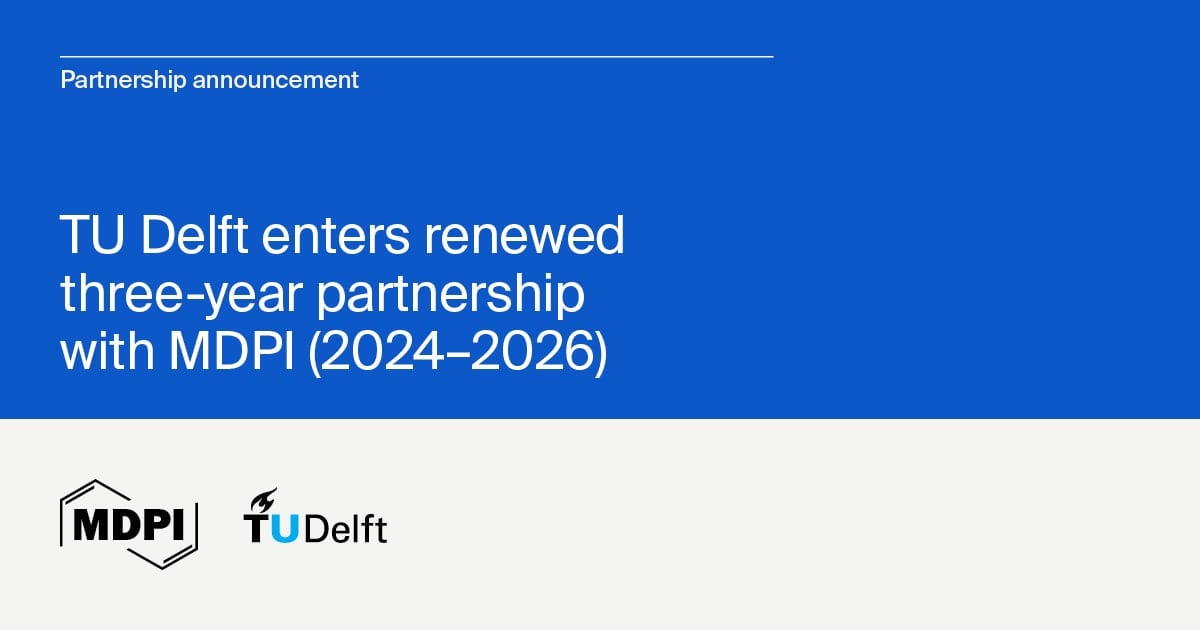
MDPI and TU Delft Adopt Flat Fee Model in Extended Partnership
We are excited to announce a renewed three-year partnership with Delft University of Technology (TU Delft) in the Netherlands. This collaboration introduces a fixed lump-sum fee, covering publishing costs from 2024 to 2026.
“This initiative reflects our dedication to transparent and inclusive publishing”
TU Delft-affiliated authors will enjoy cost-free publishing in any MDPI journal during this period, aligning with our commitment to removing barriers for open access publishing. The agreement supports Plan S compliance and facilitates a seamless publishing process for TU Delft corresponding authors. This initiative reflects our dedication to transparent and inclusive publishing, providing stability and predictability both for authors and for institutions.
For further details on our Institutional Open Access Program (IOAP), please contact us.
Benefits to MDPI’s IOAP
At MDPI we have a long tradition of partnerships, including our Institutional Open Access Program (IOAP). IOAP supports institutions through simplification, access, transparency, APC discounts, and institutional repository deposits. The program simplifies administrative processes, offers central payment, and allows easy opting in and out. Participants gain free access to Susy, MDPI’s online submission system, with extensive article metadata and exportable data. APC discounts and Book Processing Charge discounts are available for affiliated authors. Automated deposits to institutional repositories and streamlined matching of papers to IOAP participants enhance the overall experience.
For further information, see our IOAP FAQ.
Closing Thoughts

Reflections on the 2024 APE Conference
MDPI was proud to co-sponsor the Academic Publishing in Europe (APE) 2024 Conference that took place in Berlin, Germany, from 9–10 January 2024.
The conference theme, ‘Keep the Conversation Going!’, explored the evolving landscape of scholarly communication. APE is one of the key conferences I make a point to attend each year. January offers a valuable opportunity to engage with new contacts, reconnect with familiar faces, and participate in impactful discussions and presentations among professionals, scholars, and practitioners in the field.
“It's fascinating to see how other publishers are leveraging AI”
Highlights
Some of the standout panels for me include: the role of the UN Sustainable Development Goals (SDGs) within the publishing industry. It was encouraging to hear the current status quo, though I was eager also to learn about the exciting projects planned for 2024 and beyond. These will allow us to track progress in subsequent years. At MDPI, we remain committed to promoting Open–Access (OA) content on SDGs through scientific articles and books. Furthermore, we extend our commitment to sustainability by financially supporting researchers through initiatives such as the World Sustainability Award and the Emerging Sustainability Leader Award, as well as waiving the APC for feature papers on each SDG.
In recent years, discussions on AI have become increasingly prominent at such conferences. It’s fascinating to see how other publishers are leveraging AI to meet the evolving needs of their audiences while at the same time using it to safeguard the scientific process. Other engaging panels that I enjoyed included updates on transformation beyond transformative agreements, the principles of lean change, incentive structures related to research integrity, and the panel on reviewer incentives.
“We can share best practices and lessons learned”
Incorporating MDPI’s Insights into Conferences
I must confess that I sometimes feel overlooked when MDPI is not invited to participate in crucial industry discussions. As the leading open access publisher and the third-largest publisher overall, we possess extensive experience in many of these areas and can offer valuable contributions to these discussions. We can share best practices, lessons learned, and our thinking about future trajectories. For instance, in panels discussing reviewer incentives, at MDPI we offer a discount voucher to reviewers for future submissions, reflecting our commitment to fostering a robust peer review process. In 2022 alone, MDPI collected over 1.4 million peer review reports, informing the decision-making processes of our editors. Given our expertise in these areas, it would be natural to include MDPI in such discussions. I therefore extend an invitation to future conference organizers to consider MDPI for speaking engagements and collaborative opportunities.
Chief Executive Officer
MDPI AG
2 January 2024
MDPI Insights: The CEO’s Letter #7 - Nobel Laureates Entrust MDPI with Their Research

Welcome to the MDPI Insights: The CEO's Letter.
In these monthly letters, I will showcase two key aspects of our work at MDPI: our commitment to empowering researchers and our determination to facilitating open scientific exchange.
Opening Thoughts

Nobel Prize Laureates Entrust MDPI with Their Research
The Nobel Prize stands as a hallmark of distinction, honouring ground-breaking research across disciplines. Annually, the Nobel Prizes are awarded in six categories: Physics, Chemistry, Medicine or Physiology, Literature, Peace, and Economic Sciences.
Through the years, renowned scholars have entrusted MDPI with their work. As at December 2023, 26 Nobel laureates have contributed to more than 75 articles across 25 MDPI journals, including: Antibiotics, Applied Sciences, Biology, Biomedicines, Cancers, Catalysts, Cells, Crystals, Entropy, Games, IJMS, Life, Materials, Micromachines, Molecules, Pharmaceuticals, Pharmaceutics, Photonics, Quantum Beam Science, Remote Sensing, Sensors, Solids, Universe, Vaccines, and Viruses.
The best of the best trust us with their work.
Nobel Prize Laureates Who Have Published with MDPI
We are proud to list the names of Pierre Agostini, Hiroshi Amano, Werner Arber, Aaron Ciechanover, Robert H. Grubbs, Oliver Hart, Gerard ‘t Hooft, Michael Houghton, Harald zur Hausen, Katalin Karikó, Jean-Marie Lehn, Gérard Mourou, Ferid Murad, Shuji Nakamura, William Nordhaus, Kostya S. Novoselov, Giorgio Parisi, Charles M. Rice, Alvin E. Roth, Donna Strickland, K. Barry Sharpless, George F. Smoot, Anne L’Huillier, Drew Weissman, Kurt Wüthrich, Ada Yonath.
The privilege of hosting such contributors resonates deeply with our editorial teams. For instance, in this interview, the Editor-in-Chief (EiC) of Universe speaks on the significance of publishing a paper by Nobel laureate Gerard ’t Hooft within the journal.
2023 Nobel Prize Winners Published by MDPI

Nobel Prize Winners, 2023: Katalin Karikó, Drew Weissman, Anne L’Huillier (Ill. Niklas Elmehed © Nobel Prize Outreach)
Three laureates from the 2023 Nobel Prize cohort have trusted MDPI as their publishing platform. Notably, in a 2022 Pharmaceutics paper, molecular biologist Katalin Karikó and her team presented a methodology for evaluating mRNA capping efficiency, pivotal for therapeutic applications. Pharmaceutics had previously dedicated a Special Issue to “mRNA Therapeutics: A Themed Issue in Honor of Professor Katalin Karikó”, spotlighting ten articles from August 2021 to February 2022.
In the journal Vaccines, Professor Drew Weissman, collaborating with scholars from Pennsylvania University and George Mason University, contributed an influential review titled “Nanomaterial Delivery Systems for mRNA Vaccines”. His collaborative efforts spanned five papers across MDPI journals between 2021 and 2023.
Furthermore, Anne L'Huillier of Lund University, only the fifth female recipient of the Physics Prize, co-authored an article in Applied Sciences focusing on "Advanced EUV and X-Ray Optics". Similarly, Pierre Agostini, an Emeritus Professor from Ohio State University, co-authored an article featured in the special issue "Attosecond Science and Technology: Principles and Applications".
We extend heartfelt congratulations to all Nobel Prize laureates and express sincere gratitude for their confidence in MDPI as a platform for their scholarly contributions.
Read more:
Impactful Research

MDPI Journals Newly Indexed in 2023
The aim of indexing is to enhance the quality and credibility of published research, ensuring that researchers access the most credible resources available. While the principle behind citation indexing is straightforward, it remains one of the most dependable methods for tracking an idea's evolution across various scientific disciplines.
Throughout the year, MDPI works to expand the reach of our publications across premier multidisciplinary databases like Web of Science, Scopus, EBSCO, and ProQuest. This initiative is spearheaded by MDPI's Indexing team, under the leadership of Dr. Constanze Schelhorn.
In 2023, MDPI achieved 54 new acceptances in Scopus, 29 in Web of Science, 52 in EBSCO, and 83 in DOAJ: Directory of Open Access Journals.
The team prioritizes ensuring that our journals feature in numerous specialized databases, including PMC, PubMed, MEDLINE, Inspec, CAS, and FSTA, among others. Currently, MDPI collaborates with over 65 renowned international databases, consistently enhancing our database affiliations annually.
MDPI’s journals are indexed in all major global databases.
Furthermore, we collaborate with universities and government organizations to list our journals in country-specific ranking lists and relevant institutional repositories. This ensures compliance with requirements often set by funders or institutions for authors to publish in specific journals.
Web of Science Adds 24 MDPI Journals to Emerging Sources Citation Index (ESCI)
Clarivate recently analysed MDPI’s new journals, resulting in 24 journals, mainly established in 2020, being added to the ESCI in November and December 2023. Additionally, five journals passed this assessment earlier in the year. For a complete list of our journals in Web of Science, refer here. Journals in the ESCI meet 24 quality criteria, ensuring editorial rigor. They may be considered for inclusion in broader indices like the Science Citation Index Expanded (SCIE), the Social Sciences Citation Index (SSCI), or the Arts and Humanities Citation Index (AHCI), based on four impact criteria.
Read more:
Inside MDPI

MDPI Appoints New Chief Operating Officer (COO)

Alistair Freeland returned to MDPI and assumed the role of Chief Operating Officer in November 2023, a position he previously held from 2013 to 2019. He succeeds Dr. Yu Lin, who will remain a member of MDPI’s Board of Directors, overseeing significant financial decisions for the company. I would like to express my sincere thanks to Dr. Yu Lin for his service as COO.
Alistair brings extensive experience not only in scholarly publishing but also in technology and business management. Prior to rejoining MDPI, he was associated with SIX Group, the entity responsible for Switzerland's financial market infrastructure. There, he played a pivotal role in developing the blockchain-based platform SDX (SIX Digital Exchange), which has gained traction among major Swiss banks and the Swiss National Bank.
As COO, Alistair will collaborate with the MDPI management team to improve the practices and services we offer to scholarly communities. I am pleased to welcome Alistair back to MDPI and look forward to his contributions going forward.
Coming Together for Science

MDPI’s 2024 In-Person Academic Events Schedule
MDPI's Conference Team is dedicated to organizing and hosting in-person academic events across Europe, Asia-Pacific, and North America. We recognize conferences as invaluable platforms for scientific collaboration, scholarly exchange, discussions on contemporary topics, networking, and forging collaborations.
Here's a glimpse of the notable events we currently have scheduled for 2024:
|
|
14–16 February, 2024 |
|
|
24–26 April, 2024 |
|
|
28–31 May, 2024 |
|
|
1–4 August, 2024 |
Upcoming events with details to be announced:
- September 2024, Materials 2024 – Basel, Switzerland
- 19–21 September 2024, International Conference on Nanomaterials Sciences 2024 – Beijing, China
- October 2024, ncRNA 2024 – Basel, Switzerland
- November 2024, Pharmaceuticals 2024 – Barcelona, Spain
- 22–26 November 2024, International Conference on Science of Electronics – Wuhan, China
- Stay tuned for more details on the Sustainable Publishing Forum 2024.
Click here for all upcoming MDPI events.
Organize Your Event with MDPI’s Sciforum
Sciforum is MDPI’s platform dedicated to the organization of scientific events. In line with our mission to promote science, Sciforum supports scholars, societies, research networks, and universities at all stages of organizing in-person events, virtual events and webinars. Our platforms are efficient, user-friendly, and cost-effective. We handle all steps related to event management. Contact us for details.
Closing Thoughts

Reflecting on 2023 and Looking Ahead to 2024
As we approach 2024, I reflect on the incredible journey we’ve had together at MDPI this year. The past 12 months have been marked by ambitious projects and initiatives to improve our internal processes, and a commitment to continue delivering top-notch services to our stakeholders. I’d like to thank each and every one of our staff members for contributing to the positive experiences our stakeholders have reported in our surveys. Your dedication to speed, efficiency, and effective communication with our stakeholders is very much recognized and appreciated.
Becoming a stronger organisation
While we have encountered challenges in 2023, it’s important to understand that these are a part of our growth process. Difficulties provide us with opportunities to reflect, address problems at their roots, and ultimately evolve into a stronger organization. Our stakeholders expect us to overcome tough times, and it’s an expectation that we have for ourselves.
I extend my sincere appreciation to every MDPI employee, from our editorial office and IT department to marketing, indexing, IOAP, societies, Scientific Office board, products, production, conferences, finance, operations, admin, and beyond. To our newest team members, a warm welcome; to our longstanding colleagues, your dedication is invaluable.
“I am committed to taking MDPI to a new level of excellence.”
Interacting with many of you during my visits to our offices and representing MDPI at external events has been a personal highlight. I am deeply grateful to Dr. Lin for entrusting me with the role of CEO of MDPI. Looking forward, I am committed to working closely with our management team to lead MDPI and take it to a new level of excellence, aiming to establish it as the most trusted publisher in open access worldwide. This is a collective endeavour, with each of us shaping MDPI’s reputation. I therefore encourage us to take pride in our work, as it represents not only our craft but also MDPI as a whole.
Accountability and communication
As we look forward to 2024, there’s a lot to be excited about. Together, we’ll navigate challenges, seize growth opportunities, and refine our practices. To solidify MDPI’s position as the premier open access publisher globally, we must bolster accountability, improve stakeholder communication, share MDPI’s best practices, champion the open access philosophy, and educate stakeholders about our mission, methodologies, and motivations.
Thank you for engaging with the CEO Letter over the past six months of 2023. I will continue to release this newsletter as a method of sharing the great work being done at MDPI. Please feel free to connect directly with any insights or questions.
Here’s to a joyous and prosperous 2024!
Chief Executive Officer
MDPI AG
30 November 2023
MDPI Insights: The CEO’s Letter #6 - MDPI Spain Summit and ResearchGate

Welcome to the MDPI Insights: The CEO's Letter.
In these monthly letters, I will showcase two key aspects of our work at MDPI: our commitment to empowering researchers and our determination to facilitating open scientific exchange.
Opening Thoughts

MDPI Spain Summit

Stefan Tochev (CEO, MDPI) gives the opening speech at the MDPI Spain Summit.
On Friday 10 November 2023 I was in Barcelona, Spain, to deliver the opening presentation and participate in a panel at MDPI’s Spain Summit, a two-day event, inspired by our salon events in China.
With 16 Editors-in-Chief (EiCs) and 20 Editorial Board Members (EBMs) in attendance, the event, organized by our conference team and Barcelona office, featured presentations on open access (OA), MDPI, and publishing market trends in Spain.
The event provided a great opportunity to engage with stakeholders from various MDPI journals, including Nutrients, Vaccines, Buildings, IJMS, and others. We were able to gather feedback and have open conversations around manuscript quality, the peer-review process, and journal development, as well as accreditation agencies.
The main objective of this Summit was to bring together Editors representing MDPI journals across various disciplines within Spanish universities and research centers, primarily from the Barcelona area. The aim was to facilitate an open and fruitful discussion regarding the development of their journals, the future of OA in Spain, and to provide meaningful interactions and networking opportunities.
Connecting with Editorial Board Members

Stefan Tochev in conversation with Summit participants: "Our EBMs are passionate about the journals they serve."
Interacting with our EBMs in person provides a valuable opportunity to show how important it is to us to connect with them, hear their perspectives on their journals and learn more about their own experience collaborating with MDPI.
From my conversations, it was clear that our EBMs are passionate about the journals they serve. I know the advice they provide may sometimes involve just small tweaks, but these can lead to important improvements. As the saying goes, small hinges swing open big doors.
As at November 2023, MDPI has over 6,300 EBMs affiliated with Spanish institutions, with more than 30 of them serving as EiCs or section EiCs. Furthermore, over 68,000 Spanish scholars have contributed as reviewers in MDPI journals.
Open Access in Spain
In 2023, Spain implemented legislation mandating immediate OA for all publicly funded research, aligning with the EU’s Plan S initiative to expedite the transition to OA. The Spanish government also approved a four-year, €23.8 million annual budget for the first national OA strategy, aiming to make publicly funded research freely accessible upon publication. This strategy aims to strengthen the quality and transparency of research in Spain, and to help promote movement towards a digital, low-carbon economy.
For further details of Spain's OA policy and the history of government mandates, click here.
Spain has already seen a notable decline in subscription-only articles, decreasing by 62% over a 10-year period, while gold OA increased by 42%. Green OA slightly decreased, suggesting a shift towards publishing in gold OA journals rather than traditional subscription-based ones. Here are some statistics from Scopus.
A big thank-you to the various MDPI teams, including our conference team and the Barcelona office, for organizing this very successful event!

MDPI colleagues from various offices gathered to host and support the first MDPI Spain Summit, in Barcelona, Spain.
I think this type of gathering has the potential to become an annual event in various locations. For example, Manchester could be an option, as we have over 30 EiCs and over 3,000 EBMs in the UK, a top market for MDPI that publishes high-quality research.
Impactful Research

769 Editorial Board Members of MDPI Journals Recognized as Highly Cited Researchers in 2023
Congratulations to our 769 Editorial Board Members from 40 countries/territories who have been awarded Highly Cited Researcher status for 2023 by Clarivate. This recognition is based on their outstanding scientific research contributions and significant influence in various fields, as evidenced by Web of Science data.
Click here to view the full list of 769 Editorial Board Members.
Clarivate's Highly Cited ResearchersTM list identifies individuals with exceptional impact in scientific and social science domains over the past decade. Their papers rank in the top 1% of citations in 21 fields analysed in ‘Essential Science Indicators,’ showcasing their substantial influence.
This year, 7,125 Highly Cited Researcher 2023 designations were issued to 6,849 individuals from 67 countries, representing just 1 in 1,000 researchers worldwide.
These researchers demonstrate exceptional influence, representing a small fraction of contributors pushing the boundaries of knowledge, contributing to global well-being, sustainability, and security.
Congratulations to these scholars for their remarkable achievement: we are honoured to have them on board with our journals!
Inside MDPI

Corporate Marketing and Communications Strategy Session

Members of MDPI’s Corporate Marketing & Communications team.
For the past few years, I have led the Corporate Marketing & Communications department in our annual strategy session.
This typically involves 2–3 days of focused sessions covering key topics including budgeting, hiring targets, campaign reviews, and planning for the upcoming year, department strategy, and structure.
We are constantly exploring ways to optimize the Corporate Marketing & Communications department to support MDPI’s primary objectives and better convey the MDPI story while serving the scholarly community.
The strategy session also serves as a team-building activity, during which the team voted on bowling!
Strategy Session
In this strategy session, we looked at how to align our teams in order to better streamline our content with our campaigns, build a dedicated marketing team to strategically support our core MDPI products, expand our communications teams and functionalities to focus on company-critical campaigns and press releases, align our new brand design system with our marketing initiatives, set up a community and engagement team to support various teams with their outreach and communication efforts, and increase our use of data in the evaluation of campaign performance.
To grow in these areas, we will be hiring for various positions, including those of Public Relations Manager, Communications Manager, Internal Communications Manager, Campaign Manager, Marketing Associate, and Editorial Engagement Manager.
I am grateful for the way our Corporate Marketing & Communications department has grown and gelled over the years, and I look forward to supporting the department teams and their ideas for the future.
Coming Together for Science

ResearchGate and MDPI Partner to Boost the Visibility of Open Access Content through Journal Home

Stefan Tochev (CEO, MDPI) and Sören Hofmayer (Co-Founder and Chief Strategy Officer, ResearchGate) meet in Berlin, Germany to take their ongoing discussion further.
When I assumed the role of CEO at MDPI, my primary focus was to initiate the building of essential partnerships and collaborations within our industry. After all, I am a firm believer in achieving our goals by helping others achieve theirs and focusing on co-opetition wherever there is an opportunity. I first touched on the notion of co-opetition in MDPI Insights: The CEO's Letter #3, particularly when discussing collaborations with Elsevier.
In light of this, Sören Hofmayer (Co-Founder and Chief Strategy Officer at ResearchGate) and I connected recently to continue a discussion that had been ongoing for months. I was quickly brought up to speed and felt there was an opportunity for MDPI journals to pilot the Journal Home service that ResearchGate had launched. This would provide a new way for MDPI to engage with authors and readers and amplify the visibility of our journals.
While I receive many offers and opportunities for discussions with vendors, I am a firm believer that timing is everything, and in this case, the time for us is now. Sören and I met in person during my recent visit to Berlin and decided to proceed with piloting ten MDPI journals with the Journal Home service.
The press release below provides further details.
Press Release: Berlin (Germany) and Basel (Switzerland), 15 November 2023
ResearchGate, the professional network for researchers, and MDPI, the largest open access publisher in the world and a pioneer in open access publishing, today announced a partnership that will see ten of MDPI’s open access journals benefit from an enhanced presence on ResearchGate through its innovative Journal Home offering.
This new partnership will expand the reach and visibility of MDPI’s participating flagship journals with ResearchGate’s highly relevant community of more than 25 million researchers globally.
Around 210,000 version-of-record articles from these 10 titles will be readily available on ResearchGate, including the full archive material and all new articles as they are published. These journals also benefit from enhanced brand visibility, with dedicated journal profiles, prominent representation on all associated article pages and all relevant touchpoints across the ResearchGate network – keeping the journals top-of-mind with their reader and author audiences. All articles covered by the new partnership will automatically be added to the authors’ publication records in ResearchGate. This not only reduces MDPI authors’ needs for direct management but also offers them valuable insights into the impact of their work, including data about readership and citations.
Closing Thoughts

November is Men’s Health Awareness Month

Stefan Tochev (CEO, MDPI) listening to music as he writes at a coffee shop in Basel, Switzerland.
November is dedicated to raising awareness of various men’s health issues. I have been fortunate to have positive male role models in my life, and I strive to share my experiences with others.
I used to take part in Movember, growing my moustache throughout November to raise awareness and funds and to help “change the face of men’s health.” With male family and friends impacted by physical and mental health issues, I have recently become more interested in men’s overall well-being.
Men often face stigma involving the perceived need always to be strong and have things figured out. Recently, I’ve had meaningful conversations with male friends and colleagues about issues we rarely discuss, and it was a positive experience.
Various factors impact men’s health and well-being, all too easily leading to risky health behaviours including a lack of health awareness, poor health education, and negative, culturally induced, behaviour patterns in our work and personal lives. I hope we can break down these barriers in our work environment.
Healthy men help build healthy families and a healthy society
Men are less likely than women to seek help with their physical and mental health struggles. This is a reminder to prioritize your overall well-being. I hope that as men, we will continue to open up to one another, becoming vulnerable in order to share what we are going through. By sharing and by supporting each other, we can learn and grow together. You are not alone, and when you fall, you can still get up and stand tall.
From one broski to another, you are loved and appreciated. I hope this mindset carries into December and beyond.
Mindfulness
Our content team recently released a handful of articles on mindfulness, a practice that I believe provides a good opportunity for stress release and self-reflection:
Chief Executive Officer
MDPI AG
23 November 2023
Meet Us at the 2023 Annual Meeting of China Chemical Industry Society, 27–29 November 2023, Guangzhou, China
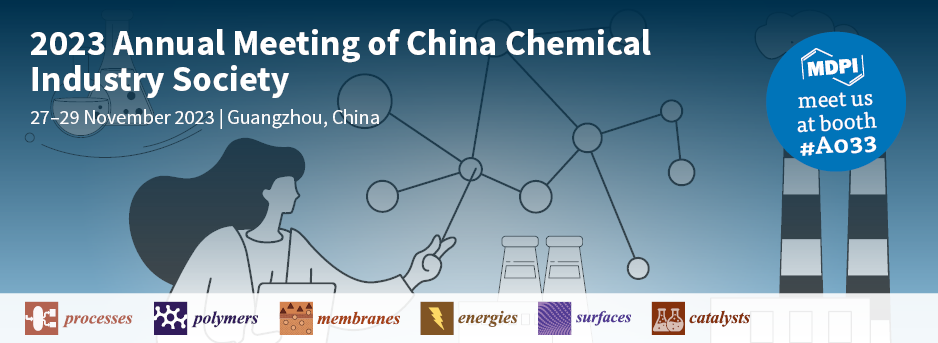
A range of MDPI journals will be attending the 2023 Annual Meeting of China Chemical Industry Society. This meeting will be held in Guangzhou, China, from 27 to 29 November 2023.
The annual meeting of China Chemical Industry Society is held every two years. It is an international, multi-disciplinary, and trans-regional high-level academic event in the field of chemical engineering. It plays an important role in promoting the academic prosperity of chemical engineering and promoting scientific and technological innovation in the chemical industry.
This annual meeting is hosted by the China Chemical Society and hosted by South China University of Technology, Guangdong University of Technology, and Sinopec Guangzhou Engineering Co., Ltd. With the theme of “New Fields, New Tracks, New Industries, New Dynamics”, the annual conference will include an opening ceremony and main forum, high-achieving academic lectures, 29 thematic sub-forums, a chemical technology innovation exhibition, and other supporting activities. The conference will welcome around 3000 attendees.
The following MDPI journals will be represented at the conference:
- Processes;
- Polymers;
- Membranes;
- Energies;
- Surfaces;
- Catalysts.
If you are planning to attend this conference, please feel free to start a conversation with us at our booth (#A033). Our delegates look forward to meeting you in person and answering any questions that you may have. For more information about the conference, please visit http://www.ciesc.cn/notice/a2310.html or contact the Processes Editorial Office.
21 November 2023
769 Editorial Board Members of MDPI Journals Achieve Highly Cited Researcher Recognition in 2023

We extend our sincere congratulations to the 769 Editorial Board Members of our journals – from 40 different countries/territories – who have been recognized as Highly Cited Researchers for the year 2023 by Clarivate. They are being recognized for their high-quality scientific research achievements and outstanding contributions to their professional fields, as indicated by Web of Science data.
Clarivate's annual list of Highly Cited ResearchersTM identifies the most highly cited scientists for the past decade who stand out for their significant and broad influence in various scientific and social science domains. Their impactful papers are among the top 1 per cent in the citation distribution of one or more of 21 fields analyzed in the "Essential Science Indicators", distinguishing them as hugely influential among their peers.
This year, 7,125 Highly Cited Researcher 2023 designations were issued to 6,849 individuals from 67 countries, representing just 1 in 1,000 researchers worldwide.
This means that these researchers have demonstrated an incredible level of significant and broad influence in their chosen field or fields over the last decade. They represent a small fraction of the researcher population whose contributions disproportionately push the boundaries of knowledge, enhancing global well-being, sustainability, and security.
Congratulations to the scholars for their noteworthy achievement – we are honored to have them on board with our journals!
|
Abate, Antonio |
Jaiswal, Amit K. |
Shen, Zexiang |
1 November 2023
MDPI Insights: The CEO’s Letter #5 - OA Week, UK, and Strategy

Welcome to the MDPI Insights: The CEO's Letter.
In these monthly letters, I will showcase two key aspects of our work at MDPI: our commitment to empowering researchers and our determination to facilitating open scientific exchange.
Opening Thoughts

Open Access Week 2023 – the Global Drive to Open Continues
As the world's largest open-access (OA) publisher, we believe that unrestricted access to research findings is the cornerstone of transparency, efficiency, and quality control across scientific disciplines. At MDPI, we provide free, immediate access to scientific papers, empowering scientists to examine, validate, replicate, and build upon existing results. This minimizes redundancy, optimizes resources, and fosters innovative approaches.
International OA Week, held from 23 to 29 October 2023, provided a unique opportunity to link the global movement toward open sharing and open science with the progress of policy changes at the local level. Our mission, during OA Week and all the year round, is to offer educational resources highlighting the benefits of open-access publishing. The MDPI Blog is a valuable resource for information on open access and open science.
Core principles of OA publishing
Accessibility, transparency, and collaboration are core principles of OA publishing. OA aims to break down barriers that have traditionally restricted research access, ensuring that knowledge is available to all, regardless of financial situation or institutional affiliations. Our commitment to diverse pathways for OA publishing worldwide includes discounts for researchers. You can learn more about how MDPI supports scientific communities here.
One of the key strengths of OA publishing is its ability to facilitate interdisciplinary research. By removing paywalls and promoting knowledge-sharing across disciplines, OA encourages collaboration and innovation. Researchers from various fields can access and build upon each others’ work, fostering a holistic approach to addressing complex global challenges.
OA holds the potential to democratize knowledge, advance science, and drive positive societal change.
Policy driving change
Governments, institutions, and funding agencies have recognized the transformative potential of OA and have implemented policies to promote it. These policies often require publicly funded research to be made openly accessible, accelerating the growth of OA repositories and journals. Check out our spotlights on OA policies in the US, EU and China.
OA publishing is continuously evolving, with community-driven models and technologies shaping its future. Initiatives such as “Plan S” and “cOAlition S” promote OA publishing from the perspective of national funders, requiring grantees to publish their research openly. A new policy announced by the US administration last year mandates that, with effect from January 2026, all US federally funded research should be freely and immediately available after publication.
Additionally, preprint servers such as MDPI's Preprints.org, which allow researchers to share their findings before formal peer review, have gained popularity, enhancing the speed at which new knowledge is disseminated. The rise of blockchain technology is also being explored to ensure transparency and authenticity in scholarly publishing.
For more than two decades, OA publishing has been revolutionizing academic publishing by promoting accessibility, transparency, and collaboration. Its support for interdisciplinary research, evolving policies, and innovative practices all contribute to its growing influence in the global research community. As OA continues to expand, it holds the potential to democratize knowledge, advance science, and drive positive societal change.
MDPI is proud to lead the transition to open access.
Read more:
Impactful Research

Spotlight on Smart Cities
Smart cities will serve as a cornerstone for future human development. Their implementation will help us tackle many of the significant challenges we are facing – climate change, ageing populations, waste management, public safety, travel, and so on. Recognising the importance of this multifaceted field, MDPI launched the inaugural issue of Smart Cities in 2018 to provide an advanced forum for research into smart technology and society. Here we take a look at how this journal has developed, and its impact in this exciting field.
As at 30 October, 2023, Smart Cities has published 421 papers and has an Impact Factor of 6.4. It also has a CiteScore of 8.5, and more than one quarter of its published papers – 124 – have been cited 10 times or more.
Highly cited papers in Smart Cities
Below are several highly cited papers recently published in Smart Cities. Citation metrics are current as at 31 October 2023.
1. “Introducing the “15-Minute City”: Sustainability, Resilience and Place Identity in Future Post-Pandemic Cities”
Authors: Carlos Moreno, Zaheer Allam, Didier Chabaud, Catherine Gall and Florent Pratlong
Smart Cities 2021, 4(1), 93-111; https://doi.org/10.3390/smartcities4010006
Citations: Crossref (338), Scopus (366), Web of Science (270), Google Scholar (710)
The paper discusses the socio-economic impacts of the COVID-19 on cities, including increasing inequalities and rising unemployment. It introduces the concept of the "15-Minute City," a form of "chrono-urbanism," as a response to the challenges posed by the pandemic.
2. “A Review on Electric Vehicles: Technologies and Challenges”
Authors: Julio A. Sanguesa, Vicente Torres-Sanz, Piedad Garrido, Francisco J. Martinez and Johann M. Marquez-Barja
Smart Cities 2021, 4(1), 372-404; https://doi.org/10.3390/smartcities4010022
Citations: Crossref (359), Scopus (363), Web of Science (268), Google Scholar (558)
This paper provides an overview of the progress in Electric Vehicles (EVs), focusing on battery technology, charging methods, and emerging research challenges. It also analyzes the global EV market and its future outlook.
3. “IoT in Smart Cities: A Survey of Technologies, Practices and Challenges”
Authors: Abbas Shah Syed, Daniel Sierra-Sosa, Anup Kumar and Adel Elmaghraby
Smart Cities 2021, 4(2), 429-475; https://doi.org/10.3390/smartcities4020024
Citations: Crossref (121), Scopus (151), Web of Science (91), Google Scholar (215)
This paper gives an overview of the Internet of Things (IoT) in the context of Smart Cities, discussing the fundamental components, technologies, architectures, networking technologies, and artificial algorithms that underpin IoT-based Smart City systems.
4. “Artificial Intelligence Techniques in Smart Grid: A Survey”
Authors: Olufemi A. Omitaomu and Haoran Niu
Smart Cities 2021, 4(2), 548-568; https://doi.org/10.3390/smartcities4020029
Citations: Crossref (76), Scopus (94), Web of Science (57), Google Scholar (120)
This survey paper reviews the utilization of artificial intelligence (AI) techniques in the context of the smart grid. It covers various applications of AI in load forecasting, power grid stability assessment, fault detection, and security issues in the smart grid and power systems.
5. “The Metaverse as a Virtual Form of Smart Cities: Opportunities and Challenges for Environmental, Economic, and Social Sustainability in Urban Futures”
Authors: Zaheer Allam, Ayyoob Sharifi, Simon Elias Bibri, David Sydney Jones and John Krogstie
Smart Cities 2022, 5(3), 771-801; https://doi.org/10.3390/smartcities5030040
Citations: Crossref (72), Scopus (75), Web of Science (43), Google Scholar (176)
This paper discusses the concept of the Metaverse, a virtual world introduced by Meta (formerly Facebook), and its potential impact on urban life. It explores how emerging technologies such as AI, Big Data, IoT, and Digital Twins could reshape urban design and services in the context of the Metaverse.
Testimonial
“It was indeed a great and pleasant experience with MDPI regarding our recent publication. The submission process was very straightforward and less time-consuming than the norm. The review process was very fast compared to many other open access journals, which is praiseworthy. The support from the Editorial Office during the revision process was highly useful as well. We look forward to publishing with MDPI in the future, and I will most definitely recommend MDPI to my colleagues and collaborators.” – Dr. Luís Rosa, University of Minho
Article in Smart Cities: Mobile Networks and Internet of Things Infrastructures to Characterize Smart Human Mobility
Inside MDPI

MDPI Manchester office, UK Visit

Allie Shi (Editorial Director, MDPI), Stefan Tochev (CEO, MDPI), Jamie Anderson (Manchester Office Manager, MDPI), Michael O’Sullivan (Senior Scientific Officer, MDPI), Hushneara Akhtar, and Becky Castellon (IOAP Team Lead, MDPI), dining out in Manchester, UK.
In October, I visited MDPI’s new office in Manchester. During the visit, I connected with our English Editing (EE) managers, Scientific Officer, members of the Editorial team, the Marketing team, and IOAP Team Lead.
Our Manchester office focuses primarily on EE services and provides local support for the UK market. Additionally, we regularly visit Editorial Board members and participate in local conferences.
I would like to thank Jamie Anderson, Manchester Office Manager, and her team, for their deep commitment to our Manchester staff and to MDPI’s impact on the UK market.
The UK by numbers
The UK is a hub for the world’s top universities, making it a key market for MDPI and the publishing world in general. It is home to two of the top-five-ranked universities globally, 11 in the top 100, and 15 in the top 200.
As a result, the UK plays a key role in MDPI’s global market. As at October 2023, it ranks as the seventh-largest contributor to the total number of papers published by MDPI. We have 3,500 Editorial Board members affiliated with UK institutions, including 34 serving as Editors-in-Chief (EiCs). Our commitment to collaboration with institutions is evident in the UK, where we have successfully established some 60 Institutional Open Access Program (IOAP) agreements with esteemed institutions, such as the University of Oxford, the University of Cambridge, Imperial College London, the University of Edinburgh, and more.
According to InCites Dataset + ESCI for the period 2018–2022, as at October 2023, nearly 65% of UK papers are now published as OA. Just over 10% of total OA publications are by UK authors. UK papers are known for their high quality, with an average of 11 citations per paper. Furthermore, 2.16% of UK papers are in the top 1% of cited papers, and 14.61% are in the top 10% of cited papers, showcasing their impact.
We are currently hiring EEs in various locations worldwide.
English Editing at MDPI
Our English Editing (EE) department consists of two main branches, Quality Control and Learning and Development, reflecting our priorities. We are continuously enhancing the quality of our English Editing services and have raised the relevant standards, which now extend to company-wide communications. English editors participate in international interviews, conduct English assessments, and provide colleagues with presentations on ways to improve their use of written and spoken English.
While expanding, the EE department has proactively refocused its efforts on the quality of our work and how the English Editing department can benefit the company more broadly. We currently have approximately 140 full-time English Editors based across five offices worldwide, supplemented by over 700 freelance English editors.
Our Manchester office serves as the hub for the EE Department, with EE Managers situated there, except for Kurtis Jackson, who serves as the Head of EE and is located in our Basel office. Manchester EEs play a critical role in establishing and developing EE teams in our other offices, overseeing management and recruitment. The EE department plays a vital role in MDPI’s operations, as it is the department that touches every published paper. If this work interests you, I encourage you to explore our available EE positions, whether you are seeking full-time or freelance opportunities.
Testimonials
“MDPI provides an excellent service compared to any other previously used services. It delivers fast and high-quality results but at an affordable price.” – Ardha Apriyanto, University of Potsdam
“In my role as a professor, I consider that MDPI Author Services offer an excellent quality in the editing of Western academic writing while maintaining the required standards of clarity, precision and rigor. Additionally, delivery times are fast compared to other available services.” – Jesus Insuasti, University of Nariño
Read more:
Coming Together for Science

STM and Frankfurt Book Fair
Attending STM
MDPI has been a proud sponsor of the STM Conference for several years. The STM Conference is a dynamic event featuring interactive sessions, expert panellists, idea-sharing, and ample networking opportunities. On 16 October, the event kicked off with arrival drinks, sponsored by MDPI, followed by a welcoming dinner, providing a great chance to connect and network with industry professionals. The following day was filled with speakers, sessions, and further opportunities to connect. STM exemplifies the collaborative spirit of the scientific community, with session topics including achieving open, visible, and impactful research at scale; maintaining research integrity in a rapidly changing world; and exploring the impact of ever-evolving technology in the scholarly community.
Meeting with Web of Science
On a personal note, one of the highlights of STM was a candid and productive conversation with Nandita Quaderi, Editor-in-Chief and SVP at Web of Science. During our discussion, we talked about MDPI, Web of Science, the IJERPH delisting, and ways of moving forward. This open conversation aimed at fostering better collaboration for the future.
“We discussed ways to improve our communication and collaboration.”
I appreciated our frank discussion and felt that Nandita wholeheartedly supports open access. She also expressed her appreciation for the monthly CEO Letter, which she sees as a way to add personality to the MDPI brand and provide insight into the great work we do at MDPI. While we highlighted the positives, we also discussed ways to improve our communication and collaboration moving forward. This meeting alone made the trip worthwhile, and I hope Nandita doesn’t mind my sharing that she found our chat to be “the most honest and constructive discussion” she’s had with someone from MDPI in recent years.
75th Frankfurt Book Fair

Jelena Milojevic (Book Editor, MDPI), Jovana Dubajic (Book Editor, MDPI), Evan Escamilla (Project Manager, MDPI), Laura Wagner (Head of Books, MDPI), and Jenny Knowles (Commissioning Editor, MDPI), at the Frankfurt Book Fair in Frankfurt am Main, Germany.
For the 75th time, the Frankfurter Buchmesse opened its doors in October to celebrate exciting stories and their authors. If you haven’t yet had the chance to visit the Frankfurt Book Fair, I highly recommend it. It’s the largest book fair in the world, attracting thousands of visitors from around the globe. This is the place to gain valuable industry insights from top-class publishing professionals, connect with publishers directly, and learn about the latest trends in publishing.
MDPI Books
Our Books team was also present at the Frankfurt Book Fair, networking and learning from various panels. Did you know that our MDPI Books department publishes OA Books?
The book publishing program includes monographs, book series, edited books and reprints of special issues and topical collections, among other book types.
If you have a book proposal you would like to discuss, please feel free to contact our Books team to understand the benefits and methods of publishing your next book with the OA model.
Closing Thoughts

MDPI Strategy Meeting
As the newly appointed CEO, this is my first year leading the MDPI Senior Management Strategy session. I saw it as an opportunity to explore what MDPI has the potential to become in the next five years. Guided by the vision of its founder and President, Dr. Shu-kun Lin, the company has accomplished remarkable feats over the past 27 years and currently holds the position as the world’s third-largest academic publisher, following Springer Nature and Elsevier.
Our primary objective is to build upon the milestones of the past decades and consolidate MDPI’s position as well-established publishing brand. The two-day meeting emphasized the importance of communicating MDPI’s values more actively via its brand and adopting a straightforward yet impactful approach to managing MDPI as a mature academic publisher.
“Our primary objective is to consolidate MDPI’s position as well-established publishing brand”
As the world’s number one open-access publisher, MDPI has long been a game-changer in the scholarly community, serving millions of authors. The challenge in being a trailblazer is the need to continuously improve and at the same time explore the next blue-ocean strategy, while also maintaining the smooth operation of the business. Our collection model, featuring guest-curated thematic topics in the form of Special Issues, has disrupted the industry. Other publishers closely study us and attempt to replicate our models. The future of this collection model is something we are actively addressing – while, of course, looking ahead to what comes next!
Chief Executive Officer
MDPI AG
19 October 2023
Open Access Week 2023 – the Global Drive to Open Continues

MDPI has been a strong proponent of the open access publishing model right from the beginning. As one of the pioneering fully open access publishers, we firmly believe that unrestricted access to research findings forms the foundation for better transparency, efficiency, and quality control across all scientific disciplines.
In December 2022, we reached a significant milestone by surpassing one million articles published. That is one million articles freely available to all, to circulate and build upon!
Offering free and immediate access to scientific papers empowers scientists to examine, validate, replicate, and expand upon existing results. This not only helps prevent redundancy and optimizes how resources are used but also paves the way for innovative new approaches.
The International Open Access Week takes place from 23 to 29 October 2023, providing a unique opportunity to connect the global movement towards open sharing and open science with the progress of policy transformations at the local level.
Our goal, during Open Access Week as well as throughout the year, is to offer resources for educating people about the benefits of open access publishing. The MDPI Blog offers a wealth of information around open access and open science.
Promoting the values of accessibility, transparency, and collaboration
Open access publishing embodies the fundamental values of democratizing knowledge and fostering global accessibility. It aims to break down barriers that have traditionally limited access to scholarly work, ensuring that knowledge is available to all, regardless of their financial or institutional affiliations.
Discounts are part of our commitment to ensuring there are diverse pathways to Open Access publishing for researchers worldwide. MDPI supports scientific communities in several different ways.
One of the key strengths of open access publishing lies in its ability to facilitate interdisciplinary research. By removing paywalls and promoting the sharing of knowledge across disciplines, OA encourages collaboration and innovation. Researchers from diverse fields can access and build upon each other's work, fostering a holistic approach to addressing complex global challenges.
Funders' policies are getting aligned with open science
Governments, institutions, and funding agencies have recognized the transformative potential of open access and have implemented policies to promote it. These policies often mandate that publicly funded research should be made openly accessible. Such initiatives have accelerated the growth of open access repositories and journals, reinforcing the commitment to open access principles. Check our spotlights on OA policies in the US, EU and China.
Open access publishing is continually evolving, with innovative and community-driven models and technologies shaping its future. Initiatives like "Plan S" and "cOAlition S" promote the adoption of OA publishing from the national funders’ perspective by requiring grantees to publish their research openly. A new policy announced by the US administration last year requires that, as of January 2026, all US federally funded research be made freely and immediately available after publication.
Additionally, preprint servers such as MDPI's Preprints.org, which allow researchers to share their findings before formal peer review, have gained popularity, enhancing the speed at which new knowledge is disseminated. The rise of blockchain technology is also being explored to ensure transparency and authenticity in scholarly publishing.
For more than twenty years, open access scholarly publishing has been revolutionizing academia by promoting the values of accessibility, transparency, and collaboration. Its support for interdisciplinary research, evolving policies, and innovative practices all contribute to its growing influence in the global research community. As open access continues to expand, it holds the potential to democratize knowledge, advance science, and drive positive societal change.
MDPI is proud to be a leader in the transition to open access.
2 October 2023
MDPI Insights: The CEO’s Letter #4 - MDPI Presence in China

Welcome to the MDPI Insights: The CEO's Letter.
In these monthly letters, I will showcase two key aspects of our work at MDPI: our commitment to empowering researchers and our determination to facilitating open scientific exchange.
Opening Thoughts

Open Access in China
It is Saturday, 23 September, and I have just returned from an unforgettable 12-day trip to China, visiting our main offices in Beijing and Wuhan. In the wake of a packed and very enjoyable agenda of internal and external meetings, I would like to use this edition of the CEO Letter to showcase how MDPI supports the scholarly community in China.
Coincidentally, Jack McKenna, Communications Associate from MDPI’s corporate content team, has just released a blog article discussing China’s open access (OA) policy. It is a timely read, providing a concise overview of the development of the OA movement in China and reflecting on its future. I shall draw some content from Jack’s piece and use this edition of the CEO Letter to highlight the various ways in which MDPI is involved in this market. And it would be remiss of me not to include some pictures and highlights from my travels!
Open Access Policy in China
As per Jack’s post, in 2020, China became the world’s leading producer of research articles. Today, China is experiencing a “substantial growth rate in OA [Open Access] publication”. This growth is supported by the State’s commitment to research & development and its policy “requiring the promotion of open science”.
Over the past two decades, there have been gradual developments in China’s OA framework, with repositories and platforms being developed in a consistent manner. Currently, key institutions across China – including the National Science Library, the National Science and Technology Library, and the Natural Science Foundation of China – support OA. The State aims to establish consistent policies across government agencies – a framework for a more encompassing embrace of OA across institutions.
In China, the number of subscription-only articles decreased by nearly 30% over the 10-year period of 2011–2021, while gold OA increased by 22%. Between 2017 and 2020 alone, China published 800,921 academic papers in an OA format.
In 2023, as the leading publisher of academic research, China is pursuing “self-reliance”. Therefore, the State will be establishing consistent policies across government agencies, including those related to OA. Additionally, it will want to ensure that Chinese people can access the research that is supported by Chinese funding and produced by Chinese academics. For this reason, “Open Access is a matter of priority in China”.
MDPI Offices in China
While the history of MDPI begins in Basel, Switzerland, the story of MDPI’s founder is very much rooted in China. Dr. Shu-kun Lin, Founder and President of MDPI, graduated with a BSc from Wuhan University in 1982. He also studied physical chemistry at the Lanzhou Institute of Chemical Physics, Chinese Academy of Sciences (1982–1986; MSc in 1985), and at the University of Louisville, USA (1987–1989). Dr. Lin completed his doctorate in organic chemistry at the Swiss Federal Institute of Technology (ETH-Zürich) in 1992.

Stefan Tochev (CEO, MDPI) at MDPI’s Wuhan office.
In 2002, MDPI’s Basel headquarters moved to Matthäusstrasse 11, 4052 Basel, and Dr. Lin opened an editorial office in Qingdao, China, which launched the journal Marine Drugs in the following year. Below is a list of MDPI’s current offices in China and their respective dates of inauguration:
- 2008: Beijing (Tongzhou, Haidian)
- 2013: Wuhan (Hankou, Guanggu)
- 2019: Tianjin
- 2021: Dalian
- 2021: Nanjing
Our Strength is in Our People
With over 6,000 MDPI staff, across 20 offices in 11 countries, MDPI is able to offer authors responsive and efficient round-the-clock support, enabling a rapid publication process.
In my experience, stakeholders are genuinely surprised when they realize the extent of our global operations. My response is to reiterate that our people are our strength. This is why we have fast and efficient processes and top-notch responsiveness. Our global presence ensures that your manuscript is constantly attended to, rather than sitting on someone’s desk. We prioritize our authors’ needs and act quickly to move things through the various stages of publication. MDPI is built on speed, convenience, and competence, which I believe are core pillars for success in any industry. We continually strive to improve our systems and processes on the basis of these core strengths. We literally have over 6,000 staff worldwide dedicated to serving your needs. It’s not magic: it’s people; it’s real.
Impactful Research

MDPI Awards
To support the academic community, and especially young researchers, and also to enhance communication among scientists, MDPI journals offer various awards in specific fields. We serve the scientific community by funding research to facilitate the development of sustainable global solutions through our annual World Sustainability Award and Emerging Sustainability Leader Award.
In 2022, MDPI made awards totalling over US$1 million in recognition and support of researchers worldwide.
Across our journal catalogue, we have granted over 2,000 awards to recognize and support researchers from all disciplines. Since 2016, these awards have served as a source of recognition, acknowledging the impact of research by heightening the influence of talented individuals. The award types mainly include the Young Investigator Award, the Best PhD Thesis Award, the Best Paper Award, and the Outstanding Reviewer Award.
To learn more about MDPI Awards and to find out which are currently available, please click here.
MDPI Awards to Scholars from China
Since 2021, there have been 23 Best Paper Awards granted to authors affiliated with Chinese institutions, identifying their papers as having high-quality scientific impact. A total of 45 Chinese scholars have received awards such as the Young Investigator Award, the Best PhD Thesis Award, the Outstanding Reviewer Award, and the Tu Youyou Award, among others. Prizes for these awards include MDPI grants for paid publications, totalling over CHF 70,000 for scholars affiliated with Chinese institutions.
MDPI’s Tu Youyou Award

Prof. Tu Youyou (left), Dr. Shu-Kun Lin (President, MDPI).
In 2015, Professor Tu Youyou was awarded the Nobel Prize in Physiology or Medicine “for her discoveries concerning a novel therapy against Malaria.” In order to commemorate Professor Tu’s contributions to human health and to promote the passion and spirit conveyed by her experiences, MDPI in 2016 established the ‘Tu Youyou Award’, which runs biennially to recognize outstanding scholars dedicated to the research of natural products and medicinal chemistry.
The 2022 Tu Youyou Award was granted to Prof. Dr. Xiaoguang Lei of Peking University. Click here to access the interview with the winner.
2015 Nobel Prize for Medicine Awarded to Professor Youyou Tu
Professor Tu’s work was celebrated in a Special Issue from Molecules on the occasion of her 80th birthday. The Special Issue: 'Artemisinin (Qinghaosu): Commemorative Issue in Honor of Professor Youyou Tu on the Occasion of her 80th Anniversary” was created five years before she won the Nobel Prize, highlighting the visibility MDPI provides researchers and their work.
Highly Cited Articles by Chinese Scholars Published in MDPI
Click here to access the most cited MDPI papers published by scholars affiliated with Chinese institutions. This list presents the most influential research from the more than 287,000 MDPI papers published by Chinese scholars. With over 9 million total citations, I encourage you to maximize your visibility and impact by publishing with MDPI, the number one most cited open access publisher.
Read more:
- Tu Youyou Award
- World Sustainability Awards
- Available Awards
Inside MDPI
 Stefan Tochev (CEO, MDPI) with the Beijing Marketing team.
Stefan Tochev (CEO, MDPI) with the Beijing Marketing team.
Marketing Department in China
During my visit to our offices in Beijing and Wuhan, I had the opportunity to meet with, and to present to, our local marketing teams. These teams are responsible for various journal-related and corporate promotional activities, including newsletters, conferences, seminars, author training, journal awards, content creation, digital marketing, and social media.
I was pleased by the ambition and curiosity of our marketing colleagues. They showed a strong desire to collaborate and acquire knowledge and tactics to effectively market and promote MDPI-journal-related activities. I presented some of the principles and objectives that we apply in the Corporate Marketing and Communications department, and used the opportunity to strengthen our collaborative communications across offices.
 Stefan Tochev (CEO, MDPI) with the Wuhan Marketing team.
Stefan Tochev (CEO, MDPI) with the Wuhan Marketing team.
Coming Together for Science

Collaborations, Scholarships and Meetings
MDPI maintains partnerships with nearly 190 learned societies and over 800 institutions and consortia, helping to facilitate the transition to OA publishing. Our commitment to working with institutions is evident in China, where we have successfully established over 35 Institutional Open Access Programs (IOAP) with esteemed institutions such as the Tsinghua University, Huazhong University of Science and Technology, and Shanghai Jiao Tong University.
Our institutional partnerships, waiver programs, and article processing cost discounts create diverse pathways to OA publishing for researchers worldwide.
Scholarships in China
Since 2021, several MDPI journals (Sensors, Photonics, Coatings, Materials, Energies, and Journal of Fungi) have funded full scholarships for four Master’s and five Ph.D. projects in China. These scholarships align with Tianjin University, Wuhan University of Technology, Central South University, the Chinese Academy of Sciences, and the China University of Petroleum (Beijing).
Meeting with the Society of Chinese University Journals (CUJS)

Prof. Tieming Zhang (President of CUJS, centre) and MDPI colleagues at CUJS office.
I am pleased to have participated in some highly productive meetings during my visit to China, including one with the Society of Chinese University Journals (CUJS). The meeting involved Prof. Tieming Zhang (President of CUJS), Assoc. Prof. Xin Zhang (Vice President and Secretary General), and Dr. Fei Gao (Executive Member of CUJS). Alongside my colleagues Dr. Guoshi Liu, Dr. Giulia Stefenelli, and Anita Sun, I represented MDPI and held an open discussion to address any questions regarding OA and MDPI.
We discussed several methods for collaboration, including a workshop on the future of peer review, MDPI sponsoring a funding grant for early-career researchers, and transitioning journals from diamond to gold OA. I am thankful for the opportunity to have met our colleagues at CUJS in person and feel very confident about our future collaborations in support of OA publishing in China.
MDPI hosts free academic seminars, author training sessions, and academic conferences as part of its commitment to enrich and support the scholarly community. CUJS often stages academic events (e.g., conferences, editor training, and editor competitions), and I believe there are great opportunities for CUJS and MDPI to collaborate accordingly.
Meeting with National Science Library, Chinese Academy of Sciences (NSLC)

Stefan Tochev (CEO, MDPI), Dr. Giulia Stefenelli (Chair of Scientific Officers, MDPI), Anita Sun (PR Manager, MDPI) and Dr. Guoshi Liu (Managing Director, MDPI) at the National Science Library, Chinese Academy of Sciences.
We also visited the NSLC Director, Xiwen Liu, and colleagues Ying Jin, Zhesi Shen, and Sichao Tong. Following our introductions, we gave a presentation on the history and editorial process at MDPI, discussing specific details related to MDPI’s business and data. We highlighted the status of our IOAP collaborations in China and the makeup of our author base, specifically in China, and drew attention to the fact that MDPI has published research by authors from every country in the world. We then discussed the design indicators, calculation methods and implementation purposes of the ‘Early Warning Journal List’ and how we can have open communication to provide any data regarding MDPI journals. I am pleased to report that we reached a consensus on future communications, and am grateful to NSLC for hosting us in their offices.
In-person meetings with stakeholders provide an invaluable opportunity to communicate what MDPI is about and the various ways in which we serve the scholarly community. While digital marketing and online communication are essential, they are no replacement for the understanding and trust that come about through in-person interactions.
The Numbers
As at September 2023, China holds the largest position in MDPI’s global market, ranking as the largest contributor to the total number of papers published by MDPI.
At this point in time, there were more than 847,000 China mainland scholars who have published with MDPI, 51 of whom are Section-Editors-in-Chief (SEiC) of MDPI journals, with seven serving as Editors-in-Chief (EiCs) for journals such as Air, Big Data and Cognitive Computing, Blockchains, Future, Nanoenergy Advances, and Targets.
Our growth and presence in China are a true testament to the service we provide to the scholarly community, and to the relationships we foster through collaborative activities. We look forward to continuing to support the growth of the scholarly community in China, providing a valuable and trusted experience with MDPI.
Closing Thoughts
Final Reflections on our MDPI Offices in Beijing and Wuhan

Stefan Tochev (CEO, MDPI), Dr. Constanze Schelhorn (Indexing Manager, MDPI), Jiale Shang (Admin, Tongzhou, MDPI) at Beijing Capital International Airport, Beijing.
I spent approximately two weeks visiting some of our offices in China, and the first word that comes to mind when describing my experience is ‘hospitality.’ My colleagues and I were met with enthusiasm and delight at the airport by the Tongzhou Admin team (thank you, Jiale Shang, and thank you, Eric Wang, for keeping us organized on this trip!) and were taken care of with great attention. From hotels to transportation, dinners, and meetings, our stay was catered for perfectly.
Perhaps this is where MDPI’s focus on customers and service originates. At our core, we are a service company that provides a publishing platform for its authors. It’s therefore no surprise that authors consistently rate their experience with MDPI very highly.
95% of submitting authors rate their overall experience with the MDPI publication process as Excellent or Good (Springer Nature report 90%).
91% of submitting authors rate their overall experience with the MDPI peer review process as Excellent or Good.
Speed/Efficiency and Editorial Relationship are two key reasons underlying this high satisfaction score. ‘Editorial Relationship’ can be further explored, but in the past month, the most commonly noted aspects were the professionalism, kindness, availability, communicativeness, and personalized assistance provided by our editorial staff throughout the process. These attributes are at the core of our work across all our offices and continents.
Hospitality and Service
Just as our Chinese colleagues strove to keep us engaged by showing us the city sights (thank you, Thea Pan, and Jason Wu from the Wuhan Marketing team!) and sharing a variety of wonderful meals, our editorial staff are committed to serving our authors throughout their publishing journey. Our aim is to place the author at the centre of everything we do, eager to welcome our ‘guests’ and provide them with a pleasant publishing experience.
I asked my colleague Francis Wu (Senior Publisher, Wuhan office) where this hospitality originates. He responded that it is part of Chinese culture. I reflected long and deep on this answer. China is a vast country, and when visitors arrive, hosts want to ensure they feel welcomed and taken care of in order to maximize their time and visit. I can’t think of a better analogy for how I would want our authors to feel when they visit MDPI for their publishing needs. A company culture that prioritizes service, something that goes beyond products and productivity, and focuses on the overall experience. Over 6,000 people, across all MDPI offices, are ready, willing and able to go the extra mile for their colleagues and their customers. This is something I am truly proud of.
Chief Executive Officer
MDPI AG
22 September 2023
Meet Us at the 45th Annual Meeting of Japanese Society of Biomaterials, 6–7 November 2023, Kobe, Japan

The 45th Annual Meeting of Japanese Society of Biomaterials will be held from 6 to 7 November 2023 at the Kobe International Conference Center (Kobe, Hyogo, Japan). The conference focuses on the current technological advancement and development of biomaterials, as well as cutting-edge materials to solve the various problems with which modern society is confronted. The conference invites all researchers in the life science, engineering, medical device, and other industries to join.
The following MDPI journals will be represented at the conference:
- Bioengineering;
- Gels;
- JFB;
- Polymers.
If you are planning to attend this conference, please feel free to start an online conversation with us. Our delegates look forward to meeting you in person and answering any questions that you may have. For more information about the conference, please visit the following link: https://lynx-dent.jp/jsb45/.
15 September 2023
Meet Us at the 11th European Symposium on Biopolymers (ESBP), 13–15 September 2023, Brno, Czech Republic
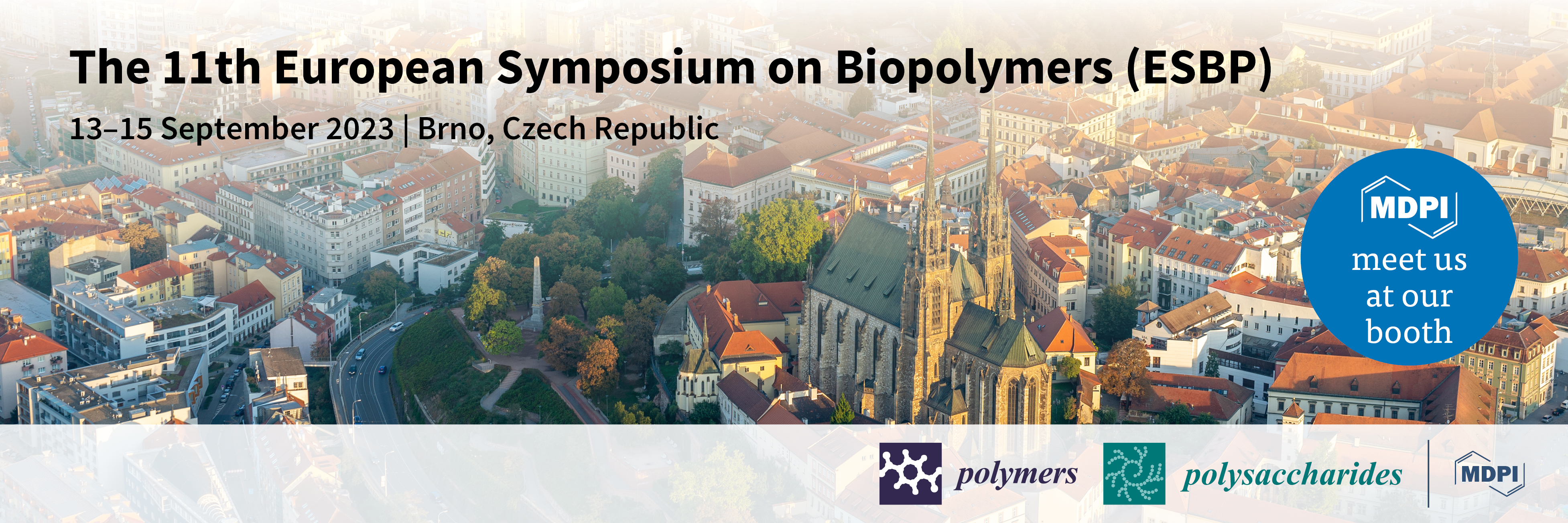
Conference: The 11th European Symposium on Biopolymers (ESBP)
Date: 13–15 September 2023
Place: Brno, Czech Republic
MDPI will be attending the 11th European Symposium on Biopolymers (ESBP). This meeting will be held at Brno Observatory and Planetarium, Brno, Czech Republic, from 13 to 15 September 2023. The organizing committee comprises the Brno University of Technology. The theme of the conference is biopolymers, which include polyesters, polysaccharides, polyamides, polyphosphates, and other polymeric materials of natural origin. Through this meeting, we wish to discuss the potential of molecular biology or biotechnology from material sciences.
The MDPI journals Polymers and Polysaccharides will be represented.
If you are attending this conference, please feel free to start a conversation with us. Our delegates look forward to meeting you in person and answering any questions that you may have. For more information about the conference, please visit https://esbp2023.com/.
6 September 2023
Recap of Awards Granted to Scholars in 2022

MDPI is committed to supporting the academic community, nurturing talent and advancing science. Awards are an important part of the research landscape and play a vital role in helping academics gain recognition, especially young researchers as they embark on new research avenues.
In 2022, our journals presented a total number of 394 Awards, including Travel Awards, Young Investigator Awards, Best PhD Thesis Awards, Best Paper Awards, and Outstanding Reviewer Awards, with several winners announced for some of the awards. The total prize sum amounted to just under 580,000 Swiss francs (CHF), or approximately 650,000 US dollars. Overall, more than 720 scholars were awarded.
The majority of the awards were dedicated to young researchers in relatively early stages of their careers. This encompassed 66 of the afore-mentioned Travel Awards, 60 Young Investigator Awards, supporting research projects and conference attendance, as well as 51 Best PhD Thesis Awards. Additionally, 113 Best Paper Awards were given by our journals. The selection committees were entrusted with identifying the most impactful and novel research and review articles published in their journal within a given year.
MDPI will continue its support and recognition for the academic community moving forward, sponsoring new awards across disciplines. To learn more about all the awardees and their research projects in your field of study, please visit the following pages:
To explore more MDPI awards, please click here.
5 September 2023
Meet Us at the 16th China Pharmaceutical Preparations Conference, 15–17 September 2023, Changsha, China

The upcoming conference is the 16th so far, and it has become an important conference in the field of pharmaceutical research in China. The theme of this formulation conference is "New Technologies, New Opportunities, and New Challenges" which will be held in Changsha, China. Experts from various fields and directions in pharmacy at home and abroad will be invited to conduct exchanges and discussions on theoretical research, technology applications, policies, and regulations on pharmaceutical formulations. In addition to the main venue, the conference also has a basic pharmacy forum (targeted drug delivery strategy, controlled release strategy), industrial pharmacy forum, International Controlled Release Association China Branch Forum, external preparations forum, improved new drugs and clinical research forum, medicinal excipients and pharmaceutical packaging materials forum, preparation R&D services and equipment forum, young pharmaceutical workers forum, graduate student forum, and other sub-venues.
Pharmaceutics (ISSN: 1999-4923) is a peer-reviewed, open access journal on the science and technology of pharmaceutics and biopharmaceutics, and it is published monthly online by MDPI. Pharmaceutics will participate in this event as an exhibitor together with seven other MDPI journals.
The following MDPI journals will be represented:
- Pharmaceutics (leading);
- Biomedicines;
- Medicina;
- Hematology Reports;
- Polymers;
- Future Pharmacology;
- Pharmacy;
- Bioengineering.
If you are attending this conference, please feel free to start a conversation with us at our booth #A39. Our delegates look forward to meeting you in person and answering any questions that you may have.
For more information, please feel free to contact the Pharmaceutics Editorial Office at pharmaceutics@mdpi.com.
30 August 2023
MDPI Insights: The CEO’s Letter #3 - Sustainability and Co-opetition

Welcome to the MDPI Insights: The CEO's Letter.
In these monthly letters, I will showcase two key aspects of our work at MDPI: our commitment to empowering researchers and our determination to facilitating open scientific exchange.
Opening Thoughts

Our Commitment to Sustainability
As a pioneer in academic open access publishing since 1996, MDPI has always been dedicated to facilitating scientific exchange across all disciplines. Our approach to open science is guided by principles such as Open Access (OA), Timeliness and Efficiency, Simplicity, High-Quality Service, Flexibility, and a commitment to Sustainability. This commitment involves preserving published papers for the long term and supporting the future of science through partnerships, sponsorships, and awards.
In this edition of the CEO Letter, I will delve into MDPI’s various sustainability initiatives. As a leader in OA publishing, we are able to provide the public with a significant amount of environment-related content at no cost.
MDPI and the Sustainable Development Goals (SDGs)
In 2020, the SDG Publishers Compact was launched to accelerate implementation of the SDGs by promoting content that informs, develops, and inspires action. MDPI joined this initiative in 2021 and subsequently launched the MDPI SDG Hub in 2022, offering free access to recent research within the scope of each of the 17 SDGs. We also support authors from underrepresented communities by waiving publication charges for selected SDG-related papers. Detailed sustainability practices and supported publications are available in the report under each Goal page.
“More than 80% of MDPI articles and reviews published in 2022 relate to the Sustainable Development Goals.” [source: InCites, Accessed on 21.08.2023]
As at August 2023, MDPI boasts 14 journals dedicated to sustainability-related topics. Our first journal in this area, Sustainability, has published over 29,000 articles on the SDGs, accumulating over 240,000 citations (source: InCites, as at 1 January 2023). These journals serve as vital platforms for researchers to share insights and address environmental challenges. In addition:
MDPI journals specializing in sustainability-related topics:
- 2009: Sustainability
- 2012: Resources
- 2013: Climate
- 2014: Environments
- 2016: Recycling
- 2019: Clean Technologies
- 2020: Sustainable Chemistry
- 2021: Wind, Biomass, Conservation, Pollutants, Solar
- 2022: Waste, Microplastics
Read more:
Impactful Research

Highly Cited Articles in Sustainability
In 2022, content published in Sustainability and indexed in Journal Citation Reports (JCR) received nearly 190,000 citations. This highlights the fact that Sustainability publishes highly cited research articles related to environmental sciences and SDG-related topics such as climate action.
We are pleased to share that Sustainability received a 2022 CiteScore of 5.8, marking a 16% increase from the 2021 metric. Specifically, the CiteScore positions Sustainability as follows: Q1 (27 out of 163) in the “Environmental Science (miscellaneous)” category, and Q1 (101 out of 779) in the “Geography Planning and Development” category. For additional journal statistics, please visit here.
“Sustainability received a 2022 CiteScore of 5.8”
While MDPI journals such as Climate and Atmosphere have a distinct focus on atmosphere pollution and its impact on climate processes, journals like Sustainability, Environments, Water, Remote Sensing, and IJERPH publish content related to climate change. These journals have published over 32,300 articles related to SDG 13: Climate Action.
Highly Cited Papers in Sustainability
Below are several highly cited papers published in Sustainability over the past three years. Citation metrics are current as at 15 August 2023.
1. “A Global Assessment: Can Renewable Energy Replace Fossil Fuels by 2050?”Authors: Jerry L. Holechek, Hatim M. E. Geli, Mohammed N. Sawalhah, and Raul Valdez
Sustainability 2022, 14(8), 4792; https://doi.org/10.3390/su14084792
Citations: Crossref (97), Scopus (91), Web of Science (82), Google Scholar (125)
This paper addresses one of the most significant challenges of climate change – achieving Net Zero Carbon by 2050. The meta-analysis suggests that while difficult, this transition is possible through the concerted application of pathways, lifestyle changes, and global cooperation.
2. “Anxiety and the Ecological Crisis: An Analysis of Eco-Anxiety and Climate Anxiety”Author: Panu Pihkala
Sustainability 2020, 12(19), 7836; https://doi.org/10.3390/su12197836
Citations: Crossref (144), Scopus (121), Web of Science (159), Google Scholar (382)
This paper has received substantial media attention, including coverage by The Guardian, BBC, Vice, and CNBC. An interview with Dr. Panu Pihkala, a leading interdisciplinary researcher on the topic, can be found on MDPI’s podcast: Insight Faster, Episode 1.
3. “Impact of Climate Change on Agriculture and Its Mitigation Strategies: A Review”Authors: Gurdeep Singh Malhi, Manpreet Kaur, and Prashant Kaushik
Sustainability 2021, 13(3), 1318; https://doi.org/10.3390/su13031318
Citations: Crossref (207), Scopus (221), Web of Science (186), Google Scholar (355)
This paper reviews literature on climate change, addressing its causes, future projections, impact on agriculture, including plant physiology, growth, productivity, pest infestation, and the economic implications of mitigation strategies.
4. “Impacts of Plastic Pollution on Ecosystem Services, Sustainable Development Goals, and Need to Focus on Circular Economy and Policy Interventions”Authors: Rakesh Kumar, Anurag Verma, Arkajyoti Shome, Rama Sinha, Srishti Sinha, Prakash Kumar Jha, Ritesh Kumar, Pawan Kumar, Shubham, Shreyas Das, Prabhakar Sharma, and P. V. Vara Prasad
Sustainability 2021, 13(17), 9963; https://doi.org/10.3390/su13179963
Citations: Crossref (134), Scopus (136), Web of Science (113), Google Scholar (184)
This review aims to assess the adverse effects of plastic pollution on ecosystems, link the management of plastic with the SDGs, and propose policy measures using transdisciplinary approaches. Empowering communities to reduce plastic use is crucial. Addressing global plastic pollution is a priority.
Sustainability is an international, cross-disciplinary, open access journal that explores environmental, cultural, economic, and social sustainability of human beings. It provides a forward-looking platform for research on sustainability and sustainable development, and is published semi-monthly online by MDPI. Sustainability is affiliated with The Canadian Urban Transit Research & Innovation Consortium (CUTRIC) and The International Council for Research and Innovation in Building and Construction (CIB).
Read more:
- Testimonials: See what our editors and authors say about Sustainability.
Inside MDPI

President of Ireland Authors Editorial in MDPI Journal Sustainability
It’s a very special occasion when the president of a country takes the initiative to write an editorial for a journal. Michael D. Higgins, President of the Republic of Ireland, has contributed his insights to a forthcoming Special Issue in Sustainability:

This Special Issue, focusing on “making sustainable development happen” at grassroots levels, allows for perspectives from, and on, the major world faiths, exploring how challenges have been conceptualised and addressed, in addition to case studies of faith-based sustainability initiatives in practice.
The experience of faith institutions and communities in translating theological and moral commitments to sustainable development into action is now a topic we must examine with urgency; one on which I am so glad this Special Issue focuses.
As President of Ireland, I very much support this Special Issue of Sustainability. It is my great hope that the contents of the papers contained herein will assist in making sustainable development happen at grassroots levels across the world so that we can cooperate together, people of faith and of none, to ensure a just, inclusive and sustainable future for all on our fragile planet.
Read the completed editorial here:
Special Issue “Faith and Sustainable Development: Exploring Practice, Progress and Challenges among Faith Communities and Institutions”: Foreword by the President of Ireland
Author: Michael D. Higgins
Sustainability 2023, 15(12), 9683; https://doi.org/10.3390/su15129683
Coming Together for Science

The World Sustainability Forum 2023
The World Sustainability Forum (WSF) is a biennial MDPI event focused on sustainability. WSF 2023 marks the tenth anniversary of the conference series, taking place on 14 September. For the first time, the event will be hosted as a 24-hour conference across three locations – Singapore, Basel in Switzerland, and Toronto in Canada – alongside virtual streaming.
This unique format allows us to span three time zones, providing live coverage of critical sustainability-related topics throughout the day:
- The Singapore Hub, chaired by Professor Horn Mun Cheah and Associate Professor Renee Tan, will explore “Sustainability for Social and Community Impact”.
- The Basel Hub, chaired by Prof. Dr. Anet Režek Jambrak and Dr. Lela Mélon, will delve into “Sustainability in the industry, and at university and corporate settings”.
- The Toronto Hub, led by Dr. Umberto Berardi, will discuss “The Sustainable Built Environment”.
MDPI Sustainability Foundation: Recognizing Excellence in Sustainability Research
The MDPI Sustainability Foundation supports researchers through two sustainability-focused awards:
- The World Sustainability Award, amounting to USD 100,000, is given to senior researchers.
- The Emerging Sustainability Leader Award, valued at USD 20,000, sponsored by the journal Sustainability, is presented to early-career researchers.
The winners of the Sustainability Foundation will be formally awarded during the WSF2023 on 14 September. Interviews with the award winners and finalists are available below.
2023 World Sustainability Award Winners
Interviews with 2023 Emerging Sustainability Leader Award Finalists
- Dr. Bahareh Kamranzad
- Dr. Youjin Kim
- Dr. Julia Lohmann
As a hybrid event, WSF23 provides scholars with the option to attend in person at one of the conference sites or, for a more sustainable approach, virtually. All sessions will be recorded and archived for future access. Registration is open until 3 September 2023, with in-person and virtual tickets available here.
Read more:
Closing Thoughts
“Co-opetition”: Collaboration Plus Healthy Competition – A Visit to Elsevier
I firmly believe in fostering collaboration and at the same time promoting healthy competition within the academic publishing industry. The market offers ample room for publishers and related companies to provide valuable services and products that enrich the academic community. While MDPI is recognized for its efficient and streamlined processes –thanks to our over 6,000 colleagues, in-house tools, and initiatives that support the author journey – our ethos has always involved learning from and collaborating with other organizations.
MDPI’s Interaction with Elsevier
In January 2023, I had a brief conversation with Judy Verses, President of Global Academic and Government Markets at Elsevier, following her participation in a panel discussion at the Academic Publishers Europe event in Berlin. One of the highlights for me was Judy’s insight into the impact of research, particularly her emphasis on the role of collaboration, including policy and showing the impact of research to influence on funding decisions.
“Such collaborations drive forward-looking strategies to elevate our support for the scholarly community”

Judy and I resumed our discussion in August, when I visited Elsevier's office to review current projects, such as our recent agreement with Science Direct and the continued indexing of MDPI journals in Scopus (indexing database owned by Elsevier). We also explored possible opportunities for the future, including a potential collaboration to expand MDPI’s Scilit data infrastructure. This endeavour aims to aggregate and provide access to scholarly metadata encompassing journal articles, conference papers, books, preprints, and more. While these discussions are ongoing, the underlying principle remains that such collaborations drive forward-looking strategies to elevate our services and support for the scholarly community.
It was great that Judy and I acknowledged the merits of 'co-opetition,' a concept based of the belief that fostering cooperation alongside healthy competition can lead to shared advancements for both individual companies and the industry at large.
‘Fully OA’ Organizations Dedicated to Open Access

MDPI proudly aligns with the ‘Fully OA’ group, a collaborative initiative comprising nine organizations dedicated to Open Access. Our monthly meetings, including an OASPA representative, serve as platforms to share non-confidential information, resources, and projects. These gatherings also facilitate discussions on topics relevant to fully OA organizations. Occasionally, joint actions spring from these interactions, such as collaborative blog posts on pertinent subjects and joint statements, such as a recent response to the House Appropriations Committee.
This display of cooperation among competing entities forms a strategic alliance focused on nurturing the best interests of the OA publishing model.
As I wrap up this third edition of the CEO Letter, I encourage you to seize opportunities for collaboration and contribute to advancing our shared academic culture. As the African proverb has it, “If you want to go fast, go alone; if you want to go far, go together.”
Chief Executive Officer
MDPI AG
18 August 2023
Meet Us at the 2023 China Biomaterials Conference, 12–15 October 2023, Chongqing, China

Conference: 2023 China Biomaterials Conference (CSBM2023)
Date: 12–15 October 2023
Booth: #B4
MDPI journals will be attending the 2023 China Biomaterials Conference (CSBM2023) as an exhibitor. This meeting will be held in Chongqing, China, from 12 to 15 October 2023.
The theme of the conference is “Innovative Biomaterials to Protect People's Health”, focusing on the frontiers of biomaterials science, technological innovation, achievement transformation, regulatory science, etc., to discuss and share the latest developments in the current field of biomaterials.
The following MDPI journals will be represented:
- IJMS;
- JFB;
- Bioengineering;
- Biomimetics;
- Marine Drugs;
- Polymers;
- Nanomaterials;
- Biomedicines;
- Micromachines;
- Pharmaceutics;
- Electrochem.
If you plan on attending this conference, please feel free to stop by our booth (#B4) and speak with us. Our delegates look forward to meeting you in person and answering any questions that you may have.
For more information about the conference, please visit http://2023.csbm.org.cn/index.php/index/index/index.html.
17 August 2023
MDPI’s 2022 Young Investigator Awards in Chemistry and Materials Science—Winners Announced
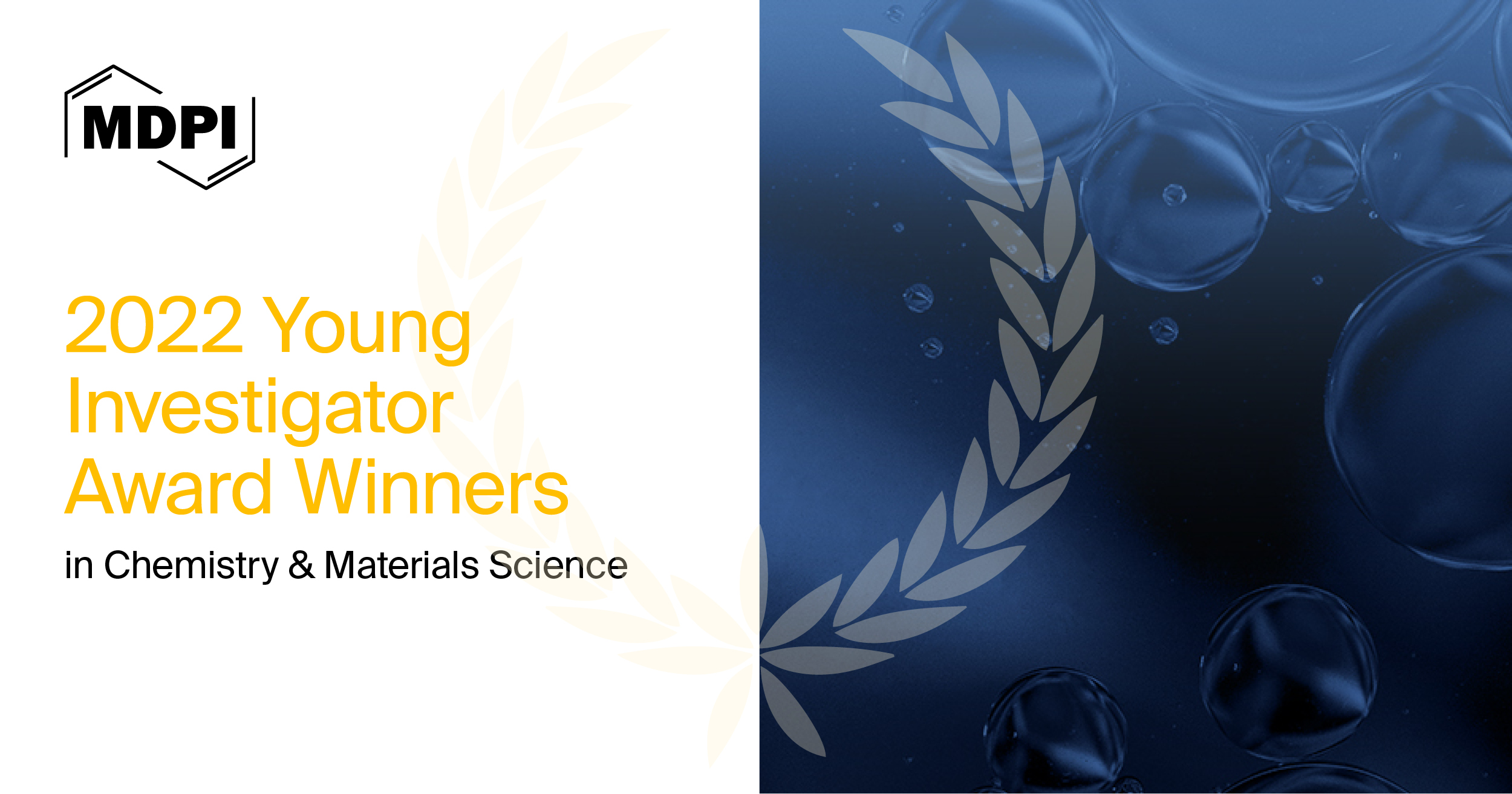
MDPI’s Young Investigator Awards recognize promising junior researchers, acknowledge their contributions, and enhance communication among scientists. We are proud to present the winners for the year 2022 in chemistry and materials science. The winners were selected by the journals’ Award Evaluation Committee.
We warmly congratulate the awarded young investigators for their outstanding contributions. MDPI will continue to provide support and recognition for the academic community.
- Mattia Biesuz, University of Trento, Italy
- Yonggang Yao, Huazhong University of Science and Technology, China
- Cesar de la Fuente-Nunez, University of Pennsylvania, USA
- Liang Huang, Huazhong University of Science and Technology, China
- Aiping Chen, Center for Integrated Nanotechnologies (CINT), USA
- Leonardo Ricotti, BioRobotics Institute of Scuola Superiore Sant’Anna (SSSA), Italy
About MDPI Awards:
In order to reward the academic community, especially young researchers, and enhance communication among scientists, MDPI journals regularly offer various awards to researchers in specific fields. These awards, serving as a source of inspiration and recognition, help raise the influence of talented individuals who have been credited with outstanding achievements and are making a significant contribution to the advancement of their fields.
To see more MDPI awards, click here.
17 August 2023
MDPI’s 2022 Travel Awards in Chemistry and Materials Science—Winners Announced
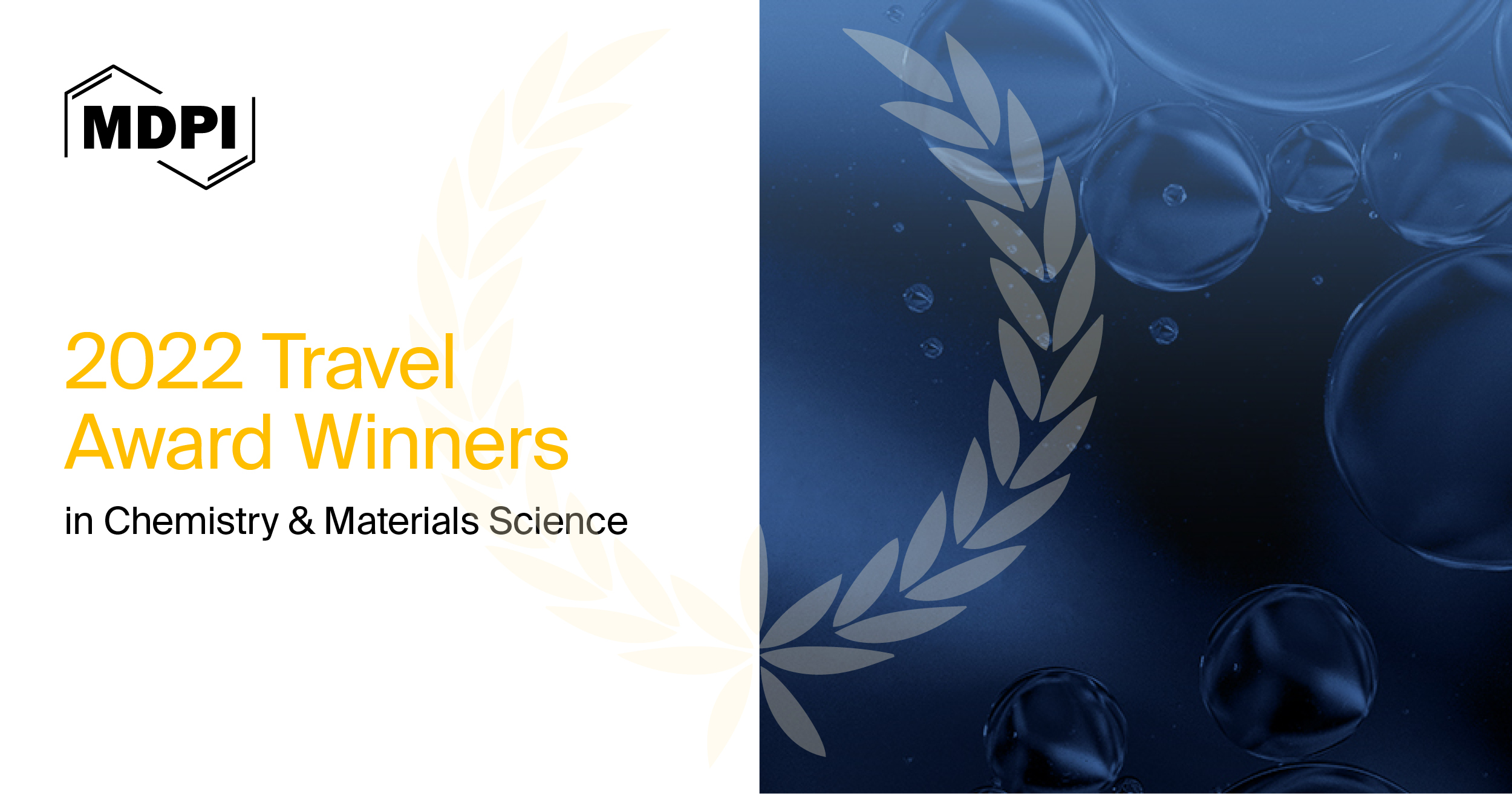
We are proud to recognize the winners of MDPI’s 2022 Travel Awards in chemistry and materials science for their outstanding presentations and present them with the prize.
MDPI journals regularly offer travel awards to encourage junior scientists to present their latest research at academic conferences in specific fields, which helps increase their influence.
The winners mentioned below were carefully selected by the journal editors based on an outline of their research and the work to be presented at an academic conference.
We would like to warmly congratulate the winners of the 2022 Travel Awards and wish them the greatest success with their future research endeavors. MDPI will continue to enhance communication among scientists.
- Shiva Mohajernia, University of Siegen, Germany
- Maria Antonietta Casulli, Sophia University Yotsuya Campus, Japan
Gels:
- Lan Xiao, Queensland University of Technology, Australia
- Danila Merino, Smart Materials Group of the Italian Institute of Technology, Italy
- Elena Blundo, University of Rome, Italy
- Arun Kumar, Institute for Microelectronics and Microsystems, Italy
- Elena Blundo, Sapienza University of Rome, Italy
- Tonni Agustiono Kurniawan, Universiti Teknologi Malaysia, Malaysia
About MDPI Awards:
In order to reward the academic community, especially young researchers, and enhance communication among scientists, MDPI journals regularly offer various awards to researchers in specific fields. These awards, serving as a source of inspiration and recognition, help raise the influence of talented individuals who have been credited with outstanding achievements and are making a significant contribution to the advancement of their fields.
To see more MDPI awards, click here.
17 August 2023
MDPI’s 2022 Outstanding Reviewer Awards in Chemistry and Materials Science—Winners Announced
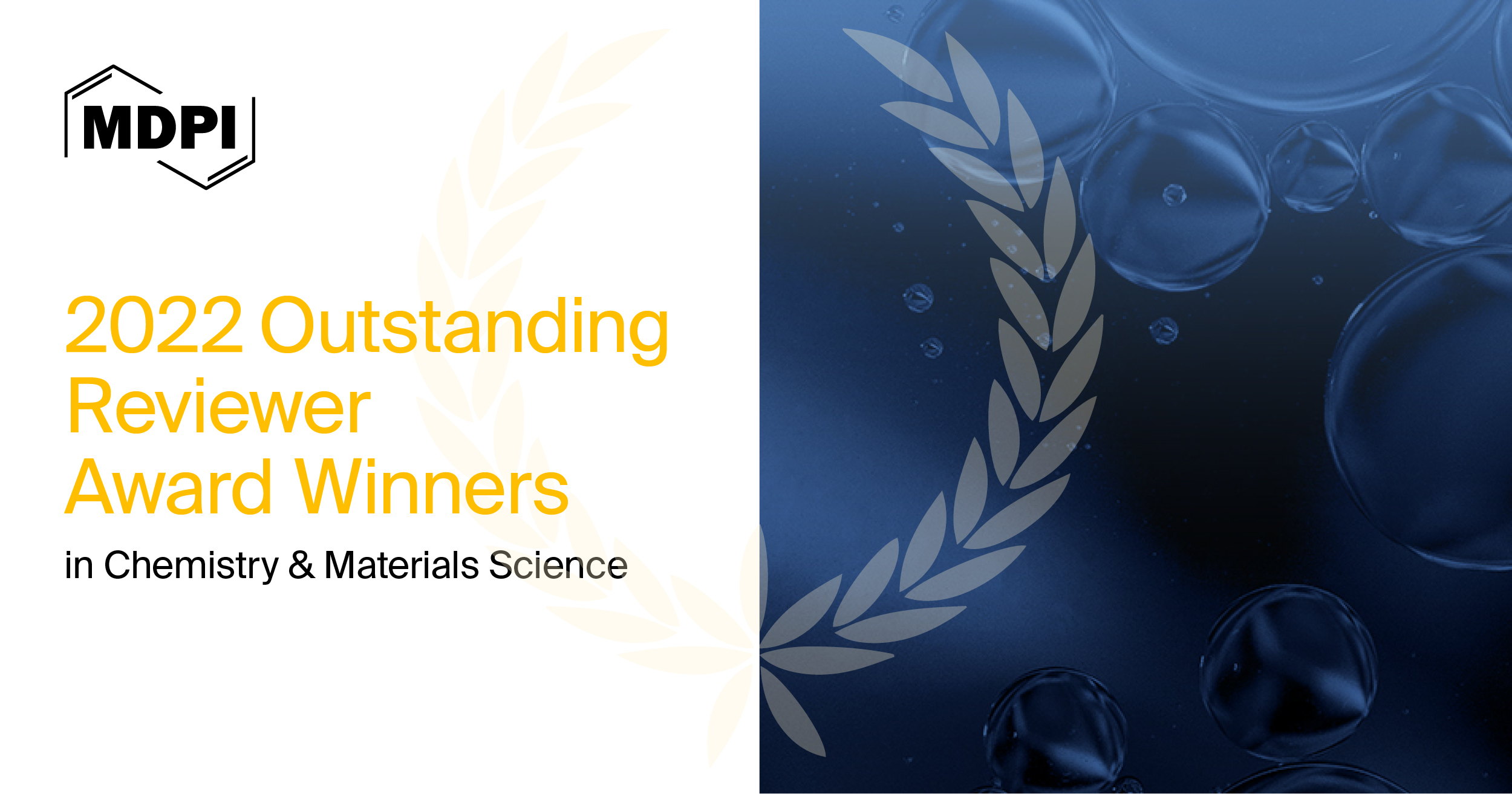
In order to acknowledge our reviewers, who so generously dedicate their time to reviewing papers and demonstrate diligence, professionalism, and timeliness when reviewing manuscripts, MDPI journals regularly offer outstanding reviewer awards to scholars who participate in the peer-review process.
We are proud to recognize the winners for the 2022 Outstanding Reviewer Awards in chemistry and materials science for their outstanding contributions among the extensive competition.
We would like to take this opportunity to congratulate all the winners on their achievements. MDPI will continue to provide support and recognition for the academic community.
- Aleksandr S. Kazachenko, Institute of Chemistry and Chemical Technology Siberian Branch of Russian Academy of Science, Russia
- Ionut Banu, University Politehnica of Bucharest, Romania
- Shahid Zaman, Southern University of Science and Technology, China
- Rahat Javaid, Fukushima Renewable Energy Institute, Japan
- Anca Mazare, Friedrich-Alexander University, Germany
- Costica Bejinariu, Gheorghe Asachi Technical University of Iasi, Romania
- Aref Abbasi Moud, University of British Columbia, Canada
- Amit Kenny, Shamoon College of Engineering, Ashdod, Israel
Gels:
- Bapan Pramanik, Ben-Gurion University of the Negev, Israel
- Mutian Hua, University of California, USA
JFB:
- Elisa Boanini, University of Bologna, Italy
- Alexander Sobolev, Ariel University, Israel
- Anca Mazare, Friedrich Alexander University of Erlangen Nurnberg, Germany
- László Almásy, Centre for Energy Research, Hungary
- Valerio Belardi, University of Rome Tor Vergata, Italy
- Wenbin Zhou, Imperial College London, UK
- Piotr A. Gauden, Nicholas Copernicus University, Poland
- Moustafa Darwish, Tanta University, Egypt
- Wolfgang Löser, Leibniz Institute for Solid State and Materials Research (IFW), Germany
- Weimin Wang, Shandong University, China
- Gueorgui Gueorguiev, Linköping University, Sweden
- Tsung-Rong Kuo, Taipei Medical University, China
- Kisan Chhetri, Jeonbuk National University, Republic of Korea
- Yiwen Li, Sichuan University, China
- Saulius Grigalevicius, Kaunas University of Technology, Lithuania
- Mirela-Fernanda Zaltariov, “Petru Poni” Institute of Macromolecular Chemistry, Romania
- Narsimha Mamidi, University of Wisconsin-Madison, USA
- Nikolaos Politakos, University of the Basque Country, Spain
- Balawanthrao Jadhav, South Dakota State University, USA
- Łukasz Dąbrowski, Bydgoszcz University of Science and Technology, Poland
- Sidi Zhu, Nanjing University of Science and Technology, China
About MDPI Awards:
In order to reward the academic community, especially young researchers, and enhance communication among scientists, MDPI journals regularly offer various awards to researchers in specific fields. These awards, serving as a source of inspiration and recognition, help raise the influence of talented individuals who have been credited with outstanding achievements and are making a significant contribution to the advancement of their fields.
For more MDPI awards, click here.
17 August 2023
MDPI’s 2022 Best PhD Thesis Awards in Chemistry and Materials Science—Winners Announced

MDPI’s Best PhD Thesis Awards are presented to recognize the young scholars who are judged to have completed the most outstanding PhD thesis in their field of research, and to encourage them to continue their outstanding work and further contribution to their field.
We would like to warmly congratulate the winners of the 2022 Best PhD Thesis Awards and wish them success with their future research endeavors. MDPI will continue to enhance communication among scientists.
- “Metal Nanoparticle Carbon Nanocomposites to Produce Electrochemical Devices for Environmental Water Monitoring”
by Wenchao Duan, Institut de Ciència de Materials de Barcelona (ICMAB-CSIC) and Instituto de Microelectrónica de Barcelona (IMB-CNM-CSIC), Spain
- “Modeling and Design of a Phononic Crystal with Piezoelectric Defects for Broadband Energy Localization and Harvesting”
by Soo-Ho Jo, Department of Mechanical Engineering at Seoul National University, South Korea
- “A Decision-Support Framework for Smart and Sustainable Reverse Logistics Network Design”
by Xu Sun, The Arctic University of Norway, Norway
- “Polymer Drug Carriers for Immuno-Oncotherapy”
by Marina Rodrigues Tavares, Institute of Macromolecular Chemistry of the Czech Academy of Sciences, Czech Republic
- “Design and Fabrication of Advanced Materials Obtained from Hemp Fibers and Sustainable Polymers”
by Gianluca Viscusi, Department of Industrial Engineering-University of Salerno, Italy
- “Ultrafast Processes in Perylene and Rubrene Systems: Singlet Fission, Excimer Formation and Charge Transfer”
by Wenjun Ni, Dalian University of Technology, China
- “Computational and Experimental Thermo-Mechanics of Metal Additive Manufacturing: Stress, Warpage, Cracks and Properties”
by Xufei Lu, Technical University of Catalonia (UPC), Spain
- “Development of Modern Sample Preparation Techniques Utilizing Novel Materials Combined with Chromatographic and Spectrometric Methods for the Determination of Environmental Pollutants in Food and Environmental Samples”
by Natalia Manousi, Aristotle University of Thessaloniki, Greece
- “Studying Protein Function with Fluorescent Nanoantennas”
by Scott G. Harroun, University of Montreal, Canada
- “Predictive Modelling of Ultrafast Hot Carrier Dynamics and Nonlinear Photothermal Phenomena in Designer Nanophotonic Structures”
by Andrea Schirato, Politecnico di Milano, Italy
- “Studying Protein Function with Fluorescent Nanoantennas”
by Scott G. Harroun, Université de Montréal / Polytechnique Montréal, Canada
- “Formation, Modification and New Applications of Orderly Structured Titanium Oxide Nanostructures”
by Simonas Ramanavicius, State Research Institute Center for Physical Sciences and Technology, Lithuania
- “Electrochemical Routes for Upgrading Carbon-based Greenhouse Gases”
by Aditya Prajapati, Lawrence Livermore National Laboratory, USA
About MDPI Awards:
In order to reward the academic community, especially young researchers, and enhance communication among scientists, MDPI journals regularly offer various awards to researchers in specific fields. These awards, serving as a source of inspiration and recognition, help raise the influence of talented individuals who have been credited with outstanding achievements and are making a significant contribution to the advancement of their fields.
To see more MDPI awards, click here.
17 August 2023
MDPI’s Best Paper Awards in Chemistry and Materials Sciences—Winners Announced in 2022

The purpose of our best paper awards is to promote and recognize the most impactful contributions published within MDPI journals.
The editors of each journal have carefully selected reviews and research papers through a rigorous judging process based on criteria such as the scientific merit, overall impact and the quality of presentation of the papers published in the journal.
We are honored to present the winners announced in 2022 in chemistry and materials science, who were selected among an extensive competition, and congratulate the authors for their outstanding scientific publications. MDPI will continue to provide support and recognition for the academic community.
C:
- “Biochar and Energy Production: Valorizing Swine Manure through Coupling Co-Digestion and Pyrolysis”
by Rubén González, Judith González, José G. Rosas, Richard Smith and Xiomar Gómez
C 2020, 6(2), 43; https://doi.org/10.3390/c6020043
- “Introduction to Plasma Electrolytic Oxidation—An Overview of the Process and Applications”
by Frank Simchen, Maximilian Sieber, Alexander Kopp and Thomas Lampke
Coatings 2020, 10(7), 628; https://doi.org/10.3390/coatings10070628
- “First Insights into Photocatalytic Degradation of HDPE and LDPE Microplastics by a Mesoporous N–TiO2 Coating: Effect of Size and Shape of Microplastics”
by Brenda Estefanía Llorente-García, Juan Manuel Hernández-López, Antonio Alberto Zaldívar-Cadena, Cristina Siligardi and Erika Iveth Cedillo-González
Coatings 2020, 10(7), 658; https://doi.org/10.3390/coatings10070658
- “U-Jacketing Applications of Fiber-Reinforced Polymers in Reinforced Concrete T-Beams against Shear—Tests and Design”
by Constantin E. Chalioris, Adamantis G. Zapris and Chris G. Karayannis
Fibers 2020, 8(2), 13; https://doi.org/10.3390/fib8020013
- “Laser Sources Based on Rare-Earth Ion Doped Tellurite Glass Fibers and Microspheres”
by Elena A. Anashkina
Fibers 2020, 8(5), 30; https://doi.org/10.3390/fib8050030
- “Magnetic Materials and Systems: Domain Structure Visualization and Other Characterization Techniques for Application in Materials Science and Biomedicine”
by Roberto Nisticò, Federico Cesano and Francesca Garello
Inorganics 2020, 8(1), 6; https://doi.org/10.3390/inorganics8010006
- “Magnetic Composite Submicron Carriers with Structure-Dependent MRI Contrast”
by Anastasiia A. Kozlova, Sergey V. German, Vsevolod S. Atkin, Victor V. Zyev, Maxwell A. Astle, Daniil N. Bratashov, Yulia I. Svenskaya and Dmitry A. Gorin
Inorganics 2020, 8(2), 11; https://doi.org/10.3390/inorganics8020011
- “A Partial Anion Disorder in SrVO2H Induced by Biaxial Tensile Strain”
by Morito Namba, Hiroshi Takatsu, Wataru Yoshimune, Aurélien Daniel, Shoichi Itoh, Takahito Terashima and Hiroshi Kageyama
Inorganics 2020, 8(4), 26; https://doi.org/10.3390/inorganics8040026
- “Magnetic Nanoparticle Systems for Nanomedicine—A Materials Science Perspective”
by Vlad Socoliuc, Davide Peddis, Viktor I. Petrenko, Mikhail V. Avdeev, Daniela Susan-Resiga, Tamas Szabó, Rodica Turcu, Etelka Tombácz and Ladislau Vékás
Magnetochemistry 2020, 6(1), 2; https://doi.org/10.3390/magnetochemistry6010002
- “Magnetite (Fe3O4) Nanoparticles in Biomedical Application: From Synthesis to Surface Functionalisation”
by Lokesh Srinath Ganapathe, Mohd Ambri Mohamed, Rozan Mohamad Yunus and Dilla Duryha Berhanuddin
Magnetochemistry 2020, 6(4), 68; https://doi.org/10.3390/magnetochemistry6040068
- “Saturation of Specific Absorption Rate for Soft and Hard Spinel Ferrite Nanoparticles Synthesized by Polyol Process”
by Cristian Iacovita, Gabriela Fabiola Stiufiuc, Roxana Dudric, Nicoleta Vedeanu, Romulus Tetean, Rares Ionut Stiufiuc and Constantin Mihai Lucaciu
Magnetochemistry 2020, 6(2), 23; https://doi.org/10.3390/magnetochemistry6020023
- “False Chirality, Absolute Enantioselection and CP Violation: Pierre Curie’s Legacy”
by Laurence D. Barron
Magnetochemistry 2020, 6(1), 5; https://doi.org/10.3390/magnetochemistry6010005
- “A Broadband Tunable Terahertz Metamaterial Absorber Based on Single-Layer Complementary Gammadion-Shaped Graphene”
by Fu Chen, Yongzhi Cheng and Hui Luo
Materials 2020, 13(4), 860; https://doi.org/10.3390/ma13040860
- “3-D Printed Protective Equipment during COVID-19 Pandemic”
by Christian Wesemann, Stefano Pieralli, Tobias Fretwurs, Julian Nold, Katja Nelson, Rainer Schmelzeisen, Elmar Hellwig and Benedikt Christopher Spies
Materials 2020, 13(8), 1997; https://doi.org/10.3390/ma13081997
- “On the Vibrations and Stability of Moving Viscoelastic Axially Functionally Graded Nanobeams”
by Ali Shariati, Dong won Jun, Hamid Mohammad-Sedighi, Krzysztof Kamil Żur, Mostafa Habibi and Maryam Safa
Materials 2020, 13(7), 1707; https://doi.org/10.3390/ma13071707
- “Brief History of Early Lithium Battery Development”
by Mogalahalli V. Reddy, Alain Mauger, Christian M. Julien, Andrea Paolella and Karim Zaghib
Materials, 2020, 13(8), 1884; https://doi.org/10.3390/ma13081884
- “Face Masks and Respirators in the Fight Against the COVID-19 Pandemic: A Review of Current Materials, Advances and Future Perspectives”
by Kris O’Dowd, Keerthi M. Nair, Parnia Forouzandeh, Snehamol Mathew, Jamie Gran, Ruth Moran, John Bartlet, Jerry Bird and Suresh C. Pillai
Materials 2020, 13(15), 3363; https://doi.org/10.3390/ma13153363
- “Recent Trends in the Use of Pectin from Agro-Waste Residues as a Natural-Based Biopolymer for Food Packaging Applications”
by Cristina Mellinas, Marina Ramos, Alfonso Jiménez and María Carmen Garrigós
Materials 2020, 13(3), 673; https://doi.org/10.3390/ma13030673
- “Membrane Technologies in Wastewater Treatment: A Review”
by Elorm Obotey Ezugbe and Sudesh Rathilal
Membranes 2020, 10(5), 89; https://doi.org/10.3390/membranes10050089
- “Development of Hydrophilic PVDF Membrane Using Vapour Induced Phase Separation Method for Produced Water Treatment”
by Muhammad Roil Bilad, Normi Izati Mat Nawi, Min Chean Ho, Norazanita Shamsuddin, Thanitporn Narkkun, Kajornsak Faungnawakij and Asim Laeeq Khan
Membranes 2020, 10(6), 121; https://doi.org/10.3390/membranes10060121
- “Polymeric Nanoparticles: Production, Characterization, Toxicology and Ecotoxicology”
by Aleksandra Zielińska, Filipa Carreiró, Ana M. Oliveira, Andreia Neves, Bárbara Pires, D. Nagasamy Venkatesh, Alessandra Durazzo, Massimo Lucarini, Piotr Eder, Amélia M. Silva et al.
Molecules 2020, 25(16), 3731; https://doi.org/10.3390/molecules25163731
- “Nanomaterials for Wound Dressings: An Up-to-Date Overview”
by Alexandra Elena Stoica, Cristina Chircov and Alexandru Mihai Grumezescu
Molecules 2020, 25(11), 2699; https://doi.org/10.3390/molecules25112699
- “PROTACs and Building Blocks: The 2D Chemical Space in Very Early Drug Discovery”
by Giuseppe Ermondi, Diego Garcia-Jimenez and Giulia Caron
Molecules 2021, 26(3), 672; https://doi.org/10.3390/molecules26030672
- “LncMirNet: Predicting LncRNA–miRNA Interaction Based on Deep Learning of Ribonucleic Acid Sequences”
by Sen Yang, Yan Wang, Yu Lin, Dan Shao, Kai He and Lan Huang
Molecules 2020, 25(19), 4372; https://doi.org/10.3390/molecules25194372
- “Merging Ligand-Based and Structure-Based Methods in Drug Discovery: An Overview of Combined Virtual Screening Approaches”
by Javier Vázquez, Manel López, Enric Gibert, Enric Herrero and F. Javier Luque
Molecules 2020, 25(20), 4723; https://doi.org/10.3390/molecules25204723
- “The Protective Role of Butyrate against Obesity and Obesity-Related Diseases”
by Serena Coppola, Carmen Avagliano, Antonio Calignano and Roberto Berni Canani
Molecules 2021, 26(3), 682; https://doi.org/10.3390/molecules26030682
- “Cyanogenic Glycoside Analysis in American Elderberry”
by Michael K. Appenteng, Ritter Krueger, Mitch C. Johnson, Harrison Ingold, Richard Bell, Andrew L. Thomas and C. Michael Greenlief
Molecules 2021, 26(5), 1384; https://doi.org/10.3390/molecules26051384
- “Amygdalin: Toxicity, Anticancer Activity and Analytical Procedures for Its Determination in Plant Seeds”
by Ewa Jaszczak-Wilke, Żaneta Polkowska, Marek Koprowski, Krzysztof Owsianik, Alyson E. Mitchell and Piotr Bałczewski
Molecules 2021, 26(8), 2253; https://doi.org/10.3390/molecules26082253
- “Perfect Dual-Band Absorber Based on Plasmonic Effect with the Cross-Hair/Nanorod Combination”
by Yuan-Fong Chou Chau, Chung-Ting Chou Chao, Hung Ji Huang, Muhammad Raziq Rahimi Kooh, N. T. R. N. Kumara, Chee Ming Lim and Hai-Pang Chiang
Nanomaterials 2020, 10(3), 493; https://doi.org/10.3390/nano10030493
- “Titanium Dioxide Nanoparticles: Prospects and Applications in Medicine”
by Daniel Ziental, Beata Czarczynska-Goslinska, Dariusz T. Mlynarczyk, Arleta Glowacka-Sobotta, Beata Stanisz, Tomasz Goslinski and Lukasz Sobotta
Nanomaterials 2020, 10(2), 387; https://doi.org/10.3390/nano10020387
- “High Quality Factor, High Sensitivity Metamaterial Graphene—Perfect Absorber Based on Critical Coupling Theory and Impedance Matching”
by Chunlian Cen, Zeqiang Chen, Danyang Xu, Liying Jiang, Xifang Chen, Zao Yi, Pinghui Wu, Gongfa Li and Yougen Yi
Nanomaterials 2020, 10(1), 95; https://doi.org/10.3390/nano10010095
- “An Overview of Micro- and Nanoemulsions as Vehicles for Essential Oils: Formulation, Preparation and Stability”
by Lucia Pavoni, Diego Romano Perinelli, Giulia Bonacucina, Marco Cespi and Giovanni Filippo Palmieri
Nanomaterials 2020, 10(1), 135; https://doi.org/10.3390/nano10010135
- “Making Nd3+ a Sensitive Luminescent Thermometer for Physiological Temperatures—An Account of Pitfalls in Boltzmann Thermometry”
by Markus Suta, Željka Antić, Vesna Ðorđević, Sanja Kuzman, Miroslav D. Dramićanin and Andries Meijerink
Nanomaterials 2020, 10(3), 543; https://doi.org/10.3390/nano10030543
- “Metal-Based Nanoparticles as Antimicrobial Agents: An Overview”
by Elena Sánchez-López, Daniela Gomes, Gerard Esteruelas, Lorena Bonilla, Ana Laura Lopez-Machado, Ruth Galindo, Amanda Cano, Marta Espina, Miren Ettcheto, Antoni Camins et al.
Nanomaterials 2020, 10(2), 292; https://doi.org/10.3390/nano10020292
- “Core–Shell Eudragit S100 Nanofibers Prepared via Triaxial Electrospinning to Provide a Colon-Targeted Extended Drug Release”
by Yanfei Ding, Cheng Dou, Shuyue Chang, Zhengming Xie, Deng-Guang Yu, Yanan Liu and Jun Shao
Polymers 2020, 12(9), 2034; https://doi.org/10.3390/polym12092034
- “The Inhibition Property and Mechanism of a Novel Low Molecular Weight Zwitterionic Copolymer for Improving Wellbore Stability”
by Weichao Du, Michal Slaný, Xiangyun Wang, Gang Chen and Jie Zhang
Polymers 2020, 12(3), 708; https://doi.org/10.3390/polym12030708
- “Solid Polymer Electrolytes with Flexible Framework of SiO2 Nanofibers for Highly Safe Solid Lithium Batteries”
by Jin Cui, Zehao Zhou, Mengyang Jia, Xin Chen, Chuan Shi, Ning Zhao and Xiangxin Guo
Polymers 2020, 12(6), 1324; https://doi.org/10.3390/polym12061324
- “Conducting Polymers in the Design of Biosensors and Biofuel Cells”
by Simonas Ramanavicius and Arunas Ramanavicius
Polymers 2021, 13(1), 49; https://doi.org/10.3390/polym13010049
About MDPI Awards:
In order to reward the academic community, especially young researchers, and enhance communication among scientists, MDPI journals regularly offer various awards to researchers in specific fields. These awards, serving as a source of inspiration and recognition, help raise the influence of talented individuals who have been credited with outstanding achievements and are making a significant contribution to the advancement of their fields.
To see more MDPI awards, click here.
14 August 2023
Meet Us at the 17th European Congress and Exhibition on Advanced Materials and Processes (FEMS EUROMAT 2023), 3–7 September 2023, Frankfurt am Main, Germany

The 17th European Congress and Exhibition on Advanced Materials and Processes (FEMS EUROMAT 2023) will be held from 3 to 7 September 2023, in Frankfurt am Main, Germany. The conference is organized by the German Materials Society.
Areas include the following:
- Functional materials;
- Structural materials;
- Processing;
- Characterization and modeling;
- Energy and transportation;
- Materials for healthcare;
- Education, strategy, and technology transfer;
- Materials for circularity and sustainability.
The following MDPI journals will be represented:
If you are attending this conference, please feel free to start an online conversation with us. Our delegates look forward to meeting you in person at booth #B-20 and answering any questions that you may have. For more information about the conference, please visit the following link: https://euromat2023.com/congress/welcome-address.
27 July 2023
MDPI Insights: The CEO’s Letter #2 - Open Peer-Review and IJERPH

Welcome to the MDPI Insights: The CEO's Letter.
In these monthly letters, I will showcase two key aspects of our work at MDPI: our commitment to empowering researchers and our determination to facilitating open scientific exchange.
Opening Thoughts

Open Peer Review Reports
Continuing the topic of openness from my inaugural monthly CEO letter, in these Opening Thoughts, I highlight the growth and importance of open peer-review reports at MDPI. Open peer reports align with the principles of open science, making the publishing process more transparent and facilitating rigorous peer review.
MDPI journals operate an open peer-review option by default, allowing authors to publish review reports and author responses (often referred to as open reports) together with the published paper. Publishing the reviewer reports and author responses together with the article provides greater transparency and trust for readers, as this allows them to track the editorial decision-making process. Open peer-review also encourages reviewers and editors to provide high-quality comments, as these will be made public if the article is accepted for publication.
Start and Growth of Open Peer Review at MDPI
The MDPI journal Life was a pioneer in offering this opportunity to its authors in 2014. The first MDPI article with peer-review reports openly published was a review by the Nobel Laureate Werner Arber, in which the review reports were published as supplementary material. By 2018, open peer-review was available across all MDPI journals. As such, MDPI authors have embraced the open peer-review model, providing a steady increase in the number of MDPI articles. As of 2023, approximately one-third (34.0%) of MDPI articles were published with open review reports.
As at July 2023, the percentage of MDPI articles published with open peer review has increased to 36.2% of the total papers published in 2023 so far, indicating ongoing growth in adoption.
Open peer review continues to play a critical role in the assessment of the peer-review process in Life. For further insights, please see the recent editorial by Dr. Pabulo Henrique Rampelotto, the former Editor-in-Chief of Life, who spearheaded the implementation of the open peer-review process.
Benefits of Open Peer Review
The benefits of open peer review include increased transparency, trust and constructive feedback. To promote open communication further and increase the robustness of the peer-review process, we encourage reviewers to sign their reports so that their name appears on the review report (this process is referred to as open identity). The default option is for reviewers to remain anonymous; however, by signing the reports, reviewers receive direct credit for their contribution to the peer-review process and show their commitment towards open science.
As the leading open access publisher, MDPI remains committed to promoting open peer-review and encourages authors to choose this approach. Our goal is to provide a rigorous and transparent peer-review process that benefits the scientific community, and we believe that open peer-review is a vital step in fostering openness and collaboration in scientific communication.
Impactful Research

MDPI Papers Cited in the News – IJERPH edition
Every month, our corporate marketing team compiles data from Altmetrics to create a list of MDPI papers that have been cited in the news. This list continues to grow as renowned news outlets regularly reference research published by MDPI in their articles.
During 2022, a total of 111,965 MDPI research papers were mentioned in prominent news outlets such as National Geographic, The Washington Post, Forbes, The Guardian, the BBC, CNN, Time, and Harvard Business Review.
Highly Cited Journal Publications
IJERPH, known for publishing impactful research, received the most news mentions among all MDPI journals in 2022, based on Altmetrics data:
- International Journal of Environmental Research and Public Health: 3509 mentions
- Nutrients: 2698 mentions
- International Journal of Molecular Sciences: 1701 mentions
- Journal of Clinical Medicine: 1131 mentions
- Viruses: 1111 mentions
These numbers show the recognition and impact of the articles published in IJERPH. For a more detailed view of the journal’s most cited and viewed papers, you can visit here. In total, IJERPH has garnered over 28,000 mentions in prominent news outlets, and as at July 2023, an impressive count of over 17,000 papers cited 10 times or more. These figures highlight the impactful contribution of IJERPH publications to the scientific community.
Example of Recent Mentions
During May and June 2023, a noteworthy selection of articles from IJERPH was cited in news articles, including:
The Washington Post: “Bringing nature inside can improve your health. Here’s how to do it.”
IJERPH paper: “Physiological Benefits of Viewing Nature: A Systematic Review of Indoor Experiments”
Harvard Business Review: “How to Take Better Breaks at Work, According to Research”
IJERPH paper: “Canine-Assisted Therapy Improves Well-Being in Nurses”
National Geographic: “Lyme disease is spreading fast—but a vaccine may be on the way”
IJERPH paper: “Range Expansion of Tick Disease Vectors in North America: Implications for Spread of Tick-Borne Disease”
Inside MDPI

MDPI Develops an Artificial Intelligence Tool to Enhance the Peer-Review Process
At MDPI, we believe that rigorous peer-review is the corner-stone of high-quality academic publishing. We are grateful to the scholars who generously dedicate their time to peer-review articles submitted to MDPI journals. Their contributions are invaluable to the advancement of science.
Peer-review is a critical part of the publication process, ensuring that MDPI upholds the highest quality standards for the papers we publish. Every manuscript submitted to our journals undergoes a comprehensive peer-review process conducted by subject-matter experts.
To further enhance our peer-review process, our Data Analytics team has developed an Artificial Intelligence (AI) tool designed to support the selection of reviewers. This proprietary tool utilizes Natural Language Processing (NLP), a specially designed AI language model, to extract information from the title and abstract of submitted papers. It then searches our database for similar manuscripts and suggests potential reviewers based on this analysis. Integrated with MDPI's submission system (SuSy), the AI tool cross-references the suggested candidates with our reviewer database to verify their invitation status and availability.
The goal of this tool is to provide better targeted peer-review invitations, reducing the number of emails sent for each paper and increasing the efficiency of our editorial staff.
In the near future, our Data Analytics team plans to deploy similar AI projects to improve other critical aspects of our services, offering an enhanced experience to our authors and readers.
Click here to learn about MDPI’s review process, including procedures, responsibilities, and benefits.
Read more:
Coming Together for Science
The Future of IJERPH

On 5 July 2023, Prof. Dr. Paul B. Tchounwou, the founding Editor-in-Chief of IJERPH, along with five Section Editors in Chief (Prof. Dr. Germán Vicente-Rodríguez, Prof. Dr. Karl Goodkin, Prof. Dr. William A. Toscano, Prof. Dr. Jimmy T. Efird, and Prof. Dr. William Douglas Evans), gathered in Basel to discuss the future of the journal. The meeting provided an opportunity to address the recent decision by The Web of Science to delist IJERPH due to the journal failing the Content Relevance criterion, and propose best strategies that will ensure high scientific rigor as well as a clear scope and aim of IJERPH, going forward.
While the delisting is disappointing for IJERPH, as well as for our authors, academic editors, and the entire scientific community supporting our journal, we see it as an opportunity to reflect and prepare for the future direction of the journal.
Since its launch in 2004, IJERPH’s vision and mission have evolved to be more complete and comprehensive in engaging scientific communities. In light of this, we will refresh the journal’s aims and scope, ensuring they align with the organic expansion of IJERPH. Additionally, we will restructure the journal sections into broader categories, encouraging collaborative research and transdisciplinary approaches for authors. This is designed to foster collaboration and knowledge exchange among diverse fields, contributing to a holistic understanding of health promotion and disease prevention. We are confident that these next steps will enhance the scientific strength and societal impact of our journal.

Journal Achievements
In addition to the productive discussions, we took the time to celebrate some of the remarkable achievements of IJERPH, which I highlight below:
- Founded by Prof. Dr. Paul B. Tchounwou in 2004
- Indexed in PubMed in 2008
- Received its first Impact Factor in 2012
- Published its 5000th paper in 2017
- Over 60,000 papers published as at June 30, 2023
- 131,628,173 paper views in 2018–2022
- Over 28,000 mentions in prominent news outlets
- 17,000 papers cited 10 times or more as at June 30, 2023
- No.1 journal in the 2022 Google Scholar Metrics in the category of Public Health
- Awarded several editions of Young Investigator Awards, Travel Awards, and Outstanding Reviewer Awards since 2018.
These achievements showcase the journal’s significant contributions to the field and its impact on global health. We are proud of the exceptional work accomplished by the IJERPH team and look forward to building upon this success in the years to come.
Closing Thoughts
MDPI’s Impact in Spain

During the past month, I had the opportunity to visit our new office building in Barcelona, where I met with our local colleagues to discuss the ways we serve the scholarly community, particularly in Spain. The multi-functional office plays a vital role in supporting various business needs, including editorial, design, conference management, data analytics, journal relationship management, publishing partnerships, and collaborations with societies.
Spain holds a significant position in MDPI’s global market, ranking as the fourth-largest contributor to the total number of papers published by MDPI as at July 2023, ranking next to Italy, the USA, and China, with Germany completing the top five.
The Numbers
Out of the 1,680,000 total MDPI articles published as at 25 July, almost 80,000 articles are contributed by Spanish authors, representing nearly 40,000 unique authors affiliated with Spanish institutions. Remarkably, over 6,300 of these authors hold editorial board member (EBM) positions within MDPI journals, with 30 of them serving as Editors-in-Chief (EiCs).
Our commitment to working with institutions is very evident in Spain, where we have successfully established over 40 Institutional Open Access Programs (IOAP) with esteemed institutions such as the University of Barcelona, the Autonomous University of Barcelona, Pompeu Fabra University, the University of Navarre, and Complutense University of Madrid.
Over the past five years, we have successfully organized eight in-person conferences in Barcelona, attracting over 1,150 registrations, with two forthcoming events scheduled for 2024. Barcelona's excellent connectivity to international airports makes it easily accessible to participants from around the world. Its welcoming atmosphere provides us with the perfect environment for knowledge-sharing, networking, and contributing to the local economy.
Our growth and presence in Spain are a true testament to the incredible service we provide to the scholarly community and the relationships we foster through responsive and collaborative communication. We look forward to continuing to support Spanish scholars, providing them a valuable and trusted experience with MDPI, the leader in open access publishing.
Testimonials
I close this letter as I did in the first edition, by sharing testimonials from our stakeholders. Here are a few IJERPH testimonials from a Spanish guest editor and an author:
Guest Editor
“I want to thank the kindness, attention and professionalism of the MDPI team throughout the editorial process of the Special Issue. I believe that it is a very professional and quality editorial process.”
- Professor Víctor Arufe-Giráldez, University of A Coruña
Special Issue in International Journal of Environmental Research and Public Health: Physical Activity in Childhood and Adolescence
Special Issue in International Journal of Environmental Research and Public Health: Physical Education: Present and Future
__
Author
“I want to thank the rigor of the revisions made to the manuscripts to improve their quality, the support to the authors for the editor assignment system they have and the follow-up they carry out, for the speed in answering and in carrying out the entire process of the revision, and for doing all this at an affordable price.”
- Dr. María Paz García-Caro, University of Granada
Article in International Journal of Environmental Research and Public Health: Factors Associated with Suicide Attempts and Suicides in the General Population of Andalusia (Spain)
Chief Executive Officer
MDPI AG
24 July 2023
Meet Us at the 9th International Discussion Meeting on Relaxations in Complex Systems, 12–18 August 2023, Chiba, Japan
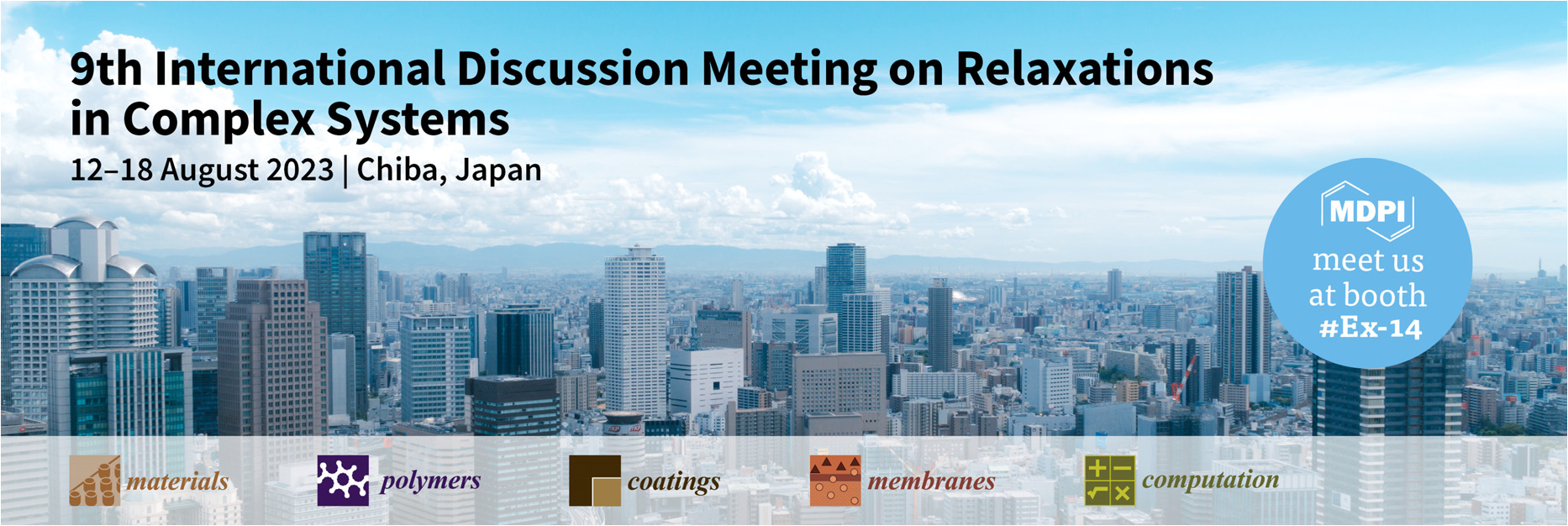
MDPI will be attending the 9th International Discussion Meeting on Relaxations in Complex Systems, organized by the University of Tokyo, held from 12 to 18 August 2023, in Chiba, Japan.
The conference topics include the following:
- Polymer Nanocomposites and MOF;
- Photonic Disordered Materials;
- Network and Inorganic Glasses;
- Interrelation between T and V in Dynamics of Liquids and Polymers;
- Colloidal Systems and Dispersions;
- Information Science and Machine Learning;
- Linear and Nonlinear Dielectric Dynamics.
During this conference, MDPI (at booth #Ex-14) will welcome researchers from different backgrounds to visit and share their latest views and research with us.
The following MDPI journals will be represented:
If you are attending this conference, please feel free to start an online conversation with us. Our delegates look forward to meeting you in person at booth #Ex-14 and answering any questions that you may have.
For more information about the conference, please visit the following link: https://9idmrcs.jp/index.html.
11 July 2023
MDPI’s Newly Launched Journals in June 2023
With the first issue released in June 2023, five new MDPI journals disseminating multi-disciplinary science are due to launch, which will cover the subjects of medicine & pharmacology, biology and physical sciences.
The newly launched journals will be overseen by professional Editorial Board Members and Editors to ensure an accurate and rapid publication, rigorous peer review and broad visibility.
Please feel free to browse and discover more about the new journals below.
| Journal | Founding Editor-in-Chief | Journal topics (selected) |
| Prof. Dr. Jun Ma, Peking University, China| Editorial | view inaugural issue | growth and development; diet and nutrients; school health promotion policies and practices; child health and care; adolescent health and wellbeing | view journal scope | submit an article |
|
| Prof. Dr. Bernd Rehm, Griffith University, Australia | Editorial | view inaugural issue | DNA and gene synthesis; synthetic transcription factors; protein engineering; viral engineering; metabolic engineering | view journal scope | submit an article | |
| Prof. Dr. Varsha Gandhi, University of Texas MD Anderson Cancer Center, USA | Editorial | view inaugural issue | lymphatics; cancers associated with lymphocytes and lymphoblasts; lymphatic tissues; lymphoma; lymphoid leukemia | view journal scope | submit an article | |
| Dr. Bradley Turner, University of Melbourne, Australia | Editorial | view inaugural issue | multiple sclerosis; amyotrophic lateral sclerosis; primary lateral sclerosis; atherosclerosis; systemic sclerosis | view journal scope | submit an article | |
 |
Prof. Dr. Clemens Burda, Case Western Reserve University, USA | Editorial | view inaugural issue | Gamma ray, X-ray, and UV–Vis spectroscopies; NIR/mid-infrared/Raman spectroscopy; microwave and THz spectroscopy; high-resolution gas-phase atomic, molecular, and cluster spectroscopy; MS, NMR, and EPR spectroscopy | view journal scope | submit an article |
We wish to thank everyone who has supported the development of open access publishing. You are welcome to submit an application to the New Journal Committee (newjournal-committee@mdpi.com) if you would like to create more new journals.
4 July 2023
Meet Us at the CRS 2023 Annual Meeting, 24–28 July 2023, Las Vegas, USA
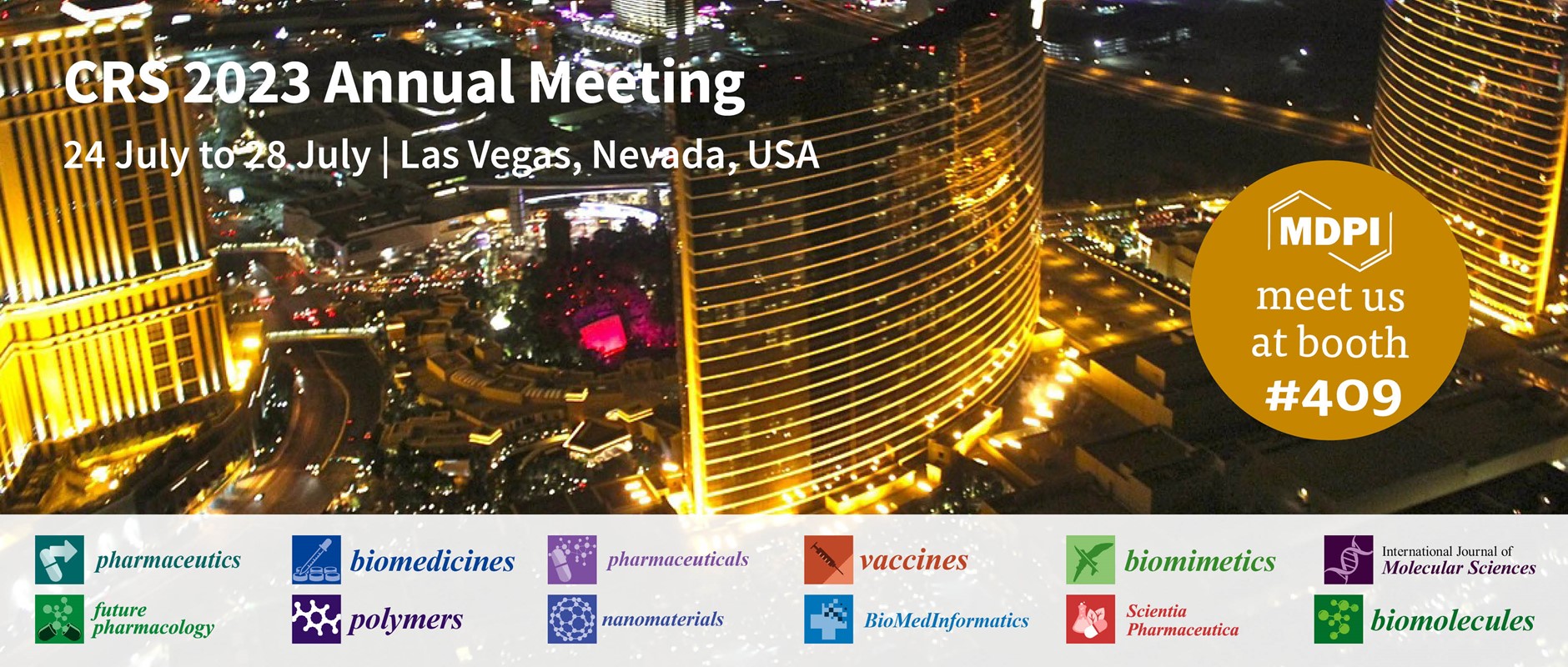
The conference is the 50th annual conference of the Controlled Release Society. The annual CRS conference is the most important conference in the pharmaceutics field. The main topics of the conference include drug delivery and controlled release, nanomedicine and nanotechnology, and biopharmaceutics. The conference organizer has a full program for the duration of the conference with highly prominent plenary talks, technical sessions covering a wide scope of topics, industry-led workshops, and technical forums.
Pharmaceutics (ISSN: 1999-4923) is a peer-reviewed, open access journal on the science and technology of pharmaceutics and biopharmaceutics, and is published monthly online by MDPI. Pharmaceutics will participate in this event as an exhibitor together with eleven other MDPI journals.
The following MDPI journals will be represented:
- Pharmaceutics (leading journal);
- Pharmaceuticals;
- Biomedicines;
- Vaccines;
- Biomimetics;
- IJMS;
- Future Pharmacology;
- Polymers;
- Nanomaterials;
- BioMedInformatics;
- Scientia Pharmaceutica;
- Biomolecules.
If you are attending this conference, please feel free to start a conversation with us at our booth #409. Our delegates look forward to meeting you in person and answering any questions that you may have.
For more information about the conference, please visit https://www.eventscribe.net/2023/CRSAnnualMeeting or contact the Pharmaceutics Editorial Office at pharmaceutics@mdpi.com.
3 July 2023
MDPI Insights: The CEO’s Letter #1 - Open Access and Impactful Research

Welcome to the MDPI Insights: The CEO's Letter.
In these monthly letters, I will showcase two key aspects of our work at MDPI: our commitment to empowering researchers and our determination to facilitating open scientific exchange.
Opening Thoughts
The Future is Open, and MDPI is Leading the Way
I strongly believe in a future that embraces openness, where open source, open information, and open access (OA) take center stage. This belief that led me to join MDPI in 2020, and I am honored to have recently been appointed as Chief Executive Officer (CEO). In this capacity, and operating in close liaison with Dr. Lin and MDPI’s senior management, I shall work to build on Dr. Lin’s achievements of the past quarter-century. In this role, I will focus on communication initiatives to promote MDPI's remarkable work and continue to build our company as a trusted leader in OA publishing. For over two decades, MDPI has been at the forefront of reshaping the academic publishing landscape, with OA surpassing subscription-based publishing in 2020. This trajectory is deeply rooted in our history and reflects our unwavering commitment and vision for an open future.
1 Million Published Articles
2023 began with a remarkable achievement for MDPI, as we became the first OA publisher to reach the milestone of 1 million published articles. This represents 2.7 million unique authors who have trusted us with their work, or about a third of all researchers worldwide. As the world's most cited OA publisher, we are proud in sharing these significant milestones.
Our mission remains unchanged: to make science open and accessible to all. We understand the importance of knowledge access, empowering researchers to stay at the forefront of a rapidly changing world. Our diverse range of journals covers a wide spectrum of disciplines, offering cutting-edge insights, trusted tools, and crucial knowledge to address global challenges.
Liberating Science
As the world’s leading OA publisher, MDPI is actively liberating science. We are committed to eliminating the frustrations researchers and the general public face when accessing information, ensuring it is not locked behind paywalls. We firmly believe that everyone has a right to information, and our commitment to open access publishing drives our work.
In this inaugural edition of Insights: The CEO's Letter, I draw inspiration from the upcoming 20th anniversary of the Berlin Declaration on Open Access. Its stated mission reminds us that true impact is achieved when knowledge is widely and readily available to society:
"Our mission of disseminating knowledge is only half complete if the information is not made widely and readily available to society”
Impactful Research

MDPI Publishes Impactful Research: Recognized by Leading Indexing Databases
MDPI journals are indexed in every single top database in the world.
As of June 2023, we have 214 journals indexed within Web of Science, 223 indexed within Scopus, 87 indexed within PubMed and PMC, and 17 indexed within MEDLINE, and these numbers increase every month. We constantly strive to expand the coverage of our journals within leading multi-disciplinary and scope-specific databases, resulting in an incredibly broad range of journals that are indexed within a variety of databases. MDPI has active relationships with approximately 65 well-known databases around the world, and we continue to expand our portfolio every year so that your work can be found, cited, and referenced with ease.
Continued Growth of MDPI Journals
The 2022 Scopus and Web of Science journal citation metrics were officially released in June, and I am pleased to report that 31 MDPI journals received their first CiteScore, taking the total number of journals with a CiteScore to 216. The number of MDPI journals receiving an Impact Factor (IF) also continues to grow with 111 receiving their first, by being covered in the ESCI, bringing our total number of journals with an IF to 208 of which 41 journals received an IF above 4.0. Looking at 2022 CiteScores in the Scopus database, 80% of MDPI journals have a score that ranks them in Q1 or Q2 in at least one subject category.
Publishing impactful science would not be possible without all of our authors, editors and reviewers. Thank you for your contribution and continued support! Together we share the latest scientific insights faster and ensure that your work is accessible to all.
Read more
Inside MDPI

Preprints.org: Clarivate adds the Preprint Citation Index to the Web of Science
At MDPI, we are dedicated to driving the advancement of science. Through our initiative, Preprints.org, researchers can publish their work and gain valuable feedback from the broader research community, ensuring rapid progress in their respective fields. This is particularly crucial during times of health and climate challenges, where timely dissemination of findings is essential.
Increased Visibility for Preprints
I am pleased to share that Clarivate recognizes the significance of preprints and has taken a crucial step to enhance their visibility. Clarivate has added the Preprint Citation Index to the Web of Science, encompassing preprints published not only on Preprints.org but also on other reputable repositories.
Looking ahead, the future of preprints appears promising, bolstered by the recent indexing announcement from the Web of Science. As a result, preprints will receive increased visibility, serving as a valuable resource for staying informed about the latest research developments.
Read more
What are Preprints?
The Pros and Cons of Preprints
Preprints and COVID-19
Preprints—The Future of Open Access Publishing?
Coming Together for Science

The First International Conference on Antioxidants: Sources, Methods, Health Benefits and Industrial Applications
In this edition of ‘Coming Together for Science,’ I am pleased to highlight the First International Conference on Antioxidants organized by our conference team in the beautiful city of Barcelona, Spain. The conference attracted over 130 attendees, who engaged in 42 talks, and 89 poster presentations spread across several sessions.
Working Together
Under the leadership of Prof. Dr. Alessandra Napolitano (Department of Chemical Sciences, University of Naples ‘Federico II’, Naples, Italy) and Prof. Dr. Rosa M. Lamuela Raventos (Department of Nutrition, Food Sciences and Gastronomy, University of Barcelona, Spain) as chairs, and supported by the committee members, 10 invited keynote speakers, poster presenters, and all the attendees, this dedicated group of academics came together to discuss the natural sources, methodologies, health benefits, and industrial applications of antioxidants.
Especially noteworthy is the positive feedback received from attendees, with 94% rating the overall organization of the conference as good or excellent. I particularly love the picture above, capturing the gathering of some of the participants. You can browse through more photos in the event gallery located here.
Managing Events With Sciforum
If you are considering hosting your own academic event, I highly recommend checking out Sciforum, MDPI's event management platform. Sciforum simplifies the entire process, making it easy to host your own event by allowing you to focus on what really matters: Science!
Read more
Closing Thoughts
 Stefan Tochev, Dr. Shu-Kun Lin, Dr. Eric O. Freed, Peter Roth, Wynne Wang, Allison Yang
Stefan Tochev, Dr. Shu-Kun Lin, Dr. Eric O. Freed, Peter Roth, Wynne Wang, Allison Yang
Viruses and Editorial Quality: Acknowledging the Dedication of our Viruses Journal Team
During a June meeting with Dr. Eric O. Freed, the founding and current Editor-in-Chief of our journal Viruses, I was reminded of the exceptional dedication of our editorial board. Meeting with Eric is a pleasure, as he has a strong commitment and clear vision for the journal. Over the course of two days, we gained a deep understanding of the journal’s expectations and focus on strategic growth, editorial board representation, and engagement.
I am pleased to share that Viruses holds a CiteScore of 7.1 (an increase of 7.57% versus the 2021 metric) and an Impact Factor of 4.7. You can view the journal statistics here. Viruses publishes highly cited papers, and is indexed in renowned databases such as Scopus, SCIE (Web of Science), PubMed, and others, and maintains affiliations with prestigious societies. Moreover, the Viruses team has recently announced an exciting upcoming event titled ‘Viruses 2024 – A World of Viruses,’ scheduled to take place in Barcelona, Spain, from 14–16 February 2024.
Testimonials
If you notice my enthusiasm regarding our editorial service, it’s because the surveys and testimonials we receive speak volumes about the experiences of our authors, reviewers, and guest editors who collaborate with MDPI. The purpose of these letters is to highlight the exceptional work that we do and the experiences we create for the scholars – thus, let me end with this testimonial from an author:
“It was a great pleasure to publish in Viruses Special Issue [Emerging Viruses in Aquaculture]. The submission process was easy. Guest editors were very helpful and provided all the guidance and support as needed. The handling of the manuscript by the Editorial Team was very fast, efficient, and professional. The reviewer’s comments were insightful, and the publication processes were remarkably rapid.”
– Ms. Magdalena Stachnik, Państwowy Instytut Weterynaryjny | PIWet
Article in Viruses: Emerging Viral Pathogens in Sturgeon Aquaculture in Poland: Focus on Herpesviruses and Mimivirus Detection
Chief Executive Officer
MDPI AG
28 June 2023
2022 Impact Factors for MDPI Journals
The 2022 citation metrics have been released in the Journal Citation Reports (JCR), and we’re pleased to announce the following results for MDPI journals:

We are thrilled to announce that 90% of our ranked MDPI journals, specifically 86 out of 96 (captured in the table below), are performing above average in Q1 or Q2. This year, Clarivate has expanded its Impact Factor (IF) awards to include journals in the Emerging Sources Citation Index (ESCI) and the Arts and Humanities Citation Index (AHCI), providing greater transparency for the full set of journals indexed in the Web of Science Core Collection. As a result, 111 of MDPI journals have received their first IF in 2023, with 37 journals surpassing an IF of 3.0. In total, 208 MDPI journals have been honored with an IF.
Clarivate explains that by "expanding the coverage but holding to highly selective standards, the [Impact Factor] is now a reliable indicator of trustworthiness, as well as a measure of scholarly impact, at the journal level."
Please visit our blog post where we discuss the release of the latest citation metrics with our Indexing Manager, Dr. Constanze Schelhorn, to find out what's different this time around and how to make use of different metrics available.
| Journal | Impact Factor | Rank Quartile | Category |
| Vaccines | 7.8 | Q1 | Immunology |
| Medicine, Research & Experimental | |||
| Antioxidants | 7.0 | Q1 | Food Science & Technology |
| Biochemistry & Molecular Biology | |||
| Chemistry, Medicinal | |||
| Cells | 6.0 | Q2 | Cell Biology |
| Nutrients | 5.9 | Q1 | Nutrition & Dietetics |
| International Journal of Molecular Sciences | 5.6 | Q1 | Biochemistry & Molecular Biology |
| Q2 | Chemistry, Multidisciplinary | ||
| Journal of Theoretical and Applied Electronic Commerce Research | 5.6 | Q2 | Business |
| Biomolecules | 5.5 | Q1 | Biochemistry & Molecular Biology |
| Biosensors | 5.4 | Q1 | Chemistry, Analytical |
| Instruments & Instrumentation | |||
| Q2 | Nanoscience & Nanotechnology | ||
| Fractal and Fractional | 5.4 | Q1 | Mathematics, Interdisciplinary Applications |
| Marine Drugs | 5.4 | Q1 | Chemistry, Medicinal |
| Pharmacology & Pharmacy | |||
| Pharmaceutics | 5.4 | Q1 | Pharmacology & Pharmacy |
| Nanomaterials | 5.3 | Q1 | Physics, Applied |
| Q2 | Chemistry, Multidisciplinary | ||
| Materials Science, Multidisciplinary | |||
| Nanoscience & Nanotechnology | |||
| Cancers | 5.2 | Q2 | Oncology |
| Foods | 5.2 | Q1 | Food Science & Technology |
| Polymers | 5.0 | Q1 | Polymer Science |
| Remote Sensing | 5.0 | Q1 | Geosciences, Multidisciplinary |
| Q2 | Remote Sensing | ||
| Imaging Science & Photographic Technology | |||
| Environmental Sciences | |||
| Antibiotics | 4.8 | Q1 | Pharmacology & Pharmacy |
| Q2 | Infectious Diseases | ||
| Drones | 4.8 | Q2 | Remote Sensing |
| Journal of Functional Biomaterials | 4.8 | Q2 | Engineering, Biomedical |
| Materials Science, Biomaterials | |||
| Biomedicines | 4.7 | Q1 | Pharmacology & Pharmacy |
| Q2 | Biochemistry & Molecular Biology | ||
| Medicine, Research & Experimental | |||
| Journal of Fungi | 4.7 | Q2 | Mycology |
| Microbiology | |||
| Viruses | 4.7 | Q2 | Virology |
| Bioengineering | 4.6 | Q2 | Engineering, Biomedical |
| Gels | 4.6 | Q1 | Polymer Science |
| Molecules | 4.6 | Q2 | Chemistry, Multidisciplinary |
| Biochemistry & Molecular Biology | |||
| Pharmaceuticals | 4.6 | Q2 | Pharmacology & Pharmacy |
| Chemistry, Medicinal | |||
| Toxics | 4.6 | Q1 | Toxicology |
| Q2 | Environmental Sciences | ||
| Biomimetics | 4.5 | Q1 | Engineering, Multidisciplinary |
| Q2 | Materials Science, Biomaterials | ||
| Microorganisms | 4.5 | Q2 | Microbiology |
| Plants | 4.5 | Q1 | Plant Sciences |
| Biology | 4.2 | Q2 | Biology |
| Chemosensors | 4.2 | Q2 | Instruments & Instrumentation |
| Chemistry, Analytical | |||
| Electrochemistry | |||
| Membranes | 4.2 | Q2 | Engineering, Chemical |
| Materials Science, Multidisciplinary | |||
| Chemistry, Physical | |||
| Polymer Science | |||
| Toxins | 4.2 | Q1 | Toxicology |
| Q2 | Food Science & Technology | ||
| Metabolites | 4.2 | Q2 | Biochemistry & Molecular Biology |
| Batteries | 4.0 | Q2 | Electrochemistry |
| Materials Science, Multidisciplinary | |||
| Q3 | Energy & Fuels | ||
| Catalysts | 3.9 | Q2 | Chemistry, Physical |
| Journal of Clinical Medicine | 3.9 | Q2 | Medicine, General & Internal |
| Land | 3.9 | Q2 | Environmental Studies |
| Sensors | 3.9 | Q2 | Instruments & Instrumentation |
| Chemistry, Analytical | |||
| Engineering, Electrical & Electronic | |||
| Sustainability | 3.9 | Q2 | Environmental Sciences (SCIE) |
| Environmental Studies (SSCI) | |||
| Q3 | Green & Sustainable Science & Technology (SCIE) | ||
| Green & Sustainable Science & Technology (SSCI) | |||
| Buildings | 3.8 | Q2 | Construction & Building Technology |
| Engineering, Civil | |||
| Agronomy | 3.7 | Q1 | Agronomy |
| Q2 | Plant Sciences | ||
| Fermentation | 3.7 | Q2 | Biotechnology & Applied Microbiology |
| Pathogens | 3.7 | Q2 | Microbiology |
| Agriculture | 3.6 | Q1 | Agronomy |
| Diagnostics | 3.6 | Q2 | Medicine, General & Internal |
| Genes | 3.5 | Q2 | Genetics & Heredity |
| Journal of Intelligence | 3.5 | Q2 | Psychology, Multidisciplinary |
| Lubricants | 3.5 | Q2 | Engineering, Mechanical |
| Processes | 3.5 | Q2 | Engineering, Chemical |
| Coatings | 3.4 | Q2 | Materials Science, Coatings & Films |
| Physics, Applied | |||
| Q3 | Materials Science, Multidisciplinary | ||
| ISPRS International Journal of Geo-Information | 3.4 | Q2 | Geography, Physical |
| Q3 | Computer Science, Information Systems | ||
| Remote Sensing | |||
| Materials | 3.4 | Q2 | Metallurgy & Metallurgical Engineering |
| Physics, Applied | |||
| Physics, Condensed Matter | |||
| Q3 | Materials Science, Multidisciplinary | ||
| Chemistry, Physical | |||
| Micromachines | 3.4 | Q2 | Instruments & Instrumentation |
| Physics, Applied | |||
| Chemistry, Analytical | |||
| Q3 | Nanoscience & Nanotechnology | ||
| Water | 3.4 | Q2 | Water Resources |
| Environmental Sciences | |||
| Brain Sciences | 3.3 | Q3 | Neurosciences |
| Energies | 3.2 | Q3 | Energy & Fuels |
| Fire | 3.2 | Q1 | Forestry |
| Q2 | Ecology | ||
| Life | 3.2 | Q2 | Biology |
| Current Issues in Molecular Biology | 3.1 | Q3 | Biochemistry & Molecular Biology |
| Horticulturae | 3.1 | Q1 | Horticulture |
| Animals | 3.0 | Q1 | Agriculture, Dairy & Animal Science |
| Veterinary Sciences | |||
| Insects | 3.0 | Q1 | Entomology |
| Atmosphere | 2.9 | Q3 | Meteorology & Atmospheric Sciences |
| Environmental Sciences | |||
| Electronics | 2.9 | Q2 | Engineering, Electrical & Electronic |
| Physics, Applied | |||
| Q3 | Computer Science, Information Systems | ||
| Forests | 2.9 | Q1 | Forestry |
| Inorganics | 2.9 | Q2 | Chemistry, Inorganic & Nuclear |
| Journal of Marine Science and Engineering | 2.9 | Q1 | Engineering, Marine |
| Q2 | Oceanography | ||
| Engineering, Ocean | |||
| Metals | 2.9 | Q2 | Metallurgy & Metallurgical Engineering |
| Q3 | Materials Science, Multidisciplinary | ||
| Tropical Medicine and Infectious Disease | 2.9 | Q2 | Tropical Medicine |
| Parasitology | |||
| Q3 | Infectious Diseases | ||
| Universe | 2.9 | Q2 | Astronomy & Astrophysics |
| Physics, Particles & Fields | |||
| Healthcare | 2.8 | Q2 | Health Policy & Services (SSCI) |
| Q3 | Health Care Sciences & Services (SCIE) | ||
| Applied Sciences | 2.7 | Q2 | Engineering, Multidisciplinary |
| Physics, Applied | |||
| Q3 | Chemistry, Multidisciplinary | ||
| Materials Science, Multidisciplinary | |||
| Crystals | 2.7 | Q2 | Crystallography |
| Q3 | Materials Science, Multidisciplinary | ||
| Entropy | 2.7 | Q2 | Physics, Multidisciplinary |
| Magnetochemistry | 2.7 | Q2 | Chemistry, Inorganic & Nuclear |
| Q3 | Chemistry, Physical | ||
| Materials Science, Multidisciplinary | |||
| Symmetry | 2.7 | Q2 | Multidisciplinary Sciences |
| Actuators | 2.6 | Q2 | Instruments & Instrumentation |
| Engineering, Mechanical | |||
| Aerospace | 2.6 | Q1 | Engineering, Aerospace |
| Behavioral Sciences | 2.6 | Q2 | Psychology, Multidisciplinary |
| Current Oncology | 2.6 | Q3 | Oncology |
| Machines | 2.6 | Q2 | Engineering, Mechanical |
| Q3 | Engineering, Electrical & Electronic | ||
| Medicina | 2.6 | Q3 | Medicine, General & Internal |
| Separations | 2.6 | Q3 | Chemistry, Analytical |
| Minerals | 2.5 | Q2 | Mining & Mineral Processing |
| Mineralogy | |||
| Geochemistry & Geophysics | |||
| Children | 2.4 | Q2 | Pediatrics |
| Diversity | 2.4 | Q2 | Biodiversity Conservation |
| Q3 | Ecology | ||
| Journal of Cardiovascular Development and Disease | 2.4 | Q3 | Cardiac & Cardiovascular Systems |
| Mathematics | 2.4 | Q1 | Mathematics |
| Photonics | 2.4 | Q3 | Optics |
| Veterinary Sciences | 2.4 | Q1 | Veterinary Sciences |
| Fishes | 2.3 | Q2 | Marine & Freshwater Biology |
| Fisheries | |||
| Axioms | 2.0 | Q2 | Mathematics, Applied |
| Systems | 1.9 | Q2 | Social Sciences, Interdisciplinary |
| Tomography | 1.9 | Q3 | Radiology, Nuclear Medicine & Medical Imaging |
Note: The Journal of Personalized Medicine's Impact Factor was omitted in the original release and will be assigned separately. Please find the data on the journal webpage in due course.
Source: 2022 Journal Impact Factors, Journal Citation Reports TM (Clarivate, 2023)
28 June 2023
Meet Us at the 3rd National Cellulose Symposium of the Chinese Chemical Society, 8–11 August 2023, Guiyang, Guizhou, China
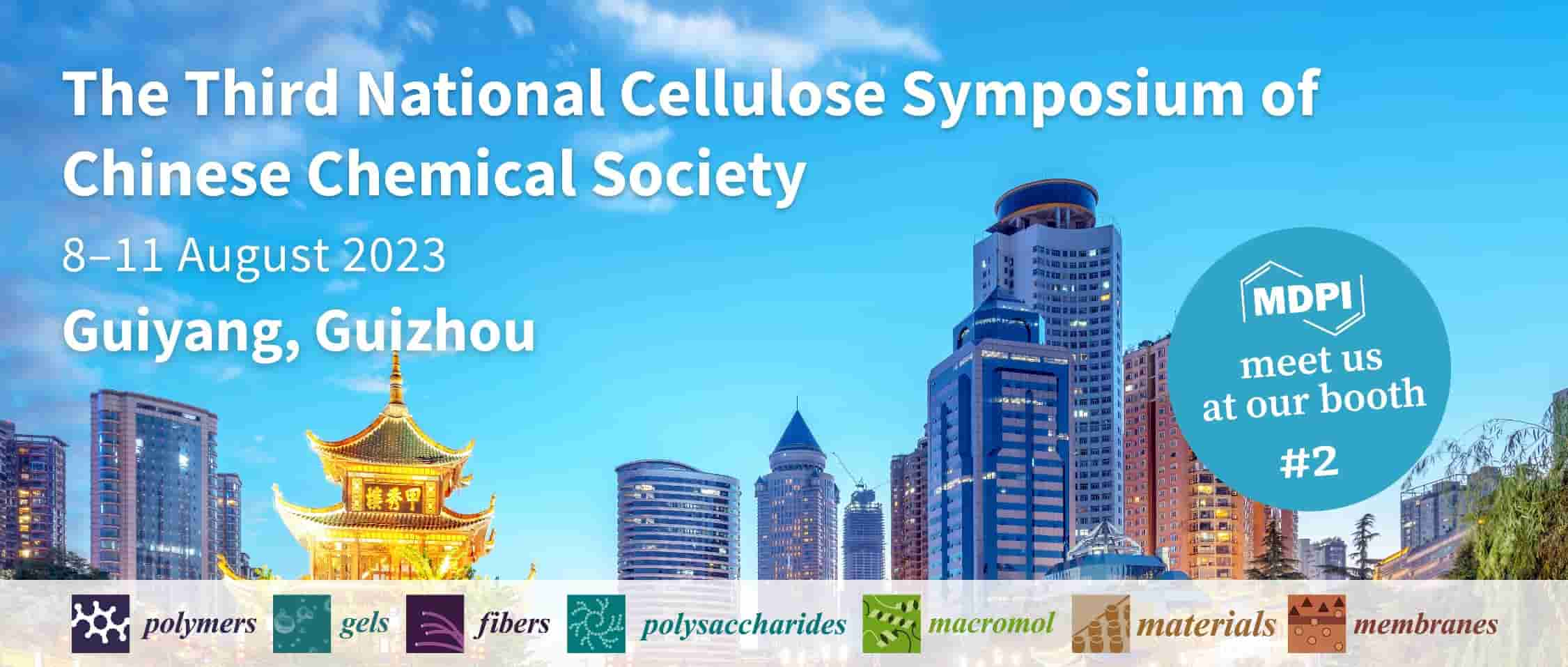
The 3rd National Cellulose Symposium of the Chinese Chemical Society will be held from 8 to 11 August 2023, in Guiyang, Guizhou, China. The conference is hosted by the Chinese Chemical Society and is organized by the School of Materials and Metallurgy of Guizhou University.
Topics include the following:
- Functional structure and application of cellulose-based materials;
- Basic theory and function of nanocellulose;
- Efficient green conversion of cellulose;
- Separation, structure, modification, and application of lignin;
- Development and utilization of other biomass resources;
- Natural polymer energy storage, smart materials, and devices;
- Cellulose chemicals and cellulose recycled materials industry forum.
The following MDPI journals will be represented:
- Polymers;
- Gels;
- Fibers;
- Polysaccharides;
- Macromol;
- Materials;
- Membranes.
If you are attending this conference, please feel free to start an online conversation with us. Our delegates look forward to meeting you in person at booth #2 and answering any questions that you may have. For more information about the conference, please visit the following link: https://www.chemsoc.org.cn/meeting/home/m484.
20 June 2023
Polymers Webinar | Thermomechanical Development of Bio-Based Polymer Materials. Focus on Algae Biomass, Held on 29 June 2023

On 29 June 2023, MDPI and the journal Polymers (ISSN: 2073-4360) organized the webinar titled Thermomechanical Development of Bio-Based Polymer Materials. Focus on Algae Biomass.
This webinar was focused on the development of new materials from algae bioresources through thermomechanical techniques. It also aimed at obtaining natural polymers from algae which could be used in different fields such as fertilizers, medicine, and as a raw material in the food industry.
Please note that this webinar is associated with a Special Issue in Polymers entitled “Thermomechanical Development of Bio-Based Polymers Materials”.
You can watch the recorded webinar at the following:
Webinar Chairs and Keynote Speakers:
- Prof. Dr. Carlos Bengoechea (Chair), Chemical Engineering Department, Universidad de Sevilla, Seville, Spain;
- Dr. Estefanía Álvarez-Castillo (Chair), Chemical Engineering Department, Escuela Politécnica Superior de Sevilla, Universidad de Sevilla, Sevilla, Spain;
- Mr. Ismael Santana Romero, Chemical Engineering Department, Escuela Politécnica Superior de Sevilla, Universidad de Sevilla, Sevilla, Spain;
- Ms. Julie Queffelec, CINBIO, Universidade de Vigo (Campus Ourense), Department of Chemical Engineering, Edificio Politécnico, Ourense, Spain;
- Prof. Cristiana Nunes, LEAF–Linking Landscape, Environment, Agriculture and Food, Instituto Superior de Agronomia, Universidade de Lisboa, Lisbon, Portugal.
14 June 2023
Meet Us at the 2023 National Polymer Academic Paper Conference of the Chinese Chemical Society, 13–17 October 2023, Wuhan, China
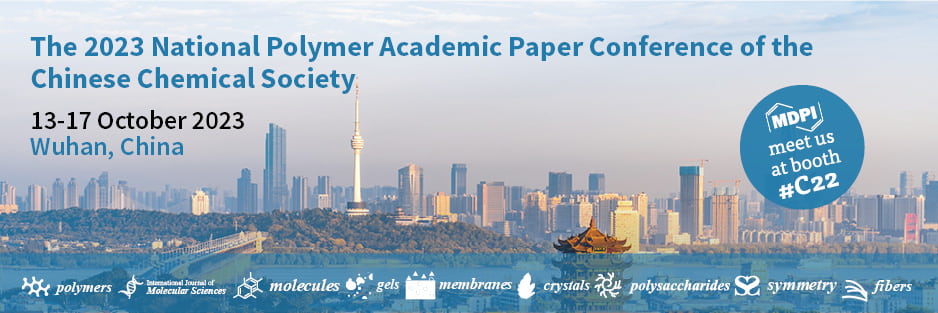
A range of MDPI journals will be attending the 2023 National Polymer Academic Paper Conference of the Chinese Chemical Society as exhibitors. This meeting will be held in Wuhan, China, from 13 to 17 October 2023.
The National Polymer Academic Paper Conference of the Chinese Chemical Society, which has been held every two years since 1954, is the most important, largest and most influential academic conference in the field of polymers in China. The 2023 National Polymer Academic Paper Conference of the Chinese Chemical Society will be held in Wuhan from 13 to 17 October. It will be sponsored by the Polymer Science Committee of the Chinese Chemical Society and Huazhong University of Science and Technology.
The conference will take the important function of polymer science and technology in the new era of national economy and society as the entry point. It will focus on showing the research results and development trends of our country’s polymer science and materials field in recent years. It provides a broad academic and technical exchange platform for those sci-tech, education, and industry workers and young students who conduct research and development in the field. The aim is to promote the sustainable development and innovation of polymer science, improve the level of interdisciplinary and cutting-edge research of polymer-related disciplines, connect with the major national needs, overcome the core and key technical problems, and promote the transformation of scientific research results.
The following MDPI journals will be represented:
If you are attending this conference, please feel free to start a conversation with us at our booth. Our delegates look forward to meeting you in person and answering any questions that you may have.
For more information about the conference, please visit https://www.bagevent.com/event/8282755/p/504954.
12 June 2023
Meet Us at the 33rd CCS Congress, 17–20 June 2023, Qingdao, Shandong, China
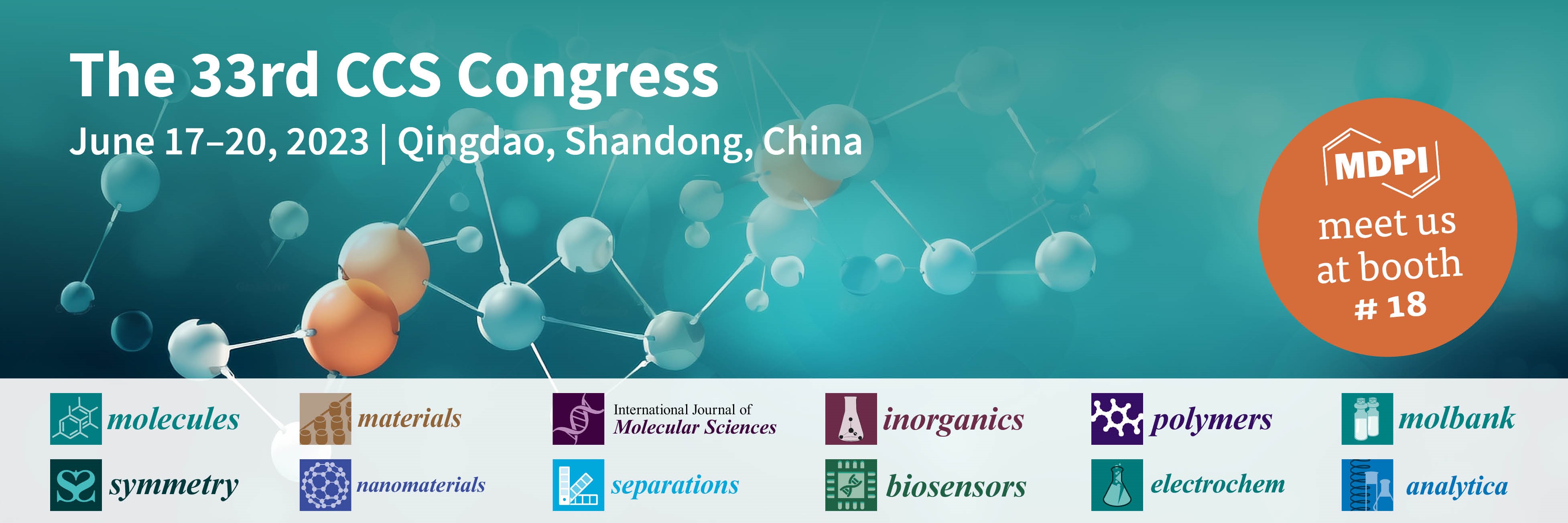
MDPI will be attending the 33rd CCS Congress, held in Qingdao, China, from 17 to 20 June 2023. The Annual Academic Conference of the Chinese Chemical Society is held every two years. It is the highest level, largest scale and most influential comprehensive academic exchange platform in the field of chemistry in China. During this conference, MDPI will welcome researchers from different backgrounds to visit and share their latest views as well as research with us.
The following MDPI journals will be represented:
- Molecules;
- Materials;
- IJMS;
- Inorganics;
- Polymers;
- Molbank;
- Symmetry;
- Nanomaterials;
- Separations;
- Biosensors;
- Electrochem;
- Analytica.
If you are attending this conference, please stop by our booth. Our delegates look forward to meeting you in person to answer any questions that you may have. For more information about the conference, please visit the following link: https://www.chemsoc.org.cn/meeting/33rd/.
12 June 2023
Meet Us at ACS Fall 2023 Harnessing the Power of Data, 13–17 August 2023, San Francisco, USA

Conference: ACS Fall 2023
Organization: American Chemical Society
Date: 13–17 August 2023
Place: Moscone Center, 747 Howard St, San Francisco, CA, USA
Booth: #845
MDPI journals will be attending ACS Fall 2023 Harnessing the Power of Data as an exhibitor. This meeting will be held in San Francisco, CA, USA, from 13 to 17 August 2023.
American Chemical Society (ACS) is one of the world’s largest scientific organizations with more than 151,000 members in 140 countries. ACS Meetings & Expos are held biannually. This expo is an opportunity for thousands of chemistry professionals to meet, share ideas, and advance scientific and technical knowledge. The topic in Fall 2023 is “Harnessing the Power of Data”.
The following MDPI journals will be represented:
- Materials;
- Molecules;
- Batteries;
- Crystals;
- Molbank;
- Organics;
- Polymers;
- Separations;
- Analytica;
- Electrochem;
- Membranes;
- Nanomaterials;
- Solids;
- Sustainable Chemistry;
- Symmetry.
If you are attending this conference, please feel free to start a conversation with us. Our delegates look forward to meeting you in person and answering any questions you may have. For more information about the conference, please visit the following website: https://www.acs.org/meetings/acs-meetings/fall-2023.html.
6 June 2023
Polymers | Issue Cover Articles in 2022
The articles below have been selected as 2022 Issue Cover Articles by the Editorial Office of Polymers (ISSN: 2073-4360). These articles came from multiple fields all within the scope of Polymers, and we sincerely hope they can provide insights and references for scholars in related fields.
|
|
1. "RAFT Emulsion Polymerization of Styrene Using a Poly((N,N-dimethyl acrylamide)-co-(N-isopropyl acrylamide)) mCTA: Synthesis and Thermosensitivity" by Katharina Nieswandt, Prokopios Georgopanos, Martin Held, Evgeni Sperling and Volker Abetz Polymers 2022, 14(1), 62; https://doi.org/10.3390/polym14010062 Available online: https://www.mdpi.com/2073-4360/14/1/62 |
|
|
2. "Experimental Investigation of Polypropylene Composite Drawn Fibers with Talc, Wollastonite, Attapulgite and Single-Wall Carbon Nanotubes" by Costas Tsioptsias, Konstantinos Leontiadis, Stavros Messaritakis, Aikaterini Terzaki, Panagiotis Xidas, Kyriakos Mystikos, Evangelos Tzimpilis and Ioannis Tsivintzelis Polymers 2022, 14(2), 260; https://doi.org/10.3390/polym14020260 Available online: https://www.mdpi.com/2073-4360/14/2/260 |
|
|
3. "Reactive Magnetron Plasma Modification of Electrospun PLLA Scaffolds with Incorporated Chloramphenicol for Controlled Drug Release" by Apollinariya A. Volokhova, Dmitry A. Fedorishin, Arina O. Khvastunova, Tatiana I. Spiridonova, Anna I. Kozelskaya, Julia Kzhyshkowska, Sergei I. Tverdokhlebov and Irina Kurzina Polymers 2022, 14(3), 373; https://doi.org/10.3390/polym14030373 Available online: https://www.mdpi.com/2073-4360/14/3/373 |
|
|
4. "Investigation of Polyester Tire Cord Glycolysis Accompanied by Rubber Crumb Devulcanization" by Kirill Kirshanov, Roman Toms, Pavel Melnikov and Alexander Gervald Polymers 2022, 14(4), 684; https://doi.org/10.3390/polym14040684 Available online: https://www.mdpi.com/2073-4360/14/4/684 |
|
|
5. "3D Printed Scaffold Based on Type I Collagen/PLGA_TGF-β1 Nanoparticles Mimicking the Growth Factor Footprint of Human Bone Tissue" by Federica Banche-Niclot, Caterina Licini, Giorgia Montalbano, Sonia Fiorilli, Monica Mattioli-Belmonte and Chiara Vitale-Brovarone Polymers 2022, 14(5), 857; https://doi.org/10.3390/polym14050857 Available online: https://www.mdpi.com/2073-4360/14/5/857 |
|
|
6. "Chemical Cleaning Process of Polymeric Nanofibrous Membranes" by Aysegul Gul, Jakub Hruza, Lukas Dvorak and Fatma Yalcinkaya Polymers 2022, 14(6), 1102; https://doi.org/10.3390/polym14061102 Available online: https://www.mdpi.com/2073-4360/14/6/1102 |
|
|
7. "Gelatin Blends Enhance Performance of Electrospun Polymeric Scaffolds in Comparison to Coating Protocols" by Maria Bikuna-Izagirre, Javier Aldazabal and Jacobo Paredes Polymers 2022, 14(7), 1311; https://doi.org/10.3390/polym14071311 Available online: https://www.mdpi.com/2073-4360/14/7/1311 |
|
|
8. "Modified Release of the Pineal Hormone Melatonin from Matrix Tablets Containing Poly(L-lactic Acid) and Its PLA-co-PEAd and PLA-co-PBAd Copolymers" by Marilena Vlachou, Angeliki Siamidi, Dionysia Anagnostopoulou, Evi Christodoulou and Nikolaos D. Bikiaris Polymers 2022, 14(8), 1504; https://doi.org/10.3390/polym14081504 Available online: https://www.mdpi.com/2073-4360/14/8/1504 |
|
|
9. "Molecular Dynamics Simulations of Essential Oil Ingredients Associated with Hyperbranched Polymer Drug Carriers" by Vasilios Raptis and Kostas Karatasos Polymers 2022, 14(9), 1762; https://doi.org/10.3390/polym14091762 Available online: https://www.mdpi.com/2073-4360/14/9/1762 |
|
|
10. "Microplastics Determination in Gastrointestinal Tracts of European Sea Bass (Dicentrarchus labrax) and Gilt-Head Sea Bream (Sparus aurata) from Tenerife (Canary Islands, Spain)" by Raquel Sánchez-Almeida, Cintia Hernández-Sánchez, Cristina Villanova-Solano, Francisco Javier Díaz-Peña, Sabrina Clemente, Javier González-Sálamo, Miguel González-Pleiter and Javier Hernández-Borges Polymers 2022, 14(10), 1931; https://doi.org/10.3390/polym14101931 Available online: https://www.mdpi.com/2073-4360/14/10/1931 |
|
|
11. "Hybrid Films Prepared from a Combination of Electrospinning and Casting for Offering a Dual-Phase Drug Release" by Haoran Liu, Wenlai Jiang, Zili Yang, Xiren Chen, Deng-Guang Yu and Jun Shao Polymers 2022, 14(11), 2132; https://doi.org/10.3390/polym14112132 Available online: https://www.mdpi.com/2073-4360/14/11/2132 |
|
|
12. "Modulation of Molecular Structure and Mechanical Properties of κ-Carrageenan-Gelatin Hydrogel with Multi-Walled Carbon Nanotubes" by Aidar T. Gubaidullin, Anastasiya O. Makarova, Svetlana R. Derkach, Nicolai G. Voron’ko, Aidar I. Kadyirov, Sufia A. Ziganshina, Vadim V. Salnikov, Olga S. Zueva and Yuri F. Zuev Polymers 2022, 14(12), 2346; https://doi.org/10.3390/polym14122346 Available online: https://www.mdpi.com/2073-4360/14/12/2346 |
|
|
13. "X-ray Ptychographic Imaging and Spectroscopic Studies of Plasma-Treated Plastic Films" by Mehdi Ravandeh, Masoud Mehrjoo, Konstantin Kharitonov, Jan Schäfer, Antje Quade, Bruno Honnorat, Mabel Ruiz-Lopez, Barbara Keitel, Svea Kreis, Rui Pan et al. Polymers 2022, 14(13), 2528; https://doi.org/10.3390/polym14132528 Available online: https://www.mdpi.com/2073-4360/14/13/2528 |
|
|
14. "Effects of Neutral, Anionic and Cationic Polymer Brushes Grafted from Poly(para-phenylene vinylene) and Poly(para-phenylene ethynylene) on the Polymer’s Photoluminescent Properties" by Thomas Kerr-Phillips, Mona Damavandi, Lisa I. Pilkington, Kathryn A. Whitehead, Jadranka Travas-Sejdic and David Barker Polymers 2022, 14(14), 2767; https://doi.org/10.3390/polym14142767 Available online: https://www.mdpi.com/2073-4360/14/14/2767 |
|
|
15. "Pilot-Scale Electrospinning of PLA Using Biobased Dyes as Multifunctional Additives" by Naveen Kumar Balakrishnan, Maike-Elisa Ostheller, Niccolo Aldeghi, Christian Schmitz, Robert Groten and Gunnar Seide Polymers 2022, 14(15), 2989; https://doi.org/10.3390/polym14152989 Available online: https://www.mdpi.com/2073-4360/14/15/2989 |
|
|
16. "AI-Based Soft Module for Safe Human–Robot Interaction towards 4D Printing" by Ali Zolfagharian, Mohammad Reza Khosravani, Hoang Duong Vu, Minh Khoi Nguyen, Abbas Z. Kouzani and Mahdi Bodaghi Polymers 2022, 14(16), 3302; https://doi.org/10.3390/polym14163302 Available online: https://www.mdpi.com/2073-4360/14/16/3302 |
|
|
17. "Synthesis and Evaluation of Thermoresponsive Renewable Lipid-Based Block Copolymers for Drug Delivery" by Huiqi Wang and Aman Ullah Polymers 2022, 14(17), 3436; https://doi.org/10.3390/polym14173436 Available online: https://www.mdpi.com/2073-4360/14/17/3436 |
|
|
18. "Chitosan–Gelatin Films: Plasticizers/Nanofillers Affect Chain Interactions and Material Properties in Different Ways" by Qingfei Duan, Ying Chen, Long Yu and Fengwei Xie Polymers 2022, 14(18), 3797; https://doi.org/10.3390/polym14183797 Available online: https://www.mdpi.com/2073-4360/14/18/3797 |
|
|
19. "Facile Fabrication of Dual Functional Graphene Oxide Microcapsules Carrying Corrosion Inhibitor and Encapsulating Self-Healing Agent" by Jing Li, Zhenglin Tao, Jincan Cui, Shuling Shen and Hanxun Qiu Polymers 2022, 14(19), 4067; https://doi.org/10.3390/polym14194067 Available online: https://www.mdpi.com/2073-4360/14/19/4067 |
|
|
20. "Chemical, Thermal and Mechanical Characterization of Licorice Root, Willow, Holm Oak, and Palm Leaf Waste Incorporated into Maleated Polypropylene (MAPP)" by Serena Gabrielli, Miriam Caviglia, Genny Pastore, Enrico Marcantoni, Francesco Nobili, Luca Bottoni, Andrea Catorci, Irene Bavasso, Fabrizio Sarasini, Jacopo Tirillò et al. Polymers 2022, 14(20), 4348; https://doi.org/10.3390/polym14204348 Available online: https://www.mdpi.com/2073-4360/14/20/4348 |
|
|
21. "Pilot Scale Hybrid Organic/Inorganic Coatings on a Polyolefin Separator to Enhance Dimensional Stability for Thermally Stable Long-Life Rechargeable Batteries" by Hyoungwoo Choi and Byoung-Sun Lee Polymers 2022, 14(21), 4474; https://doi.org/10.3390/polym14214474 Available online: https://www.mdpi.com/2073-4360/14/21/4474 |
|
|
22. "Amphiphilic Copolymer-Lipid Chimeric Nanosystems as DNA Vectors" by Varvara Chrysostomou, Aleksander Foryś, Barbara Trzebicka, Costas Demetzos and Stergios Pispas Polymers 2022, 14(22), 4901; https://doi.org/10.3390/polym14224901 Available online: https://www.mdpi.com/2073-4360/14/22/4901 |
|
|
23. "Comparison of the Degradation Performance of Seven Different Choline Chloride-Based DES Systems on Alkaline Lignin" by Penghui Li, Yuan Lu, Xiaoyu Li, Jianpeng Ren, Zhengwei Jiang, Bo Jiang and Wenjuan Wu Polymers 2022, 14(23), 5100; https://doi.org/10.3390/polym14235100 Available online: https://www.mdpi.com/2073-4360/14/23/5100 |
|
|
24. "Adjustable Sound Absorber of Multiple Parallel-Connection Helmholtz Resonators with Tunable Apertures Prepared by Low-Force Stereolithography of Photopolymer Resin" by Fei Yang, Shaohua Bi, Xinmin Shen, Zhizhong Li, Xiangpo Zhang, Enshuai Wang, Xiaocui Yang, Wenqiang Peng, Changchuang Huang, Peng Liang et al. Polymers 2022, 14(24), 5434; https://doi.org/10.3390/polym14245434 Available online: https://www.mdpi.com/2073-4360/14/24/5434 |
6 June 2023
Polymers | Issue Cover Articles in 2021
The articles below have been selected as 2021 Issue Cover Articles by the Editorial Office of Polymers (ISSN: 2073-4360). These articles came from multiple fields all within the scope of Polymers, and we sincerely hope they can provide insights and references for scholars in related fields.
|
|
1. “Synergistic and Regulatable Bioremediation Capsules Fabrication Based on Vapor-Phased Encapsulation of Bacillus Bacteria and its Regulator by Poly-p-Xylylene” by Yen-Ching Yang, Wei-Shen Huang, Shu-Man Hu, Chao-Wei Huang, Chih-Hao Chiu and Hsien-Yeh Chen Polymers 2021, 13(1), 41; https://doi.org/10.3390/polym13010041 Available online: https://www.mdpi.com/2073-4360/13/1/41 |
|
|
2. “Hydrothermal Carbon as Reactive Fillers to Produce Sustainable Biocomposites with Aromatic Bio-Based Epoxy Resins” by Iuliana Bejenari Roxana Dinu, Sarah Montes, Irina Volf and Alice Mija Polymers 2021, 13(2), 240; https://doi.org/10.3390/polym13020240 Available online: https://www.mdpi.com/2073-4360/13/2/240 |
|
|
3. “Iron (II) Metallo-Supramolecular Polymers Based on Thieno[3,2-b]thiophene for Electrochromic Applications” by Andrei Chernyshev, Udit Acharya, Jiří Pfleger, Olga Trhlíková, Jiří Zedník and Jiří Vohlídal Polymers 2021, 13(3), 362; https://doi.org/10.3390/polym13030362 Available online: https://www.mdpi.com/2073-4360/13/3/362 |
|
|
4. “Synthesis and Antibacterial Activity of Cationic Amino Acid-Conjugated Dendrimers Loaded with a Mixture of Two Triterpenoid Acids” by Anna Maria Schito, Gian Carlo Schito and Silvana Alfei Polymers 2021, 13(4), 521; https://doi.org/10.3390/polym13040521 Available online: https://www.mdpi.com/2073-4360/13/4/521 |
|
|
5. “Understanding the Barrier and Mechanical Behavior of Different Nanofillers in Chitosan Films for Food Packaging” by João Pires, Camila Damásio de Paula, Victor Gomes Lauriano Souza, Ana Luísa Fernando and Isabel Coelhoso Polymers 2021, 13(5), 721; https://doi.org/10.3390/polym13050721 Available online: https://www.mdpi.com/2073-4360/13/5/721 |
|
|
6. “Elucidating the Molecular Mechanisms for the Interaction of Water with Polyethylene Glycol-Based Hydrogels: Influence of Ionic Strength and Gel Network Structure” by Xin Yang, Bronwin L. Dargaville and Dietmar W. Hutmacher Polymers 2021, 13(6), 845; https://doi.org/10.3390/polym13060845 Available online: https://www.mdpi.com/2073-4360/13/6/845 |
|
|
7. “3D Bioprinted Bacteriostatic Hyperelastic Bone Scaffold for Damage-Specific Bone Regeneration” by Mohammadreza Shokouhimehr, Andrea S. Theus, Archana Kamalakar, Liqun Ning, Cong Cao, Martin L. Tomov, Jarred M. Kaiser, Steven Goudy, Nick J. Willett, Ho Won Jang et al. Polymers 2021, 13(7), 1099; https://doi.org/10.3390/polym13071099 Available online: https://www.mdpi.com/2073-4360/13/7/1099 |
|
|
8. “Effects of Groove Sealing of the Posterior Occlusal Surface and Offset of the Internal Surface on the Internal Fit and Accuracy of Implant Placements Using 3D-Printed Surgical Guides: An In Vitro Study” by Jung-Hwa Lim, Enkhjargal Bayarsaikhan, Seung-Ho Shin, Na-Eun Nam, June-Sung Shim and Jong-Eun Kim Polymers 2021, 13(8), 1236; https://doi.org/10.3390/polym13081236 Available online: https://www.mdpi.com/2073-4360/13/8/1236 |
|
|
9. “The Study of pH Effects on Phase Transition of Multi-Stimuli Responsive P(NiPAAm-co-AAc) Hydrogel Using 2D-COS” by Yeonju Park, Minkyoung Kim, Hae-jin Chung, Ah-hyun Woo, Isao Noda and Young-mee Jung Polymers 2021, 13(9), 1447; https://doi.org/10.3390/polym13091447 Available online: https://www.mdpi.com/2073-4360/13/9/1447 |
|
|
10. “Poly(ethylene-imine)-Functionalized Magnetite Nanoparticles Derivatized with Folic Acid: Heating and Targeting Properties” by Mariano Ortega-Muñoz, Simona Plesselova, Angel V. Delgado, Francisco Santoyo-Gonzalez, Rafael Salto-Gonzalez, Maria Dolores Giron-Gonzalez, Guillermo R. Iglesias and Francisco Javier López-Jaramillo Polymers 2021, 13(10), 1599; https://doi.org/10.3390/polym13101599 Available online: https://www.mdpi.com/2073-4360/13/10/1599 |
|
|
11. “Injectable Thermosensitive Chitosan Solution with β-Glycerophosphate as an Optimal Submucosal Fluid Cushion for Endoscopic Submucosal Dissection” by Seung Jeong, Han Jo Jeon, Kyoung-Je Jang, Sangbae Park, Hyuk Soon Choi and Jong Hoon Chung Polymers 2021, 13(11), 1696; https://doi.org/10.3390/polym13111696 Available online: https://www.mdpi.com/2073-4360/13/11/1696 |
|
|
12. “In Situ Generation of Green Hybrid Nanofibrillar Polymer-Polymer Composites—A Novel Approach to the Triple Shape Memory Polymer Formation” by Ramin Hosseinnezhad, Iurii Vozniak and Fahmi Zaïri Polymers 2021, 13(12), 1900; https://doi.org/10.3390/polym13121900 Available online: https://www.mdpi.com/2073-4360/13/12/1900 |
|
|
13. “Research on the Anticorrosion Properties of CeO2-GO/EP Nanocomposite Coating in Simulated Sea Water” by Xiaoyan Liu, Ruidan Liu, Tianyu Li, Yanqi Liu, Li Liu, Kai Lyu and Surendra P. Shah Polymers 2021, 13(13), 2072; https://doi.org/10.3390/polym13132072 Available online: https://www.mdpi.com/2073-4360/13/13/2072 |
|
|
14. “3D Modelling of Mass Transfer into Bio-Composite” by Marouane Kabbej, Valérie Guillard, Hélène Angellier-Coussy, Caroline Wolf, Nathalie Gontard and Sébastien Gaucel Polymers 2021, 13(14), 2257; https://doi.org/10.3390/polym13142257 Available online: https://www.mdpi.com/2073-4360/13/14/2257 |
|
|
15. "Hybrid Silica-Based Fillers in Nanocomposites: Influence of Isotropic/Isotropic and Isotropic/Anisotropic Fillers on Mechanical Properties of Styrene-Butadiene (SBR)-Based Rubber” by Mariapaola Staropoli, Vincent Rogé, Enzo Moretto, Joffrey Didierjean, Marc Michel, Benoit Duez, Pascal Steiner, Georges Thielen, Damien Lenoble and Jean-Sébastien Thomann Polymers 2021, 13(15), 2413; https://doi.org/10.3390/polym13152413 Available online: https://www.mdpi.com/2073-4360/13/15/2413 |
|
|
16. “Bacteriophage Delivery Systems Based on Composite PolyHIPE/Nanocellulose Hydrogel Particles” by Tilen Kopač, Ana Lisac, Rok Mravljak, Aleš Ručigaj, Matjaž Krajnc and Aleš Podgornik Polymers 2021, 13(16), 2648; https://doi.org/10.3390/polym13162648 Available online: https://www.mdpi.com/2073-4360/13/16/2648 |
|
|
17. “Immobilization of Phospholipase A1 Using a Protein-Inorganic Hybrid System” by Shi Cheng, Zitao Guo, Chaojuan Liang, Yi Shi, Peng Geng, Yu Xin, Zhenghua Gu and Liang Zhang Polymers 2021, 13(17), 2865; https://doi.org/10.3390/polym13172865 Available online: https://www.mdpi.com/2073-4360/13/17/2865 |
|
|
18. “Antioxidant Potential of the Bio-Based Fucose-Rich Polysaccharide FucoPol Supports Its Use in Oxidative Stress-Inducing Systems” by Bruno M. Guerreiro, Jorge Carvalho Silva, João Carlos Lima, Maria A. M. Reis and Filomena Freitas Polymers 2021, 13(18), 3020; https://doi.org/10.3390/polym13183020 Available online: https://www.mdpi.com/2073-4360/13/18/3020 |
|
|
19. “Fabrication of Diaminodiphenylmethane Modified Ammonium Polyphosphate to Remarkably Reduce the Fire Hazard of Epoxy Resins” by Feiyue Wang, Jiahao Liao, Long Yan and Hui Liu Polymers 2021, 13(19), 3221; https://doi.org/10.3390/polym13193221 Available online: https://www.mdpi.com/2073-4360/13/19/3221 |
|
|
20. “Biobased Waterborne Polyurethane-Ureas Modified with POSS-OH for Fluorine-Free Hydrophobic Textile Coatings” by Amado Lacruz, Mireia Salvador, Miren Blanco, Karmele Vidal, Amaia M. Goitandia, Lenka Martinková, Martin Kyselka and Antxon Martínez de Ilarduya Polymers 2021, 13(20), 3526; https://doi.org/10.3390/polym13203526 Available online: https://www.mdpi.com/2073-4360/13/20/3526 |
|
|
21. “Systematic Evaluation of a Novel Self-Healing Poly(acrylamide-co-vinyl acetate)/Alginate Polymer Gel for Fluid Flow Control in High Temperature and High Salinity Reservoirs” by Jingyang Pu, Baojun Bai and Thomas P. Schuman Polymers 2021, 13(21), 3616; https://doi.org/10.3390/polym13213616 Available online: https://www.mdpi.com/2073-4360/13/21/3616 |
|
|
22. “Bio-Based Epoxy Adhesives with Lignin-Based Aromatic Monophenols Replacing Bisphenol A” by Nigel Van de Velde, Saška Javornik, Tilen Sever, Danaja Štular, Matic Šobak, Žiga Štirn, Blaž Likozar and Ivan Jerman Polymers 2021, 13(22), 3879; https://doi.org/10.3390/polym13223879 Available online: https://www.mdpi.com/2073-4360/13/22/3879 |
|
|
23. “Prolonged Thermal Relaxation of the Thermosetting Polymers” by Alexander Korolev, Maxim Mishnev, Nikolai Ivanovich Vatin and Anastasia Ignatova Polymers 2021, 13(23), 4104; https://doi.org/10.3390/polym13234104 Available online: https://www.mdpi.com/2073-4360/13/23/4104 |
|
|
24. “Polymerization and Structure of Opposing Polymer Brushes Studied by Computer Simulations” by Krzysztof Halagan, Michal Banaszak, Jaroslaw Jung, Piotr Polanowski and Andrzej Sikorski Polymers 2021, 13(24), 4294; https://doi.org/10.3390/polym13244294 Available online: https://www.mdpi.com/2073-4360/13/24/4294 |
26 May 2023
Meet Us at the 3rd International Conference on Bioengineering and Polymer Science, 7–10 June 2023, Bucharest, Romania
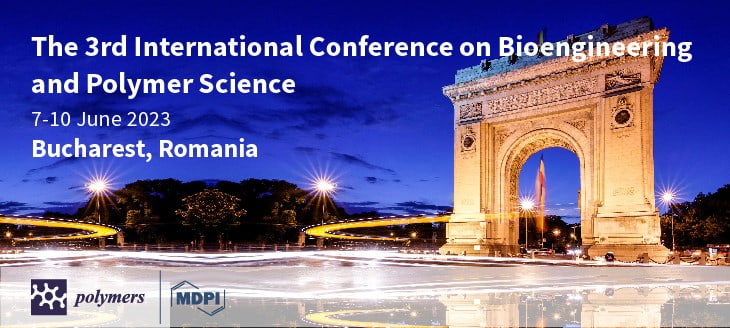
Conference: 3rd International Conference on Bioengineering and Polymer Science
Date: 7–10 June 2023
Place: Bucharest, Romania
Polymers (ISSN: 2073-4360) will be attending the 3rd International Conference on Bioengineering and Polymer Science, held in Bucharest, Romania, from 7 to 10 June 2023.
The aim is to bring together leading international scientists in the field to discuss the following topics:
- Advanced polymer-based materials in biomedical engineering;
- Functional/smart biopolymers in tissue engineering and regenerative medicine;
- Hybrid micro- and nanostructured materials;
- Polymer science and technology;
- Polymer-based materials for sustainability;
- Nanomedicine and nanotechnologies;
- Drug delivery and transdermal drug delivery;
- Molecular diagnosis and wearable devices in personalized healthcare;
- Artificial Intelligence in bioengineering;
- Biosignals and biomedical imaging.
If you are attending this conference, feel free to come and talk with us. Our delegates look forward to meeting you in person and answering any questions that you may have. For more information about the conference, please visit: http://www.bpc-apmg.upb.ro/index.html.
25 April 2023
Polymers | 15th Anniversary

Polymers (ISSN: 2073-4360) is an international, open access journal of polymer science. Since its foundation in 2009. It has published more than 19,000 papers from more than 100,000 scholars. More than 30,000 reviewers and academic editors contribute to our peer review process. Here, we would like to provide a review of the developments over the last 15 years. We would like to thank every reviewer, author, and academic editor for their support of the journal. We hope that you can join us in celebrating the 15th anniversary of our journal and enjoy the collection below.
Anniversary Video of Polymers
Development and Achievements
The history of Polymers' development over the past 15 years and the key events are shown in the timeline infographic below.
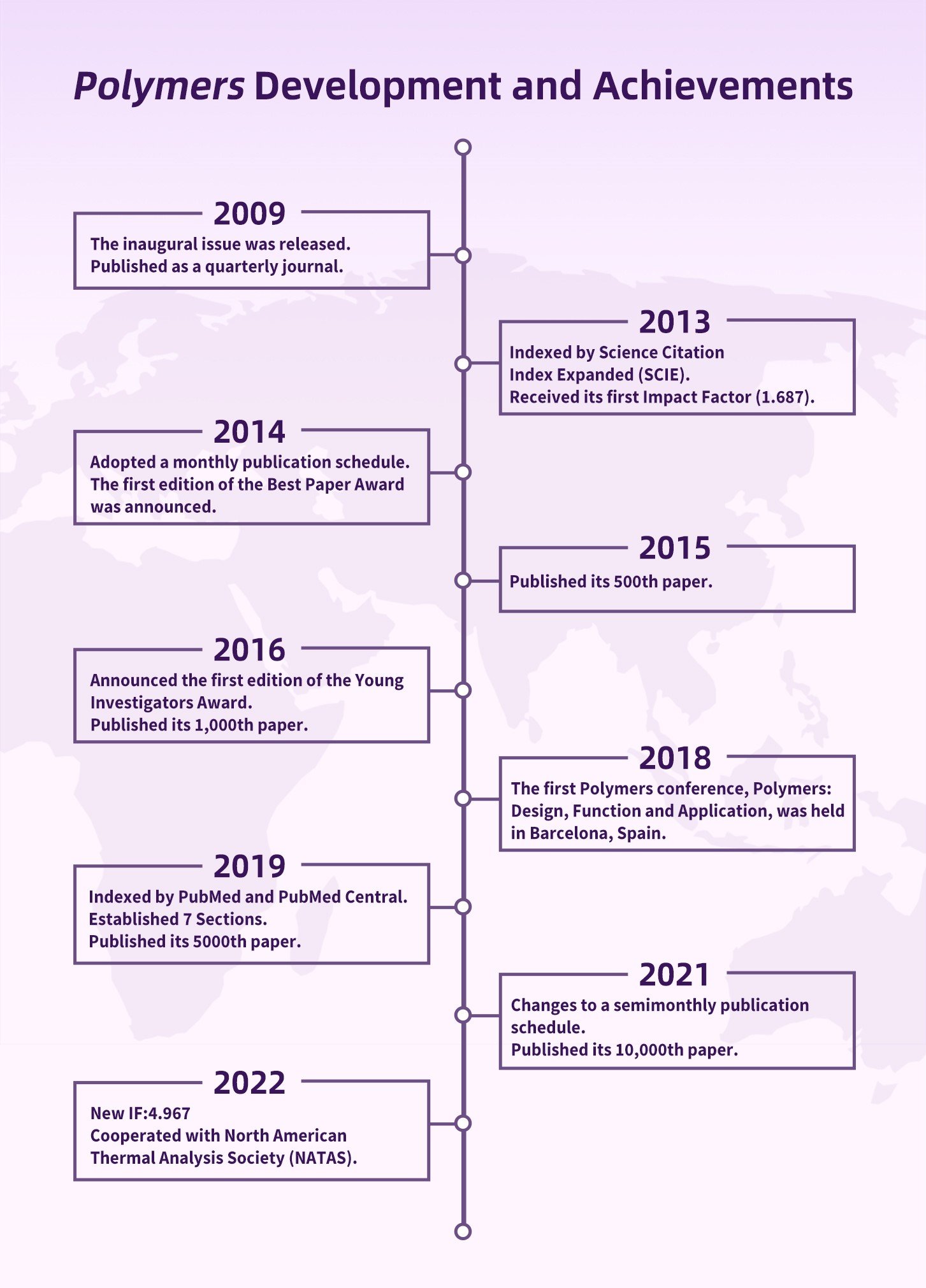
Collection of Excellent Works
To celebrate the 15th anniversary of our journal Polymers, we are pleased to invite you to read the selected excellent works. The Special Issue list is as follows:
Please click the covers above for details. For more collections of excellent works, please visit: https://www.mdpi.com/books/search?type=Reprint%20Book&journal_facet=Polymers.
Issue Covers:
| Issue 1 | Issue 3 | Issue 20 | Issue 23 |
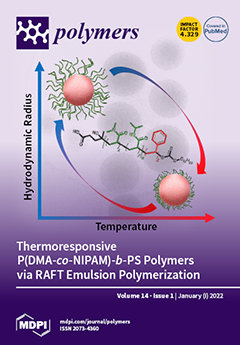 |
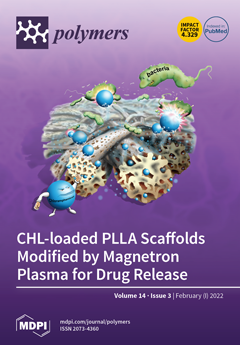 |
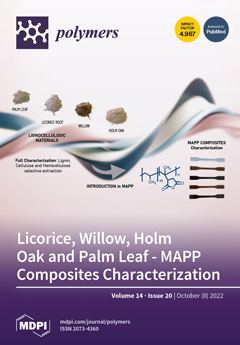 |
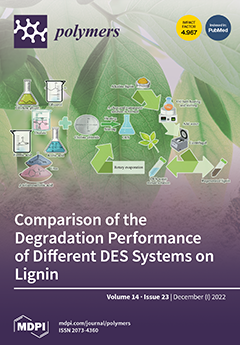 |
Please click the covers above for details. For more issue covers, please visit: https://www.mdpi.com/2073-4360/14.
29 March 2023
Meet Us at the 6th International Conference on Natural Fibers, 19–21 June 2023, Funchal, Portugal
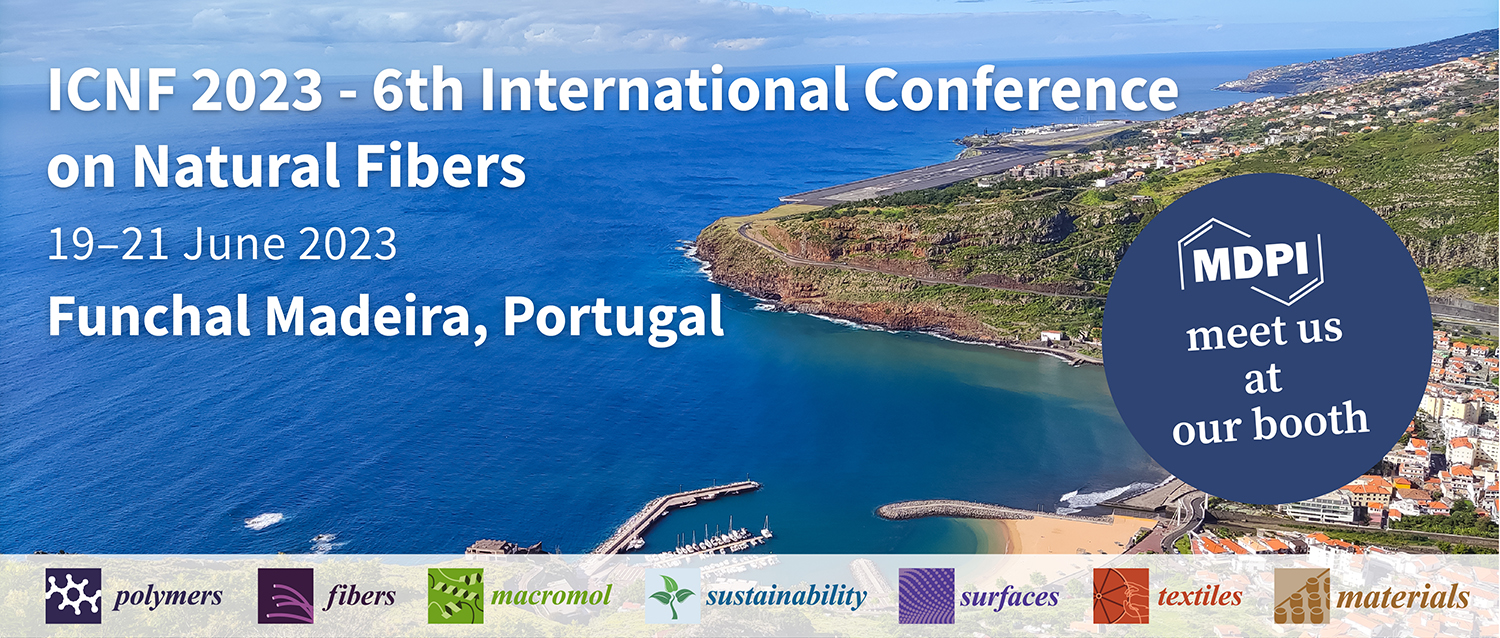
Conference: 6th International Conference on Natural Fibers
Date: 19–21 June 2023
Place: Funchal, Portugal
MDPI will be attending the 6th International Conference on Natural Fibers as an exhibitor. This meeting will be held at the VidaMar Resort Hotel, Funchal, Portugal, from 19 to 21 June 2023. The Organizing Committee comprises the University of Minho. The theme of the conference is "Nature Inspired Sustainable Solutions". Through this meeting, we wish to contribute to discussing and exchanging progress in the potential of natural fibers as key materials for smart designs and sustainable solutions in future generations.
The following MDPI journals will be represented:
If you are attending this conference, please feel free to start a conversation with us. Our delegates look forward to meeting you in person and answering any questions that you may have. For more information about the conference, please visit: https://www.icnf2023.fibrenamics.com/.
14 March 2023
Polymers | Selected Papers in 2021–2022 in the Section “Smart and Functional Polymers” (I)

We are pleased to invite you to read the selected papers from Polymers (ISSN: 2073-4360), from the Section “Smart and Functional Polymers”. The list is as follows:
1. “Development and Evaluation of Sodium Alginate/Carbopol 934P-Co-Poly (Methacrylate) Hydrogels for Localized Drug Delivery”
by Ayesha Mahmood, Asif Mahmood, Mohamed A. Ibrahim, Zahid Hussain, Muhammad Umar Ashraf, Mounir M. Salem-Bekhit and Ibrahim Elbagory
Polymers 2023, 15(2), 311; https://doi.org/10.3390/polym15020311
Full text available online: https://www.mdpi.com/2073-4360/15/2/311
2. “Photo-Responsive Micelles with Controllable and Co-Release of Carbon Monoxide, Formaldehyde and Doxorubicin”
by Bin Zheng, Lulu Yu, Huaze Dong, Jinmiao Zhu, Liang Yang and Xinsong Yuan
Polymers 2022, 14(12), 2416; https://doi.org/10.3390/polym14122416
Full text available online: https://www.mdpi.com/2073-4360/14/12/2416
3. “Scalable Manufacture of Curcumin-Loaded Chitosan Nanocomplex for pH-Responsive Delivery by Coordination-Driven Flash Nanocomplexation”
by Ziwei Xia, Zhinan Fu, Li Li, Enguang Ma, Liang Sun, Qinyu Ma and Xuhong Guo
Polymers 2022, 14(11), 2133; https://doi.org/10.3390/polym14112133
Full text available online: https://www.mdpi.com/2073-4360/14/11/2133
4. “Bioinspired High-Performance Bilayer, pH-Responsive Hydrogel with Superior Adhesive Property”
by Shulan Jiang and Li Xia
Polymers 2022, 14(20), 4425; https://doi.org/10.3390/polym14204425
Full text available online: https://www.mdpi.com/2073-4360/14/20/4425
5. “Recent Advances in Stimuli-Responsive Doxorubicin Delivery Systems for Liver Cancer Therapy”
by Elena Ruxandra Radu, Augustin Semenescu and Stefan Ioan Voicu
Polymers 2022, 14(23), 5249; https://doi.org/10.3390/polym14235249
Full text available online: https://www.mdpi.com/2073-4360/14/23/5249
6. “Influence of the Poly(ethylene Glycol) Methyl Ether Methacrylates on the Selected Physicochemical Properties of Thermally Sensitive Polymeric Particles for Controlled Drug Delivery”
by Agnieszka Gola, Maria Kozłowsk and Witold Musiał
Polymers 2022, 14(21), 4729; https://doi.org/10.3390/polym14214729
Full text available online: https://www.mdpi.com/2073-4360/14/21/4729
7. “NIPAm-Based Modification of Poly(L-lysine): A pH-Dependent LCST-Type Thermo-Responsive Biodegradable Polymer”
by Aggeliki Stamou, Hermis Iatrou and Constantinos Tsitsilianis
Polymers 2022, 14(4), 802; https://doi.org/10.3390/polym14040802
Full text available online: https://www.mdpi.com/2073-4360/14/4/802
8. “Stimulus-Responsive, Gelatin-Containing Supramolecular Nanofibers as Switchable 3D Microenvironments for Cells”
by Kentaro Hayashi, Mami Matsuda, Masaki Nakahata, Yoshinori Takashima and Motomu Tanaka
Polymers 2022, 14(20), 4407; https://doi.org/10.3390/polym14204407
Full text available online: https://www.mdpi.com/2073-4360/14/20/4407
9. “Thermo-Sensitive Poly (N-isopropylacrylamide-co-polyacrylamide) Hydrogel for pH-Responsive Therapeutic Delivery”
by Madhappan Santhamoorthy, Thi Tuong Vy Phan, Vanaraj Ramkumar, Chaitany Jayprakash Raorane, Kokila Thirupathi and Seong-Cheol Kim
Polymers 2022, 14(19), 4128; https://doi.org/10.3390/polym14194128
Full text available online: https://www.mdpi.com/2073-4360/14/19/4128
10. “Role of Maleic Anhydride-Grafted Poly(lactic acid) in Improving Shape Memory Properties of Thermoresponsive Poly(ethylene glycol) and Poly(lactic acid) Blends”
by Wasana Nonkrathok, Tatiya Trongsatitkul and Nitinat Suppakarn
Polymers 2022, 14(18), 3923; https://doi.org/10.3390/polym14183923
Full text available online: https://www.mdpi.com/2073-4360/14/18/3923
You can check all publications in the Section “Smart and Functional Polymers” at the following link: https://www.mdpi.com/search?journal=polymers§ion=1864.
14 March 2023
Polymers | Selected Papers in 2021–2022 in the Section “Biomacromolecules, Biobased and Biodegradable Polymers” (I)

We are pleased to invite you to read the selected papers from Polymers (ISSN: 2073-4360), from the Section “Biomacromolecules, Biobased and Biodegradable Polymers”. The paper list is as follows:
1. “Recent Advances and Applications of Bacterial Cellulose in Biomedicine”
by Sam Swingler, Abhishek Gupta, Hazel Gibson, Marek Kowalczuk, Wayne Heaselgrave and Iza Radecka
Polymers 2021, 13(3), 412; https://doi.org/10.3390/polym13030412
Available online: https://www.mdpi.com/2073-4360/13/3/412
2. “Utilization of Birch Bark as an Eco-Friendly Filler in Urea-Formaldehyde Adhesives for Plywood Manufacturing”
by Roman Réh, Ľuboš Krišťák, Ján Sedliačik, Pavlo Bekhta, Monika Božiková, Daniela Kunecová, Vlasta Vozárová, Eugenia Mariana Tudor, Petar Antov and Viktor Savov
Polymers 2021, 13(4), 511; https://doi.org/10.3390/polym13040511
Available online: https://www.mdpi.com/2073-4360/13/4/511
3. “Preparation and Characterization of Carboxymethyl Cellulose-Based Bioactive Composite Films Modified with Fungal Melanin and Carvacrol”
by Łukasz Łopusiewicz, Paweł Kwiatkowski, Emilia Drozłowska, Paulina Trocer, Mateusz Kostek, Mariusz Śliwiński, Magdalena Polak-Śliwińska, Edward Kowalczyk and Monika Sienkiewicz
Polymers 2021, 13(4), 499; https://doi.org/10.3390/polym13040499
Available online: https://www.mdpi.com/2073-4360/13/4/499
4. “Nanocelluloses: Sources, Pretreatment, Isolations, Modification, and Its Application as the Drug Carriers”
by Valentino Bervia Lunardi, Felycia Edi Soetaredjo, Jindrayani Nyoo Putro, Shella Permatasari Santoso, Maria Yuliana, Jaka Sunarso, Yi-Hsu Ju and Suryadi Ismadji
Polymers 2021, 13(13), 2052; https://doi.org/10.3390/polym13132052
Available online: https://www.mdpi.com/2073-4360/13/13/2052
5. “Micro- and Nanocellulose in Polymer Composite Materials: A Review”
by Abdoulhdi A. Borhana Omran and Abdulrahman A. B. A. Mohammed, S. M. Sapuan, R. A. Ilyas, M. R. M. Asyraf, Seyed Saeid Rahimian Koloor and Michal Petrů
Polymers 2021, 13(2), 231; https://doi.org/10.3390/polym13020231
Available online: https://www.mdpi.com/2073-4360/13/2/231
6. “Thermogravimetric Analysis Properties of Cellulosic Natural Fiber Polymer Composites: A Review on Influence of Chemical Treatments”
by N. M. Nurazzi, M. R. M. Asyraf, M. Rayung, M. N. F. Norrrahim, S. S. Shazleen, M. S. A. Rani, A. R. Shafi, H. A. Aisyah, M. H. M. Radzi, F. A. Sabaruddin, R. A. Ilyas, E. S. Zainudin and K. Abdan
Polymers 2021, 13(16), 2710; https://doi.org/10.3390/polym13162710
Available online: https://www.mdpi.com/2073-4360/13/16/2710
7. “Carboxymethyl Bacterial Cellulose from Nata de Coco: Effects of NaOH”
by Pornchai Rachtanapun, Pensak Jantrawut, Warinporn Klunklin, Kittisak Jantanasakulwong, Yuthana Phimolsiripol, Noppol Leksawasdi, Phisit Seesuriyachan, Thanongsak Chaiyaso, Chayatip Insomphun, Suphat Phongthai et al.
Polymers 2021, 13(3), 348; https://doi.org/10.3390/polym13030348
Available online: https://www.mdpi.com/2073-4360/13/3/348
8. “Characterizing Bacterial Cellulose Produced byKomagataeibacter sucrofermentans H-110 on Molasses Medium and Obtaining a Biocomposite Based on It for the Adsorption of Fluoride”
by Viktor V. Revin, Alexander V. Dolganov, Elena V. Liyaskina, Natalia B. Nazarova, Anastasia V. Balandina, Anna A. Devyataeva and Vadim D. Revin
Polymers 2021, 13(9), 1422; https://doi.org/10.3390/polym13091422
Available online: https://www.mdpi.com/2073-4360/13/9/1422
9. “Lignocellulosic Materials for the Production of Biofuels, Biochemicals and Biomaterials and Applications of Lignocellulose-Based Polyurethanes: A Review”
by Antonio M. Borrero-López, Concepción Valencia and José M. Franco
Polymers 2022, 14(5), 881; https://doi.org/10.3390/polym14050881
Available online: https://www.mdpi.com/2073-4360/14/5/881
10. “Controlled Polyelectrolyte Association of Chitosan and Carboxylated Nano-Fibrillated Cellulose by Desalting”
by Sarah Amine, Alexandra Montembault, Matthieu Fumagalli, Anayancy Osorio-Madrazo and Laurent David
Polymers 2021, 13(12), 2023; https://doi.org/10.3390/polym13122023
Available online: https://www.mdpi.com/2073-4360/13/12/2023
You can check all publications in the Section “Biomacromolecules, Biobased and Biodegradable Polymers” at the following link: https://www.mdpi.com/search?journal=polymers§ion=807.
14 March 2023
Polymers | Selected Papers in 2021–2022 in the Section “Polymer Networks” (I)

We are pleased to invite you to read the selected papers from Polymers (ISSN: 2073-4360), from the Section “Polymer Networks”. The paper list is as follows:
“PVA/Chitosan Thin Films Containing Silver Nanoparticles and Ibuprofen for the Treatment of Periodontal Disease”
by Marieta Constantin, Mihail Lupei, Sanda-Maria Bucatariu, Irina Mihaela Pelin, Florica Doroftei, Daniela Luminita Ichim, Oana Maria Daraba and Gheorghe Fundueanu
Polymers 2023, 15(1), 4; https://doi.org/10.3390/polym15010004
Available online: https://www.mdpi.com/2073-4360/15/1/4
“Grafted Microparticles Based on Glycidyl Methacrylate, Hydroxyethyl Methacrylate and Sodium Hyaluronate: Synthesis, Characterization, Adsorption and Release Studies of Metronidazole”
by Aurica Ionela Gugoasa, Stefania Racovita, Silvia Vasiliu and Marcel Popa
Polymers 2022, 14(19), 4151; https://doi.org/10.3390/polym14194151
Available online: https://www.mdpi.com/2073-4360/14/19/4151
“Immobilization Systems of Antimicrobial Peptide Ib−M1 in Polymeric Nanoparticles Based on Alginate and Chitosan”
by Carlos Enrique Osorio-Alvarado, Jose Luis Ropero-Vega, Ana Elvira Farfán-García and Johanna Marcela Flórez-Castillo
Polymers 2022, 14(15), 3149; https://doi.org/10.3390/polym14153149
Available online: https://www.mdpi.com/2073-4360/14/15/3149
“Covalent Organic Frameworks (COFs) as Multi-Target Multifunctional Frameworks”
by Syed Nasir Abbas Bukhari, Naveed Ahmed, Muhammad Wahab Amjad, Muhammad Ajaz Hussain, Mervat A. Elsherif, Hasan Ejaz and Nasser H. Alotaibi
Polymers 2023, 15(2), 267; https://doi.org/10.3390/polym15020267
Available online: https://www.mdpi.com/2073-4360/15/2/267
“Zn (II) Porphyrin Built-in D–A Covalent Organic Framework for Efficient Photocatalytic H2 Evolution”
by Mingbo Lv, Xitong Ren, Ronghui Cao, Zhiming Chang, Xiao Chang, Feng Bai and Yusen Li
Polymers 2022, 14(22), 4893; https://doi.org/10.3390/polym14224893
Available online: https://www.mdpi.com/2073-4360/14/22/4893
You can check all publications in the Section “Polymer Networks” at the following link:
https://www.mdpi.com/search?journal=polymers§ion=1863.
14 March 2023
Polymers | Selected Papers in 2021–2022 in the Section “Polymer Membranes and Films” (I)
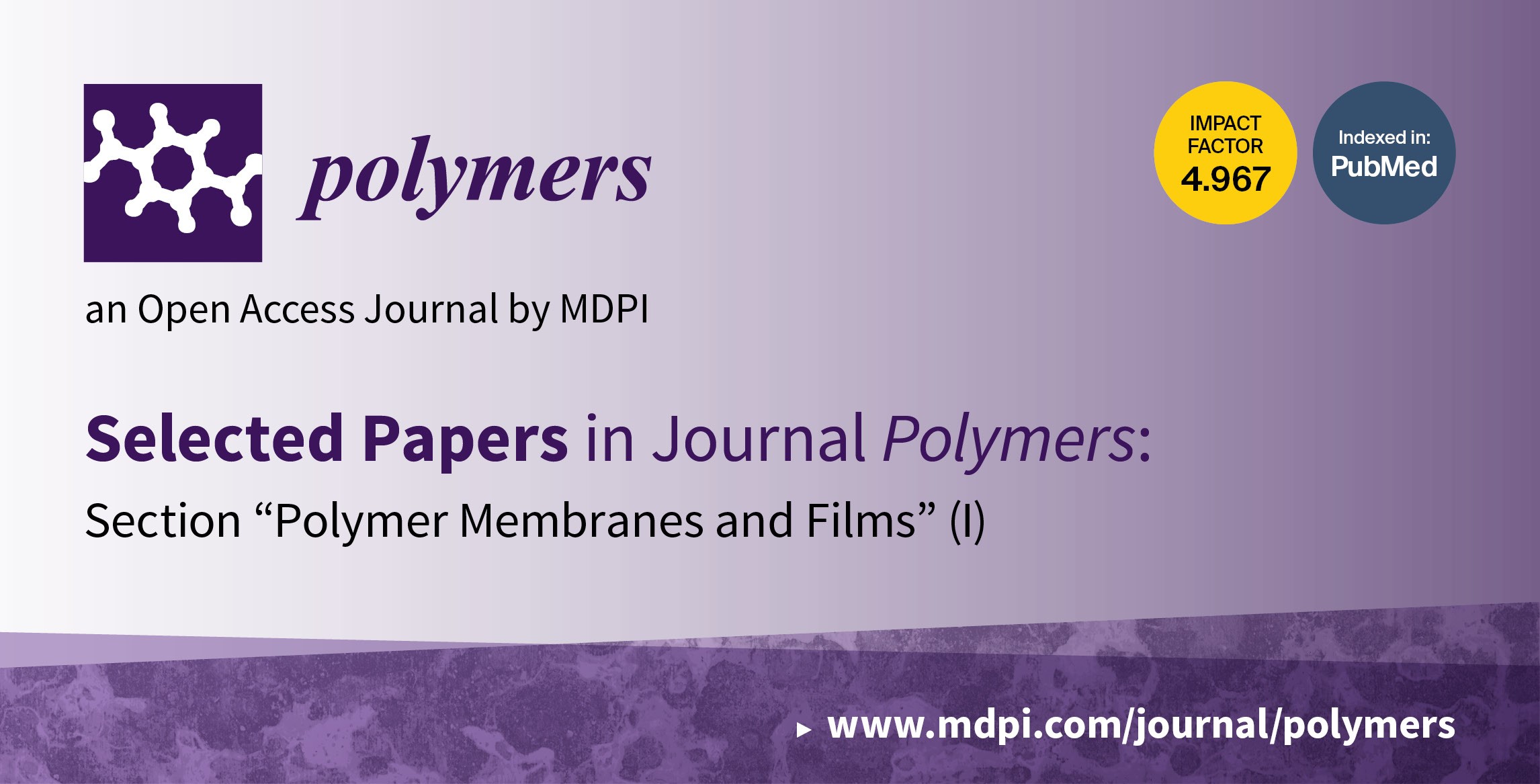
We are pleased to invite you to read the selected papers from Polymers (ISSN: 2073-4360), from the Section “Polymer Membranes and Films Section”. The list is as follows:
“Facile Fabrication of Superwetting PVDF Membrane for Highly Efficient Oil/Water Separation”
by Jinzhu Yang, Wei Sun, Junping Ju, Yeqiang Tan and Hua Yuan
Polymers 2023, 15(2), 327; https://doi.org/10.3390/polym15020327
Full text available online: https://www.mdpi.com/2073-4360/15/2/327
“Preparation and Characterization of Polyvinylalcohol/Polysulfone Composite Membranes for Enhanced CO2/N2 Separation”
by Ying Li, Danlin Chen and Xuezhong He
Polymers 2023, 15(1), 124; https://doi.org/10.3390/polym15010124
Full text available online: https://www.mdpi.com/2073-4360/15/1/124
“Aromatic Polyimide Membranes with tert-Butyl and Carboxylic Side Groups for Gas Separation Applications—Covalent Crosslinking Study”
by Noelia Esteban, Marta Juan-y-Seva, Carla Aguilar-Lugo, Jesús A. Miguel, Claudia Staudt, José G. de la Campa, Cristina Álvarez and Ángel E. Lozano
Polymers 2022, 14(24), 5517; https://doi.org/10.3390/polym14245517
Full text available online: https://www.mdpi.com/2073-4360/14/24/5517
“Fluoropolymer Membranes for Membrane Distillation and Membrane Crystallization”
by Xue Li, Jun Pan, Francesca Macedonio, Claudia Ursino, Mauro Carraro, Marcella Bonchio, Enrico Drioli, Alberto Figoli, Zhaohui Wang and Zhaoliang Cui
Polymers 2022, 14(24), 5439; https://doi.org/10.3390/polym14245439
Full text available online: https://www.mdpi.com/2073-4360/14/24/5439
“Effect of Acetone as Co-Solvent on Fabrication of Polyacrylonitrile Ultrafiltration Membranes by Non-Solvent Induced Phase Separation”
by Alexey Yushkin, Andrey Basko, Alexey Balynin, Mikhail Efimov, Tatyana Lebedeva, Anna Ilyasova, Konstantin Pochivalov and Alexey Volkov
Polymers 2022, 14(21), 4603; https://doi.org/10.3390/polym14214603
Full text available online: https://www.mdpi.com/2073-4360/14/21/4603
“Free Volume and Permeability of Mixed Matrix Membranes Made from a Terbutil-M-terphenyl Polyamide and a Porous Polymer Network”
by Cenit Soto, Javier Carmona, Benny D. Freeman, Laura Palacio, Alfonso González-Ortega, Pedro Prádanos, Ángel E. Lozano and Antonio Hernandez
Polymers 2022, 14(15), 3176; https://doi.org/10.3390/polym14153176
Full text available online: https://www.mdpi.com/2073-4360/14/15/3176
“High Efficiency Membranes Based on PTMSP and Hyper-Crosslinked Polystyrene for Toxic Volatile Compounds Removal from Wastewater”
by Georgy Golubev, Stepan Sokolov, Tatyana Rokhmanka, Sergey Makaev, Ilya Borisov, Svetlana Khashirova and Alexey Volkov
Polymers 2022, 14(14), 2944; https://doi.org/10.3390/polym14142944
Full text available online: https://www.mdpi.com/2073-4360/14/14/2944
“Aluminum Diethylphosphinate-Incorporated Flame-Retardant Polyacrylonitrile Separators for Safety of Lithium-Ion Batteries”
by Seok Hyeon Kang, Hwan Yeop Jeong, Tae Ho Kim, Jang Yong Lee, Sung Kwon Hong, Young Taik Hong, Jaewon Choi, Soonyong So, Sang Jun Yoon and Duk Man Yu
Polymers 2022, 14(9), 1649; https://doi.org/10.3390/polym14091649
Full text available online: https://www.mdpi.com/2073-4360/14/9/1649
“Novel Mixed Matrix Membranes Based on Polyphenylene Oxide Modified with Graphene Oxide for Enhanced Pervaporation Dehydration of Ethylene Glycol”
by Mariia Dmitrenko, Anastasia Chepeleva, Vladislav Liamin, Anton Mazur, Konstantin Semenov, Nikolay Solovyev and Anastasia Penkova
Polymers 2022, 14(4), 691; https://doi.org/10.3390/polym14040691
Full text available online: https://www.mdpi.com/2073-4360/14/4/691
“Preparation of Citric Acid-Sewage Sludge Hydrochar and Its Adsorption Performance for Pb(II) in Aqueous Solution”
by Yangpeng Huang, Dekui Shen and Zhanghong Wang
Polymers 2022, 14(5), 968; https://doi.org/10.3390/polym14050968
Full text available online: https://www.mdpi.com/2073-4360/14/5/968
14 March 2023
Polymers | Selected Papers in 2021–2022 in the Section “Polymer Fibers” (I)
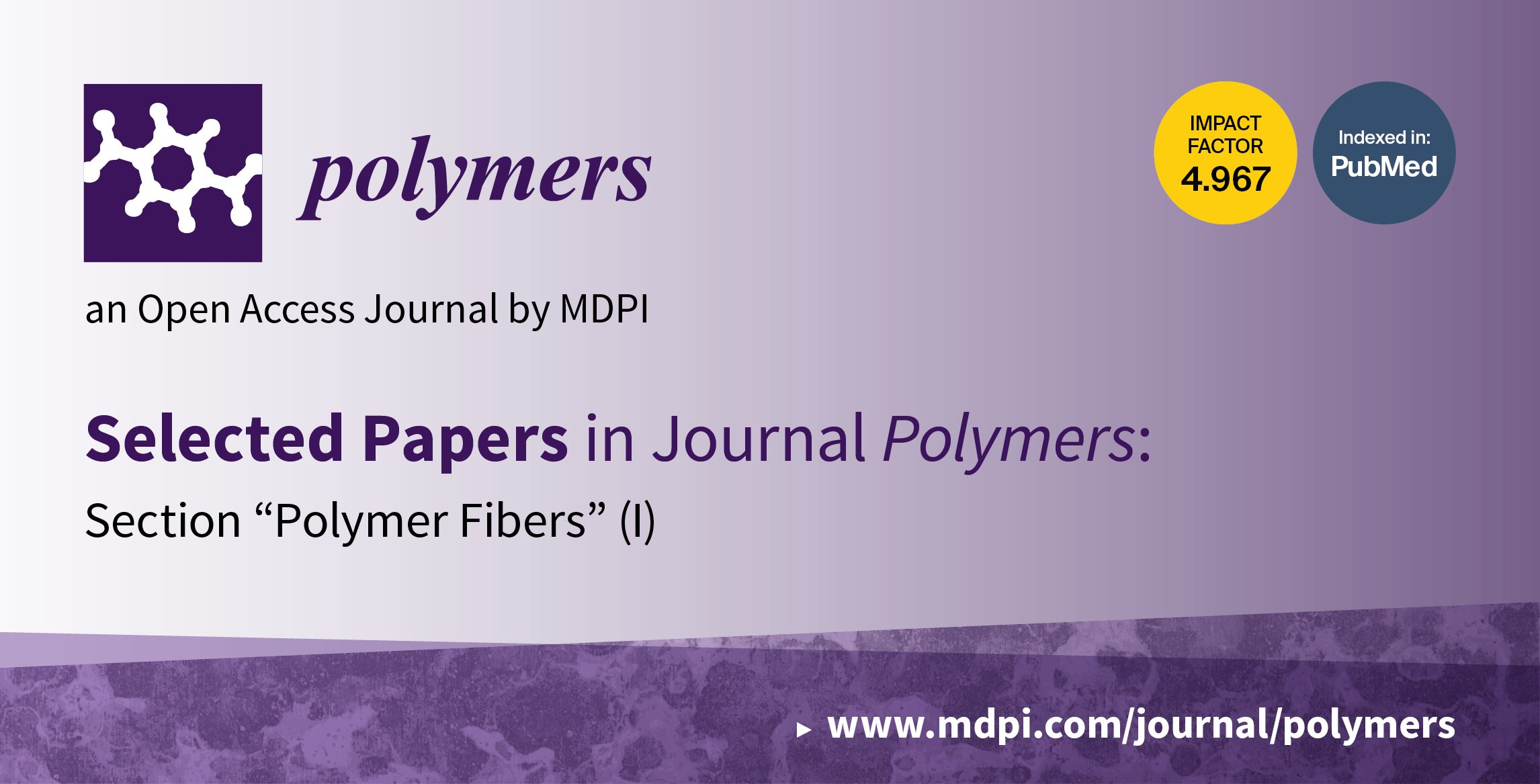
We are pleased to invite you to read the selected papers from Polymers (ISSN: 2073-4409), from the Section “Polymer Fibers”. The list is as follows:
1. “Enhancing Thermal Conductivity of Polyvinylidene Fluoride Composites by Carbon Fiber: Length Effect of the Filler”
by Guoqing Yi, Jingliang Li, Luke C. Henderson, Weiwei Lei, Lian Du and Shuaifei Zhao
Polymers 2022, 14(21), 4599; https://doi.org/10.3390/polym14214599
Full text available online: https://www.mdpi.com/2073-4360/14/21/4599
2. “Recycled Multi-Material Packaging Reinforced with Flax Fibres: Thermal and Mechanical Behaviour”
by Irene Bavasso, Claudia Sergi, Teodoro Valente, Jacopo Tirillò and Fabrizio Sarasini
Polymers 2022, 14(20), 4423; https://doi.org/10.3390/polym14204423
Full text available online: https://www.mdpi.com/2073-4360/14/20/4423
3. “Fiber Reinforced Polymer Debonding Failure Identification Using Smart Materials in Strengthened T-Shaped Reinforced Concrete Beams”
by Adamantis G. Zapris, Maria C. Naoum, Violetta K. Kytinou, George M. Sapidis and Constantin E. Chalioris
Polymers 2023, 15(2), 278; https://doi.org/10.3390/polym15020278
Full text available online: https://www.mdpi.com/2073-4360/15/2/278
4. “Recycled Multi-Material Packaging Reinforced with Flax Fibres: Thermal and Mechanical Behaviour”
by Irene Bavasso, Claudia Sergi, Teodoro Valente, Jacopo Tirillò and Fabrizio Sarasini
Polymers 2022, 14(20), 4423; https://doi.org/10.3390/polym14204423
Full text available online: https://www.mdpi.com/2073-4360/14/20/4423
5. “Design, Fabrication, and Characterization of an Impact Dissipative Layer for Fiber-Reinforced Polymer Composites”
by Cristina Alía-García, Álvaro Rodríguez-Ortiz, Patrick Townsend and Juan C. Suárez-Bermejo
Polymers 2022, 14(17), 3631; https://doi.org/10.3390/polym14173631
Full text available online: https://www.mdpi.com/2073-4360/14/17/3631
6. “Shear Strengthening by GFRPU on an RC Column with Nonseismic Reinforcement Details”
by Eun-Taik Lee, Jae-Hyoung An, Jun-Hyeok Song, Yu-Sik Hong and Hee-Chang Eun
Polymers 2022, 14(17), 3596; https://doi.org/10.3390/polym14173596
Full text available online: https://www.mdpi.com/2073-4360/14/17/3596
7. “Continuously Reinforced Polymeric Composite for Additive Manufacturing—Development and Efficiency Analysis”
by Arvydas Rimkus, Mahmoud M. Farh and Viktor Gribniak
Polymers 2022, 14(17), 3471; https://doi.org/10.3390/polym14173471
Full text available online: https://www.mdpi.com/2073-4360/14/17/3471
8. “Demonstration of Hybrid Effect in Single Fiber Pull-Out Tests for Glass/Cellulose-Reinforced Polypropylene with Different Fiber–Matrix Adhesions”
by Christian Kahl, Julius Bagnucki and Jan-Christoph Zarges
Polymers 2022, 14(13), 2517; https://doi.org/10.3390/polym14132517
Full text available online: https://www.mdpi.com/2073-4360/14/13/2517
9. “Parametric Design Studies of Mass-Related Global Warming Potential and Construction Costs of FRP-Reinforced Concrete Infrastructure”
by Philipp Preinstorfer, Tobias Huber, Sara Reichenbach, Janet M. Lees and Benjamin Kromoser
Polymers 2022, 14(12), 2383; https://doi.org/10.3390/polym14122383
Full text available online: https://www.mdpi.com/2073-4360/14/12/2383
10. “Void Content Determination of Carbon Fiber Reinforced Polymers: A Comparison between Destructive and Non-Destructive Methods”
by Moustafa Elkolali, Liebert Parreiras Nogueira, Per Ola Rønning and Alex Alcocer
Polymers 2022, 14(6), 1212; https://doi.org/10.3390/polym14061212
Full text available online: https://www.mdpi.com/2073-4360/14/6/1212
You can check all publications in the Section “Polymer Fibers” at the following link: https://www.mdpi.com/search?journal=polymers§ion=1897.
14 March 2023
Polymers | Selected Papers in 2021–2022 in the Section “Circular and Green Polymer Science” (I)

We are pleased to invite you to read the selected papers in Polymers (ISSN: 2073-4409) in the Section “Circular and Green Polymer Science Section”. The papers are as follows:
1. "The Road to Bring FDCA and PEF to the Market"
by Ed de Jong, Hendrikus (Roy) A. Visser, Ana Sousa Dias, Clare Harvey and Gert-Jan M. Gruter
Polymers 2022, 14(5), 943; https://doi.org/10.3390/polym14050943
Available online: https://www.mdpi.com/2073-4360/14/5/943
2. "Towards a Circular Economy of Plastics: An Evaluation of the Systematic Transition to a New Generation of Bioplastics"
by Elda M. Melchor-Martínez, Rodrigo Macías-Garbett, Lynette Alvarado-Ramírez, Rafael G. Araújo, Juan Eduardo Sosa-Hernández, Diana Ramírez-Gamboa, Lizeth Parra-Arroyo, Abraham Garza Alvarez, Rosina Paola Benavides Monteverde, Karen Aleida Salazar Cazares et al.
Polymers 2022, 14(6), 1203; https://doi.org/10.3390/polym14061203
Available online: https://www.mdpi.com/2073-4360/14/6/1203
3. "Latent Recycling Potential of Multilayer Films in Austrian Waste Management"
by Gerald Koinig, Bettina Rutrecht, Karl Friedrich, Chiara Barretta, Ruiqi Shang and Daniel Vollprecht
Polymers 2022, 14(8), 1553; https://doi.org/10.3390/polym14081553
Available online: https://www.mdpi.com/2073-4360/14/8/1553
4. "Short-and Long-Term Performance of Pipe Compounds Containing Polyethylene Post-Consumer Recyclates from Packaging Waste"
by Paul J. Freudenthaler, Joerg Fischer, Yi Liu and Reinhold W. Lang
Polymers 2022, 14(8), 1581; https://doi.org/10.3390/polym14081581
Available online: https://www.mdpi.com/2073-4360/14/8/1581
5. "Cutinase-Catalyzed Polyester-Polyurethane Degradation: Elucidation of the Hydrolysis Mechanism"
by Federico Di Bisceglie, Felice Quartinello, Robert Vielnascher, Georg M. Guebitz and Alessandro Pellis
Polymers 2022, 14(3), 411; https://doi.org/10.3390/polym14030411
Available online: https://www.mdpi.com/2073-4360/14/3/411
6. "Multilayer Packaging in a Circular Economy"
by Jannick Schmidt, Laura Grau, Maximilian Auer, Roman Maletz and Jörg Woidasky
Polymers 2022, 14(9), 1825; https://doi.org/10.3390/polym14091825
Available online: https://www.mdpi.com/2073-4360/14/9/1825
7. "Investigation of Polyester Tire Cord Glycolysis Accompanied by Rubber Crumb Devulcanization"
by Kirill Kirshanov, Roman Toms, Pavel Melnikov and Alexander Gervald
Polymers 2022, 14(4), 684; https://doi.org/10.3390/polym14040684
Available online: https://www.mdpi.com/2073-4360/14/4/684
8. "A Brief Review of Poly(Vinyl Chloride) (PVC) Recycling"
by Krzysztof Lewandowski and Katarzyna Skórczewska
Polymers 2022, 14(15), 3035; https://doi.org/10.3390/polym14153035
Available online: https://www.mdpi.com/2073-4360/14/15/3035
9. "Oil Production by Pyrolysis of Real Plastic Waste"
by Laura Fulgencio-Medrano, Sara García-Fernández, Asier Asueta, Alexander Lopez-Urionabarrenechea, Borja B. Perez-Martinez and José María Arandes
Polymers 2022, 14(3), 553; https://doi.org/10.3390/polym14030553
Available online: https://www.mdpi.com/2073-4360/14/3/553
10. "Thermal and Mechanical Properties of the Recycled and Virgin PET—Part I"
by Yasemin Celik, Madina Shamsuyeva and Hans Josef Endres
Polymers 2022, 14(7), 1326; https://doi.org/10.3390/polym14071326
Available online: https://www.mdpi.com/2073-4360/14/7/1326
You can check all publications in the Section “Circular and Green Polymer Science Section” at the following link: https://www.mdpi.com/search?journal=polymers§ion=1949.
14 March 2023
Polymers | Selected Papers in 2021–2022 in the Section “Polymer Composites and Nanocomposites” (I)
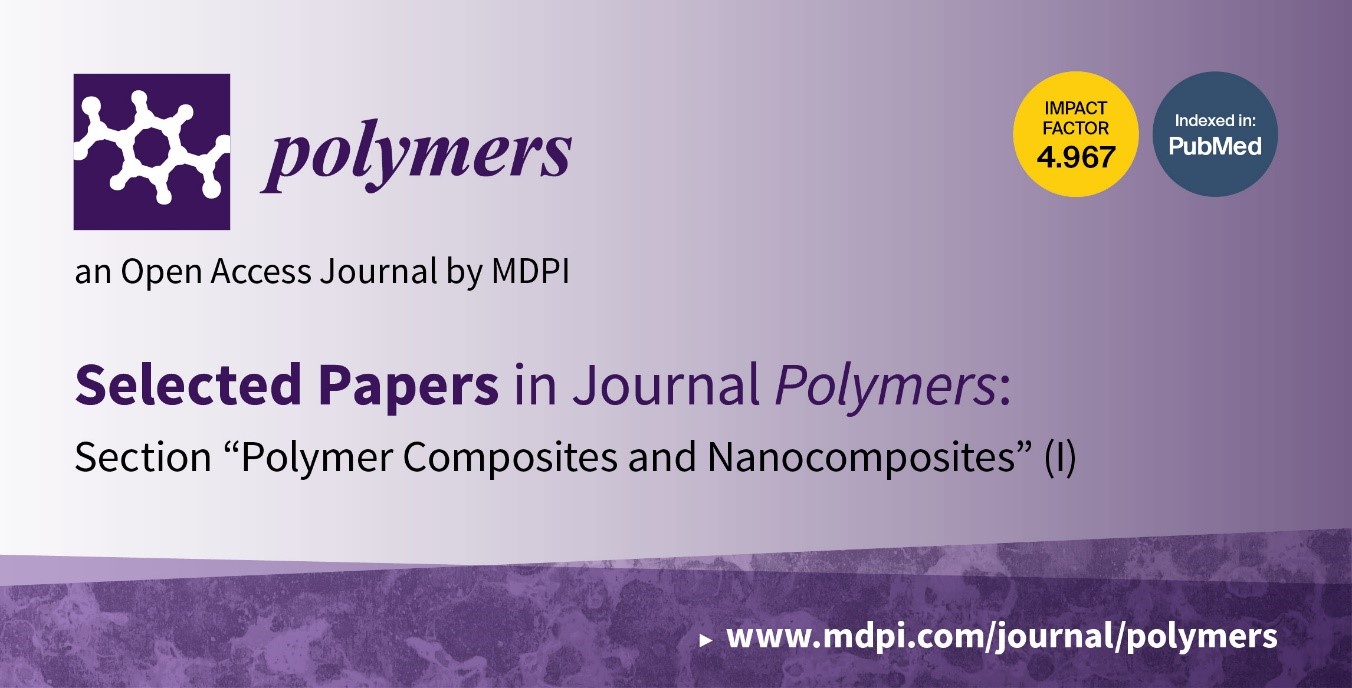
We are pleased to invite you to read the selected papers in Polymers (ISSN: 2073-4409) in the Section “Polymer Composites and Nanocomposites”. The paper list is as follows:
1. “Reinforced Epoxy Composites Modified with Functionalized Graphene Oxide”
by Anton Mostovoy, Andrey Shcherbakov, Andrey Yakovlev, Sergey Arzamastsev and Marina Lopukhova
Polymers 2022, 14(2), 338; https://doi.org/10.3390/polym14020338
Available online: https://www.mdpi.com/2073-4360/14/2/338
2. “The Effect of Agglomeration on the Electrical and Mechanical Properties of Polymer Matrix Nanocomposites Reinforced with Carbon Nanotubes”
by Sebastian Tamayo-Vegas , Ali Muhsan, Chang Liu, Mostapha Tarfaoui and Khalid Lafdi
Polymers 2022, 14(9), 1842; https://doi.org/10.3390/polym14091842
Available online: https://www.mdpi.com/2073-4360/14/9/1842
3. “Investigation of Mechanical Behaviors of Functionally Graded CNT-Reinforced Composite Plates”
by Jin-Rae Cho and Young-Ju Ahn
Polymers 2022, 14(13), 2664; https://doi.org/10.3390/polym14132664
Available online: https://www.mdpi.com/2073-4360/14/13/2664
4. “Effects of Amino Hyperbranched Polymer-Modified Carbon Nanotubes on the Crystallization Behavior of Poly (L-Lactic Acid) (PLLA)”
by Bofan Shen, Shulai Lu, Chunfu Sun, Zhenbiao Song, Fuyi Zhang, Jian Kang, Ya Cao and Ming Xiang
Polymers 2022, 14(11), 2188; https://doi.org/10.3390/polym14112188
Available online: https://www.mdpi.com/2073-4360/14/11/2188
5. “Influence of Ionomer and Cyanuric Acid on Antistatic, Mechanical, Thermal, and Rheological Properties of Extruded Carbon Nanotube (CNT)/Polyoxymethylene (POM) Nanocomposites”
by Sang-Seok Yun, Dong-hyeok Shin and Keon-Soo Jang
Polymers 2022, 14(9), 1849; https://doi.org/10.3390/polym14091849
Available online: https://www.mdpi.com/2073-4360/14/9/1849
6. “Immobilization of Air-Stable Copper Nanoparticles on Graphene Oxide Flexible Hybrid Films for Smart Clothes”
by Peng-Yang Huang, Chen-Yang Huang, Jia-Wun Li, Sheng-Yen Shen, Chih-Chia Cheng, Chih-Wei Chiu, Ru-Jong Jeng and Jiang-Jen Lin
Polymers 2022, 14(2), 237; https://doi.org/10.3390/polym14020237
Available online: https://www.mdpi.com/2073-4360/14/2/237
7. “Influence of CNT Length on Dispersion, Localization, and Electrical Percolation in a Styrene-Butadiene-Based Star Block Copolymer”
by Ulrike Staudinger, Andreas Janke, Christine Steinbach, Uta Reuter, Martin Ganß and Oliver Voigt
Polymers 2022, 14(13), 2715; https://doi.org/10.3390/polym14132715
Available online: https://www.mdpi.com/2073-4360/14/13/2715
8. “Bio-Based Rigid Polyurethane Foams Modified with C-MOF/MWCNTs and TBPBP as Building Insulation Materials: Synergistic Effect and Corresponding Mechanism for Enhancing Fire and Smoke Safety”
by Guangxu Bo, Xiaoling Xu, Xiaoke Tian, Jinyong Yan, Xingjian Su and Yunjun Yan
Polymers 2022, 14(17), 3630; https://doi.org/10.3390/polym14173630
Available online: https://www.mdpi.com/2073-4360/14/17/3630
9. “Nonwoven Mats Based on Segmented Biopolyurethanes Filled with MWCNT Prepared by Solution Blow Spinning”
by Pablo Ramos, Tamara Calvo-Correas, Arantxa Eceiza and Javier González-Benito
Polymers 2022, 14(19), 4175; https://doi.org/10.3390/polym14194175
Available online: https://www.mdpi.com/2073-4360/14/19/4175
10. “p-Type PVA/MWCNT-Sb2Te3 Composites for Application in Different Types of Flexible Thermoelectric Generators in Combination with n-Type PVA/MWCNT-Bi2Se3 Composites”
by Jana Andzane, Krisjanis Buks, Juris Bitenieks, Lasma Bugovecka, Artis Kons, Remo Merijs-Meri, Janis Svirksts, Janis Zicans and Donats Erts
Polymers 2022, 14(23), 5130; https://doi.org/10.3390/polym14235130
Available online: https://www.mdpi.com/2073-4360/14/23/5130
You can check all publications in the Section “Polymer Composites and Nanocomposites” at the following link: https://www.mdpi.com/search?journal=polymers§ion=1174.
14 March 2023
Join Us at the 13th National Symposium on the Molecular and Structural Characterization of Polymers, 31 March–2 April 2023, Shenzhen, China
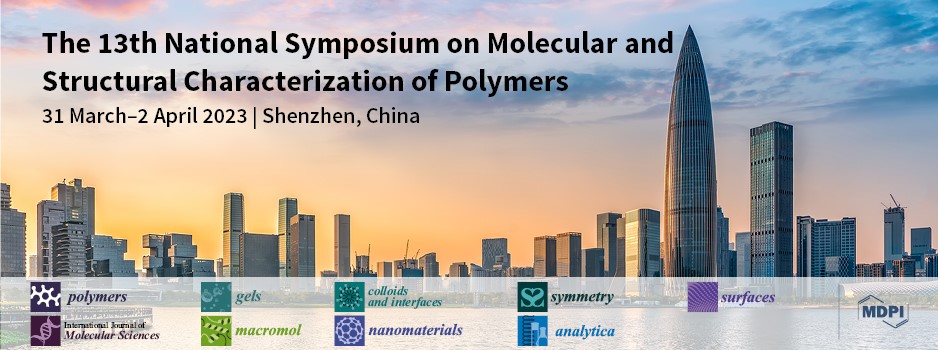
Conference: 13th National Symposium on the Molecular and Structural Characterization of Polymers
Date: 31 March–2 April 2023
Place: Shenzhen, China
MDPI will be attending the 13th National Symposium on the Molecular and Structural Characterization of Polymers as an exhibitor. This meeting will be held at Hyatt Regency Shenzhen Yantian, Shenzhen, China, from 31 March to 2 April 2023. The organizing committee consists of the Polymer Materials Analytical Technology and Characteristic Methods Committee of Chinese Chemical Society. Through this meeting, we wish to contribute to the discussion on the progress in the field of polymer characterization.
The following MDPI journals will be represented:
- Polymers;
- Gels;
- Colloids and Interfaces;
- Symmetry;
- Surfaces;
- IJMS;
- Macromol;
- Nanomaterials;
- Analytica.
If you are attending this conference, please feel free to start a conversation with us. Our delegates look forward to meeting you in person and answering any questions that you may have. For more information about the conference, please visit https://poly-struc2022.scievent.com/.
14 March 2023
Polymers | Selected Papers in 2021–2022 in the Section “Polymer Applications” (I)
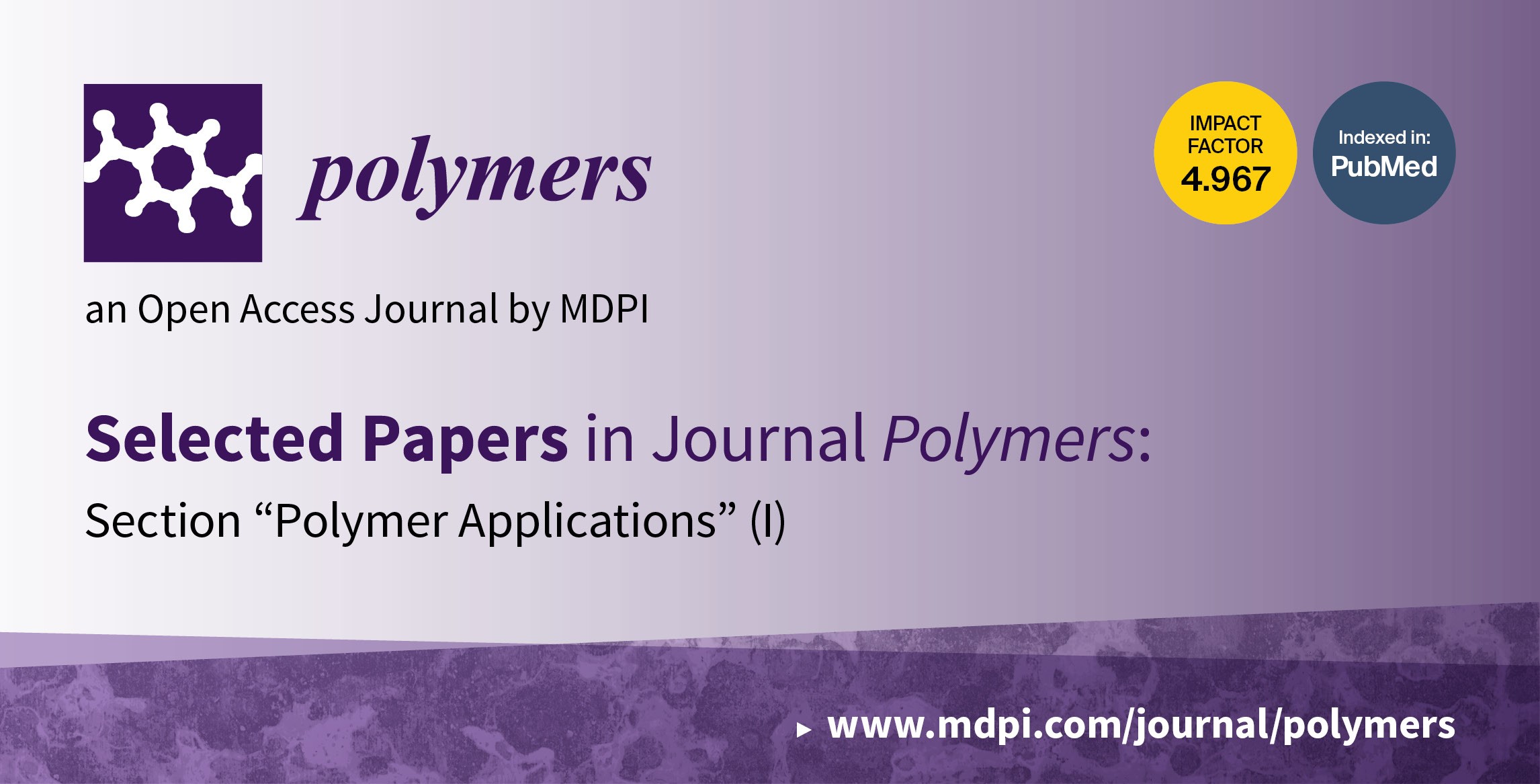
We are pleased to invite you to read the selected papers from Polymers (ISSN: 2073-4409), from the Section “Polymer Applications”. The paper list is as follows:
“Highly Stretchable and Sensitive Multimodal Tactile Sensor Based on Conductive Rubber Composites to Monitor Pressure and Temperature”
by Bing Zhu, Chi Ma, Zhihui Qian, Lei Ren and Hengyi Yuan
Polymers 2022, 14(7), 1294; https://doi.org/10.3390/polym14071294
Available online: https://www.mdpi.com/2073-4360/14/7/1294
“Stretchable and Self-Healable Graphene–Polymer Conductive Composite for Wearable EMG Sensor”
by Jihyang Song, Yewon Kim, Kyumin Kang, Sangkyu Lee, Mikyung Shin and Donghee Son
Polymers 2022, 14(18), 3766; https://doi.org/10.3390/polym14183766
Available online: https://www.mdpi.com/2073-4360/14/18/3766
“Amino Acid-Assisted Sand-Milling Exfoliation of Boron Nitride Nanosheets for High Thermally Conductive Thermoplastic Polyurethane Composites”
by Shihao Zheng, Bing Wang, Xiaojie Zhang and Xiongwei Qu
Polymers 2022, 14(21), 4674; https://doi.org/10.3390/polym14214674
Available online: https://www.mdpi.com/2073-4360/14/21/4674
“Boosting the Electrochemical Performance of Polyaniline by One-Step Electrochemical Deposition on Nickel Foam for High-Performance Asymmetric Supercapacitor”
by Syed Shaheen Shah, Himadri Tanaya Das, Hasi Rani Barai and Md. Abdul Aziz
Polymers 2022, 14(2), 270; https://doi.org/10.3390/polym14020270
Available online: https://www.mdpi.com/2073-4360/14/2/270
“MOFs-Graphene Composites Synthesis and Application for Electrochemical Supercapacitor: A Review”
by Surendra K. Shinde, Dae-Young Kim, Manu Kumar, Govindhasamy Murugadoss, Sivalingam Ramesh, Asiya M. Tamboli and Hemraj M. Yadav
Polymers 2022, 14(3), 511; https://doi.org/10.3390/polym14030511
Available online: https://www.mdpi.com/2073-4360/14/3/511
“Diffusion- and Chemometric-Based Separation of Complex Electrochemical Signals That Originated from Multiple Redox-Active Molecules”
by Stav Biton Hayun, Rajendra P. Shukla and Hadar Ben-Yoav
Polymers 2022, 14(4), 717; https://doi.org/10.3390/polym14040717
Available online: https://www.mdpi.com/2073-4360/14/4/717
“Utilizing Biomass-Based Graphene Oxide–Polyaniline–Ag Electrodes in Microbial Fuel Cells to Boost Energy Generation and Heavy Metal Removal”
by Asim Ali Yaqoob, Albert Serrà, Showkat Ahmad Bhawani, Mohamad Nasir Mohamad Ibrahim, Anish Khan, Hajer S. Alorfi, Abdullah M. Asiri, Mahmoud Ali Hussein, Imran Khan and Khalid Umar
Polymers 2022, 14(4), 845; https://doi.org/10.3390/polym14040845
Available online: https://www.mdpi.com/2073-4360/14/4/845
“Triboelectric Enhancement of Polyvinylidene Fluoride Membrane Using Magnetic Nanoparticle for Water-Based Energy Harvesting”
by Duy-Linh Vu and Kyoung-Kwan Ahn
Polymers 2022, 14(8), 1547; https://doi.org/10.3390/polym14081547
Available online: https://www.mdpi.com/2073-4360/14/8/1547
“Hydroxyl Conducting Hydrogels Enable Low-Maintenance Commercially Sized Rechargeable Zn–MnO2 Batteries for Use in Solar Microgrids”
by Jungsang Cho, Gautam Ganapati Yadav, Meir Weiner, Jinchao Huang, Aditya Upreti, Xia Wei, Roman Yakobov, Brendan E. Hawkins, Michael Nyce, Timothy N. Lambert et al.
Polymers 2022, 14(3), 417; https://doi.org/10.3390/polym14030417
Available online: https://www.mdpi.com/2073-4360/14/3/417
“Preparation of Electrochemical Supercapacitor Based on Polypyrrole/Gum Arabic Composites”
by Rizwan Ullah, Nadia Khan, Rozina Khattak, Mehtab Khan, Muhammad Sufaid Khan and Omar M. Ali
Polymers 2022, 14(2), 242; https://doi.org/10.3390/polym14020242
Available online: https://www.mdpi.com/2073-4360/14/2/242
You can check all publications in the Section “Polymer Applications” at the following link: https://www.mdpi.com/search?journal=polymers§ion=806.
14 March 2023
Polymers | Selected Papers in 2021–2022 in the Section “Polymer Processing and Engineering” (I)
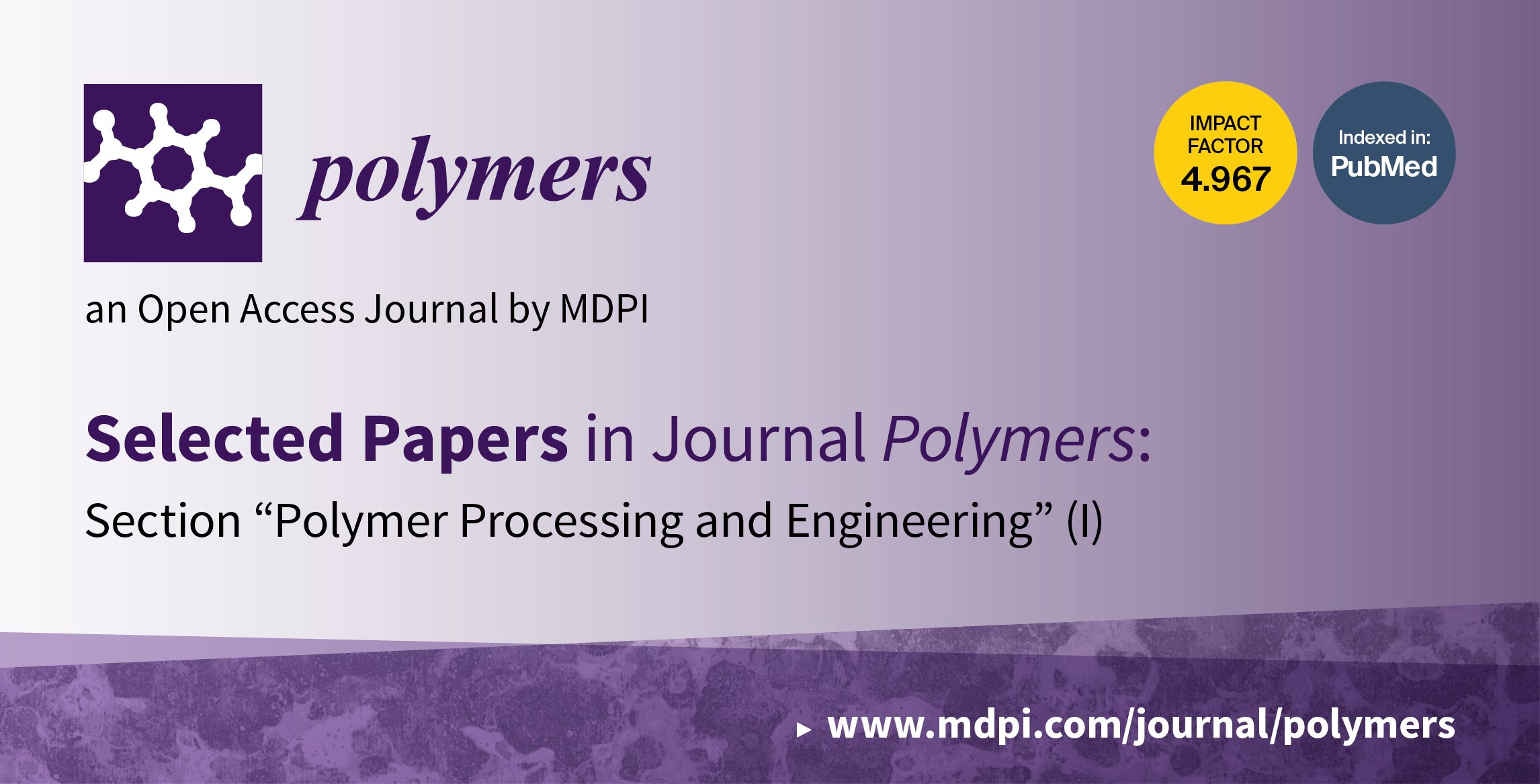
We are pleased to invite you to read the selected papers from Polymers (ISSN: 2073-4360), from the Section “Polymer Processing and Engineering”. The paper list is as follows:
1. “Sustainable Polymer Composites Manufacturing through 3D Printing Technologies by Using Recycled Polymer and Filler”
by Daniela Fico, Daniela Rizzo, Valentina De Carolis, Francesco Montagna and Carola Esposito Corcione
Polymers 2022, 14(18), 3756; https://doi.org/10.3390/polym14183756
Full text available online: https://www.mdpi.com/2073-4360/14/18/3756
2. “Basalt Fiber Composites with Reduced Thermal Expansion for Additive Manufacturing”
by Daniel Moreno-Sanchez, Alberto Sanz de León, Daniel Moreno Nieto, Francisco J. Delgado and Sergio I. Molina
Polymers 2022, 14(15), 3216; https://doi.org/10.3390/polym14153216
Full text available online: https://www.mdpi.com/2073-4360/14/15/3216
3. “Design for 3D Printed Tools: Mechanical Material Properties for Direct Polymer Additive Tooling”
by Peter Frohn-Sörensen, Michael Geueke, Bernd Engel, Bernd Löffler, Philipp Bickendorf, Arian Asimi, Georg Bergweiler and Günther Schuh
Polymers 2022, 14(9), 1694; https://doi.org/10.3390/polym14091694
Full text available online: https://www.mdpi.com/2073-4360/14/9/1694
4. “Hybrid Manufacturing of Acrylonitrile Butadiene Styrene (ABS) via the Combination of Material Extrusion Additive Manufacturing and Injection Molding”
by Ke Gong, Handai Liu, Cheng Huang, Zhi Cao, Evert Fuenmayor and Ian Major
Polymers 2022, 14(23), 5093; https://doi.org/10.3390/polym14235093
Full text available online: https://www.mdpi.com/2073-4360/14/23/5093
5. “High-Resolution 3D Printing Fabrication of a Microfluidic Platform for Blood Plasma Separation”
by Daniela Fico, Daniela Rizzo, Valentina De Carolis, Francesco Montagna and Carola Esposito Corcione
Polymers 2022, 14(13), 2537; https://doi.org/10.3390/polym14132537
Full text available online: https://www.mdpi.com/2073-4360/14/13/2537
6. “Rheological Behavior and Dynamic Mechanical Properties for Interpretation of Layer Adhesion in FDM 3D Printing”
by Supaphorn Thumsorn, Wattanachai Prasong, Takashi Kurose, Akira Ishigami, Yutaka Kobayashi and Hiroshi Ito
Polymers 2022, 14(13), 2721; https://doi.org/10.3390/polym14132721
Full text available online: https://www.mdpi.com/2073-4360/14/13/2721
7. “CaCO3 Polymorphs Used as Additives in Filament Production for 3D Printing”
by Lucie Zárybnická, Radek Ševčík, Jaroslav Pokorný, Dita Machová, Eliška Stránská and Jiří Šál
Polymers 2022, 14(1), 199; https://doi.org/10.3390/polym14010199
Full text available online: https://www.mdpi.com/2073-4360/14/1/199
8. “Wood Warping Composite by 3D Printing”
by Doron Kam, Ido Levin, Yinnon Kutner, Omri Lanciano, Eran Sharon, Oded Shoseyov and Shlomo Magdassi
Polymers 2022, 14(4), 733; https://doi.org/10.3390/polym14040733
Full text available online: https://www.mdpi.com/2073-4360/14/4/733
You can check all publications in the Section “Polymer Processing and Engineering” at the following link: https://www.mdpi.com/search?journal=polymers§ion=805.
14 March 2023
Polymers | Selected Papers in 2021–2022 in the Section “Polymer Physics and Theory” (I)
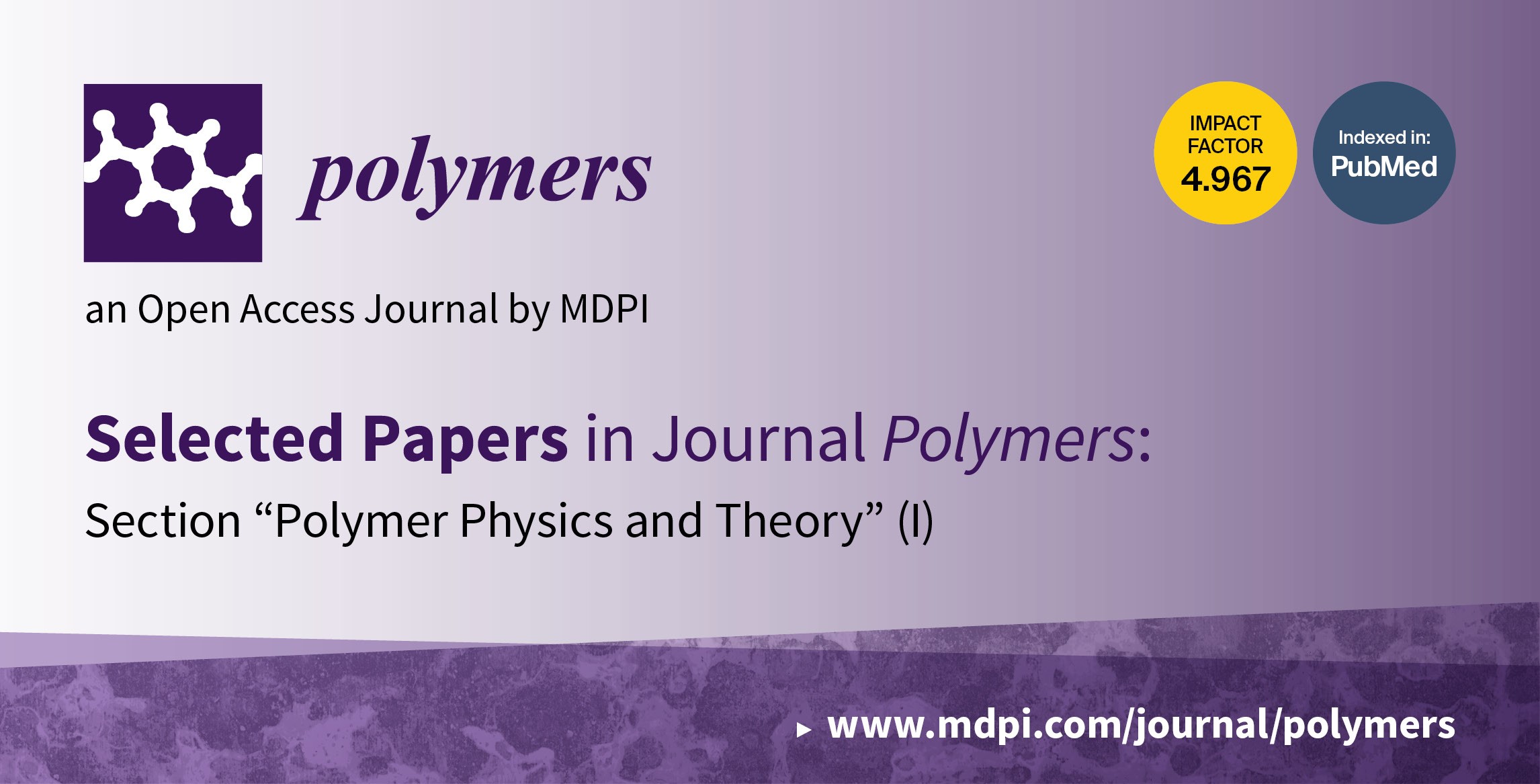
We are pleased to invite you to read the selected papers from Polymers (ISSN: 2073-4409), from the Section “Polymer Physics and Theory”. The paper list is as follows:
1. “Modelling of Environmental Ageing of Polymers and Polymer Composites—Modular and Multiscale Methods”
by Andrey E. Krauklis, Christian W. Karl, Iuri B. C. M. Rocha, Juris Burlakovs, Ruta Ozola-Davidane, Abedin I. Gagani and Olesja Starkova
Polymers 2022, 14(1), 216; https://doi.org/10.3390/polym14010216
Full text available online: https://www.mdpi.com/2073-4360/14/1/216
2. “Problems with Applying the Ozawa–Avrami Crystallization Model to Non-Isothermal Crosslinking Polymerization”
by Sergey Vyazovkin and Andrey Galukhin
Polymers 2022, 14(4), 693; https://doi.org/10.3390/polym14040693
Full text available online: https://www.mdpi.com/2073-4360/14/4/693
3. “A Review on Modeling Cure Kinetics and Mechanisms of Photopolymerization”
by Margit Lang, Stefan Hirner, Frank Wiesbrock and Peter Fuchs
Polymers 2022, 14(10), 2074; https://doi.org/10.3390/polym14102074
Full text available online: https://www.mdpi.com/2073-4360/14/10/2074
4. “DPD Modelling of the Self- and Co-Assembly of Polymers and Polyelectrolytes in Aqueous Media: Impact on Polymer Science”
by Karel Procházka, Zuzana Limpouchová, Miroslav Štěpánek, Karel Šindelka and Martin Lísal
Polymers 2022, 14(3), 404; https://doi.org/10.3390/polym14030404
Full text available online: https://www.mdpi.com/2073-4360/14/3/404
5. “Experimental and Numerical Study of Downward Flame Spread over Glass-Fiber-Reinforced Epoxy Resin”
by Oleg Korobeinichev, Alexander Karpov, Artem Shaklein, Alexander Paletsky, Anatoliy Chernov, Stanislav Trubachev, Roman Glaznev, Andrey Shmakov and Sergey Barbot’ko
Polymers 2022, 14(5), 911; https://doi.org/10.3390/polym14050911
Full text available online: https://www.mdpi.com/2073-4360/14/5/911
6. “Effect of Electrostatic Interactions on the Interfacial Energy between Thermoplastic Polymers and Graphene Oxide: A Molecular Dynamics Study”
by Mayu Morita, Yutaka Oya, Nobuhiko Kato, Kazuki Mori and Jun Koyanagi
Polymers 2022, 14(13), 2579; https://doi.org/10.3390/polym14132579
Full text available online: https://www.mdpi.com/2073-4360/14/13/2579
7. “A New Kinetic Modeling Approach for Predicting the Lifetime of ATH-Filled Silane Cross-Linked Polyethylene in a Nuclear Environment”
by Sarah Hettal, Sébastien Roland, Konsta Sipila, Harri Joki and Xavier Colin
Polymers 2022, 14(7), 1492; https://doi.org/10.3390/polym14071492
Full text available online: https://www.mdpi.com/2073-4360/14/7/1492
8. “Coarse Grained Modeling of Multiphase Flows with Surfactants”
by Thao X. D. Nguyen, Tuan V. Vu, Sepideh Razavi and Dimitrios V. Papavassiliou
Polymers 2022, 14(3), 543; https://doi.org/10.3390/polym14030543
Full text available online: https://www.mdpi.com/2073-4360/14/3/543
9. “Predicting the Mechanical Response of Polyhydroxyalkanoate Biopolymers Using Molecular Dynamics Simulations”
by Karteek K. Bejagam, Nevin S. Gupta, Kwan-Soo Lee, Carl N. Iverson, Babetta L. Marrone and Ghanshyam Pilania
Polymers 2022, 14(2), 345; https://doi.org/10.3390/polym14020345
Full text available online: https://www.mdpi.com/2073-4360/14/2/345
10. “Current State and Perspectives of Simulation and Modeling of Aliphatic Isocyanates and Polyisocyanates”
by Veniero Lenzi, Anna Crema, Sergey Pyrlin and Luís Marques
Polymers 2022, 14(9), 1642; https://doi.org/10.3390/polym14091642
Full text available online: https://www.mdpi.com/2073-4360/14/9/1642
You can check all publications in Section “Polymer Physics and Theory” at the following link: https://www.mdpi.com/search?journal=polymers§ion=803.
13 March 2023
MDPI’s Newly Launched Journals in December 2022
As a leading open access publisher, MDPI provides scholars with a high-quality and rich academic exchange platform by continuously expanding into new and exciting research areas.
In December 2022, MDPI launched five new journals, covering multiple subjects such as life sciences, biology, medicine and pharmacology, social sciences and humanities. These new journals are being edited by established scholars across the world.
|
Journal |
Founding Editor-in-Chief |
Journal Topics (Selected) |
|
Prof. Dr. Fabio Gresta, University of Messina, Italy| Editorial | view inaugural issue |
grass/forage/turf production; grassland management; pasture monitoring; grazing and livestock; grass agro-ecosystems| view journal scope | submit an article |
|
|
Prof. Dr. Christos G. Athanassiou, University of Thessaly, Greece| Editorial | view inaugural issue |
pesticides; fungicides; herbicides; fertilizers; soil conditioners| view journal scope | submit an article |
|
|
Prof. Dr. Stephen H. Safe, Texas A&M University, USA| Editorial | view inaugural issue |
receptor structure; receptor function; receptor signaling; receptor expression and regulation; receptor interactions with drugs| view journal scope | submit an article |
|
|
Dr. Jean Jacques Vanden Eynde, University of Mons-UMONS, Belgium| Editorial | view inaugural issue |
drug discovery; medicinal chemistry; preclinical and clinical research; marketed drugs; intellectual property and regulatory affairs| view journal scope | submit an article |
|
|
Prof. Dr. Heather Kanuka, University of Alberta, Canada| Editorial | view inaugural issue |
higher education; tertiary education; policy and practice in higher education; educational leadership in higher education; educational administration and management in higher education| view journal scope | submit an article |
If you are interested in creating more open access journals with us to publish cutting-edge research, please send your journal proposal application to newjournal-committee@mdpi.com.
7 March 2023
Meet Us at the 18th Chinese Conference on Colloid and Interface Chemistry (CCIC18), 7–11 April 2023, Xi’an, China

MDPI will be attending the 18th Chinese Conference on Colloid and Interface Chemistry (CCIC18), hosted by the Colloid and Interface Chemistry Professional Committee of the Chinese Chemical Society and Shaanxi Normal University, which will be held from 7 to 11 April 2023 in Xi’an, China.
This conference will exchange hot topics, research progress, development trends, personnel training in the field of colloid and interface chemistry, and the important application of colloid and interface chemistry in industrial and agricultural production through conference reports, invited reports, oral presentations, and posters. A total of 2000 delegates are expected to attend.
The main topics of the conference include the following: new theories and technologies in colloid and interface chemistry; ordered assembly of amphiphilic molecules; soft matter chemistry and supramolecular assembly; functional micro-nano materials; superwetting interface and material transport; optoelectronic functional assemblies and surface interfaces; biomolecular self-assembly and biocolloids; colloid motors; food colloids; applied colloid; and interface chemistry.
The following MDPI journals will be represented:
If you plan on attending this conference, please feel free to stop by our booth (#31) and start a conversation with us. Our delegates look forward to meeting you in person and answering any questions that you may have. For more information about the conference, please visit: https://www.nccic18.cn/.
7 March 2023
Displaying Co-Authors’ Email Addresses on the Webpage of Published Papers
MDPI is pleased to announce that we now display the co-authors’ email addresses in addition to the corresponding author’s email address on the webpage of published papers, protected by Captcha. For more information about this change, please visit the journal’s instructions for authors page.
We believe this change will facilitate academic discussions and advance our cause of open science and research. The corresponding authors are responsible for communicating with their co-authors and indicating in our system (https://susy.mdpi.com/) if co-authors would prefer for their email addresses not to be displayed.
2 March 2023
Polymers | Selected Papers in 2021–2022 in the Section “Polymer Analysis and Characterization” (II)
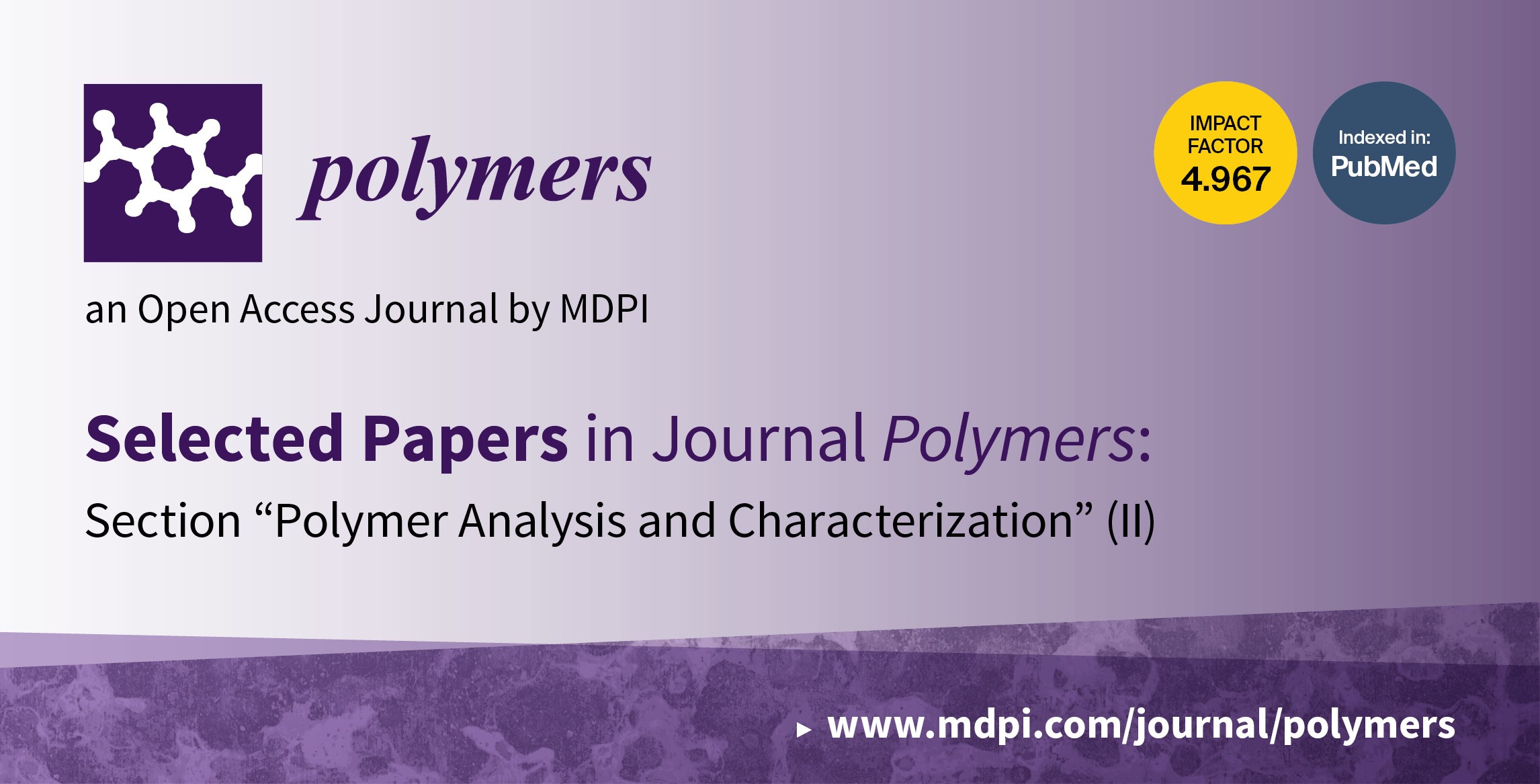
We are pleased to invite you to read the selected papers in Polymers (ISSN: 2073-4409) in the Section “Polymer Analysis and Characterization”. The paper list is as follows:
1. “Copper Ions Absorbed on Acrylic-Acid-Grafted Polystyrene Enable Direct Bonding with Tunable Bonding Strength and Debonding on Demand”
by Roman Günther, Walter Caseri and Christof Brändli
Polymers 2022, 14(23), 5142; https://doi.org/10.3390/polym14235142
Available online: https://www.mdpi.com/2073-4360/14/23/5142
2. “Self-Healing and Reprocessable Oleic Acid-Based Elastomer with Dynamic S-S Bonds as Solvent-Free Reusable Adhesive on Copper Surface”
by Luca Pettazzoni, Francesca Leonelli, Andrea Giacomo Marrani, Luisa Maria Migneco, Fabrizio Vetica, Lorenzo Celio, Valerio Napoleone, Sara Alfano, Andrea Colecchia, Francesco Amato et al.
Polymers 2022, 14(22), 4919; https://doi.org/10.3390/polym14224919
Available online: https://www.mdpi.com/2073-4360/14/22/4919
3. “Effect of Epoxy Structure on Properties of Waterborne Coatings and Electrical Steel Laminates”
by Cornelia Marchfelder, Robert Pugstaller, Gernot M. Wallner, Oliver Brüggemann and Maëlenn Aufray
Polymers 2022, 14(8), 1556; https://doi.org/10.3390/polym14081556
Available online: https://www.mdpi.com/2073-4360/14/8/1556
4. “Influence of Acrylonitrile Content on the Adhesive Properties of Water-Based Acrylic Pressure-Sensitive Adhesives”
by Irene Márquez, Núria Paredes, Felipe Alarcia and José Ignacio Velasco
Polymers 2022, 14(5), 909; https://doi.org/10.3390/polym14050909
Available online: https://www.mdpi.com/2073-4360/14/5/909
5. “An Essential Role of Polymeric Adhesives in the Reinforcement of Acidified Paper Relics”
by Jiaojiao Liu, Huiping Xing, Yajun Zhou, Xiaolian Chao, Yuhu Li and Daodao Hu
Polymers 2022, 14(1), 207; https://doi.org/10.3390/polym14010207
Available online: https://www.mdpi.com/2073-4360/14/1/207
6. “Comparative Mechanical Study of Pressure Sensitive Adhesives over Aluminium Substrates for Industrial Applications”
by Marta Ortega-Iguña Mariane Chludzinski and José María Sánchez-Amaya
Polymers 2022, 14(21), 4783; https://doi.org/10.3390/polym14214783
Available online: https://www.mdpi.com/2073-4360/14/21/4783
7. “Experimental Research on Polymer-Based Coaxial Sealing Systems of Hydraulic Cylinders for Small Displacement Velocities”
by Tudor Deaconescu and Andrea Deaconescu
Polymers 2022, 14(2), 290; https://doi.org/10.3390/polym14020290
Available online: https://www.mdpi.com/2073-4360/14/2/290
8. “Role of Macrodiols in the Synthesis and Thermo-Mechanical Behavior of Anti-Tack Water Borne Polyurethane Dispersions”
by Nadia Akram, Muhammad Saeed and Muhammad Usman
Polymers 2022, 14(3), 572; https://doi.org/10.3390/polym14030572
Available online: https://www.mdpi.com/2073-4360/14/3/572
9. “Impact of Non-Accelerated Aging on the Properties of Parylene C”
by Franz Selbmann, Christina Scherf, Jörn Langenickel, Frank Roscher, Maik Wiemer, Harald Kuhn and Yvonne Joseph
Polymers 2022, 14(23), 5246; https://doi.org/10.3390/polym14235246
Available online: https://www.mdpi.com/2073-4360/14/23/5246
You can check all publications in Section “Polymer Analysis and Characterization” at the following link: https://www.mdpi.com/search?journal=polymers§ion=802.
2 March 2023
Polymers | Selected Papers in 2021–2022 in the Section “Polymer Analysis and Characterization” (I)
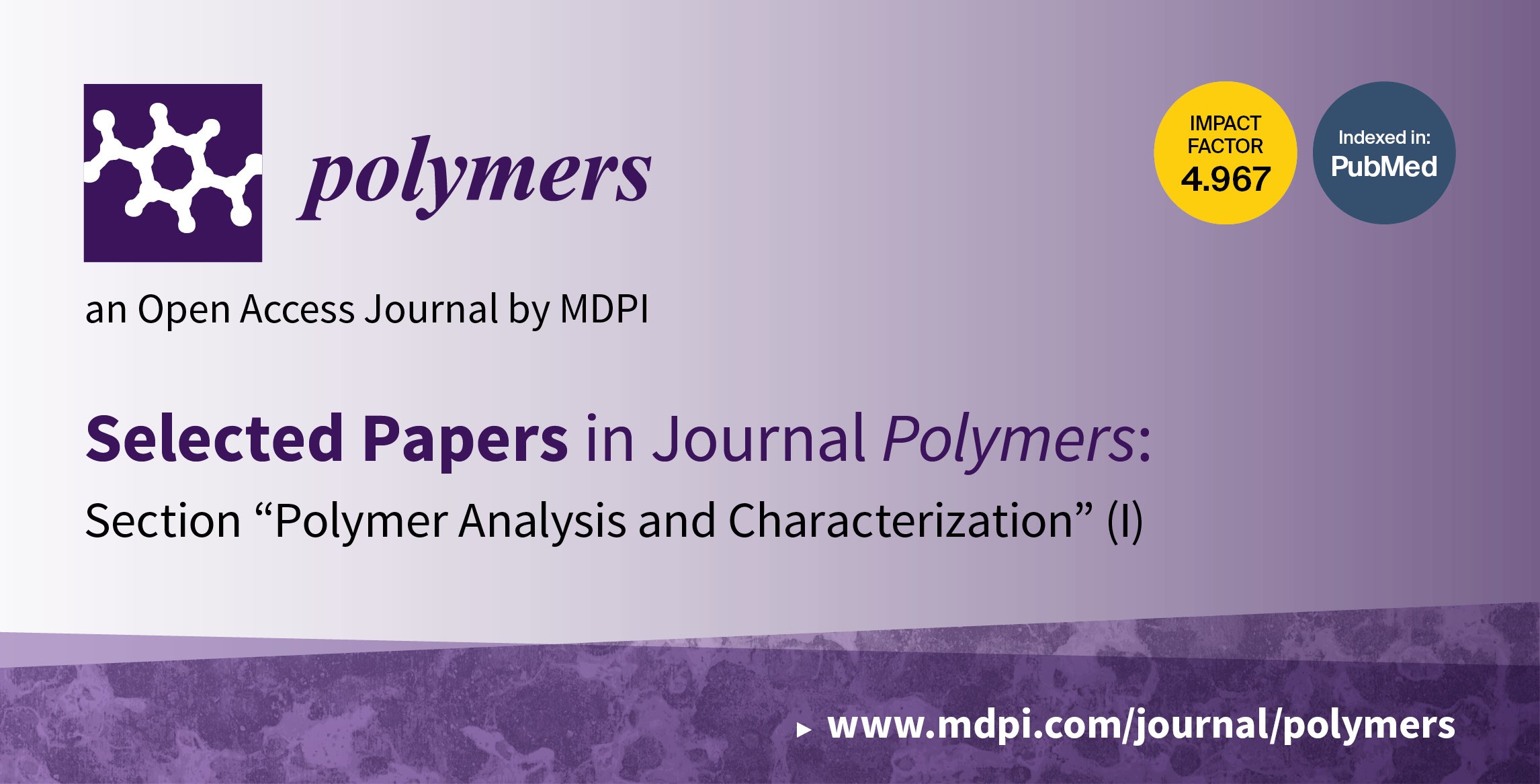
We are pleased to invite you to read the selected papers in Polymers (ISSN: 2073-4409) in the Section “Polymer Analysis and Characterization”. The paper list is as follows:
1. "Research on Improving the Partial Discharge Initial Voltage of SiC/EP Composites by Utilizing Filler Surface Modification and Nanointerface Interaction"
by Xupeng Song, Wei Yang, Shouchao Huo, Kun Wang, Yuanyuan Wu, Yun Chen, Jian Qiao, Boyang Shen and Xingming Bian
Polymers 2022, 14(11), 2297; https://doi.org/10.3390/polym14112297
Available online: https://www.mdpi.com/2073-4360/14/11/2297
2. "Effect of Ultraviolet—A Radiation on Alicyclic Epoxy Resin and Silicone Rubber Used for Insulators"
by Xiaoqing Wang, Haonan Fan, Wenrong Li, Yuyang Zhang, Ruiqi Shang, Fanghui Yin and Liming Wang
Polymers 2022, 14(22), 4889; https://doi.org/10.3390/polym14224889
Available online: https://www.mdpi.com/2073-4360/14/22/4889
3. "High-Dielectric PVP@PANI/PDMS Composites Fabricated via an Electric Field-Assisted Approach"
by Huaixiao Wei, Yuan Yuan, Tianli Ren, Lijuan Zhou, Xueqing Liu, Haroon A. M. Saeed Pingliang Jin and Yuwei Chen
Polymers 2022, 14(20), 4381; https://doi.org/10.3390/polym14204381
Available online: https://www.mdpi.com/2073-4360/14/20/4381
4. "Mechanical Properties of High Temperature Vulcanized Silicone Rubber Aged in the Natural Environment"
by Zhijin Zhang, Jianjie Zhao, Xiaodong Wan, Xingliang Jiang and Jianlin Hu
Polymers 2022, 14(20), 4439; https://doi.org/10.3390/polym14204439
Available online: https://www.mdpi.com/2073-4360/14/20/4439
5. "Locating Method for Electrical Tree Degradation in XLPE Cable Insulation Based on Broadband Impedance Spectrum"
by Tao Han, Yufei Yao, Qiang Li, Youcong Huang, Zhongnan Zheng and Yu Gao
Polymers 2022, 14(18), 3785; https://doi.org/10.3390/polym14183785
Available online: https://www.mdpi.com/2073-4360/14/18/3785
6. "Performance Evaluation of Cross-Linked Polyethylene Insulation of Operating 110 kV Power Cables"
by Man Ding, Weifeng He, Jiahe Wang and Jinpeng Wang
Polymers 2022, 14(11), 2282; https://doi.org/10.3390/polym14112282
Available online: https://www.mdpi.com/2073-4360/14/11/2282
7. "Research on Silicone Rubber Sheds of Decay-Like Fractured Composite Insulators Based on Hardness, Hydrophobicity, NMR, and FTIR"
by Zhijin Zhang, Guohui Pang, Ming Lu, Chao Gao and Xingliang Jiang
Polymers 2022, 14(16), 3424; https://doi.org/10.3390/polym14163424
Available online: https://www.mdpi.com/2073-4360/14/16/3424
8. "Thermal Aging Evaluation of XLPE Power Cable by Using Multidimensional Characteristic Analysis of Leakage Current"
by Yong Liu, Hao Wang, Han Zhang and Boxue Du
Polymers 2022, 14(15), 3147; https://doi.org/10.3390/polym14153147
Available online: https://www.mdpi.com/2073-4360/14/15/3147
9. "Influence of Nanoparticles on the Dielectric Response of a Single Component Resin Based on Polyesterimide"
by Štefan Hardoň, Jozef Kúdelčík, Anton Baran, Ondrej Michal, Pavel Trnka and Jaroslav Hornak
Polymers 2022, 14(11), 2202; https://doi.org/10.3390/polym14112202
Available online: https://www.mdpi.com/2073-4360/14/11/2202
10. "A Modified Langmuir Model for Moisture Diffusion in UGFRE of Composite Insulator Considering the Composite Degradation"
by Zhikang Yuan, Cheng Wang, Lijun Jin, Youping Tu, Yingyao Zhang, Zhenlian An and Yongfei Zhao
Polymers 2022, 14(14), 2922; https://doi.org/10.3390/polym14142922
Available online: https://www.mdpi.com/2073-4360/14/14/2922
You can check all publications in Section “Polymer Analysis and Characterization” at the following link: https://www.mdpi.com/search?journal=polymers§ion=802.
27 February 2023
Polymers | Selected Papers in 2021–2022 in the Section “Polymer Chemistry” (II)
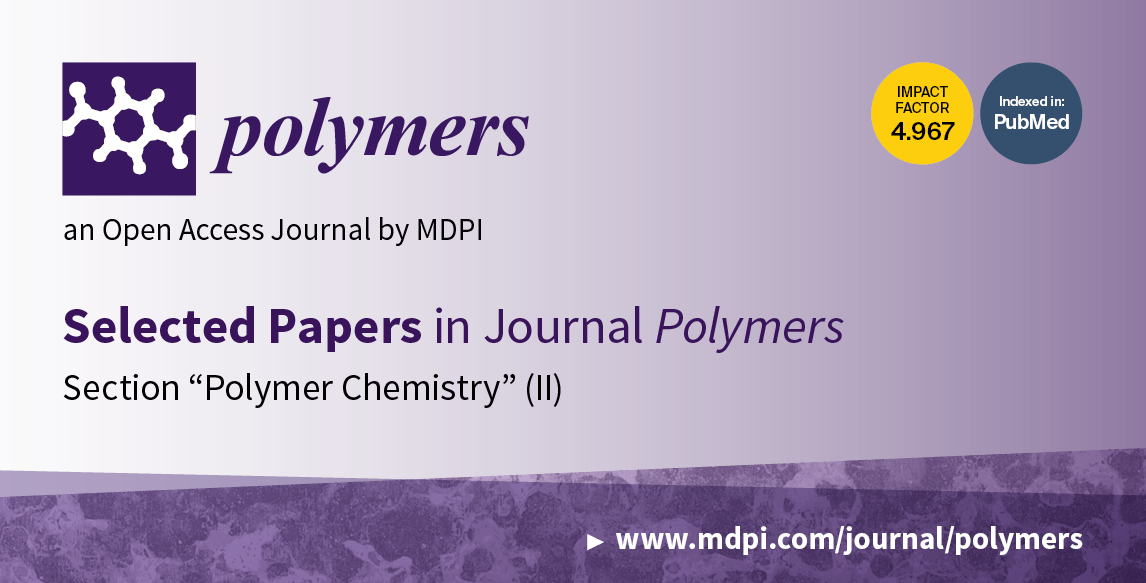
We are pleased to invite you to read the selected papers in Polymers (ISSN: 2073-4409) in the Section “Polymer Chemistry”. The paper list is as follows:
1. “Application of Fiber Biochar–MOF Matrix Composites in Electrochemical Energy Storage”
by Meixiang Gao, Meng Lu, Xia Zhang, Zhenhui Luo and Jiaqi Xiao
Polymers 2022, 14(12), 2419; https://doi.org/10.3390/polym14122419
Available online: https://www.mdpi.com/2073-4360/14/12/2419
2. “Mixed Matrix Membranes for Efficient CO2 Separation Using an Engineered UiO-66 MOF in a Pebax Polymer”
by Asmaul Husna, Iqubal Hossain, Insu Jeong and Tae-Hyun Kim
Polymers 2022, 14(4), 655; https://doi.org/10.3390/polym14040655
Available online: https://www.mdpi.com/2073-4360/14/4/655
3. “Iodine Immobilized UiO-66-NH2 Metal-Organic Framework as an Effective Antibacterial Additive for Poly(ε-caprolactone)”
by Wei Chen, Ping Zhu, Yating Chen, Yage Liu, Liping Du and Chunsheng Wu
Polymers 2022, 14(2), 283; https://doi.org/10.3390/polym14020283
Available online: https://www.mdpi.com/2073-4360/14/2/283
4. “Preparation of Highly Porous Thiophene-Containing DUT-68 Beads for Adsorption of CO2 and Iodine Vapor”
by Songtao Xiao, Menglin Li, Haifeng Cong, Lingyu Wang, Xiang Li and Wen Zhang
Polymers 2021, 13(23), 4075; https://doi.org/10.3390/polym13234075
Available online: https://www.mdpi.com/2073-4360/13/23/4075
5. “Study on Selected Metal-Organic Framework-Based Catalysts for Cycloaddition Reaction of CO2 with Epoxides: A Highly Economic Solution for Carbon Capture and Utilization”
by Suleiman Gani Musa, Zulkifli Merican Aljunid Merican and Omid Akbarzadeh
Polymers 2021, 13(22), 3905; https://doi.org/10.3390/polym13223905
Available online: https://www.mdpi.com/2073-4360/13/22/3905
6. “Catalytic Stereoselective Conversion of Biomass-Derived 4′-Methoxypropiophenone to Trans-Anethole with a Bifunctional and Recyclable Hf-Based Polymeric Nanocatalyst”
by Yixuan Liu, Dandan Chen, Mingrui Li, Heng Zhang and Hu Li
Polymers 2021, 13(16), 2808; https://doi.org/10.3390/polym13162808
Available online: https://www.mdpi.com/2073-4360/13/16/2808
7. “Phosphine-Functionalized Core-Crosslinked Micelles and Nanogels with an Anionic Poly(styrenesulfonate) Shell: Synthesis, Rhodium(I) Coordination and Aqueous Biphasic Hydrogenation Catalysis”
by Hui Wang, Chantal J. Abou-Fayssal, Christophe Fliedel, Eric Manoury and Rinaldo Poli
Polymers 2022, 14(22), 4937; https://doi.org/10.3390/polym14224937
Available online: https://www.mdpi.com/2073-4360/14/22/4937
8. “A Three-Dimensional Coordination Framework with a Ferromagnetic Coupled Ni(II)-CrO4 Layer: Synthesis, Structure, and Magnetic Studies”
by Hsu-Yen Tang, Gene-Hsiang Lee, Kwai-Kong Ng and Chen-I Yang
Polymers 2022, 14(9), 1735; https://doi.org/10.3390/polym14091735
Available online: https://www.mdpi.com/2073-4360/14/9/1735
9. “Synthesis of High Molecular Weight Stereo-Di-Block Copolymers Driven by a Co-Initiator Free Catalyst”
by Carmen Moya-Lopez, Ivan Bravo, José A. Castro-Osma, David Chapron, Patrice Bourson, Christelle Vagner, Marianne Cochez, Nils Leoné, Agustín Lara-Sánchez, Carlos Alonso-Moreno et al.
Polymers 2022, 14(2), 232; https://doi.org/10.3390/polym14020232
Available online: https://www.mdpi.com/2073-4360/14/2/232
10. “cis-1,4 Selective Coordination Polymerization of 1,3-Butadiene and Copolymerization with Polar 2-(4-Methoxyphenyl)-1,3-butadiene by Acenaphthene-Based α-Diimine Cobalt Complexes Featuring Intra-Ligand π-π Stacking Interactions”
by Beibei Wang, Heng Liu, Tao Tang and Xuequan Zhang
Polymers 2021, 13(19), 3329; https://doi.org/10.3390/polym13193329
Available online: https://www.mdpi.com/2073-4360/13/19/3329
You can check all publications in the Section “Polymer Chemistry” at the following link: https://www.mdpi.com/search?journal=polymers§ion=801.
23 February 2023
Polymers | Selected Papers in 2021–2022 in the Section “Polymer Chemistry” (I)
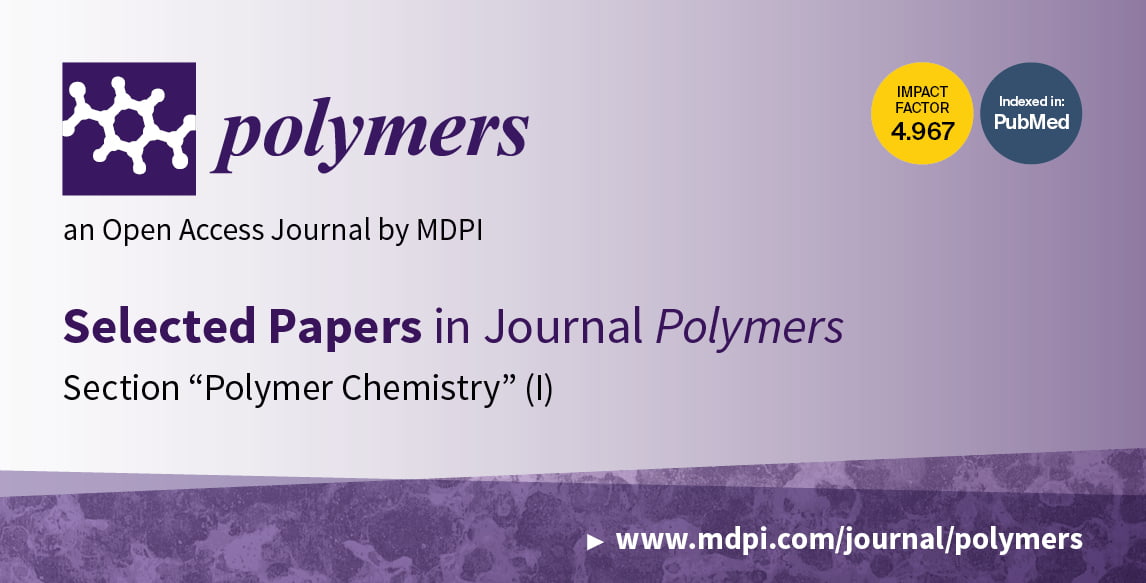
We are pleased to invite you to read the selected papers in Polymers (ISSN: 2073-4409) in the Section “Polymer Chemistry”. The paper list is as follows:
1. "Association Behavior of Amphiphilic ABA Triblock Copolymer Composed of Poly(2-methoxyethyl acrylate) (A) and Poly(ethylene oxide) (B) in Aqueous Solution"
by Yoko Mizoue, Ema Onodera, Kazutoshi Haraguchi and Shin-ichi Yusa
Polymers 2022, 14(9), 1678; https://doi.org/10.3390/polym14091678
Full text available online: https://www.mdpi.com/2073-4360/14/9/1678
2. "New Light in Polymer Science: Photoinduced Reversible Addition–Fragmentation Chain Transfer Polymerization (PET-RAFT) as Innovative Strategy for the Synthesis of Advanced Materials"
by Valentina Bellotti and Roberto Simonutti
Polymers 2021, 13(7), 1119; https://doi.org/10.3390/polym13071119
Full text available online: https://www.mdpi.com/2073-4360/13/7/1119
3. "A Terpyridine-Fe2+-Based Coordination Polymer Film for On-Chip Micro-Supercapacitor with AC Line-Filtering Performance"
by Hongxing Wang, Feng Qiu, Chenbao Lu, Jinhui Zhu, Changchun Ke, Sheng Han and Xiaodong Zhuang
Polymers 2021, 13(7), 1002; https://doi.org/10.3390/polym13071002
Full text available online: https://www.mdpi.com/2073-4360/13/7/1002
4. "Novel Multifunctional Epoxy (Meth)Acrylate Resins and Coatings Preparation via Cationic and Free-Radical Photopolymerization"
by Paulina Bednarczyk, Izabela Irska, Konrad Gziut and Paula Ossowicz-Rupniewska
Polymers 2021, 13(11), 1718; https://doi.org/10.3390/polym13111718
Full text available online: https://www.mdpi.com/2073-4360/13/11/1718
5. "The Double-Faced Electrostatic Behavior of PNIPAm Microgels"
by Simona Sennato, Edouard Chauveau, Stefano Casciardi, Federico Bordi and Domenico Truzzolillo
Polymers 2021, 13(7), 1153; https://doi.org/10.3390/polym13071153
Full text available online: https://www.mdpi.com/2073-4360/13/7/1153
6. "The New Approach to the Preparation of Polyacrylamide-Based Hydrogels: Initiation of Polymerization of Acrylamide with 1,3-Dimethylimidazolium (Phosphonooxy-)Oligosulphanide under Drying Aqueous Solutions"
by Natalia Tarasova, Alexey Zanin, Efrem Krivoborodov, Ilya Toropygin, Ekaterina Pascal and Yaroslav Mezhuev
Polymers 2021, 13(11), 1806; https://doi.org/10.3390/polym13111806
Full text available online: https://www.mdpi.com/2073-4360/13/11/1806
7. "Insight into the Alcohol-Free Ring-Opening Polymerization of TMC Catalyzed by TBD"
by Fabrice Azemar, Olinda Gimello, Julien Pinaud, Jean-Jacques Robin and Sophie Monge
Polymers 2021, 13(10), 1589; https://doi.org/10.3390/polym13101589
Full text available online: https://www.mdpi.com/2073-4360/13/10/1589
8. "Synthesis of Dense 1,2,3-Triazole Polymers Soluble in Common Organic Solvents"
by Shota Yamasaki, Yuri Kamon, Linlin Xu and Akihito Hashidzume
Polymers 2021, 13(10), 1627; https://doi.org/10.3390/polym13101627
Full text available online: https://www.mdpi.com/2073-4360/13/10/1627
9. "Synthesis of Poly(methacrylic acid)-block-Polystyrene Diblock Copolymers at High Solid Contents via RAFT Emulsion Polymerization"
by Iklima Oral, Larissa Grossmann, Elena Fedorenko, Jana Struck and Volker Abetz
Polymers 2021, 13(21), 3675; https://doi.org/10.3390/polym13213675
Full text available online: https://www.mdpi.com/2073-4360/13/21/3675
10. "Biodegradable PCL-b-PLA Microspheres with Nanopores Prepared via RAFT Polymerization and UV Photodegradation of Poly(Methyl Vinyl Ketone) Blocks"
by Taeyoon Kim, Sorim Lee, Soo-Yong Park and Ildoo Chung
Polymers 2021, 13(22), 3964; https://doi.org/10.3390/polym13223964
Full text available online: https://www.mdpi.com/2073-4360/13/22/3964
You can check all publications from the Section “Polymer Chemistry” at the following link: https://www.mdpi.com/search?journal=polymers§ion=801.
16 February 2023
Increasing Visibility for Preprints.org – Clarivate adds the Preprint Citation Index to the Web of Science

On 9 February 2023, Clarivate, a global leader in providing trusted insights and analytics, added the Preprint Citation Index to the Web of Science platform, streamlining the research process by allowing researchers to locate and link to preprints alongside other trusted content in the database.
The Preprint Citation Index will act as a bridge to connect cutting-edge preprints with peer-reviewed journal articles published within the Web of Science Core Collection. Alerts can be easily set to monitor new research across several repositories and authors will also be able to include preprints on their Web of Science Research Profile to more accurately display their various research outputs.
As of its launch, the Preprint Citation Index will provide nearly two million preprints from various repositories, including MDPI’s own Preprints.org.
MDPI's Preprints Platform – Preprints.org
To advance Open Science and the fast dissemination of research, MDPI offers researchers a free multidisciplinary preprint platform. Preprints.org accepts submissions from all research areas and offers authors high visibility, permanent archiving, article-level Metrics and immediately citable content by assigning a Digital Object Identifier (DOI) to all preprints.
During submission to any MDPI journal, authors have the option to share their research as a preprint. After an initial screening, the manuscript is available online in 48 hours or less. Once online, preprints can be downloaded, shared, commented on, and cited, providing authors maximum visibility.
We invite you to join the ranks of the over 100k researchers using Preprints.org and share your research.
For more information, please visit Preprints.org.
22 December 2022
Special Issue Mentor Program
We are pleased to announce the launch of a new initiative—the MDPI Special Issue Mentor Program.
This program will enable early career researchers (who must hold a Ph.D. in a related field) to experience editing a Special Issue in MDPI journals, under the mentorship of our experienced Editorial Board Members or other experienced scientists. The mentor program will provide an excellent opportunity for early career scientists to gain editorial experience, and to cultivate their ability to edit scientific research.
The mentee’s responsibilities include:
- Proposing a Special Issue title and assisting the mentor in preparing a summary (around 200–400 words) and 3–10 keywords describing the background, importance, and goal of the Issue;
- Writing a brief promotion plan for the Special Issue;
- Preparing a list of scholars who may be interested in the Issue and personally e-mailing invitations on behalf of Guest Editors;
- Writing an editorial for the online Special Issue together with the mentor.
The mentor’s responsibilities include:
- Conducting a final check before the Special Issue is published online;
- Performing editorial control of the Special Issue and quality control of the publications, both of which must be carried out in a timely manner;
- Providing suggestions to younger scholars if they have any doubts or concerns regarding submissions;
- Organizing video calls with young scholars and the Editorial Office regularly to discuss problems and improvement suggestions for the Special Issue;
- Making and submitting decisions regarding submissions with the assistance of mentees.
Certificates and awards:
After the Special Issue closes, the Editorial Office will provide official certificates for all the mentors and early career researchers.
If you are interested in this opportunity, please send your Special Issue proposal to the Editorial Office of a journal you choose, and we will discuss the process (i.e., mentor collaboration, Special Issue topic feasibility analysis, etc.) in further detail. The full list of MDPI journals is as follows: https://www.mdpi.com/about/journals.
In addition to the new Special Issue Mentor Program, we will continue to welcome all Special Issue proposals focusing on hot research topics.
14 December 2022
"Thanks a Million!" – One Million Articles Published in MDPI Journals
MDPI has just become the first open access (OA) publisher to reach the milestone of one million articles published. That is one million articles freely available to all, to circulate and build upon! We are proud to share this special moment with the global scientific community.
This landmark has been reached thanks to the immeasurable support of more than 600,000 expert reviewers, 66,000 editorial board members and 6700 hard-working colleagues across MDPI’s global offices.
Within more than 25 years of publishing, our journals received 2.1 million manuscripts and generated 4.6 million peer review reports to get to one million papers published.
Reaching the milestone of one million articles published reinforces our mission to remove any existing barriers and to make scientific research accessible to all. Since its inception, MDPI’s goal has been to create reliable processes to make science open. This is a path towards facilitating the dissemination of novel insights in scientific communities.
Regular feedback from authors and reviewers shows that our service is greatly appreciated and needed. At the same time, the feedback helps us identify areas for further improvement.
As it stands, a significant share of published research findings remain closed access. More than half of the content published with the most well-known legacy publishers stays behind a paywall, and that is not including articles published in hybrid OA journals, or made available months or years after publication.
A new policy announced by the US administration in August 2022 requires that, as of January 2026, all US federally funded research be made freely and immediately available after publication. While the new policy does not mandate articles be published under an open access license, it is aligned with the open access movement in removing all barriers to research. Similarly, some of the most advanced research institutions in the world intend to have all funded research articles published in open access by 2025.
MDPI is proud to be the leading agent of the transition to open access.
"Thanks a Million" to all the contributors!
8 December 2022
MDPI Sustainability Foundation: New Look and Nominations for the 2023 Sustainability Awards Now Open

We are pleased to announce that the website of the MDPI Sustainability Foundation has been revamped! For the past couple of months, our UX UI team and front-end developers have been working hard to launch the website in time for the opening of the Sustainability Awards nominations.
The website is not the only thing that has had a remodeling. Indeed, the format of the Emerging Sustainability Leader Award (ESLA) has been updated. ESLA is now a competition open to individual researchers or start-ups founded by researchers under the age of 35. Nominee applications will go through 2 rounds of selection until the final 3 are decided. The finalists will then be invited to give pitch presentations during the Award Ceremony to win either first place (10,000 USD) or runner-up (2 x 5000 USD).
The World Sustainability Award, on the other hand, remains the same: a total prize money of 100,000 USD is up for grabs by senior individual researchers or groups of researchers from the international research community.
Nominations for both the World Sustainability Award and the Emerging Sustainability Leader award are now open! Check out our new website for more information on how to nominate.
23 November 2022
Polymers | Collection of Papers by Chinese Academicians

1. “Crystallization and Thermal Behaviors of Poly(ethylene terephthalate)/Bisphenols Complexes through Melt Post-Polycondensation”
by Shichang Chen, Shangdong Xie, Shanshan Guang, Jianna Bao, Xianming Zhang and Wenxing Chen
Polymers 2020, 12(12), 3053, https://doi.org/10.3390/polym12123053
Available online: https://www.mdpi.com/2073-4360/12/12/3053
2. “Injectable Click Polypeptide Hydrogels via Tetrazine-Norbornene Chemistry for Localized Cisplatin Release”
by Zhen Zhang, Chaoliang He and Xuesi Chen
Polymers 2020, 12(4), 884, https://doi.org/10.3390/polym12040884
Available online: https://www.mdpi.com/2073-4360/12/4/884
3. “Facile Fabrication of High-Performance Thin Film Nanocomposite Desalination Membranes Imbedded with Alkyl Group-Capped Silica Nanoparticles”
by Biqin Wu, Shuhao Wang, Ian Wang, Xiaoxiao Song, Yong Zhou and Congjie Gao
Polymers 2020, 12(6), 1415, https://doi.org/10.3390/polym12061415
Available online: https://www.mdpi.com/2073-4360/12/6/1415
4. “The Mechanism of Anticorrosion Performance and Mechanical Property Differences between Seawater Sea-Sand and Freshwater River-Sand Ultra-High-Performance Polymer Cement Mortar (UHPC)“
by Tianyu Li, Xin Sun, Fangying Shi, Zheng Zhu, Dezhi Wang, Huiwen Tian, Xiaoyan Liu, Xunhuan Lian, Tengfei Bao and Baorong Hou
Polymers 2022, 14(15), 3105, https://doi.org/10.3390/polym14153105
Available online: https://www.mdpi.com/2073-4360/14/15/3105
5. “Synthesis and Characterization of Schiff Base Polymers via Metal Coordination and Its Application in Infrared Stealth Coating”
by Xiangyu Li, Lishuai Zong, Weijie Li, Yibo Wang, Jinyan Wang and Xigao Jian
Polymers 2022, 14(21), 4563, https://doi.org/10.3390/polym14214563
Available online: https://www.mdpi.com/2073-4360/14/21/4563
6. “In-Built Fabrication of MOF Assimilated Porous Hollow Carbon from Pre-Hydrolysate for Supercapacitor”
by Xin Zhao, Changwei Li, Lei Sha, Kang Yang, Min Gao, Honglei Chen and Jianchun Jiang
Polymers 2022, 14(16), 3377, https://doi.org/10.3390/polym14163377
Available online: https://www.mdpi.com/2073-4360/14/16/3377
7. “Improved Energy Storage Performance of All-Organic Composite Dielectric via Constructing Sandwich Structure”
by Mengjia Feng, Tiandong Zhang, Chunhui Song, Changhai Zhang, Yue Zhang, Yu Feng, Qingguo Chi, Qingguo Chen and Qingquan Lei
Polymers 2020, 12(9), 1972, https://doi.org/10.3390/polym12091972
Available online: https://www.mdpi.com/2073-4360/12/9/1972
8. “A Micro-Nano Structure Formed by SiC/Graphene Oxide Self-Assembly Improves the Wear Resistance and Corrosion Resistance of an Epoxy-Based Composite Coating”
by Jun Tang, Yali Tan, Fugang Qi, Biao Zhang, Ao Zhou, Nie Zhao and Xiaoping Ouyang
Polymers 2022, 14(21), 4704, https://doi.org/10.3390/polym14214704
Available online: https://www.mdpi.com/2073-4360/14/21/4704
9. “Enhancing Chain Mobility of Ultrahigh Molecular Weight Polyethylene by Regulating Residence Time under a Consecutive Elongational Flow for Improved Processability”
by Xiaochuan Chen, Xiaotong Wang, Yanhong Feng, Jinping Qu, Dingshan Yu, Changlin Cao and Xudong Chen
Polymers 2021, 13(13), 2192, https://doi.org/10.3390/polym13132192
Available online: https://www.mdpi.com/2073-4360/13/13/2192
10. “Influence Mechanism of Ultrasonic Vibration Substrate on Strengthening the Mechanical Properties of Fused Deposition Modeling”
by Wenzheng Wu, Jialin Li, Jili Jiang, Qingping Liu, Aodu Zheng, Zheng Zhang, Ji Zhao, Luquan Ren and Guiwei Li
Polymers 2022, 14(5), 904, https://doi.org/10.3390/polym14050904
Available online: https://www.mdpi.com/2073-4360/14/5/904
11. “Enhancing Anti-Static Performance of Fibers by Construction of the Hybrid Conductive Network Structure on the Fiber Surface”
by Congcong Xu, Lin Fang, Mingming Yu, Musu Ren, Jinliang Sun and Liying Zhang
Polymers 2021, 13(14), 2248, https://doi.org/10.3390/polym13142248
Available online: https://www.mdpi.com/2073-4360/13/14/2248
12. “Developed Chitosan/Oregano Essential Oil Biocomposite Packaging Film Enhanced by Cellulose Nanofibril”
by Shunli Chen, Min Wu, Caixia Wang, Shun Yan, Peng Lu and Shuangfei Wang
Polymers 2020, 12(8), 1780, https://doi.org/10.3390/polym12081780
Available online: https://www.mdpi.com/2073-4360/12/8/1780
13. “Flame Retardation of Natural Rubber: Strategy and Recent Progress”
by Le Wan, Cong Deng, Ze-Yong Zhao, Hong Chen and Yu-Zhong Wang
Polymers 2020, 12(2), 429, https://doi.org/10.3390/polym12020429
Available online: https://www.mdpi.com/2073-4360/12/2/429
14. “Gradient Porous Structured MnO2-Nonwoven Composite: A Binder-Free Polymeric Air Filter for Effective Room-Temperature Formaldehyde Removal”
by Zijian Dai, Jianyong Yu and Yang Si
Polymers 2022, 14(12), 2504, https://doi.org/10.3390/polym14122504
Available online: https://www.mdpi.com/2073-4360/14/12/2504
15. “Using Epoxidized Solution Polymerized Styrene-Butadiene Rubbers (ESSBRs) as Coupling Agents to Modify Silica without Volatile Organic Compounds”
by Chaohao Liu, Mingming Guo, Xiaobo Zhai, Xin Ye and Liqun Zhang
Polymers 2020, 12(6), 1257, https://doi.org/10.3390/polym12061257
Available online: https://www.mdpi.com/2073-4360/12/6/1257
16. “Correlation Between the Structure and Compressive Property of PMMA Microcellular Foams Fabricated by Supercritical CO2 Foaming Method”
by Ruizhi Zhang, Ju Chen, Yuxuan Zhu, Jian Zhang, Guoqiang Luo, Peng Cao, Qiang Shen and Lianmeng Zhang
Polymers 2020, 12(2), 315, https://doi.org/10.3390/polym12020315
Available online: https://www.mdpi.com/2073-4360/12/2/315
17. “Effect of Storage Conditions on the Thermal Stability and Crystallization Behaviors of Poly(L-Lactide)/Poly(D-Lactide)”
by Tien-Wei Shyr, Huan-Chieh Ko, Tzong-Ming Wu and Meifang Zhu
Polymers 2021, 13(2), 238, https://doi.org/10.3390/polym13020238
Available online: https://www.mdpi.com/2073-4360/13/2/238
1 November 2022
Meet Us at the 14th National Surface Engineering Conference, 11–13 November 2022, Wuhan, China

MDPI will be attending the 14th National Surface Engineering Conference, held in Wuhan, China, from 11 to 13 November 2022. This conference aims to achieve an in-depth exchange of the latest research results in surface engineering and related disciplines and to discuss the frontier trends and future development trends of surface engineering research and engineering application. During this conference, MDPI will welcome researchers from different backgrounds to visit and share their latest ideas with us.
The following MDPI journals will be represented:
- Lubricants;
- Applied Sciences;
- Surfaces;
- Polymers;
- Materials;
- QuBS;
- Coatings;
- Clean Technologies.
If you plan on attending this conference, feel free to stop by our booth. Our delegates look forward to meeting you in person to answer any questions you may have.
For more information about the conference, please see the following link: http://bmgc2022.aconf.cn/index.html.
28 September 2022
Peer Review Week 2022 – Research Integrity: Creating and Supporting Trust in Research

Peer Review Week began 19 September 2022 under the theme of “Research Integrity: Creating and Supporting Trust in Research”. Through various blog articles, podcast, and webinar, we discussed this crucial subject throughout the week, celebrating the essential role peer review plays in maintaining research quality.
To begin, we held a Webinar on the topic. Professor Peter W. Choate and Dr. Emmanuel Obeng-Gyasi joined Dr. Ioana Craciun, one of MDPI’s scientific officers, for an in-depth discussion.
We invite you to view the event recording:
During the week, the MDPI Blog in a series articles highlighted how good Peer Review safeguards research integrity. The following topics were covered:
- Peer Review Week 2022
- Research Integrity
- What We’ve Learned About Peer Review Reports
- 4 Steps to the Perfect Peer Review Report
- How to Write the Perfect Peer Review Report: An Interview
- Inviting Great Peer Reviewers
In a new edition of Insight Faster, an MDPI podcast, we were delighted to talk to the co-chairs of the Peer Review Week committee, Jayashree Rajagopalan (Senior Manager of Global Community Engagement for CACTUS) and Danielle Padula (Head of Marketing and Community Development at Scholastica) to get their take on this year’s event and its related topics.
You can find the Podcast here.
We hope you enjoy the contents!
21 September 2022
Meet Us at the 13th National Symposium on the Molecular and Structural Characterization of Polymers, 28–30 October 2022, Shenzhen, China
Polymers (ISSN: 2073-4360) will attend the 13th National Symposium on the Molecular and Structural Characterization of Polymers, held in Shenzhen, China, from 28 to 30 October 2022. The main theme of the 2022 conference is “Advances in Polymer Characterization”, discussing and communicating pioneering research work on polymer solutions, molecular weight determination, material analysis, molecular chain structure, rheological properties, mechanical properties, dielectric properties, and fluorescence spectroscopy.
During this conference, Polymers will welcome researchers from different backgrounds to visit and share their latest inspirations with us.
If you plan on attending this conference, feel free to stop by our booth. Our delegates look forward to meeting you in person to answer any questions that you may have.
For more information about the conference, please see the following link: https://poly-struc2022.scievent.com/.
20 July 2022
Meet Us at the 49th World Polymers Congress MACRO 2022, 17–21 July 2022, Winnipeg, Canada
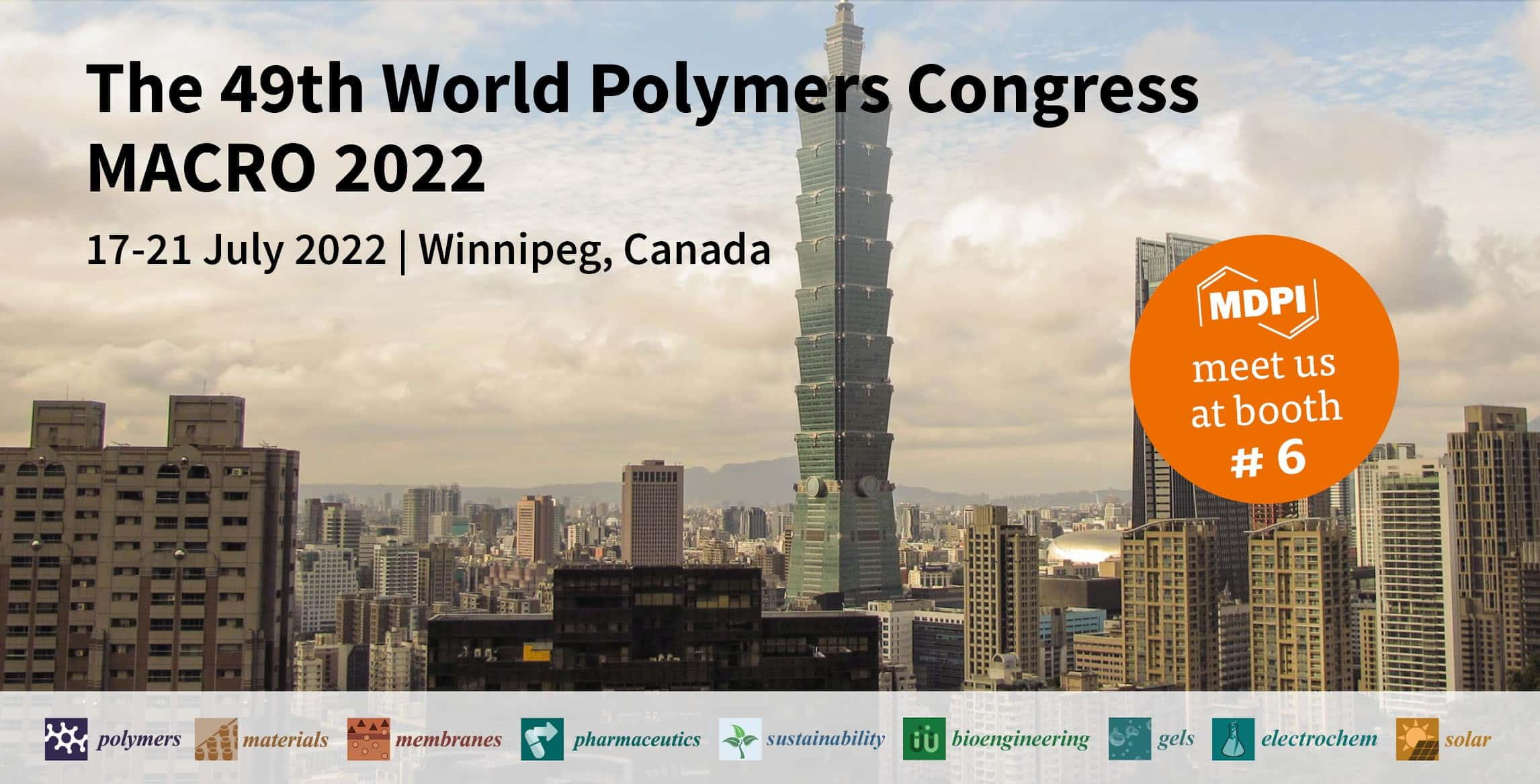
Conference: 49th World Polymers Congress MACRO 2022
Date: 17–21 July 2022
Place: Winnipeg, Canada
Booth: #6
Polymers (ISSN: 2073-4360) and Materials (ISSN: 1996-1944) will be attending the 49th World Polymers Congress MACRO 2022 as exhibitors from 17 to 21 July 2022 in Winnipeg, Canada.
The year 2022 marks the first time that Canada is hosting the World Polymers Congress since it became a biennial event in 1998. The polymer science community of Canada looks forward to connecting at the 49th World Polymers Congress, which is held in the city of Winnipeg from 17 to 21 July 2022. True to its mission, MACRO 2022 will be a forum for international scientists and students who are in various stages of their career development to share knowledge and experiences.
The MACRO 2022 program comprises nine themes that represent the following subjects:
- Polymers for Biomedical Engineering;
- Polymers for Energy and Environmental Applications;
- Polymer Engineering and Rheology;
- Polymers for Nanotechnology;
- Polymer Physics and Characterization;
- Polymers from Renewable Resources and Biodegradable Polymers;
- Polymer Science Education;
- Polymer Synthesis and Kinetics;
- Smart and Functional Polymers.
The following MDPI journals will be represented:
- Polymers;
- Materials;
- Membranes;
- Pharmaceutics;
- Sustainability;
- Bioengineering;
- Gels;
- Electrochem;
- Solar.
Please do not hesitate to reach out if you plan on attending this conference. Our delegates look forward to meeting you in person and answering any questions that you might have.
For more information about the conference, please visit the following website: https://www.macro2022.org/.
28 June 2022
2021 Impact Factors - Released
The 2021 citation metrics have been released in the Journal Citation Reports (JCR), and we’re pleased to announce the following results for MDPI journals:

| Journal | Impact Factor | Rank | Category |
| Antioxidants | 7.675 | Q1 | Food Science & Technology |
| Biochemistry & Molecular Biology | |||
| Chemistry, Medicinal | |||
| Cells | 7.666 | Q2 | Cell Biology |
| Nutrients | 6.706 | Q1 | Nutrition & Dietetics |
| Cancers | 6.575 | Q1 | Oncology |
| Pharmaceutics | 6.525 | Q1 | Pharmacology & Pharmacy |
| International Journal of Molecular Sciences | 6.208 | Q1 | Biochemistry & Molecular Biology |
| Q2 | Chemistry, Multidisciplinary | ||
| Marine Drugs | 6.085 | Q1 | Chemistry, Medicinal |
| Pharmacology & Pharmacy | |||
| Biomolecules | 6.064 | Q2 | Biochemistry & Molecular Biology |
| Batteries * | 5.938 | Q2 | Electrochemistry |
| Energy & Fuels | |||
| Materials Science, Multidisciplinary | |||
| Viruses | 5.818 | Q2 | Virology |
| Biosensors | 5.743 | Q1 | Chemistry, Analytical |
| Instruments & Instrumentation | |||
| Q2 | Nanoscience & Nanotechnology | ||
| Journal of Fungi | 5.724 | Q1 | Mycology |
| Q2 | Microbiology | ||
| Nanomaterials | 5.719 | Q1 | Physics, Applied |
| Q2 | Chemistry, Multidisciplinary | ||
| Materials Science, Multidisciplinary | |||
| Nanoscience & Nanotechnology | |||
| Metabolites | 5.581 | Q2 | Biochemistry & Molecular Biology |
| Foods | 5.561 | Q1 | Food Science & Technology |
| Drones * | 5.532 | Q2 | Remote Sensing |
| Remote Sensing | 5.349 | Q1 | Geosciences, Multidisciplinary |
| Imaging Science & Photographic Technology | |||
| Q2 | Remote Sensing | ||
| Environmental Sciences | |||
| Journal of Theoretical and Applied Electronic Commerce Research | 5.318 | Q2 | Business |
| Antibiotics | 5.222 | Q1 | Pharmacology & Pharmacy |
| Q2 | Infectious Diseases | ||
| Pharmaceuticals | 5.215 | Q1 | Pharmacology & Pharmacy |
| Q2 | Chemistry, Medicinal | ||
| Biology | 5.168 | Q1 | Biology |
| Fermentation | 5.123 | Q2 | Biotechnology & Applied Microbiology |
| Toxins | 5.075 | Q1 | Toxicology |
| Q2 | Food Science & Technology | ||
| Bioengineering * | 5.046 | Q2 | Engineering, Biomedical |
| Polymers | 4.967 | Q1 | Polymer Science |
| Journal of Clinical Medicine | 4.964 | Q2 | Medicine, General & Internal |
| Vaccines | 4.961 | Q2 | Immunology |
| Medicine, Research & Experimental | |||
| Molecules | 4.927 | Q2 | Chemistry, Multidisciplinary |
| Biochemistry & Molecular Biology | |||
| Microorganisms | 4.926 | Q2 | Microbiology |
| Journal of Functional Biomaterials * | 4.901 | Q2 | Engineering, Biomedical |
| Materials Science, Biomaterials | |||
| Biomedicines | 4.757 | Q2 | Medicine, Research & Experimental |
| Pharmacology & Pharmacy | |||
| Biochemistry & Molecular Biology | |||
| Plants | 4.658 | Q1 | Plant Sciences |
| International Journal of Environmental Research and Public Health | 4.614 | Q1 | Public, Environmental & Occupational Health (SSCI) |
| Q2 | Public, Environmental & Occupational Health (SCIE) | ||
| Environmental Sciences (SCIE) | |||
| Membranes | 4.562 | Q1 | Polymer Science |
| Q2 | Engineering, Chemical | ||
| Materials Science, Multidisciplinary | |||
| Chemistry, Physical | |||
| Pathogens | 4.531 | Q2 | Microbiology |
| Catalysts | 4.501 | Q2 | Chemistry, Physical |
| Toxics | 4.472 | Q2 | Toxicology |
| Environmental Sciences | |||
| Gels | 4.432 | Q1 | Polymer Science |
| Journal of Cardiovascular Development and Disease | 4.415 | Q2 | Cardiac & Cardiovascular Systems |
| Chemosensors | 4.229 | Q1 | Instruments & Instrumentation |
| Q2 | Chemistry, Analytical | ||
| Q3 | Electrochemistry | ||
| Genes | 4.141 | Q2 | Genetics & Heredity |
| Diagnostics | 3.992 | Q2 | Medicine, General & Internal |
| Agronomy | 3.949 | Q1 | Agronomy |
| Plant Sciences | |||
| Land | 3.905 | Q2 | Environmental Studies |
| Sustainability | 3.889 | Q2 | Environmental Sciences (SCIE) |
| Environmental Studies (SSCI) | |||
| Q3 | Green & Sustainable Science & Technology (SCIE) | ||
| Q4 | Green & Sustainable Science & Technology (SSCI) | ||
| Sensors | 3.847 | Q2 | Instruments & Instrumentation |
| Chemistry, Analytical | |||
| Engineering, Electrical & Electronic | |||
| Materials | 3.748 | Q1 | Metallurgy & Metallurgical Engineering |
| Q2 | Physics, Applied | ||
| Physics, Condensed Matter | |||
| Q3 | Materials Science, Multidisciplinary | ||
| Chemistry, Physical | |||
| Biomimetics * | 3.743 | Q2 | Engineering, Multidisciplinary |
| Q3 | Materials Science, Biomaterials | ||
| Tropical Medicine and Infectious Disease * | 3.711 | Q1 | Tropical Medicine |
| Q2 | Parasitology | ||
| Q3 | Infectious Diseases | ||
| Lubricants * | 3.584 | Q2 | Engineering, Mechanical |
| Fractal and Fractional | 3.577 | Q1 | Mathematics, Interdisciplinary Applications |
| Water | 3.530 | Q2 | Water Resources |
| Q3 | Environmental Sciences | ||
| Micromachines | 3.523 | Q2 | Instruments & Instrumentation |
| Physics, Applied | |||
| Chemistry, Analytical | |||
| Q3 | Nanoscience & Nanotechnology | ||
| Journal of Personalized Medicine | 3.508 | Q2 | Medicine, General & Internal |
| Health Care Sciences & Services | |||
| Agriculture | 3.408 | Q1 | Agronomy |
| Processes | 3.352 | Q2 | Engineering, Chemical |
| Separations | 3.344 | Q2 | Chemistry, Analytical |
| Magnetochemistry | 3.336 | Q2 | Chemistry, Inorganic & Nuclear |
| Q3 | Chemistry, Physical | ||
| Materials Science, Multidisciplinary | |||
| Brain Sciences | 3.333 | Q3 | Neurosciences |
| Buildings | 3.324 | Q2 | Construction & Building Technology |
| Engineering, Civil | |||
| Forests | 3.282 | Q1 | Forestry |
| Energies | 3.252 | Q3 | Energy & Fuels |
| Life | 3.251 | Q2 | Biology |
| Coatings | 3.236 | Q2 | Materials Science, Coatings & Films |
| Physics, Applied | |||
| Q3 | Materials Science, Multidisciplinary | ||
| Animals | 3.231 | Q1 | Agriculture, Dairy & Animal Science |
| Veterinary Sciences | |||
| Journal of Intelligence * | 3.176 | Q2 | Psychology, Multidisciplinary |
| Fishes | 3.170 | Q1 | Marine & Freshwater Biology |
| Q2 | Fisheries | ||
| Healthcare | 3.160 | Q2 | Health Policy & Services (SSCI) |
| Health Care Sciences & Services (SCIE) | |||
| Inorganics * | 3.149 | Q2 | Chemistry, Inorganic & Nuclear |
| Insects | 3.139 | Q1 | Entomology |
| Atmosphere | 3.110 | Q3 | Meteorology & Atmospheric Sciences |
| Environmental Sciences | |||
| Current Oncology | 3.109 | Q3 | Oncology |
| ISPRS International Journal of Geo-Information | 3.099 | Q2 | Geography, Physical |
| Q3 | Computer Science, Information Systems | ||
| Remote Sensing | |||
| Diversity | 3.029 | Q2 | Biodiversity Conservation |
| Ecology | |||
| Tomography | 3.000 | Q3 | Radiology, Nuclear Medicine & Medical Imaging |
| Current Issues in Molecular Biology | 2.976 | Q3 | Biochemistry & Molecular Biology |
| Medicina | 2.948 | Q3 | Medicine, General & Internal |
| Symmetry | 2.940 | Q2 | Multidisciplinary Sciences |
| Horticulturae | 2.923 | Q1 | Horticulture |
| Machines | 2.899 | Q2 | Engineering, Mechanical |
| Engineering, Electrical & Electronic | |||
| Systems * | 2.895 | Q2 | Social Sciences, Interdisciplinary |
| Applied Sciences | 2.838 | Q2 | Engineering, Multidisciplinary |
| Physics, Applied | |||
| Q3 | Chemistry, Multidisciplinary | ||
| Materials Science, Multidisciplinary | |||
| Children | 2.835 | Q2 | Pediatrics |
| Minerals | 2.818 | Q2 | Mining & Mineral Processing |
| Mineralogy | |||
| Geochemistry & Geophysics | |||
| Universe | 2.813 | Q2 | Astronomy & Astrophysics |
| Q3 | Physics, Particles & Fields | ||
| Journal of Marine Science and Engineering | 2.744 | Q1 | Engineering, Marine |
| Q2 | Oceanography | ||
| Engineering, Ocean | |||
| Entropy | 2.738 | Q2 | Physics, Multidisciplinary |
| Fire * | 2.726 | Q2 | Forestry |
| Q3 | Ecology | ||
| Metals | 2.695 | Q2 | Metallurgy & Metallurgical Engineering |
| Q3 | Materials Science, Multidisciplinary | ||
| Electronics | 2.690 | Q3 | Engineering, Electrical & Electronic |
| Computer Science, Information Systems | |||
| Physics, Applied | |||
| Crystals | 2.670 | Q2 | Crystallography |
| Q3 | Materials Science, Multidisciplinary | ||
| Aerospace | 2.660 | Q1 | Engineering, Aerospace |
| Mathematics | 2.592 | Q1 | Mathematics |
| Photonics | 2.536 | Q3 | Optics |
| Actuators | 2.523 | Q2 | Instruments & Instrumentation |
| Q3 | Engineering, Mechanical | ||
| Veterinary Sciences | 2.518 | Q2 | Veterinary Sciences |
| Behavioral Sciences * | 2.286 | Q3 | Psychology, Multidisciplinary |
| Axioms * | 1.824 | Q2 | Mathematics, Applied |
For more information on Impact Factors and what it means to index academic journals, please visit our related blog posts.
* Journals given their first Impact Factor in 2022
Source: 2021 Journal Impact Factors, Journal Citation Reports TM (Clarivate, 2022)
27 June 2022
MDPI’s 2021 Young Investigator Awards in “Chemistry & Materials Sciences”—Winners Announced
MDPI’s Young Investigator Awards recognize promising junior researchers, acknowledge their contributions, and enhance communication among scientists. We are proud to present the winners for the year 2021 in the “Chemistry & Materials Sciences” category. The winners were selected by the journals’ editors.
We warmly congratulate the awarded Young Investigators for their outstanding contributions.
MDPI will continue to provide support and recognition to the academic community.
- Marta Mohedano, Complutense University of Madrid-UCM, Spain
- Edoardo Baldini, Massachusetts Institute of Technology, USA
- Mauro Perfetti, University of Florence, Italy
- Xu Hou, Xiamen University, China
- Biplab Maji, Indian Institute of Science Education and Research Kolkata, India
- Andres Castellanos-Gomez, Instituto de Ciencia de los Materiales de Madrid, Spain
- Takuya Isono, Hokkaido University, Japan
- Panbo Liu, Northwestern Polytechnical University, China
27 June 2022
MDPI’s 2021 Outstanding Reviewer Awards in “Chemistry & Materials Sciences”—Winners Announced
In order to acknowledge our reviewers, who so generously dedicate their time to reviewing papers and demonstrate diligence, professionalism, and timeliness when reviewing manuscripts, MDPI journals regularly offer outstanding reviewer awards to scholars who participate in the peer-review process.
We are proud to recognize the winners for the year 2021 in the “Chemistry & Materials Sciences” category for their outstanding contributions among extensive competition by presenting them with the Outstanding Reviewer Award.
We would like to take this opportunity to congratulate all the winners on their achievement.
MDPI will continue to provide support and recognition to the academic community.
- Rahat Javaid, Fukushima Renewable Energy Institute, Japan
- Georgios Bampos, University of Patras, Greece
- Esmail Doustkhah, National Institute for Materials Science (NIMS), Japan
- Pawan Kumar, University of Alberta, Canada
- Lorenzo Sorace, Università degli Studi di Firenze, Italy
- Khaled Giasin, University of Portsmouth, UK
- Oldrich Sucharda, VSB-Technical University of Ostrava, Czech Republic
- Danil Pimenov, South Ural State University, Russia
- Marián Palcut, Slovak University of Technology in Bratislava, Slovakia
- Khaled Giasin, University of Portsmouth, UK
- Catalin Pruncu, University of Strathclyde, UK
- Jacek Tomków, Gdańsk University of Technology, Poland
- Alexander Yu Churyumov, National University of Science and Technology (MISiS), Russia
- Hesam Pouraliakbar, Chungnam National University, South Korea
- George Kenanakis, Foundation for Research and Technology-Hellas, Greece
- Goshtasp Cheraghian, Technische Universität Braunschweig, Germany
- Oana Cadar, Research Institute for Analytical Instrumentation, Romania
- Sawsan A. Zaitone, Suez Canal University, Saudi Arabia
- Lucia Baldino, University of Salerno Via Giovanni Paolo II, Fisciano (SA) Italy
- Gyorgy Szekely, University of Manchester, UK
- Bin Jiang, Northeast Agricultural University, China
- Haibao Lu, Harbin Institute of Technology, China
27 June 2022
MDPI’s 2021 Best Paper Awards in “Chemistry & Materials Sciences”—Winners Announced
The purpose of our Best Paper Awards is to promote and recognize the most impactful contributions published within MDPI journals.
The editors of each journal carefully selected reviews and research papers through a rigorous judging process based on criteria such as the scientific merit, overall impact, and the quality of presentation of the papers published in the journal last year.
We are honored to present the winners in the “Chemistry & Materials Sciences” category, who were selected amongst the extensive competition, and congratulate the authors for their outstanding scientific publications.
MDPI will continue to provide support and recognition to the academic community.
C — Journal of Carbon Research:
- “Activated Carbons Derived from High-Temperature Pyrolysis of Lignocellulosic Biomass”
by Cristian I. Contescu, Shiba P. Adhikari, Nidia C. Gallego, Neal D. Evans and Bryan E. Biss
C 2018, 4(3), 51; doi:10.3390/c4030051
- “Hydrogen Oxidation on Ni-Based Electrocatalysts: The Effect of Metal Doping”
by Elena S. Davydova, Jérémie Zaffran, Kapil Dhaka, Maytal Caspary Toroker and Dario R. Dekel
Catalysts 2018, 8(10), 454; doi:10.3390/catal8100454 - “Photocatalytic Hydrogen Production: Role of Sacrificial Reagents on the Activity of Oxide, Carbon, and Sulfide Catalysts”
by Vignesh Kumaravel, Muhammad Danyal Imam, Ahmed Badreldin, Rama Krishna Chava, Jeong Yeon Do, Misook Kang and Ahmed Abdel-Wahab
Catalysts 2019, 9(3), 276; doi:10.3390/catal9030276 - “A General Overview of Support Materials for Enzyme Immobilization: Characteristics, Properties, Practical Utility”
by Jakub Zdarta, Anne S. Meyer, Teofil Jesionowski and Manuel Pinelo
Catalysts 2018, 8(2), 92; doi:10.3390/catal8020092 - “Mechanistic Insights into Photodegradation of Organic Dyes Using Heterostructure Photocatalysts”
by Yi-Hsuan Chiu, Tso-Fu Mark Chang, Chun-Yi Chen, Masato Sone and Yung-Jung Hsu
Catalysts 2019, 9(5), 430; doi:10.3390/catal9050430
- “Chemical Preparation Routes and Lowering the Sintering Temperature of Ceramics”
by Philippe Colomban
Ceramics 2020, 3(3), 312–339; doi:10.3390/ceramics3030029
- “State of the Art in Directed Energy Deposition: From Additive Manufacturing to Materials Design”
by Adrita Dass and Atieh Moridi
Coatings 2019, 9(7), 418; doi:10.3390/coatings9070418 - “Encapsulation of Organic and Perovskite Solar Cells: A Review”
by Ashraf Uddin, Mushfika Baishakhi Upama, Haimang Yi and Leiping Duan
Coatings 2019, 9(2), 65; doi:10.3390/coatings9020065 - “Poly (Lactic Acid)/Thermoplastic Starch Films: Effect of Cardoon Seed Epoxidized Oil on Their Chemicophysical, Mechanical, and Barrier Properties”
by Rosa Turco, Rodrigo Ortega-Toro, Riccardo Tesser, Salvatore Mallardo, Sofia Collazo-Bigliardi, Amparo Chiralt Boix, Mario Malinconico, Massimo Rippa, Martino Di Serio and Gabriella Santagata
Coatings 2019, 9(9), 574; doi:10.3390/coatings9090574 - “Physical and Morphological Characterization of Chitosan/Montmorillonite Films Incorporated with Ginger Essential Oil”
by Victor Gomes Lauriano Souza, João Ricardo Afonso Pires, Carolina Rodrigues, Patricia Freitas Rodrigues, Andréia Lopes, Rui Jorge Silva, Jorge Caldeira, Maria Paula Duarte, Francisco Braz Fernandes, Isabel Maria Coelhoso and Ana Luisa Fernando
Coatings 2019, 9(11), 700; doi:10.3390/coatings9110700 - “Application and Evaluation of a Pectin-Based Edible Coating Process for Quality Change Kinetics and Shelf-Life Extension of Lime Fruit (Citrus aurantifolium)”
by Neda Maftoonazad and Hosahalli S. Ramaswamy
Coatings 2019, 9(5), 285; doi:10.3390/coatings9050285
- “Crystal and Magnetic Structures in Layered, Transition Metal Dihalides and Trihalides”
by Michael A. McGuire
Crystals 2017, 7(5), 121; doi:10.3390/cryst7050121 - “σ-Hole Interactions: Perspectives and Misconceptions”
by Peter Politzer and Jane S. Murray
Crystals 2017, 7(7), 212; doi:10.3390/cryst7070212 - “σ-Hole Interactions of Covalently-Bonded Nitrogen, Phosphorus and Arsenic: A Survey of Crystal Structures”
by Peter Politzer, Jane S. Murray, Goran V. Janjić and Snežana D. Zarić
Crystals 2014, 4(1), 12-31; doi:10.3390/cryst4010012 - “Epitaxial Graphene on SiC: A Review of Growth and Characterization”
by Gholam Reza Yazdi, Tihomir Iakimov and Rositsa Yakimova
Crystals 2016, 6(5), 53; doi:10.3390/cryst6050053
- “A Clock Transition in the Cr7Mn Molecular Nanomagnet”
by Charles A. Collett, Kai-Isaak Ellers, Nicholas Russo, Kevin R. Kittilstved, Grigore A. Timco, Richard E. P. Winpenny and Jonathan R. Friedman
Magnetochemistry 2019, 5(1), 4; doi:10.3390/magnetochemistry5010004 - “A Series of Field-Induced Single-Ion Magnets Based on the Seven-Coordinate Co(II) Complexes with the Pentadentate (N3O2) H2dapsc Ligand”
by Vyacheslav A. Kopotkov, Denis V. Korchagin, Valentina D. Sasnovskaya, Ildar F. Gilmutdinov and Eduard B. Yagubskii
Magnetochemistry 2019, 5(4), 58; doi:10.3390/magnetochemistry5040058 - “Magnetic Janus Particles for Static and Dynamic (Bio)Sensing”
by Susana Campuzano, Maria Gamella, Verónica Serafín, María Pedrero, Paloma Yáñez-Sedeño and José Manuel Pingarrón
Magnetochemistry 2019, 5(3), 47; doi:10.3390/magnetochemistry5030047
- “Composite Membranes for High Temperature PEM Fuel Cells and Electrolysers: A Critical Review”
by Xinwei Sun, Stian Christopher Simonsen, Truls Norby and Athanasios Chatzitakis
Membranes 2019, 9(7), 83; doi:10.3390/membranes9070083
- “Transport Characteristics of Fujifilm Ion-Exchange Membranes as Compared to Homogeneous Membranes AMX and CMX and to Heterogeneous Membranes MK-40 and MA-41”
by Veronika Sarapulova, Inna Shkorkina, Semyon Mareev, Natalia Pismenskaya, Natalia Kononenko, Christian Larchet, Lasaad Dammak and Victor Nikonenko
Membranes 2019, 9(7), 84; doi:10.3390/membranes9070084
- “Nanomaterials for the Removal of Heavy Metals from Wastewater”
by Jinyue Yang, Baohong Hou, Jingkang Wang, Beiqian Tian, Jingtao Bi, Na Wang, Xin Li and Xin Huang
Nanomaterials 2019, 9(3), 424; doi:10.3390/nano9030424 - “Injectable Alginate-Peptide Composite Hydrogel as a Scaffold for Bone Tissue Regeneration”
Moumita Ghosh, Michal Halperin-Sternfeld, Itzhak Grinberg and Lihi Adler-Abramovich
Nanomaterials 2019, 9(4), 497; doi:10.3390/nano9040497 - “Carbon Dots and Graphene Quantum Dots in Electrochemical Biosensing”
by Susana Campuzano, Paloma Yáñez-Sedeño and José M. Pingarrón
Nanomaterials 2019, 9(4), 634; doi:10.3390/nano9040634 - “A Smart Nanovector for Cancer Targeted Drug Delivery Based on Graphene Quantum Dots”
by Daniela Iannazzo, Alessandro Pistone, Consuelo Celesti, Claudia Triolo, Salvatore Patané, Salvatore V. Giofré, Roberto Romeo, Ida Ziccarelli, Raffaella Mancuso, Bartolo Gabriele, Giuseppa Visalli, Alessio Facciolà and Angela Di Pietro
Nanomaterials 2019, 9(2), 282; doi:10.3390/nano9020282 - “Evolution of Wearable Devices with Real-Time Disease Monitoring for Personalized Healthcare”
by Kyeonghye Guk, Gaon Han, Jaewoo Lim, Keunwon Jeong, Taejoon Kang, Eun-Kyung Lim and Juyeon Jung
Nanomaterials 2019, 9(6), 813; doi:10.3390/nano9060813 - “An Ultra-High-Energy Density Supercapacitor; Fabrication Based on Thiolfunctionalized Graphene”
by Janardhanan. R. Rani, Ranjith Thangavel, Se-I Oh, Yun Sung Lee and Jae-Hyung Jang
Nanomaterials 2019, 9(2), 148; doi:10.3390/nano9020148
- “The Relationships between the Working Fluids, Process Characteristics and Products from the Modified Coaxial Electrospinning of Zein”
by Menglong Wang, Tao Hai, Zhangbin Feng, Deng-Guang Yu, Yaoyao Yang and SW Annie Bligh
Polymers 2019, 11(8), 1287; doi:10.3390/polym11081287 - “Design of Controlled Release System for Paracetamol Based on Modified Lignin”
by Mahboubeh Pishnamazi, Hamid Hafizi, Saeed Shirazian, Mario Culebras, Gavin M. Walker and Maurice N. Collins
Polymers 2019, 11(6), 1059; doi:10.3390/polym11061059 - “Additive Manufacturing of PLA-Based Composites Using Fused Filament Fabrication: Effect of Graphene Nanoplatelet Reinforcement on Mechanical Properties, Dimensional Accuracy and Texture”
by Miguel Ángel Caminero, Jesús Miguel Chacón, Eustaquio García-Plaza, Pedro José Núñez, José María Reverte and Jean Paul Becar
Polymers 2019, 11(5), 799; doi:10.3390/polym11050799 - “Fiber-Reinforced Polymer Composites: Manufacturing, Properties, and Applications”
by Miguel Ángel Caminero, Jesús Miguel Chacón, ,Eustaquio García-Plaza, Pedro José Núñez, José María Reverte and Jean Paul Becar
Polymers 2019, 11(10), 1667; doi:10.3390/polym11101667
27 June 2022
MDPI’s 2021 Travel Awards in “Chemistry & Materials Sciences”—Winners Announced
We are proud to recognize the winners of MDPI’s 2021 Travel Awards in the “Chemistry & Materials Sciences” category for their outstanding presentations.
MDPI journals regularly offer travel awards to encourage talented junior scientists to present their latest research at academic conferences in specific fields, which helps to increase their influence.
The winners mentioned below were carefully selected by the journal editors based on an outline of their research and the work to be presented at an academic conference.
We would like to warmly congratulate the winners of Travel Awards for the year 2021 and wish them the greatest success with their future research endeavors.
MDPI will continue to enhance communication among scientists.
- Gaojun Mao, Paul Scherrer Institute, Switzerland
- Lidia Bofill Herrera, University of Barcelona, Spain
Gels:
- Demetra Giuri, University of Bologna, Italy
- Martina Genta, Imperial College London, UK
Journal of Functional Biomaterials:
- Anushree Seth, Washington University, USA
- Fabio Ferreira, University of Coimbra, Portugal
- Giulia Serrano, University of Florence, Italy
- Giulia Fredi, University of Trento, Italy
- Mattia Biesuz, Czech Academy of Science, Czech Republic
- Adriana Eres-Castellanos, Spanish National Center for Metallurgical Research, Spain
- Pavel Shurkin, National University of Science and Technology, Russia
- Aleksandrs Leitis, École polytechnique fédérale de Lausanne, France
- Ekaterina Kolesova, ITMO, Russia
- Christoph Gstoettner, Leiden University Medical Center, the Netherlands
16 June 2022
Polymers | Top 10 Cited Articles in 2020
1. “Modification of Renewable Cardanol onto Carbon Fiber for the Improved Interfacial Properties of Advanced Polymer Composites”
Yawen Zheng et al.
Polymers 2020, 12(1), 45; https://doi.org/10.3390/polym12010045
Available online: https://www.mdpi.com/2073-4360/12/1/45
2. “Structural Changes of Oak Wood Main Components Caused by Thermal Modification”
Ivan Kubovský et al.
Polymers 2020, 12(2), 485; https://doi.org/10.3390/polym12020485
Available online: https://www.mdpi.com/2073-4360/12/2/485
3. “Core–Shell Eudragit S100 Nanofibers Prepared via Triaxial Electrospinning to Provide a Colon-Targeted Extended Drug Release”
Yanfei Ding et al.
Polymers 2020, 12(9), 2034; https://doi.org/10.3390/polym12092034
Available online: https://www.mdpi.com/2073-4360/12/9/2034
4. “The Inhibition Property and Mechanism of a Novel Low Molecular Weight Zwitterionic Copolymer for Improving Wellbore Stability”
Weichao Du et al.
Polymers 2020, 12(3), 708; https://doi.org/10.3390/polym12030708
Available online: https://www.mdpi.com/2073-4360/12/3/708
5. “Characterization Study of Empty Fruit Bunch (EFB) Fibers Reinforcement in Poly(Butylene) Succinate (PBS)/Starch/Glycerol Composite Sheet”
Rafiqah S. Ayu et al.
Polymers 2020, 12(7), 1571; https://doi.org/10.3390/polym12071571
Available online: https://www.mdpi.com/2073-4360/12/7/1571
6. “Energy-Saving Electrospinning with a Concentric Teflon-Core Rod Spinneret to Create Medicated Nanofibers”
Shixiong Kang et al.
Polymers 2020, 12(10), 2421; https://doi.org/10.3390/polym12102421
Available online: https://www.mdpi.com/2073-4360/12/10/2421
7. “Mechanical Properties of Longitudinal Basalt/Woven-Glass-Fiber-reinforced Unsaturated Polyester-Resin Hybrid Composites”
S.M. Sapuan et al.
Polymers 2020, 12(10), 2211; https://doi.org/10.3390/polym12102211
Available online: https://www.mdpi.com/2073-4360/12/10/2211
8. “Effect of CNTs Additives on the Energy Balance of Carbon/Epoxy Nanocomposites during Dynamic Compression Test”
Manel Chihi et al.
Polymers 2020, 12(1), 194; https://doi.org/10.3390/polym12010194
Available online: https://www.mdpi.com/2073-4360/12/1/194
9. “Shape-Adaptive Metastructures with Variable Bandgap Regions by 4D Printing”
Reza Noroozi et al.
Polymers 2020, 12(3), 519; https://doi.org/10.3390/polym12030519
Available online: https://www.mdpi.com/2073-4360/12/3/519
10. “Phosphonic Acid Coupling Agent Modification of HAP Nanoparticles: Interfacial Effects in PLLA/HAP Bone Scaffold”
Cijun Shuai et al.
Polymers 2020, 12(1), 199; https://doi.org/10.3390/polym12010199
Available online: https://www.mdpi.com/2073-4360/12/1/199
9 June 2022
2021 CiteScores - Released
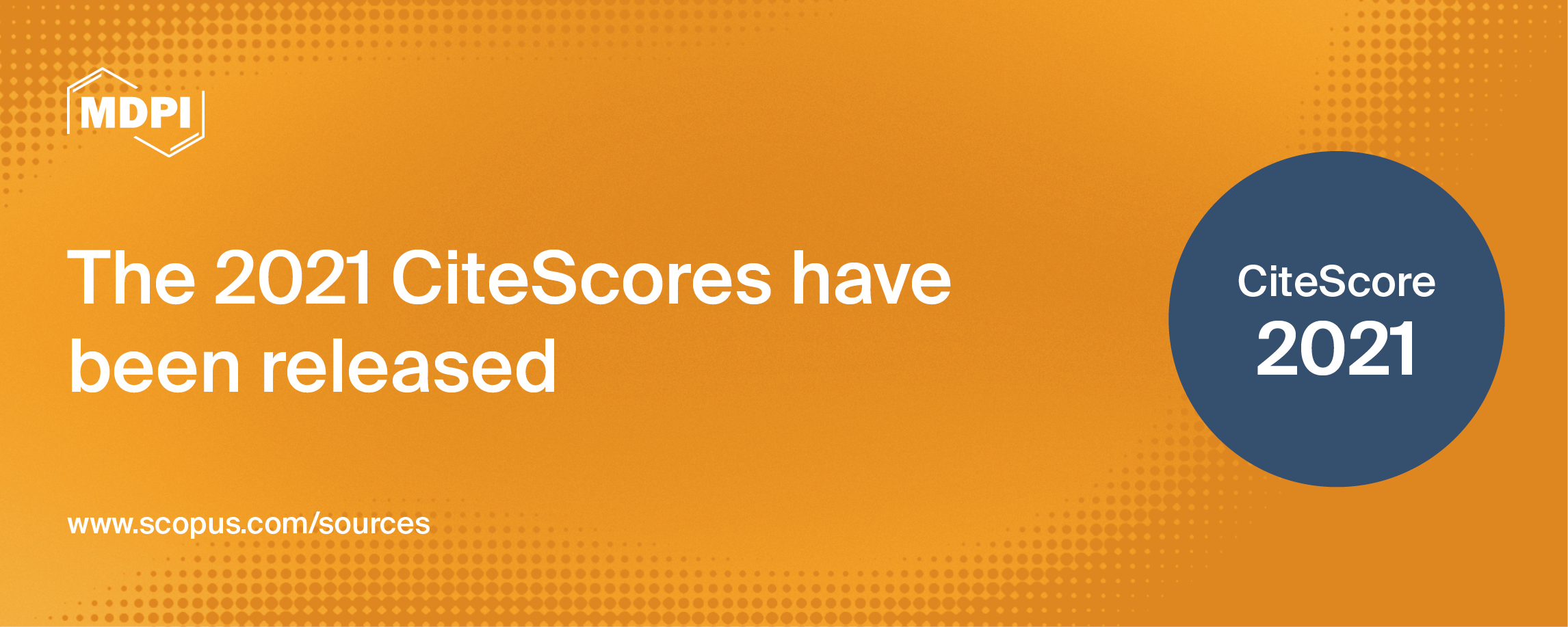
The 2021 citation metrics have been officially released in Scopus!
We are pleased to announce that 182 MDPI journals are included, of which:
● 21 journals received their first CiteScore.
● 85% of journals increased their CiteScore from 2020.
● 155 journals (85%) ranked above average, in at least one category.
The following 65 MDPI journals (36%) ranked among the top 25% of journals, in at least one category:
|
Journal |
CiteScore |
Quartile |
Category |
|
10.1 |
Q1 |
Genetics |
|
|
10.0 |
Q1 |
Biomedical Engineering |
|
|
8.1 |
Q1 |
Pharmacology, Toxicology and Pharmaceutics (miscellaneous) |
|
|
7.9 |
Q1 |
Electrical and Electronic Engineering |
|
|
7.9 |
Q1 |
Nutrition and Dietetics |
|
|
7.4 |
Q1 |
General Earth and Planetary Sciences |
|
|
7.2 |
Q1 |
Computer Science Applications |
|
|
6.9 |
Q1 |
Inorganic Chemistry |
|
|
6.9 |
Q1 |
Computer Networks and Communications |
|
|
6.7 |
Q1 |
General Biochemistry, Genetics and Molecular Biology |
|
|
6.6 |
Q1 |
General Chemical Engineering |
|
|
6.6 |
Q1 |
Health, Toxicology and Mutagenesis |
|
|
6.6 |
Q1 |
Infectious Diseases |
|
|
6.5 |
Q1 |
Food Science |
|
|
6.5 |
Q1 |
Civil and Structural Engineering |
|
|
6.4 |
Q1 |
Nature and Landscape Conservation |
|
|
6.4 |
Q1 |
Instrumentation |
|
|
6.1 |
Q1 |
Management Information Systems |
|
|
5.9 |
Q1 |
Chemistry (miscellaneous) |
|
|
5.7 |
Q1 |
Polymers and Plastics |
|
|
5.6 |
Q1 |
Engineering (miscellaneous) |
|
|
5.5 |
Q1 |
General Environmental Science |
|
|
5.5 |
Q1 |
Urban Studies |
|
|
5.4 |
Q2 |
Computer Networks and Communications |
|
|
5.3 |
Q1 |
Food Science |
|
|
5.3 |
Q1 |
Plant Science |
|
|
5.2 |
Q1 |
Ecology, Evolution, Behavior and Systematics |
|
|
5.2 |
Q1 |
General Engineering |
|
|
Journal of Open Innovation: Technology, Market, and Complexity |
5.1 |
Q1 |
Development |
|
5.0 |
Q1 |
Chemistry (miscellaneous) |
|
|
5.0 |
Q1 |
Control and Optimization |
|
|
5.0 |
Q1 |
Geography, Planning and Development |
|
|
5.0 |
Q1 |
Geography, Planning and Development |
|
|
4.9 |
Q1 |
Forestry |
|
|
4.9 |
Q1 |
Control and Optimization |
|
|
4.9 |
Q1 |
Soil Science |
|
|
4.8 |
Q1 |
General Earth and Planetary Sciences |
|
|
4.8 |
Q1 |
Mechanical Engineering |
|
|
4.8 |
Q1 |
Public Health, Environmental and Occupational Health |
|
|
4.8 |
Q1 |
Geography, Planning and Development |
|
|
International Journal of Environmental Research and Public Health |
4.5 |
Q1 |
Public Health, Environmental and Occupational Health |
|
4.5 |
Q1 |
Physical Therapy, Sports Therapy and Rehabilitation |
|
|
4.4 |
Q1 |
Mathematical Physics |
|
|
4.4 |
Q1 |
General Medicine |
|
|
4.3 |
Q1 |
General Mathematics |
|
|
4.2 |
Q1 |
Surgery |
|
|
4.1 |
Q1 |
Health Professions (miscellaneous) |
|
|
4.1 |
Q1 |
Plant Science |
|
|
4.0 |
Q1 |
General Engineering |
|
|
4.0 |
Q1 |
Forestry |
|
|
4.0 |
Q1 |
Education |
|
|
3.9 |
Q1 |
General Pharmacology, Toxicology and Pharmaceutics |
|
|
3.9 |
Q1 |
Applied Mathematics |
|
|
3.8 |
Q1 |
Development |
|
|
3.8 |
Q1 |
Architecture |
|
|
3.8 |
Q1 |
Metals and Alloys |
|
|
3.5 |
Q1 |
Communication |
|
|
3.4 |
Q1 |
General Social Sciences |
|
|
2.9 |
Q1 |
General Mathematics |
|
|
2.8 |
Q1 |
Analysis |
|
|
2.7 |
Q1 |
General Veterinary |
|
|
2.6 |
Q1 |
Algebra and Number Theory |
|
|
1.8 |
Q1 |
Conservation |
|
|
1.0 |
Q1 |
Religious Studies |
|
|
0.9 |
Q1 |
Philosophy |
Source: 2021 CiteScores™ (Elsevier)
7 June 2022
Polymers | Top 10 Cited Reviews in 2021
1. “A Comparative Review of Natural and Synthetic Biopolymer Composite Scaffolds“
Sai Bhargava Reddy et al.
Polymers 2021, 13(7), 1105; https://doi.org/10.3390/polym13071105
Available online: https://www.mdpi.com/2073-4360/13/7/1105
2. “Micro- and Nanocellulose in Polymer Composite Materials: A Review“
by Abdoulhdi A. Borhana Omran et al.
Polymers 2021, 13(2), 231; https://doi.org/10.3390/polym13020231
Available online: https://www.mdpi.com/2073-4360/13/2/231
3. “A Review on Natural Fiber Reinforced Polymer Composite for Bullet Proof and Ballistic Applications“
M. Nurazzi et al.
Polymers 2021, 13(4), 646; https://doi.org/10.3390/polym13040646
Available online: https://www.mdpi.com/2073-4360/13/4/646
4. “Potential of Natural Fiber Reinforced Polymer Composites in Sandwich Structures: A Review on Its Mechanical Properties“
by S. Alsubari et al.
Polymers 2021, 13(3), 423; https://doi.org/10.3390/polym13030423
Available online: https://www.mdpi.com/2073-4360/13/3/423
5. “Poly(lactic Acid): A Versatile Biobased Polymer for the Future with Multifunctional Properties—From Monomer Synthesis, Polymerization Techniques and Molecular Weight Increase to PLA Applications“
Evangelia Balla et al.
Polymers 2021, 13(11), 1822; https://doi.org/10.3390/polym13111822
Available online: https://www.mdpi.com/2073-4360/13/11/1822
6. “Fabrication, Functionalization, and Application of Carbon Nanotube-Reinforced Polymer Composite: An Overview“
Norizan Mohd Nurazzi et al.
Polymers 2021, 13(7), 1047; https://doi.org/10.3390/polym13071047
Available online: https://www.mdpi.com/2073-4360/13/7/1047
7. “Antimicrobial Actions and Applications of Chitosan“
Cai-Ling Ke et al.
Polymers 2021, 13(6), 904; https://doi.org/10.3390/polym13060904
Available online: https://www.mdpi.com/2073-4360/13/6/904
8. “Advances in Molecularly Imprinted Polymers Based Affinity Sensors (Review)“
Simonas Ramanavicius et al.
Polymers 2021, 13(6), 974; https://doi.org/10.3390/polym13060974
Available online: https://www.mdpi.com/2073-4360/13/6/974
9. “A Comprehensive Review on Advanced Sustainable Woven Natural Fibre Polymer Composites“
A. Aisyah et al.
Polymers 2021, 13(3), 471; https://doi.org/10.3390/polym13030471
Available online: https://www.mdpi.com/2073-4360/13/3/471
10. “Polylactic Acid (PLA) Biocomposite: Processing, Additive Manufacturing and Advanced Applications“
R.A. Ilyas et al.
Polymers 2021, 13(8), 1326; https://doi.org/10.3390/polym13081326
Available online: https://www.mdpi.com/2073-4360/13/8/1326
1 June 2022
Polymers | Top 10 Cited Articles in 2021
1. “Multifunctional Polyhedral Oligomeric Silsesquioxane (POSS) Based Hybrid Porous Materials for CO2 Uptake and Iodine Adsorption”
Mohamed Gamal Mohamed et al.
Polymers 2021, 13(2), 221; https://doi.org/10.3390/polym13020221
Available online: https://www.mdpi.com/2073-4360/13/2/221
2. “Nanosponge-Based Composite Gel Polymer Electrolyte for Safer Li-O2 Batteries”
Julia Amici et al.
Polymers 2021, 13(10), 1625; https://doi.org/10.3390/polym13101625
Available online: https://www.mdpi.com/2073-4360/13/10/1625
3. “Eco-Friendly, High-Density Fiberboards Bonded with Urea-Formaldehyde and Ammonium Lignosulfonate”
Petar Antov et al.
Polymers 2021, 13(2), 220; https://doi.org/10.3390/polym13020220
Available online: https://www.mdpi.com/2073-4360/13/2/220
4. “Edible Films from Carrageenan/Orange Essential Oil/Trehalose—Structure, Optical Properties, and Antimicrobial Activity”
Jancikova Simona et al.
Polymers 2021, 13(3), 332; https://doi.org/10.3390/polym13030332
Available online: https://www.mdpi.com/2073-4360/13/3/332
5. “Protective Face Mask Filter Capable of Inactivating SARS-CoV-2, and Methicillin-Resistant Staphylococcus aureus and Staphylococcus epidermidis”
Miguel Martí et al.
Polymers 2021, 13(2), 207; https://doi.org/10.3390/polym13020207
Available online: https://www.mdpi.com/2073-4360/13/2/207
6. “Utilization of Birch Bark as an Eco-Friendly Filler in Urea-Formaldehyde Adhesives for Plywood Manufacturing”
Roman Réh,Ľuboš Krišťák et al.
Polymers 2021, 13(4), 511; https://doi.org/10.3390/polym13040511
Available online: https://www.mdpi.com/2073-4360/13/4/511
7. “Eco-Friendly Fiberboard Panels from Recycled Fibers Bonded with Calcium Lignosulfonate”
by Petar Antov et al.
Polymers 2021, 13(4), 639; https://doi.org/10.3390/polym13040639
Available online: https://www.mdpi.com/2073-4360/13/4/639
8. “Removal of Cadmium and Chromium by Mixture of Silver Nanoparticles and Nano-Fibrillated Cellulose Isolated from Waste Peels of Citrus Sinensis”
Neha Tavker et al.
Polymers 2021, 13(2), 234; https://doi.org/10.3390/polym13020234
Available online: https://www.mdpi.com/2073-4360/13/2/234
9. “Corn Starch (Zea mays) Biopolymer Plastic Reaction in Combination with Sorbitol and Glycerol”
M.D. Hazrol et al.
Polymers 2021, 13(2), 242; https://doi.org/10.3390/polym13020242
Available online: https://www.mdpi.com/2073-4360/13/2/242
10. “Utilization of Bracing Arms as Additional Reinforcement in Pultruded Glass Fiber-Reinforced Polymer Composite Cross-Arms: Creep Experimental and Numerical Analyses”
Muhammad Rizal Muhammad Asyraf et al.
Polymers 2021, 13(4), 620; https://doi.org/10.3390/polym13040620
Available online: https://www.mdpi.com/2073-4360/13/4/620
23 May 2022
Polymers | Special Issue Mentor Program
We are pleased to announce the launch of a new initiative—The Polymers Special Issue Mentor Program.
This program intends to provide an opportunity for early career scientists to enhance their editing, networking, and organizational skills and to work closely with our journal to gain more editorial experience. Early career scientists who have novel ideas for new Polymers Special Issues will act as Guest Editors under the mentorship of an experienced scientist; this mentor could be a member of the Editorial Board of Polymers (ISSN: 2073-4360), from other well-established research institutes or laboratories, etc.
Mentor’s responsibilities:
- Checking and making final decisions before the Special Issue is published online;
- Providing suggestions to young scholars on Special Issue editorial work;
- Checking Special Issues and giving feedback or advice in a timely manner to help to improve the quality of Special Issues.
Rewards for mentors:
The Polymers Editorial Office will provide official certificates for mentors who help young scholars to lead a successful Special Issue. For mentors who are active in this project, the Polymers Editorial Office will consider inviting them to join the Editorial Board.
If you are interested in this opportunity, please send your Special Issue proposal to the Polymers Editorial Office (polymers@mdpi.com) and we will discuss the process (mentor collaboration, Special Issue topic feasibility analysis, etc.) in further detail.
In addition to the new Special Issue Mentor Program, Polymers continues to welcome all Special Issue proposals based on hot research topics as usual.
Polymers Editorial Office
29 April 2022
Polymers | Recruiting Editorial Board Members for New Section “Polymer Networks”
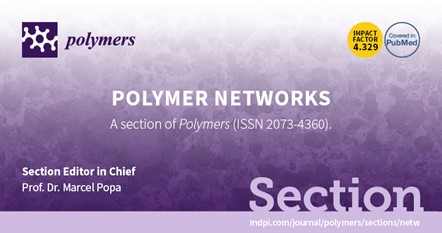
We are currently recruiting Editorial Board Members for the new Section "Polymer Networks" (https://www.mdpi.com/journal/polymers/sections/netw), to be published in the journal Polymers (ISSN: 2073-4360). If you are interested in serving on the Editorial Board, or have potential candidates to recommend, please reach out to us.
Applicants for the Editorial Board positions may nominate a specific Section which they specialize in, or they may nominate themselves as an Editorial Board Member for the entire journal.
Polymers is an international, peer-reviewed, open access journal containing research in the field of polymer science. Polymers is fully covered by the leading indexing services, including PubMed/MEDLINE, Science Citation Index Expanded (Web of Science), Scopus/SciVerse, and Google Scholar. Full-text articles are also available in PubMed Central. The newly released impact factor of Polymers is 4.329.
As an Editorial Board Member, you will have the following responsibilities:
- Pre-screening submissions and making decisions on whether they should be rejected or accepted for processing;
- Editing a Special Issue on a topic related to your research;
- Recommending timely topics and suggesting potential Guest Editors;
- Publishing/inviting/recommending one paper, free of charge, per year;
- Identifying appropriate conferences for the promotion of Polymers;
- Promoting the journal at conferences and on social media.
If you are an active researcher in the field and are passionate about publishing cutting-edge research, please do not hesitate to contact the Section Managing Editor Mr. Logan Sheng (logan.sheng@mdpi.com).
We look forward to hearing from you soon.
Polymers Editorial Office
29 April 2022
Polymers | Call for Special Issue Proposals for New Section “Polymer Networks”
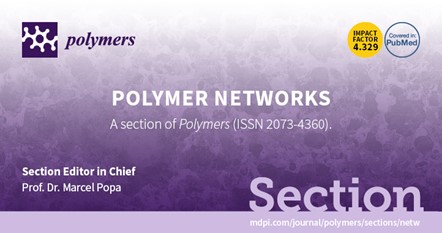
We are currently inviting Special Issue proposals for the new Section "Polymer Networks". If you are an active researcher in the relevant field and are passionate about cutting-edge research, please do not hesitate to contact the Section Managing Editor Mr. Logan Sheng (logan.sheng@mdpi.com).
The Section “Polymer Networks” of Polymers (ISSN: 2073-4360) aims to rapidly publish contributions on the aspects of polymer science in colloid, surface, and interface, as well as their applications in various fields. It is obvious that today's modern society cannot be conceived without polymers, and that materials surround us in different forms, even as part of the constitution of the human body. The practical applications of colloidal polymer systems, polymeric films, polymer composites, and biocomposites have experienced a great expansion in recent decades; however, it is still necessary to elucidate some theoretical aspects in order to obtain increasingly efficient materials. The use of polymeric particles as carriers of biologically active principles, and especially the modification of their surface to achieve an active targeting of the diseases to be treated, is another important challenge for researchers. The creation of a strong interface between the polymer matrix and the filling or reinforcing material in order to obtain composites with good mechanical properties and, in general, superior physicochemical characteristics, as well as the development of increasingly efficient techniques for its characterization, still concern many groups of researchers. That is why this newly established Section of Polymers aims to incite and encourage specialists to publish original articles and reviews that reflect new trends and achievements in the field. Our intention is to develop a platform not only for dissemination but also for debating the new results in this field, which fascinatingly holds significant application potential.
For further information, please do not hesitate to contact the Editorial Office (polymers@mdpi.com).
7 April 2022
Prof. Dr. Sixun Zheng Appointed the Section Editor-in-Chief of the Section “Smart and Functional Polymers” in Polymers
We are pleased to announce that Prof. Dr. Sixun Zheng has been appointed the Section Editor-in-Chief of the Section “Smart and Functional Polymers” in Polymers (ISSN: 2073-4360).

Prof. Dr. Sixun Zheng is a professor of polymer science and engineering at the Shanghai Jiao Tong University (SJTU), China. He holds a doctoral degree (Ph.D.) in Polymer Chemistry and Physics from the University of Science and Technology of China (USTC) acquired in 1997. Since 1992, he has worked at USTC first as an Assistant and then Associate Professor. As a postdoctoral researcher, he worked at Deutsches Kunststoff-Institut and the Technical University of Darmstadt, Germany, from 1998 to 1999, and the University of California at Irvine, California, USA, from 1999 to 2001. In 2001, he joined the Shanghai Jiao Tong University (SJTU) as a Full Professor. Dr. Zheng is now active in studies on the following topics: i) shape memory polymers; ii) self-healing polymers and vitrimers; iii) organic-inorganic nanocomposites of polymers with polyhedral oligomeric silsesquioxanes (POSS); and iv) microphase separation and self-assembly in thermosetting polymers.
He has published more than 230 scientific papers in international academic journals such as Advanced Materials, Chemistry of Materials, Macromolecules, The Journal of Physical Chemistry, Polymer Chemistry, Polymer, etc. According to the statistics from Elsevier Science Publishers, Prof. Dr. Zheng has consecutively been listed as one of the Most Cited Chinese Researchers since 2014.
The following is a short Q&A with Prof. Dr. Sixun Zheng, who shared his vision for the journal with us, as well as his views of the research area:
1. What appealed to you about the journal that made you want to take the role as its Section Editor-in-Chief?
The journal Polymers has built up a good reputation as an open access platform to disseminate discoveries, concepts, and ideas in polymer science and engineering. It is my honor to participate in the editorial team to serve the community. As a polymer scientist, I am pleased to have this opportunity to establish the Section “Smart and Functional Polymers”.
2. What is your vision for the journal?
This journal provides a new model of disseminating discoveries, concepts, and ideas in polymer science and engineering. Through this platform, authors can rapidly share their discoveries, concepts, and ideas, whereas readers can freely access the latest advances in this area. This feature significantly promotes and accelerates academic exchange. Over the past decades, this journal has established a strong and efficient editorial team. By providing high-quality services from article submission, and peer review to editorial decisions, Polymers will be one of the highly impacting and most important journals in polymer science and engineering.
3. What does the future of this field of research look like?
The field represents an active and rapidly growing trend in polymer science and engineering. The Section “Smart and Functional Polymers” welcomes original contributions reporting new ideas and concepts and also reviews summarizing the latest progress in this area. Smart polymers are synthetic polymers designed to mimic biopolymers with biological intelligence. The main characteristic of these polymers is their specialized functions that allow responding to changes in their environment. Such functional properties of polymers can facilitate separation, electronic conductance, photo- and electroluminescence, energy storage and conversion, data storage, and so on. Undoubtedly, this Section is particularly appealing to scientists specializing in materials science and engineering.
4. What do you think of the development of open access in the publishing field?
Open access represents a new model of publishing. Its advantages are high efficiency and rapid and free accessibility. The combination of open access with scientific research will result in the rapid dissemination of scientific knowledge, further promoting academic exchange. This feature is particularly evident in the internet era. Of course, open access will greatly promote further progress in polymer science.
We warmly welcome Prof. Dr. Sixun Zheng as the Section Editor-in-Chief of “Smart and Functional Polymers”, and we look forward to achieving many milestones under his leadership. For further information on this Section, please visit the following link: https://www.mdpi.com/journal/polymers/sections/Smart_Funct.
10 February 2022
Polymers | Call for Special Issue Proposals for New Section “Polymer Colloid and Interface”
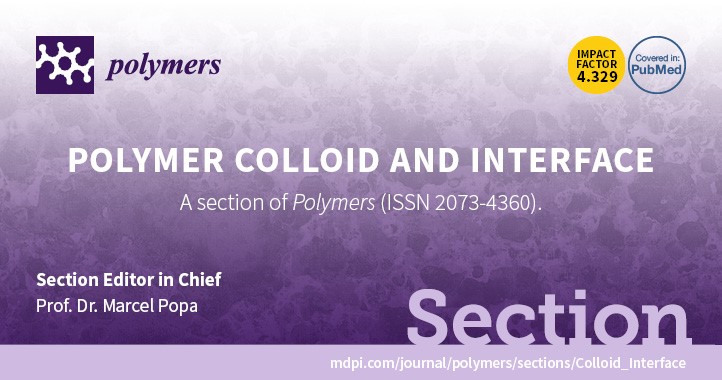
We are currently inviting Special Issue proposals for the new Section "Polymer Colloid and Interface". If you are an active researcher in the relevant field and are passionate about cutting-edge research, please do not hesitate to contact the Section Managing Editor Ms. Zoe Ou (zoe.ou@mdpi.com).
The Section “Polymer Colloid and Interface” of Polymers (ISSN: 2073-4360) aims to rapidly publish contributions on the aspects of polymer science in colloid, surface, and interface, as well as their applications in various fields. It is obvious that today's modern society cannot be conceived without polymers, materials that surround us in different forms and that are even part of the constitution of the human body. The practical applications of colloidal polymer systems, of polymeric films, and of polymer composites and biocomposites have experienced a great expansion in recent decades, but it is still necessary to elucidate some theoretical aspects in order to obtain more and more efficient materials. The use of polymeric particles as carriers of biologically active principles, and especially the modification of their surface to achieve an active targeting of the diseases to be treated, is another important challenge for researchers. The creation of a strong interface between the polymer matrix and the filling or reinforcing material in order to obtain composites with good mechanical properties and, in general, superior physicochemical characteristics, as well as the development of increasingly efficient techniques for its characterization, still concerns many groups of researchers. That is why this newly established Section of Polymers aims to incite and encourage specialists to publish original articles and reviews that reflect new trends and achievements in the field. Our intention is to develop a platform not only for dissemination but also for debating the new results that are in this field, which is incredibly interesting and has a very large application potential.
For further information, please do not hesitate to contact the Editorial Office (polymers@mdpi.com).
We look forward to receiving your proposals.
8 February 2022
Polymers | Recruiting Editorial Board Members for New Section “Polymer Colloid and Interface”

We are currently recruiting Editorial Board Members for the new Section "Polymer Colloid and Interface" (https://www.mdpi.com/journal/polymers/sections/Colloid_Interface), to be published in the journal Polymers (ISSN: 2073-4360). If you are interested in serving on the Editorial Board, or have potential candidates to recommend, please reach out to us.
Applicants for the Editorial Board positions may nominate a specific section in which they feel their expertise lies, or they may nominate themselves as an Editorial Board Member for the entire journal.
Polymers is an international, peer-reviewed, open access journal containing research in the field of polymer science. Polymers is fully covered by the leading indexing services, including PubMed/MEDLINE, Science Citation Index Expanded (Web of Science), Scopus/SciVerse, and Google Scholar. Full-text articles are also available in PubMed Central. The newly released impact factor of Polymers is 4.329.
As an Editorial Board Member, you will have the following responsibilities:
- Pre-screening submissions and making decisions on whether they should be rejected or accepted for processing;
- Editing a Special Issue on a topic related to your research;
- Recommending timely topics and suggesting potential Guest Editors;
- Publishing/inviting/recommending one paper, free of charge, per year;
- Identifying appropriate conferences for the promotion of Polymers;
- Promoting the journal at conferences and on social media.
If you are an active researcher in the field and are passionate about publishing cutting-edge research, please do not hesitate to contact the Section Managing Editor Ms. Zoe Ou (zoe.ou@mdpi.com).
We look forward to hearing from you soon.
Polymers Editorial Office
21 January 2022
Polymers | Call for Special Issue Proposals for Section “Polymer Membranes and Films”
We are currently inviting Special Issue proposals for the new Section "Polymer Membranes and Films". If you are an active researcher in the relevant field and are passionate about cutting-edge research, please do not hesitate to contact the Section Managing Editor Mr. Felix Li (felix.li@mdpi.com).
The almost infinite possibilities of structural variation are leading to the emergence of a new generation of membranes that can have an impact on all the key sectors of tomorrow. The understanding of the most fundamental bases of the fabrication of polymer thin films and how to modulate their physicochemical properties have also undergone spectacular growth. Authors are invited to submit original research and review articles to this Section, describing the synthesis, characterization, or application of membrane or film, but we are also interested in new polymers for membrane or film applications, new ways of manufacturing membranes, and applications in different fields.
Topics include but are not limited to:
- Advanced polymer membranes and films;
- Preparation, functionalization, and characterization of polymer membranes and films;
- Processes of polymer membranes;
- Applications of polymer membranes and films;
- Membrane transport;
- Membrane structure;
- Polymer coatings.
For further information, please do not hesitate to contact the Editorial Office (polymers@mdpi.com).
We look forward to receiving your proposals.
21 January 2022
Polymers | Recruiting Editorial Board Members for Section “Polymer Membranes and Films”
We are currently recruiting Editorial Board Members for the new Section "Polymer Membranes and Films" (https://www.mdpi.com/journal/polymers/sections/Membr_Film), to be published in the journal Polymers (ISSN: 2073-4360). If you are interested in serving on the Editorial Board or have potential candidates to recommend, please reach out to us.
Applicants for the Editorial Board positions may nominate a specific section in which they feel their expertise lies, or they may nominate themselves as an Editorial Board Members for the entire journal.
Polymers is an international, peer-reviewed, open-access journal containing research in the field of (i) polymerization methods, (ii) theory, simulation, and modeling, (iii) understanding of new physical phenomena, (iv) advances in characterization techniques, and (v) harnessing of self-assembly and biological strategies for producing complex multifunctional structures. Polymers is fully covered by various leading indexing services, including PubMed/MEDLINE, Science Citation Index Expanded (Web of Science), Scopus/SciVerse, and Google Scholar. Full-text articles are also available in PubMed Central. The newly released impact factor of Polymers is 4.329.
The Section “Polymer Membranes and Films” of Polymers aims to rapidly publish contributions on all aspects of describing the synthesis, characterization, or application of membranes or films, but we are also interested in new polymers for membrane or film applications and new ways of manufacturing membranes. We encourage the submission of manuscripts that provide novel, competently researched articles and reviews that report on significant advances in the field.
As an Editorial Board Member, you will have the following responsibilities:
- Attending our Board Meetings to advise on journal development strategy;
- Supervising Special Issues related to your research field;
- Pre-screening and making decisions on new submissions in your research interests (about one per month or less);
- Inviting and contributing high-quality papers;
- Promoting Polymers at conferences that you attend or organize (we could supply any promotional materials you need or help with sponsoring issues).
If you are an active researcher in the field and are passionate about publishing cutting-edge research, please do not hesitate to contact the Section Managing Editor Mr. Felix Li (felix.li@mdpi.com).
We look forward to hearing from you soon.
Polymers Editorial Office
17 January 2022
Polymers | Call for Special Issue Proposals for Section “Polymer Applications”
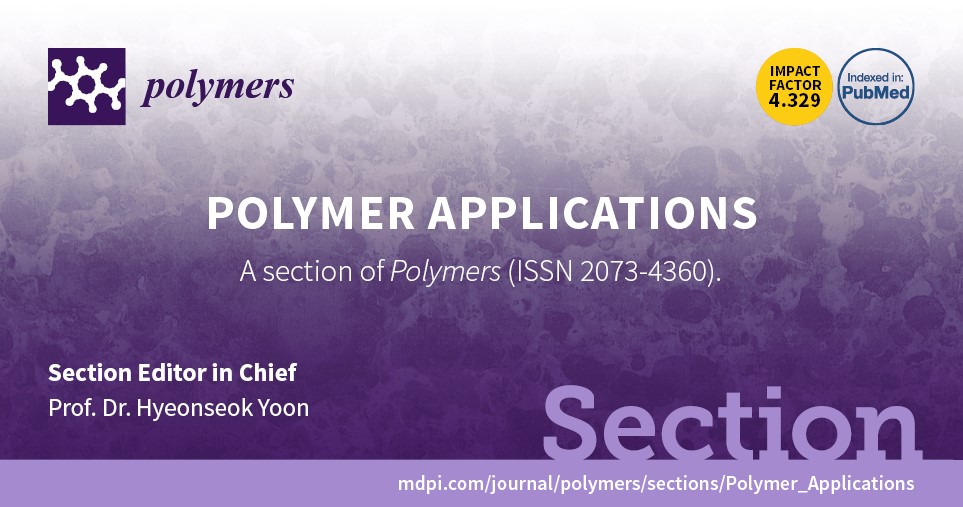
We are currently inviting Special Issue proposals for the new Section “Polymer Applications”. If you are an active researcher in a relevant field and are passionate about cutting-edge research, please do not hesitate to contact the Section Managing Editor Ms. Natalie Zhou (natalie.zhou@mdpi.com).
This Polymers Section on polymer applications is the right channel to publish all types of applications related to polymeric materials and their composites. All kinds of polymers, either conventional engineering polymers or newly developed ones, from thermoset and thermoplastic to vitrimer, are included. Any applications, from traditional to advanced, are covered.
For further information, please do not hesitate to contact the Editorial Office (polymers@mdpi.com).
We look forward to receiving your proposals.
17 January 2022
Polymers | Recruiting Editorial Board Members for Section “Polymer Applications”

We are currently recruiting Editorial Board Members for the new Section “Polymer Applications”, to be published in the journal Polymers (ISSN: 2073-4360). If you are interested in serving on the Editorial Board or have potential candidates to recommend, please reach out to us.
Applicants for the Editorial Board positions may nominate a specific section in which they feel their expertise lies, or they may nominate themselves as an Editorial Board Member for the entire journal.
Polymers is an international, open access journal of polymer science. It publishes research papers, communications, and review articles. Polymers is fully covered by the leading indexing services, including PubMed/MEDLINE, Science Citation Index Expanded (Web of Science), Scopus/SciVerse, and Google Scholar. Full-text articles are also available in PubMed Central. The newly released impact factor of Polymers is 4.329.
As an Editorial Board Member, you will have the following responsibilities:
- Pre-screening submissions and making decisions on whether they should be rejected or accepted for processing;
- Editing a Special Issue on a topic related to your research;
- Recommending timely topics and suggesting potential Guest Editors;
- Publishing/inviting/recommending one paper, free of charge, per year;
- Identifying appropriate conferences for the promotion of Polymers;
- Promoting the journal at conferences and on social media.
If you are an active researcher in the field and are passionate about publishing cutting-edge research, please do not hesitate to contact the Section Managing Editor Ms. Natalie Zhou (natalie.zhou@mdpi.com).
We look forward to hearing from you soon.
Polymers Editorial Office
17 January 2022
Polymers | Call for Special Issue Proposals for Section “Polymer Analysis and Characterization”
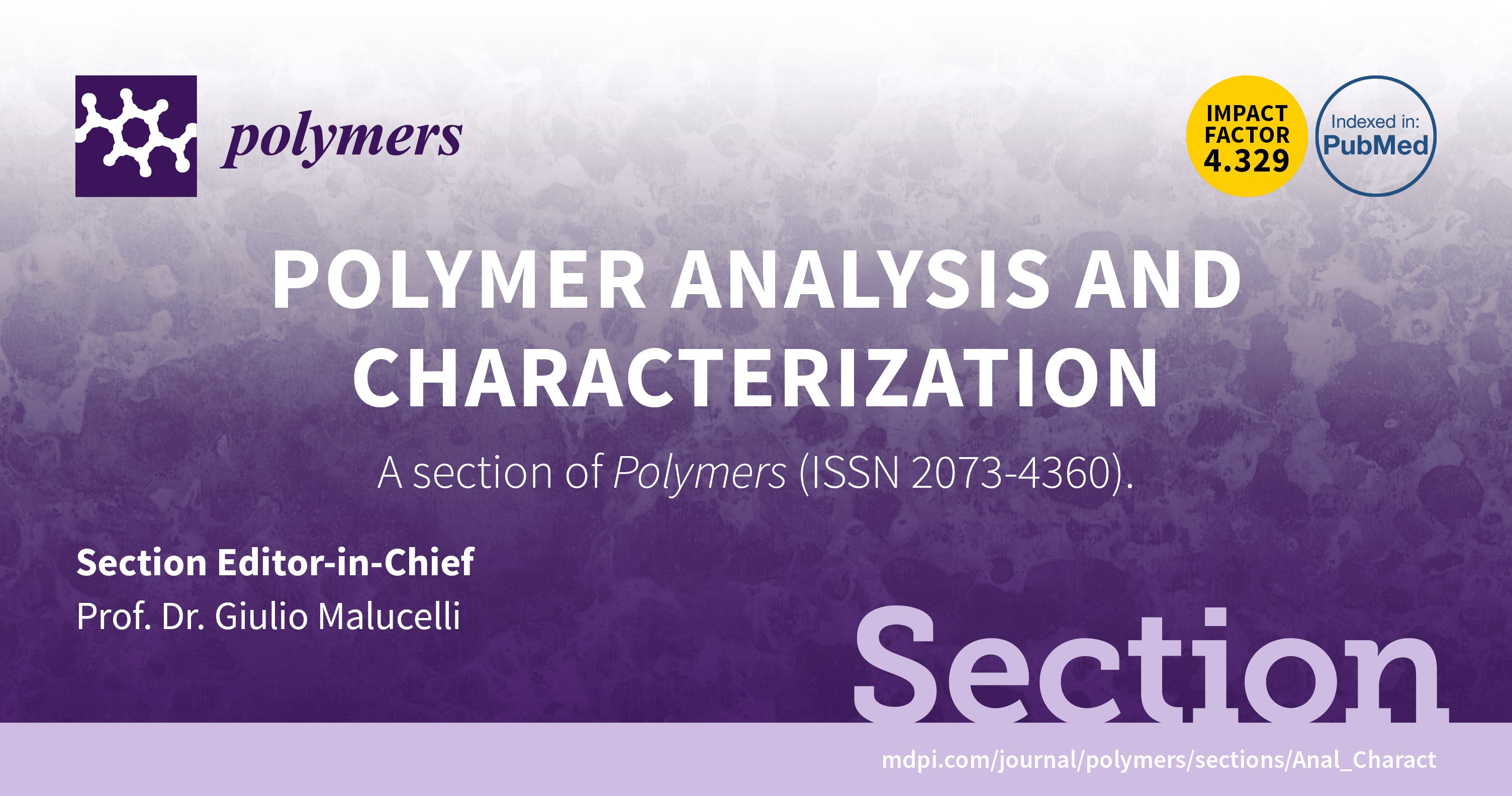
We are currently inviting Special Issue proposals for the Section "Polymer Analysis and Characterization". If you are an active researcher in a relevant field and are passionate about cutting-edge research, please do not hesitate to contact the Section Managing Editor Ms. Venassa Gong (venassa.gong@mdpi.com).
The Section “Polymer Analysis and Characterization” of Polymers (ISSN: 2073-4360) aims to rapidly publish contributions on all aspects of polymer characterization. In fact, it is very important to characterize polymer-based systems (such as polymers, copolymers, and micro- and nanopolymer composites, to name a few) in order to establish strong structure–property relationships. These characterizations can potentially lead both to a deep knowledge of the materials’ performances and to the possibility of choosing the best-performing systems for specific applications. We encourage the submission of manuscripts that provide novel competently researched articles and reviews that report on significant advances in the field.
Topics include but are not limited to:
- Characterization and analysis of polymers, polymeric materials, and polymer additives;
- Characterization of polymerization mechanisms;
- Characterization of polymer systems through advanced spectroscopy methods;
- Structure–property relationships in polymers and polymer composites;
- Surface properties of polymer systems;
- Measurement of molecular mass, size, conformation in polymer systems;
- Morphological characterization of polymers and polymer micro- and nanocomposites;
- Mechanical behavior of polymers and polymer micro- and nanocomposites;
- Rheological behavior of polymers and polymer micro- and nanocomposites;
- Thermal behavior of polymers and polymer micro- and nanocomposites;
- Flame retardancy of polymers and polymer micro- and nanocomposites;
- Structure–property–processing relationships in polymers and polymer micro- and nanocomposites;
- Biodegradability of polymers and polymer micro- and nanocomposites.
For further information, please do not hesitate to contact the Editorial Office (polymers@mdpi.com)
We look forward to receiving your proposals.
17 January 2022
Recruiting Editorial Board Members for Section “Polymer Analysis and Characterization” in Polymers
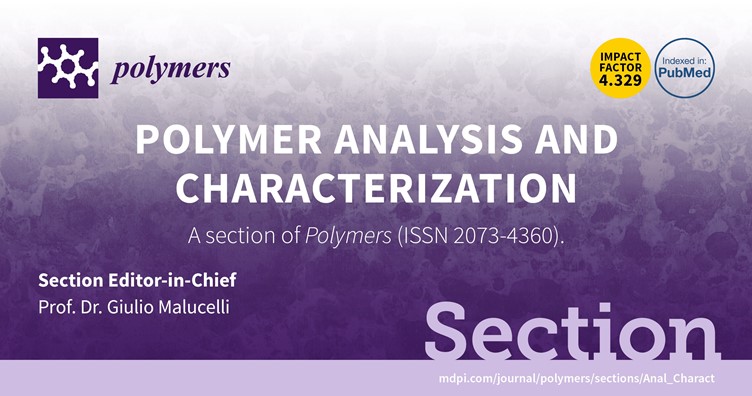
We are currently recruiting Editorial Board Members for the Section "Polymer Analysis and Characterization", to be published in the journal Polymers (ISSN: 2073-4360). If you are interested in serving on the Editorial Board, or if you can recommend potential candidates, please do not hesitate to contact Ms. Venassa Gong (venassa.gong@mdpi.com).
Applicants for the Editorial Board positions may nominate a specific section in which they feel their expertise lies, or they may nominate themselves as an Editorial Board Member for the entire journal.
Polymers is a peer-reviewed, open access journal containing research pertaining to polymer science, published semi-monthly online by MDPI. Polymers is fully covered by the leading indexing services, including Scopus, SCIE (Web of Science), Ei Compendex, PubMed, PMC, FSTA, CAPlus/SciFinder, Inspec, and many other databases.
The Section “Polymer Analysis and Characterization” in Polymers aims to rapidly publish contributions on all aspects of polymer characterization. We encourage the submission of manuscripts that provide novel competently researched articles and reviews that report on significant advances in the field.
As an Editorial Board Member, you would be responsible for the following:
- Attending our board meetings to advise on journal development strategies;
- Supervising Special Issues related to your research field;
- Pre-screening and making decisions on new submissions that are within your research interests (approximately one per month or less);
- Inviting and contributing high-quality papers;
- Promoting Polymers at conferences that you attend or organize (we could supply any promotional materials you need, or sponsor issues).
We look forward to hearing from you soon.
7 January 2022
Meet Us Virtually at the Topic Workshop | Scientific Advances in STEM, 12 January 2022

MDPI would like to invite all recognized experts in their field to attend our Topic Workshop | Scientific Advances in STEM. The aim of this workshop is to provide a platform for scholars in disciplines related to science and engineering to discuss and contribute to the advancement of these fields.
Webinar: Topic Workshop | Scientific Advances in STEM
Date: 12/1/2022
Time: 9:30 a.m. (CET)
Register in advance for this webinar here.
After registering, you will receive a confirmation email containing information on how to join the workshop. The number of participants in the live session is limited, but the recording will be made available shortly afterwards. Registrations with academic institutional email addresses will be prioritized.
Workshop Chairperson:
- Ana María Beltrán Custodio, University of Seville (US)
Dr. Ana M. Beltrán has a Ph.D. in material science and is currently an Associate Professor of Material Science at the University of Seville (Spain). Her scientific interests include the characterization of different materials, both at a macroscale (concerning the mechanical properties of biomaterials) and at a nanoscale, through transmission electron microscopy (structural and compositional analysis of bio-nanostructures, semiconductor, and catalysts) to understand their behavior. She has been the Guest Editor of Special Issues for the journal Metals, and she also contributed to MDPI’s first multidisciplinary topic involving the journals Metals, Polymers, Foods, Sustainability, and Sensors, from which a book was published. She is currently involved in the running of a second multidisciplinary topic entitled “Scientific Advances in STEM: Synergies to Achieve Success”.
Workshop Speakers:
- Frank Jörg Clemens, Empa Swiss Federal Laboratories for Materials Science and Technology Überlandstrasse
Dr. Frank Clemens is a Group Leader (Smart Ceramic Processing) at the Laboratory for High Performance Ceramics at Empa, Swiss Federal Laboratories for Material Science and Technology, Switzerland. His scientific and applied research belongs to the thermoplastic processing of powder-based sensors, actuators, and structural materials. His group focuses on national and international projects in this field, and he works with physicists, chemists, material scientists, and engineers to investigate activation energies on different processing steps. In addition, he has also developed new strategies for the processing of functional ceramics and soft sensor materials and structures. Since 2003, he has been a lecturer at ETH Zurich (Switzerland), and between 2010 and 2021, he was a lecturer at ZHAW (Switzerland). He has more than 150 peer-reviewed articles and patents.
- Dr. Carlos Bengoechea, Chemical Engineering Department, University of Sevilla, Seville, Spain
Prof. Dr. Carlos Bengoechea is an Associate Professor at the University of Seville, Spain, where he teaches different courses, such as Chemical Engineering or Polymeric Materials. He has wide experience in the development of applications (e.g., plastics, emulsions) that add value to by-products of the industry (e.g., soy protein, porcine plasma). Currently, he is supervising an R&D project on green superabsorbent materials for personal care applications using different by-products.
We are pleased to provide this excellent opportunity to all the brilliant researchers to propose and develop new approaches, exchange perspectives, and encourage new lines of research.
To find out more about the speakers and the program, please visit https://sciforum.net/event/SASTEM. We hope you can join us for this event.
Shun Li
MDPI Guest Editor Club
Conference Secretariat
22 November 2021
722 MDPI Editorial Board Members Receiving "2021 Highly Cited Researchers" Distinction
It is our great honor to congratulate the Editorial Board Members and Editors in MDPI's journals who have been distinguished as 2021 Highly Cited Researchers by Clarivate, according to Web of Science data. We herewith express our gratitude for the immense impact the named researchers continue to make on scientific progress and on our journals' development.
Clarivate's annual list of Highly Cited ResearchersTM identifies the most highly cited scientists for the past decade. Their impactful papers are among the top 1 per cent in the citation distribution of one or more of 22 fields analyzed in the "Essential Science Indicators", distinguishing them as hugely influential among their peers.
| Abate, Antonio Abatzoglou, John T. Abbaszadeh, Mostafa Acharya, U. Rajendra Acharya, Viral V. Agarwal, Ravi P. Ahn, Myung-Ju Airoldi, Laura Ali, Imran Allakhverdiev, Suleyman I. Aluko, Rotimi E. Anasori, Babak Andersson, Dan I. Andes, David Anker, Stefan D. Apergis, Nicholas Ariga, Katsuhiko Arqub, Omar Abu Aschner, Michael Assaraf, Yehuda G. Astruc, Didier Atala, Anthony Atanasov, Atanas G. Atangana, Abdon Bahram, Mohammad Bakris, George L. Balandin, Alexander A. Baleanu, Dumitru Balsamo, Gianpaolo Bando, Yoshio Banks, William A. Bansal-Travers, Maansi Barba, Francisco J. Barros, Lillian Basit, Abdul W. Baskonus, Haci Mehmet Bassetti, Matteo Battino, Maurizio Bell, Jordana T. Bellomo, Nicola Benediktsson, Jon Atli Benelli, Giovanni Benjakul, Soottawat Bhatnagar, Amit Biddle, Stuart J. H. Biondi, Antonio Biondi-Zoccai, Giuseppe Bjarnsholt, Thomas Blaabjerg, Frede Blaschke, Thomas Blay, Jean-Yves Blumwald, Eduardo Blunt, John W. Boffetta, Paolo Bogers, Marcel Bonomo, Robert A. Bowman, David M.J.S. Boyer, Cyrille Brestic, Marian Brevik, Eric C. Buhalis, Dimitrios Burdick, Jason A. Byrd, John C. Cabeza, Luisa F. Cai, Xingjuan Cai, Jianchao Calhoun, Vince D. Calin, George Cao, Jinde Cao, Guozhong Carvalho, Andre F. Castellanos-Gomez, Andres Cerqueira, Miguel Ângelo Parente Ribeiro Chang, Jo-Shu Chang, Chih-Hao Chastin, Sebastien Chau, Kwok-wing Chemat, Farid Chen, Xiaobo Chen, YangQuan Chen, Jianmin Chen, Chaoji Chen, Min Chen, Qi Chen, Jun Chen, Xi Chen, Peng Chen, Yulin Chen, Bo Chen, Chen Chen, Zhi-Gang Chen, Wei-Hsin Chen, Gang Chen, Yongsheng Chen, Xiang Chen, Yimin Chen, Runsheng Chen, Lidong Chen, Shaowei Chen, Qian Chen, Yu Chen, Shuangming Chiclana, Francisco Cho, Sun Young Choi, Wonyong Chowdhary, Anuradha Choyke, Peter L. Cichocki, Andrzej Corella, Dolores Corma, Avelino Cortes, Javier Cortes, Jorge Costanza, Robert Crommie, Michael F. Cui, Yi Cui, Haiying Cui, Qinghua Cummings, Kenneth Michael Dai, Shifeng Dai, Sheng Daiber, Andreas Davis, Steven J. Dawson, Ted M. de la Fuente-Nunez, Cesar Decker, Eric Andrew Dekel, Avishai Demaria, Marco Deng, Yong Deng, Xiangzheng DePinho, Ronald A. Desneux, Nicolas Dimopoulos, Meletios-Athanasios Ding, Aijun Dionysiou, Dionysios D. Dokmeci, Mehmet Remzi Dolgui, Alexandre Dong, Fan Dou, Shi Xue Dou, Letian Du, Qian Du, Bo Dube, Shanta Rishi Dufresne, Alain Dummer, Reinhard Dupont, Didier Edwards, David Elaissari, Abdelhamid Elhoseny, Mohamed Ellahi, Rahmat Ellis, Erle C. ElMasry, Gamal Esteller, Manel Estévez, Mario Fabbro, Doriano Facchetti, Antonio Fan, Zhanxi Fang, Chuanglin Fasano, Alessio Fečkan, Michal Felser, Claudia Feng, Liangzhu Fensholt, Rasmus Ferdinandy, Péter Fernandez-Lafuente, Roberto Ferreira, Isabel C. F. R. Filippi, Massimo Fisher, Helen Fortino, Giancarlo Fosso Wamba, Samuel Franceschi, Claudio Fujita, Hamido Fujita, Masayuki Gai, Francesco Gaisford, Simon Galanakis, Charis M. Galluzzi, Lorenzo Galvano, Fabio Gan, Ren-You Gan, Lihua Gandomi, Amir H. Gao, Bin Gao, Feng Gao, Minrui Gao, Huijun Gao, Wei Gao, Huile Garbe, Claus Garcia, Hermenegildo Gasbarrini, Antonio Gasco, Laura Gautret, Philippe Geng, Yong Gerdts, Gunnar Geschwind, Daniel H. Ghadimi, Noradin Ghaffari, Roozbeh Ghamisi, Pedram Giampieri, Francesca Glick, Bernard R. Gnant, Michael Goel, Ajay Gogotsi, Yury Goldewijk, Kees Klein Gong, Jinlong Gong, Yongji Govindan, Kannan Granato, Daniel Grancini, Giulia Green, Douglas R. Grosso, Giuseppe Gu, Ke Guan, Cao Guastella, Adam J. Guerrero, Josep M. Gui, Guan Guizani, Mohsen Guo, Zaiping Gupta, Rangan Gutzmer, Ralf Haase, Dagmar Habibi-Yangjeh, Aziz Hagemann, Stefan Hagger, Martin Hamblin, Michael R. Hammoudeh, Shawkat Han, Heesup Hanes, Justin Harrison, Roy M. Hartung, Hans-Peter Hasanuzzaman, Mirza He, Jr-Hau He, Hongwen He, Jiaqing He, Debiao Henseler, Jörg Herrera, Francisco Herrera-Viedma, Enrique Hetz, Claudio Ho Kim, Jung Holmes, Elaine Hossain, Ekram Hsueh, Po-Ren Hu, Xiaosong Hu, Wenbin Huang, Jianping Huang, Hongwei Huang, Yu Huang, Jianying Huang, Peng Huang, Baibiao Huang, Shaoming Hubacek, Klaus |
Iqbal, Hafiz M. N. |
Saad, Fred |
The full list of 2021 Highly Cited Researchers can be accessed at the following webpage in the Web of ScienceTM https://recognition.webofscience.com/awards/highly-cited/2021/.
--- Highly Cited Researchers (HCR) is a Clarivate product.
16 November 2021
Topical Advisory Panel Established to Support Editorial Board
Academic editors play a crucial role in leading our journals and ensuring that each article undergoes a robust and timely peer-review. With the launch of Topics this year and addition of Topic Editors to our family of academic editors, we decided it would be a good time to restructure our academic boards, thus providing more clarity and support for each role. MDPI is pleased to announce the launch of a new position—Topical Advisory Panel Member, that will replace the previous position of Topics Board Member. The Topical Advisory Panel will be comprised of early career researchers eager to gain experience in editorial work.
The main responsibility of the new members of the Topical Advisory Panel is to regularly provide support to Guest Editors, Topic Editors, and Section Board Members. The responsibilities of the Topical Advisory Panel are available here: https://www.mdpi.com/editors.
Each year, the members’ performances are evaluated, and outstanding members are promoted to the Editorial Board by the Editor-in-Chief.
To qualify as a Topical Advisory Panel Member, applicants must:
- Have expertise and experience in the field related to the journal;
- Have received a Ph.D. in the last 10 years, approximately;
- Have at least 6-8 published papers in the last 5 years as first author or corresponding author;
- Currently hold an independent research position in academia or a government institute.
If you are interested in this role, please contact the editorial office by email.
We look forward to hearing from you soon.
25 October 2021
Open Access Week 2021 | It Matters How We Open Knowledge: Building Structural Equity, 25–31 October

Founded in 1996, MDPI was one of the first fully Open Access publisher. Over 25 years MDPI has grown to become the largest Open Access publisher globally, publishing over 160,000 articles across more than 350 journals in 2020. At the core, MDPI was founded in response to a pressing need of fast publication and inclusion. The scholar was set at the centre of the publication process for the first time. Acting as a service provider, rather than a product provider, MDPI exists to help scientists achive their objective to disseminate research results. At MDPI, we believe scientists deserve a better service from the publishing world.
The International Open Access Week (Open Access Week), founded by the SPARC (the Scholarly Publishing and Academic Resources Coalition) Alliance and student partners in 2008, has been successfully running for 13 years. As an advocate and pioneer of open access publishing, MDPI actively responds to the call of International Open Access Week. This year’s theme of “It Matters How We Open Knowledge: Building Structural Equity” highlights the Recommendation’s call for equitable participation from all authors and readers.
For the last 25 years, MDPI has been committed to disseminating open research. Here is a video showing MDPI’s Commitment to Equity, Inclusion and Diversity for More than 25 Years.
International Open Access Week is an important opportunity to catalyze new conversations, create connections across and between communities that can facilitate this co-design, and advance progress in the building of more equitable foundations for opening knowledge—discussions and actions that need to be continued, year in and year out. MDPI has always aimed to provide professional and efficient publishing services to scholars around the world.
Our mission is to make scientific research accessible to everyone; this year, we interview and hold discussions with open science ambassadors on how to build an equal and inclusive environment for open science. Academic editors help us collaborate with more institutions to advocate for open access ideas.
Besides this, our scientific community is a key driver of our success and MDPI’s remarkable growth. Despite the pandemic, we have prepared online conferences and workshops to gather scholars from different communities.
The Basel Sustainable Publishing online forum provides an equal opportunity for stakeholders and researchers from multi-cultural environments to exchange ideas and eliminate barriers to participation.
Conference date: 25 October 2021, online
Conference website: https://bspf2021.sciforum.net/
Main topics: MDPI discusses the current dilemma of open access science from various perspectives such as governments, libraries, and publishers, and related measures on how to change the status quo of discrimination from a global perspective.
We aim to support equality, inclusion, diversity, and accessibility in scholarly communications. We collaborate with universities and key laboratories and have scholarly communications with researchers, teachers, and students on open access workshops.

- 25 October 2021
Energies journal and Institute of Mechanics, Chinese Academy of Sciences
- 28 October 2021
Machines journal and State Key Laboratory of Traction Power, Southwest Jiaotong University
- 29 October 2021
Processes journal and Beijing Institute of Technology
- 29 October 2021
Coatings journal and Wuhan University of Technology
MDPI is committed to providing open access and high-quality publishing services for scholars and promoting rapid dissemination of academic achievements. We hope to promote the practices and policies of open access publishing and diversify the dissemination of academic achievements.
23 September 2021
2020 MDPI Top Reviewer Award—Winners Announced

Rigorous peer-review is the cornerstone of high-quality academic publishing. Over 369,916 scholars served as reviewers for MDPI journals in 2020. We are extremely appreciative of all those who made a contribution to the editorial process in this capacity. At the beginning of every year, journal editorial offices publish a list of all reviewers’ names to express our gratitude. In addition, this year, the MDPI Top Reviewer Award was announced, to recognize the very best reviewers for their expertise and dedication, and their high-quality, and timely review reports. We are pleased to announce the following winners of the 2020 MDPI Top Reviewer Award:
- Adriana Burlea-Schiopoiu;
- Alban Kuriqi;
- Álvaro González-Vila;
- Alessandro Alaimo;
- Alexey Beskopylny;
- Alexander Yu Churyumov;
- Alberto Fernández-Isabel;
- Andrea Mastinu;
- Antonios N. Papadopoulos;
- Anton Rassõlkin;
- Antonio Humberto Hamad Minervino;
- Arkadiusz Matwijczuk;
- Artur Słomka;
- Baojie He;
- Bartłomiej Potaniec;
- Bojan Đurin;
- Camilo Arturo Rodriguez Diaz;
- Carmelo Maria Musarella;
- Chiachung Chen;
- Chiman Kwan;
- Cristian Busu;
- Danil Pimenov;
- Dan-Cristian Dabija;
- Delfín Ortega-Sánchez;
- Demetrio Antonio Zema;
- Denis Butusov;
- Elena Lucchi;
- Gaurab Dutta;
- Livia Anastasiu;
- M. R. Safaei.
For more information about how to become a reviewer of MDPI journals, please see: www.mdpi.com/reviewers.
22 September 2021
MDPI Joins SDG Publishers Compact

UN's 17 Sustainable Development Goals (SDGs) are the blueprint to achieve a better and more sustainable future for all. In 2020 the SDG Publishers Compact was launched, aimed to inspire publishers and accelerate progress to achieve the 17 goals by 2030. Members of the programme are committed to support the publication of materials that will promote and inspire actions towards SDGs.
MDPI is an eager advocate of SDGs and has already been supporting the programme by creating Special Issues and publishing a series of books on SDGs prior to joining the Compact in 2021. MDPI's Sustainability Foundation initiated the World Sustainability Awards in 2016. We fully support UN's goals to promote sustainable actions that make the world a better place for all and, as part of its commitment, we will focus our actions on SDG10: Reduced Inequalities whilst promoting all 17 SDGs. For more details, please visit the programme’s website: https://www.un.org/sustainabledevelopment/sdg-publishers-compact/.
Joining this initiative was a unanimous decision. MDPI has in its core values the dissemination of science for all, breaking the wall between research access and under-represented members of the scientific community and the general population. To support this initiative further and continue to support under-represented scientists, MDPI will take a series of actions that will be announced once ready.
The first action MDPI takes is to nominate Dr. Liliane Auwerter as the coordinator of the programme. Dr. Auwerter studied Environmental Process Technology (UTFPR, Brazil), obtained her MSc degree in Water and Environmental Engineering (University of Surrey, UK) and in 2020 completed her PhD in self-healing low-friction materials for water transport (Imperial College London, UK), always focusing on diverse scientific projects that would potentially bring sustainability to industrial processes. As a student in Brazil, she engaged in volunteering activities focused on environmental education and took part in the Millennial Development Goals meetings held at the university.
For more information, please contact:
Dr. Liliane Auwerter
Scientific Officer
liliane.auwerter@mdpi.com
22 September 2021
Polymers | Four New Sections Established
In order to specifically develop different research areas and attract more high-quality papers, we are pleased to announce the following four sections in Polymers:
- “Polymer Colloid and Interface”;
- “Polymer Membranes and Films”;
- “Polymer Fibers”;
- “Smart and Functional Polymers”.
We are now recruiting Editorial Board Members (EBMs) for these sections. If you are an active researcher in one of the aforementioned fields and are passionate about publishing cutting-edge research, please do not hesitate to get in touch (polymers@mdpi.com). Alternatively, you can also submit your work directly via the following link: https://www.mdpi.com/journal/polymers.
Polymers (ISSN 2073-4360, IF: 4.329) is a peer-reviewed, open-access journal of polymer science published semimonthly online by MDPI, ranking 18/88 (Q1) in the “Polymer Science” category in JCR. It is indexed within Scopus, SCIE (Web of Science), Ei Compendex, PubMed, PMC, FSTA, CAPlus / SciFinder, Inspec, and many other databases.
Please feel free to contact us with any questions.
We look forward to collaborating with you.
Polymers Editorial Office
3 August 2021
Announcement on Japanese Consumption Tax (JCT)
This serves to announce to our valued authors based in Japan that value-added tax, or consumption tax will now be imposed on article processing fees and other service fees for all papers submitted, or resubmitted (assigned new paper IDs), effective from 15 August 2021. The change is in accordance with the Japanese "Act for Partial Revision of the Income Tax Act and Other Acts" (Act No. 9 of 2015), which includes a revision of consumption taxation on cross-border supplies of services such as digital content distribution.
For additional information from the National Tax Agency please see here ("Cross-border supplies of electronic services").
Contact: Setsuko Nishihara, MDPI Tokyo
30 June 2021
2020 Impact Factors - Released
The 2020 citation metrics have been officially released in the Journal Citation Reports (JCR)!
We are pleased to announce that 85 MDPI journals are included, of which:
- 10 journals received their first impact factor
- 96% of journals increased their impact factor from 2019
- 32 journals (38%) ranked among the top 25% of journals, in at least one category
| Journal | Impact Factor | Rank | Category |
| Cancers | 6.639 | Q1 | • Oncology |
| Cells | 6.600 | Q2 | • Cell Biology |
| Pharmaceutics | 6.321 | Q1 | • Pharmacology & Pharmacy |
| Antioxidants | 6.313 | Q1 | • Food Science & Technology |
| • Biochemistry & Molecular Biology | |||
| • Chemistry, Medicinal | |||
| Biomedicines | 6.081 | Q1 | • Medicine, Research & Experimental |
| • Pharmacology & Pharmacy | |||
| • Biochemistry & Molecular Biology | |||
| International Journal of Molecular Sciences | 5.924 | Q1 | • Biochemistry & Molecular Biology |
| Q2 | • Chemistry, Multidisciplinary | ||
| Pharmaceuticals | 5.863 | Q1 | • Pharmacology & Pharmacy |
| • Chemistry, Medicinal | |||
| Journal of Fungi | 5.816 | Q1 | • Mycology |
| • Microbiology | |||
| Nutrients | 5.719 | Q1 | • Nutrition & Dietetics |
| Biosensors | 5.519 | Q1 | • Chemistry, Analytical |
| • Instruments & Instrumentation | |||
| Q2 | • Nanoscience & Nanotechnology | ||
| Marine Drugs | 5.118 | Q1 | • Chemistry, Medicinal |
| • Pharmacology & Pharmacy | |||
| Biology | 5.079 | Q1 | • Biology |
| Nanomaterials | 5.076 | Q1 | • Physics, Applied |
| Q2 | • Chemistry, Multidisciplinary | ||
| • Materials Science, Multidisciplinary | |||
| • Nanoscience & Nanotechnology | |||
| Viruses | 5.048 | Q2 | • Virology |
| Journal of Personalized Medicine | 4.945 | Q1 | • Medicine, General & Internal |
| • Health Care Sciences & Services | |||
| Metabolites | 4.932 | Q2 | • Biochemistry & Molecular Biology |
| Biomolecules | 4.879 | Q2 | • Biochemistry & Molecular Biology |
| Remote Sensing | 4.848 | Q1 | • Geosciences, Multidisciplinary |
| Q2 | • Remote Sensing | ||
| • Imaging Science & Photographic Technology | |||
| • Environmental Sciences | |||
| Gels * | 4.702 | Q1 | • Polymer Science |
| Antibiotics | 4.639 | Q2 | • Infectious Diseases |
| • Pharmacology & Pharmacy | |||
| Toxins | 4.546 | Q1 | • Toxicology |
| • Food Science & Technology | |||
| Vaccines | 4.422 | Q2 | • Immunology |
| • Medicine, Research & Experimental | |||
| Molecules | 4.412 | Q2 | • Chemistry, Multidisciplinary |
| • Biochemistry & Molecular Biology | |||
| Foods | 4.350 | Q2 | • Food Science & Technology |
| Polymers | 4.329 | Q1 | • Polymer Science |
| Journal of Clinical Medicine | 4.242 | Q1 | • Medicine, General & Internal |
| Toxics | 4.146 | Q2 | • Toxicology |
| • Environmental Sciences | |||
| Catalysts | 4.146 | Q2 | • Chemistry, Physical |
| Microorganisms | 4.128 | Q2 | • Microbiology |
| Membranes | 4.106 | Q1 | • Polymer Science |
| Q2 | • Engineering, Chemical | ||
| • Materials Science, Multidisciplinary | |||
| • Chemistry, Physical | |||
| Genes | 4.096 | Q2 | • Genetics & Heredity |
| Fermentation * | 3.975 | Q2 | • Biotechnology & Applied Microbiology |
| Journal of Cardiovascular Development and Disease * | 3.948 | Q2 | • Cardiac & Cardiovascular Systems |
| Plants | 3.935 | Q1 | • Plant Sciences |
| Life | 3.817 | Q2 | • Biology |
| Diagnostics | 3.706 | Q2 | • Medicine, General & Internal |
| Current Oncology | 3.677 | Q3 | • Oncology |
| Materials | 3.623 | Q1 | • Metallurgy & Metallurgical Engineering |
| Q2 | • Materials Science, Multidisciplinary | ||
| • Chemistry, Physical | |||
| • Physics, Applied | |||
| • Physics, Condensed Matter | |||
| Sensors | 3.576 | Q1 | • Instruments & Instrumentation |
| Q2 | • Chemistry, Analytical | ||
| • Engineering, Electrical & Electronic | |||
| Pathogens | 3.492 | Q2 | • Microbiology |
| Agronomy | 3.417 | Q1 | • Agronomy |
| • Plant Sciences | |||
| Chemosensors | 3.398 | Q2 | • Instruments & Instrumentation |
| • Chemistry, Analytical | |||
| Q3 | • Electrochemistry | ||
| Land | 3.398 | Q2 | • Environmental Studies |
| Brain Sciences | 3.394 | Q3 | • Neurosciences |
| International Journal of Environmental Research and Public Health | 3.390 | Q1 | • Public, Environmental & Occupational Health (SSCI) |
| Q2 | • Public, Environmental & Occupational Health (SCIE) | ||
| • Environmental Sciences (SCIE) | |||
| Tomography | 3.358 | Q2 | • Radiology, Nuclear Medicine & Medical Imaging |
| Fractal and Fractional * | 3.313 | Q1 | • Mathematics, Interdisciplinary Applications |
| Sustainability | 3.251 | Q2 | • Environmental Sciences (SCIE) |
| • Environmental Studies (SSCI) | |||
| Q3 | • Green & Sustainable Science & Technology (SCIE) | ||
| • Green & Sustainable Science & Technology (SSCI) | |||
| Water | 3.103 | Q2 | • Water Resources |
| • Environmental Sciences | |||
| Journal of Theoretical and Applied Electronic Commerce Research | 3.049 | Q3 | • Business |
| Energies | 3.004 | Q3 | • Energy & Fuels |
| Agriculture | 2.925 | Q1 | • Agronomy |
| ISPRS International Journal of Geo-Information | 2.899 | Q2 | • Geography, Physical |
| • Computer Science, Information Systems | |||
| Q3 | • Remote Sensing | ||
| Micromachines | 2.891 | Q2 | • Instruments & Instrumentation |
| • Physics, Applied | |||
| Q3 | • Chemistry, Analytical | ||
| • Nanoscience & Nanotechnology | |||
| Coatings | 2.881 | Q2 | • Materials Science, Coatings & Films |
| • Physics, Applied | |||
| Q3 | • Materials Science, Multidisciplinary | ||
| Children | 2.863 | Q2 | • Pediatrics |
| Processes | 2.847 | Q3 | • Engineering, Chemical |
| Separations | 2.777 | Q3 | • Chemistry, Analytical |
| Insects | 2.769 | Q1 | • Entomology |
| Animals | 2.752 | Q1 | • Agriculture, Dairy & Animal Science |
| • Veterinary Sciences | |||
| Symmetry | 2.713 | Q2 | • Multidisciplinary Sciences |
| Atmosphere | 2.686 | Q3 | • Meteorology & Atmospheric Sciences |
| • Environmental Sciences | |||
| Applied Sciences | 2.679 | Q2 | • Engineering, Multidisciplinary |
| • Physics, Applied | |||
| Q3 | • Chemistry, Multidisciplinary | ||
| • Materials Science, Multidisciplinary | |||
| Photonics | 2.676 | Q2 | • Optics |
| Buildings * | 2.648 | Q2 | • Construction & Building Technology |
| • Engineering, Civil | |||
| Healthcare | 2.645 | Q2 | • Health Policy & Services (SSCI) |
| Q3 | • Health Care Sciences & Services (SCIE) | ||
| Minerals | 2.644 | Q2 | • Mining & Mineral Processing |
| • Mineralogy | |||
| • Geochemistry & Geophysics | |||
| Forests | 2.634 | Q1 | • Forestry |
| Crystals | 2.589 | Q2 | • Crystallography |
| Q3 | • Materials Science, Multidisciplinary | ||
| Entropy | 2.524 | Q2 | • Physics, Multidisciplinary |
| Diversity | 2.465 | Q2 | • Biodiversity Conservation |
| Q3 | • Ecology | ||
| Journal of Marine Science and Engineering | 2.458 | Q2 | • Oceanography |
| • Engineering, Marine | |||
| • Engineering, Ocean | |||
| Medicina | 2.430 | Q2 | • Medicine, General & Internal |
| Machines * | 2.428 | Q2 | • Engineering, Mechanical |
| Q3 | • Engineering, Electrical & Electronic | ||
| Electronics | 2.397 | Q3 | • Engineering, Electrical & Electronic |
| • Computer Science, Information Systems | |||
| • Physics, Applied | |||
| Fishes * | 2.385 | Q2 | • Fisheries |
| • Marine & Freshwater Biology | |||
| Metals | 2.351 | Q2 | • Metallurgy & Metallurgical Engineering |
| Q3 | • Materials Science, Multidisciplinary | ||
| Horticulturae * | 2.331 | Q1 | • Horticulture |
| Veterinary Sciences * | 2.304 | Q1 | • Veterinary Sciences |
| Universe | 2.278 | Q3 | • Physics, Particles & Fields |
| • Astronomy & Astrophysics | |||
| Mathematics | 2.258 | Q1 | • Mathematics |
| Magnetochemistry | 2.193 | Q3 | • Chemistry, Inorganic & Nuclear |
| • Chemistry, Physical | |||
| • Materials Science, Multidisciplinary | |||
| Current Issues in Molecular Biology | 2.081 | Q4 | • Biochemistry & Molecular Biology |
| Actuators | 1.994 | Q3 | • Instruments & Instrumentation |
| • Engineering, Mechanical | |||
| Aerospace * | 1.659 | Q2 | • Engineering, Aerospace |
* Journals given their first Impact Factor in 2021
Source: 2020 Journal Impact Factors, Journal Citation Reports ® (Clarivate, 2021)
23 June 2021
Recruiting Editorial Board Members for Polymers
Polymers is recruiting Editorial Board members for the following four new sections:
- Polymer Colloid and Interface;
- Smart and Functional Polymers;
- Polymer Membranes and Films;
- Polymer Fibers.
If you are interested in this position or know of potential candidates to recommend, please contact us by 30 September 2021.
Polymers (ISSN 2073-4360) is an international, open access journal of polymer science. It publishes research papers, communications, and review articles. It was awarded a 2020 Journal Impact Factor of 3.426. The website of Polymers can be accessed here. Alternatively, you may wish to submit your work directly here.
As an Editorial Board Member, you have the following responsibilities:
- Making decisions on whether a manuscript can be accepted or not based on the reports we collect;
- Editing a Special Issue on a topic related to your research interests when it is convenient for you;
- Promoting Polymers and increase its visibility at related academic conferences.
To apply or request further information, please contact the Polymers Editorial Office (polymers@mdpi.com). We look forward to hearing from you soon.
28 April 2021
Book Builder—Compile a Customized E-Book from Your Favorite MDPI Open Access Content
MDPI Books recently released Book Builder, a new online tool to conveniently arrange, design and produce an eBook from any content published in MDPI journals. Book Builder offers two functions: on the one hand (1) Selections, available to every registered user of MDPI; on the other hand (2) Special Issue Reprints, which can be used exclusively by Guest Editors of Special Issues.
Selections
In just a matter of a few clicks, all users are now able to assemble books from MDPI articles and receive instantaneous feedback in the form of a fully produced and compiled book (PDF), which can be downloaded or ordered as print copy. Selections can include any paper published with MDPI, picking and combining content from different journals and special issues.
This way, the user may for example choose to compile an ebook focusing around a particular topic, or assemble articles from a group of others.
We invite you to make yourself familiar with the new tool! The Book Builder can be found here: https://www.mdpi.com/books/book_builder.
Special Issue Reprints
The Book Builder allows Guest Editors of MDPI journals to create a reprint from a successfully completed Special Issue or Topical Collection in book format. If you are a Guest Editor for an MDPI journal, you can use the new tool to create an PDF document which includes all articles published in the Special Issue as well as a book cover and table of contents.
For Special Issues containing a minimum of 5 articles, the Guest Editor can request its publication on the MDPI Book platform. Published reprints are assigned an ISBN and DOI.
In addition to the PDF copy of the Reprint Book, as a token of our gratitude, MDPI offers every Guest Editor one (1) complimentary print copy (via print-on-demand). All contributors benefit from a discount on orders of any additional print copies, to share with colleagues or libraries or others.
In line with our organization's values, MDPI Books publishes all content in open access, promoting the exchange of ideas and knowledge in a globalized world. MDPI Books encompasses all the benefits of open access—high availability and visibility, as well as wide and rapid dissemination. MDPI Books are distributed under the terms and conditions of the Creative Commons Attribution License, meaning as an author you retain the copyright for your work. In addition, with MDPI Books you can complement the digital version of your work with a high-quality printed counterpart.
If you are interested in editing a book volume or series, or have a monograph manuscript to be considered for publication, please submit your proposal online and look at our Information for Authors.
Contact: Laura Wagner, MDPI Books Manager (email)
15 April 2021
MDPI Celebrates Company Milestone With 25th Anniversary Page
"We exist to help scientists achieve their own objectives"

In June of this year, MDPI will celebrate the 25th anniversary of its foundation. To mark this significant milestone, we have created a 25th Anniversary page on our website that evokes the development of our company over the past quarter-century.
MDPI has been a pioneer of Open Access publishing ever since the concept was first created.
In a wide-ranging interview, our CEO Delia Mihaila reflects on the company’s 25th anniversary and its contribution to the world of scientific publishing.
Delia considers how MDPI has evolved since starting life in 1996 as a visionary ‘project’ run out of an apartment in Basel, Switzerland, by Dr. Shu-Kun Lin. A chemist who was passionate about the long-term preservation of rare chemical sample, Dr. Lin was determined to help scholars publish their findings as quickly as possible and make their research results available to as wide a readership as possible worldwide. That determination remains unchanged 25 years later.
Today, MDPI is an international organization with over 4,000 employees based on three continents and in ten countries, and ranks among the world's top four academic publishers.
MDPI's mission is to accelerate access to new scientific research, delivering insight faster for researchers worldwide. Read more here about the company's remarkable success story and what the Open Access publishing model can offer the global scientific community.
10 March 2021
Journal Selector: Helping to Find the Right MDPI Journal for Your Article
At MDPI, we strive to make your online publication process seamless and efficient. To achieve this, our team is continuously developing tools and features to make the user experience useful and convenient.
As the number of academic papers continues to grow, so does the need to analyze and work with them on a large scale. This prompted us to design a new feature aimed at helping researchers find journals that are relevant to their publication by matching their abstract topic. In this regard, we designed a similarity model that automatically identifies the most suitable academic journals for your paper.
We are pleased to introduce Journal Selector, a new feature that measures similarity in academic contexts. By simply entering the title and/or abstract into our Journal Selector, the author will see a list of the most related scientific journals published by MDPI. This method helps authors select the correct journals for their papers, highlighting the time of publication and citability.
The methodology is known as representation learning, where words are represented as vectors in hyperspace. Representation helps us differentiate between different concepts within articles, and in turn, helps us identify similarities between them.
We used an advanced machine learning model to better capture the semantic meanings of words. This helps the algorithm make better predictions by leveraging scientific text representation. In turn, this ensures high precision, helping authors decide which journal they should submit their paper to.
The goal is to support authors to publish their work in the most suitable journal for their research, as fast as possible, accelerating their career progress.
Contact: Andrea Perlato, Head of Data Analytics, MDPI (email)
15 December 2020
MDPI adopts C4DISC principles to improve diversity and inclusion in scholarly communications
MDPI is proud to adopt the principles of the Coalition for Diversity & Inclusion in Scholarly Communications (C4DISC) to support building equity, inclusion, diversity, and accessibility in scholarly communications.
The C4DISC represents organizations and individuals working in scholarly communications and is focused on addressing issues of diversity and inclusion within the publishing industry.
MDPI’s Managing Editors encourage the Editors-in-Chief and Associate Editors to appoint diverse expert Editorial Boards. This is also reflective in our multi-national and inclusive workplace. We are proud to create equal opportunities without regard to gender, ethnicity, geographic location, sexual orientation, age, disability, political beliefs, religion, or socio-economic status. There is no place for discrimination in our workplace and editors of MDPI journals are to uphold these principles in high regard.
Representatives from C4DISC meet monthly, and have started to implement initiatives to shed light and improve on the lack of diversity in scholarly communications. Some of the initiatives include developing a joint statement of principles; conducting market research; providing training resources, best practices, toolkits, and documentation for our collective memberships; and establishing outreach programs, curricula, events, and publications.
The Coalition is committed to:
- eliminating barriers to participation, extending equitable opportunities across all stakeholders, and ensuring that our practices and policies promote equitable treatment and do not allow, condone, or result in discrimination;
- creating and maintaining an environment that respects diverse traditions, heritages, and experiences;
- promoting diversity in all staff, volunteers, and audiences, including full participation in programs, policy formulation, and decision-making;
- raising awareness about career opportunities in our industries to groups who are currently underrepresented in the workforce;
- supporting our members in achieving diversity and inclusion within their organizations.
14 December 2020
Article Layout and Templates Revised for Future Volumes
At MDPI we have slightly revised the layout for articles to be published in the 2021 Volume, starting at the end of December 2020. As of today, the article templates available for download on ‘Instructions for Authors’ pages have been updated.
The most noticeable change can be found on the first page of the article, where a left-hand column has been created to include the following front matter elements: (i) the recommended citation style for the article, (ii) the publishing history, (iii) as well as the Creative Commons Attribution license used (iv) a standard note regarding affiliations. At the same time, the extra spacing on the left means the authors’ affiliations are now more clearly set apart than before. Other front matter key elements such as journal logo, article type, article title, authors, abstract and keywords remain unchanged.
The blank column on the left runs through all pages in an article; as a result, the main text is slightly more condensed, which improve reader friendliness for smaller screens. Small figures/tables are aligned on the left with standard indenture, while large figures/tables are centered and covering the full width of the page. The revised layout was applied in the article pictured below, to serve as an example:

1) Information is displayed in the left information bar.

2) In the main text, there is a blank column on the left.

3) Small tables/figures are aligned on the left, large tables/figures are centered.
11 December 2020
2020 "Highly Cited Researchers" on MDPI Journal's Editorial Boards
We are pleased to acknowledge that many academic editors who have made an impact on MDPI journals as editorial board members, editors-in-chief, or section editors, are recognized as 2020 Highly Cited Researchers by Clarivate.
Highly Cited Researchers highlights the top 1% of researchers, by citations, in one or more of the 22 fields used in Clarivate Analytics Essential Science Indicators. We offer our congratulations to 279 academic editors of MDPI journals who were recognized as the most influential scholars in their fields in 2020.
Adams, Dave Agarwal, Ravi P. Ahn, Choon Ki Ahn, Myung-Ju Albrecht, Randy A. Andersson, Dan I. Anker, Stefan D. Apergis, Nicholas Ariga, Katsuhiko Artaxo, Paulo Balsamo, Gianpaolo Barba, Francisco J. Benediktsson, Jon Atli Benelli, Giovanni Bhatnagar, Amit Bialystok, Ellen Blaabjerg, Frede Blay, Jean-Yves Bogers, Marcel Bolton, Declan J. Boyer, Cyrille Brocca, Luca Bruix, Jordi Buhalis, Dimitrios Burdick, Jason A. Byrd, John C. Cabeza, Luisa F. Cabrerizo-Lorite, Francisco Javier Cai, Jianchao Calhoun, Vince D. Cantu, Robert C. Cerqueira, Miguel Chang, Jo-Shu Chau, Kwok-wing Chemat, Farid Chen, Jianmin Chen, Jun Chen, Min Chen, Shaowei Chen, Wei Chen, Wei-Hsin Chen, Xiaofeng Chen, Yangkang Chen, Zhi-Gang Chiclana, Francisco Corella, Dolores Cortes, Javier Cortes, Jorge Cummings, Kenneth Michael Dai, Shifeng Decker, Eric A. DePinho, Ronald A. Dimopoulos, Meletios-Athanasios Dincer, Ibrahim Du, Yihong Dupont, Didier Edwards, David Ellahi, Rahmat Ellis, Erle C. ElMasry, Gamal Esteller, Manel Estruch, Ramón Fang, Chuanglin Fasano, Alessio Fernandez-Lafuente, Roberto Ferreira, Isabel Fortino, Giancarlo Galluzzi, Lorenzo Galvano, Fabio Gandomi, Amir H. Gandomi, Amir H. Gao, Bin Gao, Feng Gao, Wei Garbe, Claus García, Hermenegildo Geschwind, Daniel H. Giampieri, Francesca Giralt, Sergio A. Glanz, Karen Goldewijk, Kees Klein Gössling, Stefan Govindan, Kannan Granato, Daniel Grosso, Giuseppe Grosso, Giuseppe Guerrero, Josep M. Haase, Dagmar Hagger, Martin S. Hamblin, Michael R. Han, Heesup Jankovic, Joseph Janotti, Anderson |
Jiang, Hai-Long Kalaji, Hazem M. Kalantar-Zadeh, Kourosh Kaner, Richard B. Karimi, Hamid Reza Kataoka, Kazunori Keesstra, Saskia Kepp, Oliver Kerminen, Veli-Matti Keyzers, Robert A. Khademhosseini, Ali Khan, Nafees A. Kim, Ki-Hyun Klemeš, Jiří Jaromír Klenk, Hans-Peter Konopleva, Marina Y. Krammer, Florian Krebs, Frederik C. Kroemer, Guido Kudo, Masatoshi Kurths, Juergen Kurzrock, Razelle Kuznetsov, Nikolay V. Kyrpides, Nikos C. La Vecchia, Carlo Lai, Yuekun Lam, James Lancellotti, Patrizio Lee, Sangmoon Leung, Victor C. M. Li, Jinghong Li, Yurui Lindahl, José M. Merigó Lip, Gregory Y. H. Loh, Xian Jun Long, Hualou Lund, Henrik Luo, Jingshan Luque, Rafael Lyons, Timothy W. Ma, Jun Ma, Wen-Xiu Ma, Yanming Maeda, Keisuke Makarova, Kira Mantovani, Alberto Martín-Belloso, Olga Martinoia, Enrico Marzband, Mousa Masclaux-Daubresse, Celine Masson, Patrick Mateos, María Victoria Mathiesen, Brian Vad Matyjaszewski, Krzysztof McArthur, Grant A. McCauley, Darren Medlock, Jolyon M. Melero, Ignacio Mezzetti, Bruno Miroshnichenko, Andrey E. Moran, Daniel Mueller, Lukas A. Mueller-Roeber, Bernd Naushad, Mu Nemeroff, Charles B. Nieto, Juan J. O'Donnell, Colm Ogino, Shuji Olabi, Abdul-Ghani O'Regan, Donal Orsini, Nicola Oswald, Isabelle P. Ozcan, Aydogan Pahl-Wostl, Claudia Pang, Huan Payne, James E. Peng, Shushi Perc, Matjaz Perez-Alvarez, Jose Angel Piquero, Alex R. Ploss, Alexander Postolache, Mihai Pradhan, Biswajeet Prinsep, Michele R. Qian, Dong Qu, Xiaogang Reiter, Russel J. Riahi, Keywan Richter, Andreas Rignot, Eric Robert, Caroline Ros, Emilio Rosell, Rafael |
Rosen, Marc A. |
The full list of 2020 Highly Cited Researchers can be accessed on https://recognition.webofsciencegroup.com/awards/highly-cited/2020/
--- Highly Cited Researchers (HCR) is a Clarivate product.
28 November 2020
Call for Reviewers for Polymers
We are interested in your expertise as a reviewer to help maintain the quality and efficiency of the journal Polymers.
We are particularly interested in recruiting reviewers in the following fields related to polymer science. In recent decades, this area has attracted a lot of research interest and significant progress has been made. We welcome scholars with research experience in topics including, but not limited to, the following:
- Polymer Chemistry;
- Polymer Analysis;
- Polymer Physics;
- Polymer Theory and Simulation;
- Polymer Processing and Performance;
- Polymer Applications;
- Biomacromolecules, Biobased and Biodegradable Polymers;
- Polymer Recycling;
- Polymer Composites and Nanocomposites;
- Green and Sustainable Chemistry in Polymer Science.
As a reviewer, you will receive the following benefits:
- The Polymers Editorial Board will acknowledge all reviewers in its annual reviewer list through a publication/announcement in the "Acknowledgement to Reviewers of Polymers" editorial on the journal website.
- Reviewer members who provide prompt, thorough, and rigorous peer-review reports will receive a voucher that can be applied to reduce the cost of their next publication in an MDPI journal.
- You will be considered for our yearly “outstanding reviewer award”, which acknowledges our reviewers who so generously give their time to review papers for the journal. Details can be found at https://www.mdpi.com/journal/polymers/awards/919.
- Reviewers may be presented with the possibility of joining the Editorial Board of the journal (subject to the approval of the Editor-in-Chief).
If you are interested in this work, please submit your information at https://susy.mdpi.com/volunteer/journals/review. We would greatly appreciate your support. We hope you will join us on our team of reviewers!
Polymers Editorial Office
26 October 2020
Meet us at the China Materials Conference and Exhibition 2020, Qingdao, Shandong, China, November 19–21, 2020
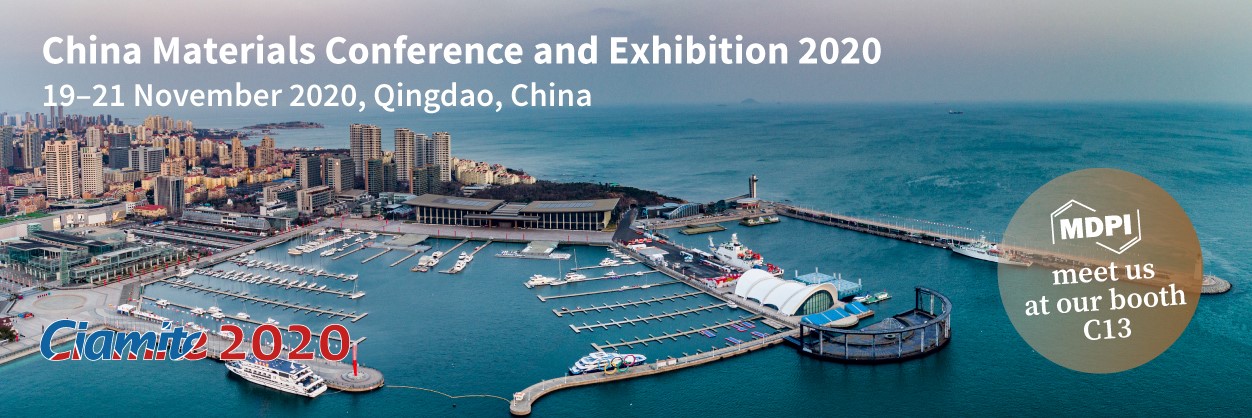
MDPI will be attending the China Materials Conference and Exhibition 2020, Qingdao, Shandong, China, November 19–21, 2020.
CMC's 19th annual meeting is the premier venue for the presentation in the field of materials sciences, where one can learn from experts, forge collaborations with peers, explore new tools and technologies, and advance their career.
The purpose of the conference is to build an exchange platform for experts, scholars, professors, scientific and technological workers, relevant government management departments and leaders, entrepreneurs, and related personnel, engaged in the scientific research, development, and industrialization of new materials in China to exchange and share the latest materials research achievements, in order to achieve the purpose of mutual promotion and common improvement.
There are many outstanding people in the committee of the meeting, such as Professor Boyun Huang and Academician Lian Zhou of the Chinese Academy of Engineering, Professor Bingbo Wei of the Chinese Academy of Sciences, etc. The following MDPI journals will be represented:
- Coatings (leading journal);
- Materials;
- Crystals;
- Energies;
- Molecules;
- Metals;
- Nanomaterials;
- Polymers.
- Actuators
- Sustainability
- Membranes
- Technologies
- Gels
- ASI
If you are also attending this conference, please feel free to stop by our booth (Booth C13). Our delegates look forward to meeting you in person to answer any questions you may have. For more information about the conference, please visit: http://cmc2020.medcon.net.cn/cn/web/index/
26 September 2020
Newly Appointed Section Editors-in-Chief of Polymers
We are glad to announce that the following Editorial Board Members have been appointed Section Editors-in-Chief of Polymers:
- Polymer Chemistry: Prof. Dr. Shin-ichi Yusa, University of Hyogo, Japan;
- Polymer Analysis: Prof. Dr. Giulio Malucelli, Politecnico di Torino, Italy;
- Polymer Physics: Prof. Dr. Vlasis Mavrantzas, University of Patras & FORTH-ICE/HT, Greece;
- Polymer Theory and Simulation: Prof. Dr. Martin Kröger, ETH Zurich, Switzerland;
- Polymer Processing and Performance: Prof. Dr. Francesco Paolo La Mantia, Università di Palermo INSTM, Italy;
- Polymer Applications: Prof. Dr. Hyeonseok Yoon, Chonnam National University, Korea;
- Biomacromolecules, Biobased and Biodegradable Polymers: Prof. Dr. Dimitrios Bikiaris, Aristotle University of Thessaloniki, Greece;
- Polymer Recycling: Prof. Francesco Paolo La Mantia, Università di Palermo INSTM, Italy;
- Polymer Composites and Nanocomposites: Prof. Dr. Miguel Ángel López Manchado, Instituto de Ciencia y Tecnología de Polímeros, Spain;
- Green and Sustainable Chemistry in Polymer Science: Prof. Dr. Antonio Pizzi, Université de Lorraine, France, and Prof. Dr. Frank Wiesbrock, PCCL - Polymer Competence Center Leoben GmbH, Austria;
We look forward to their leadership and their contributions to these sections. See more section details here.
9 July 2020
Open Access Agreement Between Jisc Collections and MDPI
We are delighted to announce the establishment of our Open Access agreement with Jisc Collections, which will allow UK institutions to benefit from access to article processing charge (APC) discounts and streamlined payment workflows.
All institutions participating in the agreement will also gain access to the MDPI online submission system where they can find full article metadata and pricing information for easy identification and additional transparency.
Eligible authors affiliated with the participating institutions are prompted to choose the corresponding Institutional Open Access Program (IOAP) when they submit an article via our online submission system.
About Jisc
Jisc's vision is for the UK to be the most digitally advanced education and research nation in the world. At its heart is the super-fast national research and education network, Janet, with built-in cyber security protection. Jisc also provides technology solutions for its members (colleges, universities and research centres) and customers (public sector bodies), helps members save time and money by negotiating sector-wide deals and provides advice and practical assistance on digital technology. Jisc is funded by the UK higher and further education and research funding bodies and member institutions.
For more information, contact helen.dobson@jisc.ac.uk.
About MDPI
MDPI is a publisher of fully peer-reviewed, Open Access journals with a focus on thorough and rapid editorial processing. Its aim is to ensure that high-quality research is verified and made available to the research community as quickly as possible. MDPI stands at the forefront of the Open Access movement, having launched its first online journal Molecules in 1996. Today, MDPI is a leader in Open Access publishing with over 250 journals across all research disciplines, and all content published under a Creative Commons Attribution License (CC BY).
For any questions about this agreement, please contact the MDPI IOAP team at ioap@mdpi.com.
13 May 2020
COVID-19 Academic Resources Center

Since 1996, MDPI has been committed to supporting the research community by providing the latest research freely available and making relevant and useful research available as quickly as possible. The world is current experiencing a pandemic of COVID-19, and researchers are working extremely hard to understand it and find a cure.
The values MDPI holds strongly are particularly important at the moment, and we will continue to publish relevant, peer-reviewed research as quickly as possible in open access format. This means that it will immediately be available for researchers, health professionals, and the general public to read, distribute, and reuse. We believe that scientific advancements will be crucial to overcoming this pandemic, and will do everything we can to support researchers working looking for solutions.
COVID-19 Academic Resources Center contains a variety of information related to COVID-19 available from MDPI, including journal articles, special issues, and preprints, among others.
For more information, please visit: https://www.mdpi.com/covid-19
23 April 2020
Polymers 2020 is postponed to 17–19 May, 2021

Dear Colleagues,
As the situation on the outbreak of COVID-19 is still uncertain, the organizer has made the decision to postpone Polymers 2020 to 17–19 May, 2021 in Turin, Italy (Polymers 2021). The pre-registered delegate to Polymers 2020 will automatically be transferred to Polymers 2021.
We are very grateful for the people who have been focusing on Polymers 2020 and hope that the epidemic will end soon and people will return to normal life. Looking forward to seeing you next summer in Turin.
If you have any questions, please feel free to contact us.
Email: polymersconference@mdpi.com
Prof. Francesco Trotta, Prof. Pierangiola Bracco, and Prof. Marco Zanetti
Polymers 2021 Chairs
9 April 2020
Free Open Platforms to Support Academics During the COVID-19 Pandemic

As a leading Open Access publisher, MDPI is committed to fostering open scientific exchange in all forms across all disciplines. Due to the outbreak of COVID-19, many researchers have to stay at home and many academic conferences have been cancelled or postponed. In light of these changes, MDPI has adopted numerous initiatives that may help accelerate scientific exchange and provide support to the academics during this period.
Scholarly Community—Encyclopedia
Encyclopedia is an online reference created and curated by active scholars. It aims to highlight the latest research results as well as providing benchmark information for researchers and the general public interested in accurate and advanced knowledge on specific topics.
Comprehensive and Free Literature Database—Scilit
Scilit is a comprehensive, free database for scientists that uses a new method to collate data and index scientific material. Our crawlers extract the latest data from CrossRef and PubMed on a daily basis. This means that newly published articles are immediately added to Scilit.
Display Academic Achievements—SciProfiles
SciProfiles is an innovative social network for researchers and scholars that is developed by MDPI. In line with our broad mission, the purpose of SciProfiles is to accelerate discovery and innovation by facilitating immediate access to research results and providing opportunities for academic networking.
Organize and Participate in Conferences Online—Sciforum
Sciforum is an event planning platform that supports open science by offering the opportunity to host and participate in academic conferences. It provides an environment for scholarly exchange, discussion of topics of current interest, building of networks, and establishing collaborations.
Post Early Versions of Research Outputs—Preprints
Preprints is a platform dedicated to making early versions of research outputs permanently available and citable. We post original research articles and comprehensive reviews, and papers can be updated by authors at any time. Content on Preprints is not peer-reviewed, and feedback can be received from readers.
***
MDPI remains committed to open science and open data and has signed a statement, along with more than thirty scholarly publishers, showing our intention to facilitate sharing of new research findings as early on as possible. The initiative sees publishers collectively removing barriers to new research, in the face of a global healthcare crisis.
25 March 2020
MDPI Comment on the COVID-19 Virus
The world is currently suffering from a global pandemic of the corona virus COVID-19. MDPI expresses its sympathies for all of those affected by the virus and stands in solidarity with medical staff and researchers treating patients and searching for scientific solutions.
MDPI has previously published papers covering corona viruses in addition to new papers on the current outbreak, see all papers here. In particular, Viruses has published a number of Special Issues and papers on the topic (see here, here, and here) as well as a forthcoming Special Issue.
Alongside journal articles, MDPI has been a strong supporter of preprints, which are increasingly being used to rapidly disseminate the latest research, and we run the preprint server Preprints.org. Our database of research articles, Scilit, is free to use and covers all publishers including preprint servers. New papers are often in search results within hours of publication and users can set up alerts for new papers.
Our main priority during this period has been the health and safety of staff, and we continue to allow staff to work at home and closely monitor the situation in all locations in which we work. Despite the restrictions, we continue to provide a full publication service and, by close collaboration with our editorial boards and making use our in-house teams, ensure that there are no unnecessary delays in publishing vital research. Fast and open publication has always been at the core of MDPI values and is now more important than ever.
We hope that a solution to the current situation will emerge soon. In the meantime, we will do our best to continue communicating vital research in all fields.
18 March 2020
MDPI Co-Signed Position Statement on Transformative Agreements
The advantages of the open access model of scientific publishing are being increasingly recognized in the scientific community. It allows new scientific evidence to be accessed from the moment of publication for free by anyone around the globe, boosting the impact of new research. In response, many funders, libraries and universities have been adopting new principles to accelerate the transition to open access.
Recently, “transformative agreements” have been negotiated between traditional publishers and various institutions. While increasing the number of open access papers, these agreements lack binding commitments to a full transition to open access, their conditions vary across different regions, and access is still limited for many users.
MDPI is a co-signatory of the recent position statement raising concerns about potential downsides of transformative agreements and how they may delay a full transition to open access. The statement highlights that these models “risk perpetuating current limitations on access, transparency and market competitiveness, while simultaneously facilitating excessive charges on the public purse”.
As a pioneering open access journal publisher, MDPI is the first to promote the importance of science being made available to everyone. Our peer-reviewed journals, covering diverse academic disciplines, are fully accessible to the public free of charge under a Creative Commons Attribution License (CC BY). This is why, along with other open access publishers, MDPI is a proud signatory of the position paper and is committed to contributing to the replacement of weak transitional agreements with “agreements with publishers that are already fully committed to open science and who offer full, immediate and transparent Open Access”.
Read the position paper here
16 March 2020
Encyclopedia Outstanding Contributor Awards 2020 - Open for Application
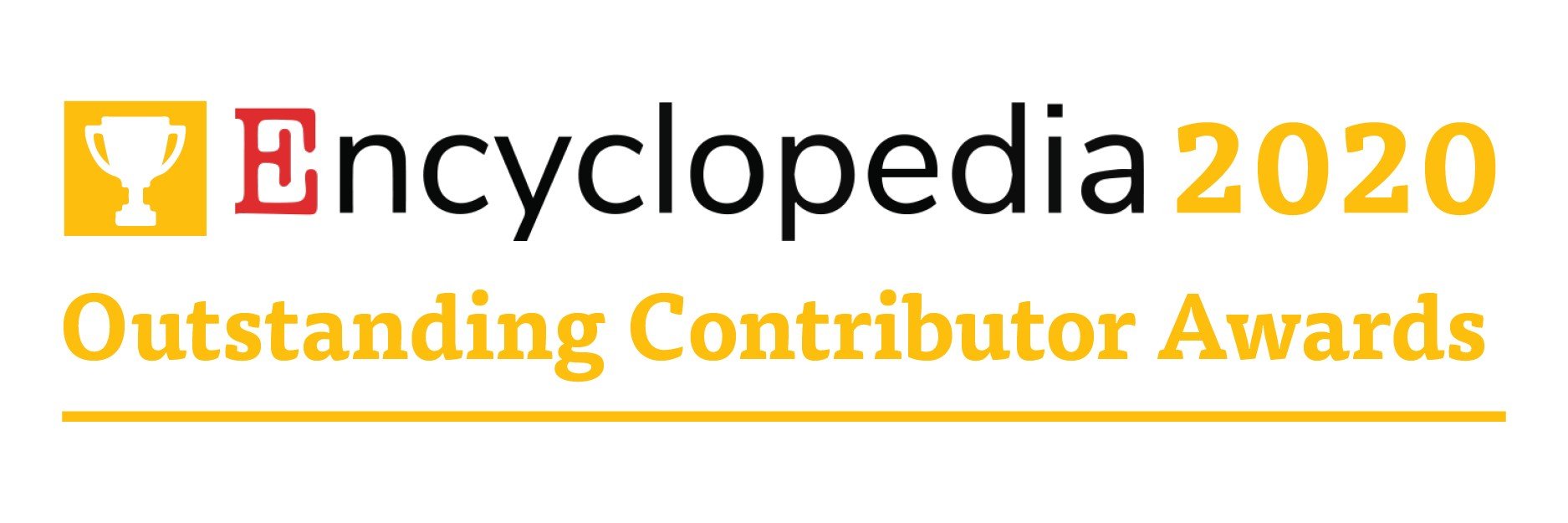
We are pleased to announce that Encyclopedia will be awarding five Outstanding Contributor Awards for researchers in 2020. The nominations and applications will be assessed by an Evaluation Committee consisting of senior scholars from the Encyclopedia Editorial Board.
Prize for Winners
- An official certificate;
- A cash award of 500 CHF or an MDPI discount voucher of 800 CHF.
Application Deadline
31 December, 2020 (Please send your application email with a list of all entries you contributed to our office before the deadline: office@encyclopedia.pub)
Candidate Requirements
- Have a Ph.D. degree;
- Have more than three qualified entries published in Encyclopedia in 2020.
Evaluation Standards
- Number of entries published in Encyclopedia in 2020;
- Quality of entries online (including length, figure quality, and novelty);
- Impact of entries (including the number of likes, discussion contents, views, and downloads).
If you are a researcher and have not yet contribute entries to Encyclopedia, please do not miss this chance to highlight your research results.
20 December 2019
Conference Polymers 2020 (3–5 June 2020, Turin, Italy)
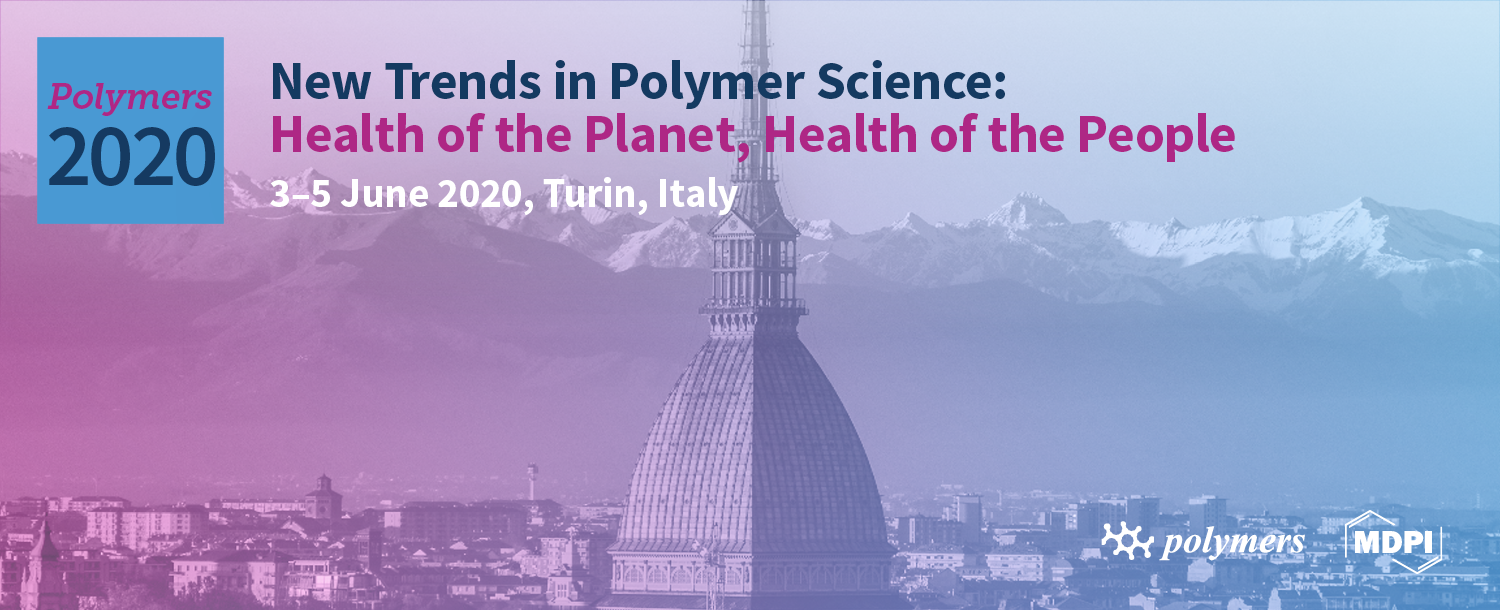
We are glad to announce that Polymers's 2nd physical conference Polymers 2020 (3–5 June 2020, Turin, Italy) has received the endorsement of IUPAC, and that our conference is open now for registration. We look forward to welcoming you at the conference in Turin!
For more details, please see link.
The purpose of the meeting is to bring together scientists from academia and industry to present leading-edge research on the advancements in polymer science and technology in all its main aspects, with a particular emphasis on those aiming to preserve and improve the health of the planet and of people, as per title. Both oral and poster contributions are welcome. The broad themes that will be addressed during the conference include synthesis, modification, and characterization of synthetic and natural polymers, polymers from green chemistry, polymer hybrids, nanocomposites, polymer biomaterials, polymers in drug delivery and tissue engineering, polymers for human health, bio-based and biodegradable polymers, polymer recycling and re-use, polymers for the environment, functional polymers, and polymers in energy, among others.
The conference follows the very successful meeting Polymers 2018: Polymers: Design, Function and Application held in March 2018, Barcelona, Spain.
11 October 2019
Introducing SciProfiles, an Academic Social Network
MDPI is pleased to announce the release of SciProfiles, its social network platform for researchers and scholars.
The purpose of SciProfiles is aligned with MDPI’s broad mission to accelerate discovery and innovation by facilitating immediate access to research results and to serve scholars and communities by providing opportunities for academic networking.
SciProfiles also ambitions to serve as a sustainable, transparent and community-driven research evaluation system aligned with the DORA principles (https://sfdora.org/). Through their scientific profiles, academics can highlight their contribution to research communities, and measure their impact on their field, beyond publication numbers and impact factors. SciProfiles is currently a beta version and will enrich to give researchers the possibility to highlight all of their contributions to science and their scientific communities as authors, reviewers, editors, conference organizers, conference panelists, conference keynote speakers, or even as lecturers or student mentors at their University.
The classic components of popular community social networks, including follower/following, classical metrics, endorsements and recommendations (https://www.mdpi.com/about/announcements/1690), comments (https://www.mdpi.com/about/announcements/1397) are or will be very soon highlighted in SciProfiles as open science contributions.
To help increase the impact and visibility of articles and their authors to an appropriate audience, the platform offers a NewsFeed that includes recommendations of relevant content based on interests, publication history, saved searches or colleagues’ recommendations.
SciProfiles’ avatars are now being integrated on several MDPI platforms, meaning that you will directly access researchers’ profiles from any of the MDPI platforms:
MDPI's journal publishing website: www.mdpi.com
MDPI's conference hosting and management website: www.sciforum.net
MDPI's pre-print website : www.preprints.org
MDPI's knowledge sharing website : www.encyclopedia.pub
MDPI's books store: www.mdpi.com/books
MDPI's literature database : www.scilit.net
SciProfiles aims to serve scientific communities at large. It can be embedded into third-party websites and also welcomes integration of data from third-parties.
Dr. Shu-Kun Lin: https://sciprofiles.com/profile/2
Dr. Franck Vazquez: https://sciprofiles.com/profile/FranckVazquez
Dr. Martyn Rittman: https://sciprofiles.com/profile/martynrittman
2 October 2019
Winners of the 2019 MDPI Writing Prize
We are delighted to announce the winners of the 2019 MDPI Writing Prize. Entrants were asked to write on the theme "Judging research: How should research and researchers be evaluated and rewarded?" We received a large number of excellent essays from PhD students and postdocs, and the process of shortlisting and choosing winners was not an easy one. The winners demonstrated excellent writing skills alongside interesting and thought-provoking ideas.
As last year, we will begin the process of collating all entries into a book that will be available in open access format. Alongside promoting good writing skills, we see the prize as a way to promote the voices of early career researchers within broader debates and policy discussions.
Congratulations to all of the participants and especially the winners. The winners are:
1st Prize (500 CHF):
Albin Nilsson (National Centre for Nuclear Research, Warsaw, Poland)
[Read here]
2nd Prize (250 CHF):
Qi Zhang (Shandong University, Jinan, China)
[Read here]
Igor Ogashawara (Indiana University, Indianapolis, US)
[Read here]
3rd Prize (100 CHF):
Margaret Sivapragasam (Universiti Teknologi Petronas, Perak, Malaysia)
[Read here]
Arvind Sharma (The University of Queensland, Gatton, Australia)
[Read here]
Jose Flores-Guerrero (University Medical Center Groningen, Groningen, The Netherlands)
[Read here]
The MDPI Writing Prize is an annual award supported by MDPI Author Services, which provides services including language editing, reformatting, plagiarism checks, and image editing.
20 September 2019
MDPI Now Gives Scholars the Possibility to Endorse and Recommend Articles

MDPI is pleased to announce the release of a new functionality giving the possibility for researchers and scholars to endorse, and formally recommend articles to their colleagues.
MDPI was an early signatory of the San Francisco Declaration on Research Assessment (https://sfdora.org/read/) which calls for improvement in how quality and impact of scholarly research outputs are evaluated, especially in moving beyond journal-based citation metrics (journal Impact Factor, Scopus Citescore, etc.).
MDPI supports the establishment of article-level impact metrics, including citations, views, downloads, and Altmetric scores. These measures serve as an impact indicator for research articles on a case–by-case basis, assessing paper on its own merit. However, these metrics are also subjective and can give a biased picture of the article impact: they do not directly reflect the quality or the intrinsic scientific value of the article.
In our view, community engagement with publications based on community-driven metrics can help to overcome this limitation. We have therefore launched an option for scholars to endorse articles, indicating their own assessment of its content and making a recommendation to their community. This follows our implementation of the open source Hypothesis commenting tool, which has been available for all articles published by MDPI for over a year (https://www.mdpi.com/about/announcements/1397). Both endorsement and commenting are available for all previously published and forthcoming MDPI articles.
In addition to potentially serving as a sustainable solution to article assessment, endorsements will help scientific communities to identify the most relevant articles, independently of the journal in which it was published.
The code for the endorsing functionality, which relies on DOIs and ORCIDs, will be made available on GitHub with an open source license.
Dr. Shu-Kun Lin, President and Founder
Dr. Franck Vazquez, Chief Scientific Officer
Dr. Martyn Rittman, Publishing Director
11 September 2019
Create an Entry in Encyclopedia to Get a 100 CHF Voucher in Publishing in MDPI Journals
Encyclopedia is a free online reference created and curated by active scholars. It aims to highlight the latest research results as well as provide a comprehensive record of scientific development. If you have any suggestions or questions, please feel free to contact us via office@encyclopedia.pub.

6 August 2019
Preprints Reaches 10,000 Posted Articles Milestone
We are pleased to announce that Preprints has passed the milestone of 10,000 posted preprints. We are delighted to have reached this after just over three years of operation. Our congratulations and thanks go to our authors and advisory board who have supported growth of the platform and been crucial to its operation.
You can find further details at https://www.preprints.org/announcement/show/37.
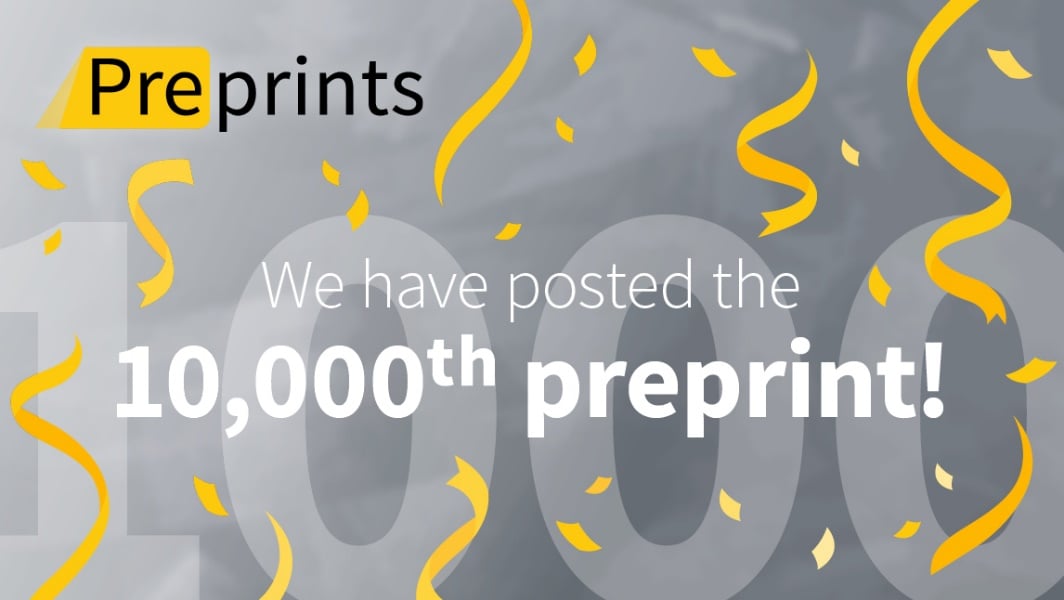
2 August 2019
DeepGreen Partnering with Publishers and Universities in Distributing Open Access Content to Institutional Repositories
Last week, the DeepGreen initiative in Germany started into an advanced test phase with the publishing partners S. Karger AG, SAGE Publishing, MDPI, Frontiers and De Gruyter, as well as 27 universities from all over Germany, from Hamburg University of Applied Sciences to University of Konstanz.
DeepGreen aims at lowering the barriers for open access publishing by automatically delivering metadata and full text publications from participating publishers to authorized repositories at German universities.
In preparation for a later live operation, the advanced test phase serves to gain experience with extensive data deliveries from publishers and also handling different repository software (including OPUS4, DSpace, EPrints, MyCoRe). DeepGreen thereby acts as a sophisticated platform, receiving articles published by authors affiliated with German universities and depositing these articles to respective university repositories, based on the affiliation metadata. For more information about DeepGreen: https://deepgreen.kobv.de
Karger AG has been a close cooperation partner of the DeepGreen consortium since 2016. S. Karger has more than 80 subscription-based and around 20 open access journals covering a wide spectrum in health science. DeepGreen will assign S. Karger articles to authorized institutions on the legal basis of German alliance and national licenses.
SAGE Publishing was founded by Sara Miller McCune in 1965 to support the dissemination of usable knowledge and educate a global community. SAGE publishes more than 1,000 journals and over 600 new books each year, spanning a wide range of subject areas. Our growing selection of library products includes archives, data, case studies and video. SAGE remains majority owned by our founder and after her lifetime will become owned by a charitable trust that secures the company’s continued independence. Principal offices are located in Los Angeles, London, New Delhi, Singapore, Washington DC and Melbourne. SAGE Publishing has been a close cooperation partner of DeepGreen since 2016.
MDPI is a scientific open access publisher and has been a partner of DeepGreen since 2017. MDPI comprises 205 peer-reviewed journals of various disciplines. All articles are published under a CC-BY license and are freely available without embargo period.
Frontiers is a scientific open access publisher with 61 journals of over 600 academic disciplines. All articles are peer-reviewed and published freely available under CC-BY license.
De Gruyter is an academic publisher with more than 700 subscription-based and open access journals of 29 disciplines. Articles provided by De Gruyter will be assigned to institutions with German alliance and national licenses.
There is promising communication with other publishers.
DeepGreen is funded by the German Research Foundation (DFG) and the consortium comprises six institutions: the Cooperative Library Network Berlin-Brandenburg, Bavarian State Library, Bavarian Library Network, University Library of the Technische Universität Berlin, University Library of Erlangen-Nuremberg and the Helmholtz Open Science Coordination Office at the GFZ German Research Centre for Geosciences.
If you would like to know in more detail which institutions take part in the advanced test phase of DeepGreen, you can find more information here.
17 July 2019
First Basel Sustainable Publishing Forum
The University of Basel and the MDPI Sustainability Foundation are organizing the First Basel Sustainable Publishing Forum on 9th September 2019.
The aim of this event is to provide background and perspectives on Plan S to Learned Societies, which have to make well-informed decisions to transition their journals to Open Access (OA).
The BSPF will bring together several representatives of Learned societies, Plan S architects as well as representatives from various publishers and publishing platforms. After getting the big picture from cOAlition S, panel discussions will allow to better understand the diverse challenges that Learned societies are facing to transition their journals to OA as well as to identify sustainable, implementable and scalable solutions for successful Open Access transition.
For program details and registration, please follow the link below:
https://sciforum.net/conference/SustainableSolutionsToOpenAccess
27 June 2019
Meet Us at the 14th European Congress on Catalysis in Aachen, Germany, 18–23 August 2019

MDPI will be attending the 14th European Congress on Catalysis in Aachen, Germany, 18–23 August 2019
14th European Congress on Catalysis and the location will provide a splendid opportunity to discuss scientific progress, to explore novel technologies and to enjoy hospitality in the Euregio under the motto “Catalysis without Borders”.
The following MDPI journals will be represented:
If you are also attending this conference, please feel free to stop by our booth (Booth #G2). Our delegates look forward to meeting you in person to answer any questions you may have. For more information about the conference, please visit: http://europacat2019.eu/.
20 June 2019
Polymers Receiving 2018 Updated Impact Factor of 3.164
We are pleased to inform that Polymers received an updated Journal Impact Factor of 3.164 in the recent release of the Journal Citation Reports®. The journal's 5-Year Impact Factor is 3.542. Polymers now ranks 17/87 (Q1) in the category 'Polymer Science.'
Evolution of Impact Factor, Citations and Publications for Polymers:
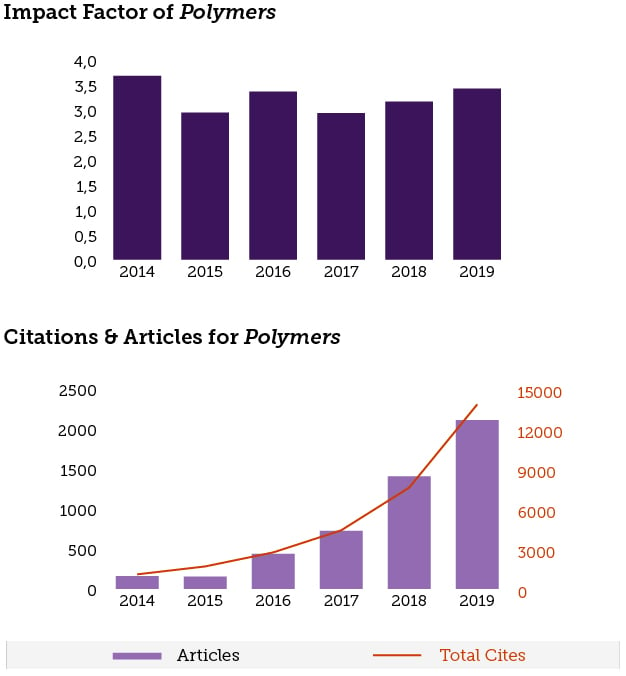
Source: data according to Journal Citation Reports®, 2018 release, a Clarivate Analytics product.
19 June 2019
Meet Us at EUROMAT 2019 in Stockholm, Sweden, 1–5 September

MDPI will be attending the European Congress and Exhibition on Advanced Materials and Processes (EUROMAT 2019) in Stockholm, Sweden on 1–5 September 2019.
EUROMAT is the premier international congress in the field of materials science and technology in Europe. The visions of EUROMAT2019 are to:
- Facilitate a programme where academia, research institutes and industry can meet and exchange ideas and provide information on the latest scientific development in
- Promote involvement of top universities and researchers in materials science including special contribution from large scale facilities like MAXIV in Lund
- Demonstrate efficient knowledge transfer between research and its application through the active involvement of research institutes in Sweden like RISE and Swerea
The following MDPI journals will be represented:
Materials
Metals
Catalysts
Nanomaterials
Processes
Polymers
Molecules
JFB
Sustainability
Coatings
Inorganics
If you are also attending this conference, please feel free to stop by our booth (#BrB1) in Norra Latin - The Marble Vault. Our delegates look forward to meeting you in person to answer any questions you may have. For more information about the conference, please visit: https://euromat2019.fems.eu/.
18 June 2019
Meet Us at the 21st European Symposium on Organic Chemistry in Vienna, Austria, 14–18 July 2019

We will be attending the The 21st European Symposium on Organic Chemistry. Since its first edition in 1979, the biannual ESOC conference has developed into the flagship event for the Organic Chemistry community in Europe and beyond. Representatives of the following open access journals will attend:
Molecules
Chemistry
Molbank
Marine Drugs
Polymers
Coatings
Catalysts
Materials
Processes
If you are also attending this conference, please feel free to stop by our booth (Booth #25). Our delegates look forward to meeting you in person to answer any questions you may have. For more information about the conference, please visit: http://esoc2019.conf.tuwien.ac.at/welcome/.
9 April 2019
Polymers (ISSN 2073-4360) Now in PubMed and PubMed Central
20 March 2019
Fostering Open Access Publishing Worldwide: New IOAP Participants in February and March 2019
We are pleased to welcome more universities from Poland, Italy, Germany, Brazil and other parts of the world to MDPI's Institutional Open Access Program (IOAP). A warm welcome to the institutions listed below, who have joined the Program in February and March this year.
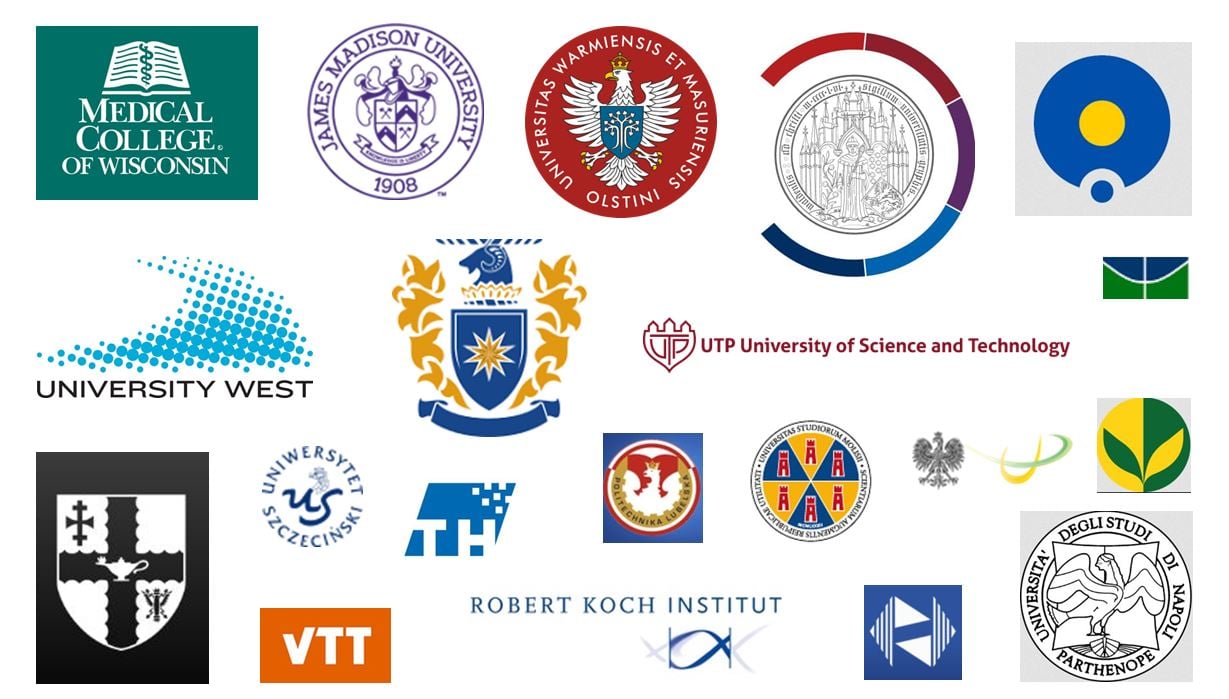
Authors affiliated with these institutions can now enjoy a discount on the APC for papers accepted for publication in any MDPI journal. If you would like to learn more about our program, please visit: https://www.mdpi.com/about/ioap or email us at ioap@mdpi.com.
5 March 2019
MDPI Joins Jisc’s Publications Router Service
We are delighted to announce our participation in Jisc’s Publication Router project, as of March 2019.
Publications Router is a Jisc service that automatically sends notifications about research articles to institutions' systems such as their repositories or CRISs, since May 2015. Through this agreement, MDPI will provide Jisc with daily feeds and information regarding published articles, which will be gathered by their system and delivered to institutions also registered to this service. Nearly all of our articles are published within 15 days of acceptance, so institutions will receive them quite promptly.
The feed will include the full text of the published version of record, with no embargo, so the articles can be exposed immediately for public view. They are accompanied by rich metadata, including confirmation of the immediate CC BY licence, minimising the need for any manual intervention or checking.
For more information about Publications Router, you may contact Jisc’s central helpdesk at help@jisc.ac.uk. For any queries about MDPI’s institutional agreements and collaborations, you may get in touch with MDPI’s Institutional Engagement team at ioap@mdpi.com, which would be very happy to hear from further UK institutions.
1 February 2019
2018 MDPI Top Reviewer Award—Winners Announced
Rigorous peer-review is the cornerstone of high quality academic publishing. Over 97,000 scholars served as reviewers for MDPI journals in 2018. We are extremely appreciative of all those who made a contribution to the editorial process in this capacity. At the beginning of every year, journal editorial offices publish a list all reviewers’ names to express our gratitude. In addition, this year the “MDPI Top Reviewer Awards” are announced, to recognize the very best reviewers for their expertise, dedication, high quality, and timely review reports. We are pleased to announce the following winners of the 2018 MDPI Top Reviewer Awards:
- Ali Behnood
- Andrea Pezzuolo
- Angela Gorgoglione
- Anna D'Auria
- Antonio D'Andrea
- Azhar Abbas
- Bogdan Zagajewski
- Chunhui Chen
- Dominika Głąbska
- Dominika Guzek
- Dragan Pamucar
- Francisco J. G. Silva
- Frank Li
- Gianluca Serafini
- Gyorgy Szekely
- Haozhi Pan
- Helvi Heinonen-Tanski
- José Manuel Gómez-Soberón
- Kathy Lewis
- Klara Kosova
- Luis N. López De Lacalle
- M. Z. Naser
- Malwina Tytła
- Masoume Amirkhani
- Matteo Ghidelli
- Moretti Laura
- Petra Schneider
- Roberto Cerchione
- Spyros Papaefthymiou
- Ştefan Cristian Gherghina
24 January 2019
JAMS Journals: A Low-Cost Publishing Platform

Since 2010, MDPI has run its own online submission system. More recently, we have made the software, with accompanying publishing services, available to other publishers as JAMS (Journal and Article Management System). We are now delighted to announce the launch of JAMS Journals, a standardized platform for operating open access journals at low cost.
JAMS Journals provides a comprehensive service, including a shared submission website, journal websites hosted at a URL provided by the publisher, and a full production service. There is a small setup fee and the cost for each published paper is just a few hundred Swiss francs.
The platform demonstrates that running an open access journal can be straightforward and affordable. The JAMS Journals platform is suitable for
- small publishers or groups of scholars looking to launch their own journal;
- existing publishers or societies seeking to explore open access options;
- publishers looking to convert an existing subscription journal to open access.
JAMS journals launches with two journals from Canadian-based publisher Etcetera Publications:
- Canadian Journal of Pesticides & Pest Management (http://www.cjppm.ca)
- Nanotechnology in Agriculture, Food & Environment (http://www.nanoafe.ca)
Dr AJ Al-Rajab (President of Etcetera Publications) comments:
“In the past few months, we were working on our project to launch new open access scientific journals in the field of agricultural and environmental sciences. We decided to go with JAMS for this venture because of the high quality of their services, reasonable prices, professionalism and easy communication. Our portfolio is expected to grow rapidly during 2019 to include more titles covering different areas in agriculture and environment. MDPI earned already our complete satisfaction and we are looking for a long term cooperation.”
Alongside the new platform, we continue to provide flexible, tailored journal management solutions for existing publishers. For any questions or to request a quotation, contact Dr. Constanze Schelhorn (constanze.schelhorn@mdpi.com).
24 January 2019
Popularity of Preprints Continues to Grow

2018 was a great year for preprints, with increasing numbers of authors looking to make their papers available online before peer review. Along with other preprint servers, our platform Preprints.org saw an increase in the uptake from authors, and more than double the number of announced papers compared to 2017. In fact, we recently passed two important milestones: 8000 preprints online and 30,000 authors.
We believe that the whole research community has the opportunity to benefit from work being available online as early as possible. We thank and congratulate our authors for supporting us to make this goal a reality.
In 2019, we will be looking carefully at how to provide better value for authors, maintain efficiency while growing in size, and make sure we remain well-connected with the research community.
If you want to participate, you can consider screening preprints or joining our advisory board. And, of course, posting your own work.
9 January 2019
Open Access Agreement between the Austrian Academic Library Consortium (KEMÖ), the Austrian Science Fund (FWF), and MDPI

We are delighted to announce the establishment of our national Open Access agreement with the Austrian Academic Library Consortium (KEMÖ) and the Austrian Science Fund (FWF). Through this national agreement, the Austrian institutions listed below as well as FWF will cover the Article Processing Charges (APC) of manuscripts published by eligible corresponding or funded authors in MDPI journals as long as central funds are available.
All participating institutions have gained access to the MDPI online submission system where they can find full article metadata and pricing information as well as Funder and Grant ID details for easy identification and additional transparency. At the same time eligible authors are benefited from an APC discount which comes at no cost for the institutions.
Eligible corresponding authors affiliated with the participating institutions are prompted to choose the corresponding Institutional Open Access Program (IOAP) when they submit an article via our online submission system. The program will be selected automatically if authors submit their papers using their institutional email address. To claim their discount, FWF funded authors should choose the particular funder and add their Grant ID upon online submission of their manuscript. The institutions will then crosscheck the information and confirm the APC funding.
Eligible authors that have their APC covered by their institution or funder are advised to include the following sentence in their acknowledgments: "Open Access Funding by the [name of the institution/funder]".
The full text of the agreement is openly available online at: http://doi.org/10.5281/zenodo.2536007
For any questions about the agreement, please contact the KEMÖ Consortium at emedien@obvsg.at, FWF at Katharina.Rieck@fwf.ac.at, or the MDPI IOAP team at ioap@mdpi.com.
The Austrian institutions participating in this agreement are:
- Austrian Science Fund (FWF)
- University for Continuing Education Krems
- University of Applied Sciences BFI Vienna
- University of Applied Sciences Upper Austria
- University of Applied Sciences Technikum Wien
- Vorarlberg University of Applied Sciences
- International Institute for Applied Systems Analysis (IIASA)
- Institute of Science and Technology Austria
- MCI Management Center Innsbruck
- University of Graz
- University of Linz
- University of Salzburg
- Graz University of Technology
- TU Wien
- University of Veterinary Medicine Vienna
- University of Vienna
This is our first collective agreement with a national library consortium, while the individual institutions around the world participating in our IOAP are now more than 500 - see details here: https://www.mdpi.com/about/ioap. We would be mostly interested in discussing about possible collaborations with other consortia, funders, and institutions in our mutual efforts to accelerate Open Access.
2 January 2019
Encyclopedia—the Scholarly Community Encyclopedia

We are pleased to announce the new platform Encyclopedia, which is an online reference created and curated by active scholars. It aims to highlight the latest research results as well as providing benchmark information for researchers and the general public interested in accurate and advanced knowledge on specific topics.
We encourage authors of review articles to quote and adapt the content of their published papers to create Encyclopedia entries. You can create completely new entries on topics in which you have knowledge and expertise. There is no limit on the topics or research fields. All of science and the humanities are included. Each entry will be published directly after submission.
We also have prepared a DOI application function in Encyclopedia. Once a DOI application is approved, the entry website will announce the DOI number and a pdf version with DOI information will be automatically created.
We look forward to your contributions and hope you will make use of this service. Find more about the service at: https://encyclopedia.pub/
30 October 2018
Institutional Open Access Agreement between Bill and Melinda Gates Foundation and MDPI
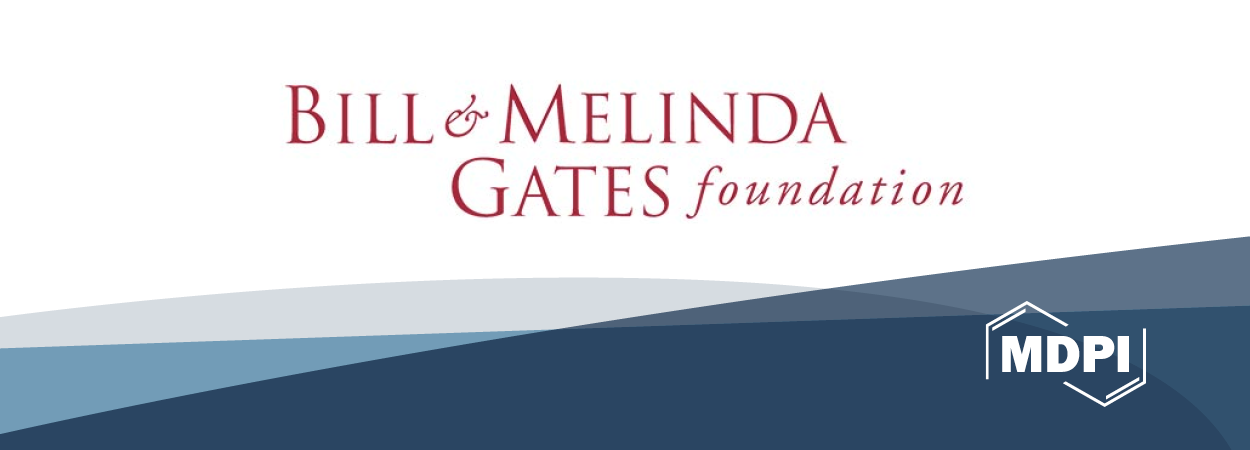
We are delighted to announce that the Bill and Melinda Gates Foundation (BMGF) is now a participant of our Institutional Open Access Program (IOAP). Authors funded by the BMGF can enjoy discounts on the APC, while the funder covers the costs of eligible articles centrally. BMGF also has access to the MDPI online submission system where they can find full article metadata and pricing information as well as Grant ID details for easy identification and additional transparency.
We hope that funded authors find the programme beneficial and we are happy to offer our IOAP to other funders that need a streamlined workflow of compliance checking and APC coverage.
To claim their discount, BMGF funded authors should choose the particular funder and add their Grant ID upon online submission of their manuscript.
For any questions about the BMGF agreement, please contact the funder at support@chronos-oa.com or the MDPI IOAP team at ioap@mdpi.com.
24 October 2018
Call for Expression of Interest in Hosting the Polymers Conference
The Polymers Steering Committee seeks Expressions of Interest (EoI) from universities, organizations or individual scholars to host an edition of the Polymers Conference Series. There is no restriction in the geographic areas considered.
What is Polymers?
Polymers: Design, Function and Application (PDFA) is a conference series dedicated to bring together scientists and leaders from different areas to discuss important recent developments and ideas of cutting-edge research at the interface of design/function or function/application of polymers .
The First Polymers conference was held in 2018 in Barcelona, Spain. With its focus on function- and application-driven polymer research, this conference addressed the development and testing of the next generation of polymeric materials with previously unrivaled properties for advanced applications. You can find a brief summary of the first edition here.
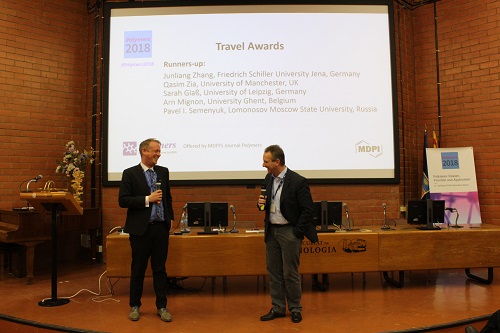
Please note that the follow-on editions will not be restrained to the topics discussed in previous editions and, therefore, new and different topics within the polymers field are sought.
Important Dates
The Polymers conference is organized every two years. The Polymers Steering Committee is accepting EoIs to organize editions from 2020 onwards.
Facts
Bidders must have the facility to organize and host a three-day symposium for 200–300 participants including:
- Easy access to the symposium venue and the capability to offer a wide range of services, such as catering, WLAN and internet services, organization of social events.
- Ability to cover all costs with registration fees and sponsoring.
Expression of Interest Instructions
- EoI must be submitted to EoI@mdpi.com by 30 November 2018
- The length of the application should not exceed two A4 pages and should include:
- Name(s) of the bidder(s), contact details and a short biography
- Name of the planned venue (city and infrastructure)
- Proposed dates for the conference
- Proposed topics for the conference
2 October 2018
MDPI Welcomes Plan S
Recently, it was announced that a group of European funders supported 10 principles that will help to expand open access, known as Plan S. MDPI warmly welcomes this move as a step towards achieving more open and accessible communication of research across all disciplines. Some aspects remain to be clarified, however the details given so far match the aims and values that MDPI has held over the past two decades.

We believe that open access publishers should be active participants in discussions around Plan S, particularly regarding potential new business models and practical aspects of implementation. MDPI supports APCs as a transparent unit of payment for article publishing, however we are committed to exploring other measures and recently signed the Jussieu Call. Sustainability is a key value for MDPI, and future funding models should have at their heart the sustainability of knowledge and research dissemination. Plan S provides an opportunity for funders and publishers to directly discuss funding of open access journals in ways that are beneficial to all parties involved.
5 September 2018
Meet Us at MRS Fall Meeting in Boston, USA, 25–30 November 2018

MDPI will be attending 2018 MRS Fall Meeting & Exhibit, to be held in Boston, USA, 25–30 November 2018.
This conference is the key forum to present research to an interdisciplinary and international audience. It provides a window on the future of materials science and offers an opportunity for researchers—from students and postdoctoral fellows, to Nobel and Kavli Prize Laureates—to exchange technical information and network with colleagues.
The following MDPI journals will be represented:
- Materials
- Polymers
- Energies
- Nanomaterials
- Metals
- Journal of Functional Biomaterials (JFB)
- Processes
- Sensors
- Sustainability
- C
- Journal of Manufacturing and Materials Processing (JMMP)
- Biomimetics
- Methods and Protocols (MPs)
If you are also attending this conference, please feel free to stop by our booth (Booth #123). Our delegates look forward to meeting you in person to answer any questions you may have. For more information about the conference, please visit: https://www.mrs.org/fall2018
30 August 2018
MDPI establishes Open Access agreement with Qatar National Library

We are happy to announce the establishment of an Open Access (OA) agreement with Qatar National Library (QNL). QNL is committed to supporting and helping Qatar authors publish OA at no cost. Through this national agreement, QNL will cover the Article Processing Charges (APC) of manuscripts published by Qatar-based corresponding authors in MDPI journals.
Eligible corresponding authors affiliated with Qatar research centers and universities are prompted to choose QNL as part of our Institutional Open Access Program (IOAP) when they submit an article via our online submission system. The program will be selected automatically if authors submit their papers using their institutional email and/or a computer registered with the institution’s IP range. QNL will then crosscheck the information and confirm the APC funding.
Qatar authors that have their APC covered by QNL are advised to include the following sentence in their acknowledgments: "The publication of this article was funded by Qatar National Library".
For more information, please visit Open Access at QNL or email the QNL Open Access team at openaccess@qnl.qa.
26 June 2018
2017 Impact Factor Released for Polymers: 2.935
We are pleased to inform that Polymers received an updated Journal Impact Factor of 2.935 in the June 2018 release of the Journal Citation Reports®. The journal's 5-Year Impact Factor is 3.509. Polymers now ranks 19/87 (Q1) in the category 'Polymer Science.'
Overview of Citation Metrics:
- Journal Impact Factor, 2 yrs (2017): 2.935
- 5-Year Impact Factor (2017): 3.509
- CiteScore, 3 yrs (Scopus): 3.30
- SJR Scimago Journal Rank 2017(SJR): 0.852
- Source Normalized Impact 2017 (SNIP): 1.213
Evolution of Impact Factor, Citations and Publications for Polymers:

Source: data according to Journal Citation Reports®, 2018 release, a Clarivate Analytics product; and Scopus journal metrics.
1 June 2018
Polymers 2017 CiteScore™ Announced - 3.30
We are pleased to report Polymers received a CiteScore of 3.30 for 2017. The metric reflects citation activity in 2017 in Scopus for papers published in the period 2014‒2016.
For the full details in the current CiteScore release, please see the journal's Source profile. To check the full list of MDPI journals receiving CiteScores, please see here.
31 May 2018
2017 CiteScore™ Metrics Released
The 2017 CiteScore™ data is available now, based on citation data in the Scopus® database. The current CiteScore reflects citation activity in 2017 for articles published in 2014‒2016. Please note that the list below includes journals assigned a CiteScore in this year’s release. For a full list of journals indexed in Scopus, please see our journal list.
Thirteen of our journals received a CiteScore which is in the top 10% of the distribution in at least one of the categories (marked with * in the table below), while a further 32 journals exhibit scores that are in the first quartile of the respective categories.
To access the full data for MDPI journals, please see here. More data can also be found in SJR Scimago Journal & Country Rank.
Unlike CiteScores and the widely used Journal Impact Factors, the Source Normalized Impact per Paper (SNIP) metrics are normalized in order to correct for differences in citation practices between scientific fields. Therefore, the SNIP allows direct comparison between journals specialized in different fields.
According to 2017 data, MDPI publishes six journals with an average citation impact, or SNIP, in excess of 1.500. These journals are Biomolecules, Cancers, Journal of Clinical Medicine (JCM), Marine Drugs, Remote Sensing and Sensors (see the last column in the table below).
CiteScore Data for MDPI Journals
| Journal | Rank (Quartile) |
Category | Link | CiteScore 2017 | 2016 |
2015 |
SNIP 2017 |
| Aerospace | 43/116 (Q2) | • Aerospace Engineering | Link | 1.23 | - | - | 1.152 |
| Agriculture | 69/309 (Q1) 91/398 (Q1) 78/255 (Q2) |
• Agronomy and Crop Science • Plant Science • Food Science |
Link | 1.93 | - | - | 1.133 |
| Agronomy | 46/309 (Q1) | • Agronomy and Crop Science | Link | 2.38 | - | - | 1.115 |
| Algorithms | 22/46 (Q2) 61/125 (Q2) 60/107 (Q3) 64/114 (Q3) |
• Numerical Analysis • Computational Mathematics • Computational Theory and Mathematics • Theoretical Computer Science |
Link | 1.03 | 1.15 | 1.07 | 0.749 |
| Animals | 12/154 (Q1) * 48/367 (Q1) |
• General Veterinary • Animal Science and Zoology |
Link | 2.02 | 1.46 | 1.66 | 1.099 |
| Antibiotics | 6/68 (Q1) * 62/263 (Q1) 55/230 (Q1) 31/108 (Q2) 47/134 (Q2) 139/398 (Q2) |
• General Pharmacology, Toxicology and Pharmaceutics • Infectious Diseases • Pharmacology (medical) • Microbiology (medical) • Microbiology • Biochemistry |
Link | 2.85 | 1.65 | - | 0.975 |
| Antibodies | 43/143 (Q2) 61/164 (Q2) 85/189 (Q2) |
• Drug Discovery • Immunology and Allergy • Immunology |
Link | 2.85 | - | - | 0.844 |
| Antioxidants | 23/119 (Q1) 35/169 (Q2) 100/398 (Q2) 119/367 (Q2) 102/264 (Q2) |
• Clinical Biochemistry • Physiology • Biochemistry • Molecular Biology • Cell Biology |
Link | 3.42 | - | - | 1.361 |
| Applied Sciences | 48/270 (Q1) 15/66 (Q1) 31/116 (Q2) 18/53 (Q2) 151/434 (Q2) 186/535 (Q2) |
• General Engineering • Fluid Flow and Transfer Processes • Instrumentation • Process Chemistry and Technology • General Materials Science • Computer Science Applications |
Link | 1.90 | - | - | 0.801 |
| Biology | 12/177 (Q1)* 32/186 (Q1) 10/40 (Q1) |
• General Agricultural and Biological Sciences • General Biochemistry, Genetics and Molecular Biology • General Immunology and Microbiology |
Link | 3.48 | 3.02 | 2.78 | 0.961 |
| Biomolecules | 31/398 (Q1) * 41/367 (Q1) |
• Biochemistry • Molecular Biology |
Link | 5.72 | 1.67 | 3.08 | 1.542 |
| Biosensors | 20/119 (Q1) | • Clinical Biochemistry | Link | 3.59 | 2.83 | 2.37 | 1.122 |
| Brain Sciences | 47/111 (Q2) | • General Neuroscience | Link | 2.56 | - | - | 0.695 |
| Cancers | 26/323 (Q1) * 23/191 (Q1) |
• Oncology • Cancer Research |
Link | 5.82 | 5.02 | 4.07 | 1.567 |
| Catalysts | 32/151 (Q1) 21/46 (Q2) |
• Physical and Theoretical Chemistry • Catalysis |
Link | 3.23 | 3.44 | 3.45 | 0.954 |
| Crystals | 76/272 (Q2) 140/434 (Q2) 127/398 (Q2) 26/64 (Q2) |
• General Chemical Engineering • General Materials Science • Condensed Matter Physics • Inorganic Chemistry |
Link | 1.97 | 1.89 | 1.47 | 0.745 |
| Diagnostics | 49/119 (Q2) | • Clinical Biochemistry | Link | 2.43 | - | - | 0.788 |
| Diversity | 30/124 (Q1) 14/52 (Q2) 83/306 (Q2) 11/29 (Q2) |
• Nature and Landscape Conservation • Agricultural and Biological Sciences (miscellaneous) • Ecology • Ecological Modelling |
Link | 2.15 | 2.03 | 1.96 | 1.300 |
| Electronics | 109/644 (Q1) 26/148 (Q1) 42/224 (Q1) 50/259 (Q1) 23/96 (Q1) |
• Electrical and Electronic Engineering • Hardware and Architecture • Control and Systems Engineering • Computer Networks and Communications • Signal Processing |
Link | 2.97 | - | - | 1.227 |
| Energies | 6/73 (Q1) * 31/192 (Q1) 103/644 (Q1) 4/16 (Q1) 47/140 (Q2) |
• Control and Optimization • Energy Engineering and Power Technology • Electrical and Electronic Engineering • Energy (miscellaneous) • Renewable Energy, Sustainability and the Environment |
Link | 3.11 | 2.50 | 2.87 | 1.340 |
| Entropy | 35/202 (Q1) | • General Physics and Astronomy | Link | 2.41 | 1.87 | 1.99 | 1.189 |
| Forests | 17/129 (Q1) | • Forestry | Link | 2.31 | 2.06 | 1.76 | 0.990 |
| Future Internet | 132/259 (Q3) | • Computer Networks and Communications | Link | 1.25 | - | - | - |
| Games | 132/187 (Q3) 78/110 (Q3) 305/418 (Q3) |
• Statistics and Probability • Statistics, Probability and Uncertainty • Applied Mathematics |
Link | 0.61 | 0.87 | 0.57 | 1.038 |
| Genes | 21/91 (Q1) 74/311 (Q1) |
• Genetics (clinical) • Genetics |
Link | 3.49 | 3.62 | 3.18 | 0.374 |
| Geosciences | 32/182 (Q1) |
• General Earth and Planetary Sciences | Link | 1.97 | 1.67 | 1.29 | 0.856 |
| Information | 143/251 (Q3) | • Information Systems | Link | 1.16 | 0.78 | 0.94 | 1.146 |
| Insects | 27/135 (Q1) | • Insect Science | Link | 1.85 | 1.81 | 1.38 | 0.719 |
| International Journal of Environmental Research and Public Health (IJERPH) | 80/478 (Q1) 34/106 (Q2) |
• Public Health, Environmental and Occupational Health • Health, Toxicology and Mutagenesis |
Link | 2.41 | 2.38 | 2.42 | 0.931 |
| International Journal of Molecular Sciences (IJMS) | 7/69 (Q1) * 61/535 (Q1) 20/163 (Q1) 9/64 (Q1) 26/151 (Q1) 89/367 (Q2) 17/46 (Q2) |
• Spectroscopy • Computer Science Applications • Organic Chemistry • Inorganic Chemistry • Physical and Theoretical Chemistry • Molecular Biology • Catalysis |
Link | 3.86 | 3.73 | 3.37 | 0.998 |
| ISPRS International Journal of Geo-Information (IJGI) | 79/605 (Q1) 22/82 (Q2) 13/36 (Q2) |
• Geography, Planning and Development • Earth and Planetary Sciences (miscellaneous) • Computers in Earth Sciences |
Link | 2.10 | 1.62 | 1.52 | 1.062 |
| Journal of Clinical Medicine (JCM) | 10/841 (Q1) * | • General Medicine | Link | 7.07 | - | - | 1.535 |
| Journal of Functional Biomaterials (JFB) | 43/199 (Q1) 23/77 (Q2) |
• Biomedical Engineering • Biomaterials |
Link | 3.47 | - | - | 1.344 |
| Journal of Low Po- wer Electronics and Applications (JLPEA) |
301/644 (Q2) | • Electrical and Electronic Engineering | Link | 1.12 | 0.98 | 0.83 | 0.367 |
| Journal of Personalized Medicine (JPM) | 54/189 (Q2) | • Medicine (miscellaneous) | Link | 2.61 | - | - | 0.944 |
| Land | 50/124 (Q2) 129/306 (Q2) 36/65 (Q3) |
• Nature and Landscape Conservation • Ecology • Global and Planetary Change |
Link | 1.44 | - | - | 0.658 |
| Life | 4/94 (Q1) * 70/561 (Q1) 40/186 (Q1) 20/80 (Q2) |
• Palaeontology • Ecology, Evolution, Behavior and Systematics • General Biochemistry, Genetics and Molecular Biology • Space and Planetary Science |
Link | 3.16 | 2.95 | 1.68 | 0.935 |
| Marine Drugs | 17/146 (Q1) | • Drug Discovery | Link | 4.58 | 3.83 | 3.66 | 1.537 |
| Materials | 83/434 (Q1) | • General Materials Science | Link | 3.02 | 3.26 | 3.11 | 1.285 |
| Membranes | 5/18 (Q2) 15/53 (Q2) 4/10 (Q2) |
• Chemical Engineering (miscellaneous) • Process Chemistry and Technology • Filtration and Separation |
Link | 2.69 | 2.19 | 2.95 | 0.880 |
| Metabolites | 47/209 (Q1) 103/398 (Q2) 127/367 (Q2) |
• Endocrinology, Diabetes and Metabolism • Biochemistry • Molecular Biology |
Link | 3.35 | - | - | 0.925 |
| Metals | 155/434 (Q2) | • General Materials Science | Link | 1.87 | - | - | 0.955 |
| Micromachines | 105/554 (Q1) 154/644 (Q1) 64/224 (Q2) |
• Mechanical Engineering • Electrical and Electronic Engineering • Control and Systems Engineering |
Link | 2.31 | 1.83 | 1.78 | 0.987 |
| Minerals | 33/175 (Q1) 45/208 (Q1) |
• Geotechnical Engineering and Engineering Geology • Geology |
Link | 2.21 | 2.13 | 1.77 | 1.149 |
| Molecules | 4/25 (Q1) 25/172 (Q1) 18/104 (Q1) 31/163 (Q1) 30/151 (Q1) 31/146 (Q1) 55/160 (Q2) |
• Chemistry (miscellaneous) • Pharmaceutical Science • Analytical Chemistry • Organic Chemistry • Physical and Theoretical Chemistry • Drug Discovery • Molecular Medicine |
Link | 3.27 | 3.09 | 2.65 | 1.146 |
| Nutrients | 11/255 (Q1) * 9/112 (Q1) * |
• Food Science • Nutrition and Dietetics |
Link | 4.35 | 4.29 | 4.07 | 1.403 |
| Pathogens | 38/263 (Q1) 20/108 (Q1) 9/40 (Q1) 40/164 (Q1) 110/367 (Q2) |
• Infectious Diseases • Microbiology (medical) • General Immunology and Microbiology • Immunology and Allergy • Molecular Biology |
Link | 3.52 | - | - | 1.166 |
| Pharmaceuticals | 14/172 (Q1) * 33/160 (Q1) |
• Pharmaceutical Science • Molecular Medicine |
Link | 4.12 | 4.90 | 3.64 | 1.370 |
| Pharmaceutics | 21/172 (Q1) | • Pharmaceutical Science | Link | 3.68 | 3.83 | 2.68 | 1.092 |
| Photonics | 30/116 (Q1) 80/270 (Q2) 53/160 (Q2) |
• Instrumentation • Radiology Nuclear Medicine and Imaging • Atomic and Molecular Physics, and Optics |
Link | 1.96 | - | - | 0.817 |
| Plants | 73/561 (Q1) 48/389 (Q1) 44/306 (Q1) |
• Ecology, Evolution, Behavior and Systematics • Plant Science • Ecology |
Link | 3.13 | - | - | 0.969 |
| Polymers | 17/142 (Q1) 63/359 (Q1) |
• Polymers and Plastics • General Chemistry |
Link | 3.30 | 3.74 | 3.37 | 1.213 |
| Religions | 26/389 (Q1) * | • Religious Studies | Link | 0.56 | - | - | 0.676 |
| Remote Sensing | 13/182 (Q1) * | • General Earth and Planetary Sciences | Link | 4.03 | 3.56 | 3.76 | 1.559 |
| Resources | 19/142 (Q1) 39/261 (Q1) |
• Nature and Landscape Conservation • Management, Monitoring, Policy and Law |
Link | 2.69 | - | - | 1.387 |
| Scientia Pharmaceutica | 92/172 (Q3) | • Pharmaceutical Science | Link | 0.86 | - | - | 0.513 |
| Sensors | 9/116 (Q1) * 25/160 (Q1) 100/644 (Q1) 19/104 (Q1) 113/398 (Q2) |
• Instrumentation • Atomic and Molecular Physics, and Optics • Electrical and Electronic Engineering • Analytical Chemistry • Biochemistry |
Link | 3.23 | 2.78 | 2.21 | 1.550 |
| Social Sciences | 81/213 (Q2) | • General Social Sciences | Link | 0.60 | - | - | 0.445 |
| Sustainability | 61/605 (Q1) * 55/261 (Q1) 60/140 (Q2) |
• Geography, Planning and Development • Management, Monitoring, Policy and Law • Renewable Energy, Sustainability and the Environment |
Link | 2.37 | 1.96 | 1.78 | 1.030 |
| Symmetry | 44/327 (Q1) 17/45 (Q2) 16/40 (Q2) 14/25 (Q2) |
• General Mathematics • Computer Science (miscellaneous) • Physics and Astronomy (miscellaneous) • Chemistry (miscellaneous) |
Link | 1.32 | 1.12 | 0.95 | 0.802 |
| Toxins | 18/106 (Q1) 21/111 (Q1) |
• Health, Toxicology and Mutagenesis • Toxicology |
Link | 3.32 | 3.34 | 3.76 | 1.136 |
| Vaccines | 5/230 (Q1) * 13/263 (Q1) * 18/302 (Q1) * 11/146 (Q1) * 32/189 (Q1) |
• Pharmacology (medical) • Infectious Diseases • Pharmacology • Drug Discovery • Immunology |
Link | 4.88 | 1.23 | 3.76 | 1.255 |
| Viruses | 29/263 (Q1) 16/68 (Q1) |
• Virology • Infectious Diseases |
Link | 3.88 | 3.60 | 3.74 | 1.130 |
| Water | 66/605 (Q1) 37/191 (Q1) 43/199 (Q1) 193/398 (Q2) |
• Geography, Planning and Development • Water Science and Technology • Aquatic Science • Biochemistry |
Link | 2.29 | 2.05 | 1.96 | 1.007 |
30 May 2018
MDPI sponsors the latest issue of CHIMIA
30 April 2018
Winners of the First MDPI Writing Prize
We are pleased to announce the results of the first MDPI Writing Prize. We received a large number of entries from across the globe on the theme of “The Global Benefits of Open Research”. It was a pleasure to read so many original, well-researched and well-presented ideas, and the final choice was not an easy one. We are pleased to announce that the winners are as follows:
1st prize (500 CHF, Swiss knife and certificate)
Edmond Sanganyado, Shantou University, China
2nd prizes (250 CHF, Swiss knife and certificate)
Kamala T. Rajahgopal, Asia e University, Malaysia
Yin Zhixuan, Qingdao University of Technology, China
3rd prizes (100 CHF, Swiss knife and certificate)
Alexandra Ticea, Carol Davila University of Medicine and Pharmacy, Romania
Ankur Sarker, University of Virginia, USA
Daniel Attoye, United Arab Emirates University, UAE
Congratulations to all of them! The winning entries can be downloaded by clicking on the names above. A compilation of all entries will soon be available as an open access book.
The writing prize is sponsored by the MDPI English editing service.
23 March 2018
Check for Updates: A New Function in the Article PDF Version

At MDPI, we always want to keep you up to date. Even for already published articles, some corrections or minor changes may occur. To prevent you from missing any updates, from now on you will be able to access the latest version of any manuscript by clicking on the “check for updates” logo that you can find in the PDF file, even if you have saved the file on your computer.
15 March 2018
Congratulations to Eleven Journals for Publishing the Tenth Volume in 2018
Congratulations to the journals Cancers, Diversity, Future Internet, Nutrients, Polymers, Pharmaceutics, Remote Sensing, Sustainability, Symmetry, Toxins and Water for publishing their 10th volume in 2018!
We would like to send warm wishes from the Editors-in-Chief of these journals and look to the future. Acknowledgement of our past achievements provides the strongest stimulus for future endeavor.

To date, the journal Cancers has published more than 1000 papers and will receive its first impact factor in June. This milestone could not be achieved without our readers, authors, peer reviewers, editors, and all the people working for the journal who, for years, have contributed their tremendous efforts.
— Prof. Dr. Samuel Mok
Editor-in-Chief of Cancers

Ten years is a long time but a short period for a new journal. When we started Diversity 10 years ago, we had hoped that a journal with such a broad coverage of topics would attract potential authors and good contributions. We are very satisfied that our vision became reality.
Today, Diversity is home to interesting studies on different aspects of diversity mainly in biology, ranging from systematics, phylogeny and evolution, to ecology, biodiversity and conservation issues. I am confident that the next 10 years will witness the further growth of Diversity both in quality and quantity.
— Prof. Dr. Michael Wink
Editor-in-Chief of Diversity

Ten years have passed from the foundation of the “Future Internet” MDPI journal. We have witnessed the positive evolution of our journal, with ever-increasing interest from potential authors. The increasing fundamental eco-systemic importance of the journal’s subjects has also had positive effects. Therefore, the journal is currently evolving to cope with the increasing interdisciplinary and transdisciplinary views.
Past achievements and future prospects give us reason to celebrate ten years since the journal’s foundation. We will also set up a commemorative Special Issue.
— Prof. Dr. Dino Giuli
Editor-in-Chief of Future Internet

It is with great pride that Nutrients enters its 10th year of publication. Through the hard work and dedication of its Editorial Board, journal staff, and individuals who have unselfishly given their time to peer-review manuscripts, the journal has grown to become a leading publisher of nutrition research. During this 10th Anniversary year of Nutrients, I would like to take the opportunity to thank all who have contributed to the journal during its first decade.
— Prof. Dr. Jonathan Buckley
Editor-in-Chief of Nutrients

I am pleased and honored to celebrate the first decade of Pharmaceutics, as the founding Editor-in-Chief. This is also an opportunity for me to thank our authors, readers, reviewers, and editorial board members for their continuous support. We will receive our first impact factor in June 2018, in recognition of the great efforts made in the past ten years. We shall strive to improve the journal in the next ten years.
— Prof. Dr. Yvonnne Perrie
Editor-in-Chief of Pharmaceutics

Since its foundation in 2009, Polymers has evolved into an internationally renowned and successful Open Access journal. The core concept, namely that Open Access publishing can stand for high-quality publications, is working well. On a daily basis, ever since the journal’s foundation, the editorial team and the editorial board dedicate themselves to ensuring a high-quality rigorous peer-review process: only 30 to 50% of the submissions will be published in Polymers. This strategy been complemented by, among other features, the increasing impact factor of Polymers, the most recent one being 3.364. On the occasion of Polymers’ 10th anniversary, we would like to thank all authors who have contributed to the success of the journal by submitting their high-quality research papers. We look forward to your continuous support and the continued growth of the journal in the next decade.
— Prof. Dr. Alexander Böker
Editor-in-Chief of Polymers
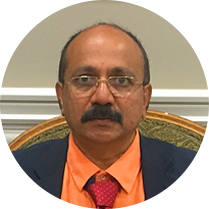
MDPI’s Open Access journal Remote Sensing is now one of the top international scientific journal 's in remote sensing science. Well known scientists in the subject, from all over the world, publish in it on a regular basis. It has an outstanding and dedicated editorial team, editorial office, and reviewers. We pride ourselves on publishing high-quality original scientific articles. Our goal remains to become # 1 Journal in Remote Sensing Science.
— Dr. Prasad S. Thenkabail
Editor-in-Chief of Remote Sensing

The tenth anniversary of Sustainability is a momentous milestone, and it has been a privilege for me to be a part of it as Editor-in-Chief. This anniversary demonstrates the growing interest in and recognition of the importance of sustainability. The journal has been able to showcase the many advances made over the last decade in the thinking, methods and applications surrounding sustainability. Recently, the content of the journal has reflected the 17 Sustainable Development Goals of the 2030 Agenda for Sustainable Development that was adopted by the United Nations in September 2015. Sustainability has had a notable impact and expects to have an even greater impact over its next decade through publishing research on new advances in sustainability and fostering critical discussion.
— Prof. Dr. Marc A. Rosen
Editor-in-Chief of Sustainability

Our journal Symmetry celebrates its 10th anniversary in 2018. During the last 10 years, the journal has become one of the leading journals among all multi-science journals. This shows the fundamental role played by the symmetries of nature in natural science. This also reflects the huge number of researchers whose work relates to symmetry. We hope to achieve even better results in the coming years.
— Prof. Dr. Sergei D. Odintsov
Editor-in-Chief of Symmetry

It is my honor as Editor-in-Chief of Toxins to inaugurate the 10th anniversary of the journal’s inception. From the founding EIC, Professor Florian Lang and EIC Vernon Tesh and the many Section EICs and Editorial Board Members, the combined leadership of this effort to provide an outstanding vehicle for the dissemination of the results of high-quality scientific investigations and in-depth, insightful comprehensive reviews has resulted in the flagship journal of toxinology as we know it today. The publication metrics associated with Toxins support this claim by virtue of our increase in manuscript submissions and publications and annual citation rate of articles published in Toxins. Importantly, the impact factor for Toxins remains strong and representative of the significance of the science published in Toxins. As we progress in this anniversary year, we will celebrate the 10th anniversary with a continuation of our acclaimed travel award program for Post-Doctoral Fellows in the field of Toxinology as well as our soon to be announced “Toxins' 10th Anniversary Top Cited Researcher Award” program.
Thus, 2018 will be an exciting year, celebrating the 10th anniversary of Toxins, but also a year of looking forward for the best practices by which the journal can serve the toxinology community. With that in mind, please join us in celebrating the journal by submitting your work to Toxins and as always I welcome your suggestions for the improvement of “our” journal.
— Prof. Dr. Jay W. Fox
Editor-in-Chief of Toxins

Thank you to all the dedicated researchers, reviewers and editors who have made Water a success. The journal has become a popular outlet for cutting-edge research in the broad field of water science, technology, management and governance. The Open Access format has proven to be attractive, and authors highly value the quick handling of papers. After ten years, Water has become an established journal in the field.
— Prof. Dr. Arjen Y. Hoekstra
Editor-in-Chief of Water
To mark the anniversaries, we have established a Special Issue to look back over the previous decade of outstanding accomplishments and highlight innovative frontier research perspectives. We encourage you to keep an eye on the publications in this Special Issue and this journal, and hope you consider it as a venue for your future publications.
13 March 2018
MDPI Becoming a Member of UKSG
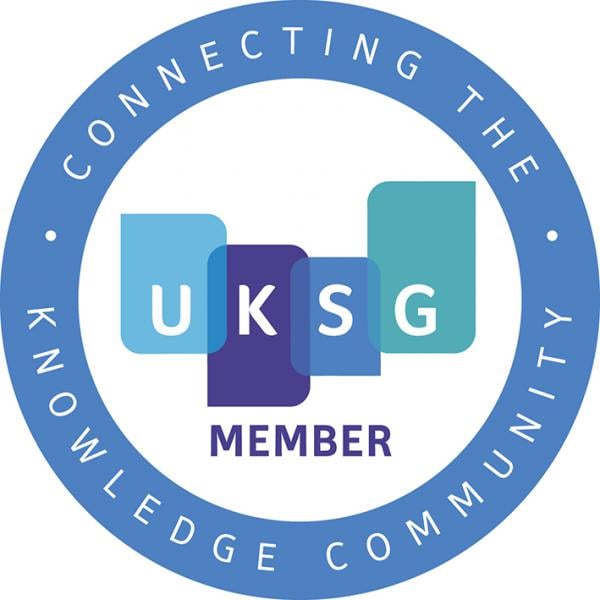
We are proud to announce that MDPI is now a member of UKSG, the UK´s largest scholarly communications community. Through UKSG, different stakeholders share their knowledge and experience in order to improve the knowledge and information environment for researchers. UKSG´s members include universities, publishers, content providers, intermediaries, and other similar organisations. Members participate in discussions and events on issues around scholarly communications.
The UKSG Annual Conference and Exhibition is a flagship initiative from the UKSG and one of the most stimulating events in the scholarly communications calendar. It is held annually and attracts a large number of delegates. More information is available at https://www.uksg.org/events/annualconference
MDPI is delighted to be a part of this active community and we look forward to making our own contribution. We will continue to support organisations and initiatives that boost collaboration and vision within scholarly communication.
More information about UKSG can be found at https://www.uksg.org/. The full membership list is available at: https://www.uksg.org/members.
12 March 2018
Meet Us at the 2018 E-MRS Spring Meeting and Exhibit in Strasbourg, France, 18–22 June 2018

MDPI will be attending the 2018 E-MRS Spring Meeting and Exhibit. The conference is a plenary session to provide an international forum for discussing recent advances in the field of materials science. It will consist of 29 parallel symposia with invited speakers, oral and poster presentations. Representatives of the following open access journals will attend:
Applied Sciences
Biomimetics
Clean Technologies
Coatings
Journal of Manufacturing and Materials Processing (JMMP)
Materials
Metals
Nanomaterials
Polymers
Processes
Quantum Beam Science (QuBS)
1 February 2018
MDPI Signed the San Francisco Declaration on Research Assessment (DORA)

The DORA initiative addresses the need for advanced approaches in the evaluation and measurement of the quality of scientific research outputs. It is a worldwide initiative covering all scholarly disciplines. MDPI proudly joins a list of more than 400 organizations around the world which support DORA’s recommendations for improving the way the quality of research results is evaluated.
More info can be found at http://www.ascb.org/dora/
25 January 2018
Meet Us at the ACS National Meeting & Exposition in New Orleans, USA, 18–22 March 2018

We will be attending the 255th ACS National Meeting & Exposition. It is an interdisciplinary forum open to anyone with an interest in Chemistry and the related disciplines. Representatives of the following open access journals will attend:
Agronomy
Applied Sciences
Beverages
Biomimetics
Biosensors
C
Catalysts
ChemEngineering
Chemosensors
Coatings
Energies
Environments
Fibers
Foods
Gels
Inorganics
Journal of Marine Science and Engineering (JMSE)
Lubricants
Materials
Mathematics
Metals
Molecules
Nanomaterials
Polymers
Processes
Resources
Safety
Sensors
Separations
Sustainability
Symmetry
Toxins
Water
If you are also attending this conference, please feel free to stop by our booth (Booth #640). Our delegates look forward to meeting you in person to answer any questions you may have. For more information about the conference, please visit: https://www.acs.org/content/acs/en/meetings/national-meeting.html?sc=home_meetings_170818_mtg_NO18_od
4 January 2018
Meet Us at the 2018 MRS Spring Meeting in Phoenix, AZ, USA
We will be attending the 2018 MRS Spring Meeting, which will be held in Phoenix, AZ, USA, 2 to 6 April 2018, representing the following open access journals:
Materials
Metals
Nanomaterials
Polymers
Coatings
Journal of Functional Biomaterials (JFB)
Quantum Beam Science (QuBS)
Biomimetics
Please come along to our booth to chat with our delegates about our journals. Our delegates will also answer any questions about online publishing and our journals. We look forward to meeting you in person in Phoenix!
For more information on the conference, please visit:
http://www.mrs.org/spring2018
19 December 2017
Announcing the MDPI English Writing Prize
The competition is still open until end of March! Please check out the banner for more details: https://mdpi-res.com/data/english-prize.pdf
15 December 2017
UCL Press Adopts the MDPI Editorial Platform JAMS
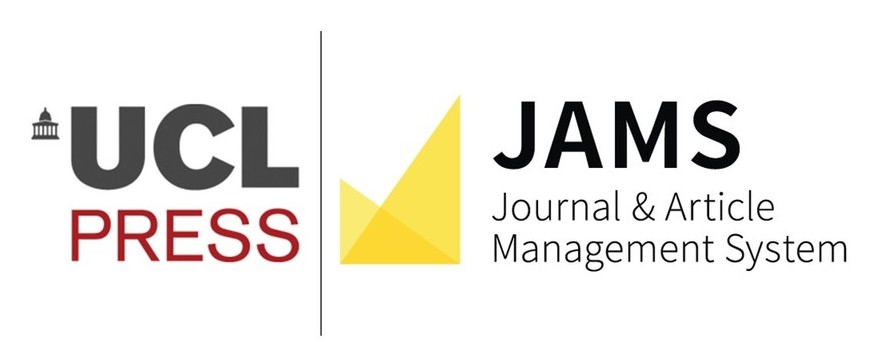
We are delighted to announce that UCL Press has adopted MDPI's Journal Article & Management System, JAMS, including production services. JAMS is a modular, integrated editorial platform for academic publishers. It offers flexibility, ease-of-use, and is a fully integrated solution for the end-to-end management of scholarly journals. JAMS is based on the software used to publish MDPI’s portfolio of journals.
Ian Caswell, UCL Press Journals Manager, says he is "excited to see UCL Press and MDPI partner together to implement the JAMS submission system for all UCL Press journals. The system offered a flexible, efficient and straightforward solution for our processes from author submission to ready for publication. I am grateful for the valuable experience and support MDPI have offered and look forward to developing our programme with an effective submission system in place.” Dr Martyn Rittman, MDPI’s Publishing Services Manager, adds, “We are proud to support one of the UK’s premier university presses in their publishing operation. This is an excellent way for us at MDPI to share our experience and knowledge, and benefit the research community beyond our own journals.”
JAMS combines services that are kept separate for many publishers. The entire editorial process, production and invoicing (e.g. for open access article processing charges) are fully integrated into a single platform. This allows for efficient, fast manuscript processing. For further information about JAMS, see https://www.mdpi.com/publishing_services.
23 November 2017
New Participants in the Institutional Open Access Program (IOAP)
We are pleased to welcome new participants to MDPI's Institutional Open Access Program (IOAP), designed to help institutions manage the transition to the Open Access publishing model. Researchers affiliated with participating universites benefit from a 10% discount on the Article Processing Charges (APC) for any paper published in an MDPI journal, while the participating library or university incurs no basic fee for participating in the program.
The IOAP set of free services, provided by MDPI to institutions that sign up, include:- No fee for participants and no obligation to prolong after the initial 12 months. The participants may withdraw from the programme at any time, and we will also keep it free for the library for as long as they continue in the programme.
- Authors affiliated with the university will receive a 10% discount on the APC.
- The institution is granted free access to the MDPI submission system and can receive free alerts of new submissions to our journals.
- By default, authors from the institution will continue to be invoiced directly unless the institution opts for central billing.
- Auto-archiving of papers into the institutions´ repository as long as it supports SWORD 1.3.
More details about the programme and a list of our current participant institutions can be found at: https://www.mdpi.com/about/ioap
Institutions which are interested to participate may do so online at: https://www.mdpi.com/ioap-form
The following North American universities have signed up to the IOAP program recently:
Connecticut College, USA
Emory University, USA
Florida International University, USA
Johns Hopkins University, USA
Mississippi State University, USA
Northeastern University, USA
Rice University, USA
University of Ontario Institute of Technology, Canada
University of Rhode Island, USA
University of Texas Southwestern Medical Center, USA
University of Toronto, Canada
University of Windsor, Canada
University of Wisconsin–Madison, USA
Wellesley College, USA
West Virginia University, USA
Many prestigious institutions from Europe and Asia have joined as well:
Asia Pacific University of Technology & Innovation, Malaysia
Czech Technical University in Prague, Czech Republic
Gdansk University of Technology, Poland
Martin-Luther-Universität Halle-Wittenberg, Germany
National Chung Hsing University, Taiwan
Newcastle University, UK
Northumbria University, UK
Southwest University, China
Technical University of Crete, Greece
University Malaya, Malaysia
University of Antwerp, Belgium
University of Cyprus, Cyprus
University of Manchester, UK
University of Reading, UK
University of Sussex, UK
University of Warwick, UK
West Pomeranian University of Technology Szczecin, Poland
We offer a warm welcome to the new participants!
10 November 2017
Available Journal Awards at MDPI
In order to reward the academic community, especially young researchers, and enhance communication among scientists, MDPI journals regularly offer various awards to researchers in specific fields, for example, Young Investigator Awards, Travel Awards, Best Paper Awards, and Best Poster Awards, etc. The awardees range from PhD students to junior scientists.
Currently, the following 44 awards given by MDPI journals are accepting applications. Please click on the award title below to check whether you are eligible for it and start the application process.
|
Subject |
Journal |
Award |
Intended Awardee |
|
Biology & Life Sciences |
Animals |
PhD students or postdoctoral researchers |
|
|
Antioxidants |
Postdoctoral researchers or PhD students |
||
|
Biology |
PhD or postdoctoral fellows |
||
|
Forests |
Postdocs or PhD students |
||
|
International Journal of Molecular Sciences (IJMS) |
Ground-breaking contribution in the fields of Molecular Biology, and Molecular Pathology |
||
|
Journal of Fungi (JoF) |
Travel Awards 2018 |
PhD graduate students, and postdoctoral fellows |
|
|
Life |
Travel Award 2018 |
PhD students or postdoctoral fellows |
|
|
Metabolites |
PhD students |
||
|
Pharmaceuticals |
PhD students |
||
|
Toxins |
Postdoctoral fellows |
||
|
Viruses |
Viruses 2018 participants |
||
|
Viruses |
Viruses 2018 participants |
||
|
Water |
2018 Young Investigator Award |
Young investigators |
|
|
Chemistry & Materials Science |
Biomimetics
|
Graduate Student or Postdoctoral Trainee / Research Associate |
|
|
Catalysts |
PhD students |
||
|
Chemosensors |
PhD or postdoctoral fellows |
||
|
Entropy |
Young investigators |
||
|
Fibers |
2018 Travel award |
Postdocs or PhD students |
|
|
Magnetochemistry |
Postdocs |
||
|
Materials |
PhD or postdoctoral fellows |
||
|
Metals |
PhD or postdoctoral fellows |
||
|
Minerals |
PhD or postdoctoral fellows |
||
|
Sensors |
Travel Award 2018 |
PhD or postdoctoral fellows |
|
|
Sensors |
Sensors' reviewers in 2017 |
||
|
Sensors |
Young investigators |
||
|
Technologies |
PhD students |
||
|
Computer Science & Mathematics |
Multimodal Technologies and Interaction (MTI) |
Postdoctoral researchers or PhD students |
|
|
ISPRS International Journal of Geo-Information(IJGI) |
Postdocs |
||
|
Journal of Sensor and Actuator Networks (JSAN) |
Postdoctoral fellows and PhD students |
||
|
Journal of Imaging |
Postdoctoral fellows and PhD students |
||
|
Engineering |
Actuators |
PhD or postdoctoral fellows |
|
|
Remote Sensing |
Authors |
||
|
Machines |
PhD or postdoctoral fellows |
||
|
Micromachines |
PhD or postdoctoral fellows |
||
|
Fluids |
Postdoctoral fellows and PhD students |
||
|
ChemEngineering |
Postdoctoral researchers and PhD students |
||
|
Environmental & Earth Sciences |
Diversity |
Travel Awards 2018 |
Postdoctoral fellows |
|
International Journal of Environmental Research and Public Health (IJERPH) |
Authors who submit from 1 Nov 2017 to 31 Oct 2018 |
||
|
Resources |
Postdocs or PhD students |
||
|
Geosciences |
Postdoctoral fellows and PhD students |
||
|
Physical Sciences & Astronomy |
Galaxies |
Ph.D. students, postdoctoral fellows, or lecturers in cosmology or galaxies physics |
|
|
Applied Science |
Postdocs |
||
|
Medicine & Pharmacology; Public Health & Healthcare |
Journal of Clinical Medicine (JCM) |
PhD or postdoctoral fellows |
|
|
Medicines |
Postdocs |
7 November 2017
MDPI has signed the Jussieu Call for Open Science and Bibliodiversity
The Jussieu Call aims to develop and implement alternative models to meet the aims of open science while promoting bibliodiversity. In particular it wishes to promote new business models for funding open access publication. It was drafted on the Jussieu campus in Paris by a group of French researchers and scientific publishing professionals.
MDPI supports scholarly communities and initiatives that innovate and further promote Open Access publishing. There is a need to explore different frameworks to fund open access in ways that ensure that excessive funds are not diverted from research towards publishing. Many fair funding models already exist, and they can be further developed and extended. These include institutional support, library contributions or subsidies, premium services, participatory funding, etc. For this reason, MDPI has signed up to the Jussieu call and welcomes its aims.
More information can be found at http://jussieucall.org/ (archived here)
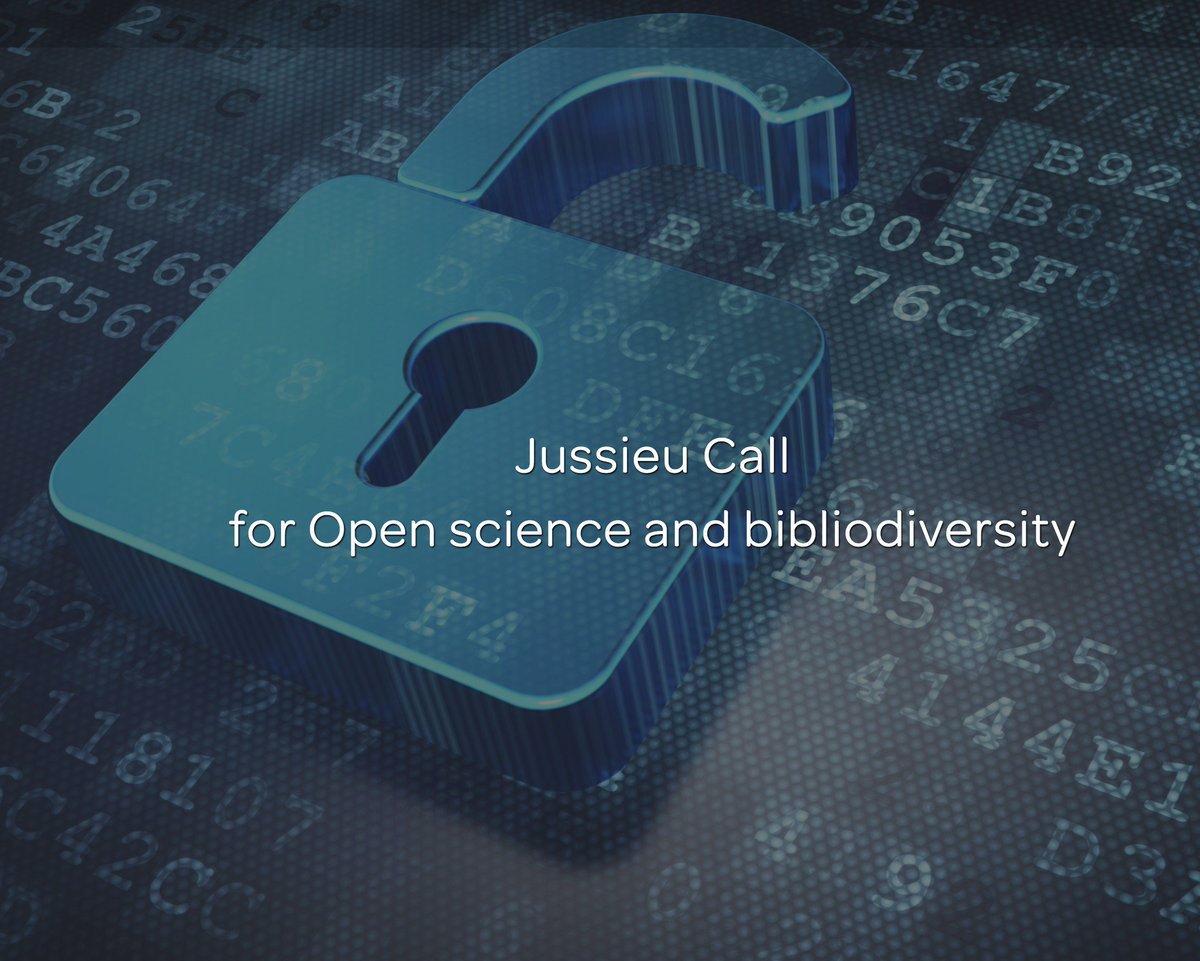
6 October 2017
Dr. Franck Vazquez, MDPI CEO, Interviewed by Scholarly Kitchen
The Society for Scholarly Publishing’s popular blog about topics in academic publishing, Scholarly Kitchen, recently interviewed MDPI’s CEO, Dr. Franck Vazquez. He shared some thoughts and information on the past and future of MDPI and open access publishing in general:
“In the long run, we aim to anchor MDPI in research communities. We recently developed and launched the preprint platform Preprints, revamped our free-to-use conference hosting platform Sciforum, and are working on other projects, such as Scilit, our bibliographic database.”
Read the full interview here.
19 September 2017
Meet Us at the 2017 MRS Fall Meeting in Boston
We will be attending the 2017 MRS Fall Meeting which will be held in Boston, Massachusetts, from November 26–December 1, 2017, and representing the following open access journals:
Materials
Nanomaterials
Energies
Metals
Applied Sciences
Crystals
Minerals
Journal of Functional Biomaterials
Coatings
Robotics
Biosensors
Chemosensors
Polymers
Bioengineering
Please come along to our booth (booth number: #122) to chat with our delegates about our journals and hear about our travel awards offered to Postdocs and PhD students. Our delegates will also answer any questions about online publishing and our journals. We look forward to meeting you in person in Boston!
For more information on the conference, please visit:
www.mrs.org/fall2017
19 September 2017
A Warm Welcome to the New IOAP Participants
We are delighted to have welcomed 24 new participants to our Institutional Open Access Programme (IOAP) since the beginning of September this year. These are University libraries and Research Institutions located around the world; from the USA and Canada to the UK, and from Norway and Spain to Greece. Well respected Universities, such as the University of Denver, the University of Colorado Boulder, and the University of Arizona in the US, have signed up, while their researchers can now benefit from a 10% discount on the Article Processing Charges (APC) for any papers they publish in MDPI journals, at no cost for the library or the University.
We are more than happy to see the Open Access movement growing stronger and wider every day and we appreciate the vital role which librarians, repository managers, and other scholarly communications professionals play in the field. Our communication with and service to this community is, therefore, one of our principal priorities. The IOAP is our way to support academic and scientific Institutions as well as their scholars in managing, administrating, and publishing research in an Open Access world.
The IOAP set of free services, provided by MDPI to institutions that sign up, include:
- No fee for participants and no obligation to prolong after the initial 12 months. The participants may withdraw from the programme at any time, and we will also keep it free for the library for as long as they continue in the programme.
- Authors affiliated with the university will receive a discount on the article processing charge (APC).
- The institution is granted free access to the MDPI submission system and can receive free alerts of new submissions to our journals.
- By default, authors from the institution will continue to be invoiced directly unless the institution opts for central billing.
- Auto-archiving of papers into the institutions´ repository as long as it supports SWORD 1.3.
More details about the programme and a list of our current participant institutions can be found at: https://www.mdpi.com/about/ioap
Institutions which are interested to participate may do so online at: https://www.mdpi.com/ioap-form
The full list of the Institutions that signed up in September is as follows:
- University of Denver, USA
- University of Colorado Boulder, USA
- University of Arizona, USA
- Institute of Metrology of Bosnia and Herzegovina, Bosnia and Herzegovina
- Middlebury College, USA
- Touro College, USA
- University of New Orleans, USA
- University of Leicester, UK
- Indiana University-Purdue University Indianapolis, USA
- University of Strathclyde, UK
- Cranfield University, UK
- Hope College, USA
- Oregon State University, USA
- Drew University, USA
- Swansea University, UK
- University of South Florida, USA
- University of Georgia, USA
- Arizona State University, USA
- University of Southern Mississippi, USA
- Université du Québec à Chicoutimi, Canada
- Grinnell College, USA
- Norwegian University of Science and Technology, Norway
- University of Patras, Greece
- Public University of Navarre, Spain
4 September 2017
Barcelona 2017–2018 | Upcoming Conferences Organized by MDPI
We are glad to announce that, on Friday 8 September 2017, the 1st Molecules Medicinal Chemistry Symposium will be taking place in Barcelona at the School of Pharmacy and Food Sciences of the University of Barcelona, Spain.
Our open-access journal Molecules is the sponsor of this one-day monographic symposium that will address the topic of Emerging Drug Discovery Approaches against Infectious Diseases. In this sense, our intention is to provide a forum for discussion from novel biological targets and resistance mechanisms to the design and synthesis of new structural classes or the implementation of innovative therapeutic approaches against bacterial, protozoan, viral, and fungal infections. The event will gather together over 70 experts in the field of medicinal chemistry from more than 15 countries and 3 continents, mostly from academia but also from pharmaceutical industry and product development partnerships, therefore offering a very interesting platform for international networking in this field.
For more information please access the following ling: https://sciforum.net/conference/MMCS2017
Following this event, Barcelona will also be hosting two more MDPI Conferences this year:
- The 5th International Symposium on Sensor Science will be held on 27–29 September 2017 at the AXA Convention Centre in Barcelona, Spain.
This event, sponsored by our journal Sensors, will address the recent developments made in the field of sensor technology. To properly do so, the event will be split into 5 different sessions, each one of them focussing on the following different aspects of the field: chemosensors, bio-inspired and bio-based strategies for sensing and fluidics, biosensors, sensors for structures, and sensors for applications.
The registration to attend the event is open until 7 September 2017.
For more information please access the following link: https://sciforum.net/conference/i3s2017Barcelona.
- The First International Conference on Symmetry will be held on 16–18 October 2017 at the Parc Cientific de Barcelona (PCB), Barcelona, Spain.
This conference, sponsored by our journal Symmetry, is an excellent opportunity to attend an event where cutting-edge ideas and knowledge on symmetry will be presented and shared. During the three days of the conference, a variety of subjects ranging from fields such as physics, chemistry, mathematics, computer science and biology will be brought together under the fundamental scientific phenomenon that is symmetry.
The registration to attend the event is open until 25 September 2017.
For more information please access the following link: https://sciforum.net/conference/symmetry2017
We are also pleased to announce that the following events will also be held in Barcelona in 2018:
- Viruses 2018 – Breakthroughs in Viral replication
The event will take place at the Faculty of Biology of the University of Barcelona, on 7–9 February 2018.
Early bird: 24 November 2017
Abstract submission: 31 October 3017
Registration: 22 January 2018
For more information please access: https://sciforum.net/conference/Viruses-2018 - Polymers: Design, Function and Application
The event will take place at the Faculty of Geology of the University of Barcelona on 22–23 March 2018
Early bird: 15 December 2017
Abstract Submission: 22 November 2017
Registration: 2 March 2018
For more information please access: https://sciforum.net/conference/polymers-2018 - Entropy 2018: From Physics to Information Sciences and Geometry
The event will take place at the Faculty of Geology of the University of Barcelona on 14–16 May 2018.
Early Bird: 14 February 2018
Abstract Submission: 16 January 2018
Registration: 25 April 2018
For more information please access: https://sciforum.net/conference/Entropy2018-1
23 June 2017
Congratulations for Publishing the 100,000th Peer-Reviewed Article
Congratulations to the authors Javier Monroy and Javier Gonzalez-Jimenez from Universidad de Malaga, Spain, Victor Hernandez-Bennets, Han Fan and Achim Lilienthal from Örebro University, Sweden for publishing the 100,000th peer-reviewed article.
The article is published in the Chemical Sensors section of Sensors.
GADEN: A 3D Gas Dispersion Simulator for Mobile Robot Olfaction in Realistic Environments
Evermore pressing environmental concerns have led global actors and decision-makers to search for stricter emission monitoring approaches. As part of novel monitoring systems, robots with gas and environmental sensors are a promising solution. However, validation of such robotic inspectors is expensive, time consuming, and plagued by repeatability issues. In this article, we present GADEN (the short form for Gas Dispersion Simulator for Mobile Robot Olfaction in Realistic Environments), which combines gas dispersion and robotics simulation in a common framework. Developed under the widely used Robot Operating System (ROS), GADEN enables validation of sensing strategies with gas dispersion being simulated using computational fluid dynamics and filament dispersion theory. GADEN allows simulating complex, realistic, 3D environments for reproducible testing of robotic gas sensing algorithms. Through qualitative and quantitative evaluations, we show that GADEN is a versatile and user-friendly evaluation tool and emphasize its enormous potential for the mobile robot olfaction community.
Read the full article here: https://www.mdpi.com/1424-8220/17/7/1479/htm
14 June 2017
2016 Impact Factor Released for Polymers – 3.364
Polymers now ranks 16/86 (Q1) in the category ‘Polymer Science’. It has become the highest ranked Open Access journal in polymer science.
Evolution of Impact Factor, Citations and Publications for Polymers:
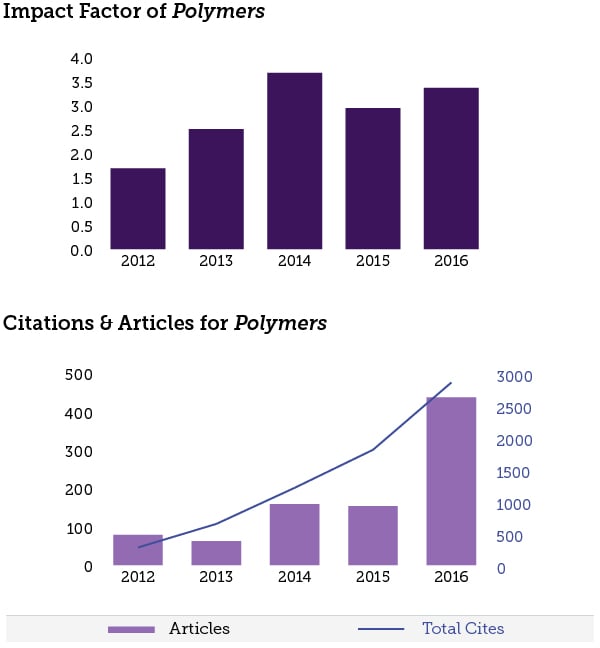
6 June 2017
CiteScore™ Metrics Released for Scopus Journals
The CiteScore, the new citation metric for journals covered in the Scopus® database, was released on 1 June 2017, reflecting the citation activity in 2016 for articles published during the three previous years. Please note that the list below does not contain all MDPI journals covered in Scopus. For the CiteScore to serve as a reliable metric at least three volumes of articles need to be indexed in Scopus; journals which have not met this criterion have been omitted here.
Ten MDPI journals received a CiteScore which is in the Top 10% of scores in at least one of the categories, while a further 21 journals exhibit scores that are in the first quartile of the respective categories.
CiteScore Data for MDPI Journals
| Journal | Rank | Category | Link | CiteScore 2016 | 2015 |
2014 |
| Algorithms | 44/112 (Q2) 49/111 (Q2) 19/42 (Q2) 52/113 (Q2) |
• Numerical Analysis • Computational Mathematics • Computational Theory and Mathematics • Theoretical Computer Science |
Link | 1.15 | 1.07 | 1.06 |
| Animals | 69/343 (Q1) 21/146 (Q1) |
• Animal Science and Zoology • General Veterinary |
Link | 1.46 | 1.66 | 0.74 |
| Biology | 13/92 (Q1) 34/81 (Q1) 10/75 (Q1) |
• General Agricultural and Biological Sciences • General Biochemistry, Gene- tics and Molecular Biology • General Immunology and Microbiology |
Link | 3.02 | 2.78 | 1.74 |
| Biomolecules | 234/382 (Q3) 260/353 (Q3) |
• Biochemistry • Molecular Biology |
Link | 1.67 | 3.08 | 1.00 |
| Biosensors | 36/118 (Q2) 209/2156 (Q1) |
• Clinical Biochemistry • General Medicine |
Link | 2.83 | 2.37 | 2.04 |
| Cancers | 29/196 (Q1) 27/321 (Q1) |
• Cancer Research • Oncology |
Link | 5.02 | 4.07 | 2.31 |
| Catalysts | 18/44 (Q2) 27/144 (Q1) |
• Catalysis • Physical and Theoretical Chemistry |
Link | 3.44 | 3.45 | 2.17 |
| Crystals | 70/270 (Q2) 25/64 (Q2) 118/398 (Q2) 131/424 (Q2) |
• General Chemical Engineering • Inorganic Chemistry • Condensed Matter Physics • General Materials Science |
Link | 1.89 | 1.47 | 1.03 |
| Diversity | 10/41 (Q1) 9/25 (Q2) 76/291 (Q2) 24/109 (Q1) |
• Agricultural and Biological Sciences (miscellaneous) • Ecological Modelling • Ecology • Nature and Landscape Conservation |
Link | 2.03 | 1.96 | 1.82 |
| Energies | - | - | Link | 2.50 | 2.87 | 2.66 |
| Entropy | 51/198 (Q2) | • General Physics and Astronomy | Link | 1.87 | 1.99 | 1.69 |
| Forests | 17/127 (Q1) | • Forestry | Link | 2.06 | 1.76 | 1.84 |
| Games | 204/398 (Q3) 83/181 (Q2) 48/105 (Q2) |
• Applied Mathematics • Statistics and Probability • Statistics, Probability and Uncertainty |
Link | 0.87 | 0.57 | 0.64 |
| Genes | 62/300 (Q1) 18/90 (Q1) |
• Genetics • Genetics (clinical) |
Link | 3.62 | 3.18 | 1.33 |
| Geosciences | 36/169 (Q1) |
• General Earth and Planetary Sciences | Link | 1.67 | 1.29 | 1.13 |
| Information | 156/237 (Q3) | • Information Systems | Link | 0.78 | 0.94 | 0.74 |
| Insects | 28/131 (Q1) | • Insect Science | Link | 1.81 | 1.38 | 1.23 |
| International Journal of Environmental Research and Public Health (IJERPH) | 67/446 (Q1) 31/102 (Q2) |
• Public Health, Environmental and Occupational Health • Health, Toxicology and Mutagenesis |
Link | 2.38 | 2.42 | 2.47 |
| International Journal of Molecular Sciences (IJMS) | 23/157 (Q1) 8/64 (Q1) 90/353 (Q1) 22/144 (Q1) 16/44 (Q1) 8/62 (Q1) |
• Organic Chemistry • Inorganic Chemistry • Molecular Biology • Physical and Theoretical Chemistry • Catalysis • Spectroscopy |
Link | 3.73 | 3.37 | 3.06 |
| ISPRS International Journal of Geo-Information | 12/29 (Q2) 28/79 (Q2) 96/587 (Q1) |
• Computers in Earth Sciences • Earth and Planetary Sciences (miscellaneous) • Geography, Planning and Development |
Link | 1.62 | 1.52 | - |
| Journal of Low Power Electronic Applications (JLPEA) | 301/645 (Q2) | • Electrical and Electronic Engineering | Link | 0.98 | 0.83 | 0.83 |
| Life | 65/525 (Q1) 36/186 (Q1) 5/92 (Q1) 20/80 (Q2) |
• Ecology, Evolution, Behavior and Systematics • General Biochemistry, Gene- tics and Molecular Biology • Palaeontology • Space and Planetary Science |
Link | 2.95 | 1.68 | 1.20 |
| Marine Drugs | 18/145 (Q1) | • Drug Discovery | Link | 3.83 | 3.66 | 3.59 |
| Materials | 63/424 (Q1) | • General Materials Science | Link | 3.26 | 3.11 | 2.69 |
| Membranes | 103/424 (Q1) | • Materials Science | Link | 2.19 | 2.95 | 2.42 |
| Micromachines | 173/645 (Q2) 69/211 (Q2) 113/526 (Q1) |
• Electrical and Electronic Engineering • Control and Systems Engineering • Mechanical Engineering |
Link | 1.83 | 1.78 | 2.10 |
| Minerals | 45/206 (Q1) 29/167 (Q1) |
• Geology • Geotechnical Engineering and Engineering Geology |
Link | 2.13 | 1.77 | - |
| Molecules | 32/157 (Q1) | • Organic Chemistry | Link | 3.09 | 2.65 | 2.62 |
| Nutrients | 12/247 (Q1) | • Food Science | Link | 4.29 | 4.07 | 3.78 |
| Pharmaceuticals | 8/168 (Q1) 21/158 (Q1) |
• Pharmaceutical Science • Molecular Medicine |
Link | 4.90 | 3.64 | 1.92 |
| Pharmaceutics | 19/168 (Q1) | • Pharmaceutical Science | Link | 3.83 | 2.68 | 2.46 |
| Polymers | 13/138 (Q1) 44/354 (Q1) |
• Polymers and Plastics • General Chemistry |
Link | 3.74 | 3.37 | 4.10 |
| Remote Sensing | 13/169 (Q1) | • General Earth and Planetary Sciences | Link | 3.56 | 3.76 | 3.23 |
| Sensors | 25/96 (Q2) 25/159 (Q1) 124/382 (Q2) 103/645 (Q1) |
• Analytical Chemistry • Atomic and Molecular Physics, and Optics • Biochemistry • Electrical and Electronic Engineering |
Link | 2.78 | 2.21 | 2.40 |
| Sustainability | 49/129 (Q2) 68/587 (Q1) 56/236 (Q1) |
• Renewable Energy, Sustai-nability and the Environment • Geography, Planning and Development • Management, Monitoring, Policy and Law |
Link | 1.96 | 1.78 | 1.52 |
| Symmetry | 17/42 (Q2) 49/111 (Q2) |
• Numerical Analysis • Computational Mathematics |
Link | 1.12 | 0.95 | 1.02 |
| Toxins | 16/102 (Q1) 16/108 (Q1) |
• Health, Toxicology and Mutagenesis • Toxicology |
Link | 3.34 | 3.76 | 2.85 |
| Vaccines | 146/184 (Q4) 151/250 (Q3) 93/145 (Q3) 186/299 (Q3) 130/232 (Q3) |
• Immunology • Infectious Diseases • Drug Discovery • Pharmacology • Pharmacology (medical) |
Link | 1.23 | 3.76 | 2.85 |
| Viruses | 15/68 (Q1) 34/250 (Q1) |
• Virology • Infectious Diseases |
Link | 3.60 | 3.74 | 3.80 |
| Water | 33/184 (Q1) 48/195 (Q1) 62/587 (Q1) 198/382 (Q3) |
• Water Science and Technology • Aquatic Science • Geography, Planning and Development • Biochemistry |
Link | 2.05 | 1.96 | 1.45 |
17 May 2017
Three New Institutional Memberships Established
We are pleased to announce that the Goethe University of Frankfurt, the Technical University of Hamburg (TU Hamburg-Harburg), as well as the Humboldt University of Berlin, in Germany, have joined MDPI's institutional membership program: Primary authors from these instititions will benefit from a 10% discount on the article processing charges.
Additional details can be found on our institutional membership page.
4 May 2017
MDPI Supports the Initiative for Open Citations (I4OC)
As an open access publisher, we are keen to support openness and transparency in the research process. Citation data is very important for assessing the value of individual papers and the contribution of researchers. As such, we support the recently launched Initiative for Open Citations (I4OC). The initiative recognizes that citations should be freely available and machine-readable. By doing so, authors gain the maximum benefit from having their work cited.
MDPI now uploads citation data with metadata uploaded to Crossref when registering digital object identifiers (DOIs) for published papers. We are delighted to take this step to support a truly open research environment.
2 May 2017
Publons Peer Review Academy Goes Live
Getting high quality review reports is critical for any journal’s editorial process. At MDPI we have put in place several measures to motivate reviewers and reward them for their work. We are proud of the quality of reviewer reports we receive and grateful for the hours put in by active researchers from across the globe.
Reviewers of MDPI’s largest journals can get recognition via Publons, a website dedicated to rewarding peer reviewers. They have now taken this one step further and launched the Publons Reviewer Academy to help train reviewers to provide useful feedback. Through the academy, researchers can be trained and tutored in various aspects of how to provide structured feedback that will be of genuine help to editors and authors. We support this initiative and recommend it to potential MDPI reviewers, especially early career researchers. See the Publons announcement for further information.
More information on reviewing for MDPI, including how to volunteer as a reviewer, can be found here.
24 April 2017
Two New Institutional Memberships Established
We are pleased to announce that the following universities have joined MDPI's institutional membership program: Trinity University, San Antonio, Texas, USA and the University of New South Wales (UNSW), Sydney, Australia. Primary authors from these instititions will benefit from a 10% discount on the article processing charges.
Additional details can be found on our institutional membership page.
30 March 2017
Credit for Preprints Comments via Publons
Preprints.org is a platform run by MDPI that allows authors to make early versions of manuscripts available before peer review has been completed.
One of the major benefits of putting a preprint online is to get feedback before journal submission. Until now, however, the feedback has been on a voluntary basis. Preprints is delighted to be the first preprint server to collaborate with Publons to acknowledge substantial comments as reviews and give commentators the opportunity to receive credit for their efforts.
When you add a comment to any article, there is a check box to click for it to appear on Publons. If you have already linked your account it will be passed on automatically. If you don't already have a Publons account, you will be contacted soon afterwards with instructions on how to create one.
We appreciate the enthusiasm and cooperation of Publons in this project and expect it to be of great benefit to authors and commenters alike.
20 March 2017
MDPI 2016 Annual Report Released
We are pleased to announce that our annual report for the year 2016 has now been published.
It contains information regarding company and journal performance, conferences and other publishing services that we provided throughout 2016.
To read the report in full or download a copy, please click here.
15 March 2017
Our 100,000th Article Could be Yours!
After the 20th anniversary of MDPI in 2016, we will reach another milestone this year and will publish the 100,000th peer-reviewed article in one of our 170+ open access journals.
We would like you to be part of this great achievement and so are offering to publish the 100,000th accepted paper free of charge.
To be in with a chance, select a journal in one of our 10 scientific subject areas and submit your paper.
Access the live tracker on published articles here.
![]()
3 March 2017
1000 Preprints Online
We are delighted that Preprints now has 1000 papers online since its launch on 3 May 2016.
For more information, see the editorial here.
9 February 2017
Minister and State Secretaries Visit MDPI Office at STP, Belgrade, Serbia
Earlier this week the Science Technology Park in Belgrade, Serbia was visited by Swiss Secretary of State Dr. Mauro Dell’Ambrogio, as well as Serbian Minister of Public Administration and Local Self-Government Ana Brnabic, State Secretary Dr. Vladimir Popovic and Mayor of Belgrade Mr. Siniša Mali.
During the visit to the STP they had a short presentation from MDPI’s CEO Dr. Franck Vazquez and IT Manager Mr. Miloš Čučulović, and further discussed important issues such as Open Access and Open education. Dr. Dell'Ambrogio said he was impressed with the potential for development and ideas for business.
For more information please see:
http://bit.ly/2kpIu7k and http://bit.ly/2kpUQfz
7 February 2017
The 6th World Sustainability Forum: Final Press Release
Basel, 29 January 2017
The 6th World Sustainability Forum #WSF2017SA: African universities critical to achieving the Sustainable Development Goals
Jeffrey and Sonia Sachs win first World Sustainability Award.
Universities need to take the lead in solving the greatest challenges the world faces today, particularly in Africa. They need to do this not only through education – teaching the next generation to think critically and creatively to find sustainable solutions – but also through research that cuts across a range of disciplines. To ensure these solutions are implemented, they need to partner with the private sector and with government.
This was the key message from the 6th World Sustainability Forum (WSF2017), which took place in Cape Town on 27 and 28 January 2017. Sponsored by MDPI and the journal Sustainability under the patronage of the Universities of the Western Cape (UWC), Cape Town (UCT), University of Basel and the National Research Foundation (NRF) of South Africa, the conference was attended by key national and international speakers, including world-leading economist Professor Jeffrey D. Sachs, senior United Nations (UN) advisor and director of the Earth Institute at Columbia University.
The WSF is an annual sustainability conference which addresses research in a range of areas related to sustainable development and sustainability globally. This was the first WSF to take place on the African continent. Discussions at the 2017 conference were driven by the 17 sustainable development goals (SDGs) adopted as part of the 2030 Agenda for Sustainable Development by the UN in September 2015.
Achieving the SDGs “is the moonshot for our generation,” said Sachs. “Like the moonshot [moon landing] of the 1960s, these are tough, bold and achievable objectives.”
“This is a nasty, tough world we live in, and our world agrees on very little. So when 193 governments agree on something, that is important. And when they agree on something as important as sustainable development, that is really something for us to grab hold of – that is a lifeline.”
There was agreement at the WSF that the SDGs are particularly important for Africa, and that African universities in particular have a role to play in achieving them.
Said Professor Tyrone Pretorius, vice-chancellor of UWC: “The quest for sustainable development can only be met through education. Universities today are the oil that fuels the knowledge economy.”
As part of the drive to develop academic capacity to provide the knowledge needed to meet the SDGs, WSF2017 was preceded by the 1st Postgraduate Forum on Sustainability. “A series of workshops for postgraduate education linked to WSF are important, in order to equip postgraduates with the skills necessary to promote sustainability,” said Professor Thandi Mgwebi, director for research at UWC. A second postgraduate forum will take place alongside the WSF2018 in Beijing.
This capacity development is particularly critical to Africa. Said Sachs: “African universities need to do research to find solutions to Africa’s development challenges, because no other university will.”
The UN set a target of achieving the SDGs by 2030: “I regard this as the breakthrough period to end extreme poverty on the continent,” said Sachs, “and for Africa to become one of the most dynamic centres of the world economy.”
It is a critical time for South African universities, said Professor Mamokgethi Phakeng, deputy vice-chancellor for research and internationalisation at UCT: “Higher education is at a crossroads, and there is much polarisation. We need to think carefully about how this sustainable development agenda is owned by all so that it is inclusionary.”
There was also strong emphasis on public–private partnerships – for universities, business and government to work together to achieve the goals.
Said Professor Francis Petersen, deputy vice-chancellor at UCT and vice-chancellor designate at the University of the Free State: “Business sustainability has become critical, because there is increasing demand and complexity of demand on business from the natural, social and economic environment. Sustainability cannot be a standalone issue, divorced from business as usual. Sustainability needs to be embedded into business.”
Environmental crises and climate change was also high on the WSF agenda. In his keynote address, Sachs noted the irreversibility of the climate- and environmental-related challenges.
“If we don’t get our act together, we lose the chance of safety,” he said.
Said Professor Mark New, pro vice-chancellor and director of the African Climate and Development Initiative at UCT: “We have a fundamental challenge in responding to climate change, and we must go further than just putting a plaster on a wound. We need to address the deep structural issues, to move from our current model of development into climate-compatible development.”
“This requires researchers to find the evidence for the correct development pathways to take, and then support the ability of policymakers at all levels to enable the shift to climate-compatible development planning.”
Said Dr. Aldo Stroebel, executive director of international relations and cooperation at the NRF, in closing: “We have seen over the past two days an urgency towards the next step of thinking, that critical type of framework that we all must engage with, not only from an academic perspective, but further up into the policy environment and into rural-based environments where one can clearly see the links and effectiveness of the work.”
World Sustainability Awards
The first World Sustainability Award and the first Emerging Sustainability Leader Awards were presented by Prof. Thandi Mgwebi, Director of Research at UWC, and Dr. Franck Vazquez, CEO of MDPI, during the ceremony on 27 January 2017 as part of the gala dinner of the 6th World Sustainability Forum in South Africa.after day one of proceedings of the 2017 World Sustainability Forum South Africa.
Professor Jeffrey D. Sachs and Dr. Sonia Ehrlich Sachs are the joint recipients of the first World Sustainability Award. Jeffrey Sachs is a world-renowned economist and senior United Nations (UN) advisor and director of the Earth Institute at Columbia University. Sonia Sachs is a paediatrician and public health specialist, and director of the Health Centre at the Centre for Sustainable Development, also at Columbia University.
The joint recipients of the first Emerging Sustainability Leader Award are Dr. Esther Ngumbi and Dr. Xiaosong Hu. Esther Ngumbi is a postdoctoral researcher at Auburn University in Alabama USA and serves as a 2015 Clinton Global University Mentor for agriculture. Xiaosong Hu is a professor at the Chongqing University in China and specialises in automotive control systems and mechanical engineering.
The World Sustainability Award and the Emerging Sustainability Leader Awards are funded to encourage new initiatives and developments in sustainability with the ultimate aim of fostering the transition to sustainable practices and societies.
The World Sustainability Award is funded by the MDPI Sustainability Foundation, and included a monetary prize of USD 100,000 to Jeffrey and Sonia Sachs. The Emerging Sustainability Leader Award is funded by the journal Sustainability, awarded to researchers under 40, and included a monetary prize of USD10,000.
Issued jointly by: UCT Global Strategy and Visibility, Research Office, UWC Communications & Media and MDPI AG
Conference photos are free available at: https://sciforum.net/conference/wsf-6/page/175 Photo credit: Matthias Burkhalter
|
Carla Bernardo |
Luthando Tyhalibongo |
Matthias Burkhalter |
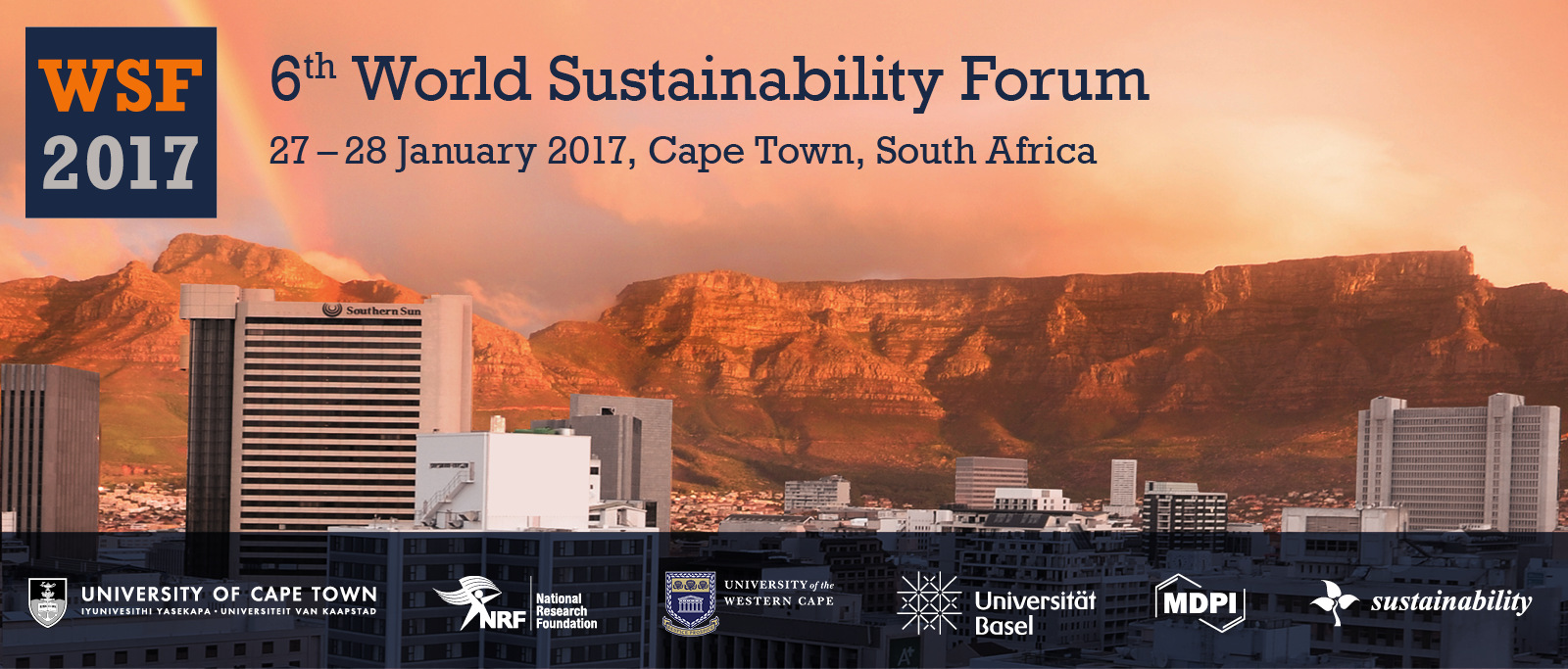
31 January 2017
Three New Institutional Memberships Established
We are pleased to announce that the Chalmers University of Technology, Sweden, the University of Manitoba, Canada and the Technical University of Cartagena, Spain, have joined MDPI's institutional membership program: Primary authors from these institutions will benefit from a 10% discount on the article processing charges.
Additional details can be found on our institutional membership page.
27 January 2017
6th World Sustainability Forum under way in South Africa
The 6th World Sustainability Forum is currently being held at the Cape Sun Hotel until 28 January 2017.
The Forum will showcase the work of internationally renowned researchers and include more than 150 presentations. During the conference dinner, the World Sustainability Award, associated with a US$ 100,000 prize, will be announced, as well as the Emerging Sustainability Leader Award, associated with a US$ 10,000 prize. The prizes are sponsored by the MDPI Sustainability Foundation and Sustainability, an academic open access journal by MDPI.
Here are some pictures from the forum so far:
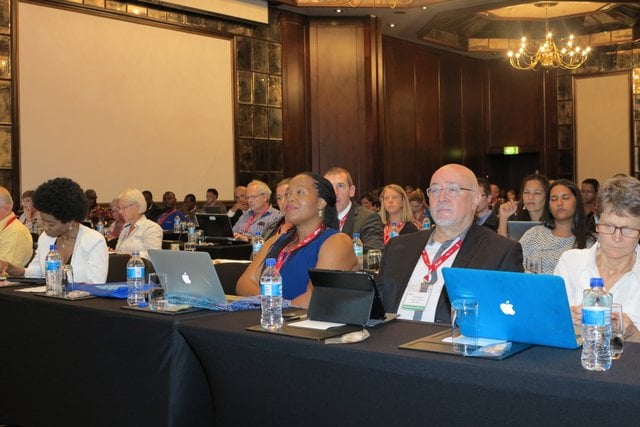
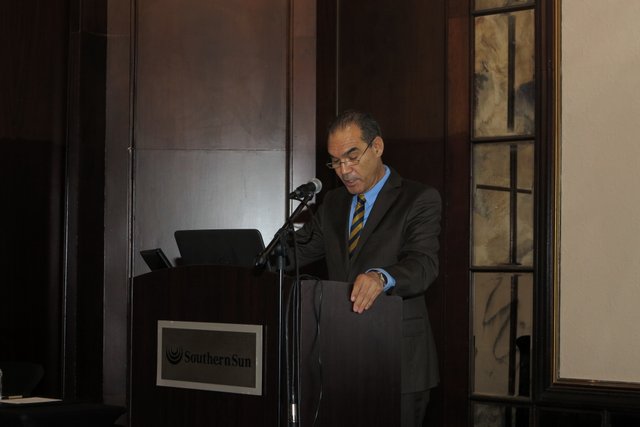
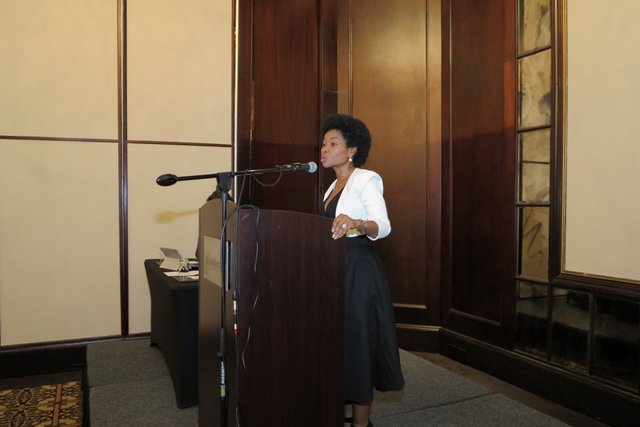
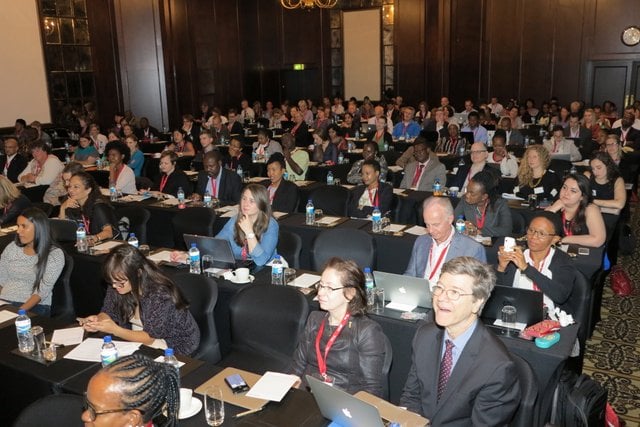
To see the full WSF2017 program and schedule, please see here: https://sciforum.net/conference/wsf-6/page/schedule
19 January 2017
Cape Town to Host the 6th World Sustainability Forum
Cape Town will host the 6th World Sustainability Forum at the Cape Sun Hotel on 27 and 28 January 2017. This prominent event, held for the first time in Africa, will include many illustrious South African and international experts, such as Her Excellency Graça Machel (Sustainable Development Advocate for the United Nations, Mozambique), Joyene Isaacs (HoD Agriculture Western Cape Government), Jeffrey Sachs (Columbia University, USA), Max Bergman (SRaM, University of Basel), Mark New (Pro Vice-Chancellor, University of Cape Town), Frans Swanepoel (FutureAfrica, University of Pretoria) and Francis Petersen (Vice-Chancellor-designate, University of the Free State). The Forum will provide a stage for national and international debates on sustainability in South Africa, the African continent, and about international perspectives on sustainability. It brings together researchers and representatives from government and the business sector to discuss a wide-ranging set of issues associated with sustainability, including food security, water and energy scarcity, mining, poverty reduction, climate change, and urbanisation.
The next few decades will be marked by profound changes in the relationships between global economics, national societies, and the environment. We have entered what some call the Anthropocene, an age in which human activity dominates the climate and the environment. These changes will have numerous consequences on societies around the globe. South Africa and Africa will play a central role, for better or worse, in creating opportunities and risks during these changing times as Africa is profoundly influencing and being influenced by global developments.
The adoption of the 17 United Nations Sustainable Development Goals and the 2030 Agenda for Sustainable Development in September 2015 was accompanied by what insiders considered an optimism they have not experienced in relation to UN resolutions before. The relative efficiency in the drafting, the lack of trenches between East and West, or between North and South, and the unanimity of support of the 193 countries speak volumes. In stark contrast, sustainability seems to go against a changing economic and political tide, where waves of nationalism and protectionism from some of the most powerful countries risk the wellbeing of the rest of the world. The 6th World Sustainability Forum will enable fruitful exchanges, which sensitise South African and international communities to the global urgency and specifics of sustainability.
The Forum will showcase the work of internationally renowned researchers and include more than 150 presentations. During the conference dinner, the World Sustainability Award, associated with a US$ 100 000 prize, will be announced, as well as the Emerging Sustainability Leader Award, associated with a US$ 10 000 prize. The prizes are sponsored by the MDPI Sustainability Foundation and Sustainability, an academic open access journal by MDPI. The World Sustainability Forum is preceded by the Postgraduate Forum on Sustainability, which will introduce more than 100 young scholars from South Africa and the African continent to sustainability research. Both events are organized and sponsored by the University of Cape Town, the University of the Western Cape, the University of Basel, MDPI, and by the National Research Foundation of South Africa.
Contacts:
Scientific Matters: Prof Manfred Max Bergman, Social Research and Methodology Group (SRaM), University of Basel, Switzerland; Email: max.bergman@unibas.ch
Press Accreditation and General Enquiries: Mr Matthias Burkhalter, MDPI AG, Basel, Switzerland; Email: burkhalter@mdpi.com; Tel. +41 61 683 77 34
Follow us on Twitter
#WSF2017SA
6 January 2017
MDPI Supports the OA2020 Initiative
MDPI is now a proud supporter of the OA2020 Initiative.
Open Access 2020 is an international initiative that aims to induce the swift, smooth and scholarly-oriented transformation of today’s scholarly journals from subscription to open access publishing.
MDPI is participating in the upcoming Berlin13 conference in March 2017, where we are contributing to the initiative by aiding in the design of the roadmap which will make OA the default publishing model.
For more information please see here.
5 January 2017
Three New Institutional Memberships Established
We are pleased to announce that the University of Texas at Arlington, USA, the Harbin Institute of Technology, China and TU Darmstadt, Germany, have joined MDPI's institutional membership program: Primary authors from these institutions will benefit from a 10% discount on the article processing charges.
Additional details can be found on our institutional membership page.
22 December 2016
Two New Institutional Memberships Established
We are pleased to announce that the Otto-von-Guericke-Universität Magdeburg, Germany and the University of California, Berkeley, USA, have joined MDPI's institutional membership program: Primary authors from these instititions will benefit from a 10% discount on the article processing charges.
Additional details can be found on our institutional membership page.
19 December 2016
MDPI and Wellcome Trust Compliance
The Wellcome Trust has, for a number of years, required that the results of its funded projects are published in open access format. Recently it announced criteria that publishers must fulfil for publication fees to be paid by the Trust. MDPI is pleased to have been added to the list of compliant publishers.
Only publishers who have confirmed their compliance by 16 December 2016 will be eligible to receive payment of APCs by the Wellcome Trust as of 1 April 2017. For more information on the criteria and a full list of publishers that meet them, see here.
13 December 2016
Meet MDPI at the 2016 AGU Fall Meeting
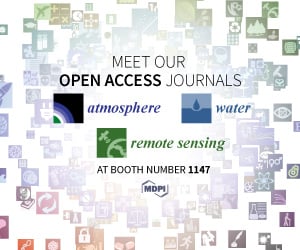 MDPI is currently attending the 2016 AGU Fall Meeting (12–16 December, 2016)
MDPI is currently attending the 2016 AGU Fall Meeting (12–16 December, 2016)
If you are also attending the conference, please feel free to stop by our booth (Booth #1147) and meet the representative editors.
Conference details:
2016 AGU Fall Meeting
12–16 December 2016
Moscone Center
747 Howard St
San Francisco, CA 94103, USA
8 December 2016
Three New Institutional Memberships Established
We are pleased to announce that Purdue University, USA, the Universitat Politécnica de Valencia, Spain and the Queensland University of Technology, Australia, have joined MDPI's institutional membership program: Primary authors from these instititions will benefit from a 10% discount on the article processing charges.
Additional details can be found on our institutional membership page.
16 November 2016
World Sustainability Award - Final Extension
The deadline for the World Sustainability Award has been extended for one last time! You now have one more month to nominate an individual researcher, group or project! The final deadline for nominations will be December 15, 2016.
For full details, please visit here.
11 November 2016
Three New Institutional Memberships Established
We are pleased to announce that the University of Minnesota, USA, the Universidad Politécnica de Madrid, Spain and Shanghai Jiao Tong University, China, have joined MDPI's institutional membership program: Primary authors from these instititions will benefit from a 10% discount on the article processing charges.
Additional details can be found on our institutional membership page.
4 November 2016
MDPI Joins the United Nations Global Compact
MDPI has become a member of the United Nations Global Compact to support corporate sustainability and have committed ourselves to the ten principles associated with the Compact.
Sustainability has always been at the core of MDPI’s values, starting with the collection and preservation of rare chemical samples that started in 1996 and led to the first journal, Molecules. Sustainability has become one of our flagship journals and we have supported and organized several conferences and events based on Sustainability, including the upcoming 6th World Sustainability Forum. As a global enterprise, we see it as our duty to promote responsible practices that will ensure a bright future for our planet. Given this, the choice to join the Global Compact was an easy one and we will do our utmost to fully implement it.
3 November 2016
MDPI Now a Member of SPARC Europe
We are delighted to announce that MDPI has become a member of SPARC Europe, an organization that works for open scholarship in Europe, including support of open access publication.
As one of the few publishers to join SPARC Europe to date, MDPI looks forward to making a contribution that puts open scholarship on a positive and sustainable path. We fully support the goals of open scholarship that allow the largest number of people possible to benefit from work of researchers in all disciplines. We hope that our membership will enable us to work with other stakeholders to find the best possible solution.
2 November 2016
World Sustainability Award Deadline Extension
The deadline for the World Sustainability Award has been extended! You now have until November 15, 2016 to nominate an individual researcher, group or project!
For full details, please visit here.
26 October 2016
Four New Institutional Memberships Established
We are pleased to announce that the Wuppertal Institut, Germany, the University of Girona, Spain and Central South University and Huazhong University of Science and Technology, China, have joined MDPI's institutional membership program: Primary authors from these instititions will benefit from a 10% discount on the article processing charges.
Additional details can be found on our institutional membership page.
24 October 2016
International Open Access Week 2016
Meet us during International Open Access Week 2016! We will be presenting at various locations in Europe and China.
To get involved and for full details see the complete list of events organised by MDPI here.
18 October 2016
Institutional Membership established with Universitat Pompeu Fabra, Spain and Aalto University, Finland
We are pleased to announce that the Universitat Pompeu Fabra, Spain and Aalto University, Finland, have joined MDPI's institutional membership program: Primary authors from these universities will benefit from a 10% discount on the article processing charges.
Additional details can be found on our institutional membership page.
12 October 2016
Institutional Membership Established with Iowa State University and the University of North Texas, USA
We are pleased to announce that the Iowa State University and the University of North Texas, USA, have joined MDPI's institutional membership program: Primary authors from these universities will benefit from a 10% discount on the article processing charges.
Additional details can be found on our institutional membership page.
7 October 2016
MDPI at Open Access Days in Munich, 10-11 October 2016
Meet MDPI during the Open Access Days held from 10-11 October 2016 at Ludwig Maximilian University of Munich, Germany.
The two-day event will feature experts from the open access sector, scientists from all disciplines, publishing representatives and supporters of scientific research and communication from libraries as well as research institutes and funding institutions. Join us!
For more information about the event and to see the program, visit the event webpage.
7 October 2016
Institutional Membership Established with the University of Sevilla and the University of Alicante, Spain
We are pleased to announce that the University of Sevilla and the University of Alicante, Spain have joined MDPI's institutional membership program: Primary authors from these universities will benefit from a 10% discount on the article processing charges.
Additional details can be found on our institutional membership page.
29 September 2016
Institutional Membership Established with the University of Delaware
We are pleased to announce that the University of Delaware, USA, has joined MDPI's institutional membership program: Primary authors from this university will benefit from a 10% discount on the article processing charges.
Additional details can be found on our institutional membership page.
19 September 2016
Peer Review Week 2016
As an open access publisher indebted to the work of our peer reviewers, we are proud to support Peer Review Week 2016. As part of the week's activities and to celebrate this year's theme "Recognition for Review", MDPI will host two webinars that anyone can join.
These webinars will explore the role and value of reviewers and the recognition they receive from a publishers perspective, with examples from MDPI's experience in publishing nearly 80,000 peer reviewed papers, along with evidence from reviewer surveys. It will also touch upon potential changes in how review is carried out and tips for early career researchers who want to be involved in the review process.
Details and links to join can be found below:
Wednesday September 21, 08:00 (CEST)
Friday September 23, 16:00 (CEST)
For more information about all the activites taking place, please visit the Peer Review Week website.
6 September 2016
Institutional Membership established with Kansas State University and Northwestern University, USA
We are pleased to announce that Kansas State University and Northwestern Universty, USE, have joined MDPI's institutional membership program: Primary authors from these universities will benefit from a 10% discount on the article processing charges.
Additional details can be found on our institutional membership page.
5 September 2016
Institutional Membership Established with University College Cork
We are pleased to announce that University College Cork, Ireland, has joined MDPI's institutional membership program: Primary authors from this university will benefit from a 10% discount on the article processing charges.
Additional details can be found on our institutional membership page.
22 August 2016
MDPI New Office Location
We are pleased to announce that MDPI has now moved to a new permanent address:
MDPI AG
St. Alban Anlage 66
CH-4052 Basel
Postfach, CH-4020 Basel
Switzerland
Telephone and fax numbers remain unchanged.
17 August 2016
MDPI is Attending the 252nd American Chemical Society National Meeting & Exposition
We are pleased to announce that MDPI will be attending the 252nd American Chemical Society National Meeting & Exposition (21-25 August, 2016) representing the following open access journals:
Molecules
Materials
Marine Drugs
IJMS
Polymers
Applied Sciences
Membranes
Metabolites
Pharmaceuticals
Biomolecules
Symmetry
If you are also attending this conference, please feel free to stop by our booth (Booth 411) and meet our representatives.
Conference details:
ACS - American Chemical Society Fall Meeting 2016
21-25 August, 2016
Pennsylvania Convention Center
1101 Arch St
Philadelphia
PA 19107
USA
10 August 2016
Institutional Membership established with the University of Texas at Austin, USA, the Wroclaw University of Science and Technology, Poland and the University of Granada and the Compultense University of Madrid, Spain
We are pleased to announce that the following institutions have joined MDPI's institutional membership program in August 2016:
- University of Texas at Austin, USA
- Wroclaw University of Science and Technology, Poland
- University of Granada, Spain
- Compultense University of Madrid, Spain
Authors affiliated with these institutions will benefit from a 10% discount on the article processing charges.
Additional details can be found on our institutional membership page.
18 July 2016
Institutional Membership established with Louisiana State University and Florida State University, USA, Royal College of Surgeons, Ireland, University of Rostock, Germany, AGH University of Science and Technology, Poland and Southeast University, China
We are pleased to announce that the following institutions have joined MDPI's institutional membership program in July 2016:
- Louisiana State University, USA
- Florida State University, USA
- Royal College of Surgeons, Ireland
- University of Rostock, Germany
- AGH University of Science and Technology, Poland
- Southeast University, China
Authors affiliated with these institutions will benefit from a 10% discount on the article processing charges.
Additional details can be found on our institutional membership page.
12 July 2016
MDPI Moving to New Office Location in Basel (Switzerland) in August 2016
As of 20 August 2016, MDPI's new address in Basel will be:
MDPI AG
St. Alban-Anlage 66
CH-4052 Basel
Switzerland
Telephone and fax numbers remain unchanged.
St. Alban-Anlage 66 was built from 1947 to 1948 and initially the home of the "Bühler AG", a book printing business.
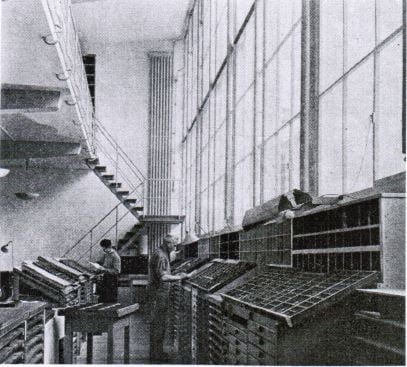
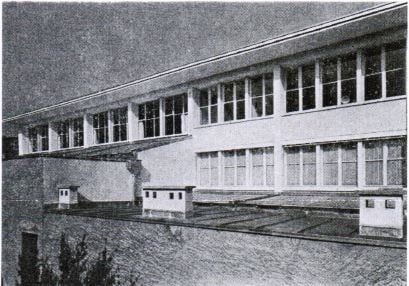
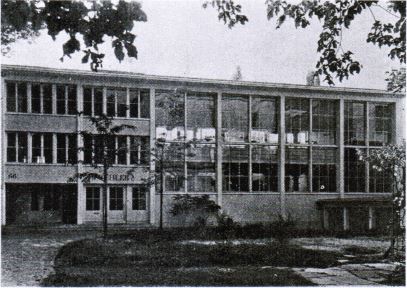
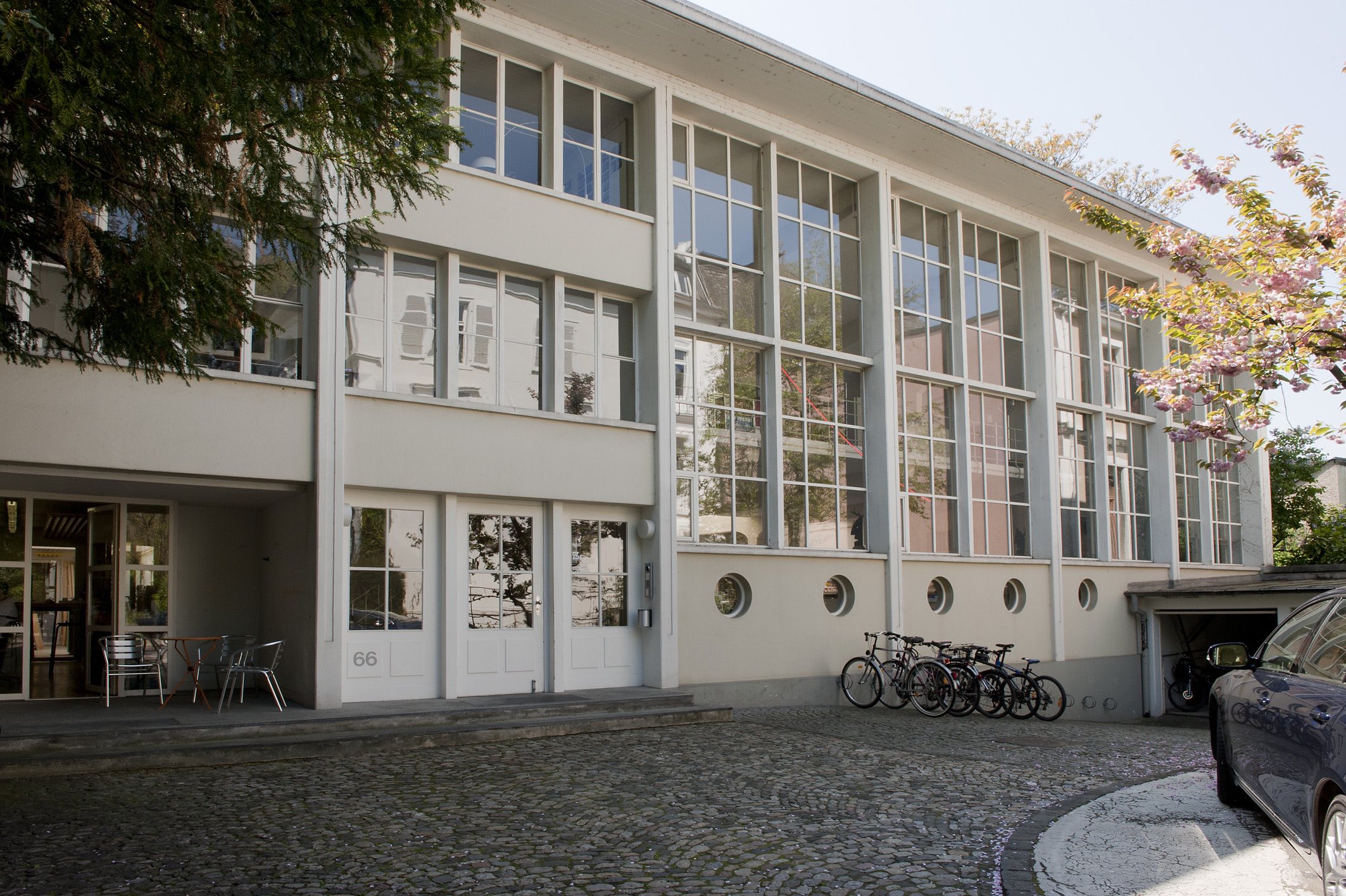
For more information about this building, see: https://www.mdpi.com/about/headquarters
21 June 2016
"Behind the Scenes of Academic Publishing—A Publisher's Perspective" - MDPI's Lecture at the University of Basel
From the 15-16 September, 2016, MDPI will run a course on Academic Publishing at the University of Basel.
In this two day workshop, MDPI will look in detail at the role performed by academic journal publishers and how they interact with academics. Ethical dimensions, what happens when problems occur and how the publisher coordinates all aspects of the submission process will also be covered.
For more detailed information about the program, trainers and registration please visit the course webpage.
14 June 2016
2015 Impact Factors Released
We are pleased to report the 2015 Journal Impact Factors in the latest Journal Citation Reports® Science Edition, published by Thomson Reuters in June 2016. Twenty out of 25 journals have seen an increase in their Impact Factor and two journals (Crystals and IJGI) received a first Impact Factor. Coatings was recently added to SCIE and will receive its first Impact Factor in next year’s JCR.
Updated Impact Factors for Journals in the Science Citation Index Expanded (SCIE)
| Journal | 2015 Impact Factor | Details | Category Rank |
| Applied Sciences | 1.726 | Link | 83/163 (Q3) in ‘Chemistry, Multidisciplinary’; 129/271 (Q2) in ‘Materials Science, Multidisciplinary’; 64/145 (Q2) in ‘Physics, Applied’ |
| Atmosphere | 1.221 | Link | 66/84 (Q4) in ‘Meteorology & Atmospheric Sciences’ |
| Catalysts | 2.964 | Link | 53/144 (Q2) in ‘Chemistry, Physical’ |
| Energies | 2.077 | Link | 43/88 (Q2) in ‘Energy & Fuels’ |
| Entropy | 1.743 | Link | 25/79 (Q2) in ‘Physics, Multidisciplinary’ |
| Forests | 1.583 | Link | 19/66 (Q2) in ‘Forestry’ |
| Genes | 3.242 | Link | 60/165 (Q2) in ‘Genetics & Heredity’ |
| International Journal of Environmental Research and Public Health (IJERPH) | 2.035 | Link | 101/225 (Q2) in ‘Environmental Sciences’ |
| International Journal of Molecular Sciences (IJMS) | 3.257 | Link | 110/289 (Q2) in ‘Biochemistry & Molecular Biology’; 51/163 (Q2) in ‘Chemistry, Multidisciplinary’ |
| Marine Drugs | 3.345 | Link | 13/59 (Q1) in ‘Chemistry, Medicinal’ |
| Materials | 2.728 | Link | 63/271 (Q1) in ‘Materials Science, Multidisciplinary’ |
| Metals | 1.574 | Link | 18/73 (Q1) in ‘Metallurgy & Metallurgical Engineering’; 145/271 (Q3) in ‘Materials Science, Multidisciplinary’ |
| Micromachines | 1.295 | Link | 30/56 (Q3) in ‘Instruments & Instrumentation’ 63/83 (Q4) in ‘Nanoscience & Nanotechnology’ |
| Minerals | 1.468 | Link | 9/21 (Q2) in ‘Mining & Mineral Processing; 14/29 (Q2) in ‘Mineralogy’ |
| Molecules | 2.465 | Link | 24/59 (Q2) in ‘Chemistry, Organic’ |
| Nanomaterials | 2.690 | Link | 64/271 (Q1) in ‘Materials Science, Multidisciplinary’; 36/83 (Q2) in ‘Nanoscience & Nanotechnology’ |
| Nutrients | 3.759 | Link | 16/78 (Q1) in ‘Nutrition & Dietetics’ |
| Polymers | 2.944 | Link | 20/85 (Q1) in ‘Polymer Science’ |
| Remote Sensing | 3.036 | Link | 5/28 (Q1) in ‘Remote Sensing’ |
| Sensors | 2.033 | Link | 36/75 (Q2) in ‘Chemistry, Analytical’; 16/27 (Q3) in ‘Electrochemistry’; 12/56 (Q1) in ‘Instruments & Instrumentation’ |
| Sustainability | 1.343 | Link | 146/225 (Q3) in ‘Environmental Sciences’; 22/29 (Q4) in ‘Green & Sustainable Science & Technology’ |
| Symmetry | 0.841 | Link | 31/63 (Q2) in ‘Multidisciplinary Sciences’ |
| Toxins | 3.571 | Link | 16/89 (Q1) in ‘Toxicology’ |
| Viruses | 3.042 | Link | 14/33 (Q2) in ‘Virology’ |
| Water | 1.687 | Link | 33/85 (Q2) in ‘Water Resources’ |
Journals with First Impact Factors
| Journal | 2015 Impact Factor | Details | Category Rank |
| Crystals | 2.075 | Link | 13/26 (Q2) in ‘Crystallography’ |
| ISPRS International Journal of Geo-Information | 0.651 | Link | 45/49 (Q4) in ‘Geography, Physical’; 26/28 (Q4) in ‘Remote Sensing’. |
14 June 2016
2015 Impact Factor released for Polymers – 2.944
Polymers has received a new Impact Factor of 2.944 for 2015 in the latest release of the Journal Citation Reports® Science Edition, published by Thomson Reuters in June 2016. The five-year Impact Factor is 3.867.
Polymers now ranks 20/85 (Q1) in the category ‘Polymer Science’ and thus remains the second ranked Open Access journal in the category.
Evolution of Impact Factor, Citations and Publications for Polymers:
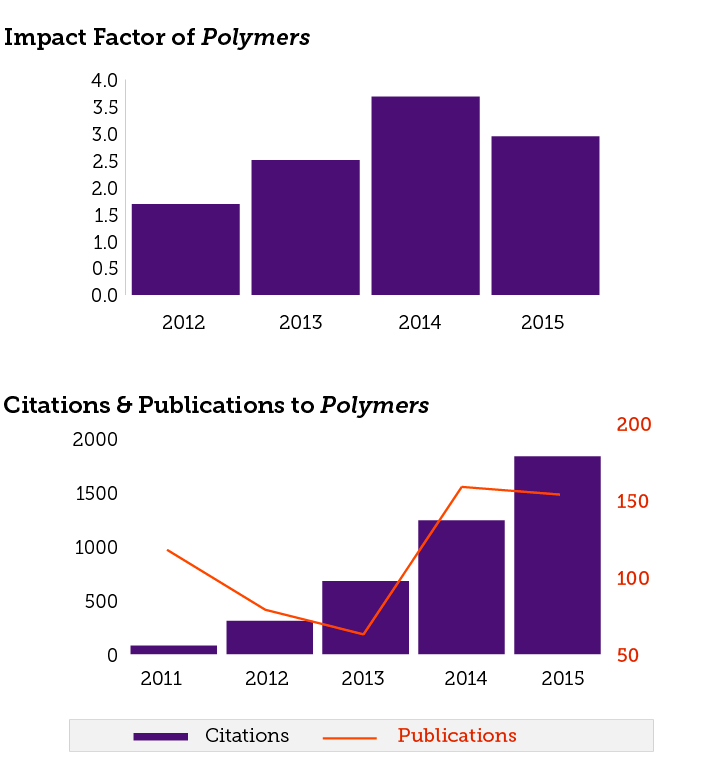
26 May 2016
Institutional Membership established with University of Bremen, Germany, Koç University, Turkey, IIASA, Austria and Jilin University and Kunming Institute of Botany, CAS, China
We are pleased to announce that the following institutions have joined MDPI's institutional membership program in May 2016:
- Unversity of Bremen, Germany
- Koç University, Turkey
- International Institute for Applied Systems Analysis (IIASA), Austria
- Jilin University, China
- Kunming Institute of Botany, Chinese Academy of Sciences, China
Authors affiliated with these institutions will benefit from a 10% discount on the article processing charges.
Additional details can be found on our institutional membership page.
23 May 2016
Institutional Membership Established with the KTH Royal Institute of Technology, Sweden and the South China University of Technology, Beijing University of Technology and Southern Medical University, China
We are pleased to announce that the following institutions have joined MDPI's institutional membership program in April and May 2016:
- KTH Royal Institute of Technology, Sweden
- South China University of Technology, China
- Beijing University of Technology, China
- Southern Medical University, China
Authors affiliated with these institutions will benefit from a 10% discount on the article processing charges.
Additional details can be found on our institutional membership page.
26 April 2016
New Section on www.mdpi.com - Latest Books
You may have noticed a new section that is now visible on our home page. This section is called "Latest Books" and showcases recent publications from MDPI Books, our book publishing service.
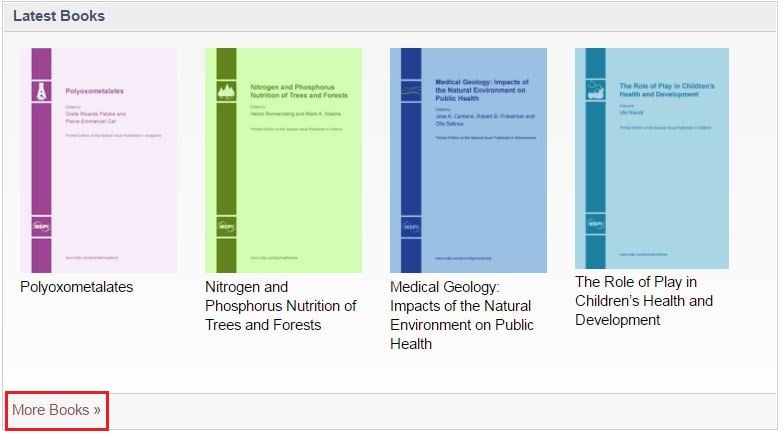
By clicking on the hyperlink "More Books" you will be taken to the MDPI Books Home Page. There you will find more information about the service, as well as the "Recent Publications" list.
Clicking on any of the book images in this list will take you to detailed information about that book (shown below). Here you can also download a PDF version of the book, or order a hardcover printed copy.
For further information about the MDPI Books service, please visit the webpage or contact books@mdpi.com.
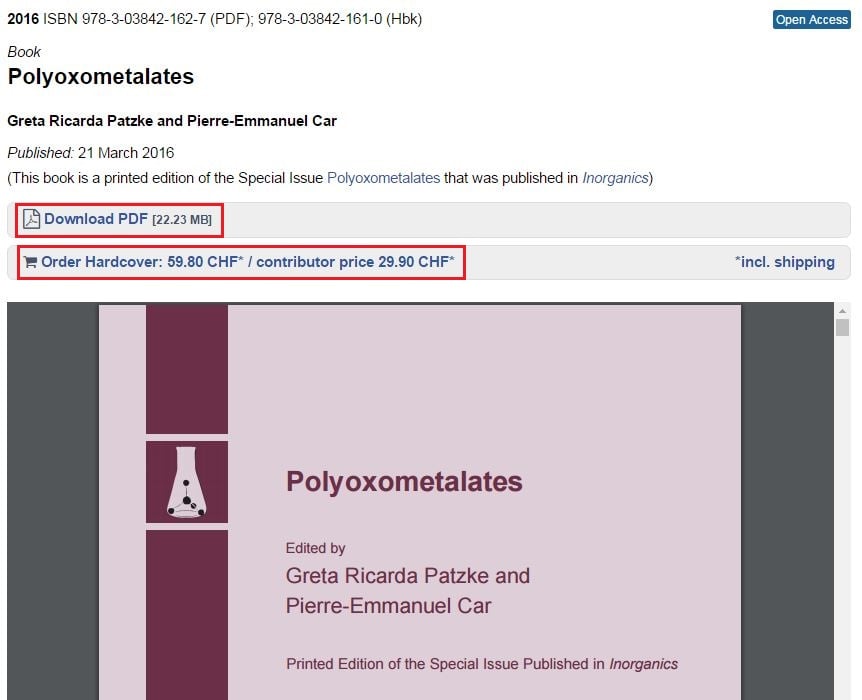
8 April 2016
Polymers Young Investigator Award Winner Announcement
31 March 2016
Axioms, Behavioral Sciences, Photonics, Separations and Toxics added to the Emerging Sources Citation Index in Web of Science
We are pleased to announce that the journals Axioms, Behavioral Sciences, Photonics, Separations and Toxics were recently accepted for inclusion in the newly launched Emerging Sources Citation Index (ESCI) in Web of Science.
ESCI serves to highlight promising journals which are still under consideration for the Science Citation Index Expanded (SCIE) or the Social Sciences Citation Index (SSCI).
The Emerging Sources Citation Index (ESCI), Science Citation Index Expanded (SCIE), Social Sciences Citation Index
(SSCI), and Web of Science™ (WoS) are Thomson Reuters products.
30 March 2016
Institutional Membership established with the University of Winchester, UK, Silesian University of Technology, Poland and Beijing Jiaotong University and Zhejiang University, China
We are pleased to announce that the University of Winchester, UK, the Silesian University of Technology, Poland and Beijing Jiaotong University and Zhejiang University, China, have joined our Institutional Membership program. Primary authors from these universities will benefit from a 10% discount on article processing charges.
Additional details can be found on our institutional membership page.
24 March 2016
New Editorial Office in Barcelona, Spain
We are excited to announce the opening of our new editorial office in Barcelona, Spain. The launch team is led by a Senior Editor and comprises further staff holding doctoral degrees with several years of research experience. The new editorial team will help us to get closer to European research communities and progress Sciforum, the platform to support the scientific community via conference hosting and other functions. They will also help spread the word about Open Access and meet academics at scientific events.
We are in the process of hiring more doctoral and masters graduates to join the editorial team and welcome applications via jobs@mdpi.com. For contact details about the office, see our contact page.

22 February 2016
Membership Established with the Max Planck Society
We are pleased to announce that the Max Planck Digital Library (MPDL) has signed an agreement with MDPI to support authors associated with the Max Planck Society (Max-Planck-Gesellschaft). As of 22 February 2016, corresponding authors will receive full funding from the MPDL for articles published in MDPI journals, with a 10% discount applied to the Article Processing Charges. Additional details can be found at our institutional membership page.
Founded in 1948, The Max Planck Society is one of Germany’s leading research organizations, and is currently made up of 83 institutes conducting basic research in natural sciences, life sciences, social sciences and humanities. 18 Nobel laureates have emerged from its ranks of scientists and the society has more than 15,000 publications in scientific journals each year.
5 February 2016
Institutional Membership Extension: Wageningen University, CSIC, University of Zürich, ETH Zürich, University of Tübingen and Osnabrück University
We are pleased to announce that Wageningen University, the Netherlands, the Spanish National Research Council (CSIC), Spain, the University of Zürich and ETH Zürich, Switzerland, and the University of Tübingen and Osnabrück University, Germany, have not only renewed their institutional memberships with MDPI after two years of successful cooperation, but have also increased the reduction of the article processing charges (APCs) for affiliated authors to 25%.
Additional details can be found on our institutional membership page.
5 February 2016
Institutional Membership established with Brock University, Canada and the University of Pisa, Italy
We are pleased to announce that Brock University, Cananda, and the University of Pisa, Italy, have joined MDPI's institutional membership program: Primary authors from these universities will benefit from a 10% discount on the article processing charges as of 01 February 2016.
Additional details can be found on our institutional membership page.
25 January 2016
MDPI Sponsors diss:kurs with the University of Basel
MDPI is pleased to announce its newly established sponsorship of diss:kurs, an event coordinated by the University of Basel to support their doctorate program. For more information about the event and how to register, please visit the diss:kurs webpage.
7 January 2016
New Institutional Memberships Established with Tsinghua University, the Chinese Society of Micro-Nano Technology, Ruhr University Bochum and the University of Ulm
We are pleased to announce that the following institutions have joined MDPI's institutional membership program as of 1 January 2016:
- Tsinghua University, China
- Chinese Society of Micro-Nano Technology (CSMNT)
- Ruhr University Bochum, Germany
- University of Ulm, Germany
Authors affiliated with these institutions will benefit from a 10% discount on the article processing charges.
Additional details can be found on our institutional membership page.
5 January 2016
Safety, Fermentation, C-Journal of Carbon Research, Magnetochemistry, Batteries and Horticulturae Released Their First Issue in December 2015
We are pleased to announce that MDPI's open access journals Safety, Journal of Imaging, Fermentation, C-Journal of Carbon Research, Magnetochemistry, Batteries and Horticulturae released their first issue at the end of December 2015.
17 December 2015
Institutional Membership Extension: University of Bern, Switzerland
We are pleased to announce that the University of Bern, Switzerland has not only renewed their institutional membership with MDPI after two years of successful cooperation, but also increased the reduction of the article processing charges (APCs) for affiliated authors to 25%.
17 December 2015
Institutional Membership with the University of Ulm and Helmholtz Zentrum Munich
We are pleased to announce that University of Ulm, Germany and Helmholtz Zentrum Munich, Germany has joined MDPI's institutional membership program:
Primary authors from the University of Ulm and Helmholtz Zentrum Munich will benefit from a 10% discount on the article processing charges as of 1 January 2016. Additional details can be found on our institutional membership page.
9 December 2015
Membership Established with the Virginia Polytechnic Institute and State University (Virginia Tech)
We are pleased to announce that Virginia Tech has joined MDPI's institutional membership program. Authors from Virginia Tech will benefit from a 10% discount on the article processing charges as of 1 December 2015. Additional details can be found on our institutional membership page.
1 December 2015
Membership Established with the Technical University of Denmark and the University of North Florida
We are pleased to announce that the following universities have joined MDPI's institutional membership program:
- Technical University of Denmark (as of 1 November 2015)
- University of North Florida, USA (as of 15 November 2015)
Primary authors from the Technical University of Denmark and the University of North Florida will benefit from a 10% discount on the article processing charges.
Additional details can be found on our institutional membership page.
2 October 2015
Membership Established with the University of Freiburg and the University of Regensburg
We are pleased to announce that the following universities have joined MDPI's institutional membership program:
University of Freiburg, Germany
University of Regensburg, Germany
Primary authors from the University of Freiburg and the University of Regensburg will benefit from a 10% discount on the article processing charges as of 1 October 2015 and 1 November 2015.
Additional details can be found on our institutional membership page.
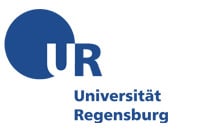
19 June 2015
Updated Impact Factor for Polymers – 3.681
We are pleased to report the 2014 Impact Factor for Polymers. According to the 2015 release of the Journal Citation Reports® Science Edition (published by Thomson Reuters in June 2015), the updated Impact Factor for Polymers is 3.681. It has risen from 2.505 in the previous year (+47%), as illustrated in the figure below. The 5-Year Impact Factor is 3.904. Polymers now ranks 13/82 (Q1) in the category ‘Polymer Science’.
Evolution of the Polymers Impact Factor:
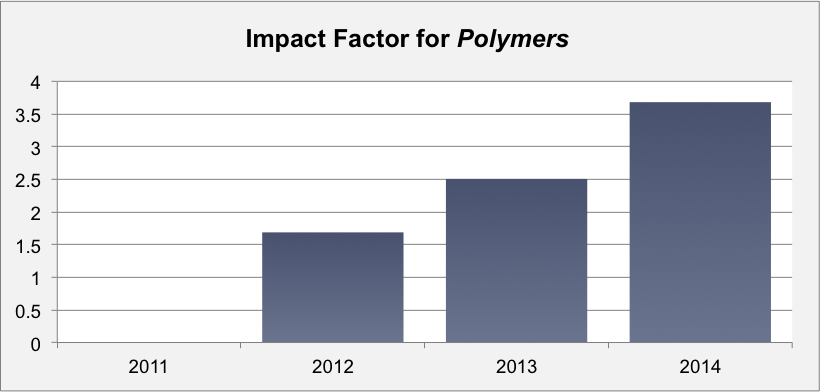
Evolution of citations to Polymers:
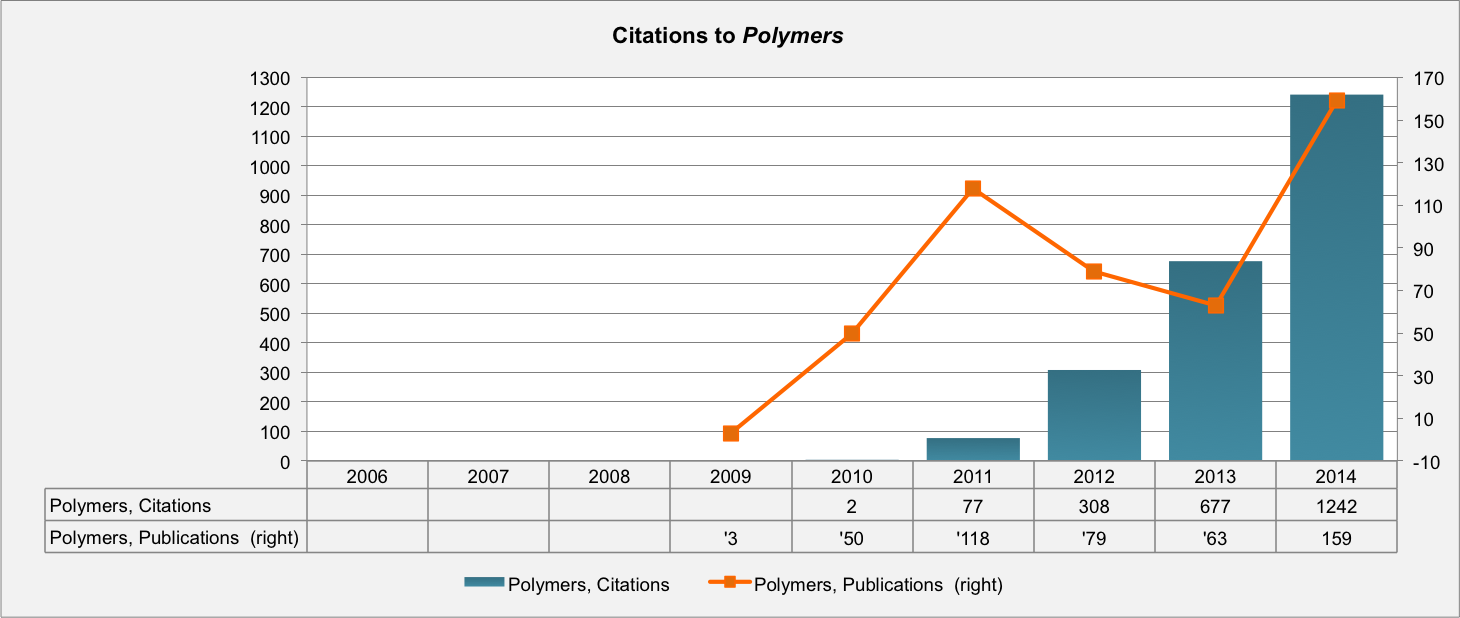
22 January 2013
Polymers (ISSN 2073-4360) Accepted for Coverage in the Science Citation Index Expanded (SCIE)
We are pleased to announce that Polymers has been accepted for indexing in the Science Citation Index Expanded (SCIE) / Web of Science, the leading indexing database in natural sciences.
This means that the research you publish with Polymers is now more visible than ever. Polymers, which was launched in 2009 under the leadership of Prof. Dr. Alexander Böker, provides an interdisciplinary forum for publishing papers which advance the fields of (i) polymerization methods, (ii) theory, simulation, and modeling, (iii) understanding of new physical phenomena, (iv) advances in characterization techniques, and (v) harnessing of self-assembly and biological strategies for producing complex multifunctional structures.
Polymers is also included in Chemical Abstracts (CAS), COMPENDEX, INSPEC and a variety of other indexing databases and archives.





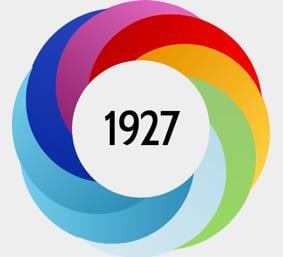
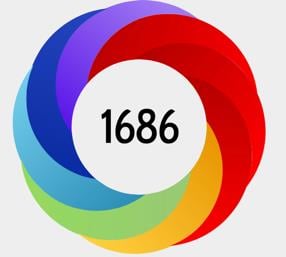
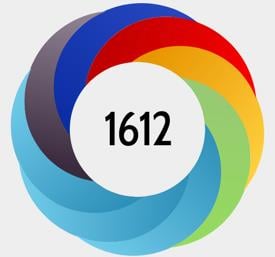
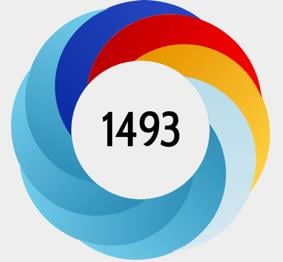
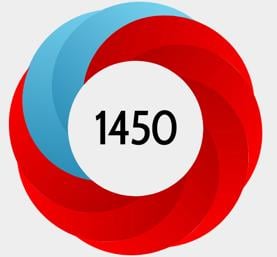
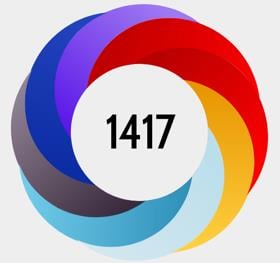
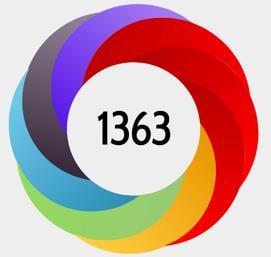
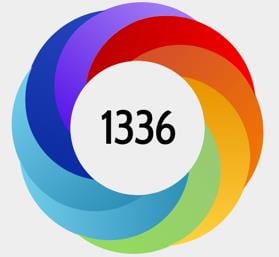
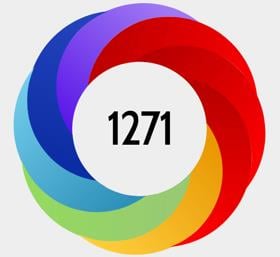
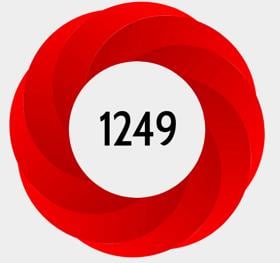




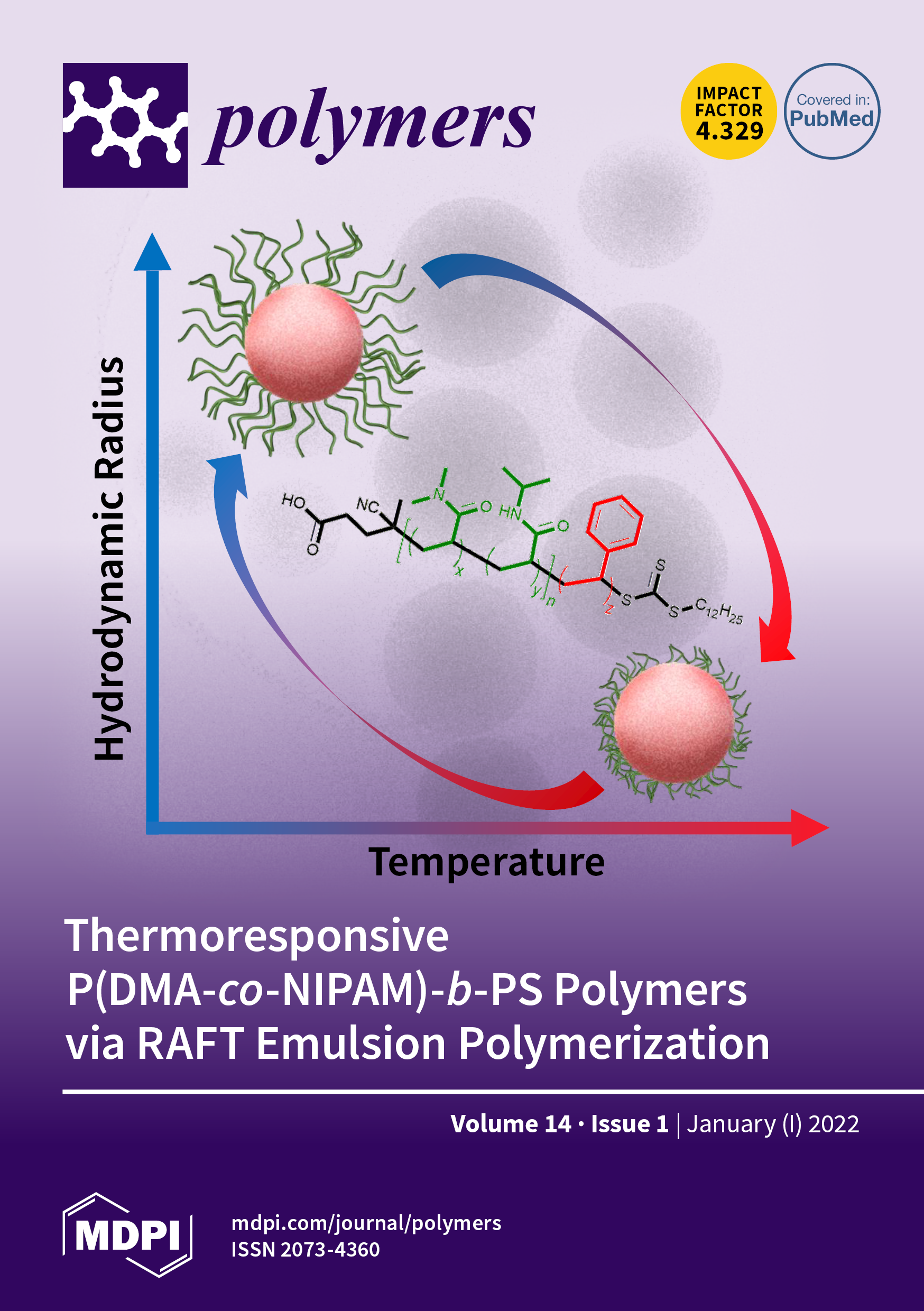
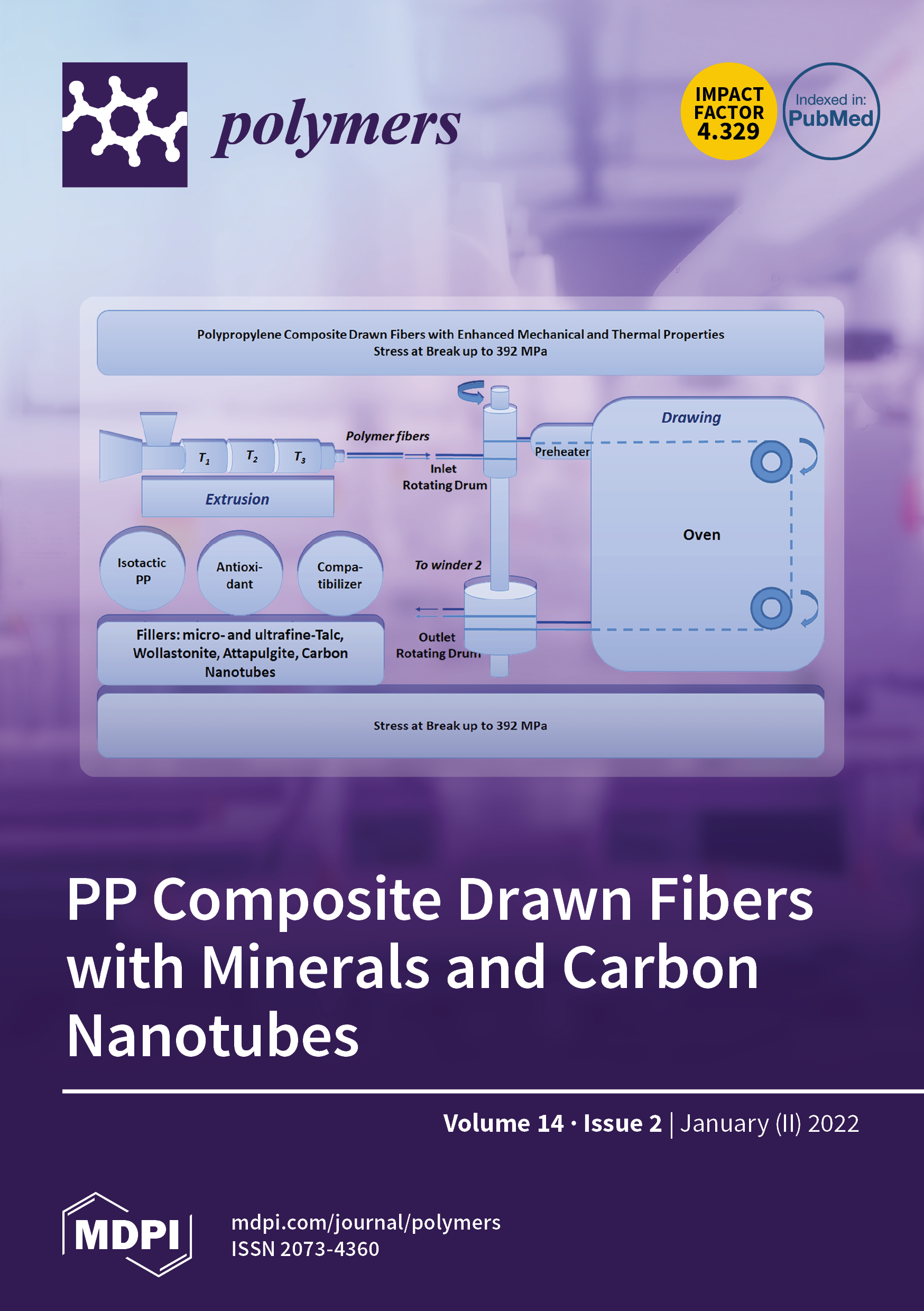
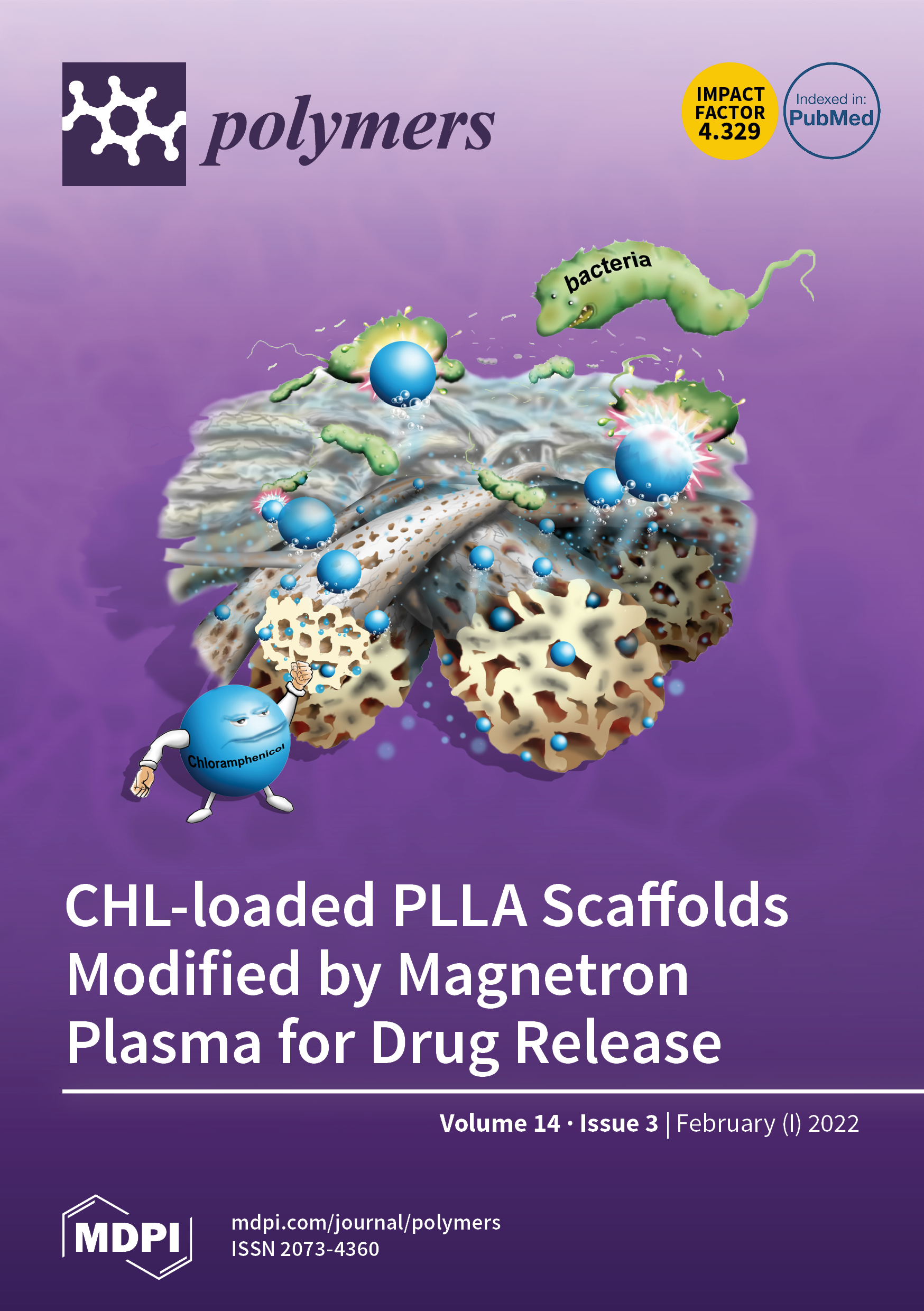
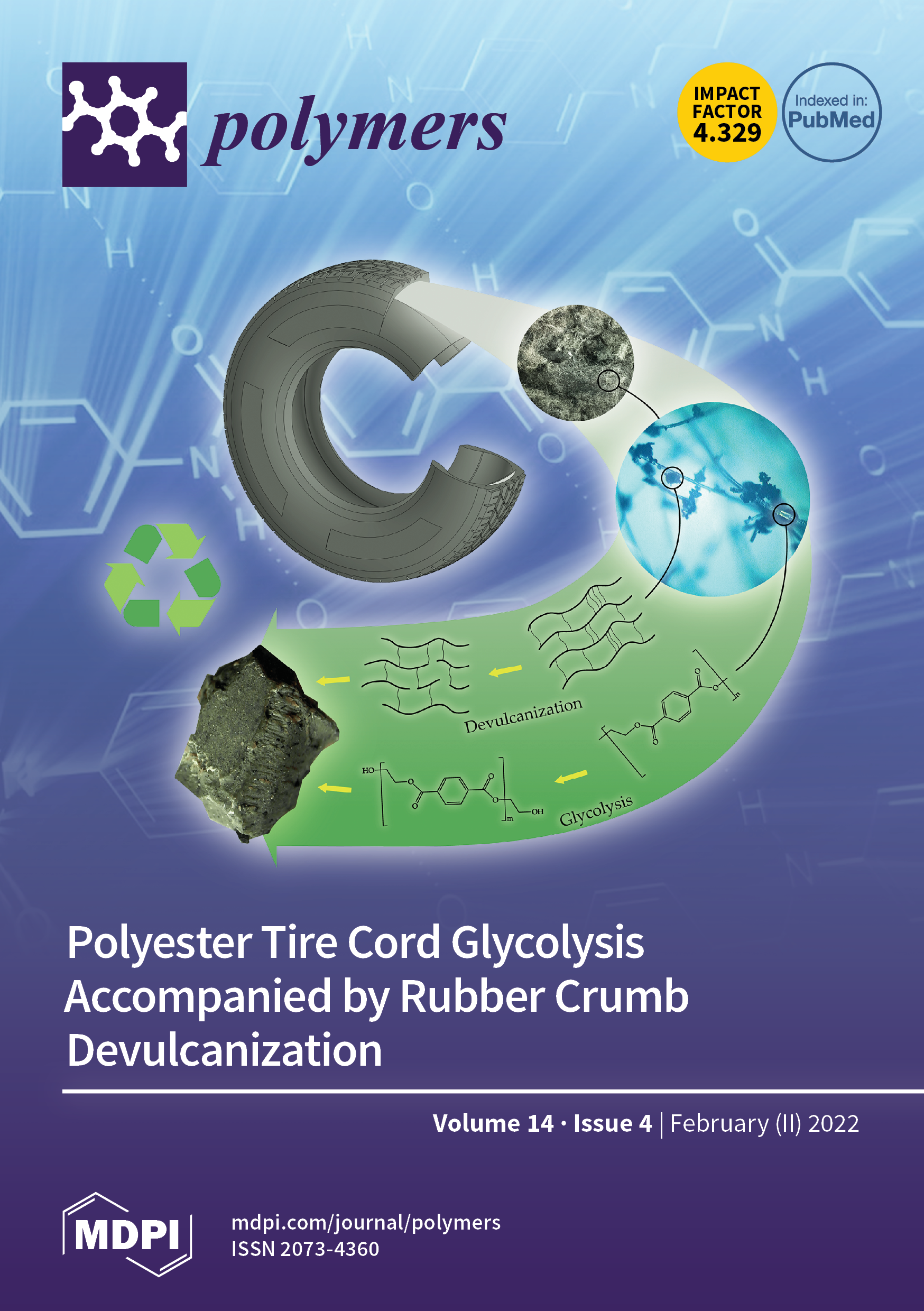
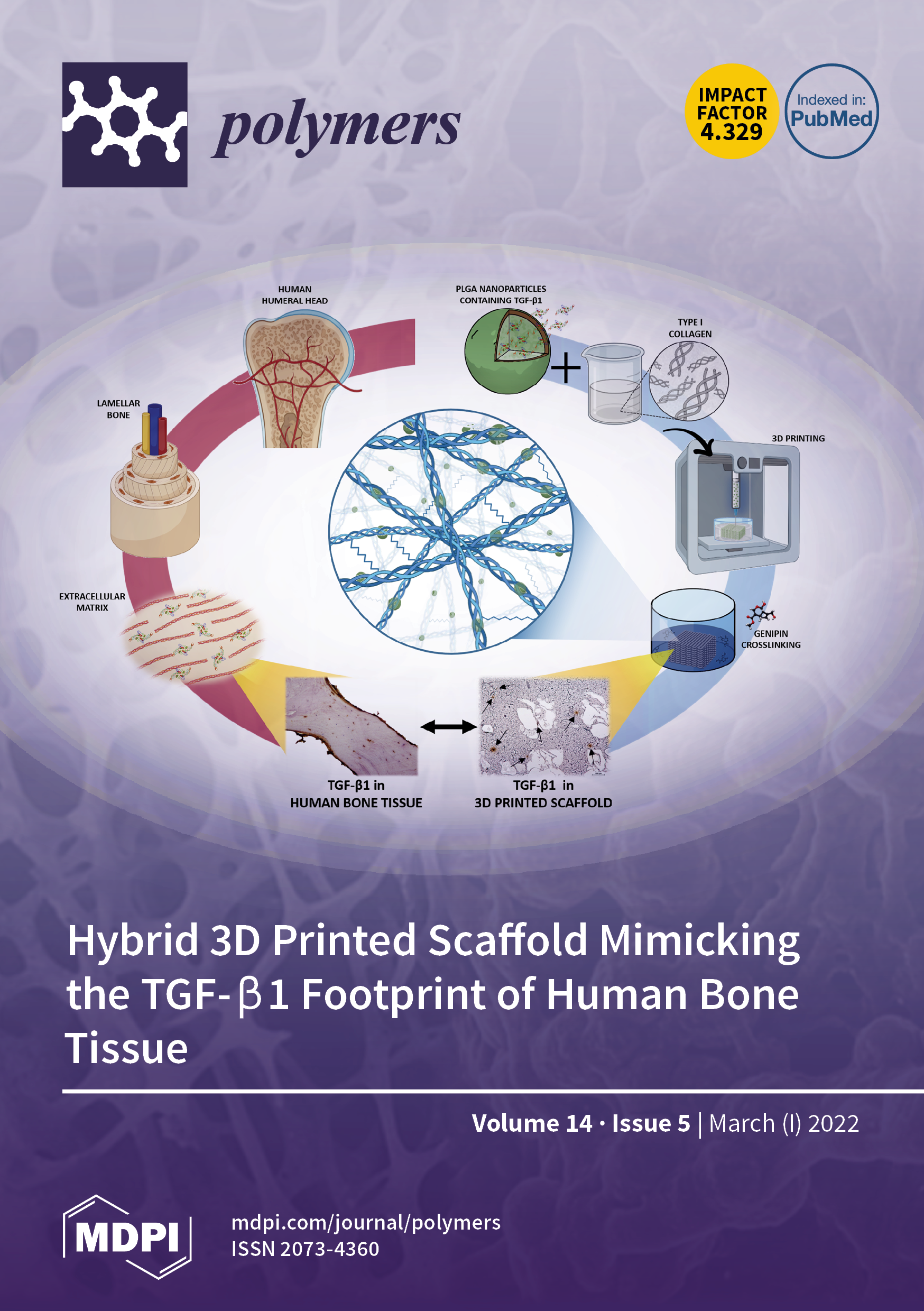
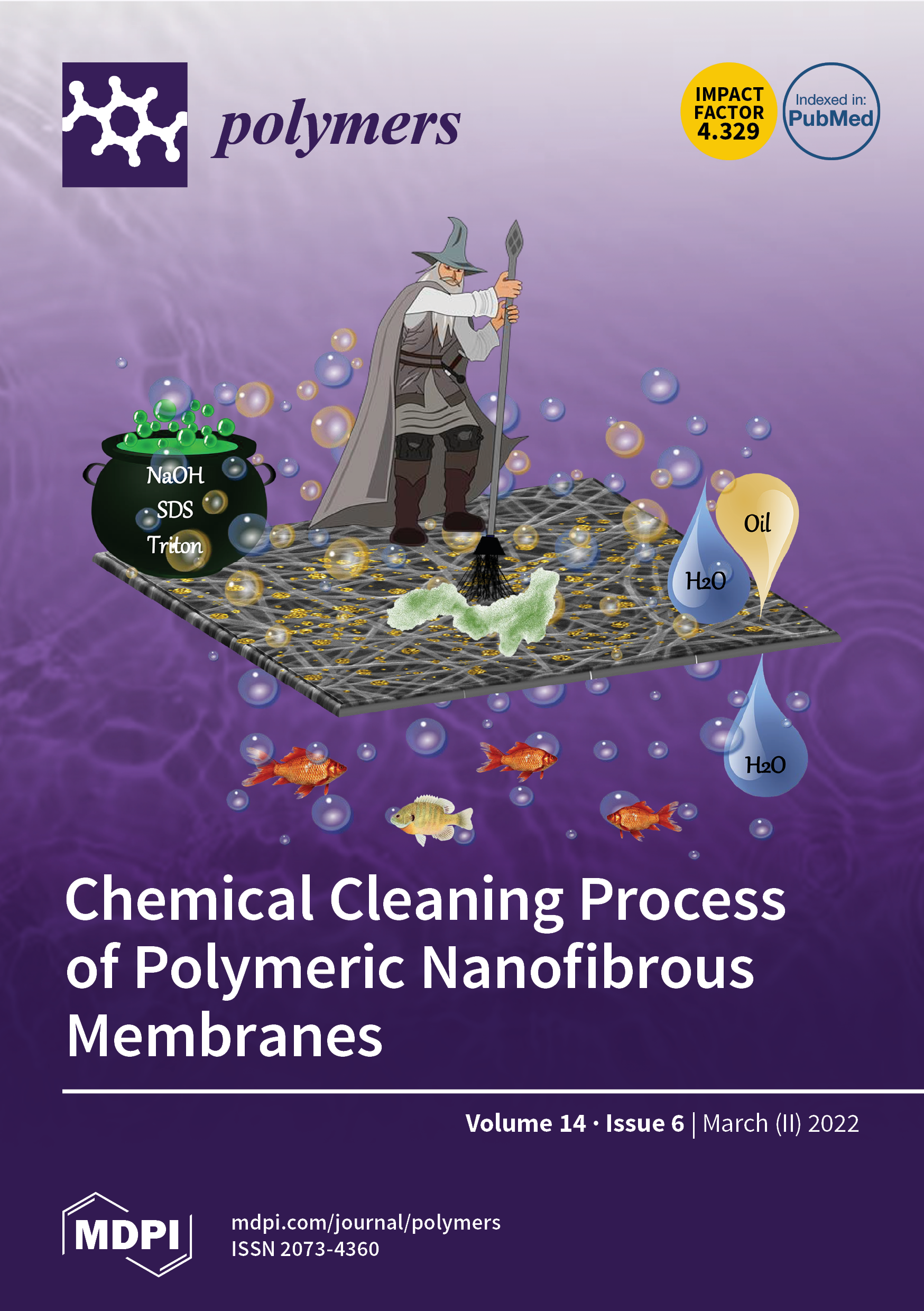
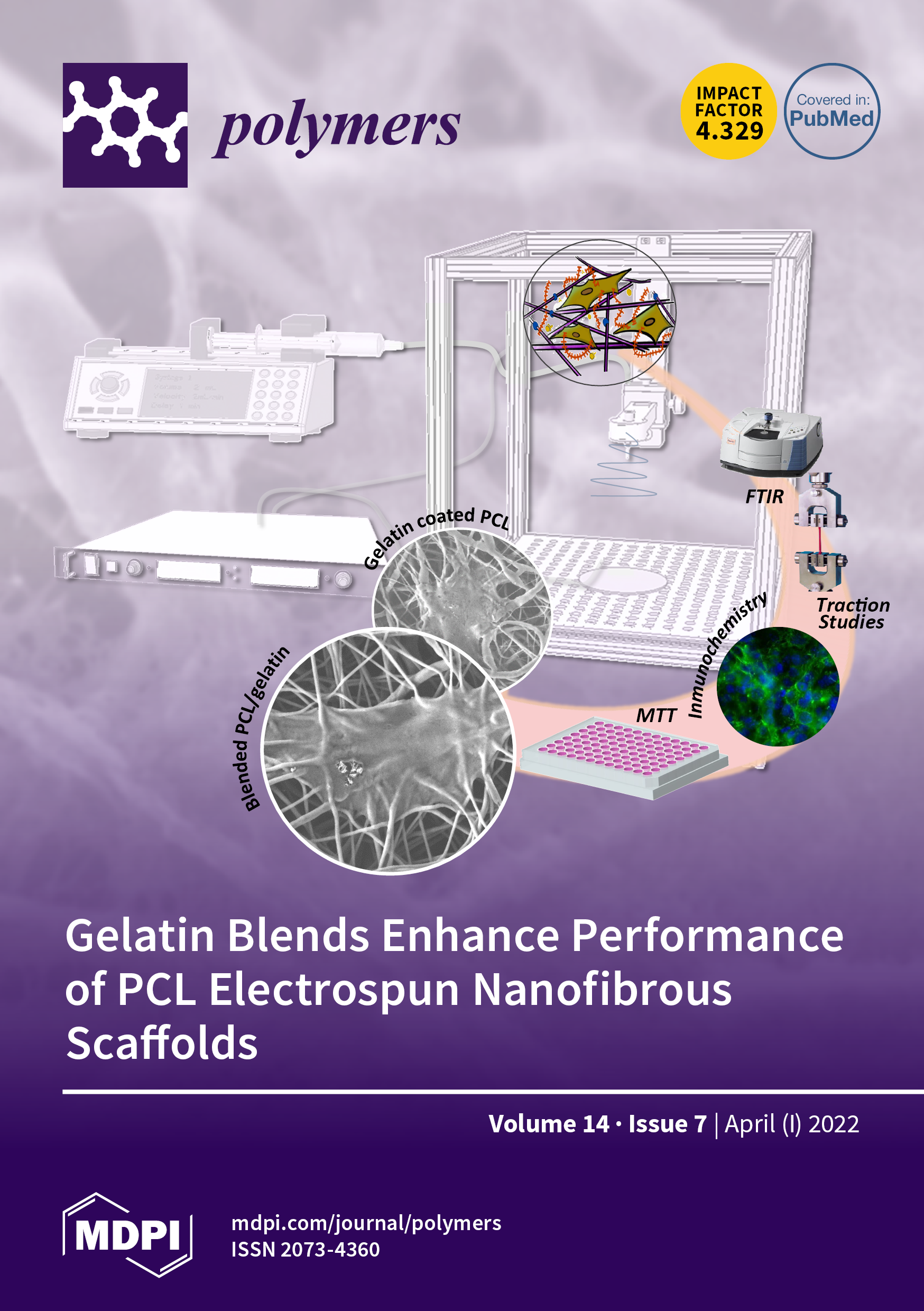
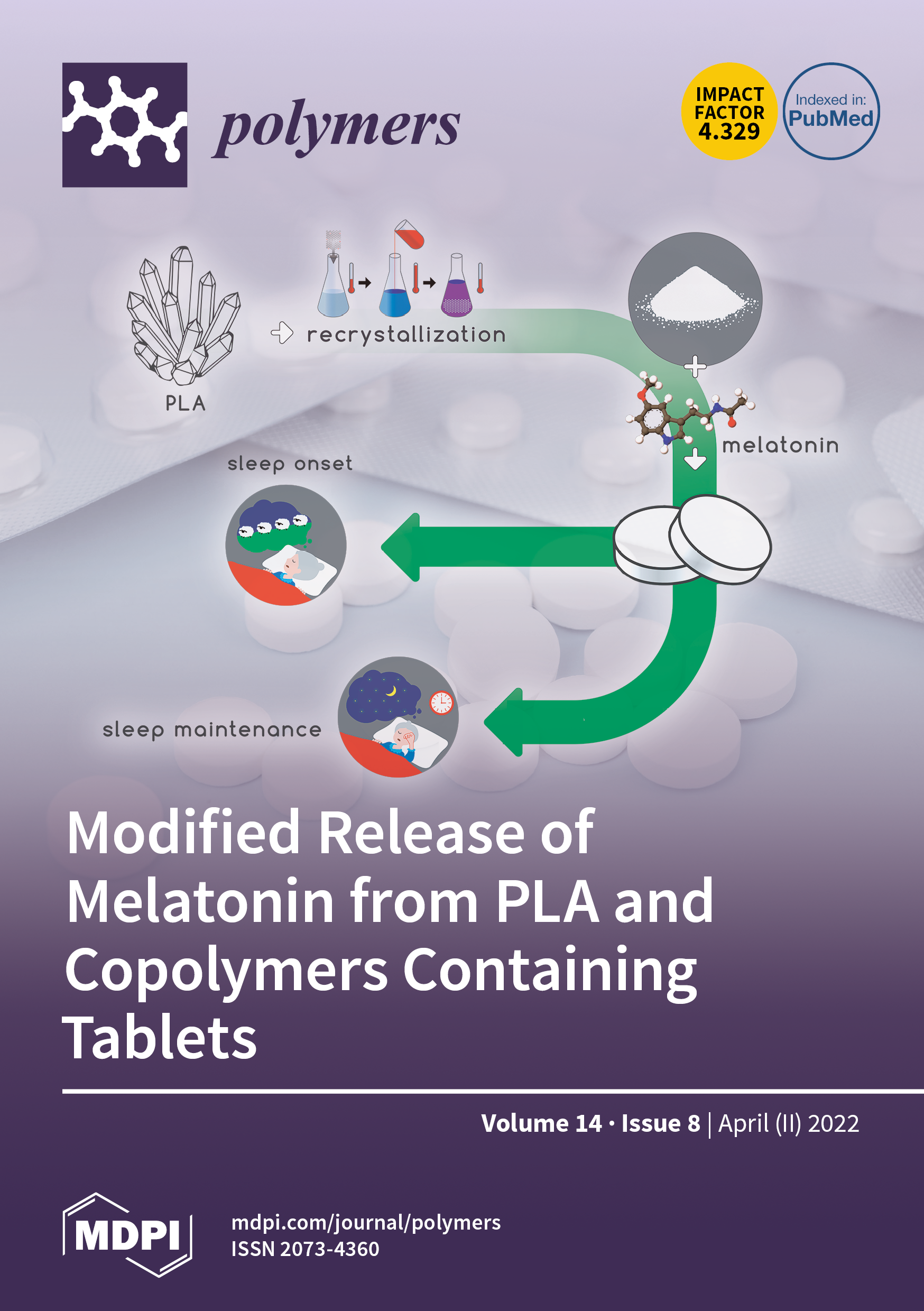
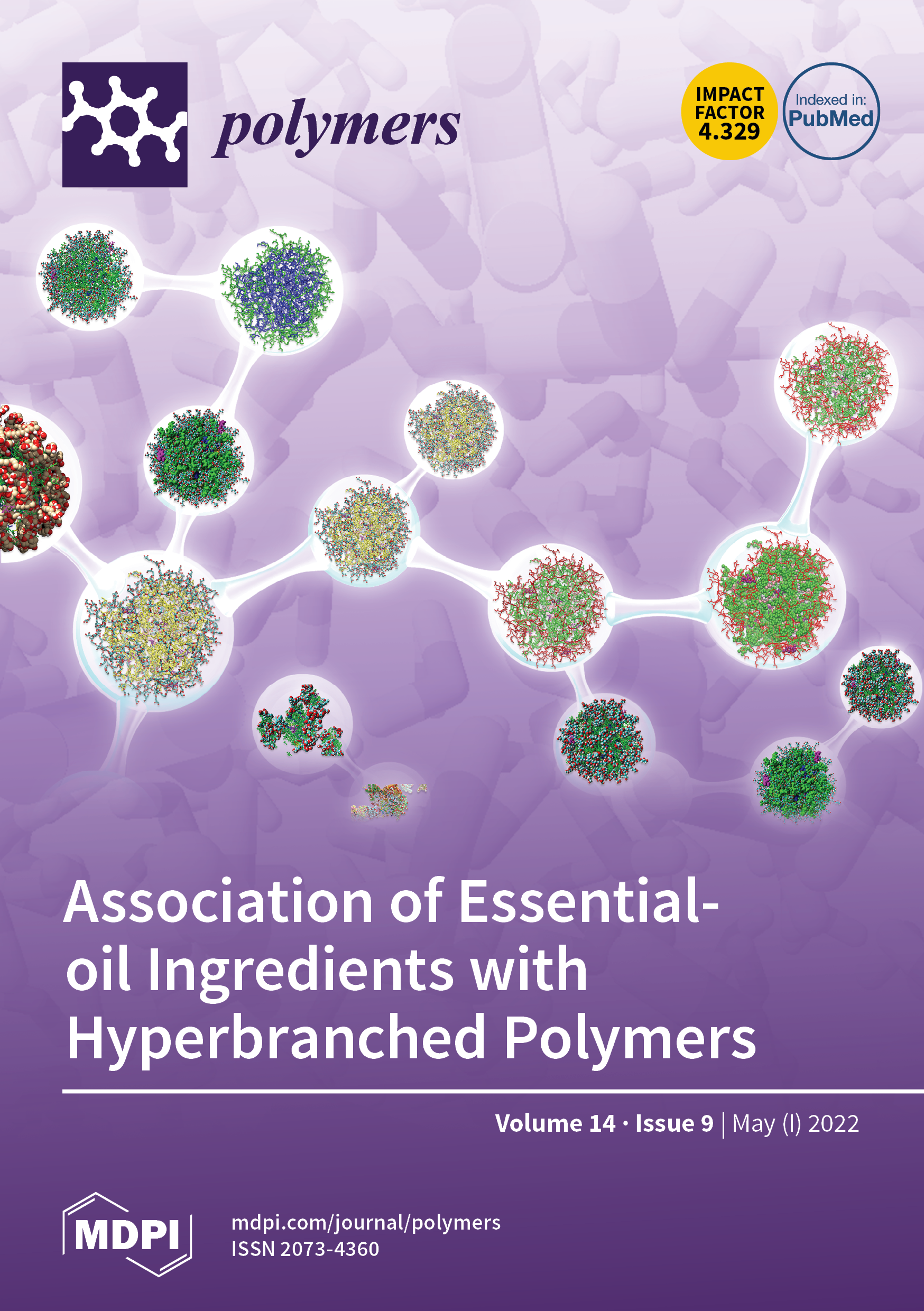
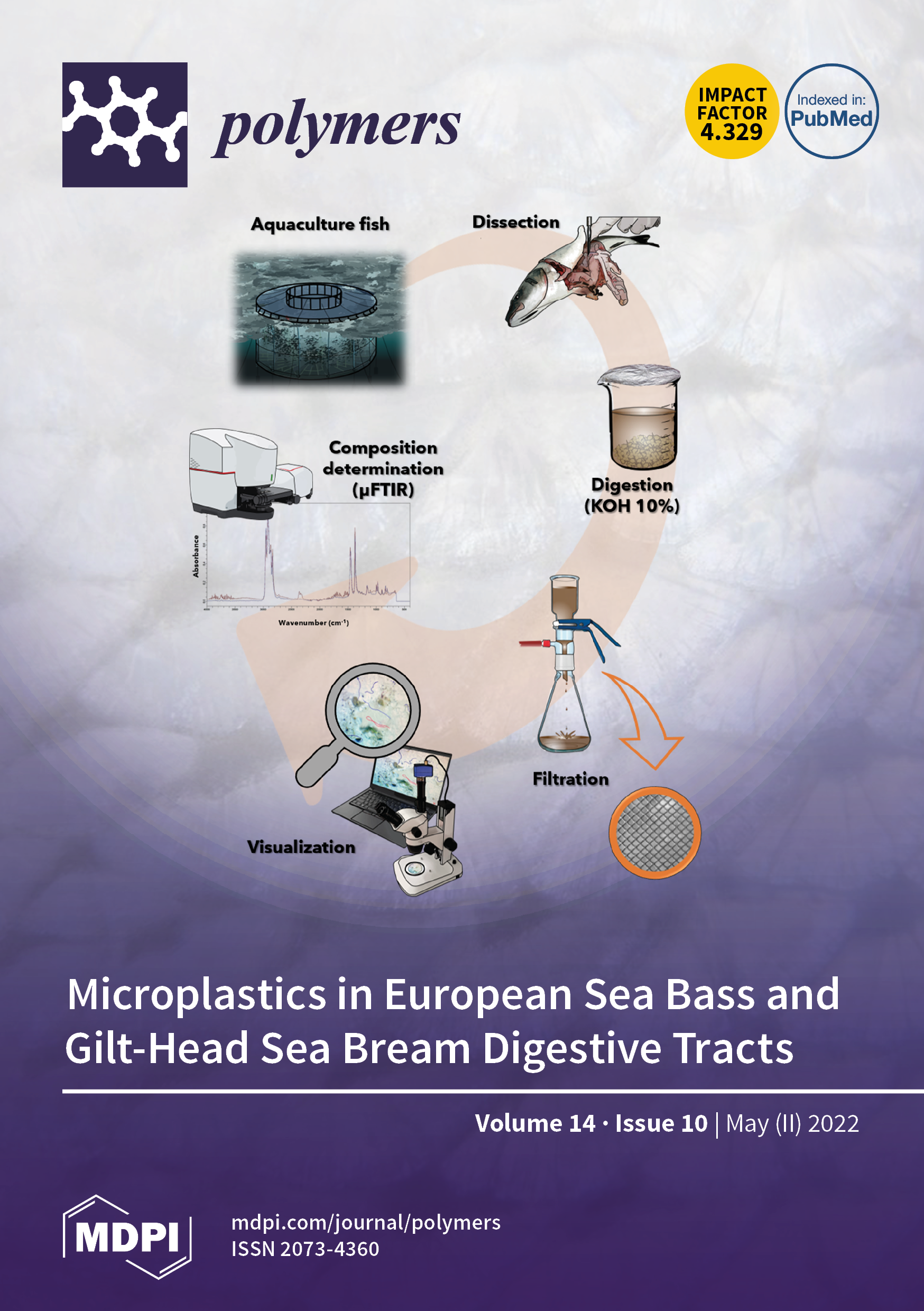
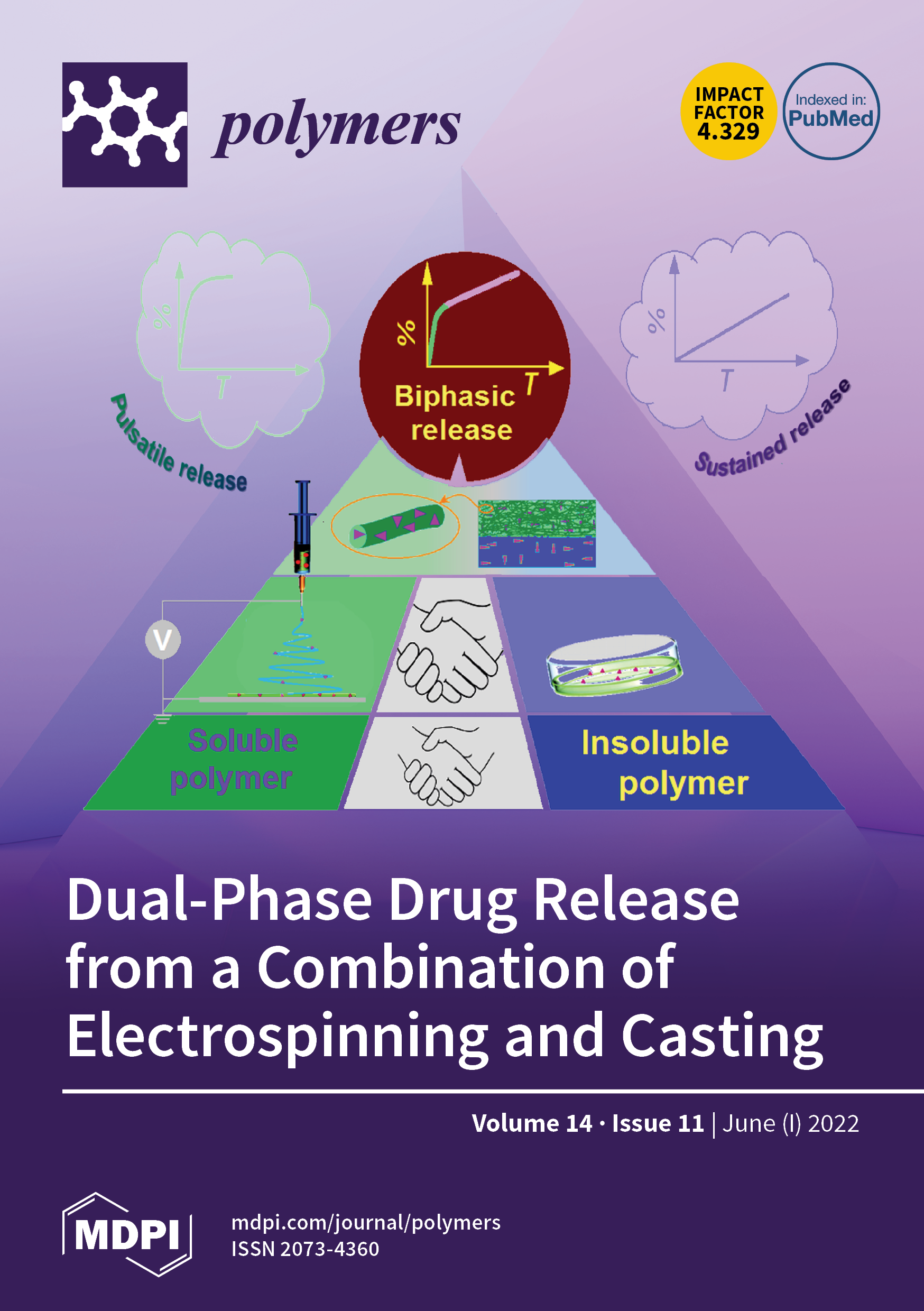
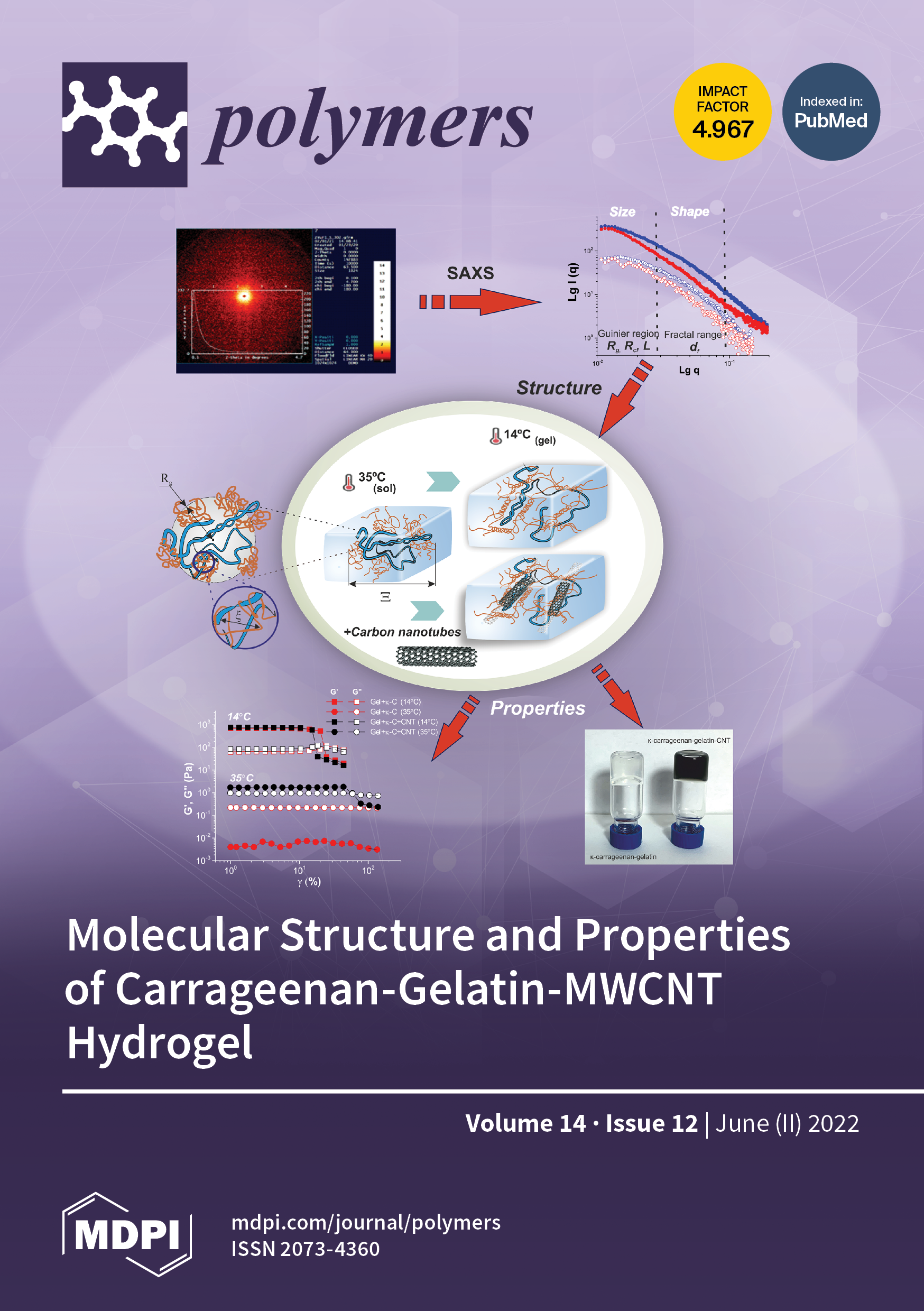
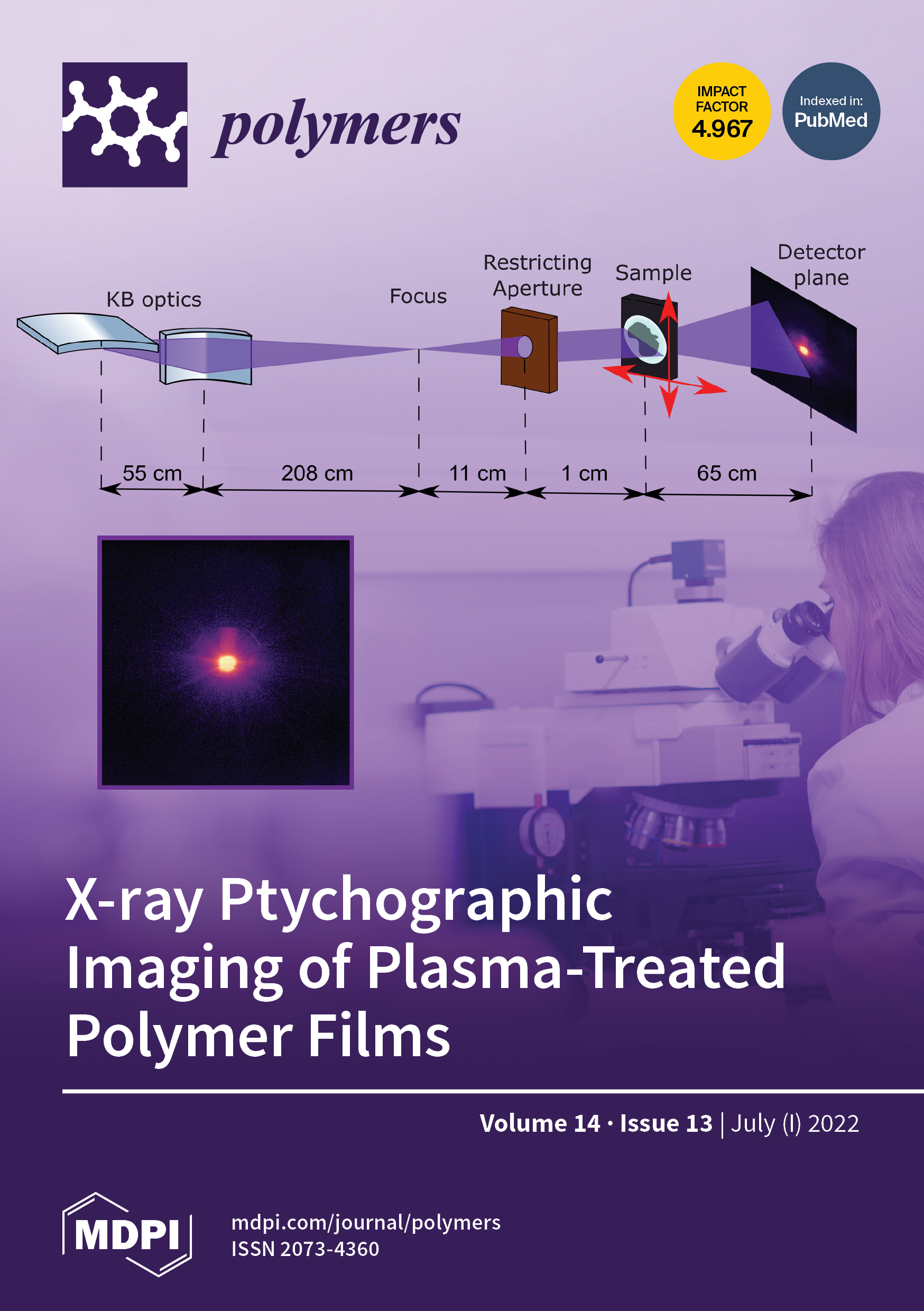
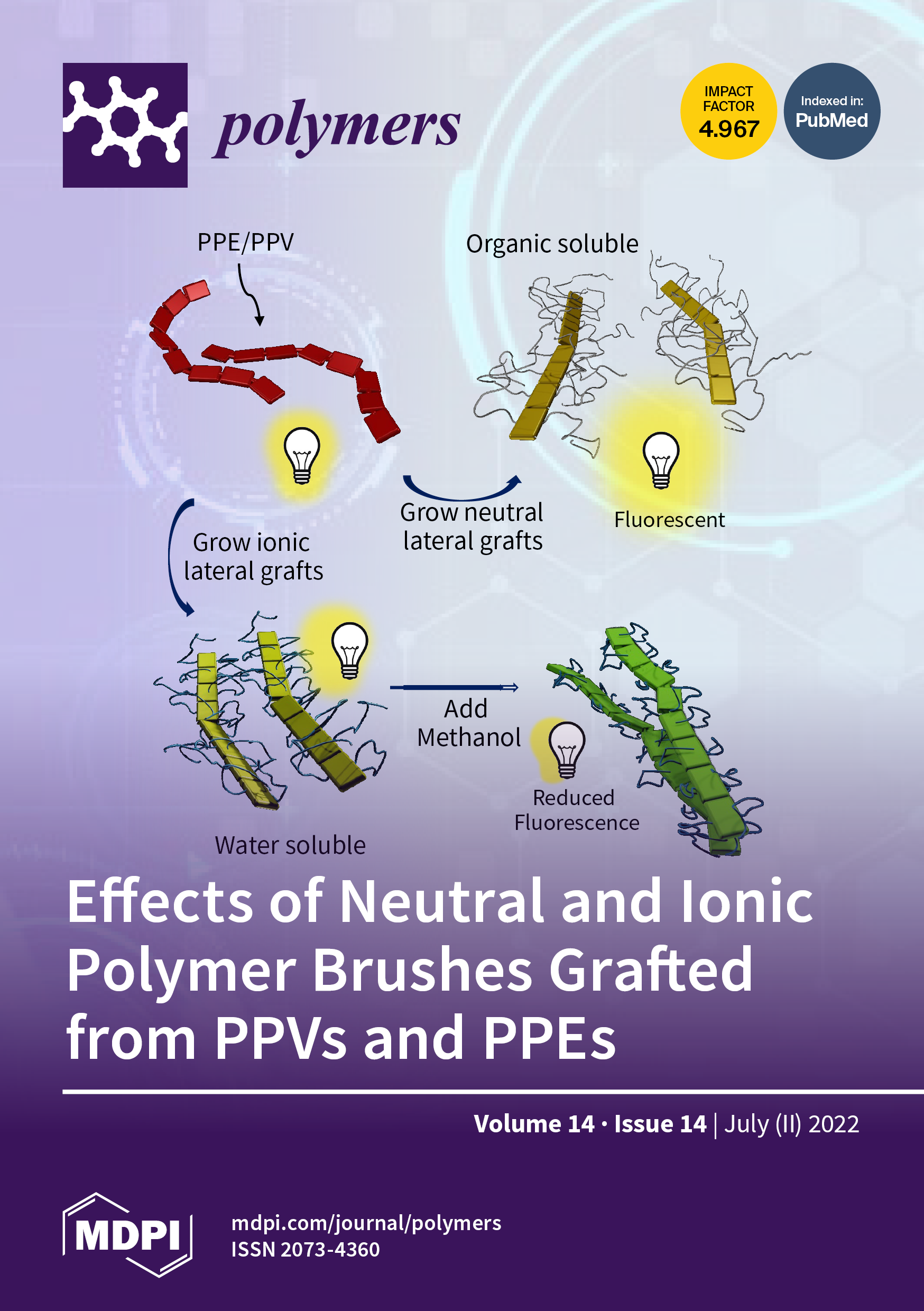
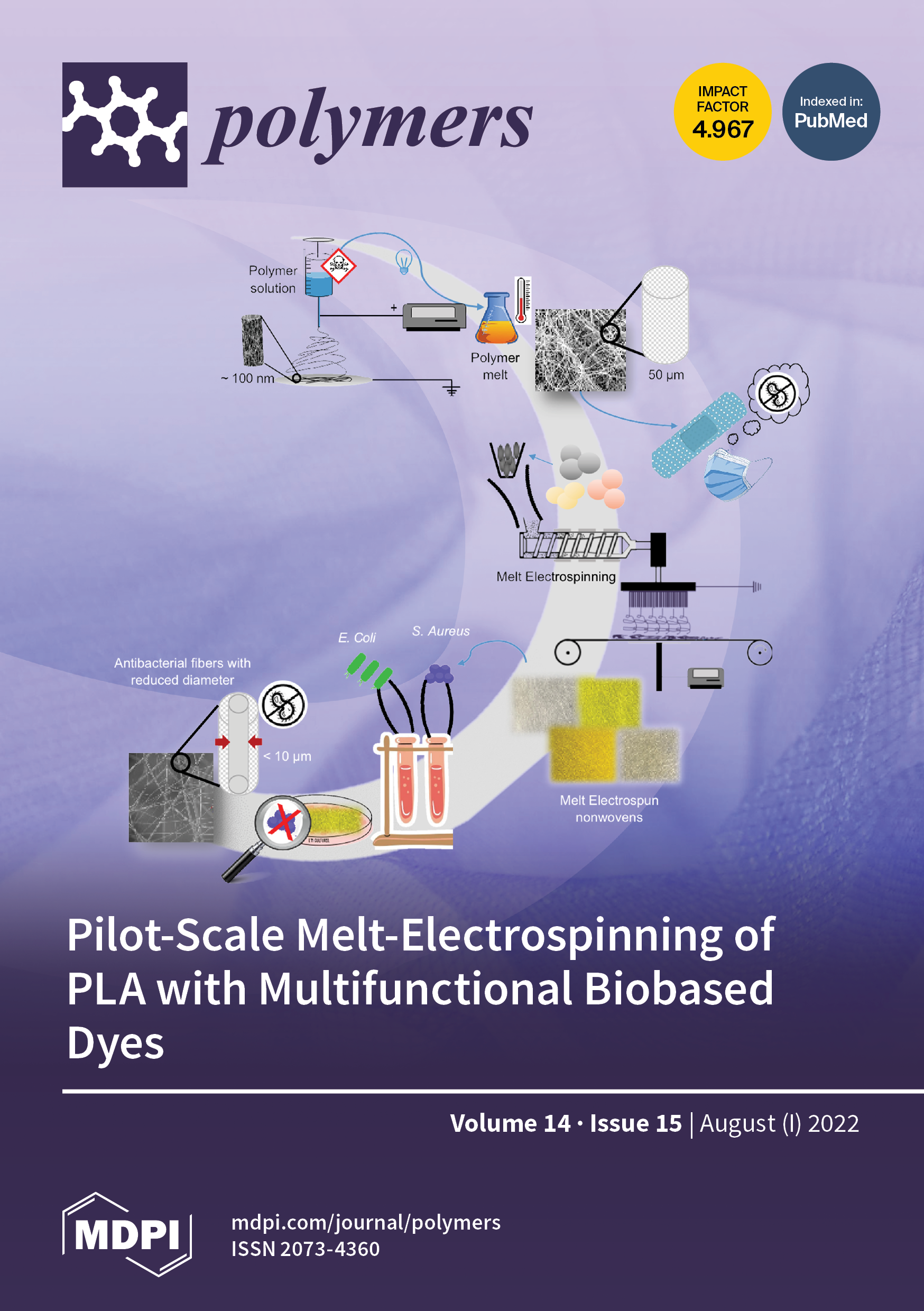

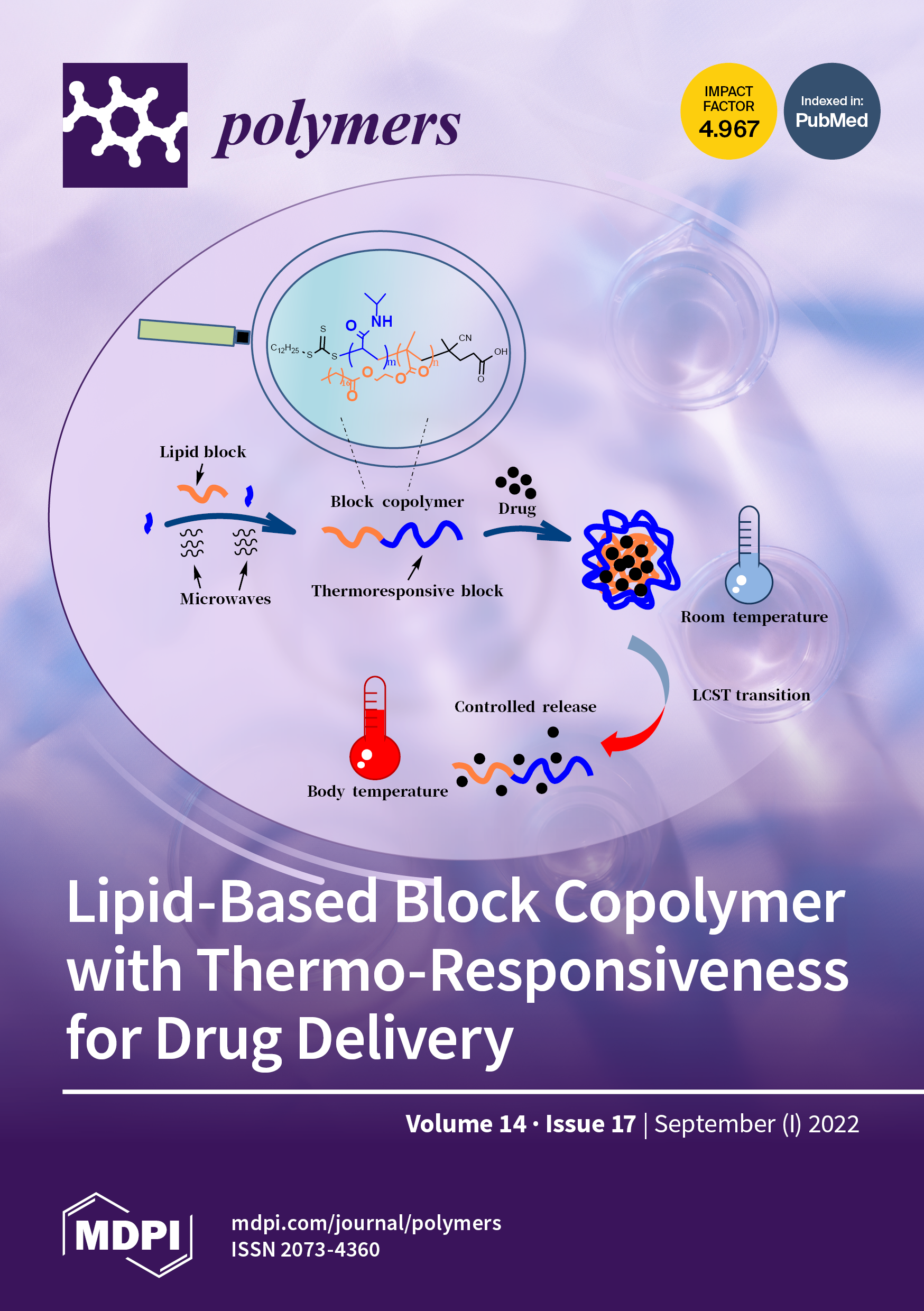
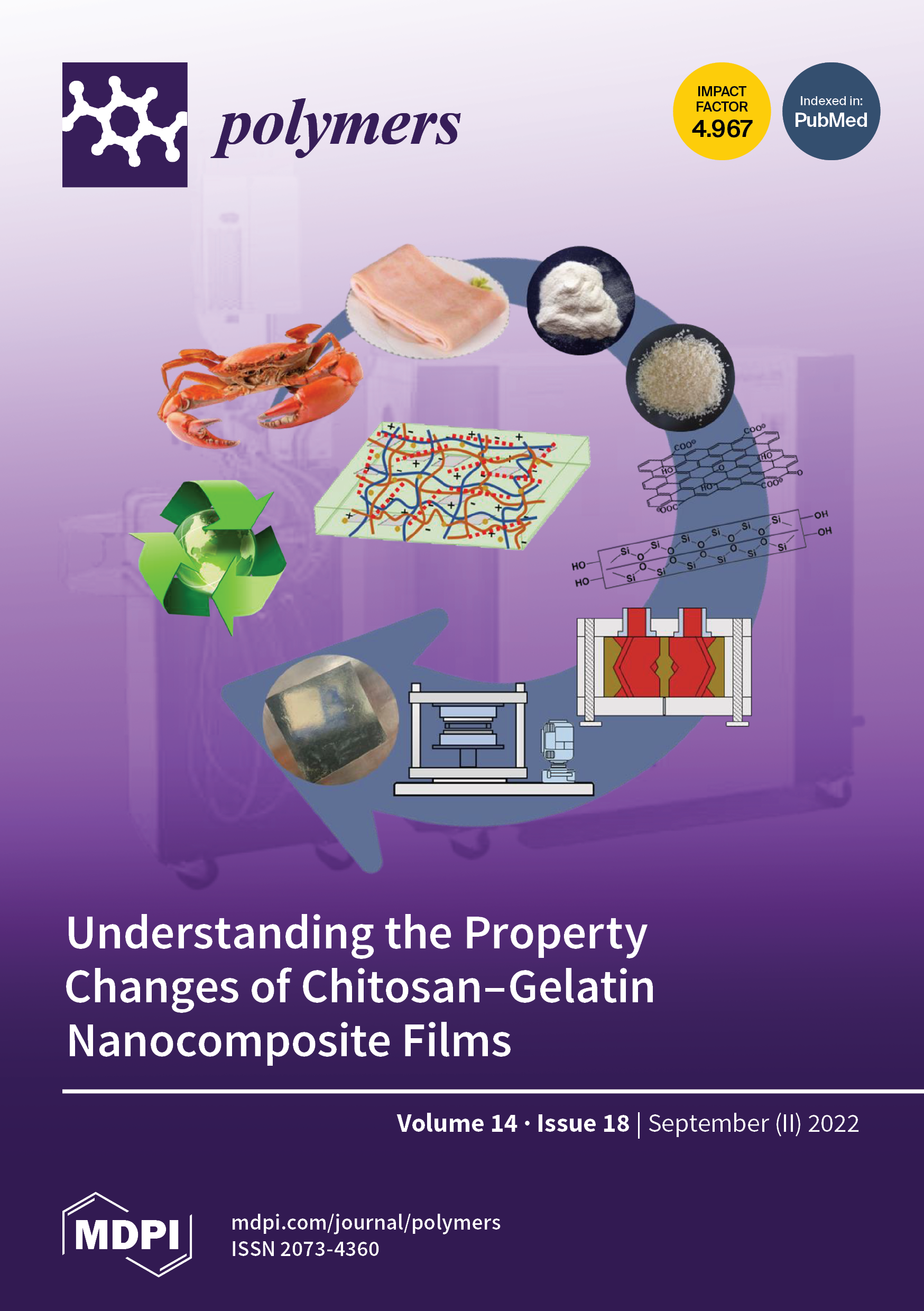
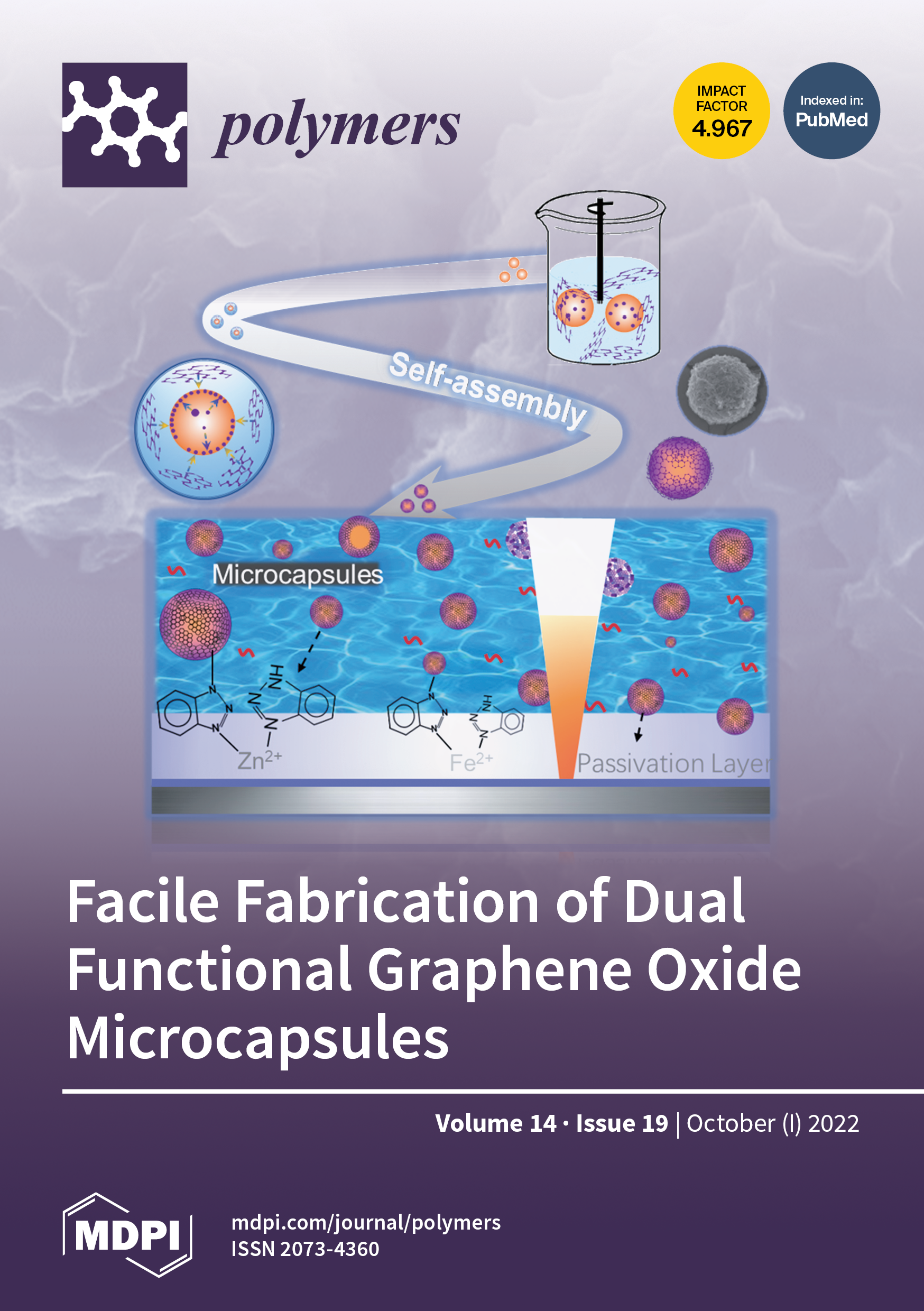
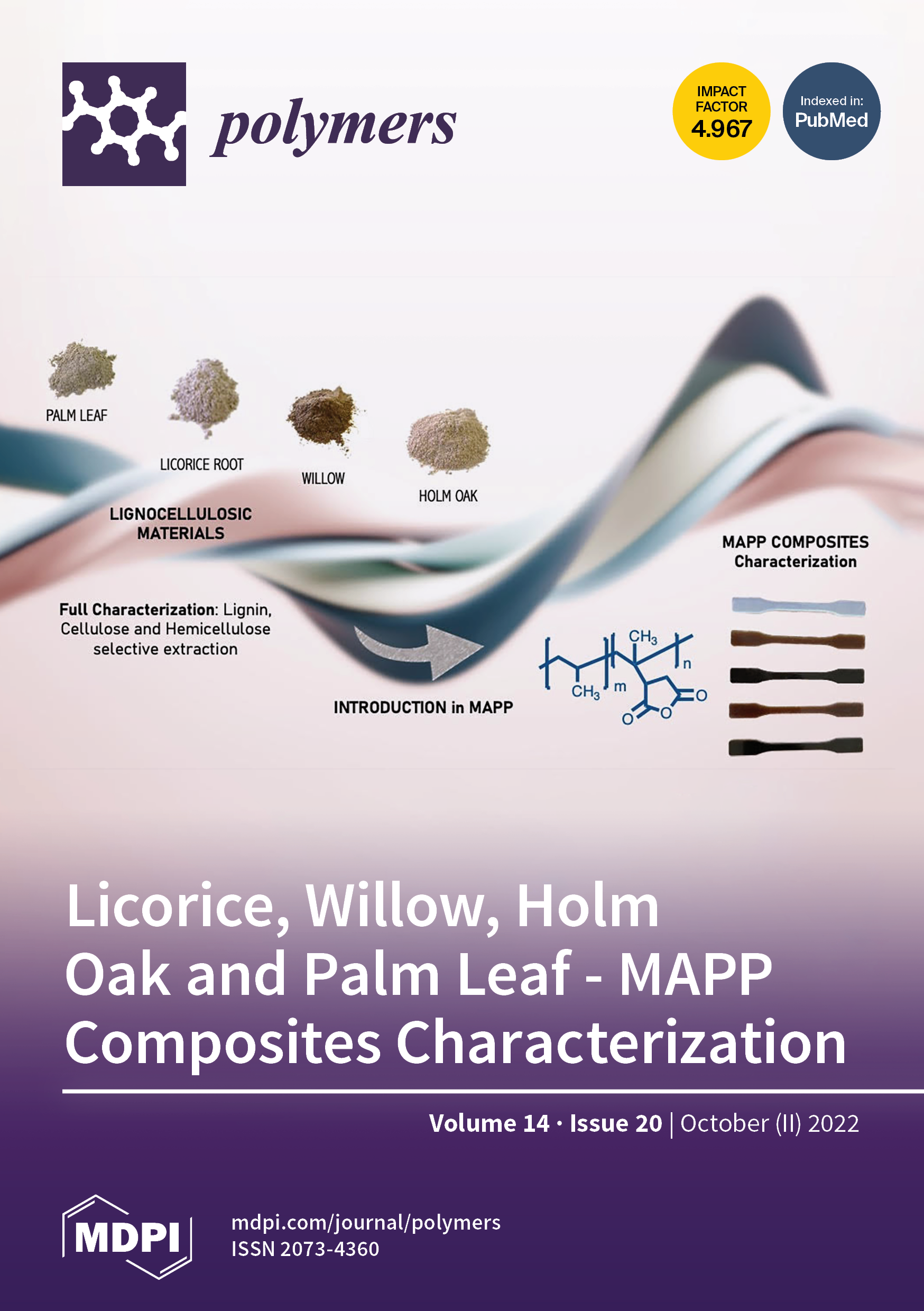
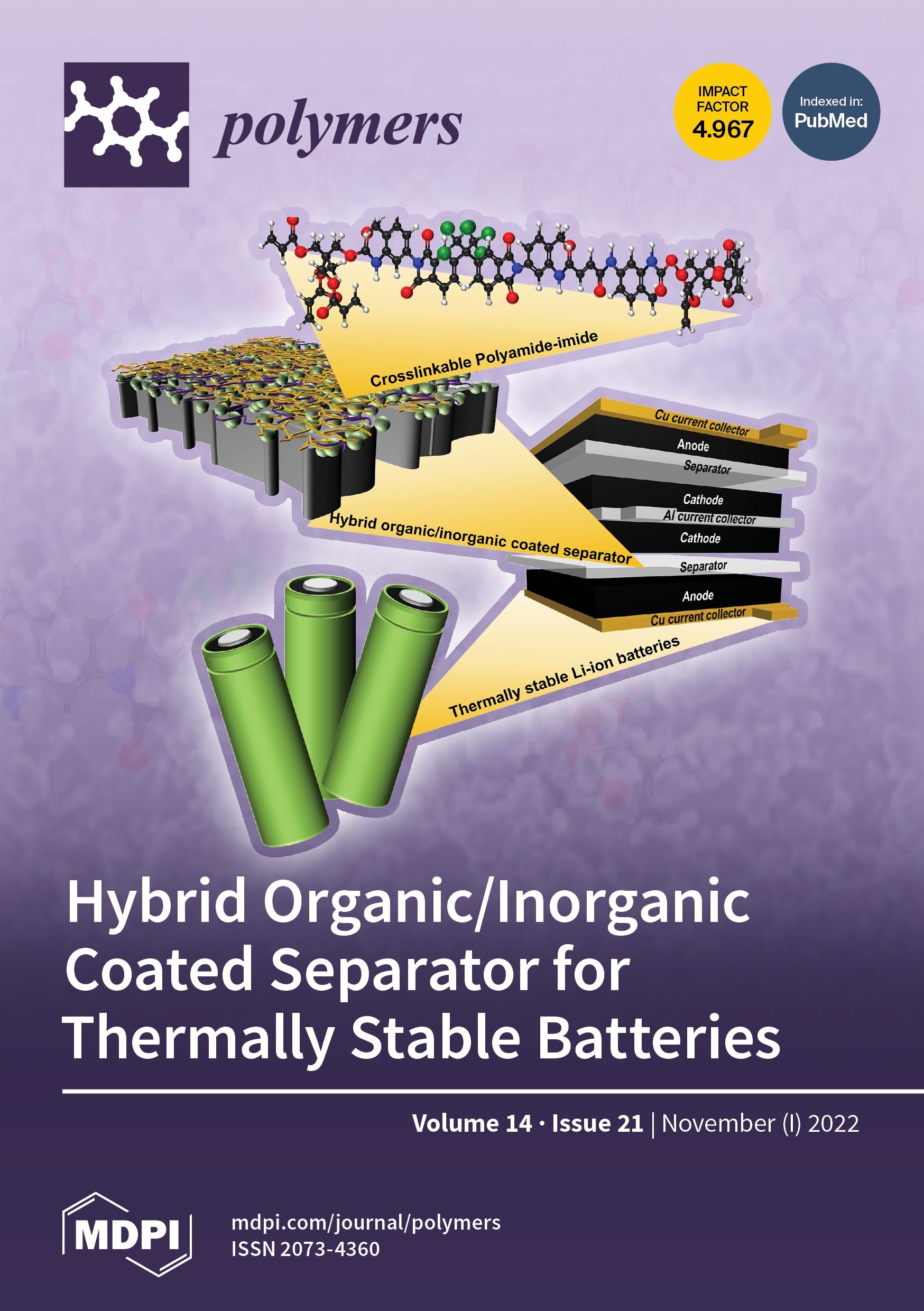
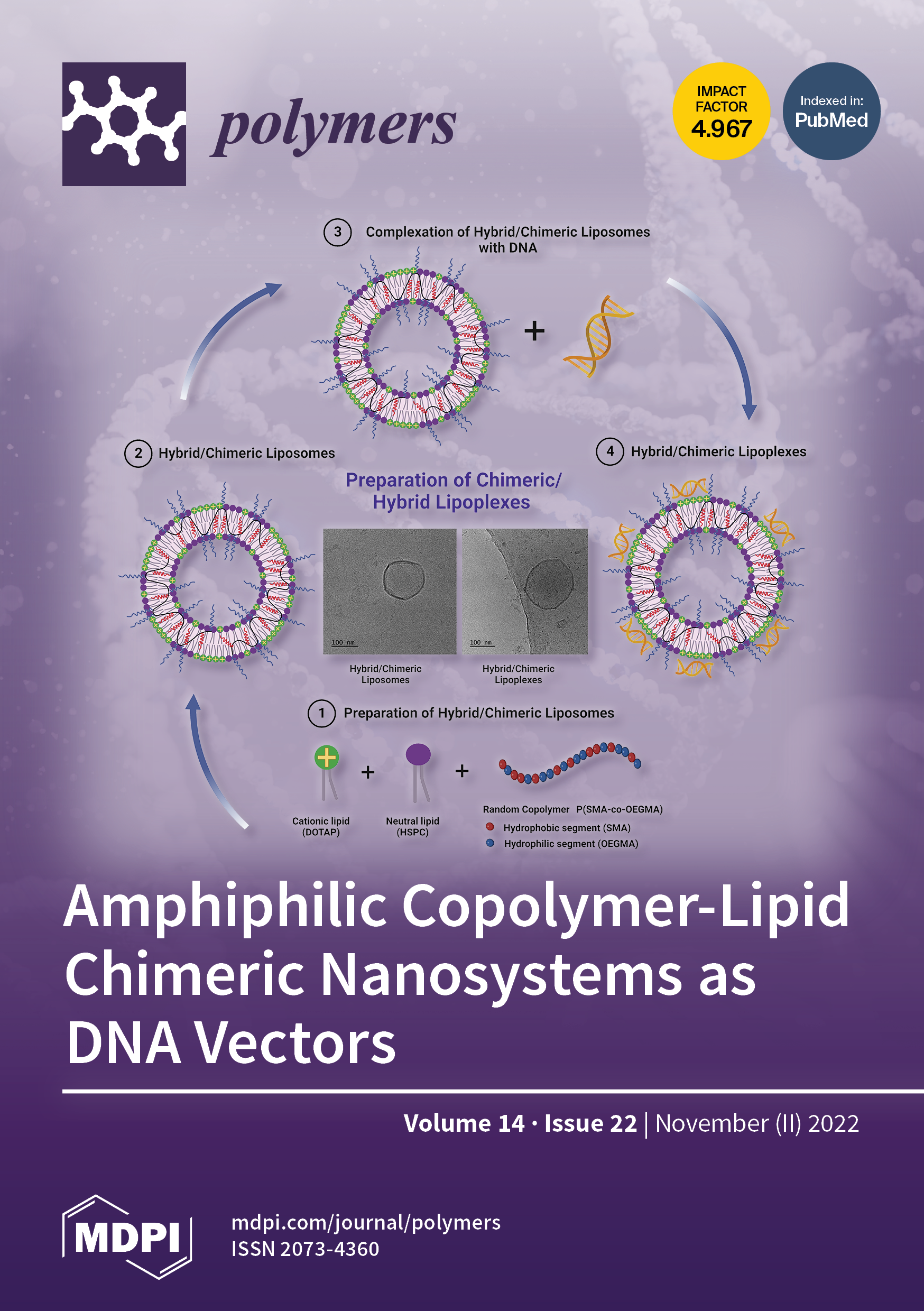
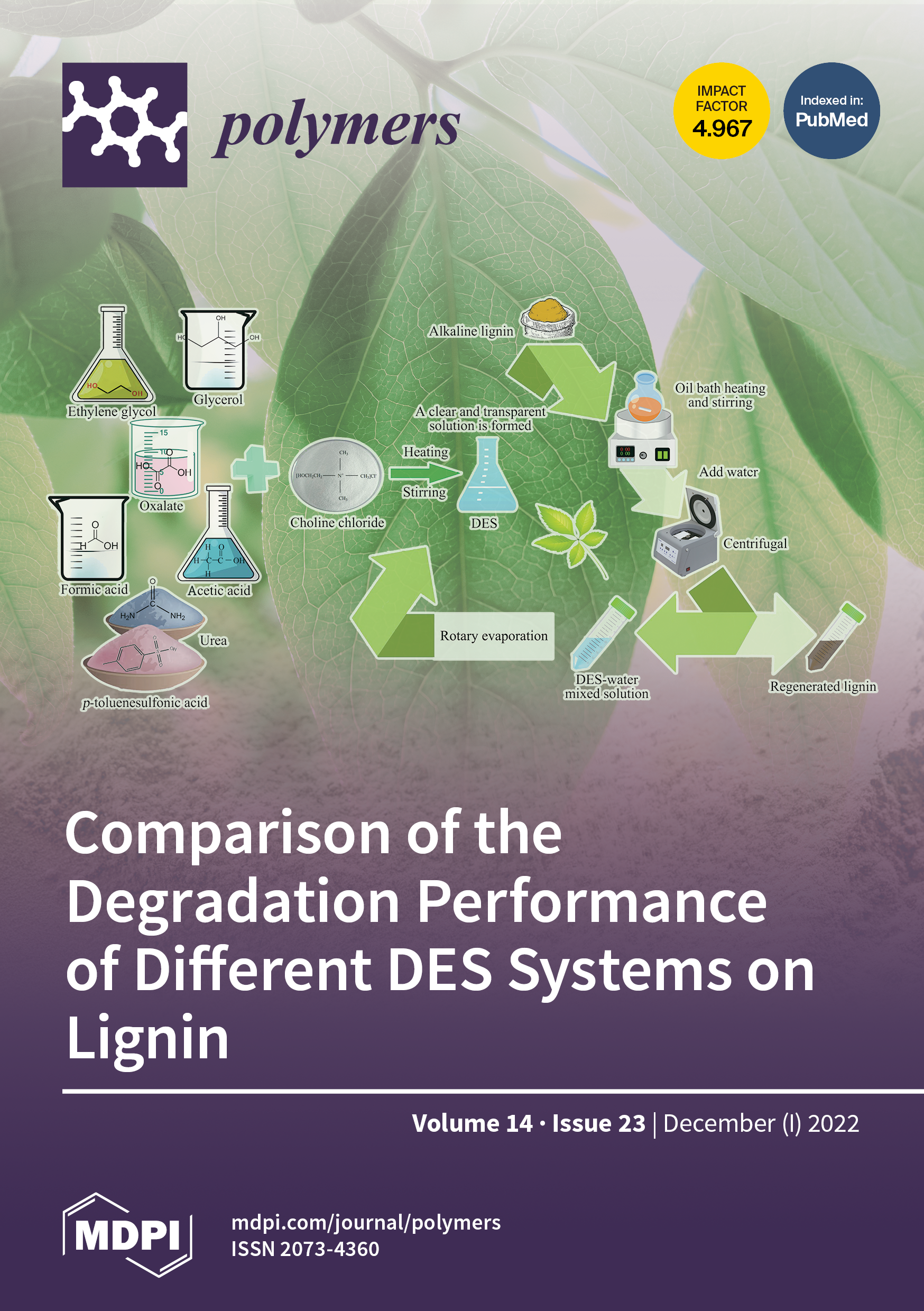
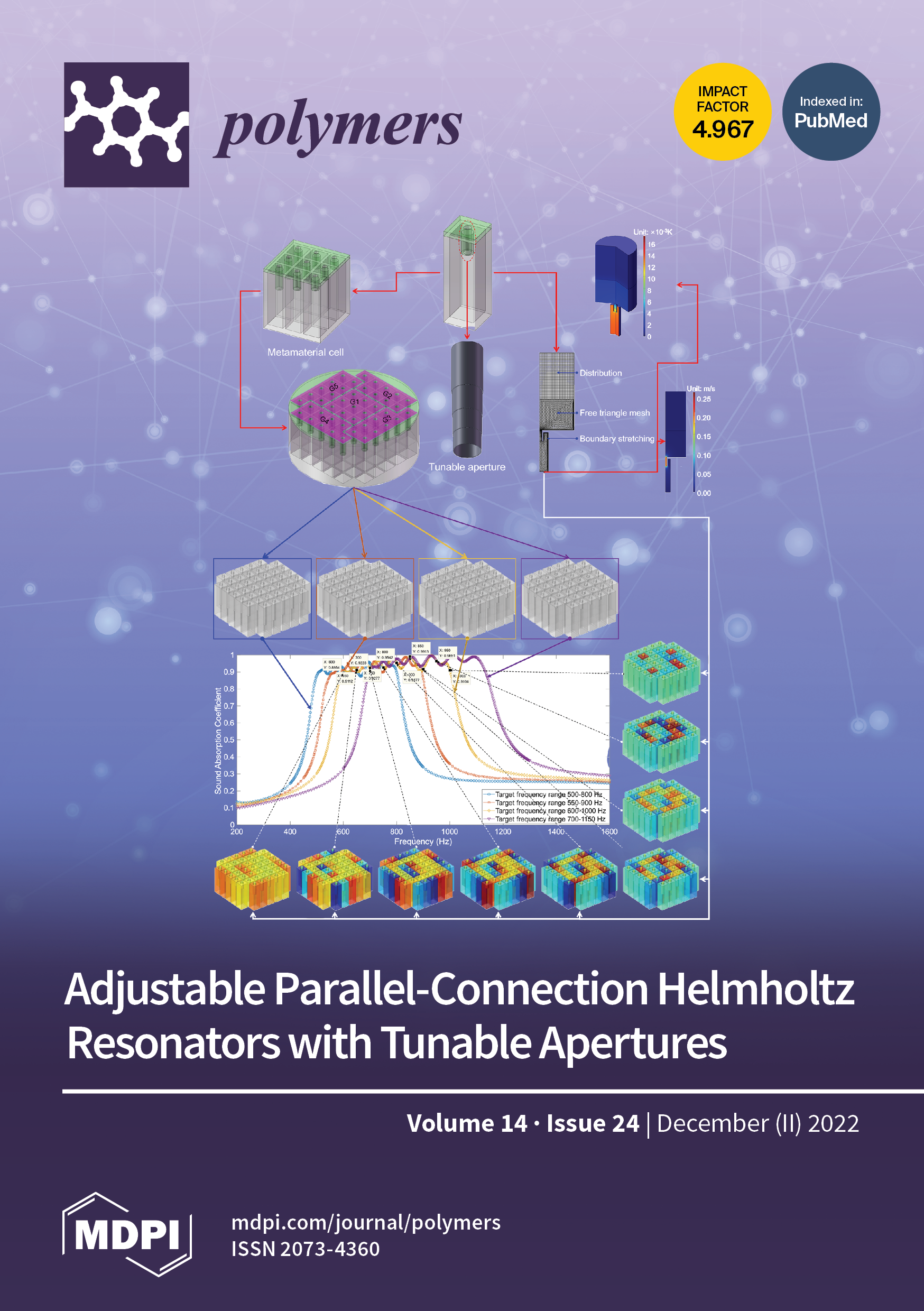
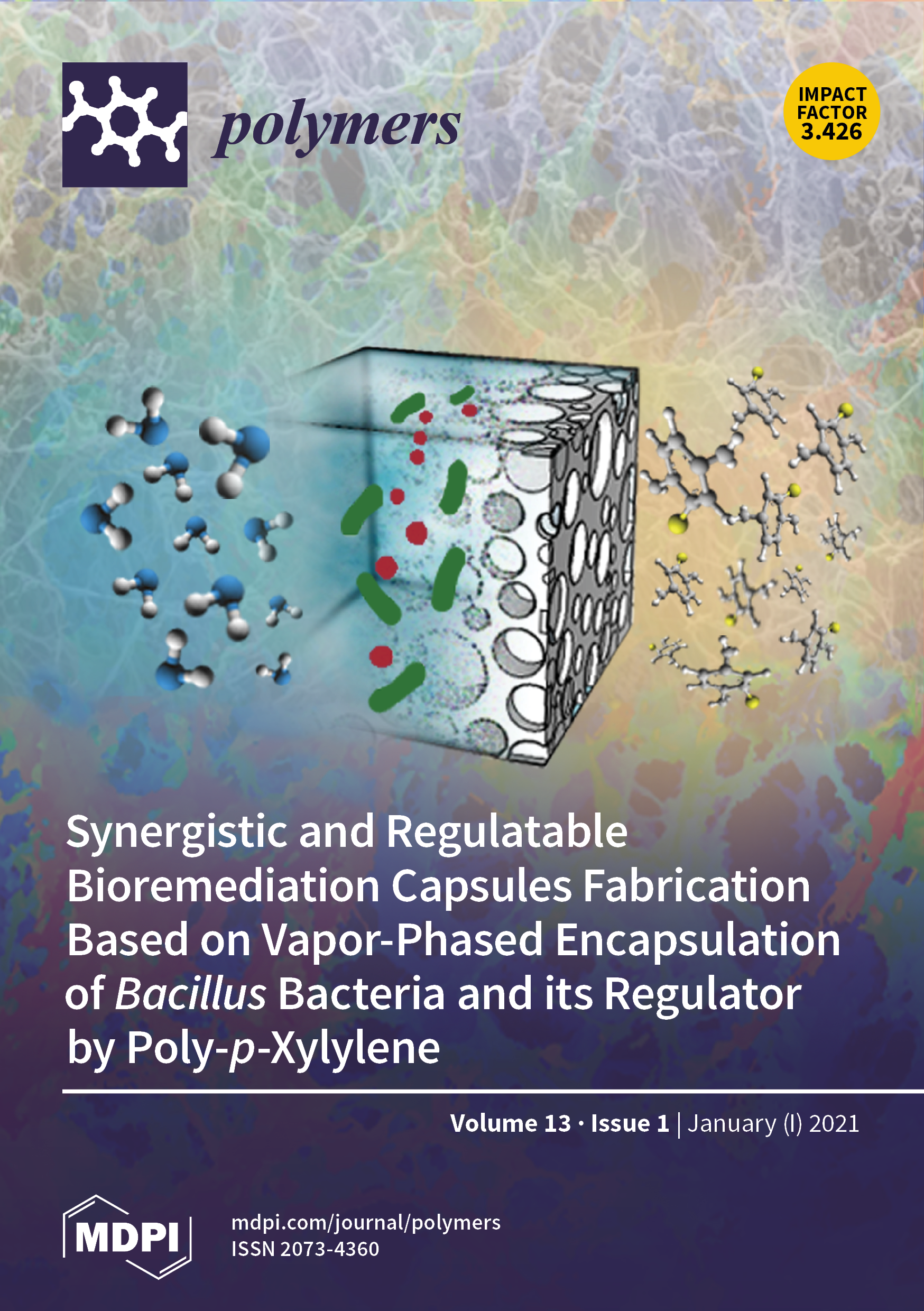
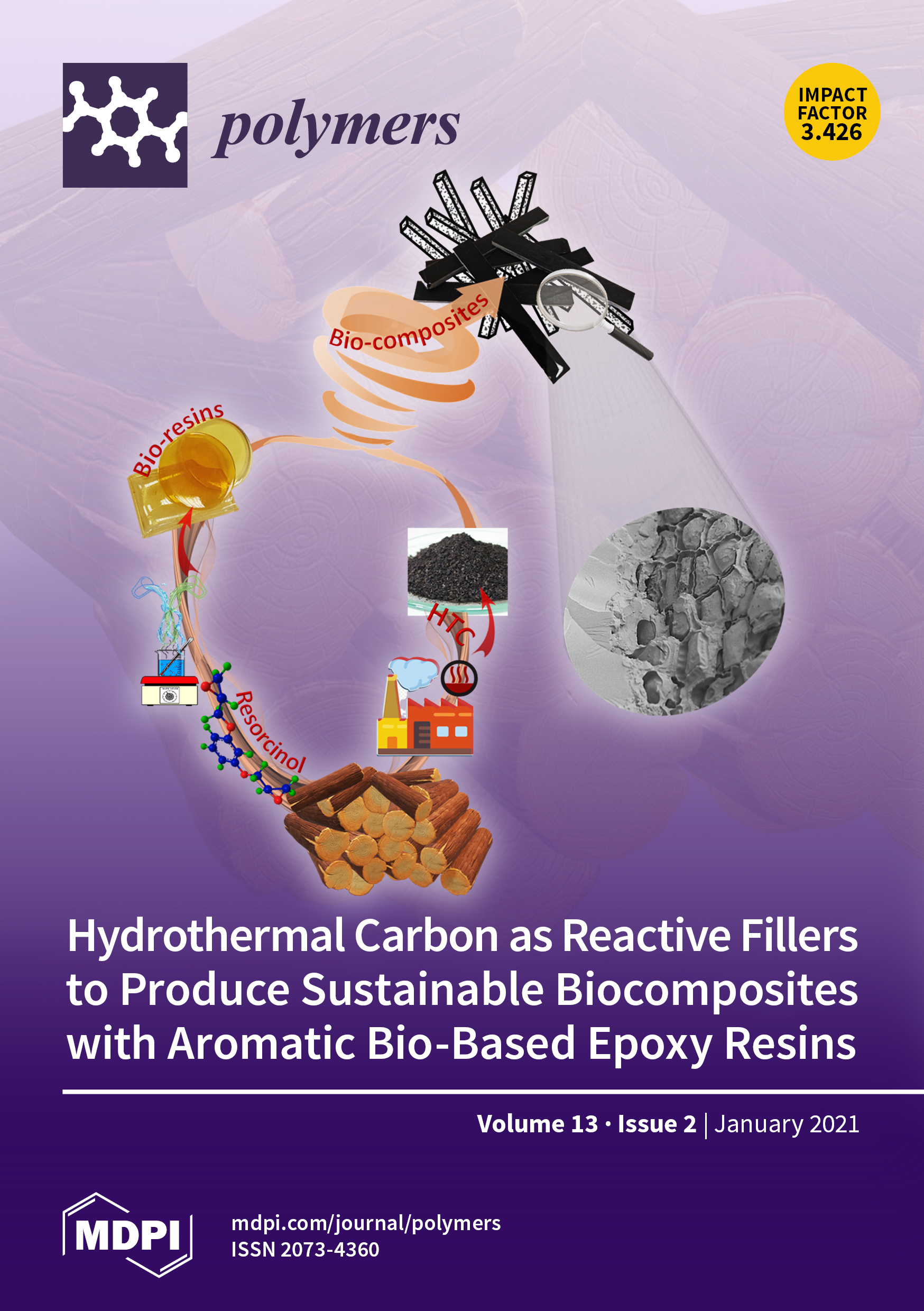
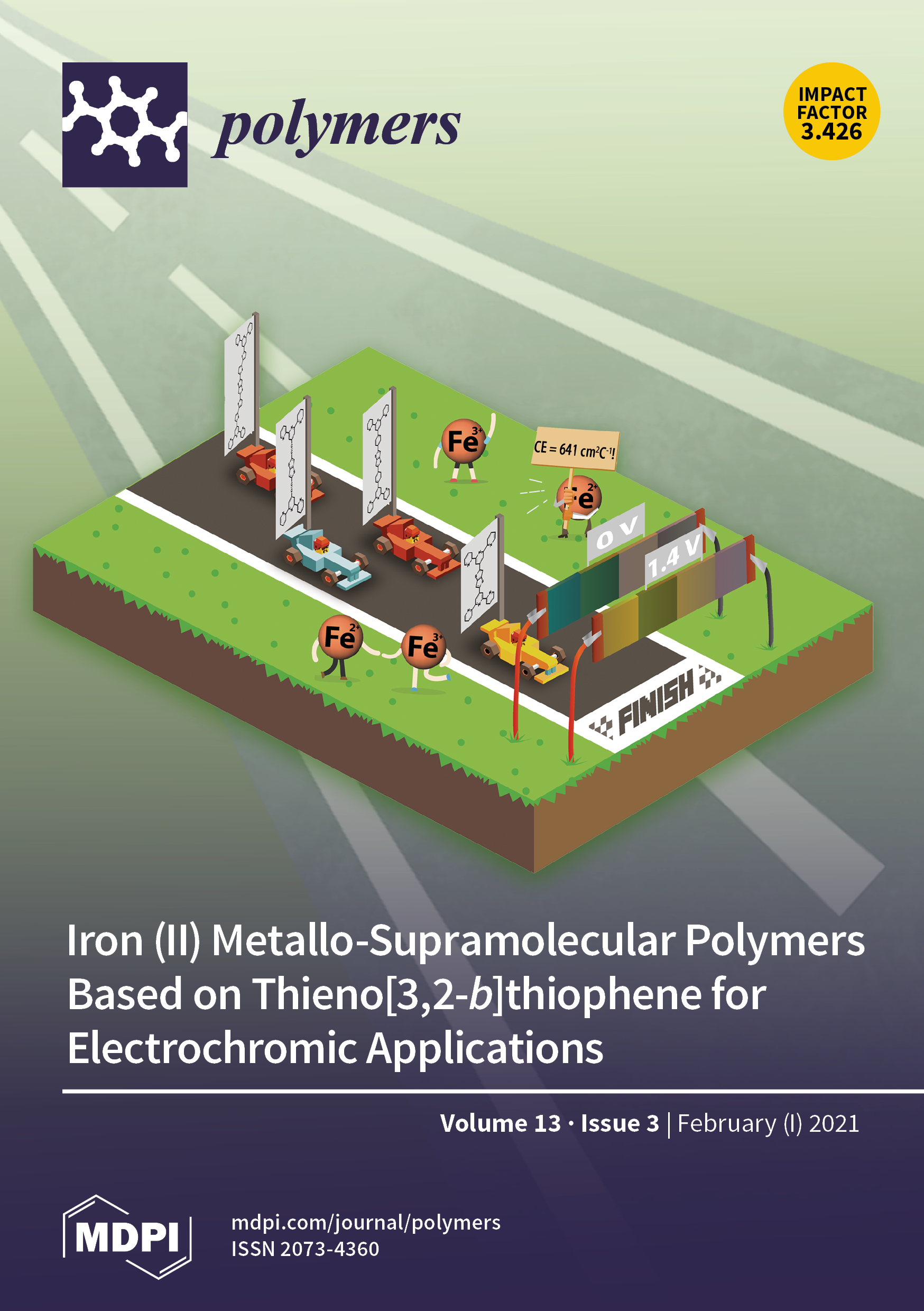
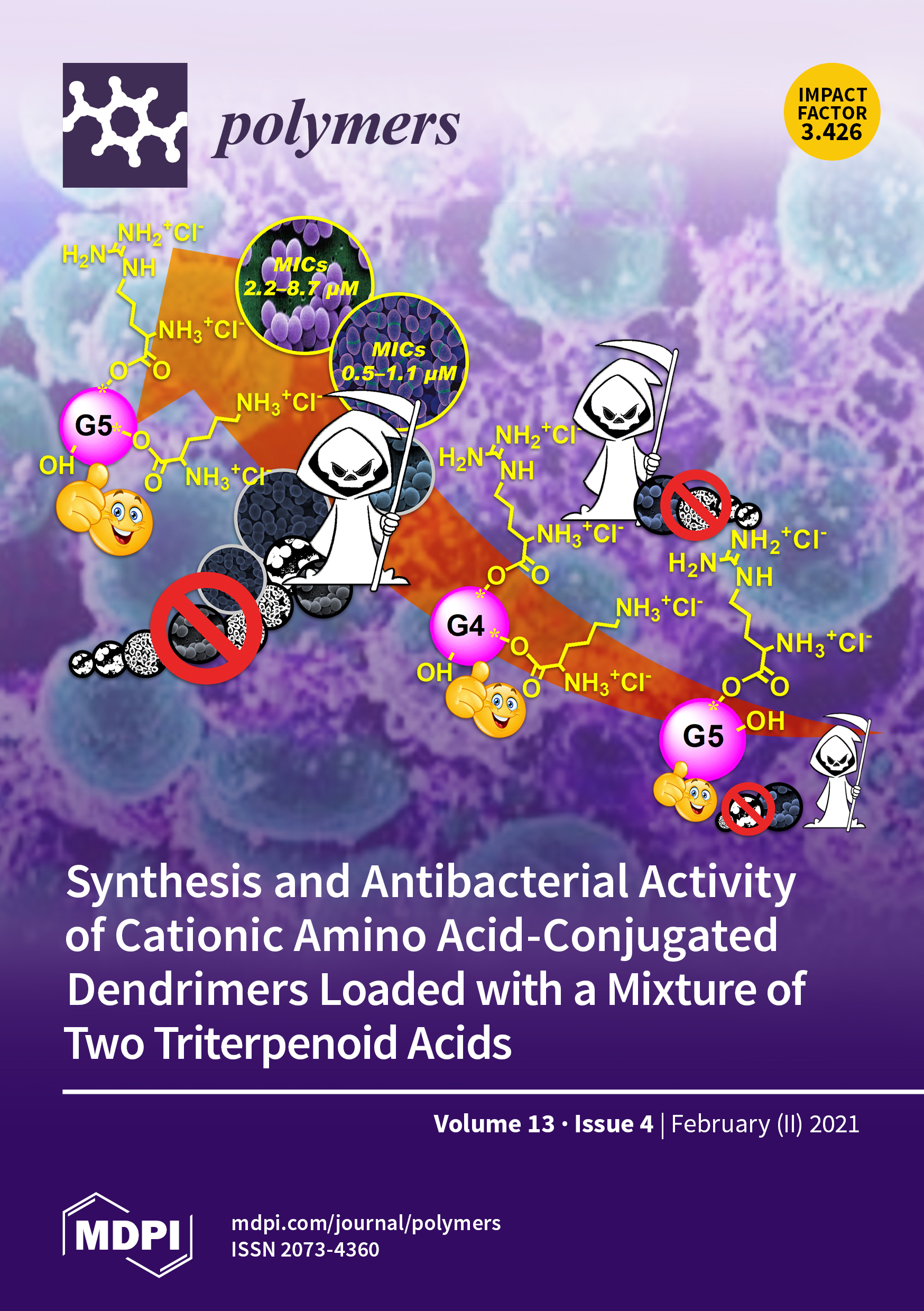
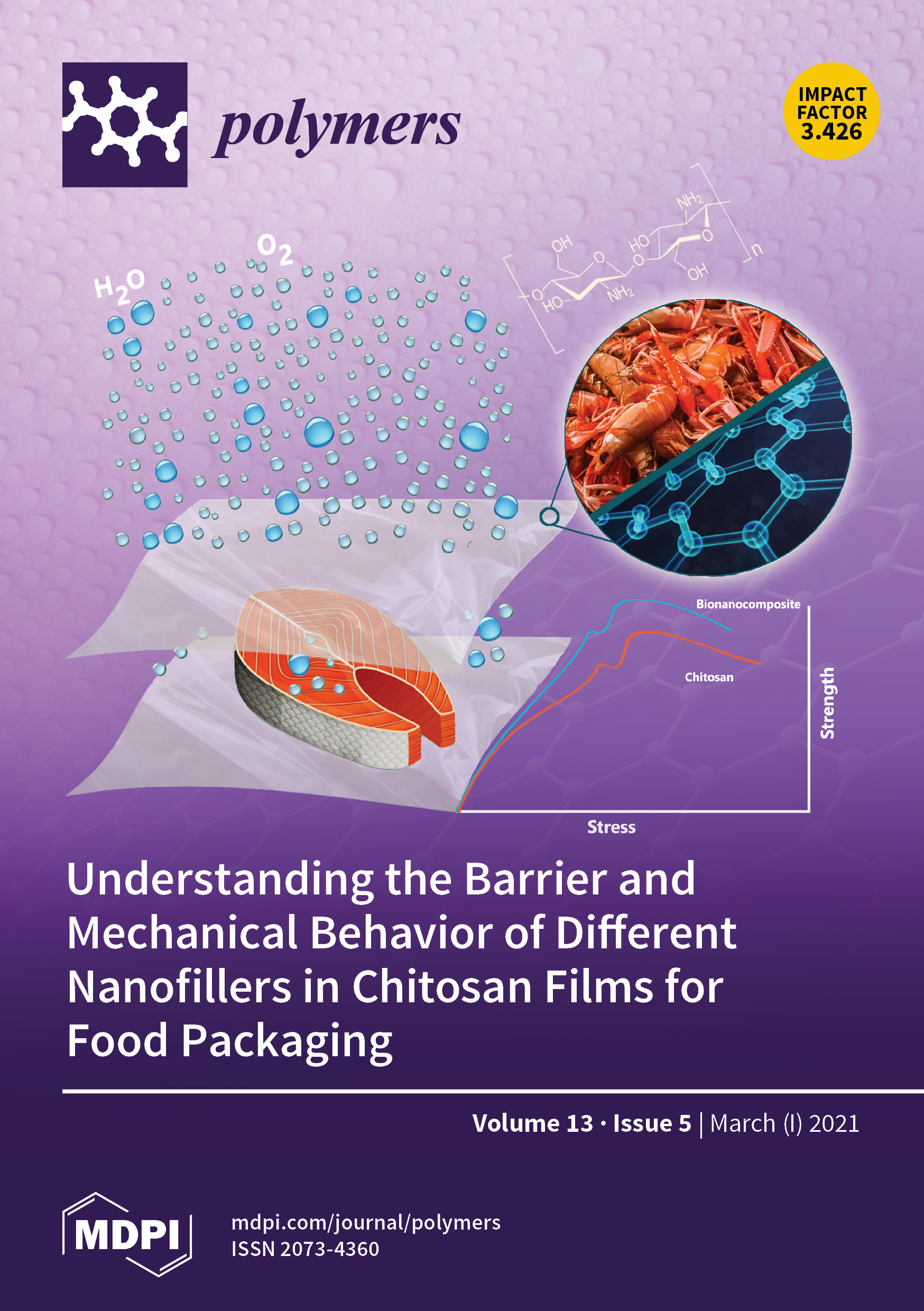
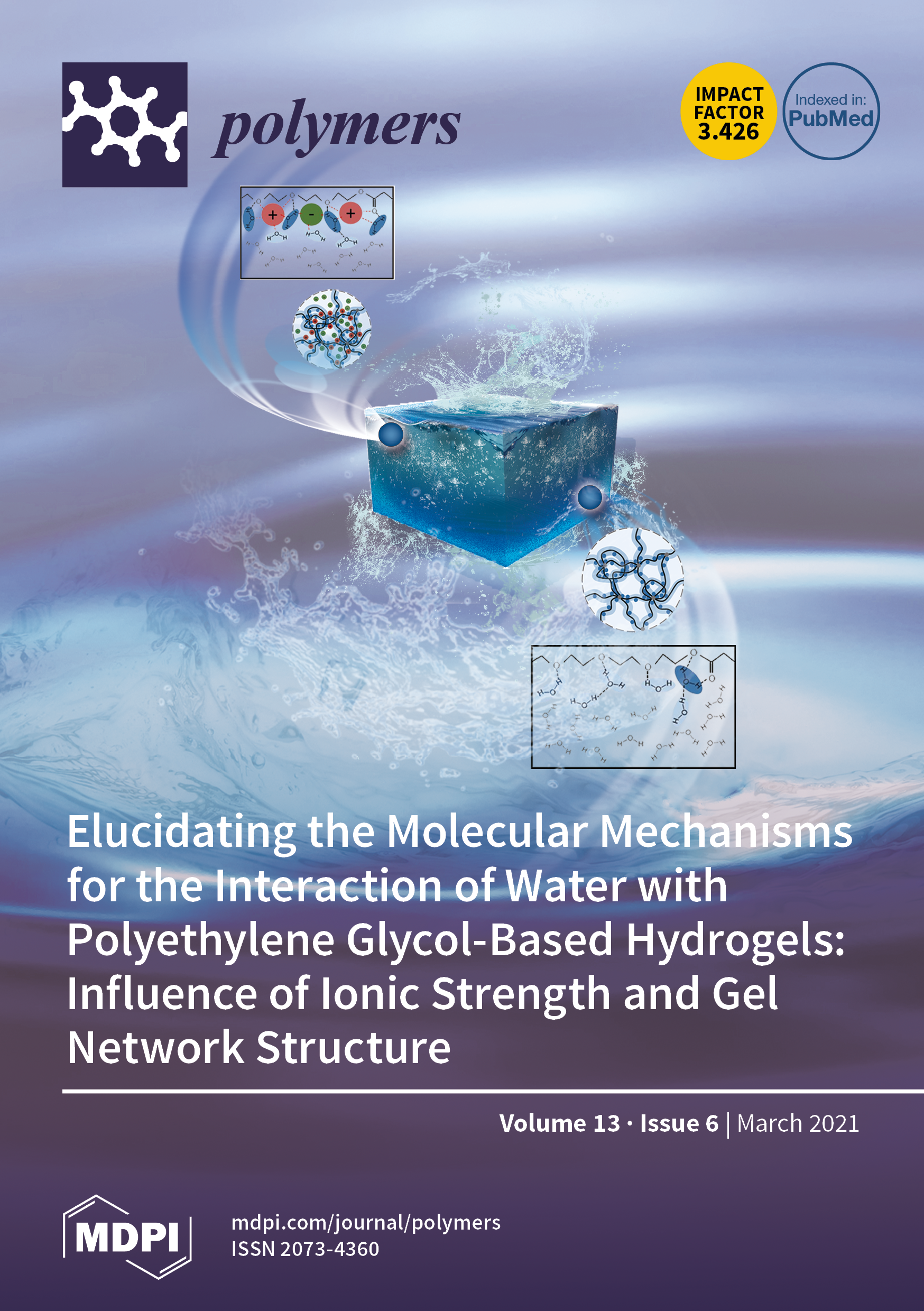
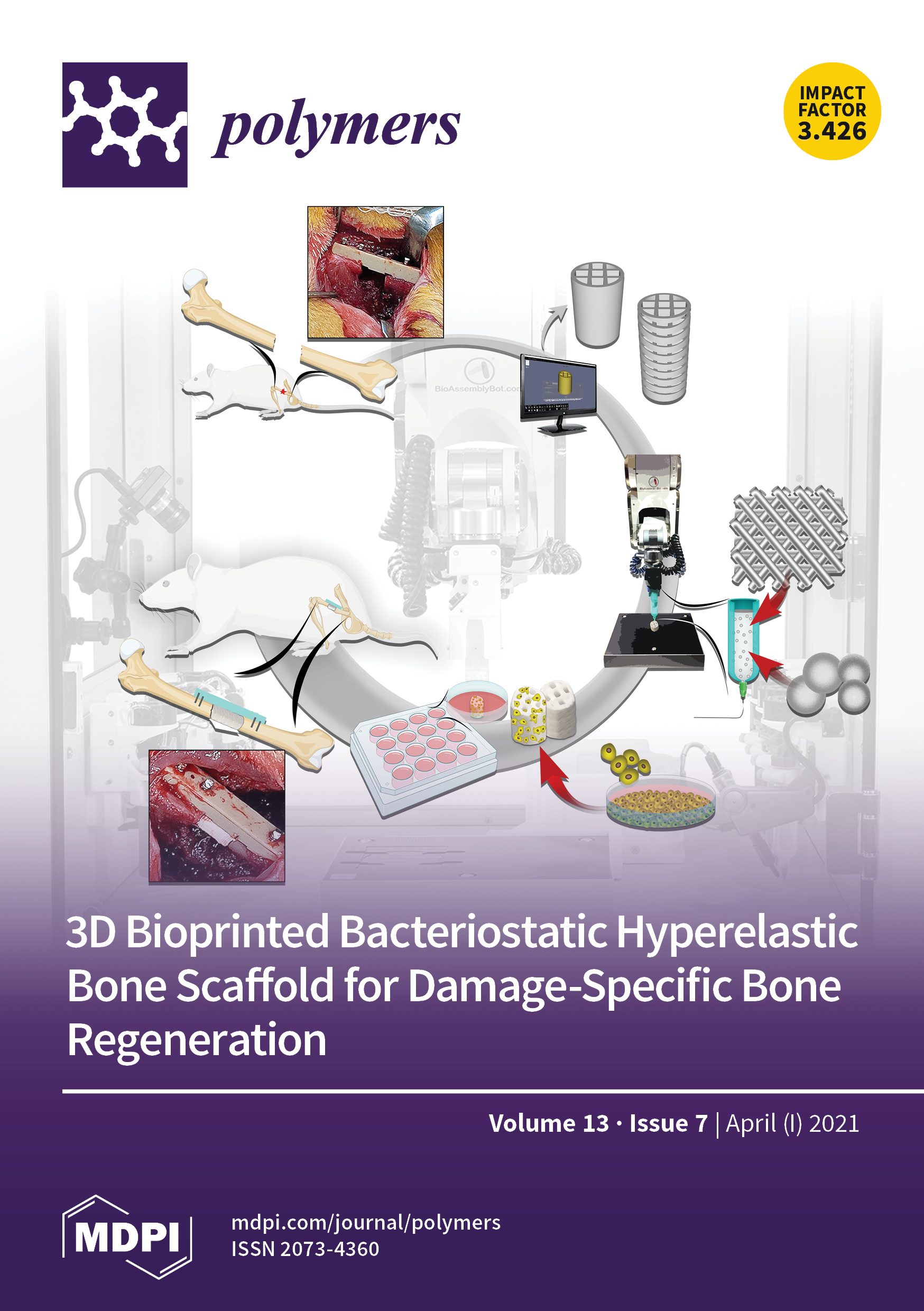
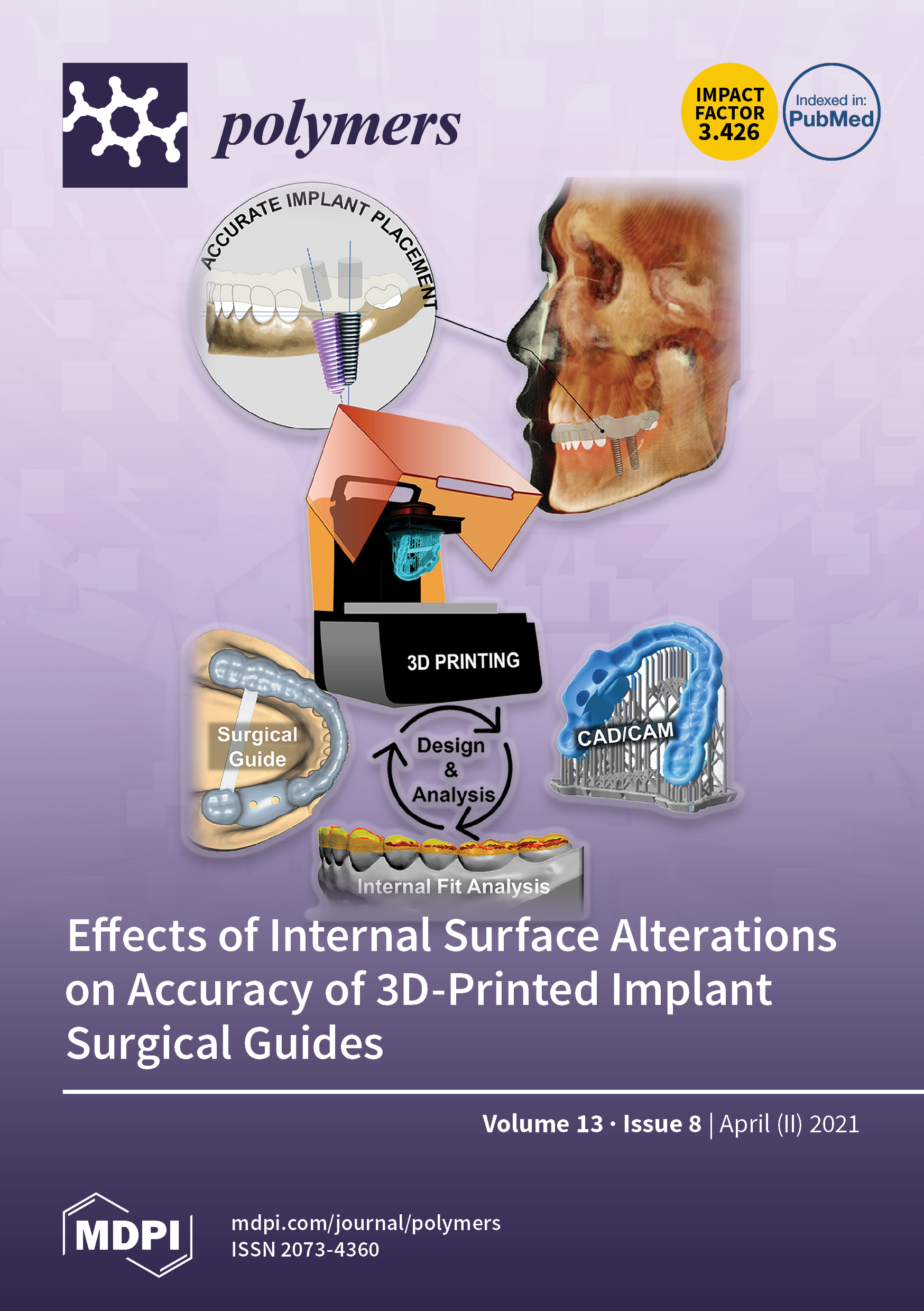
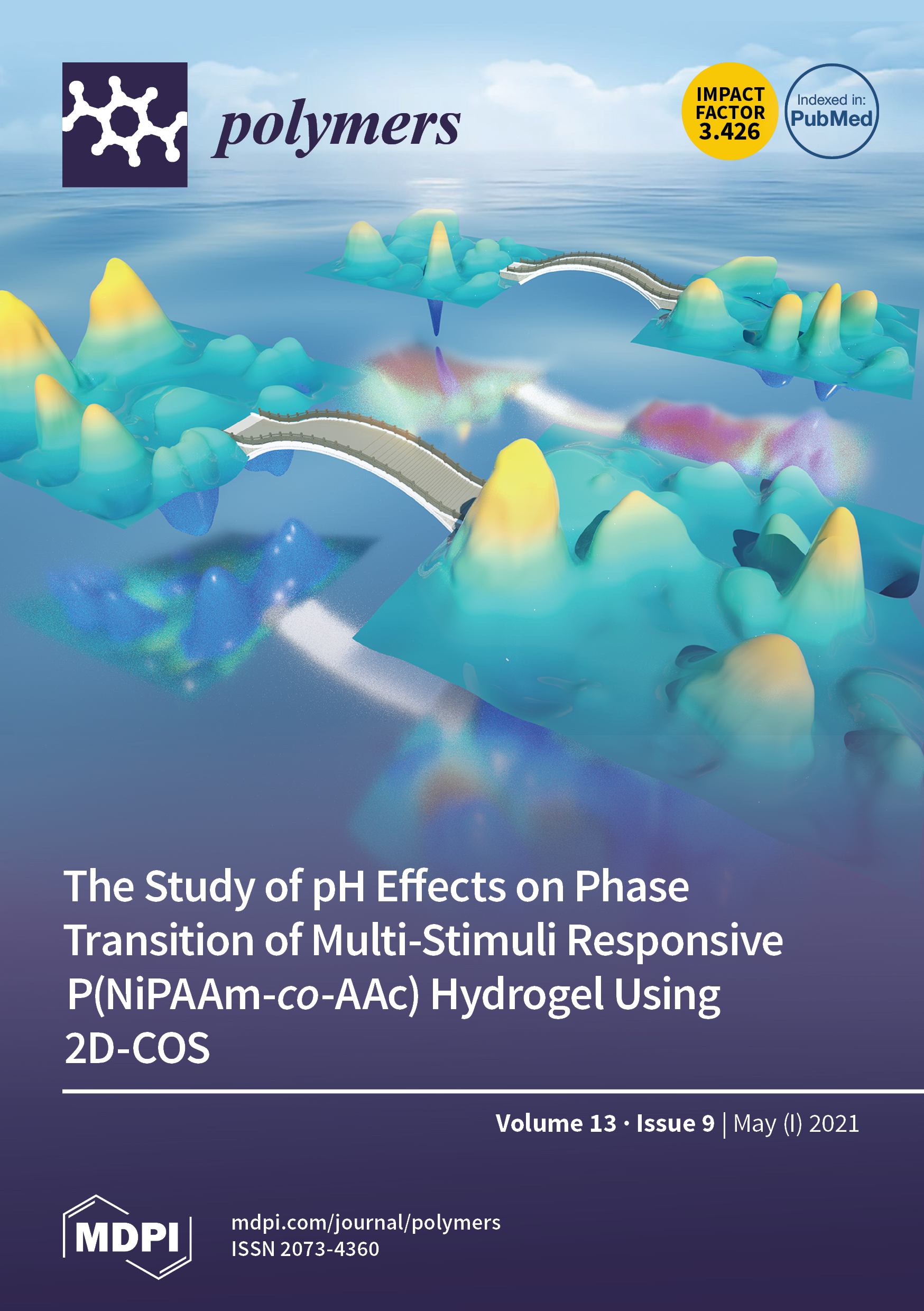
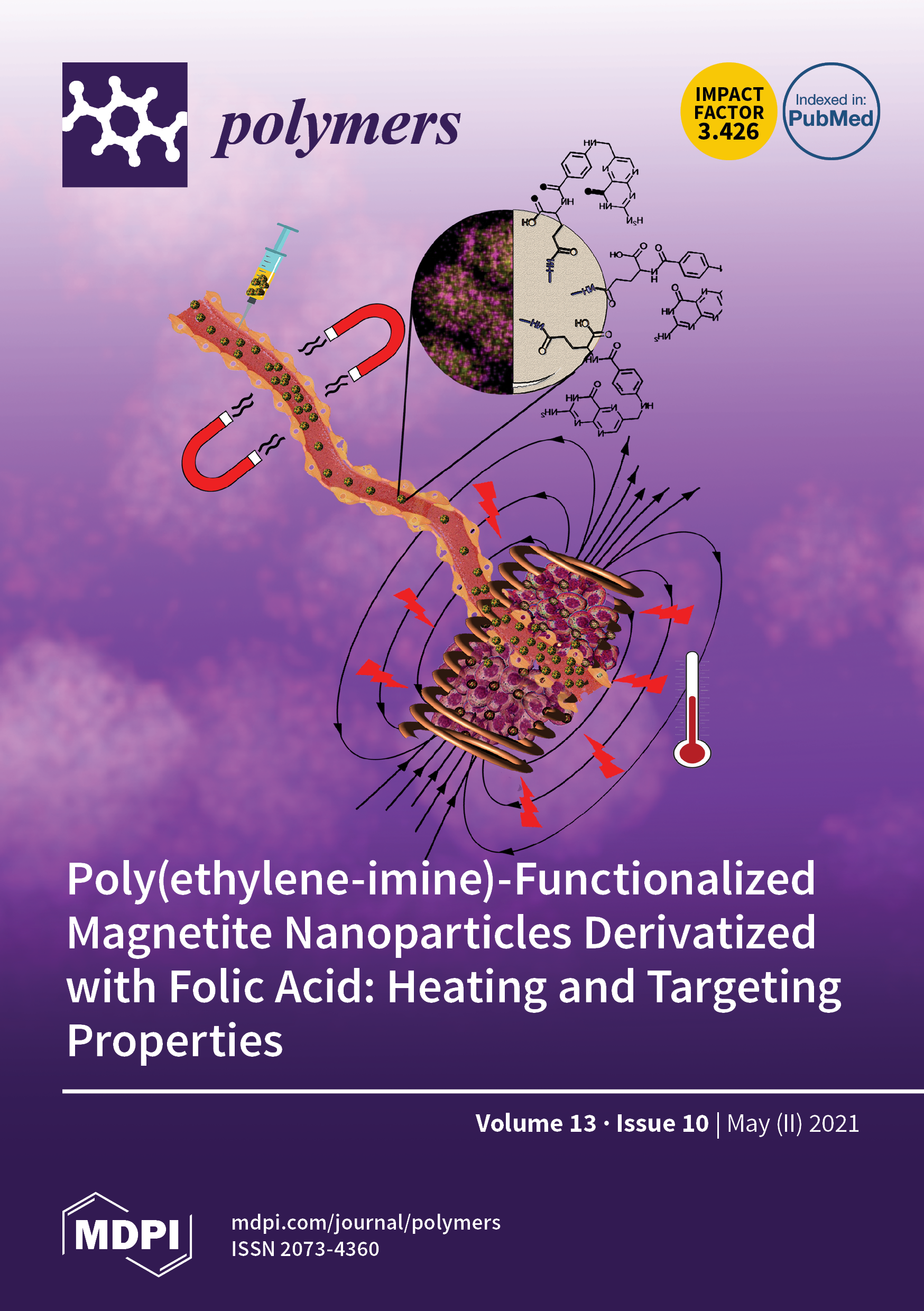

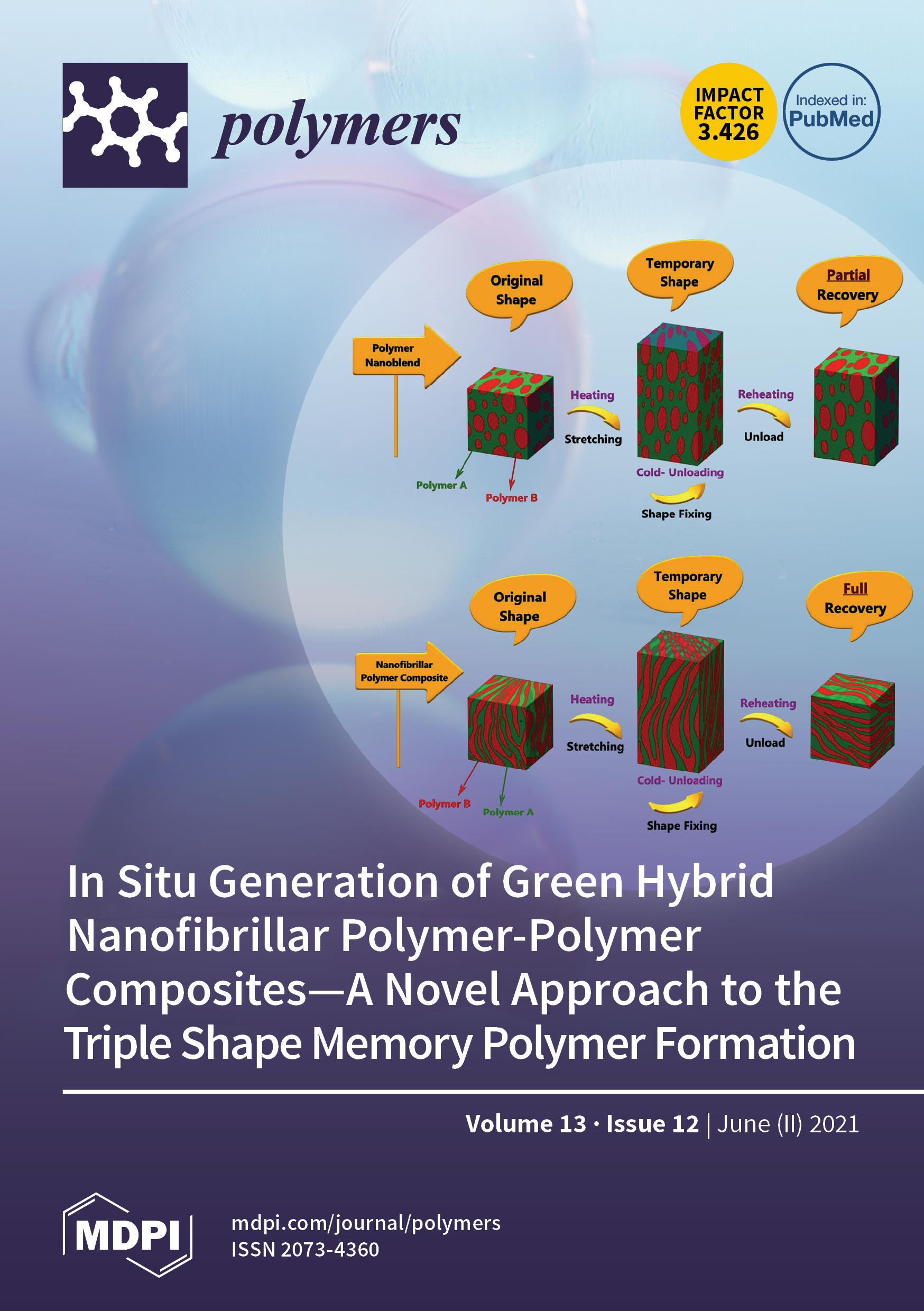
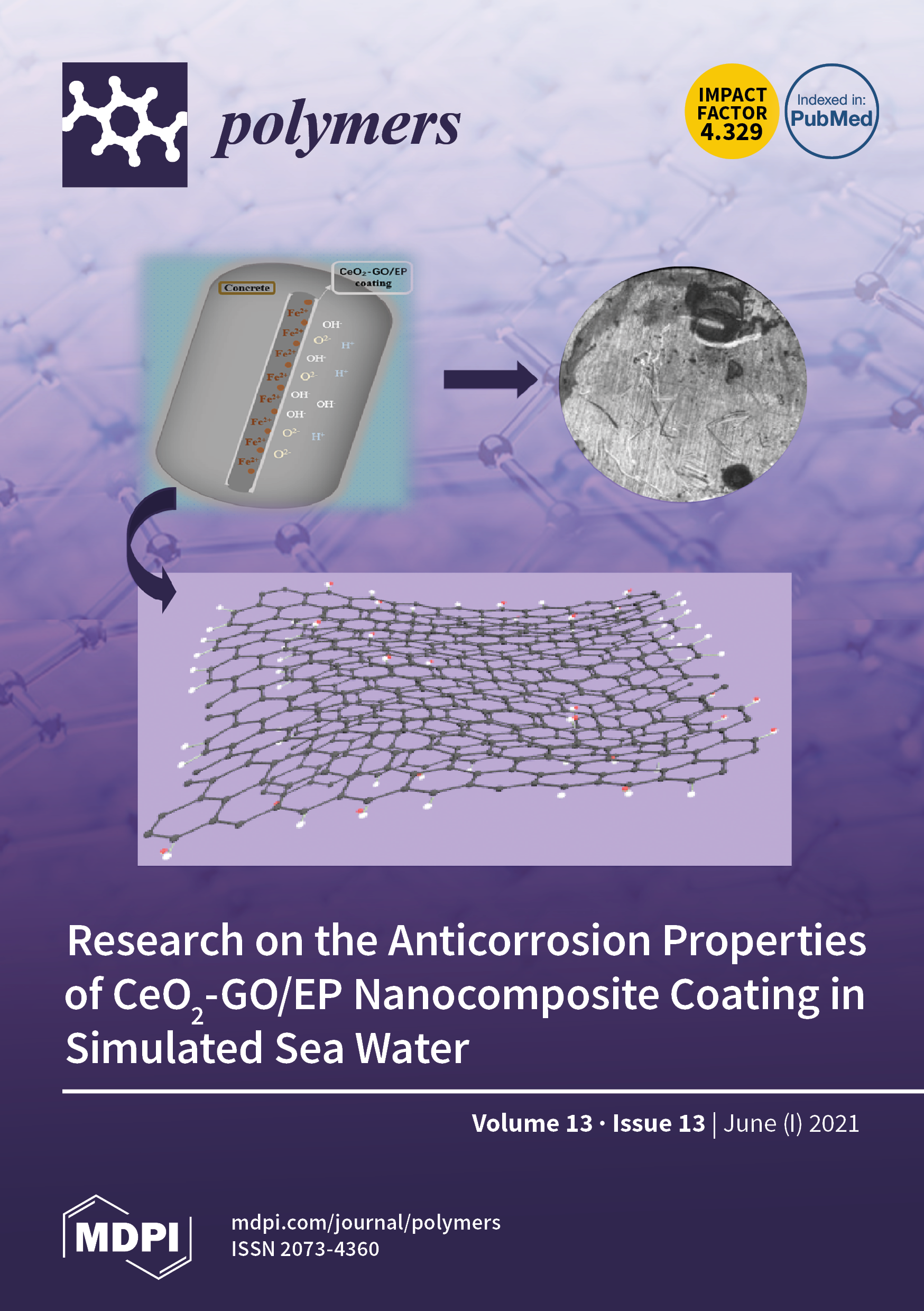
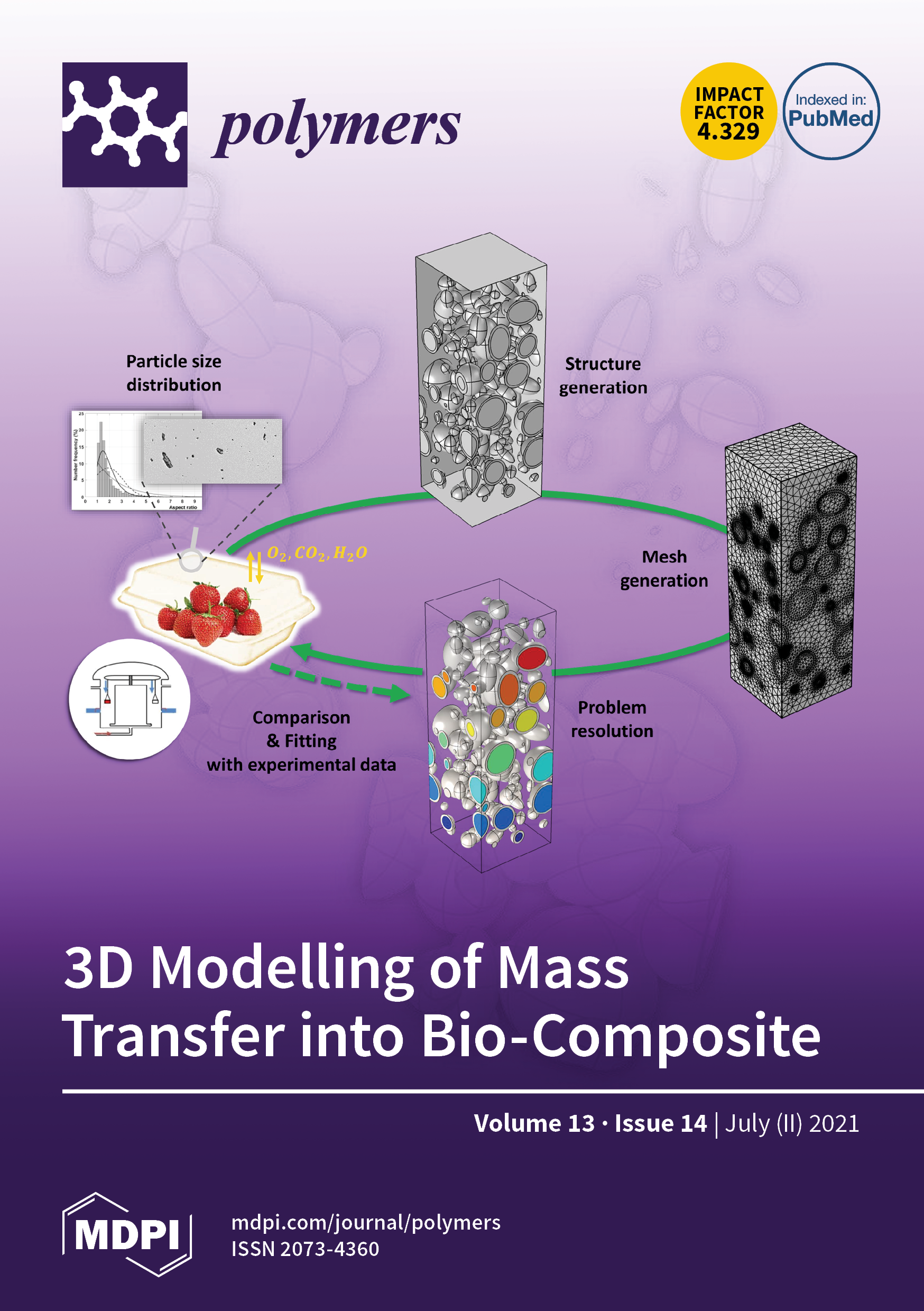
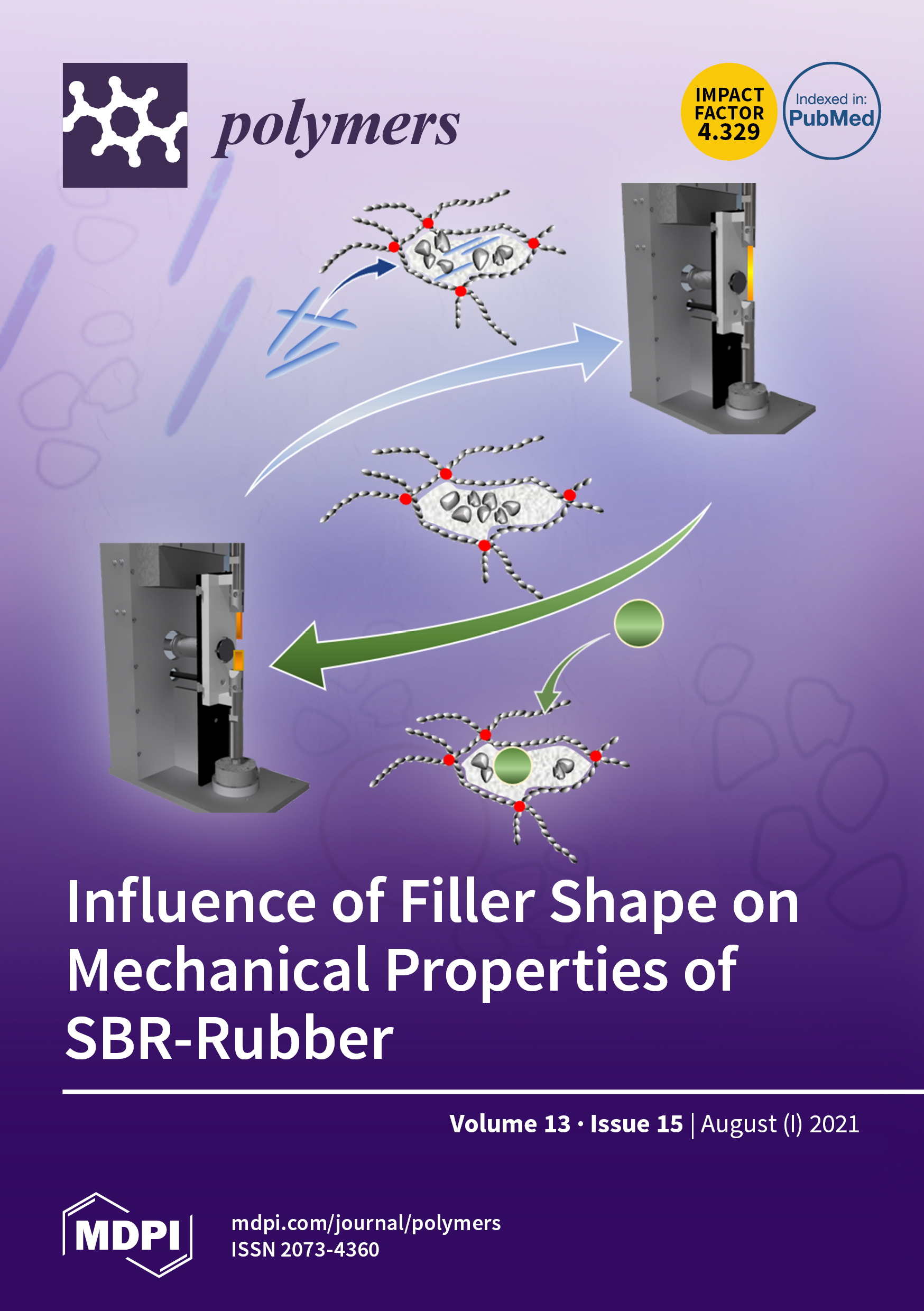
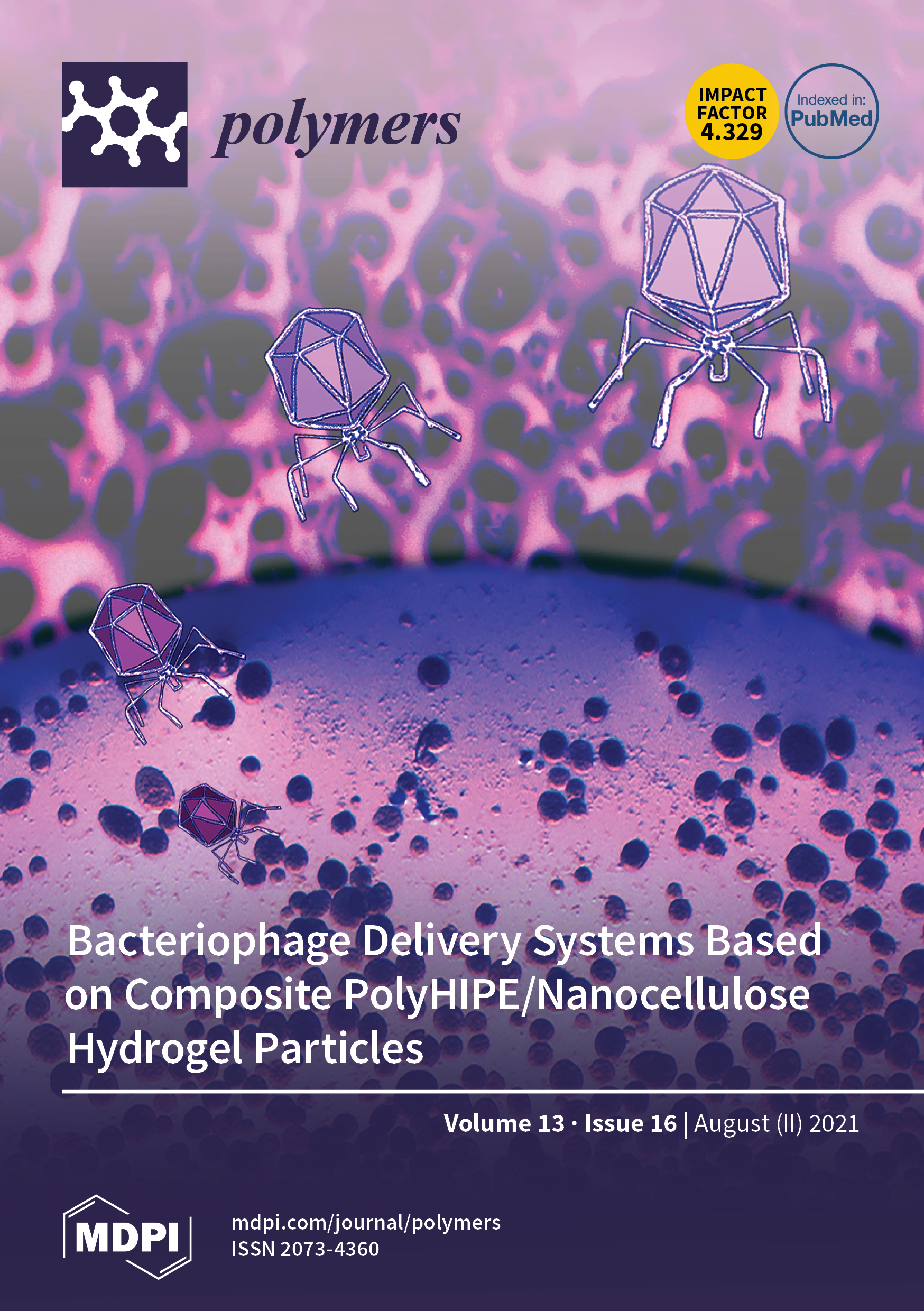
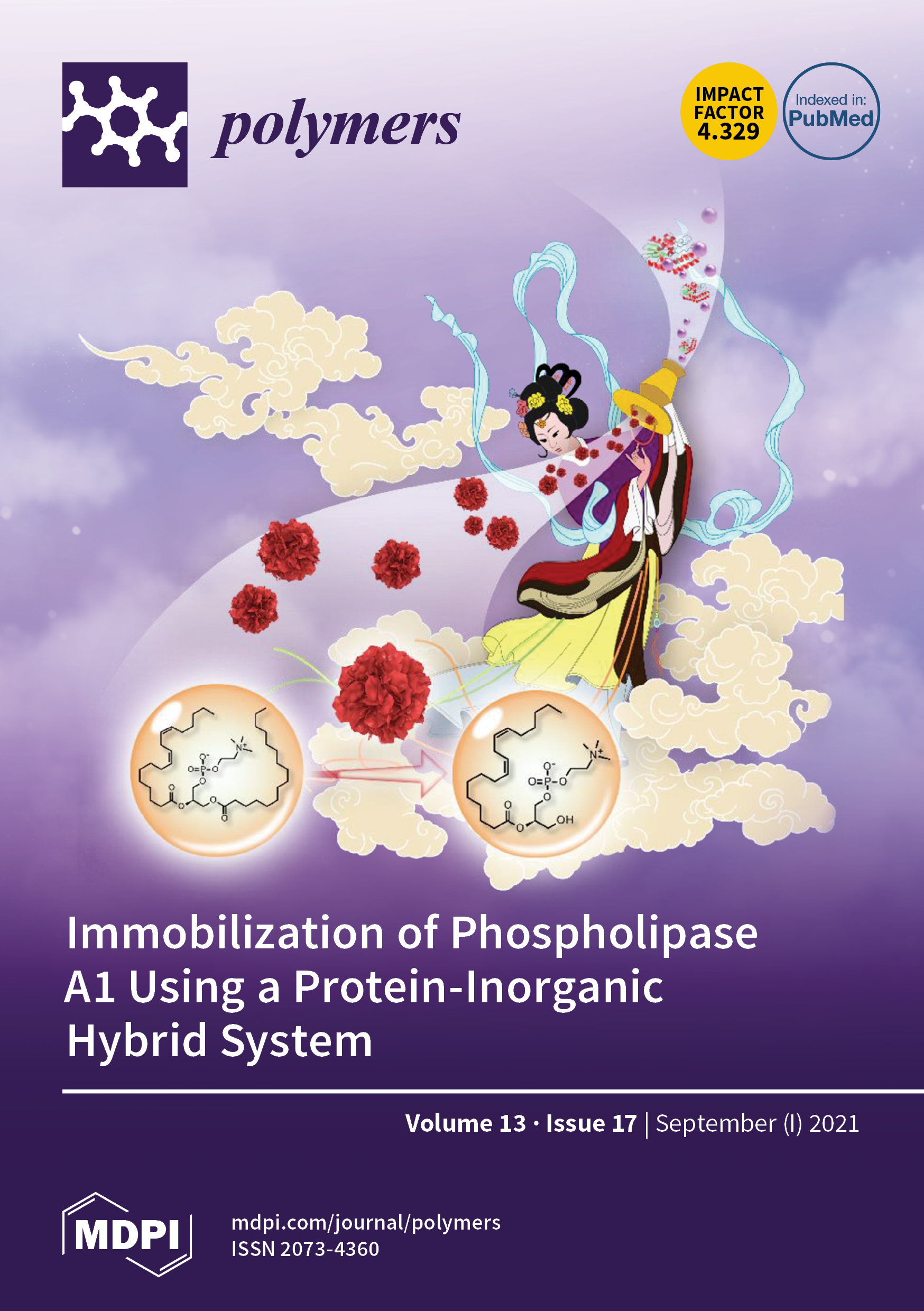
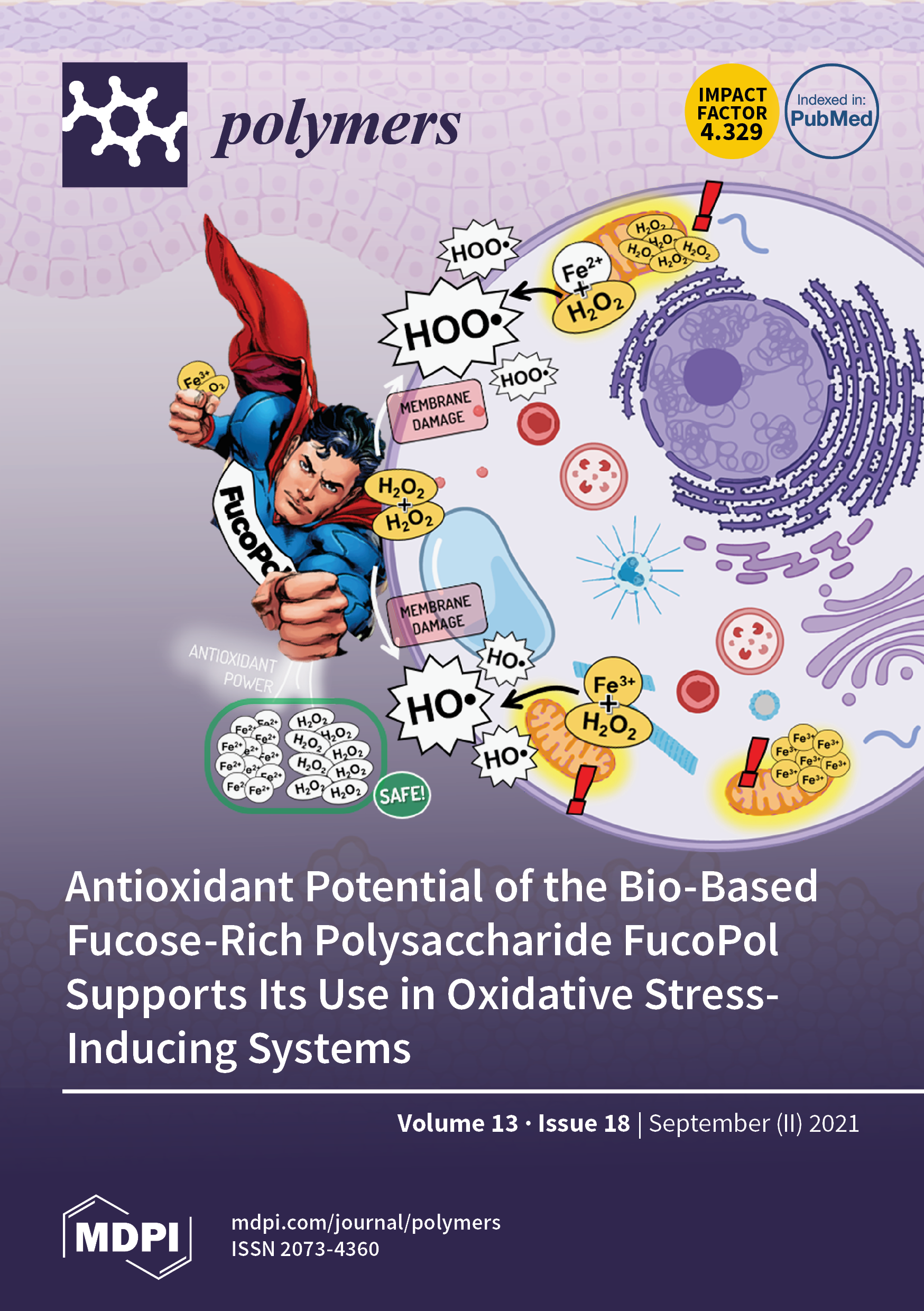
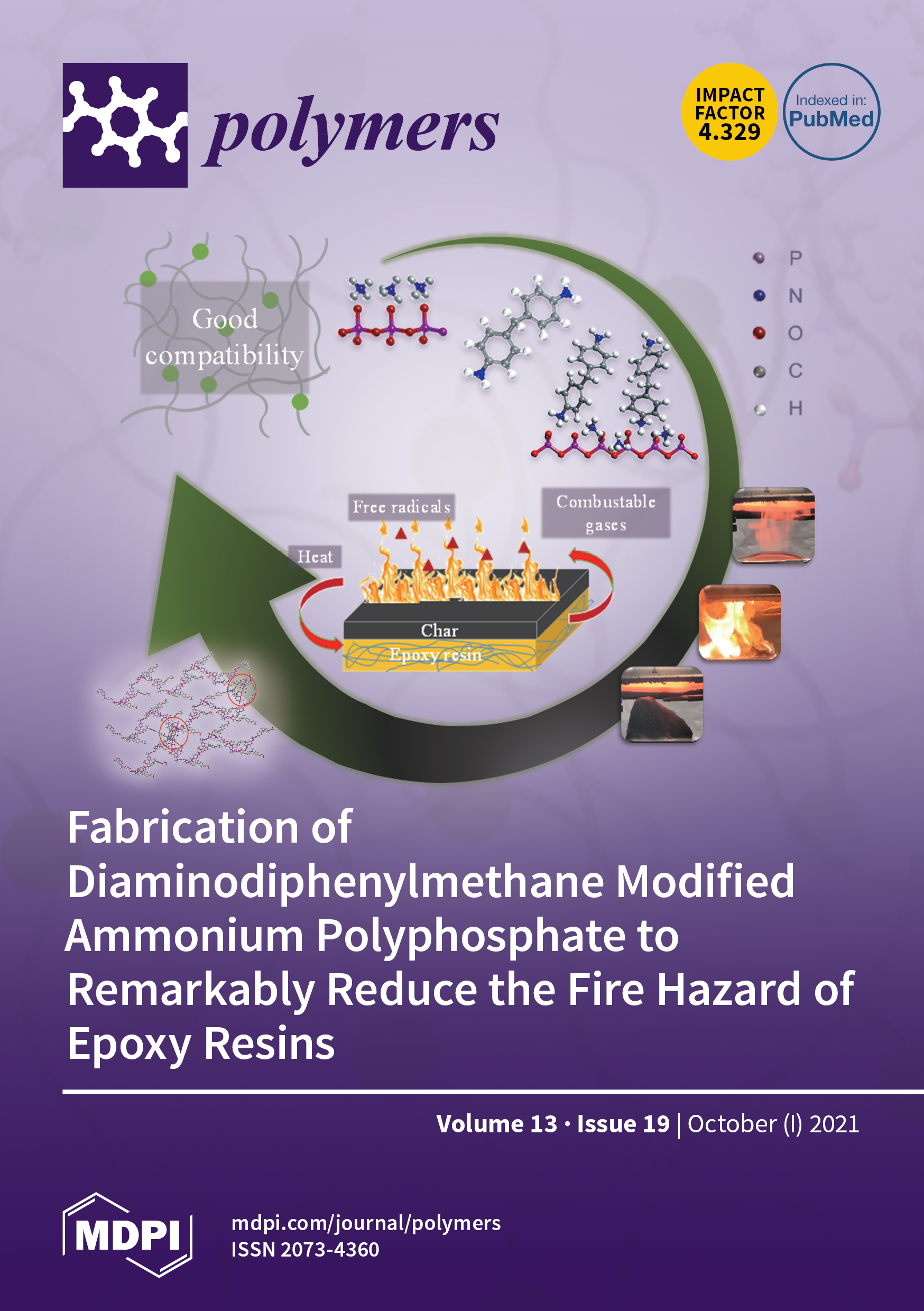
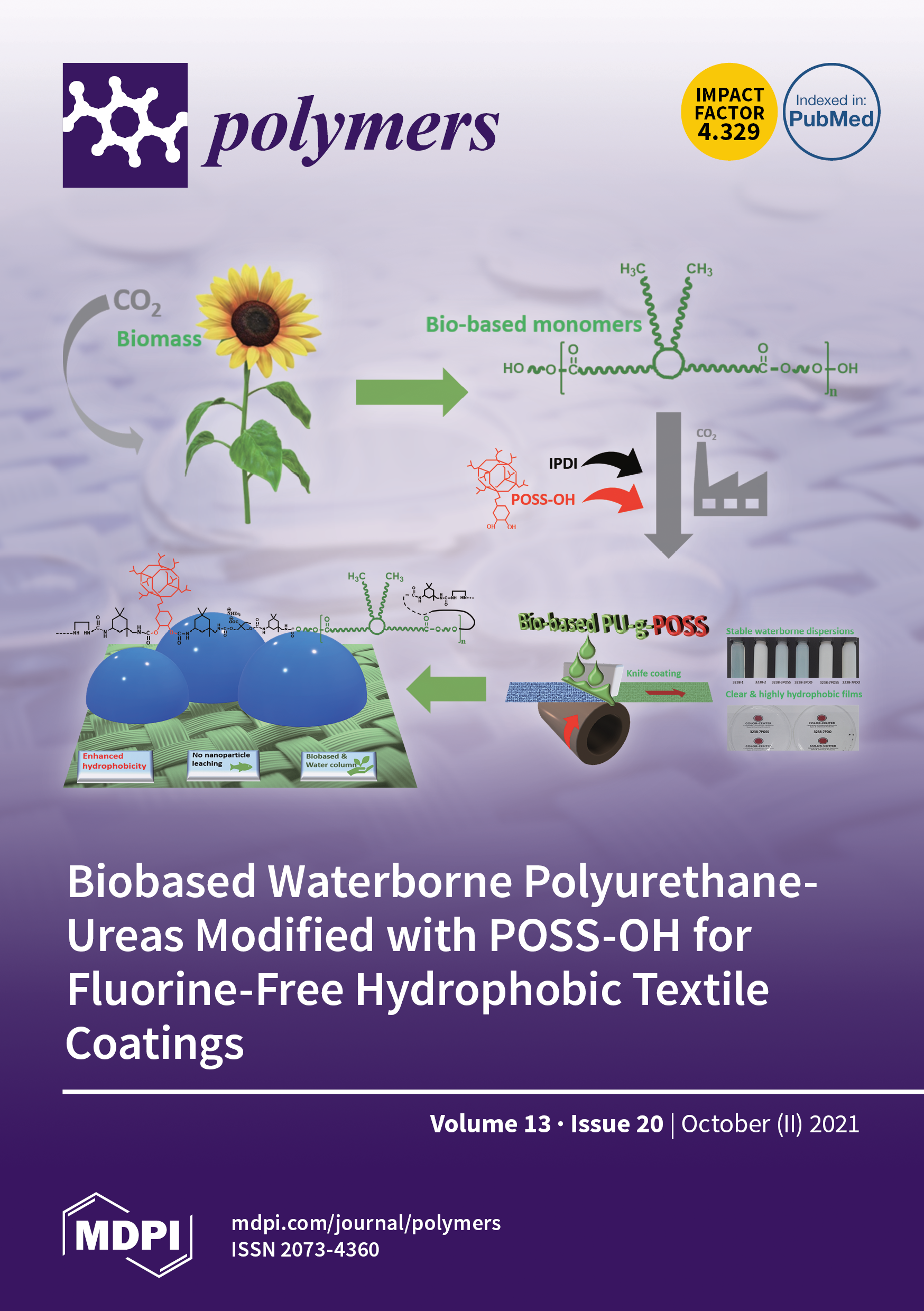
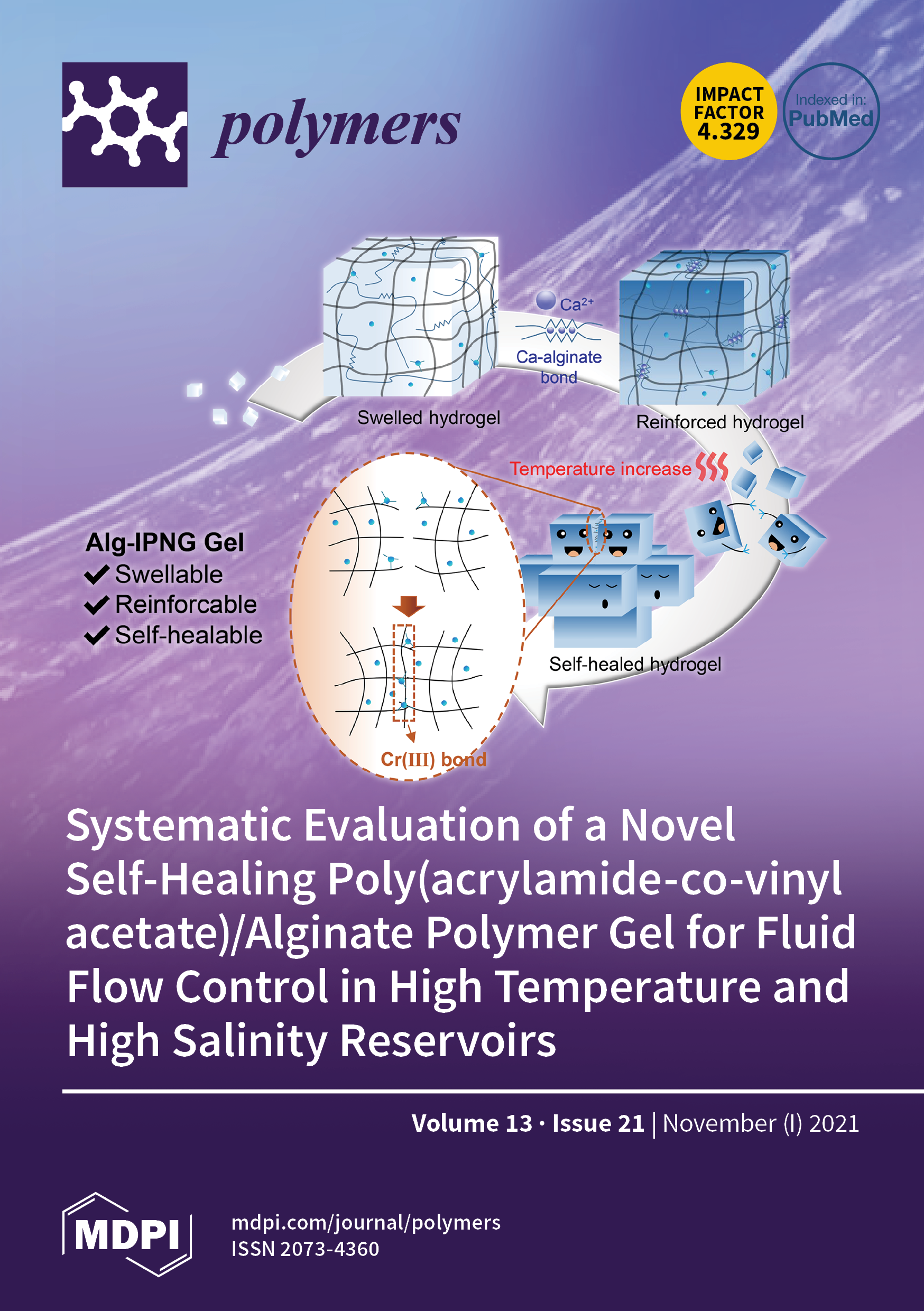
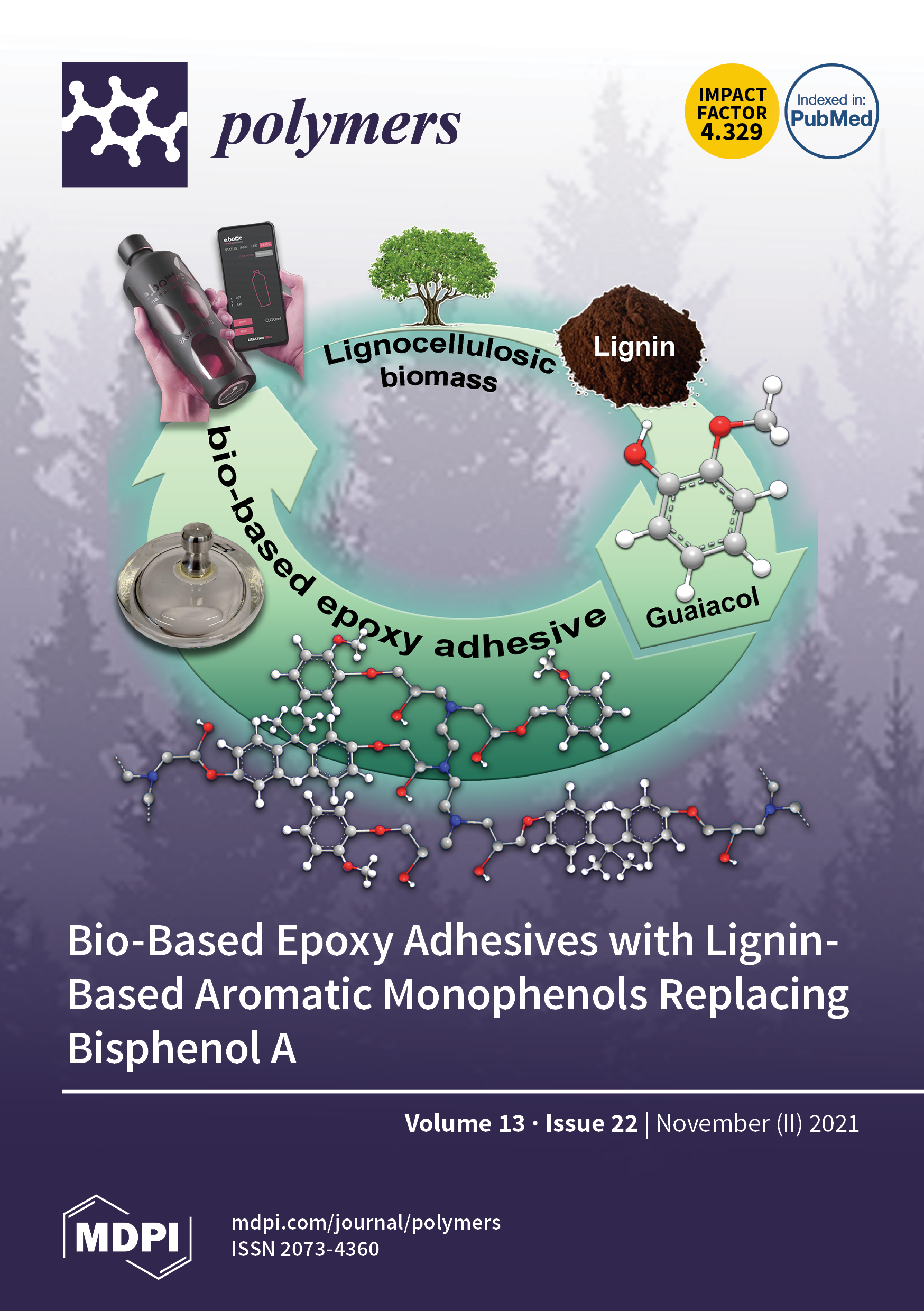
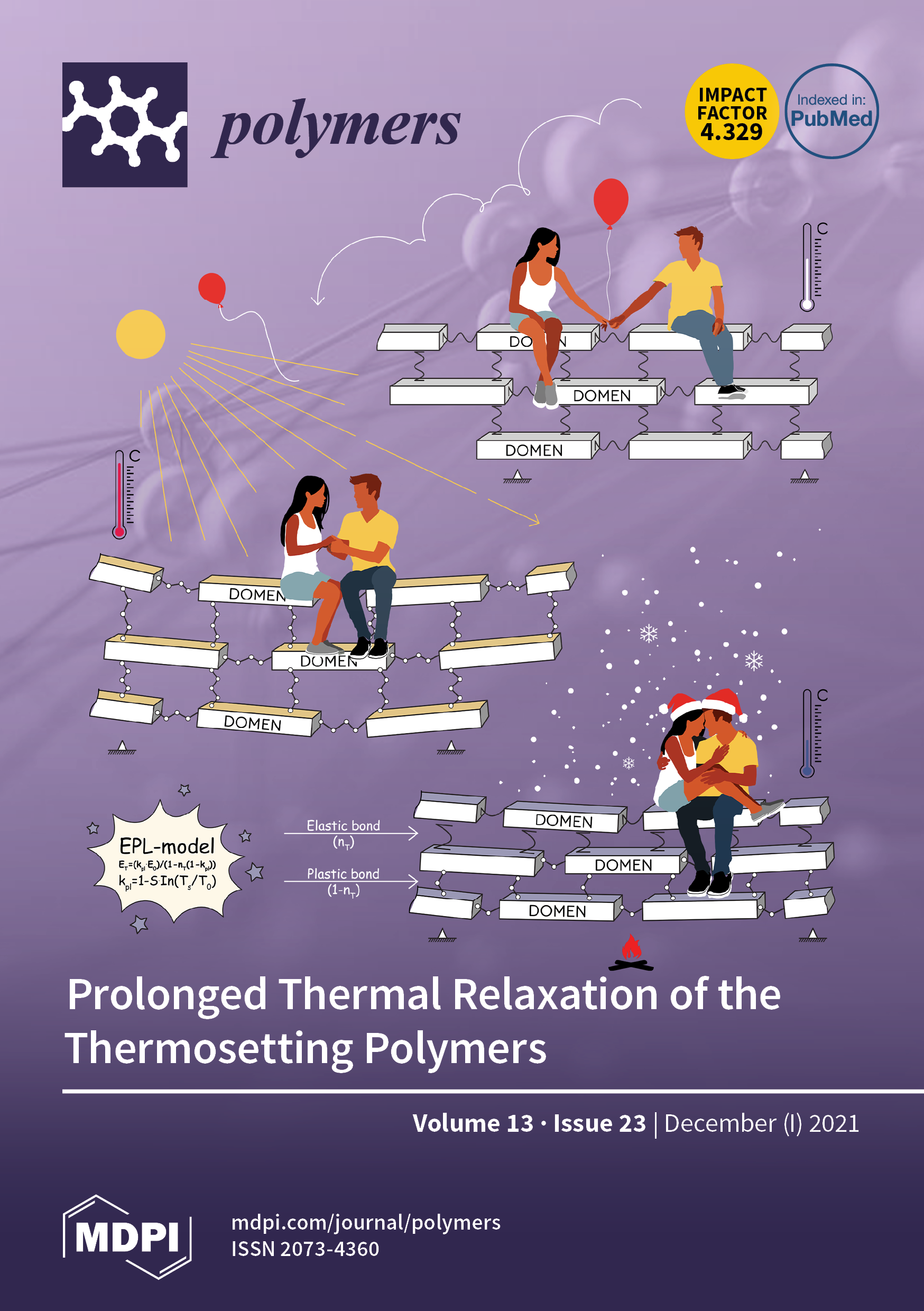
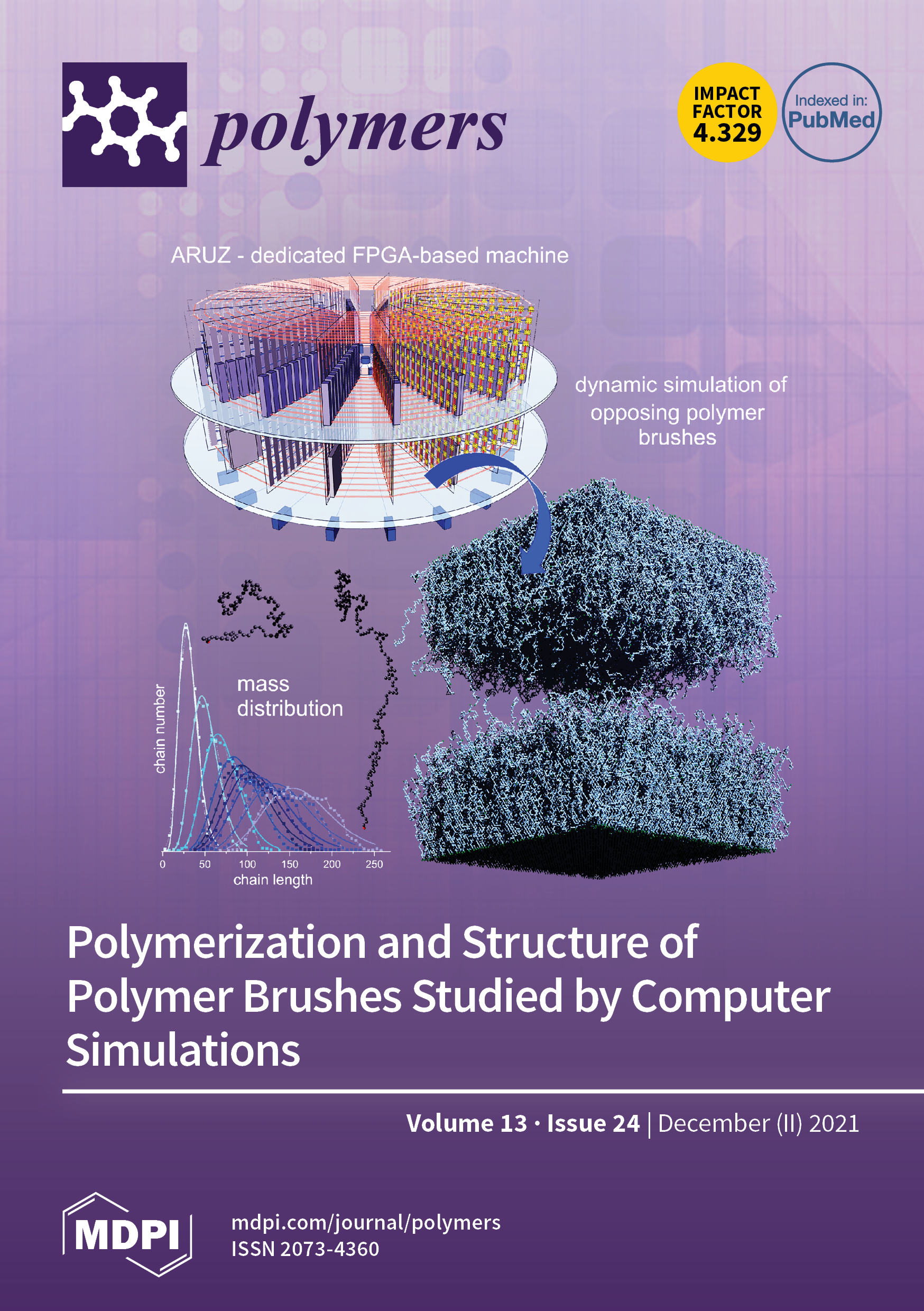
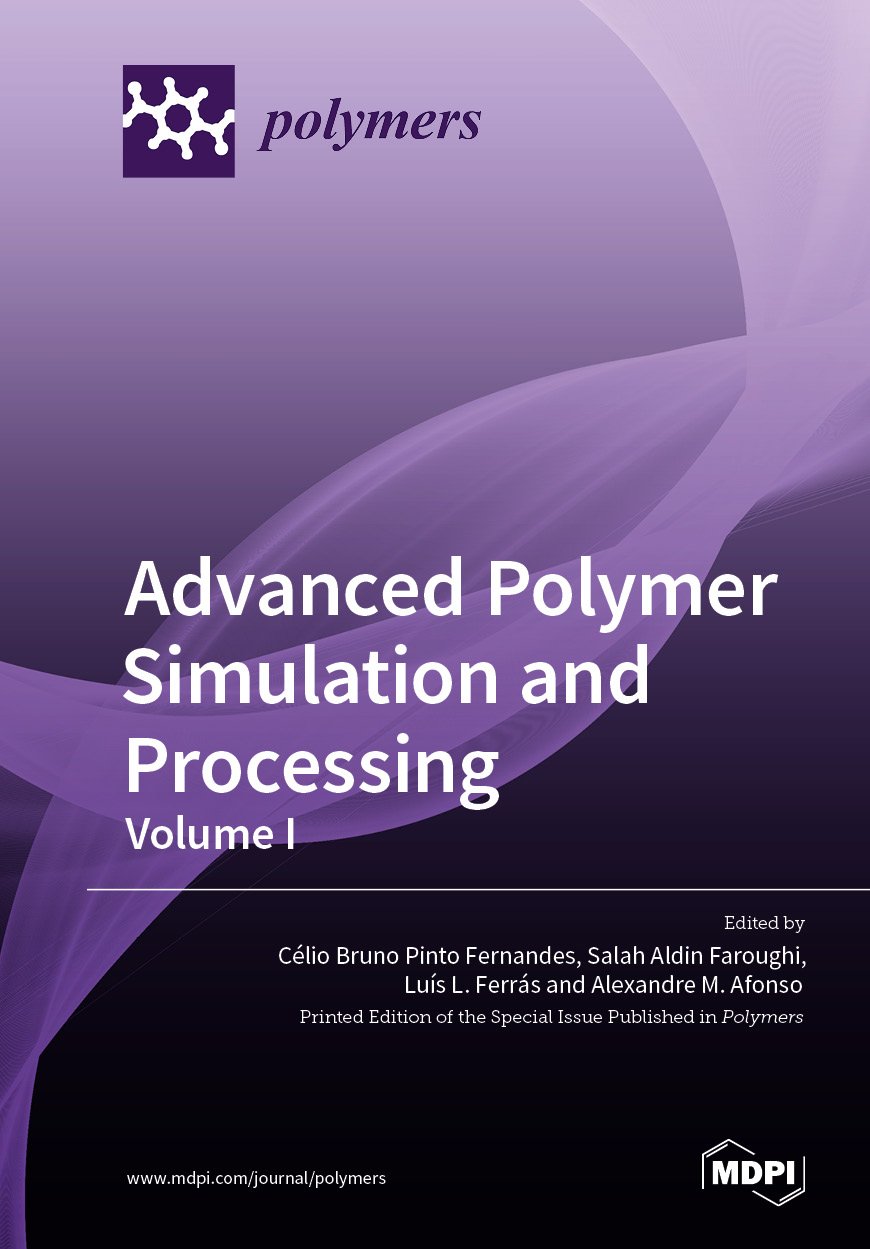
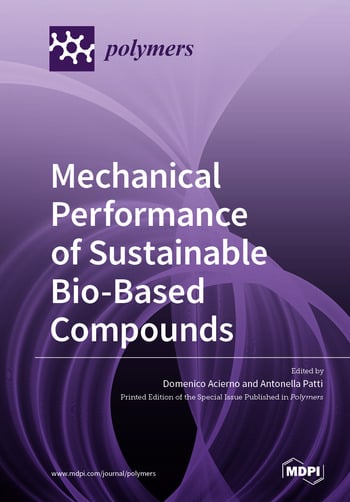
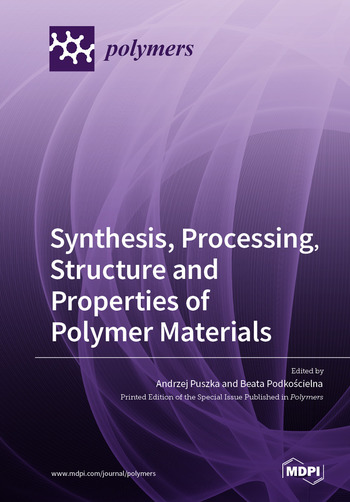
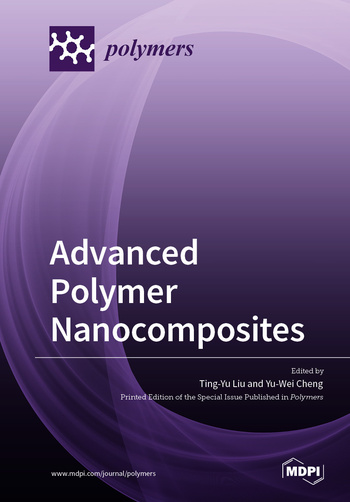
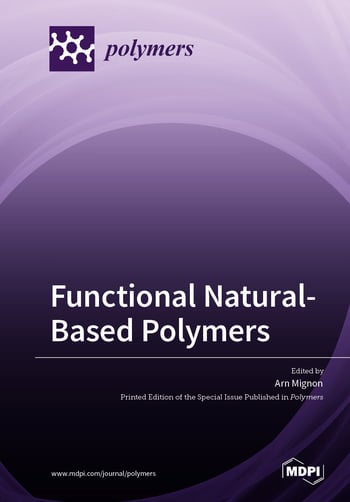
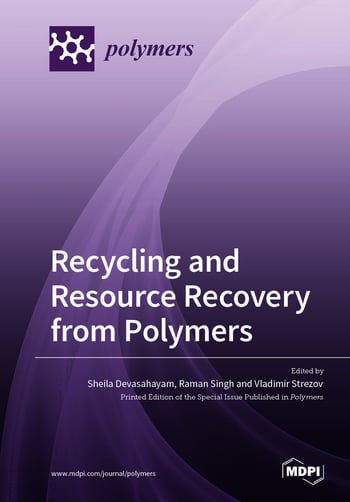
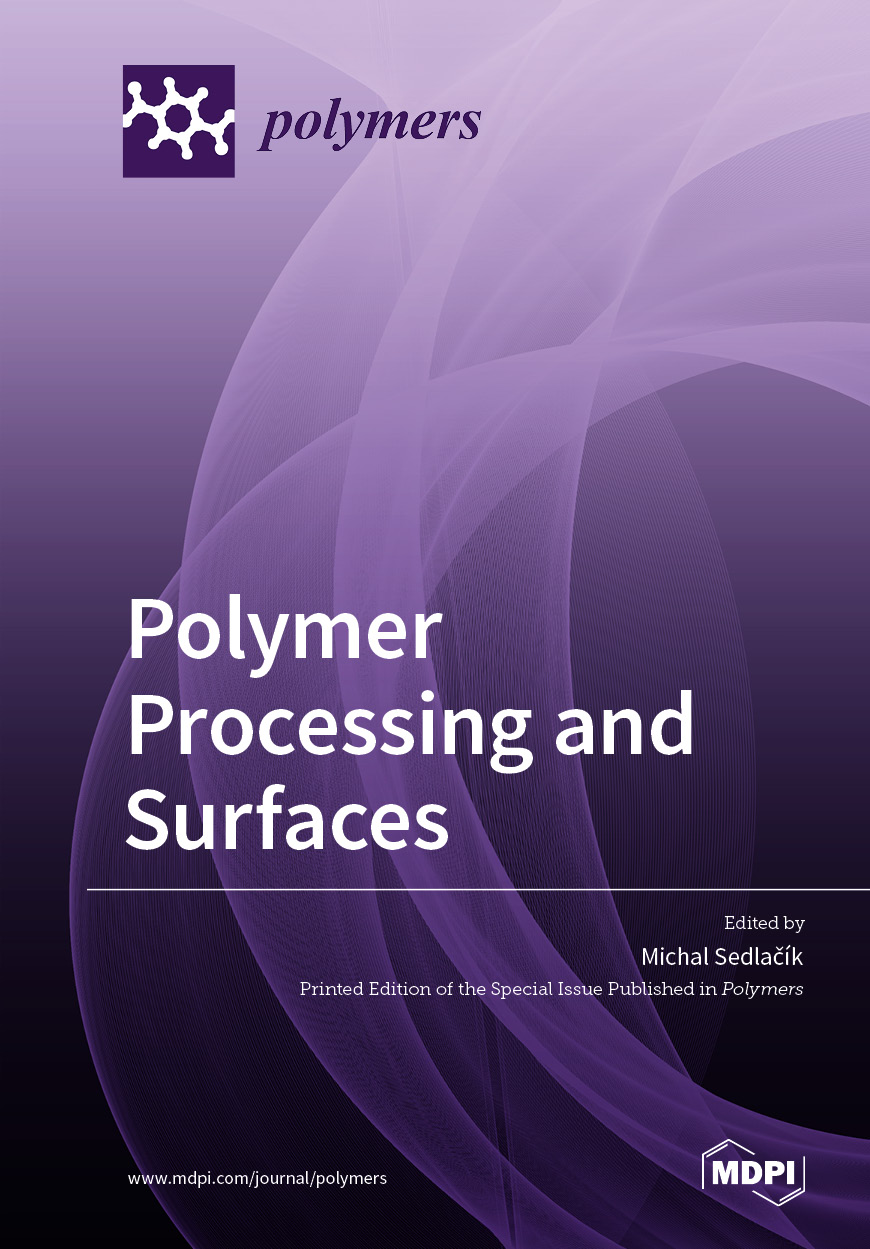
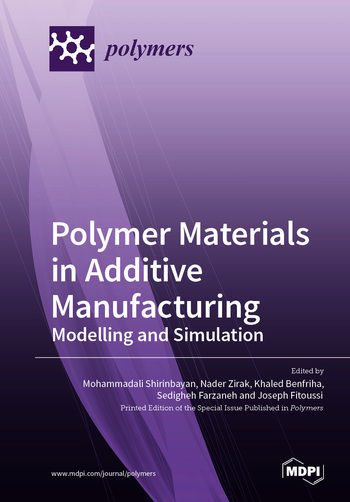





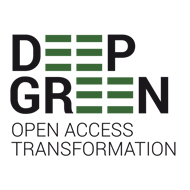




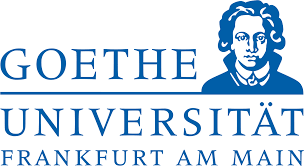
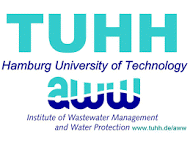




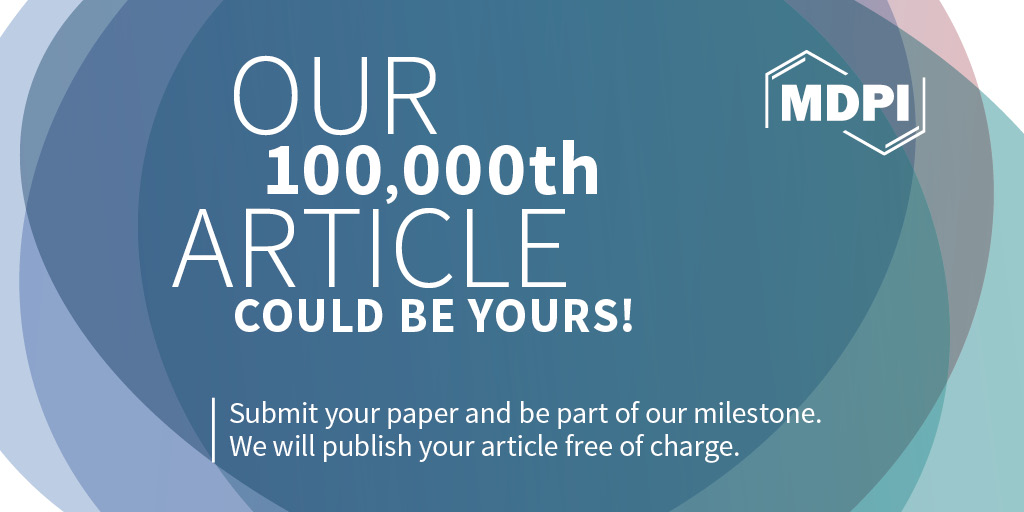
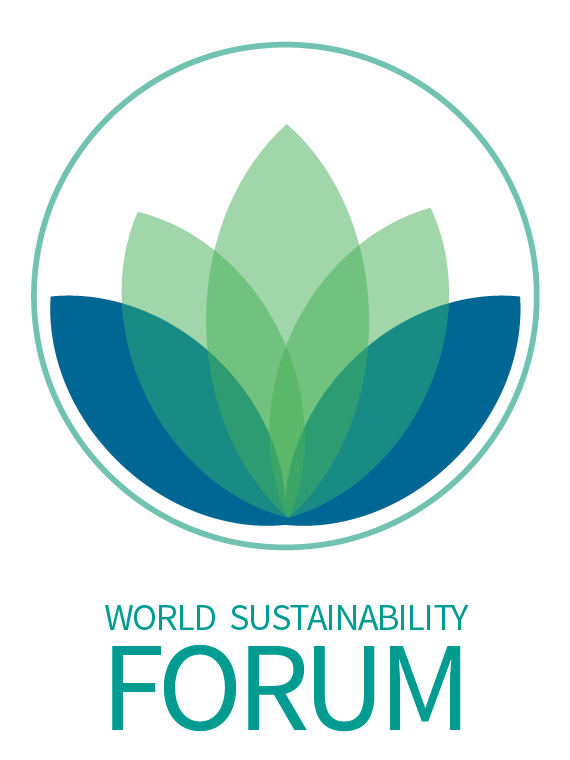
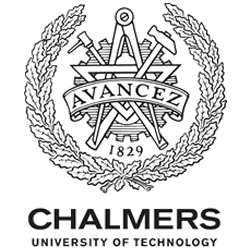

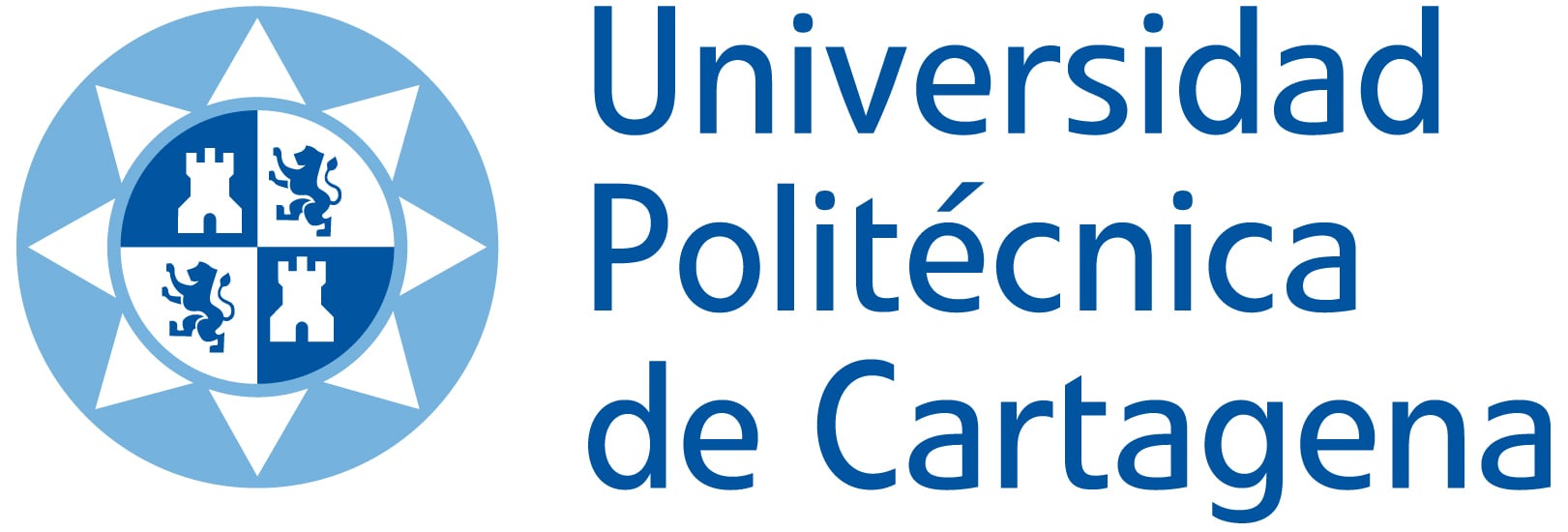
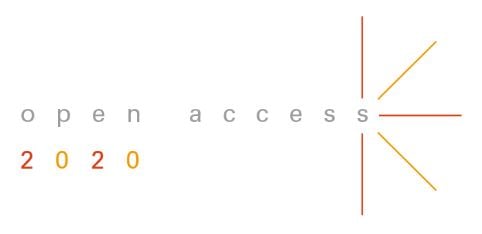



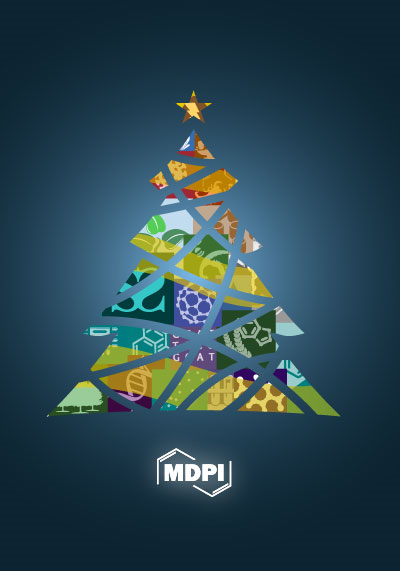





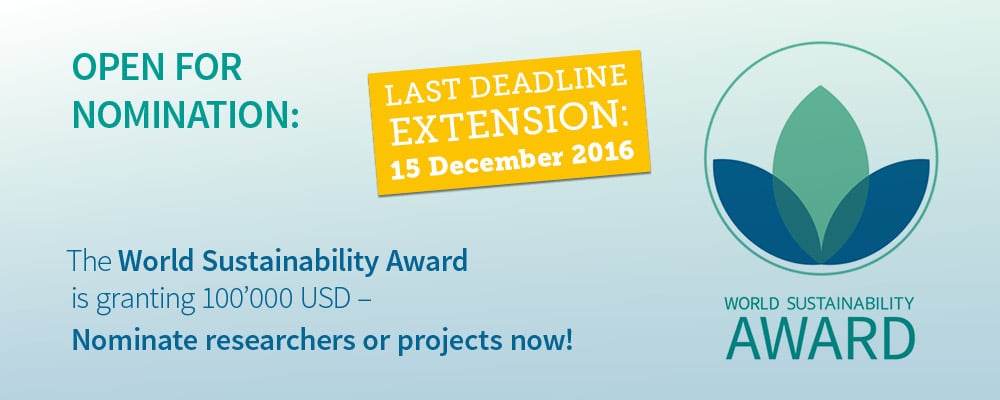



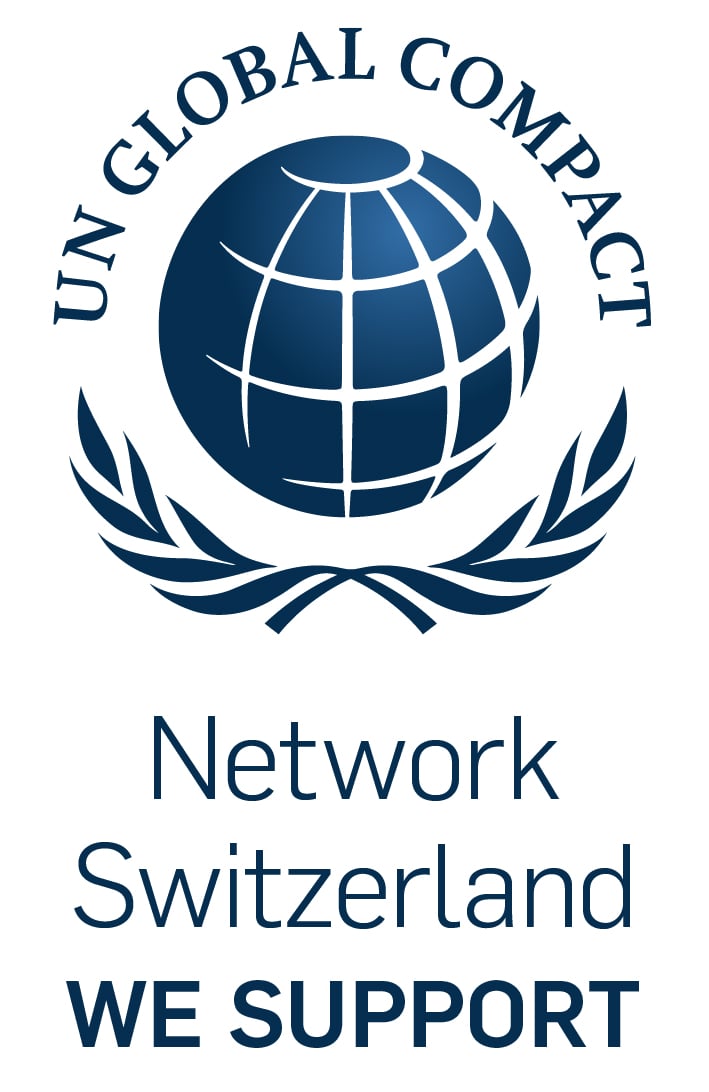
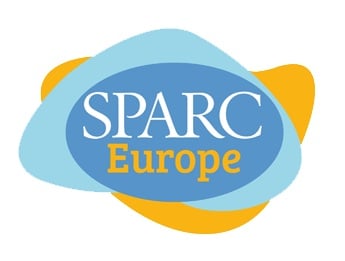
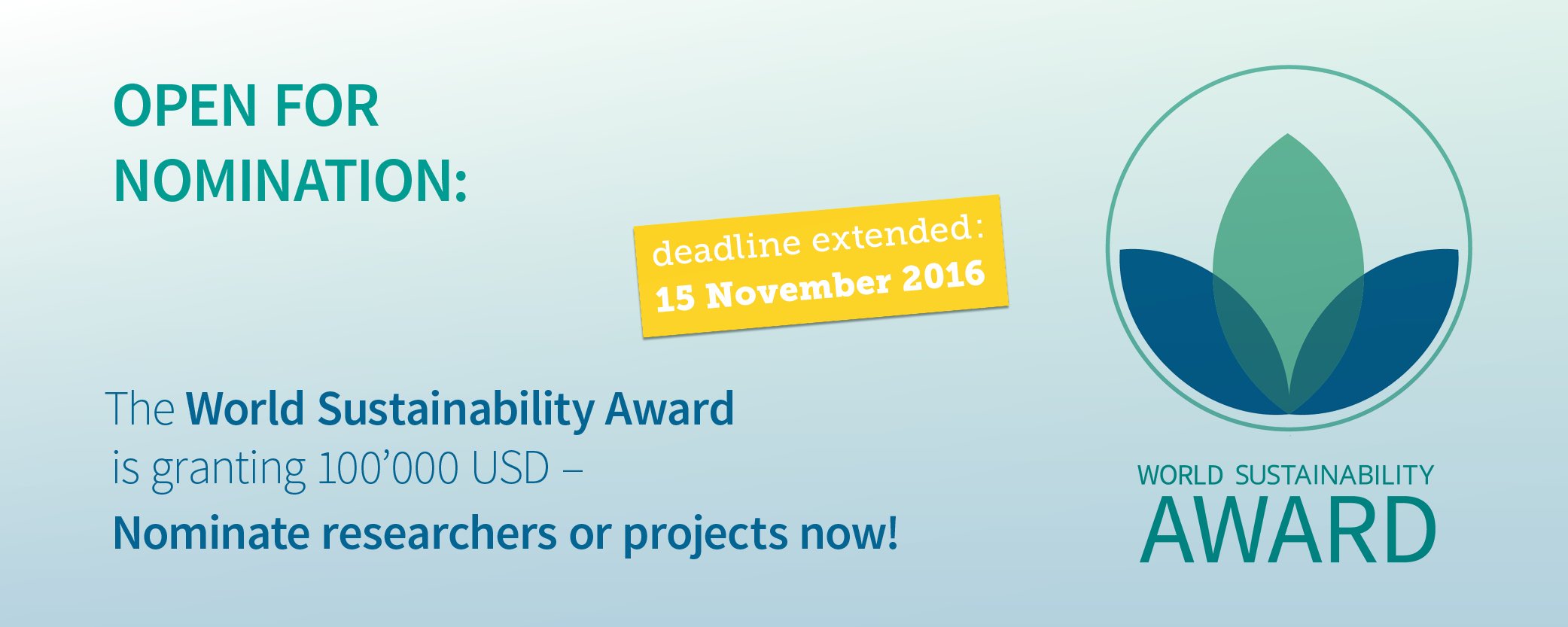 .
.